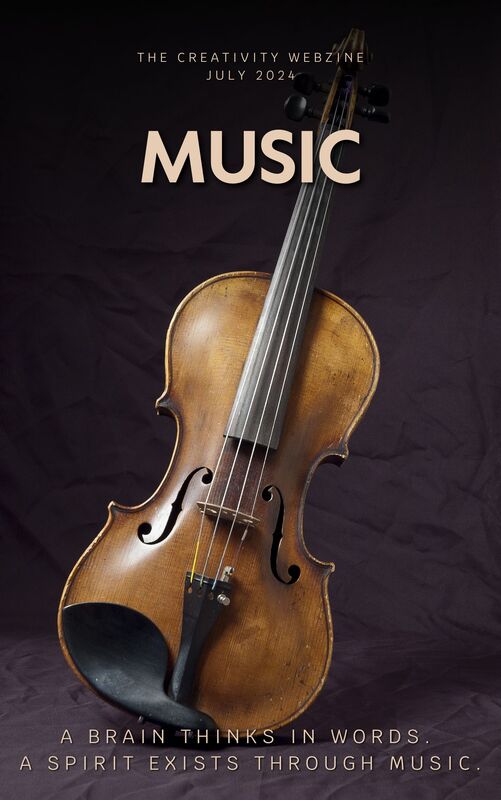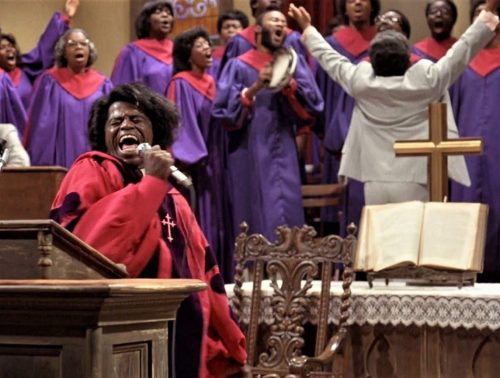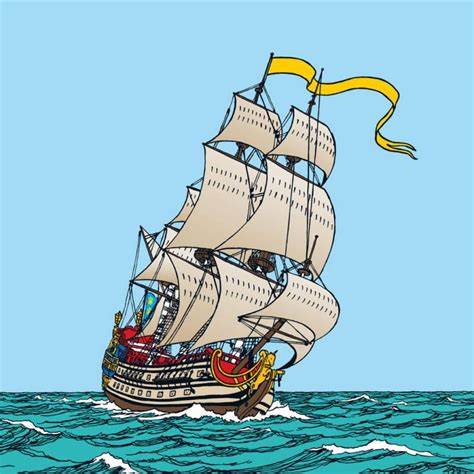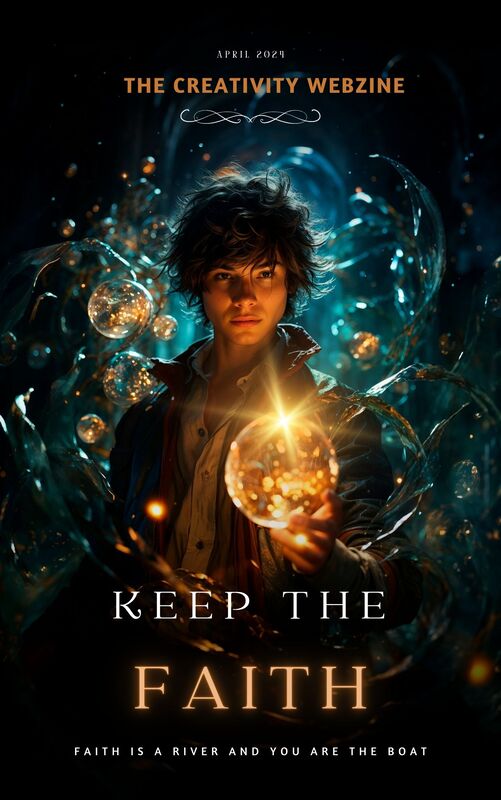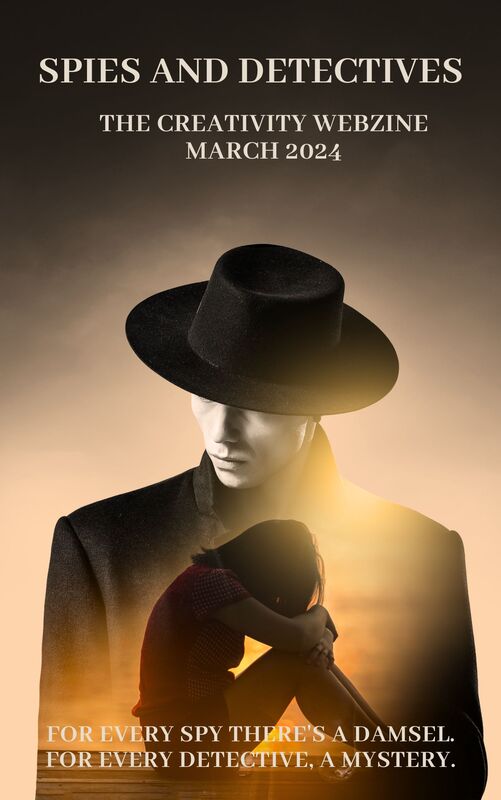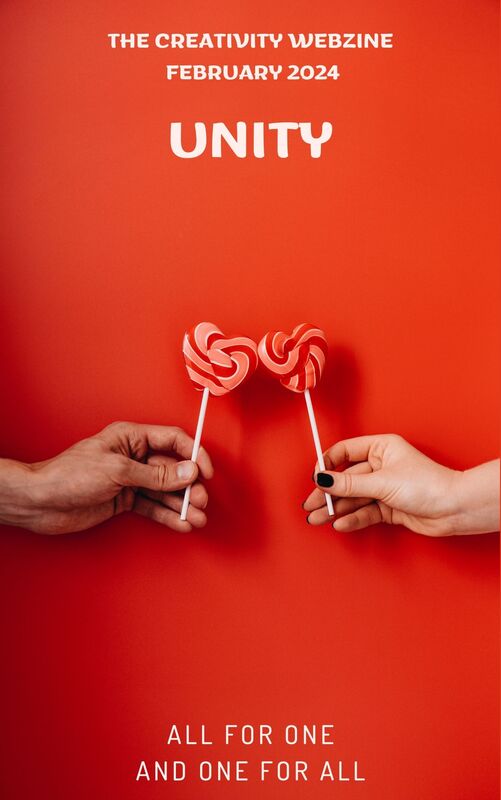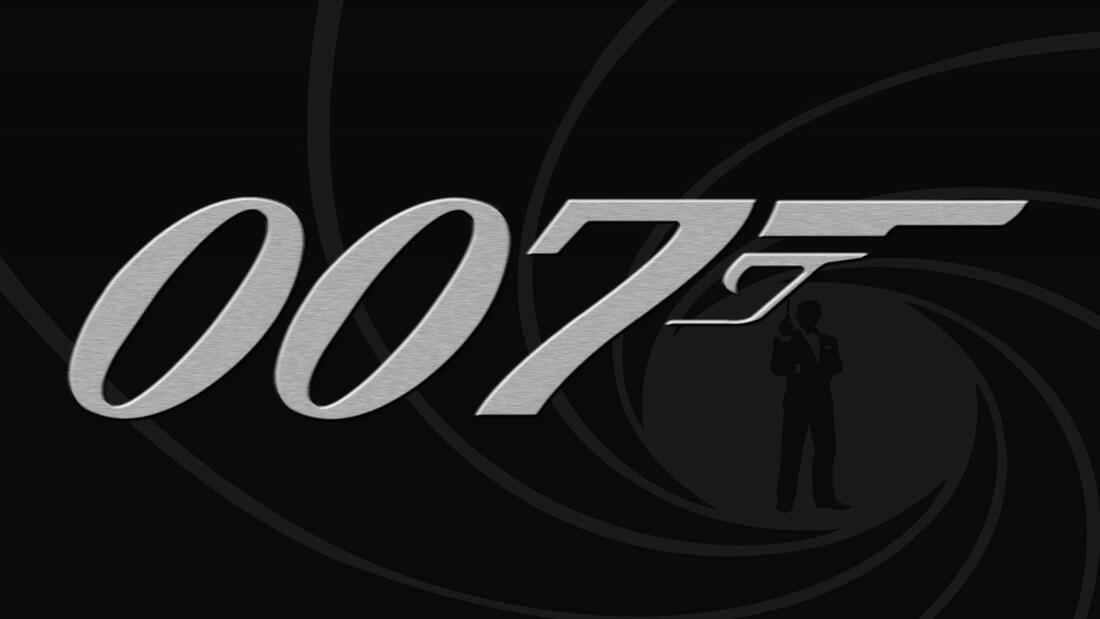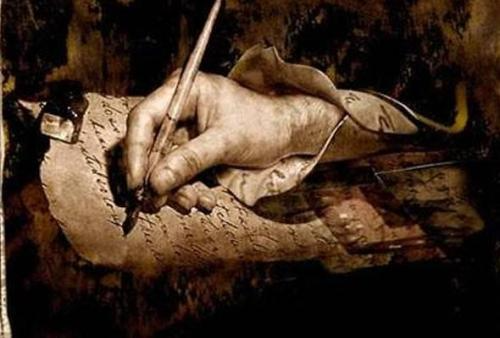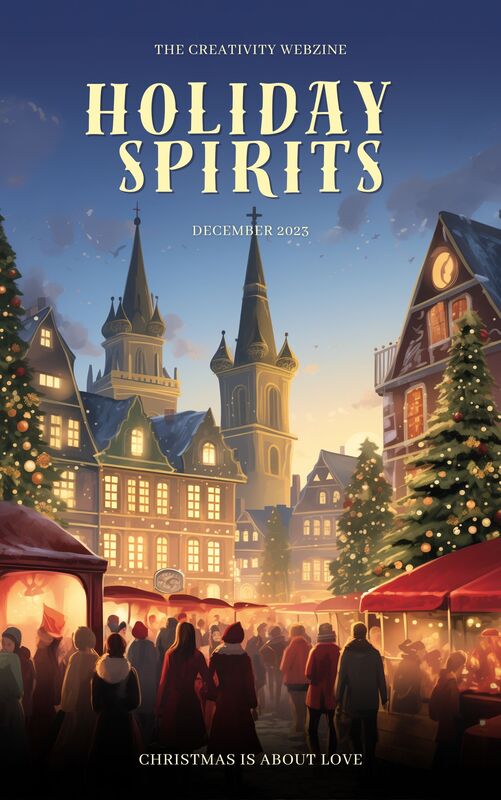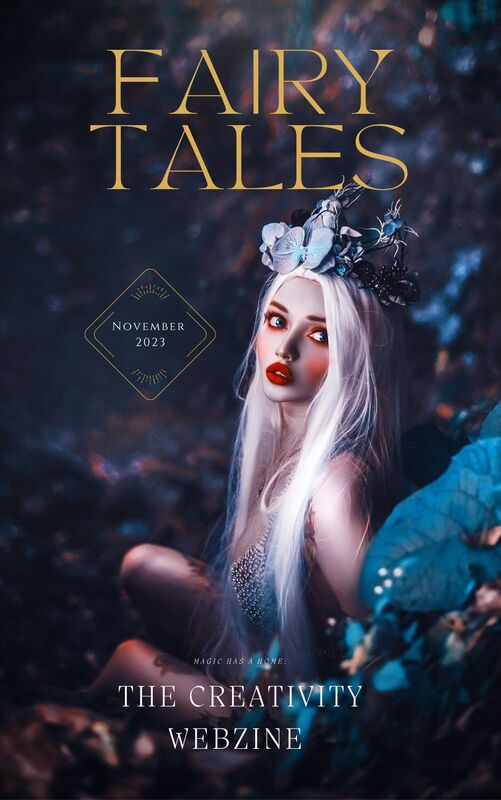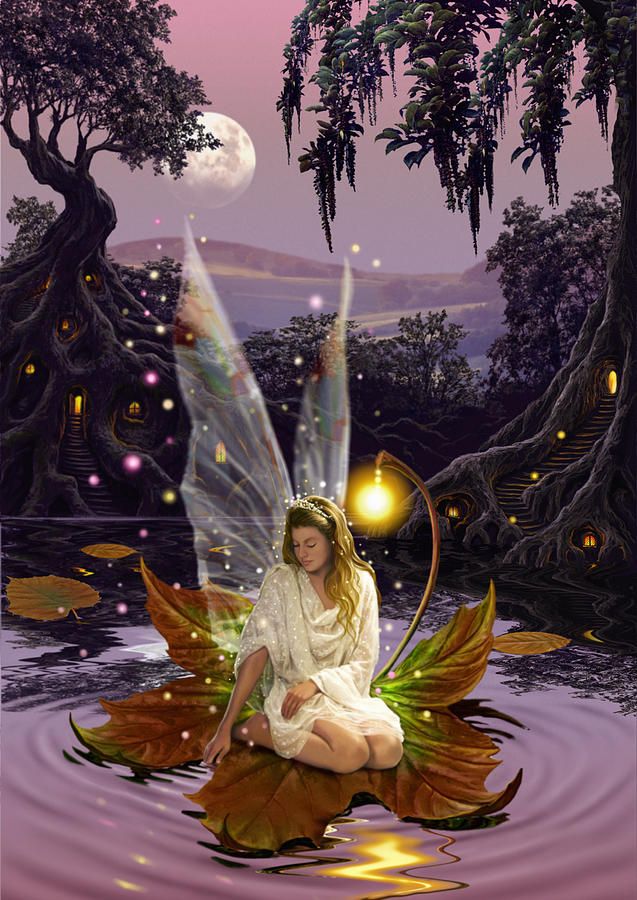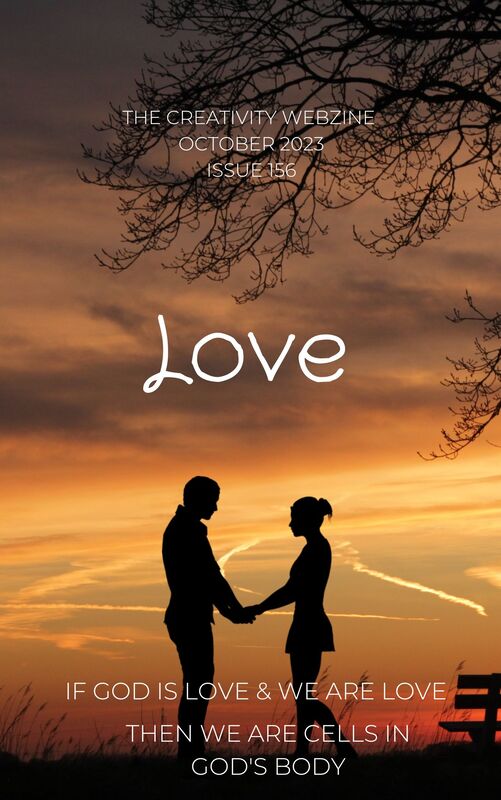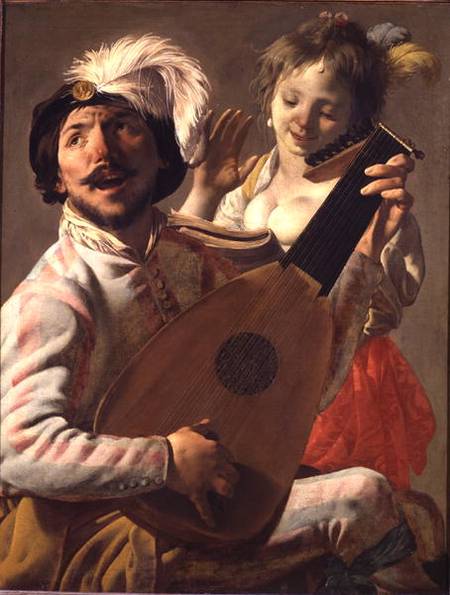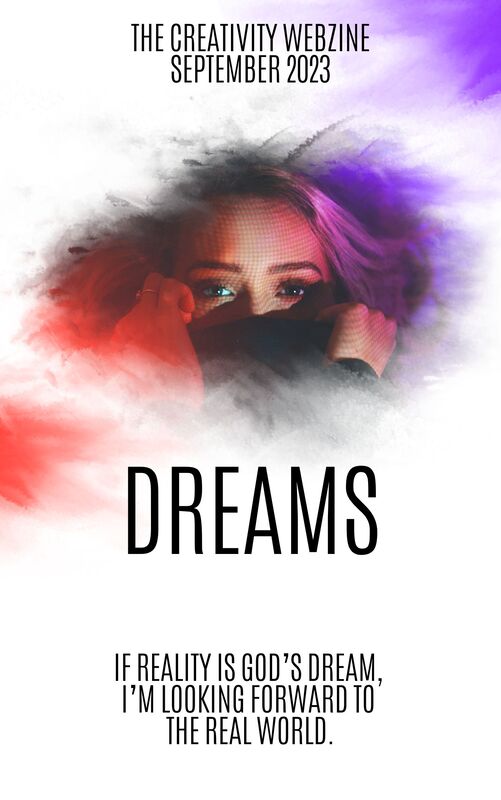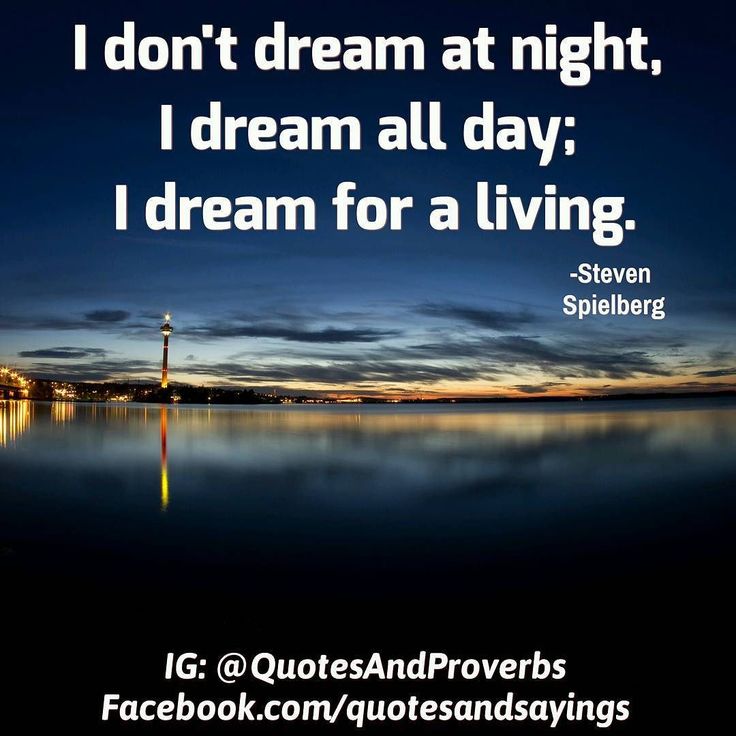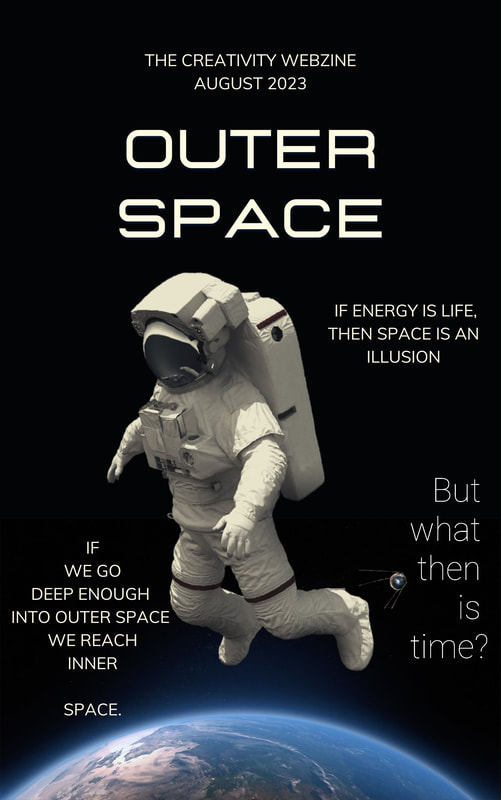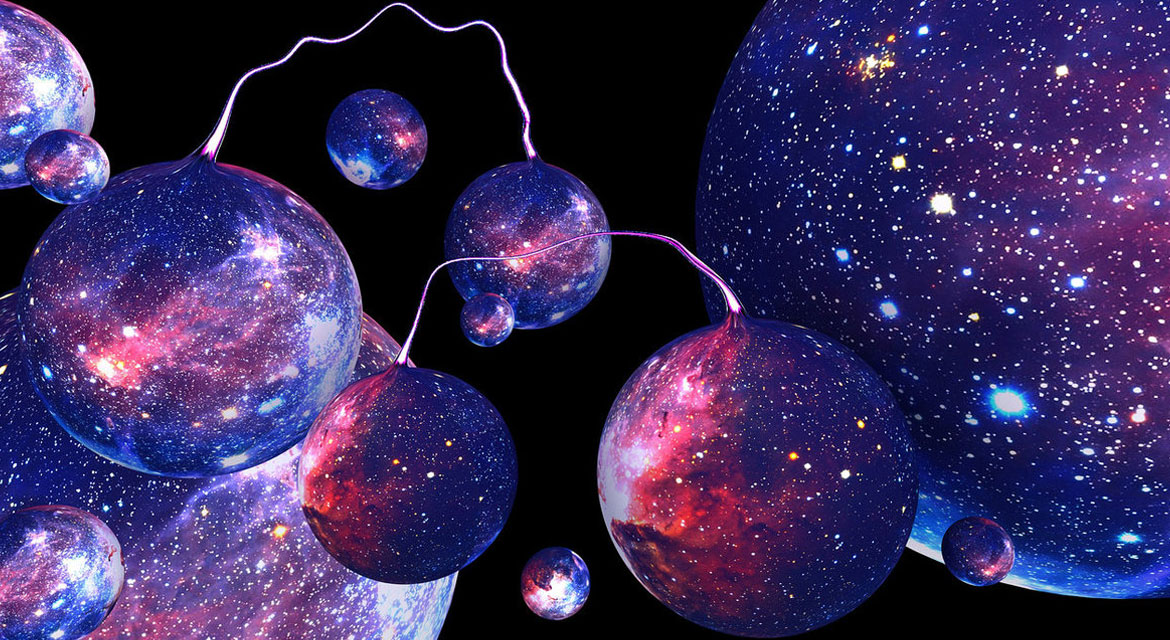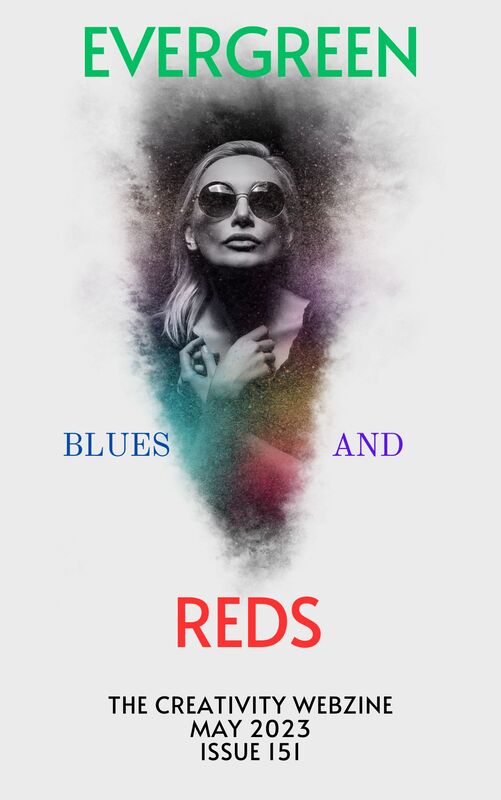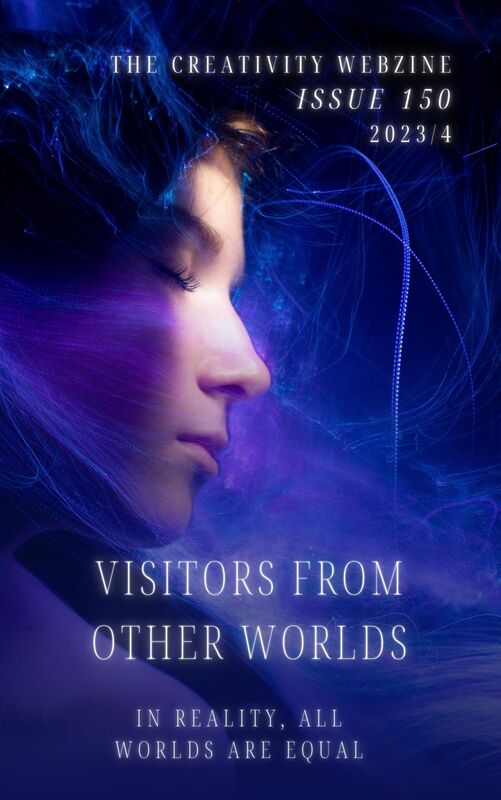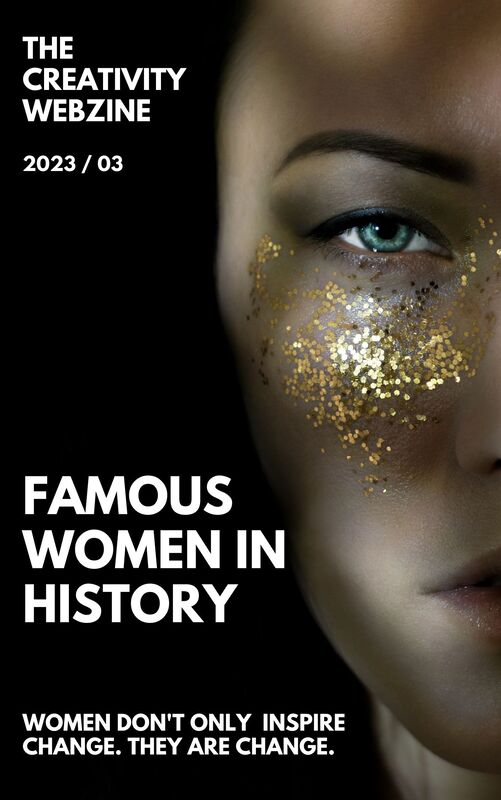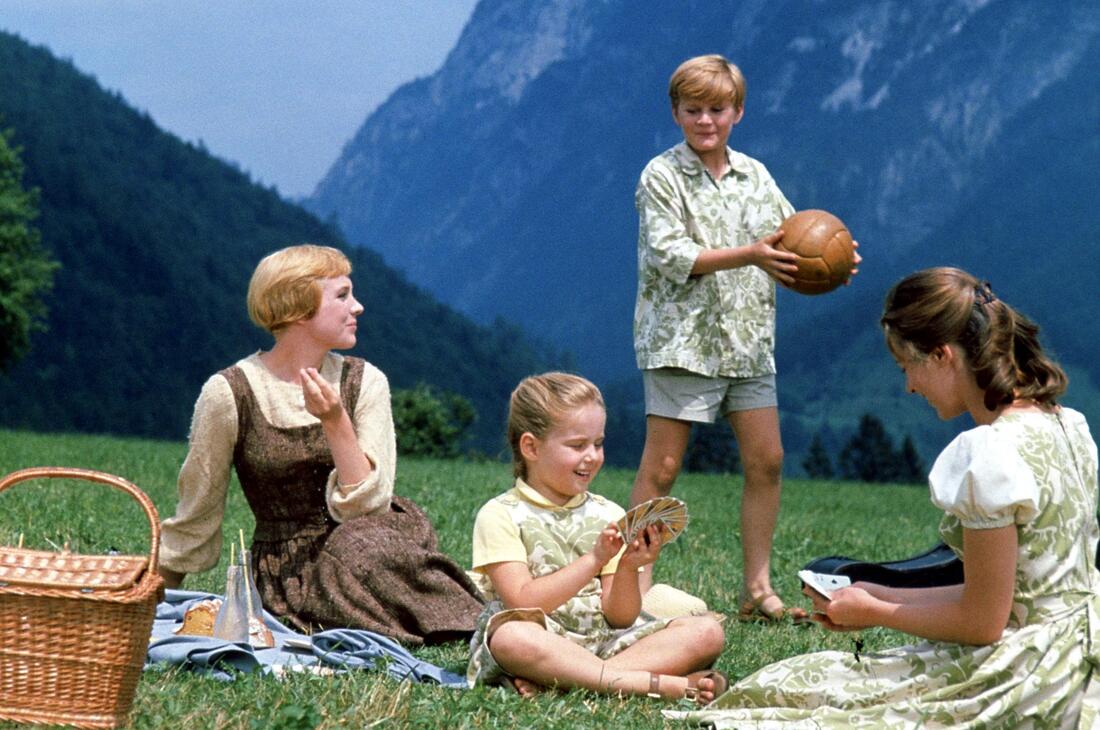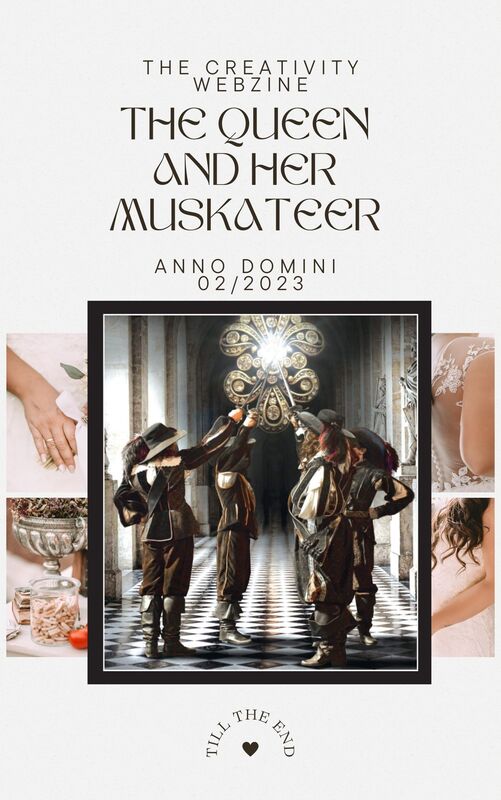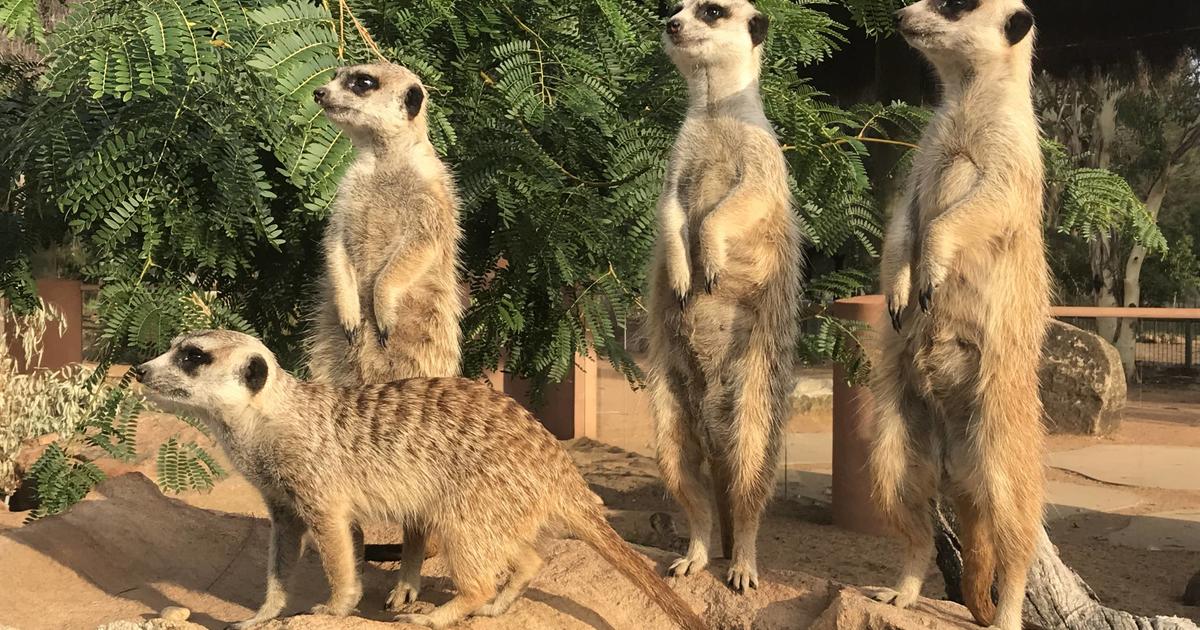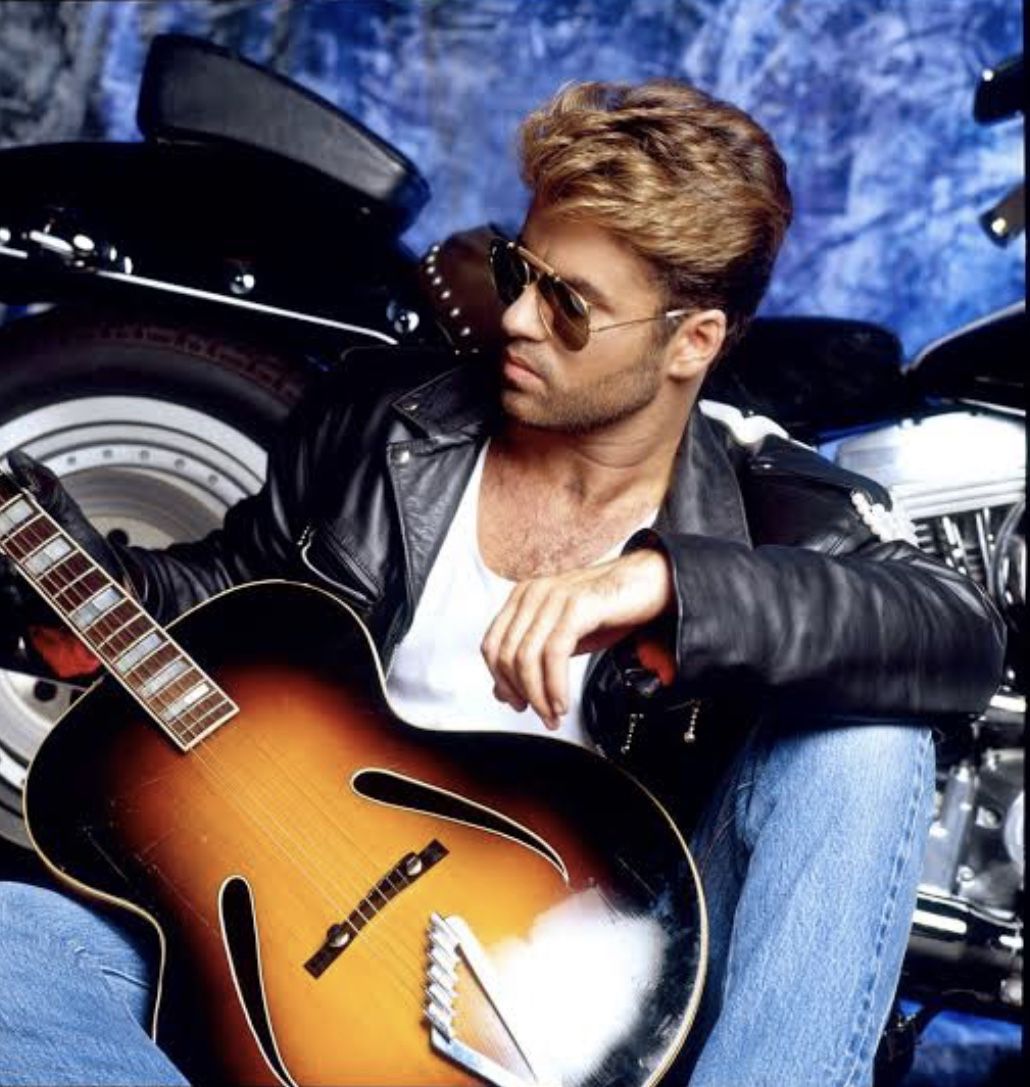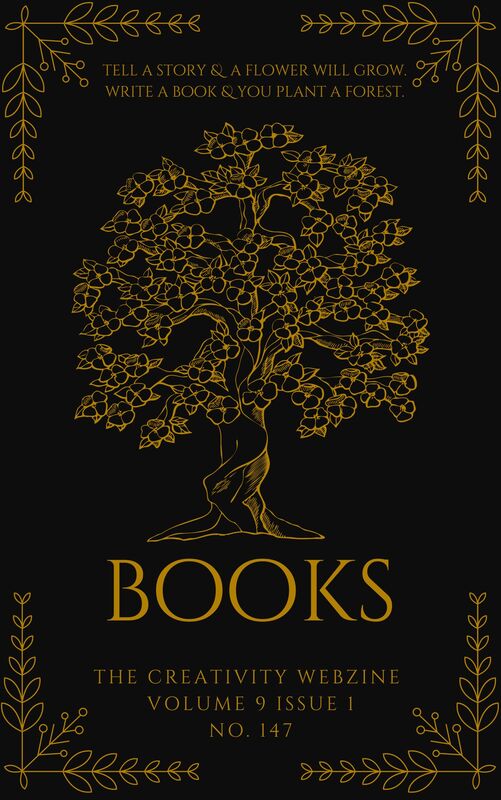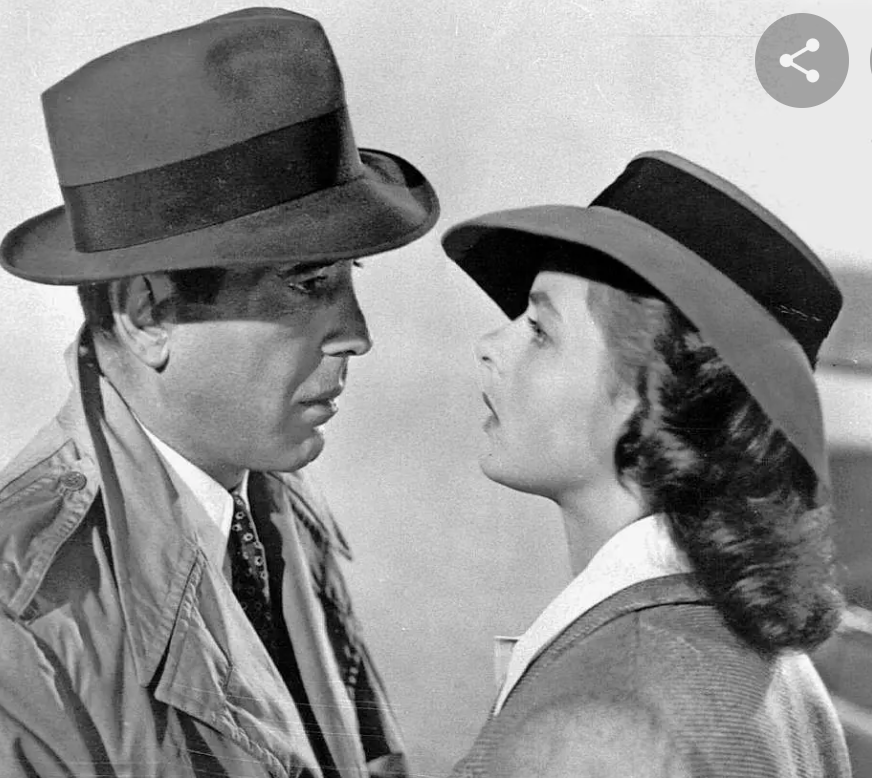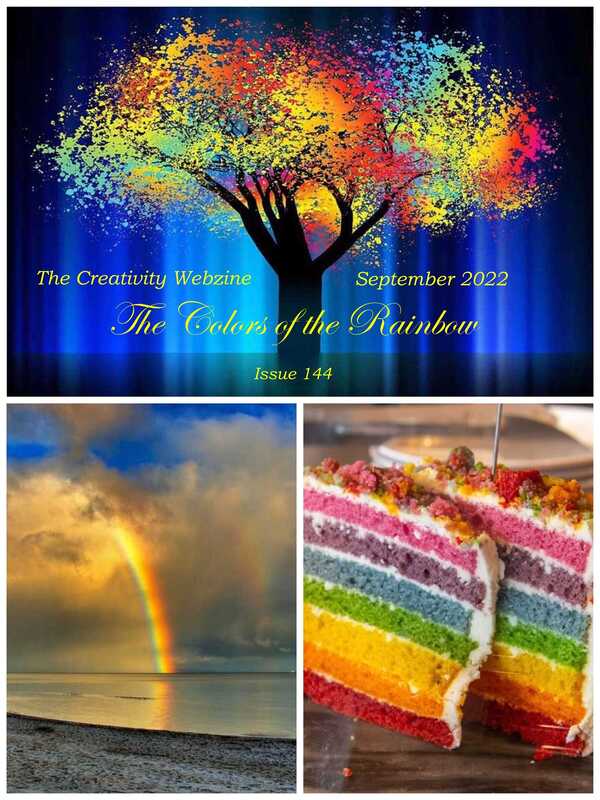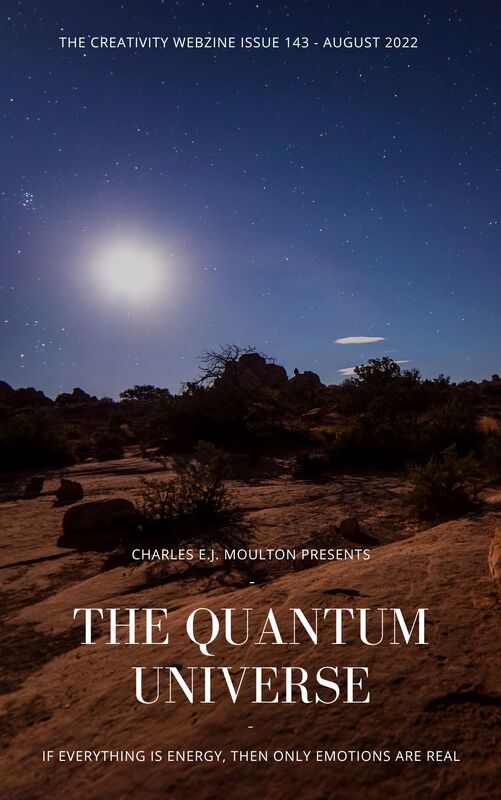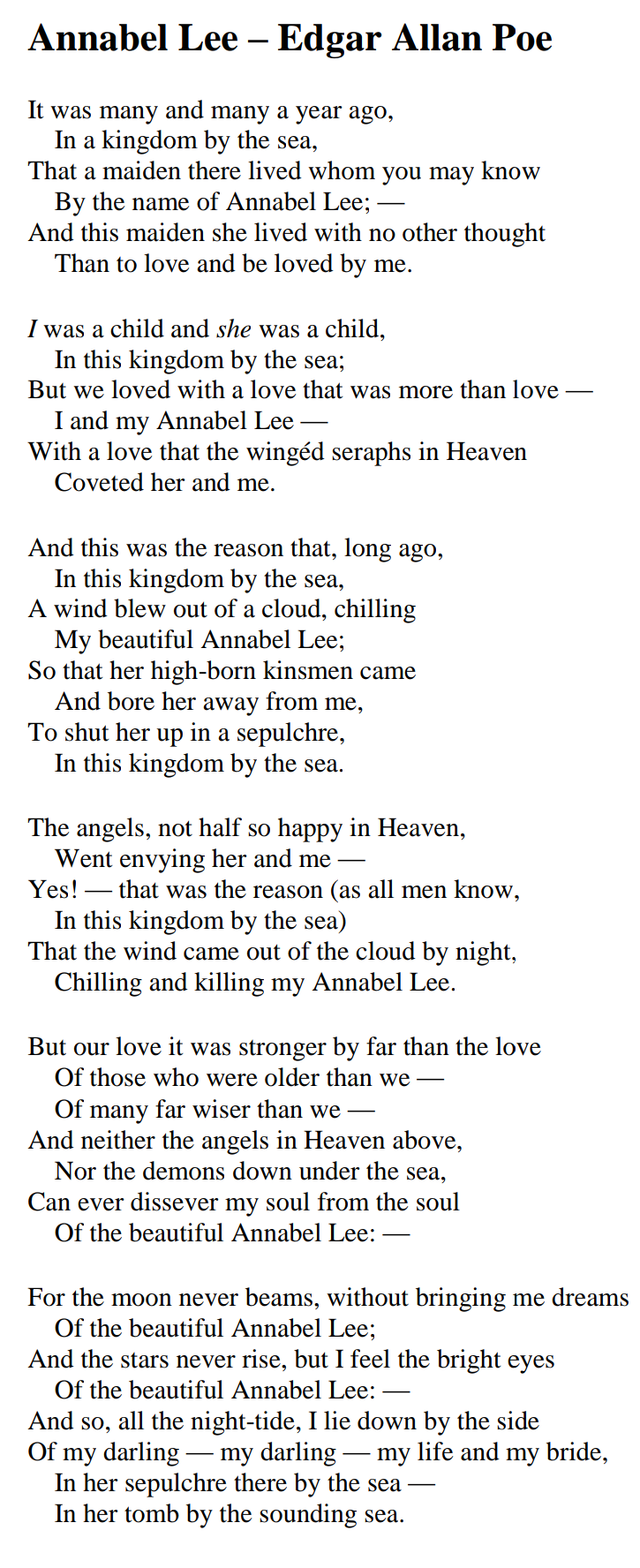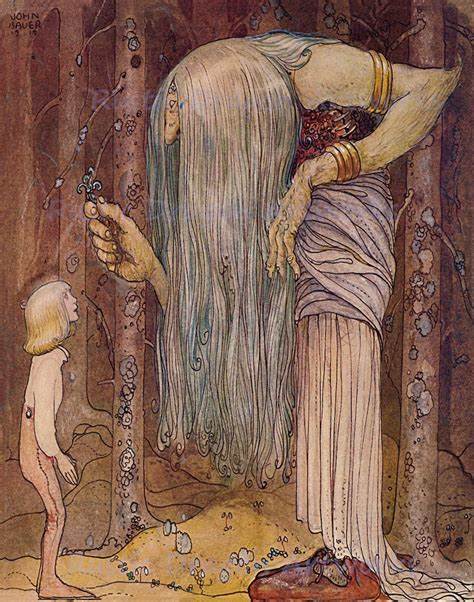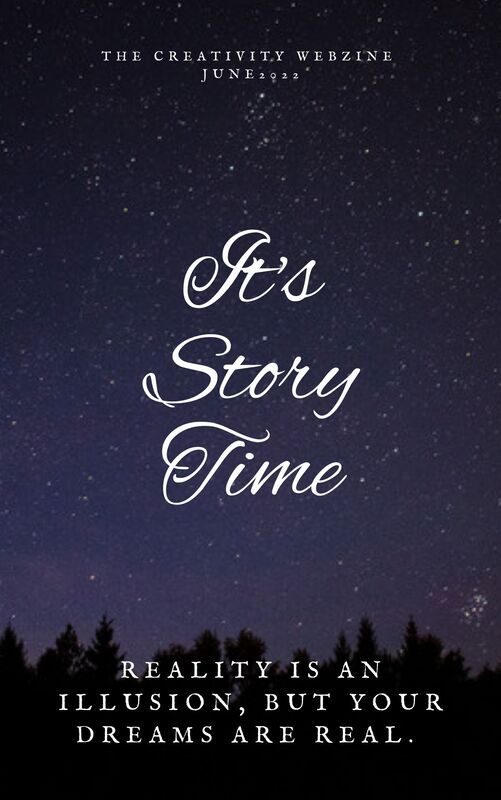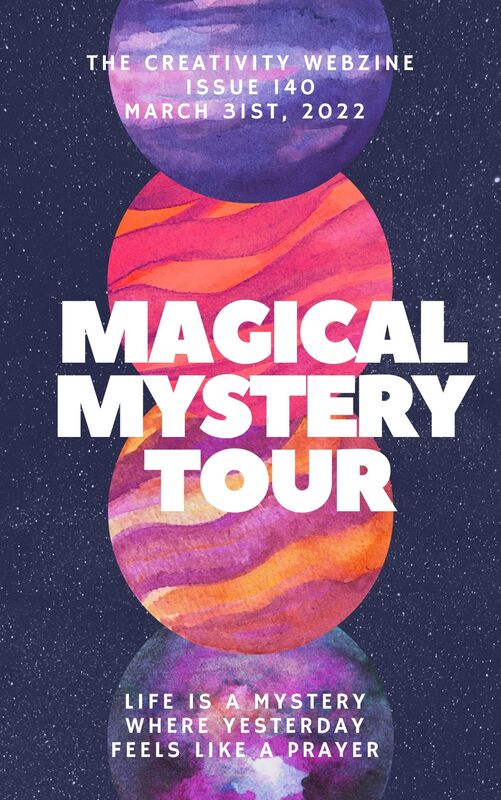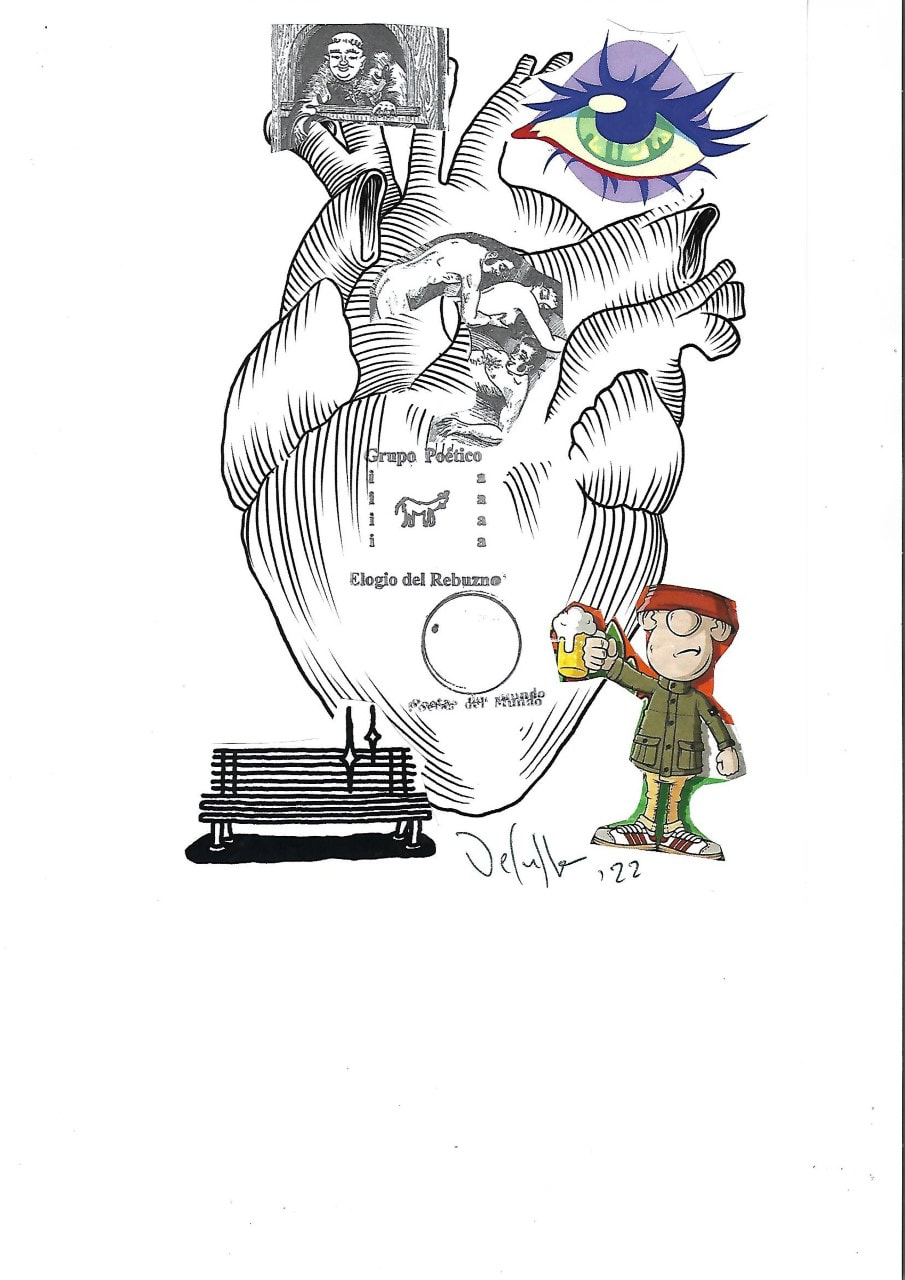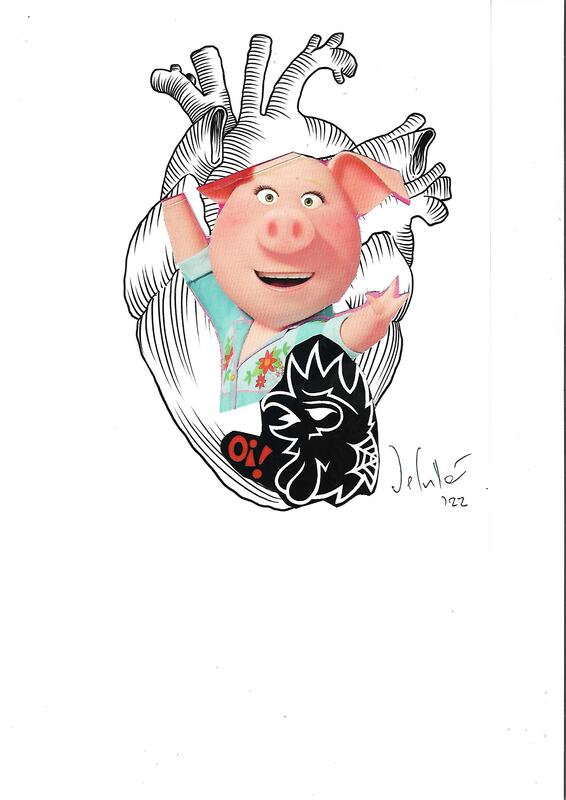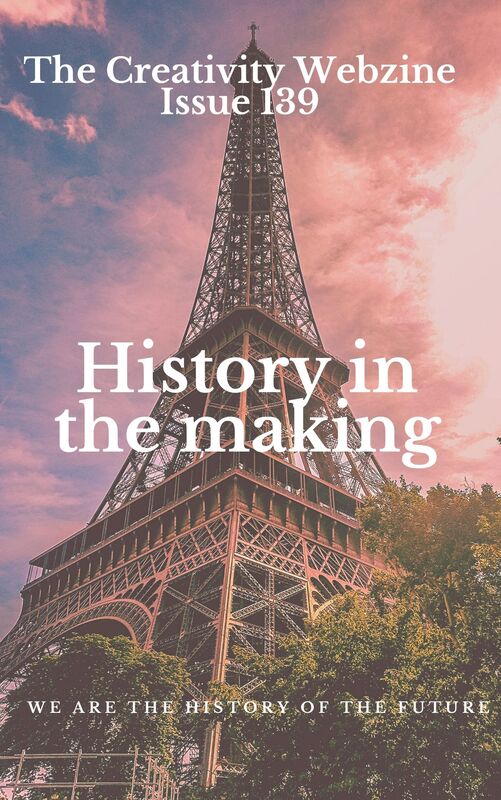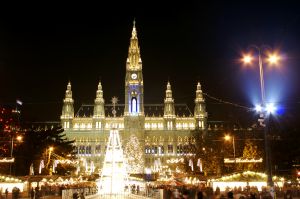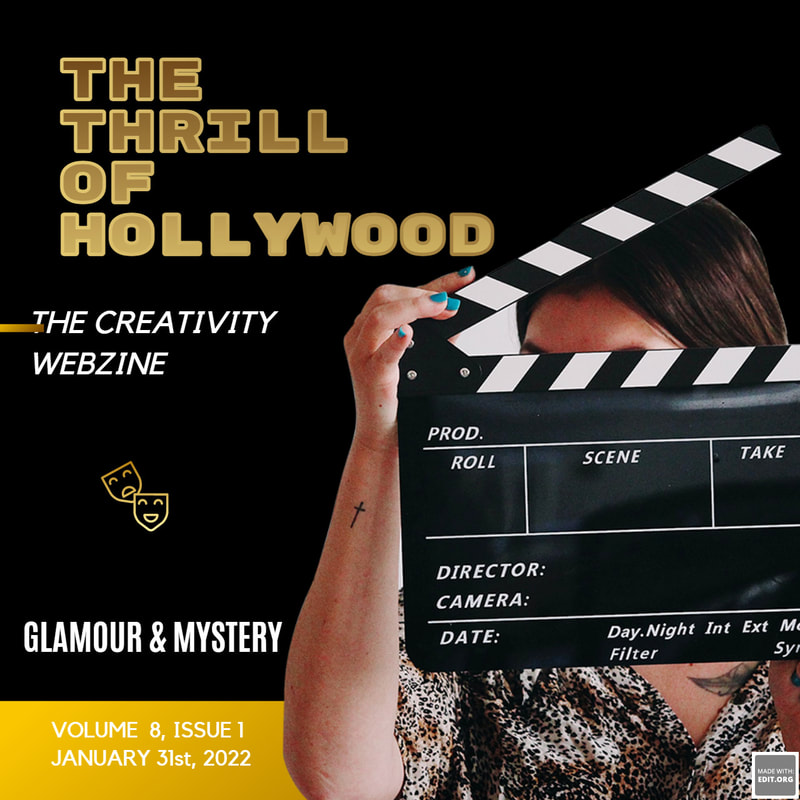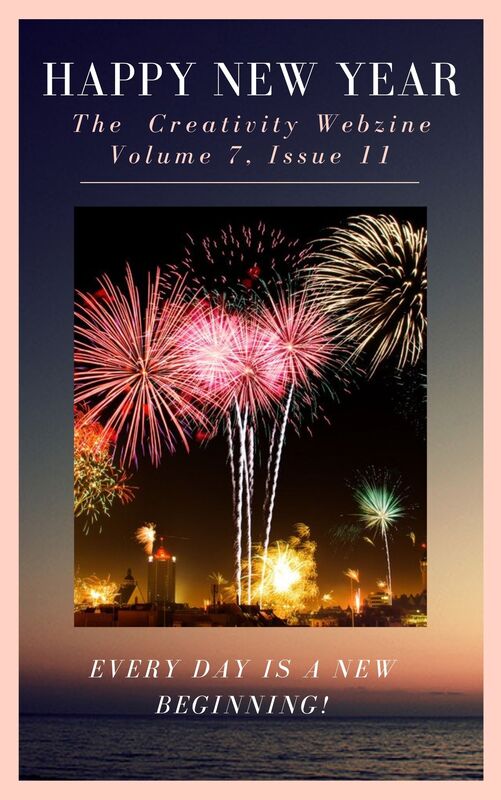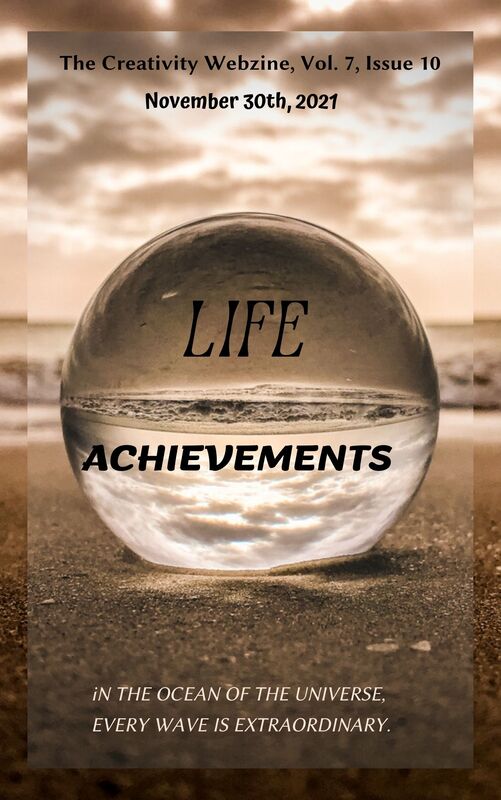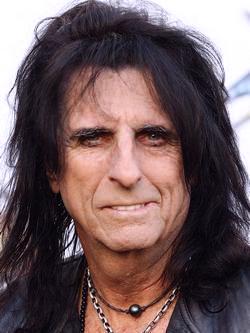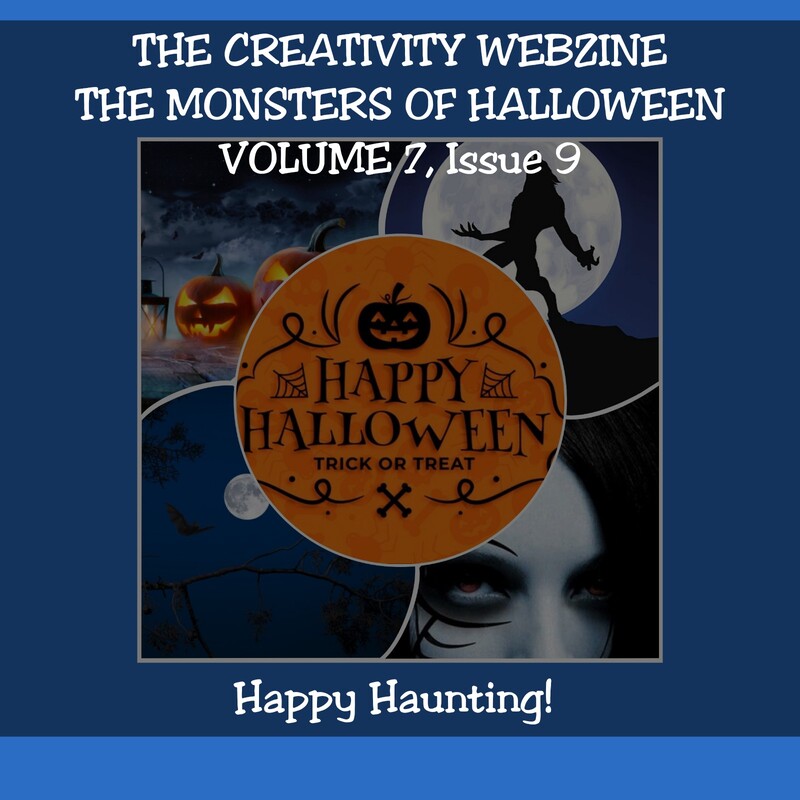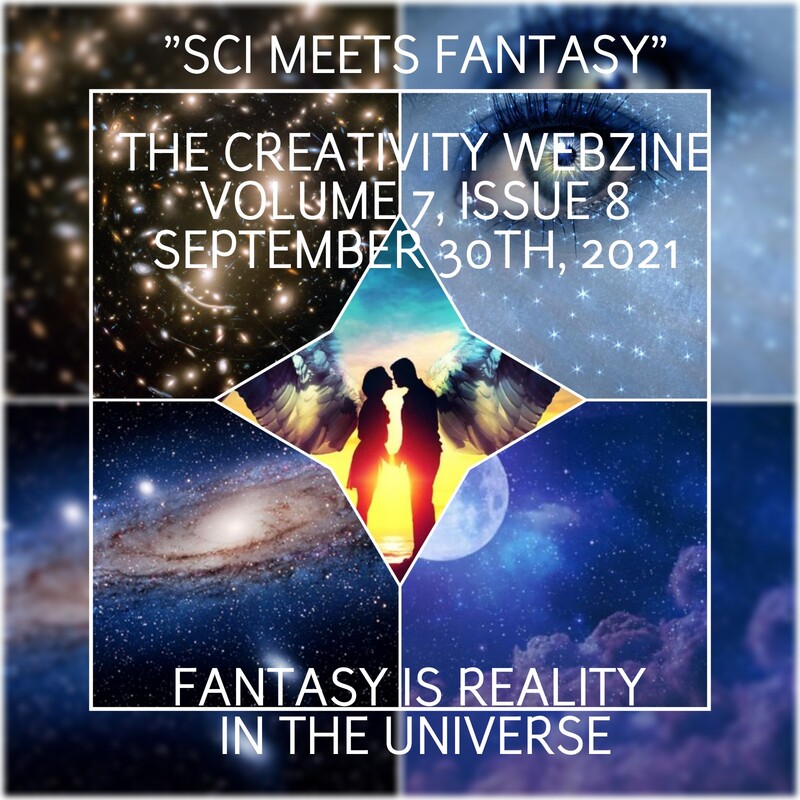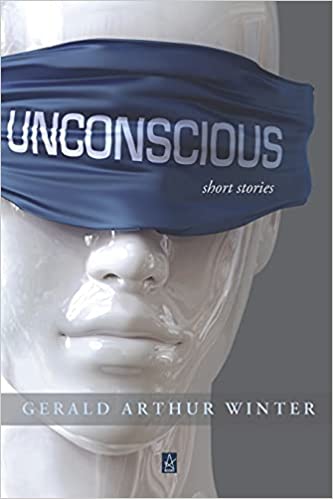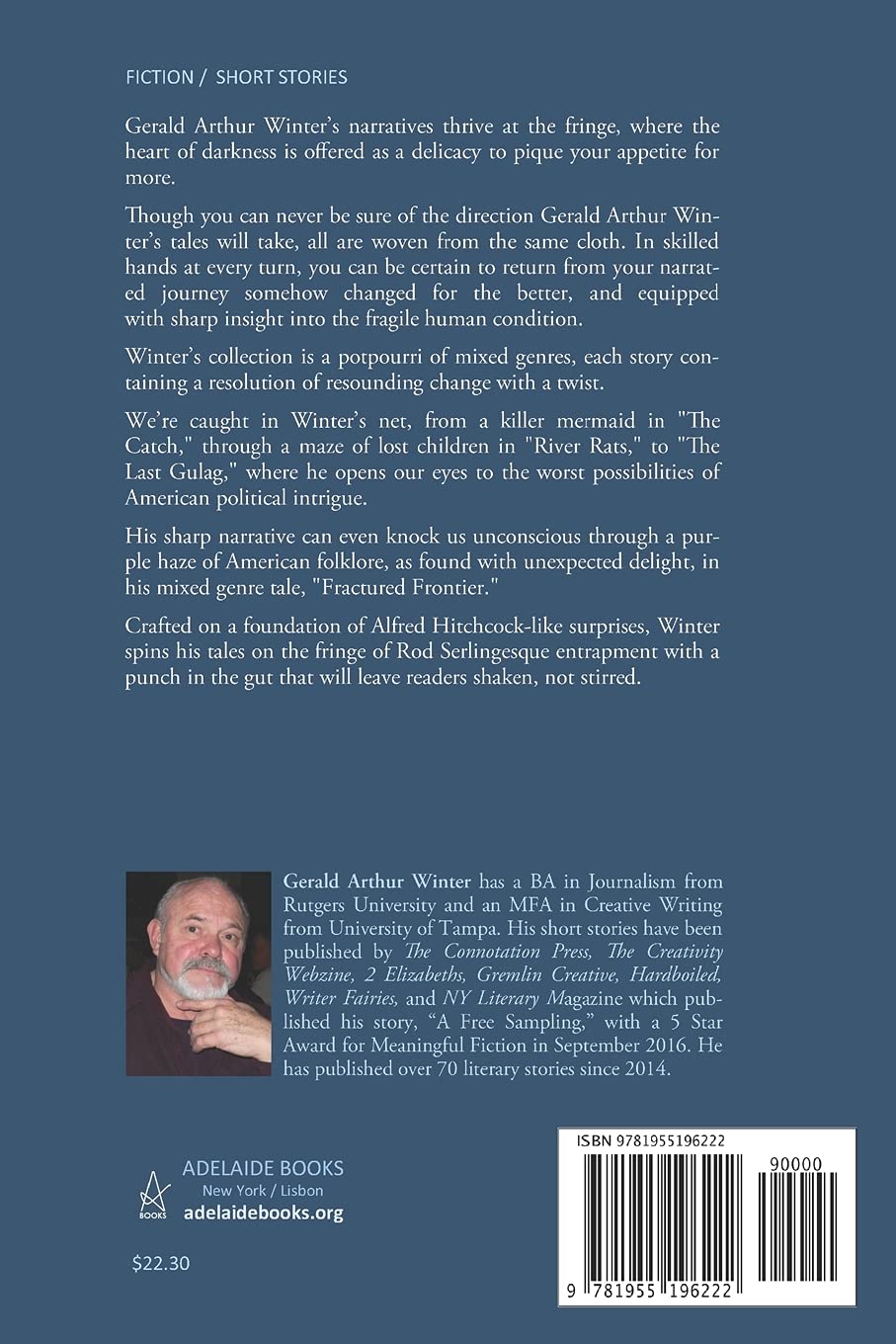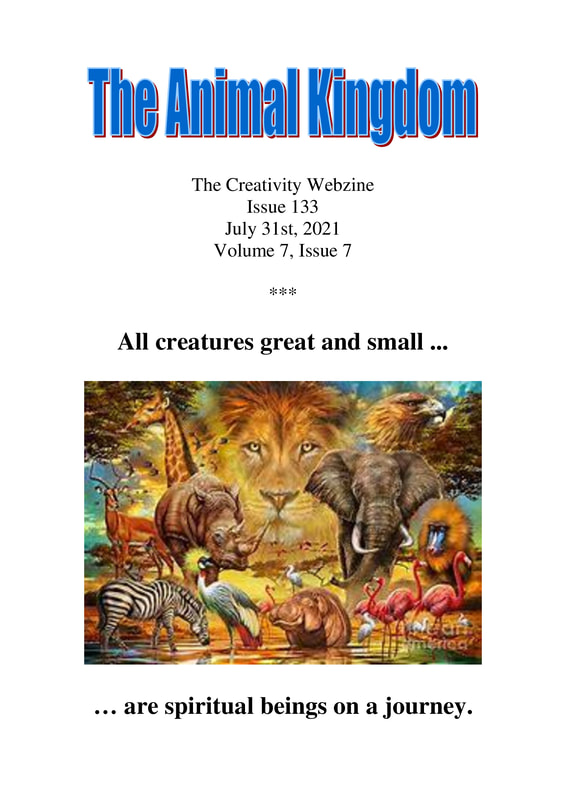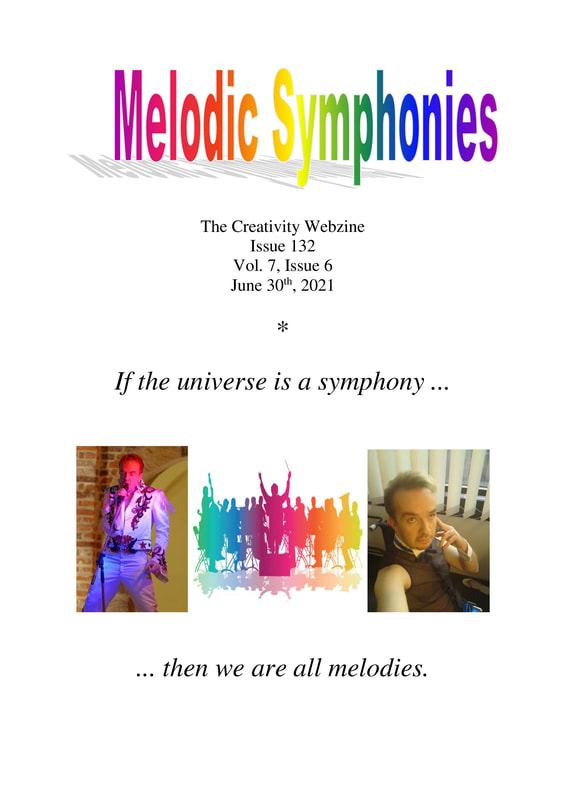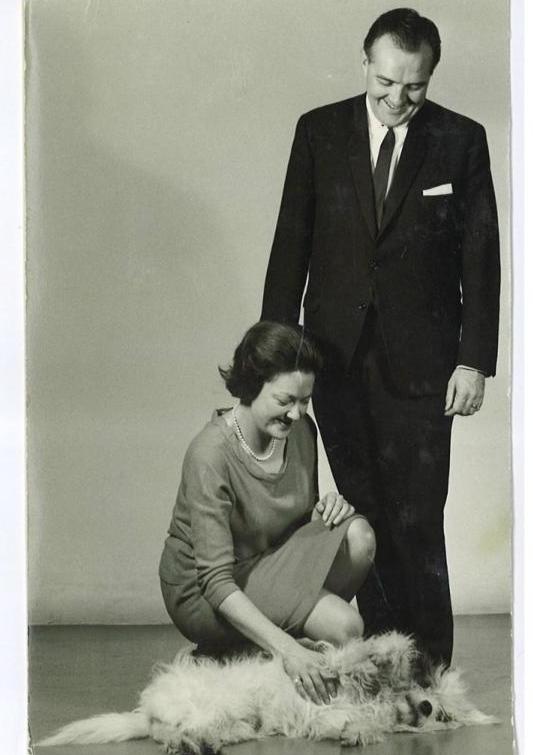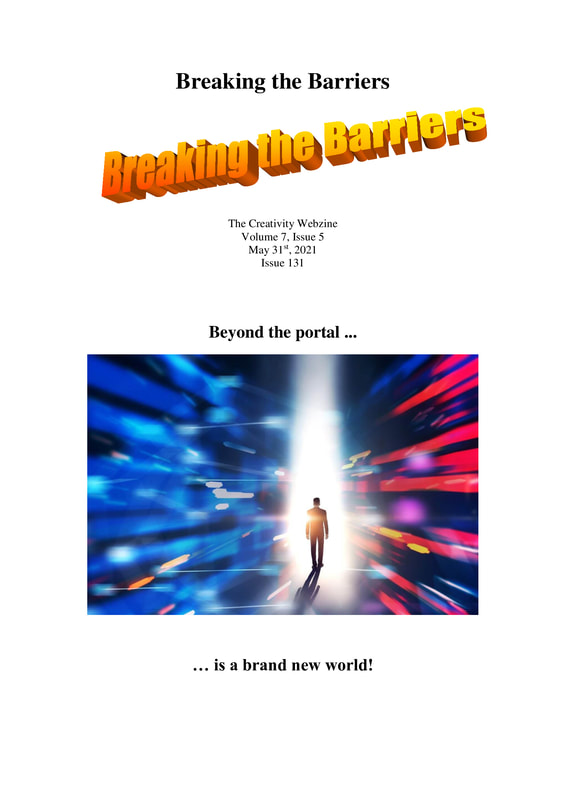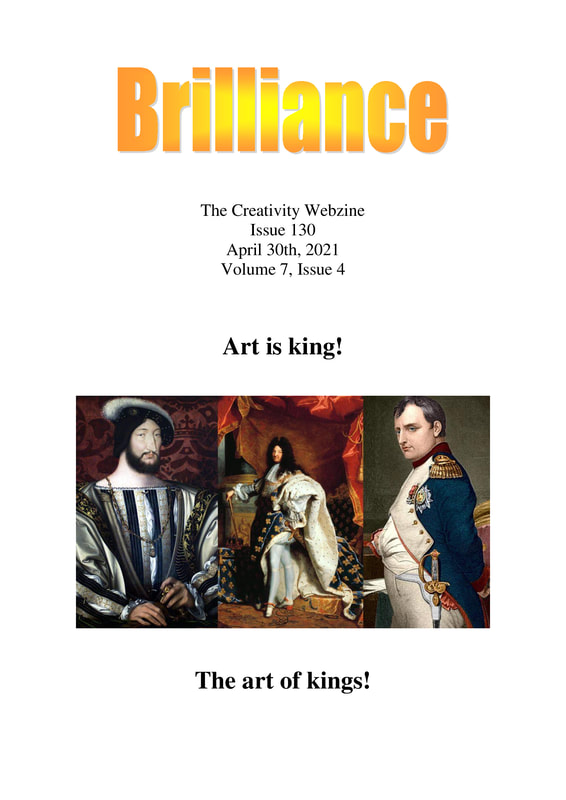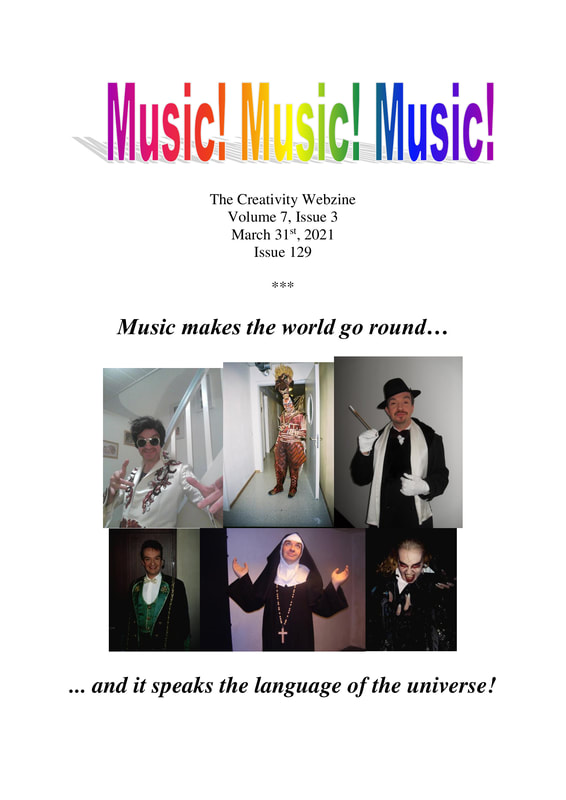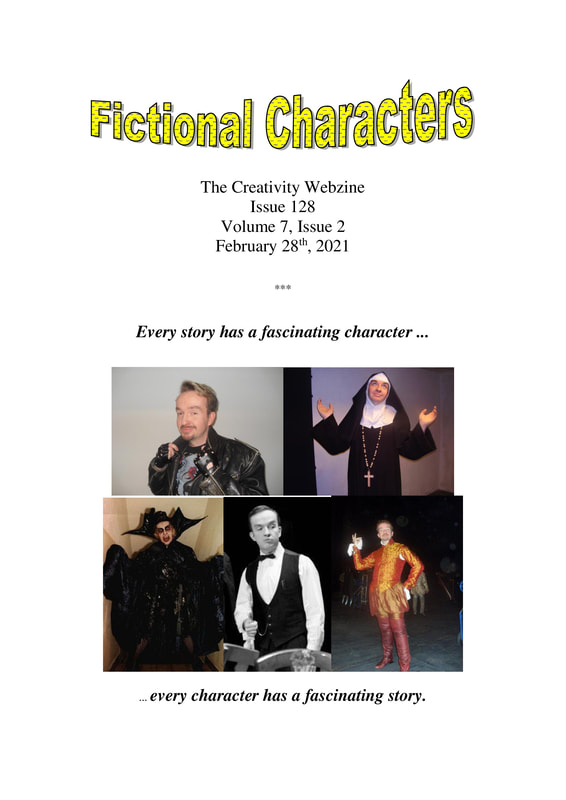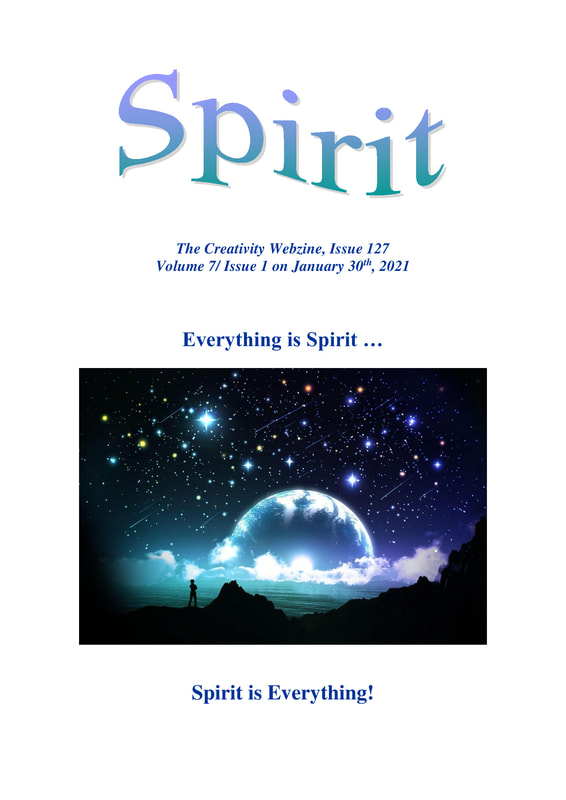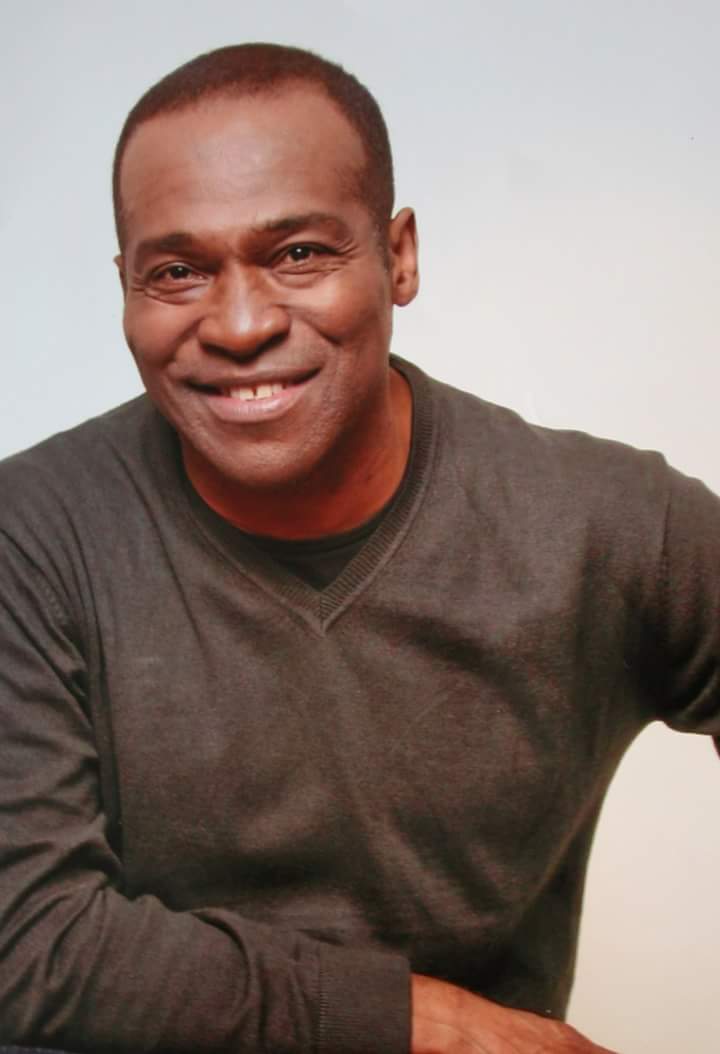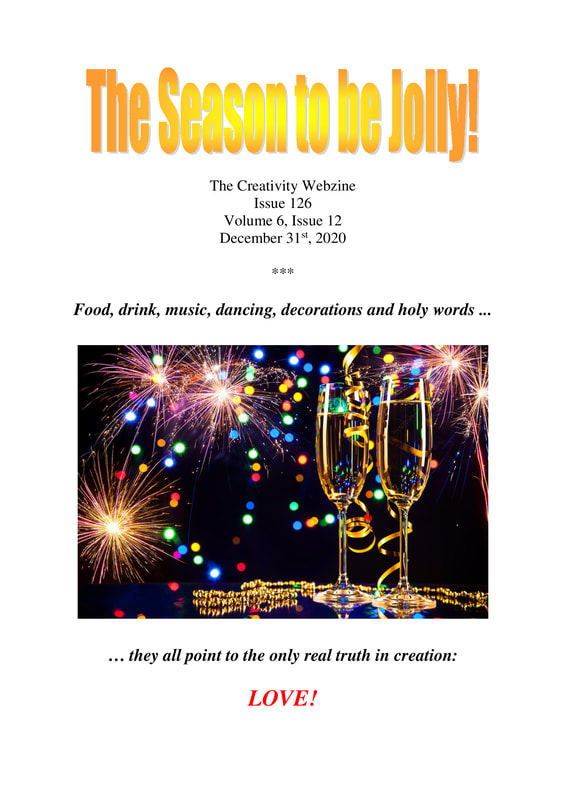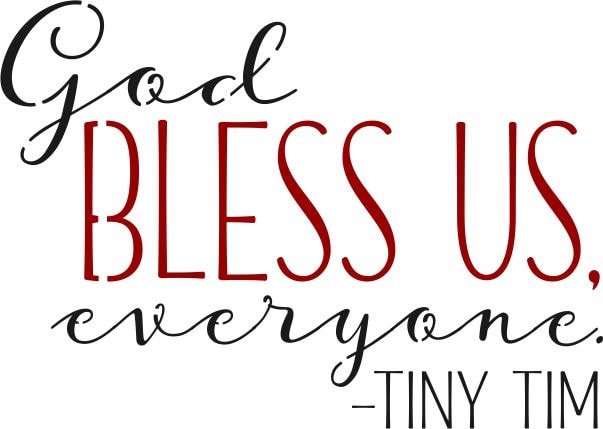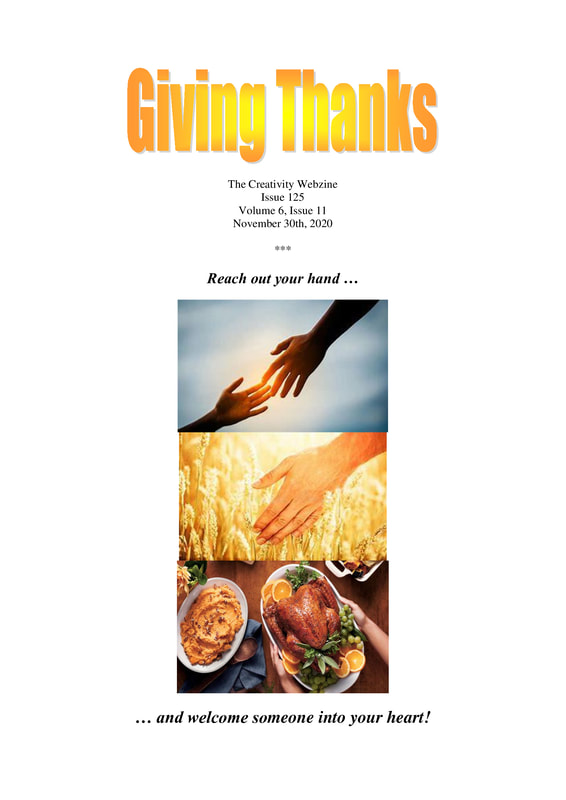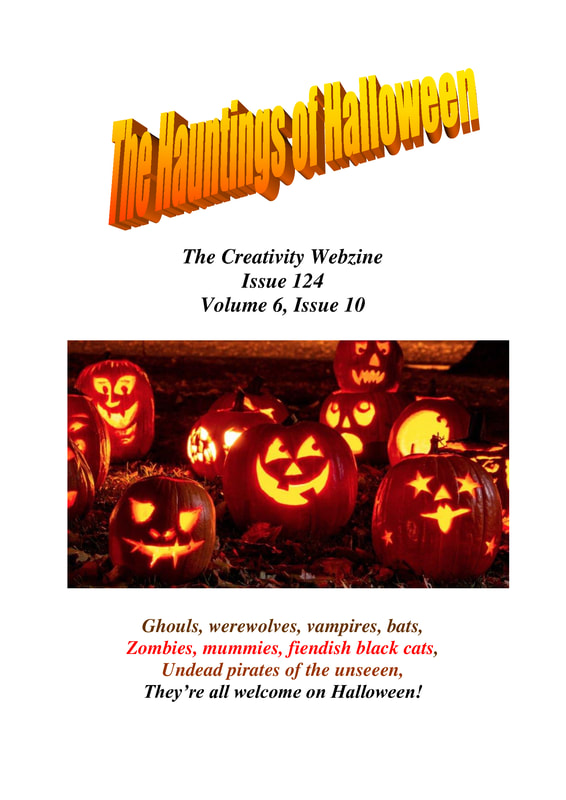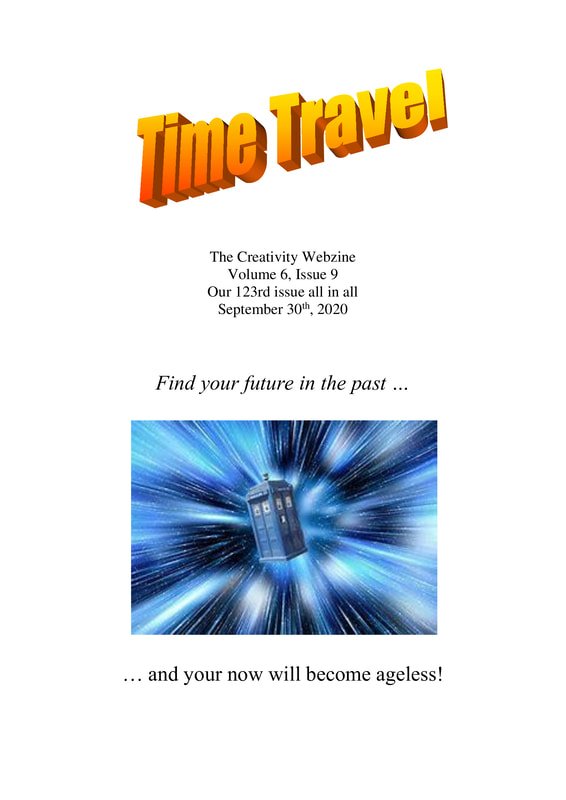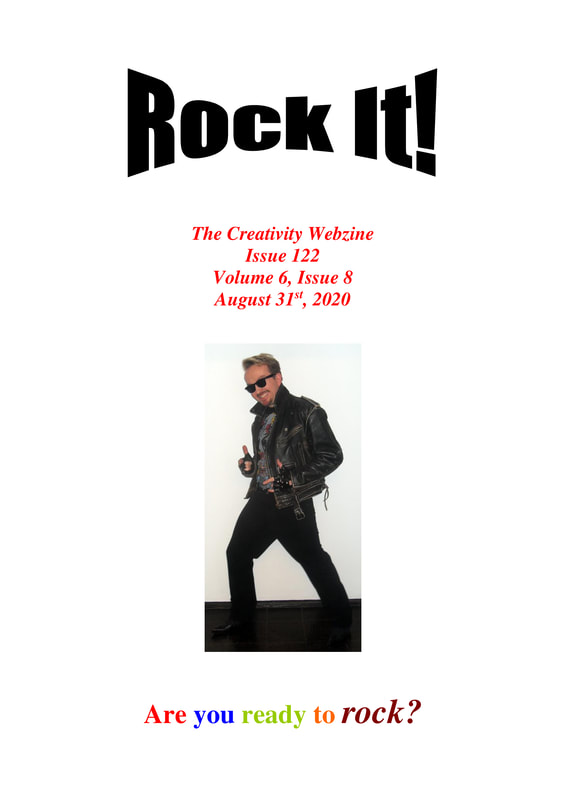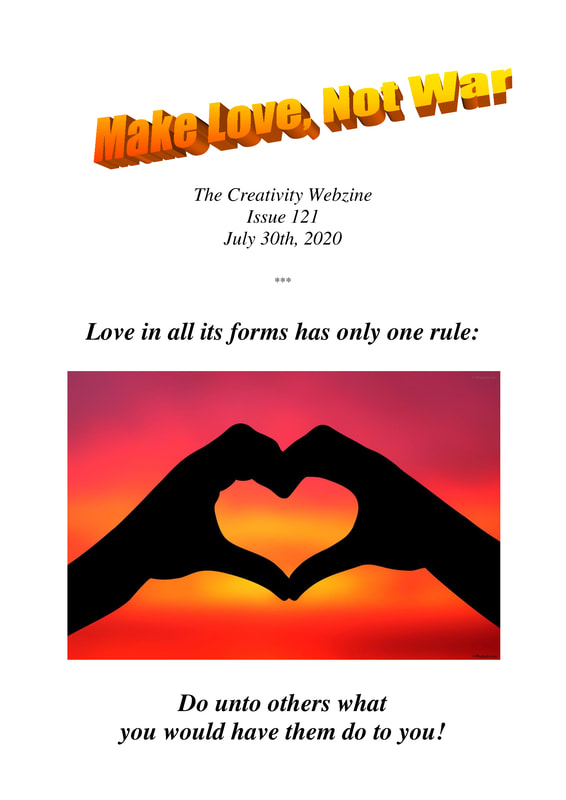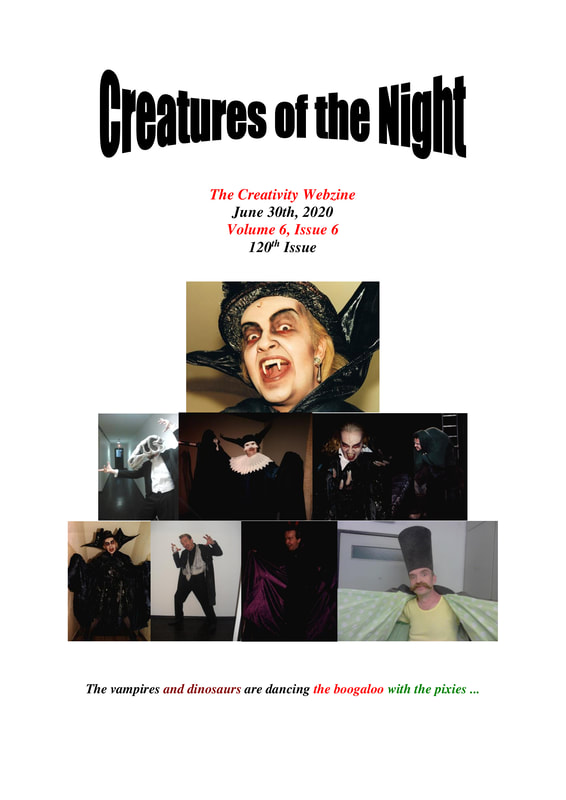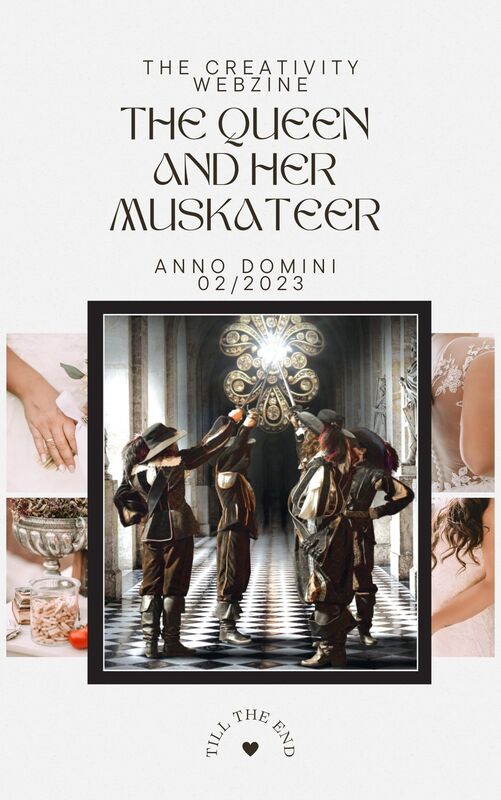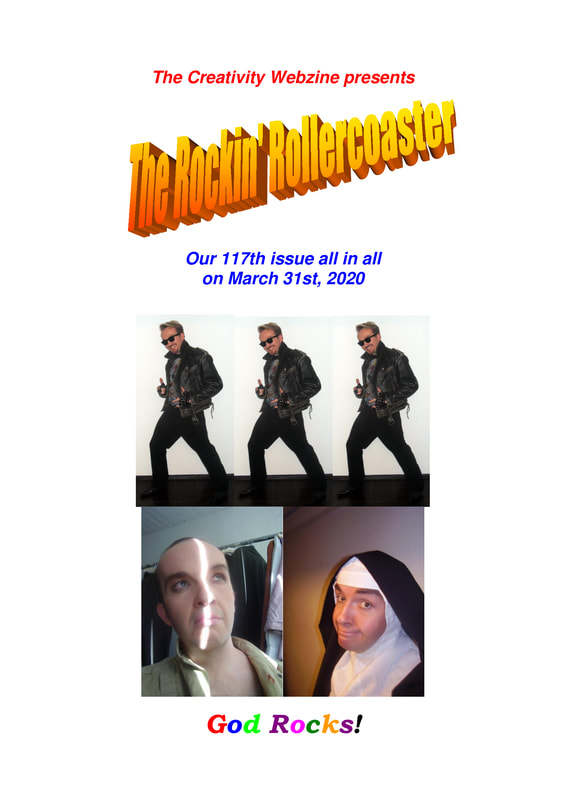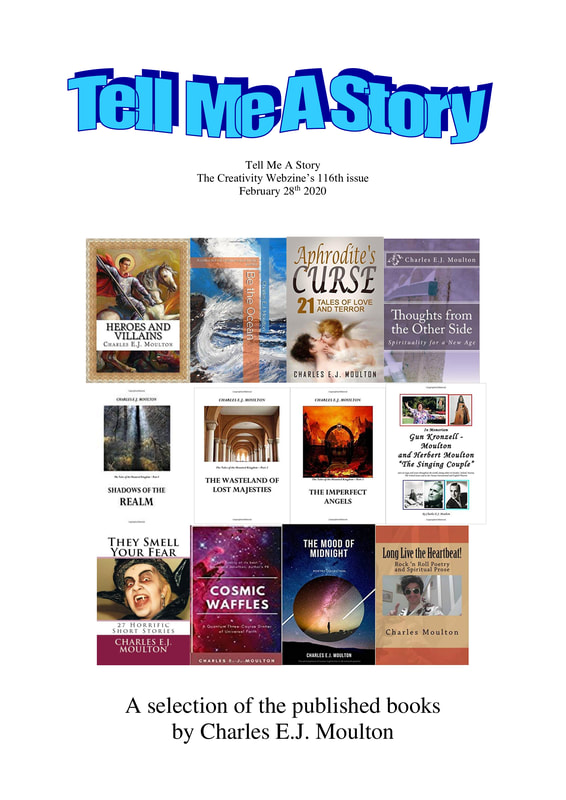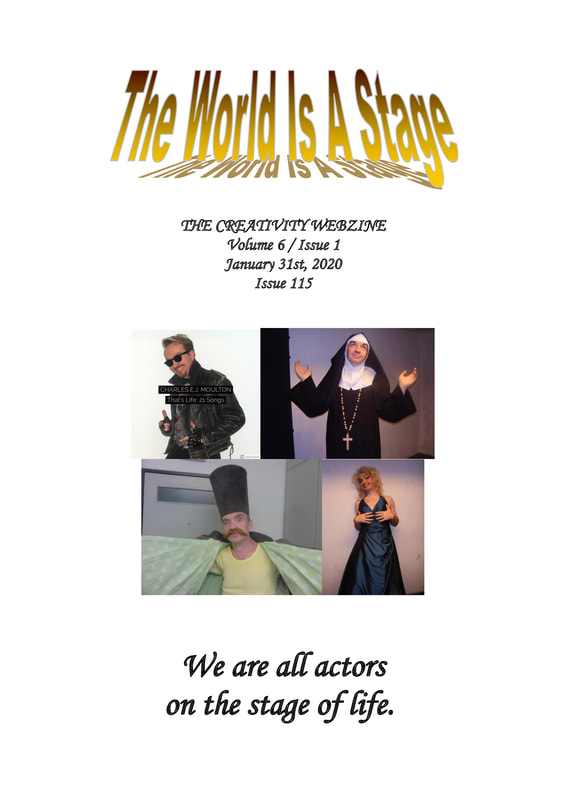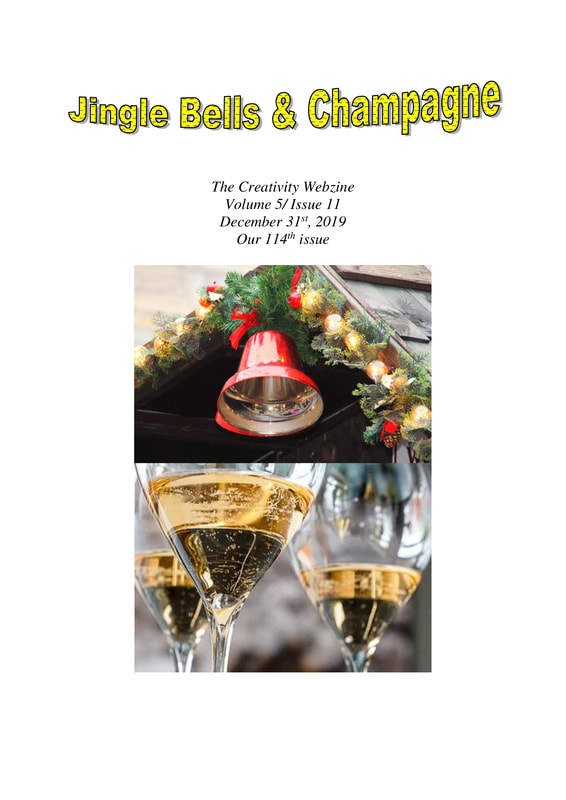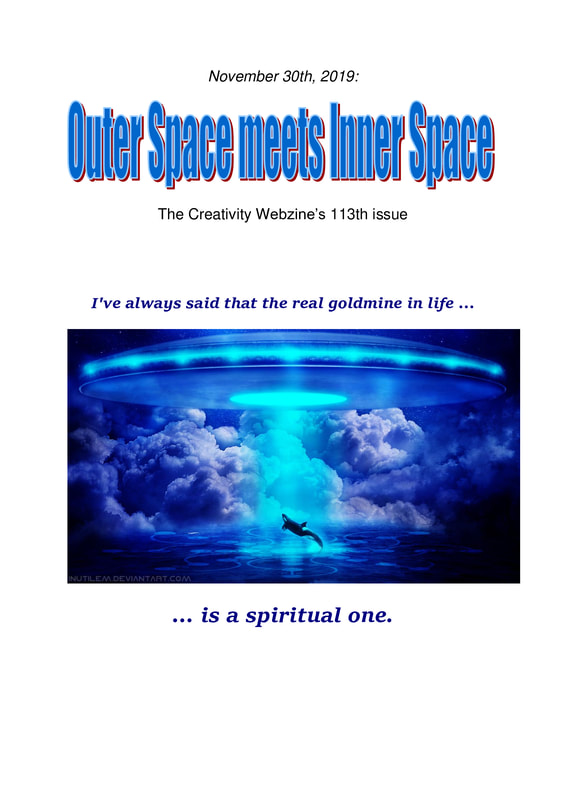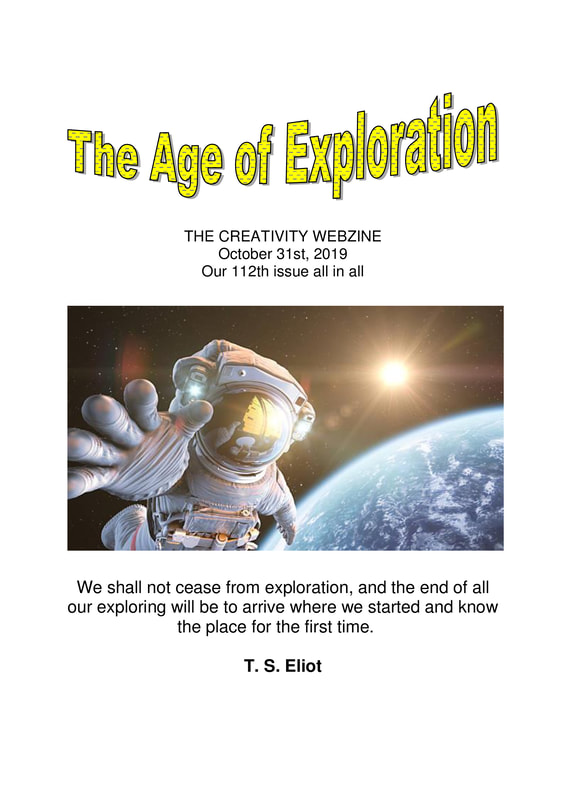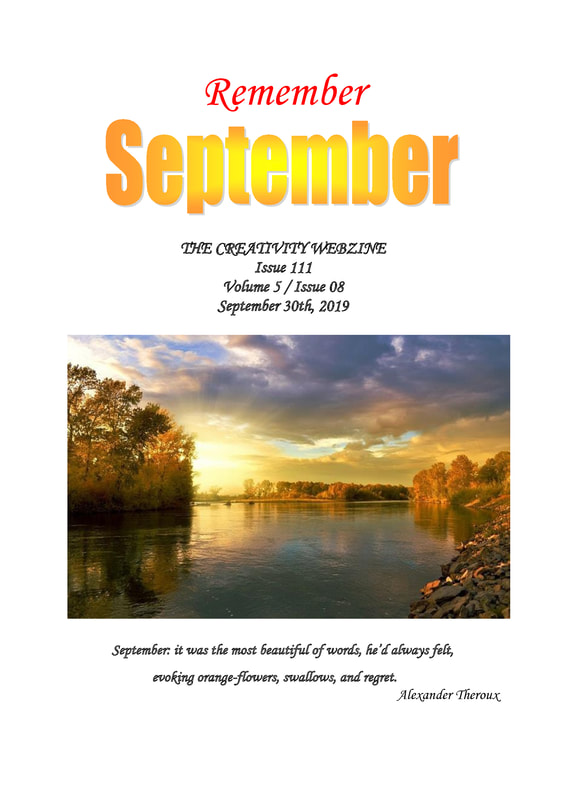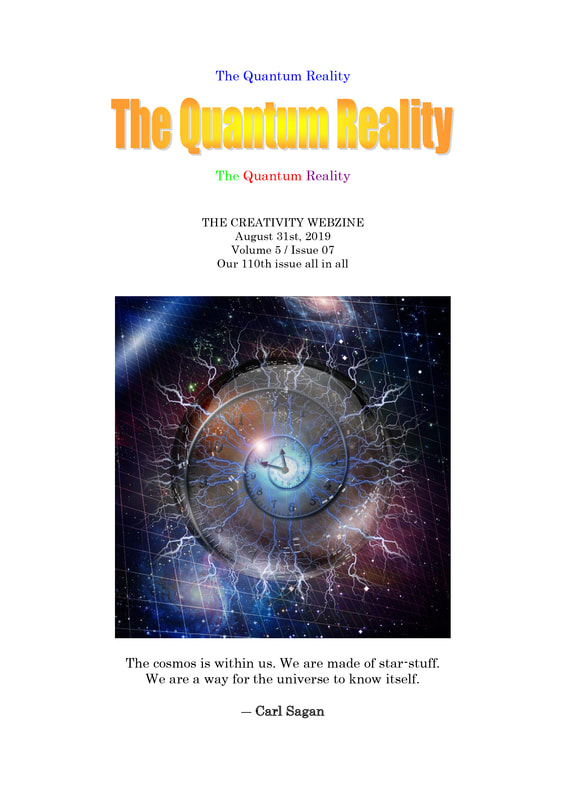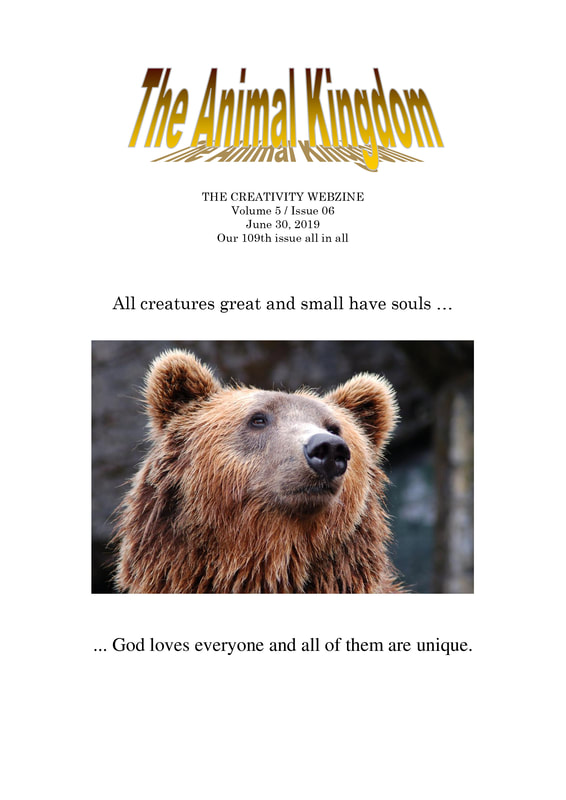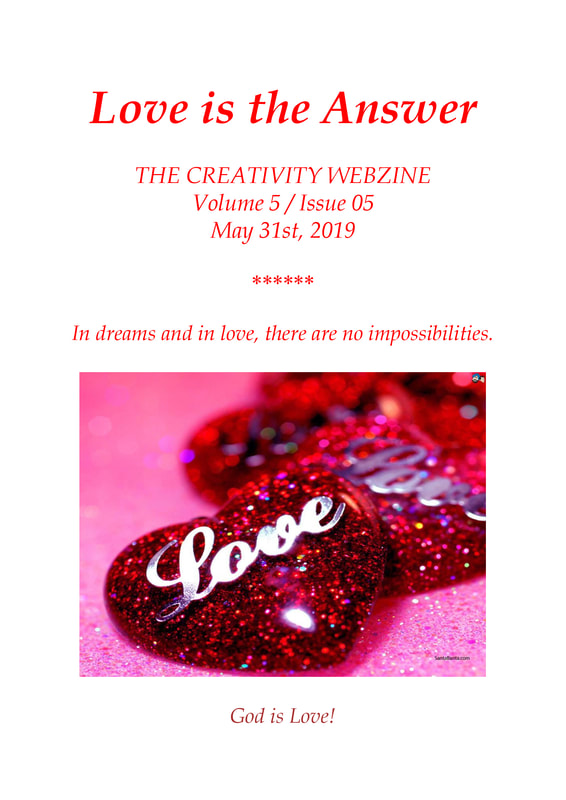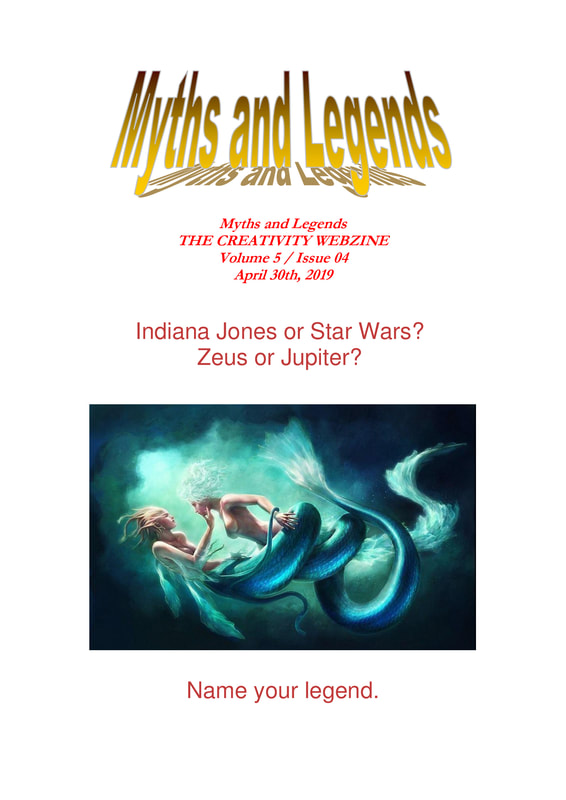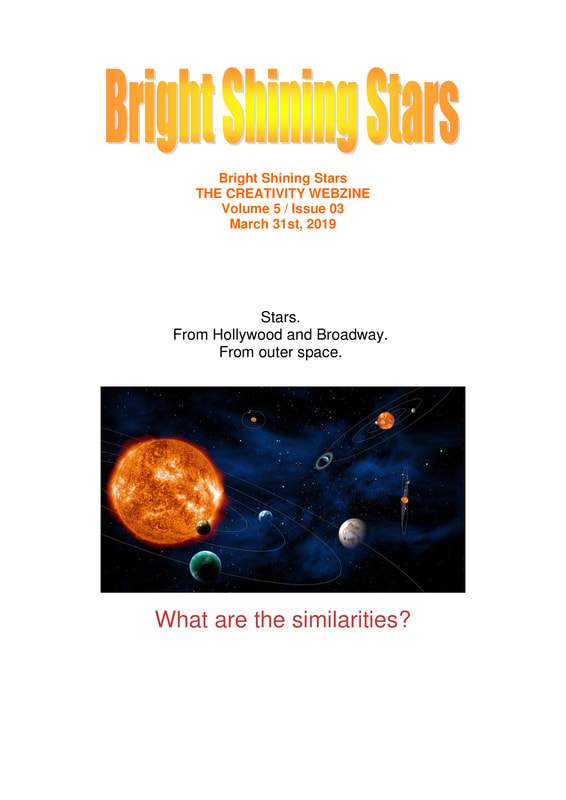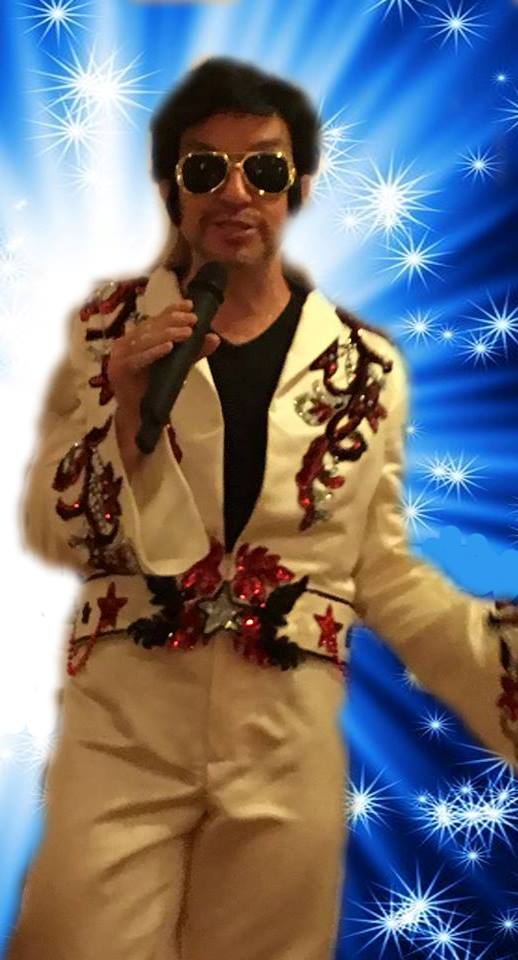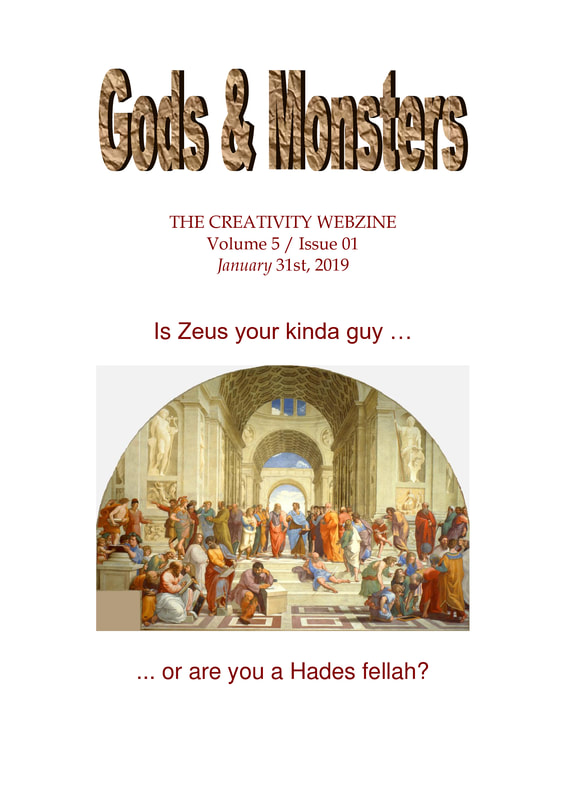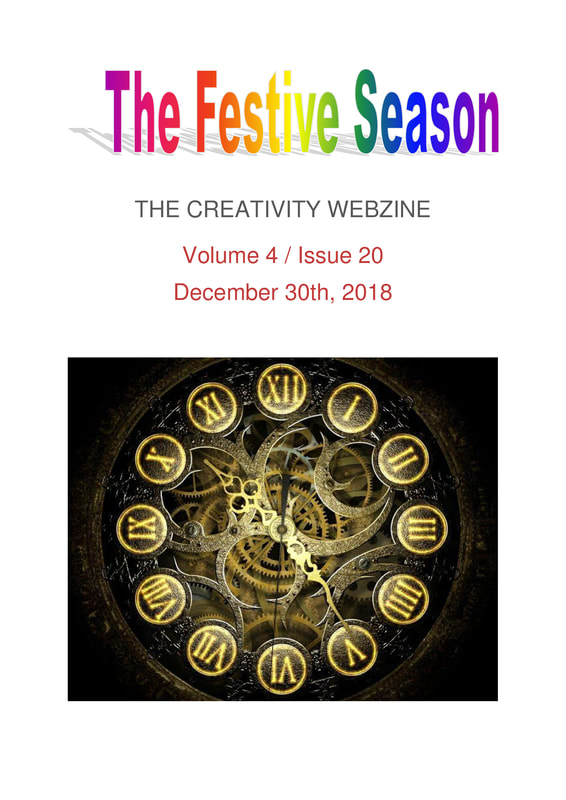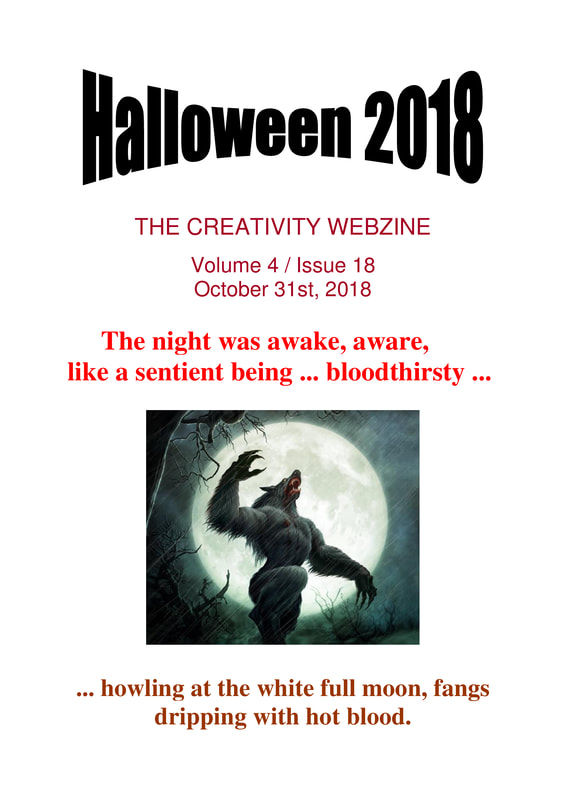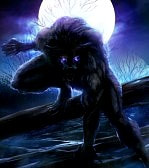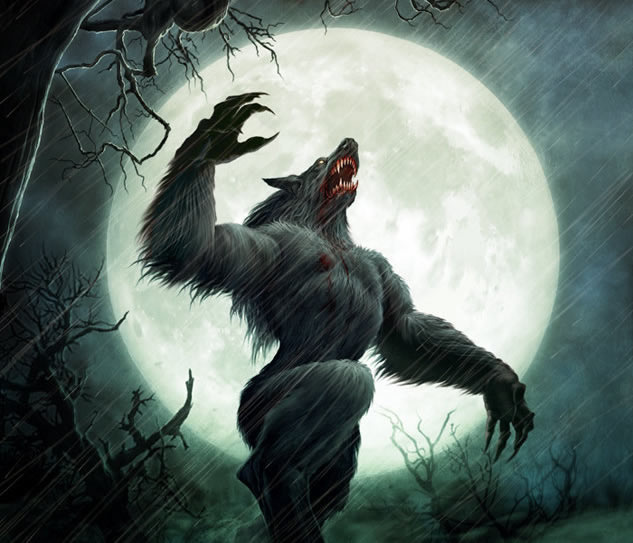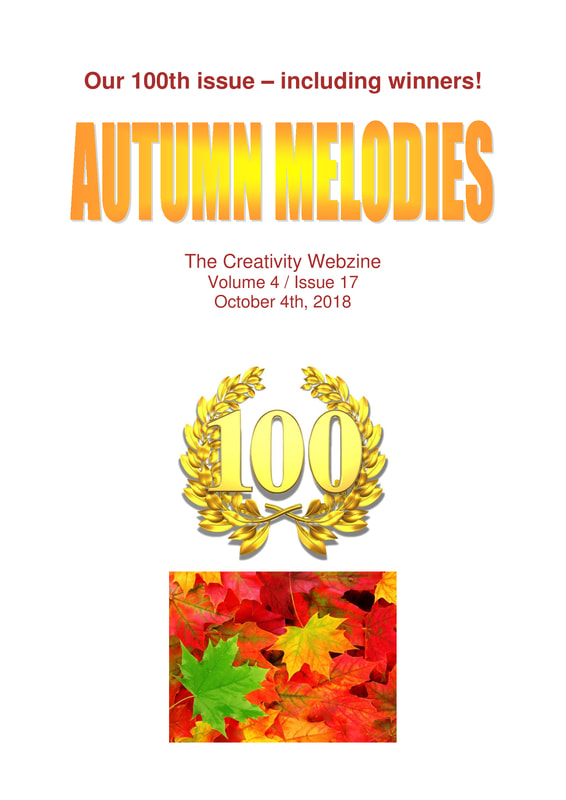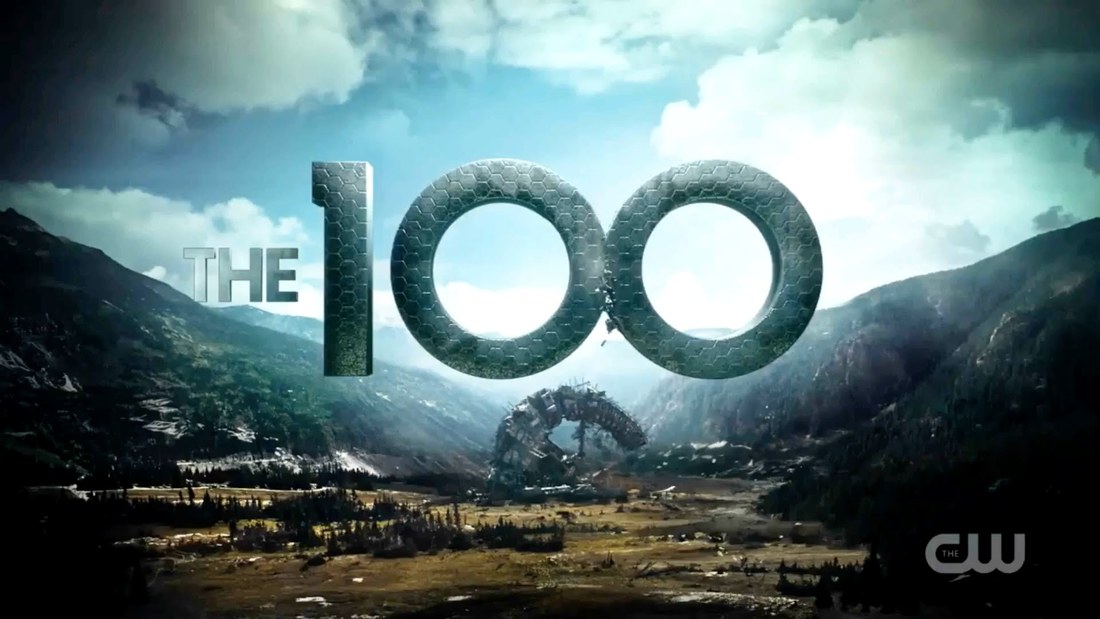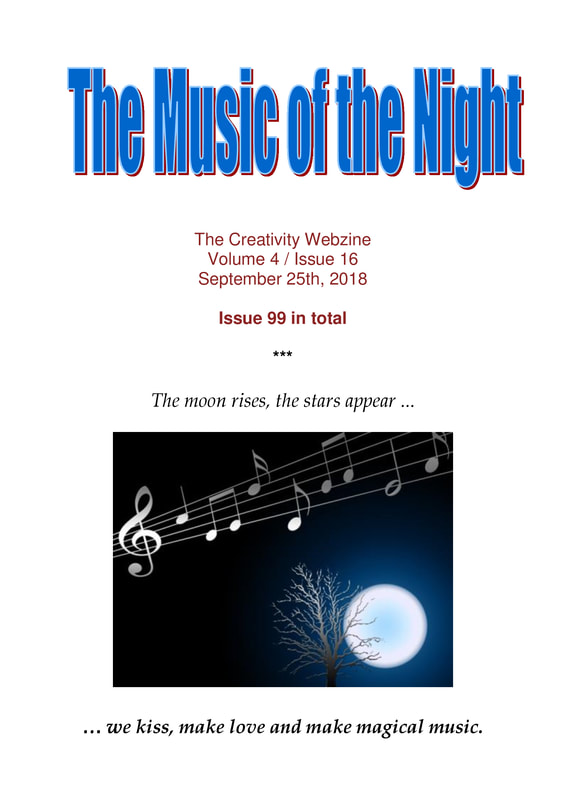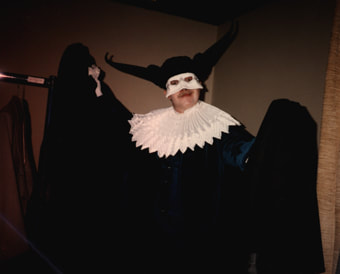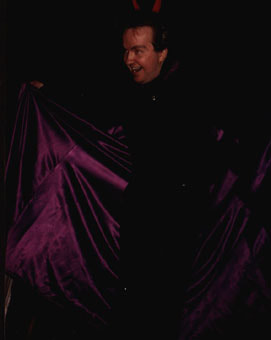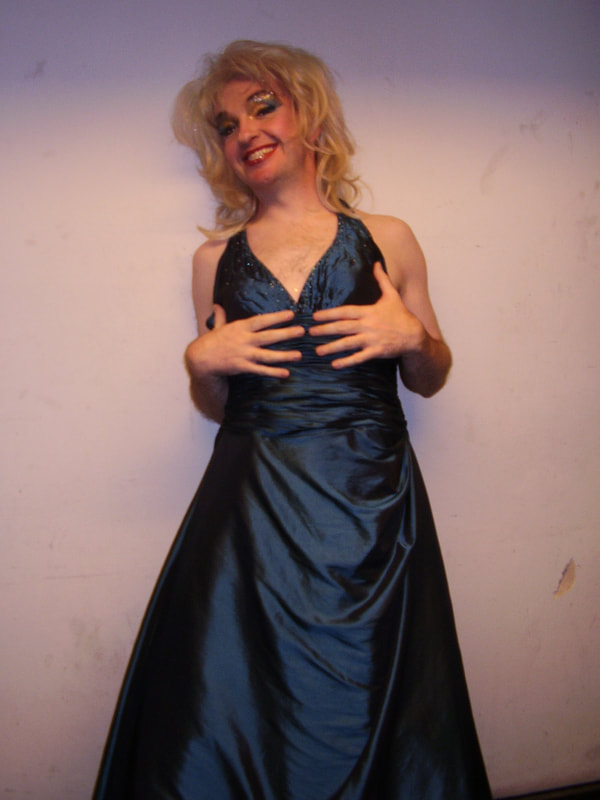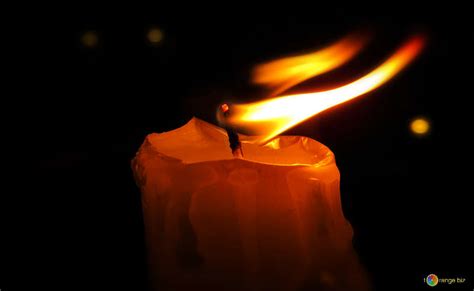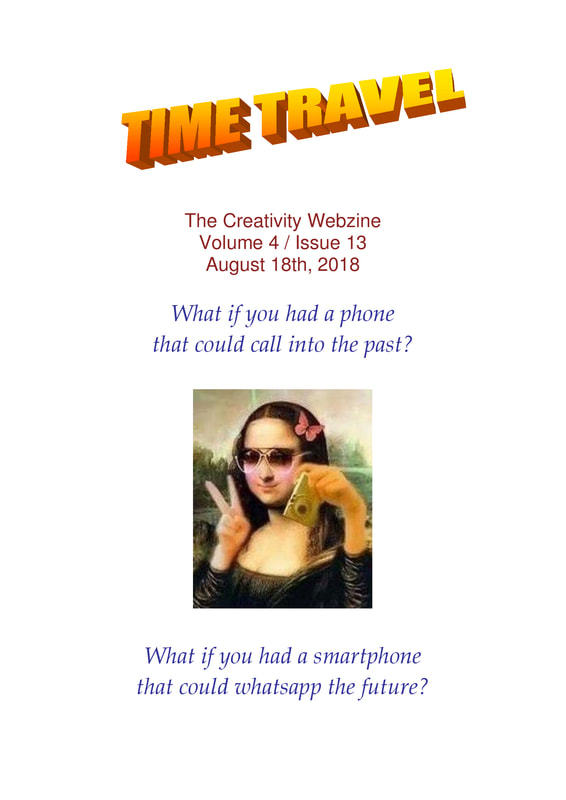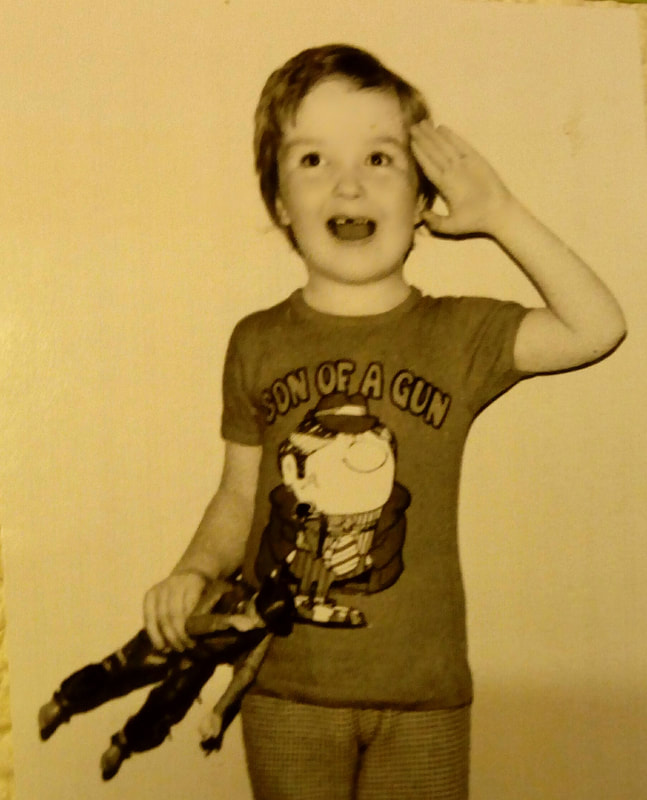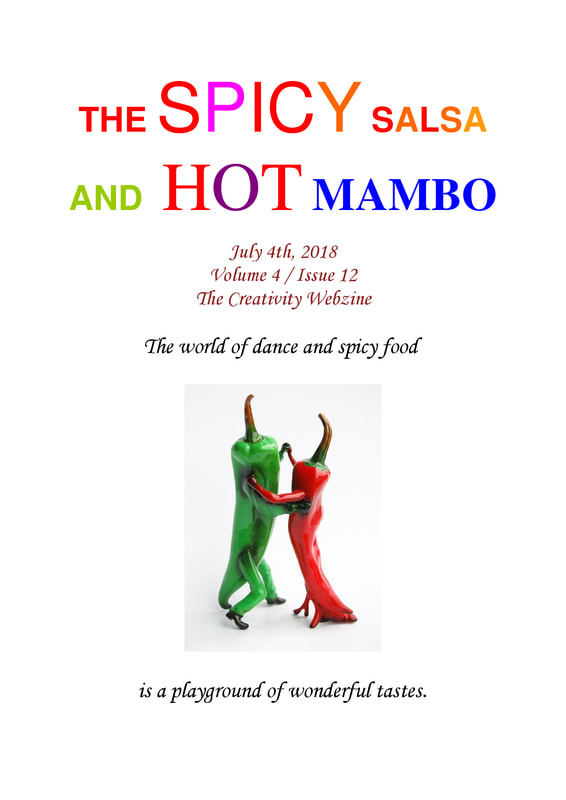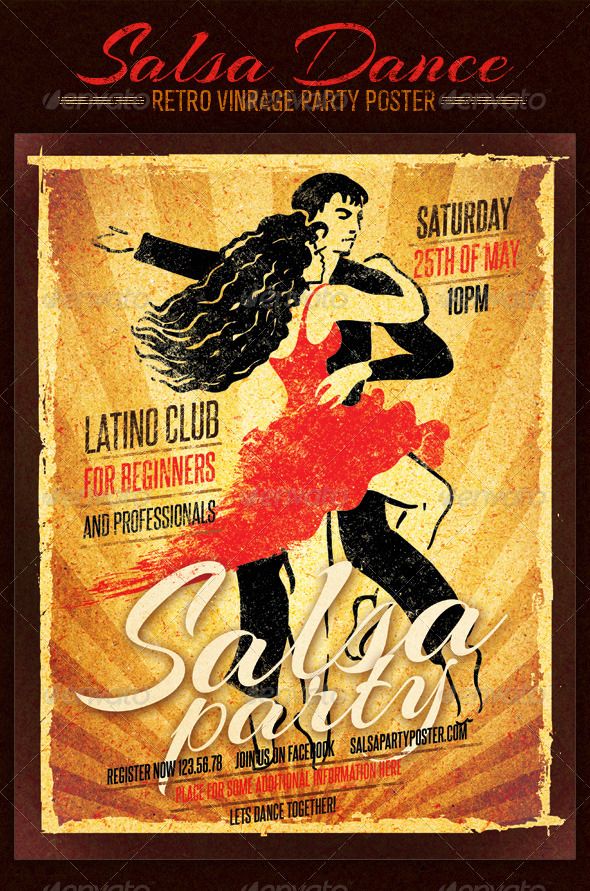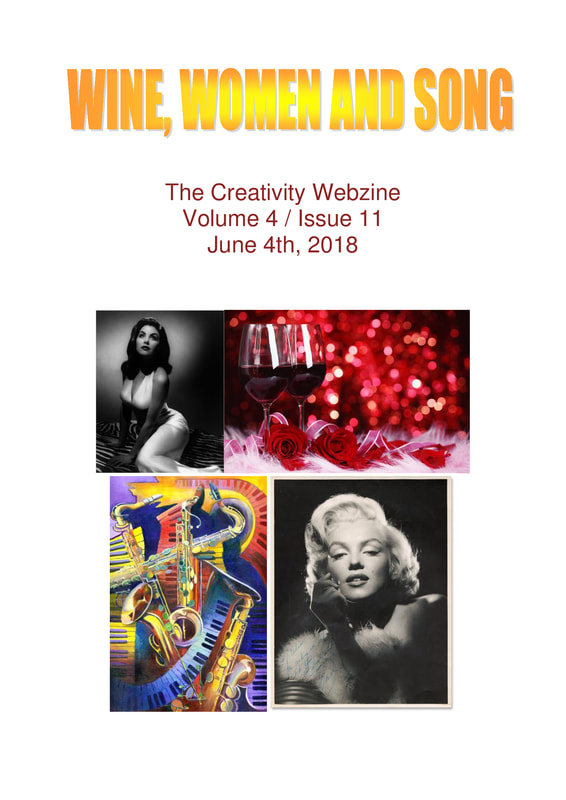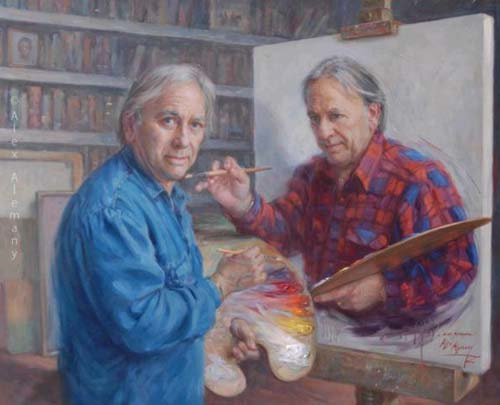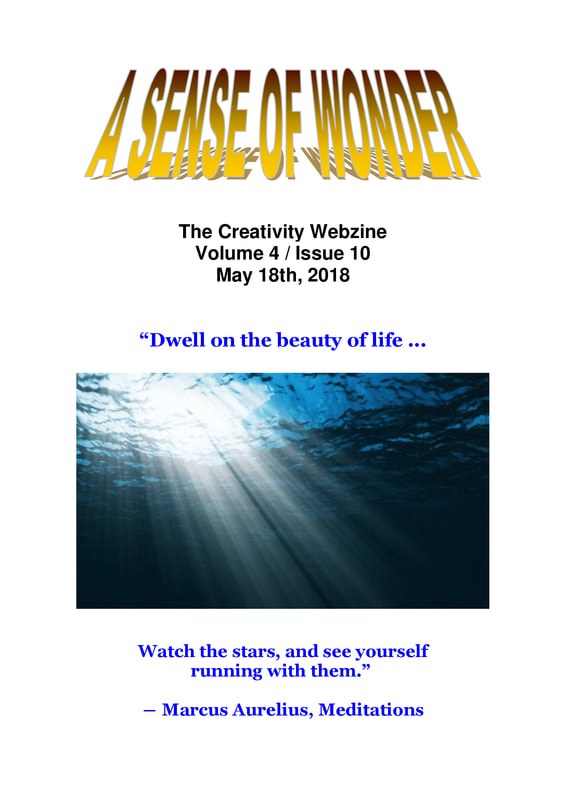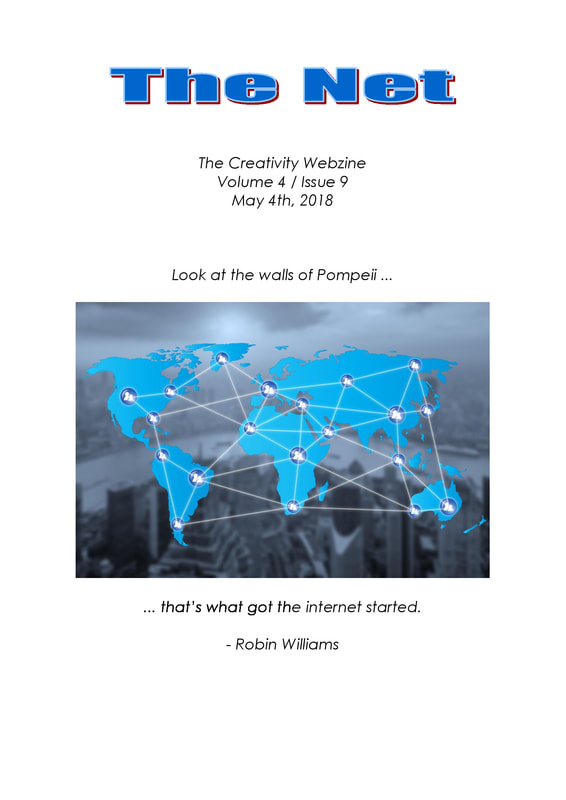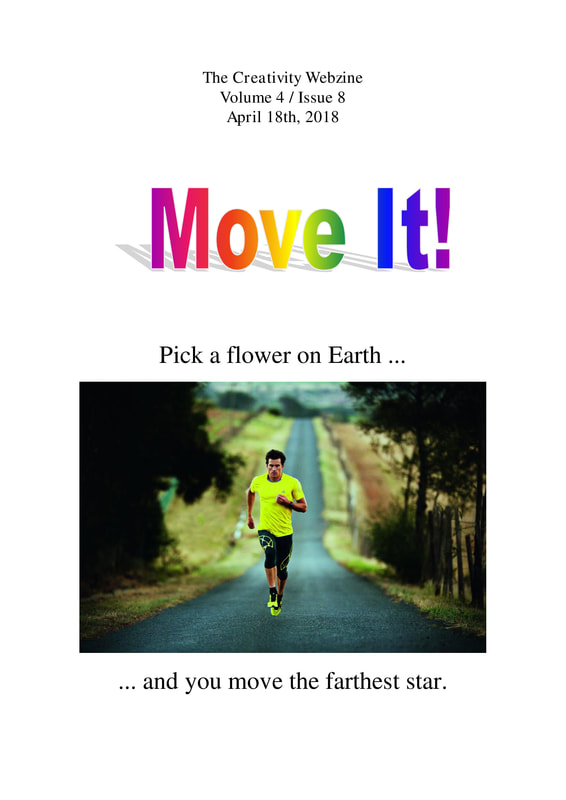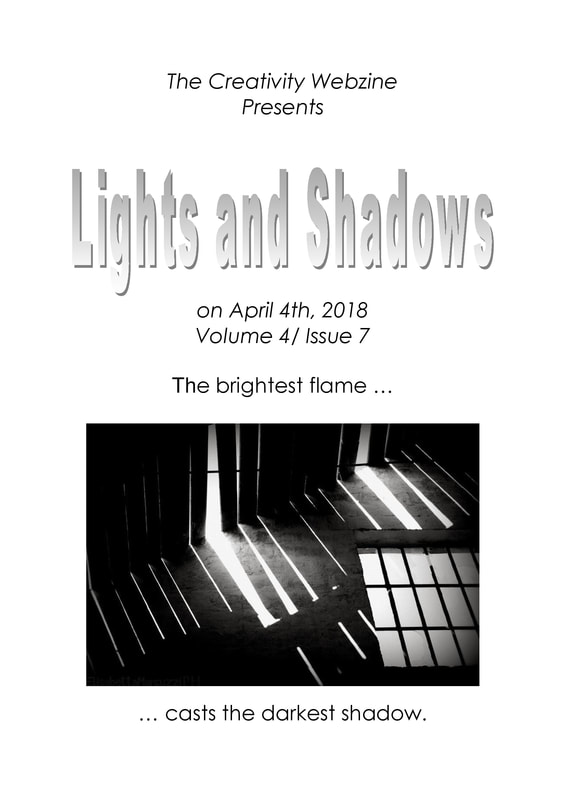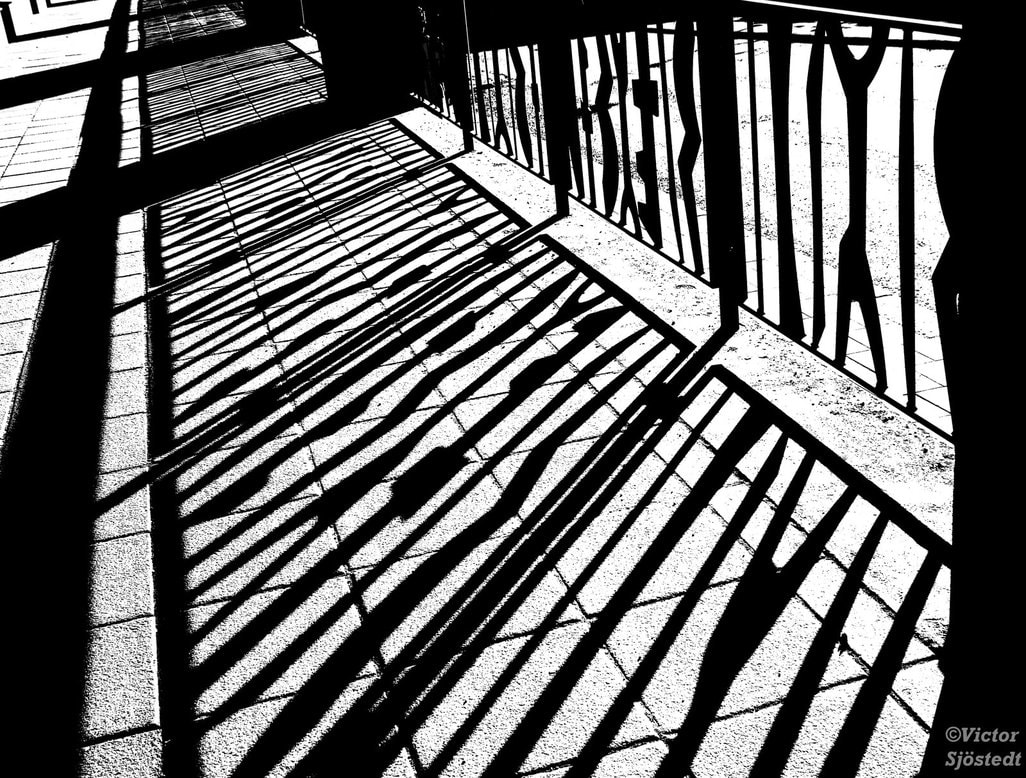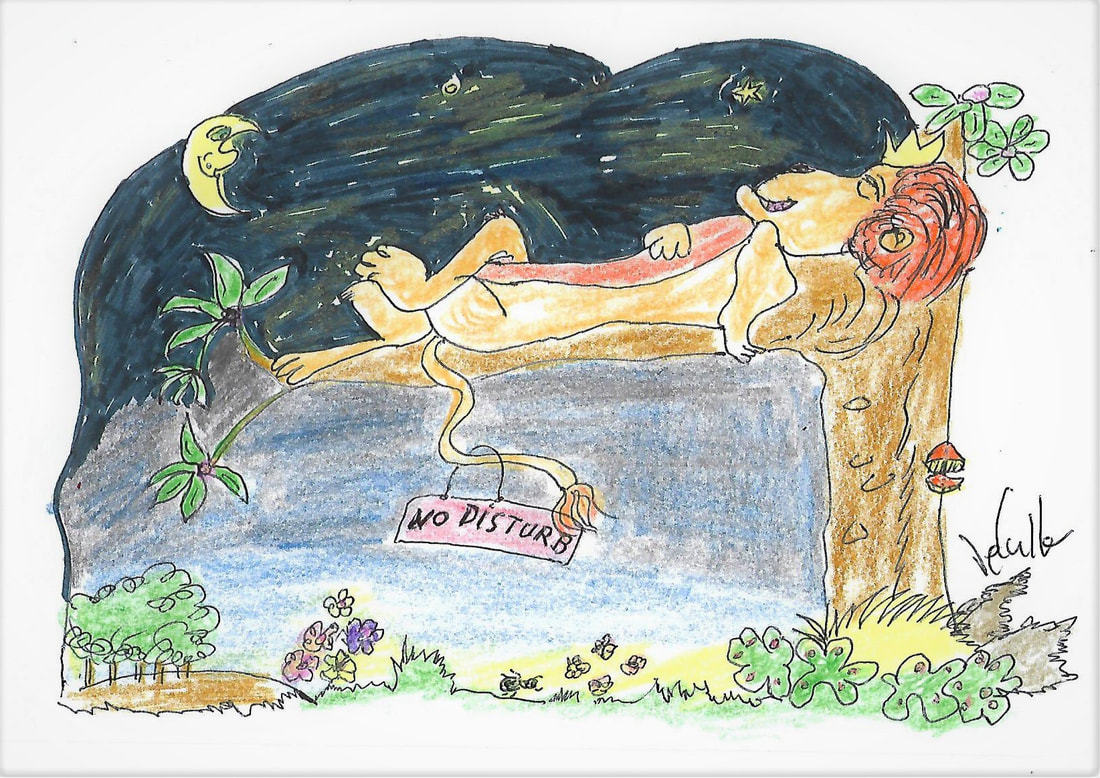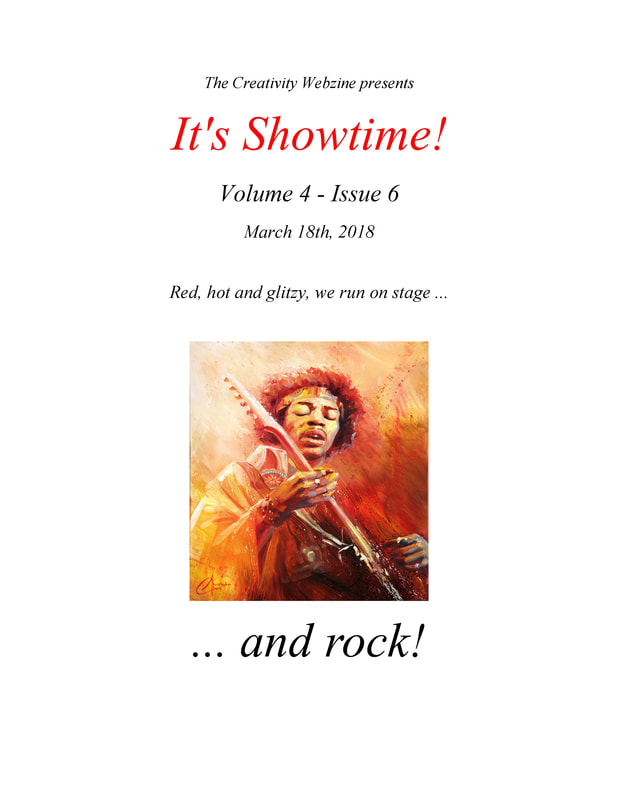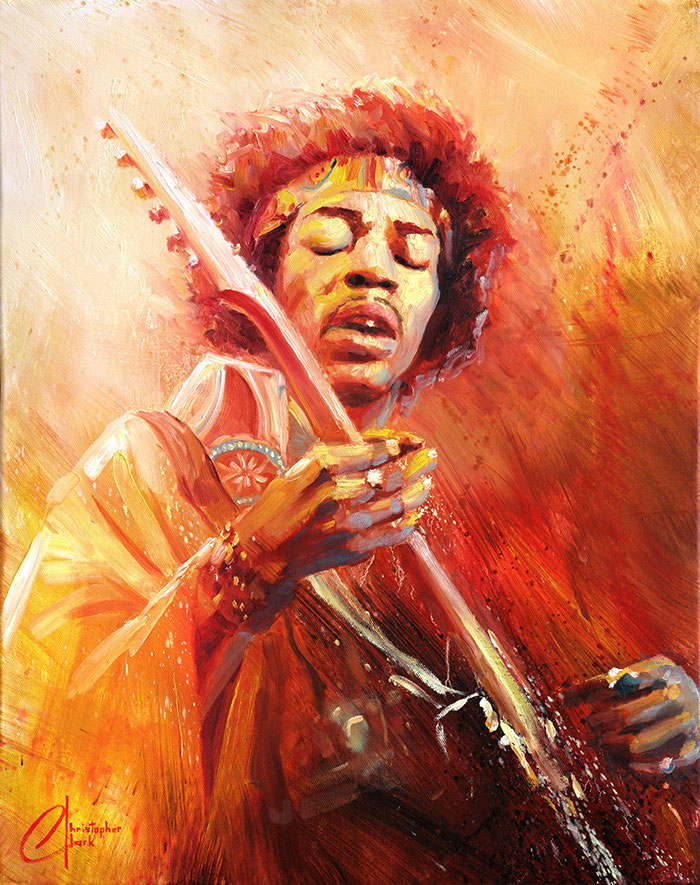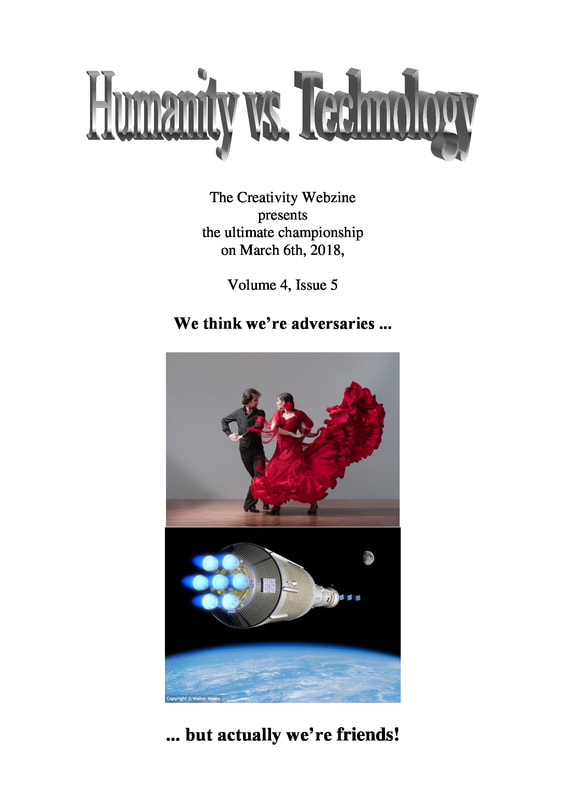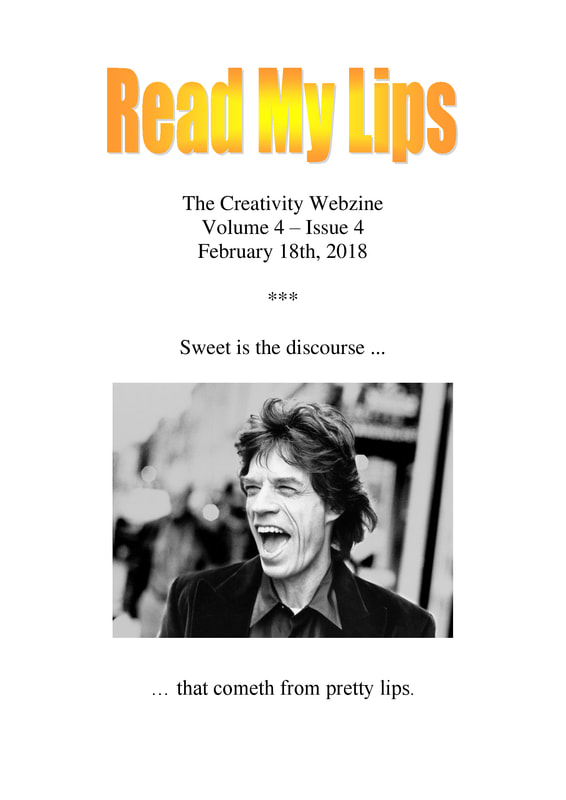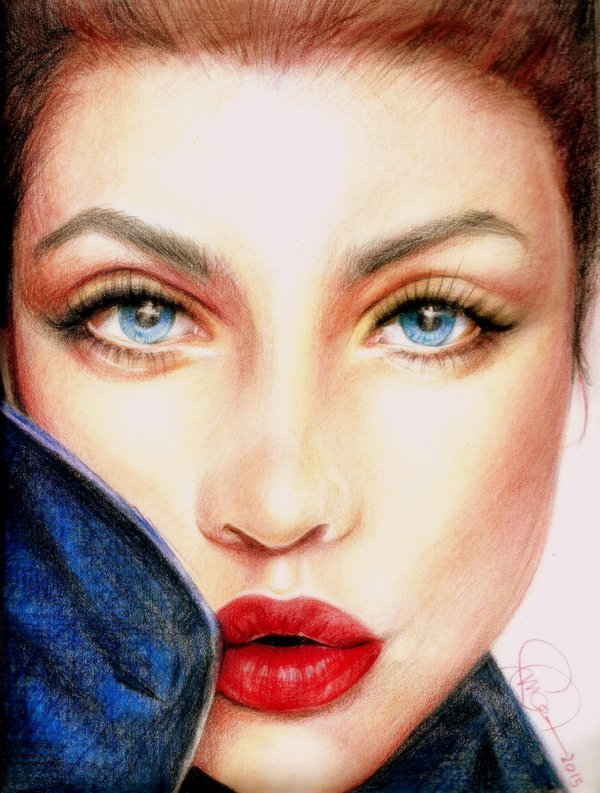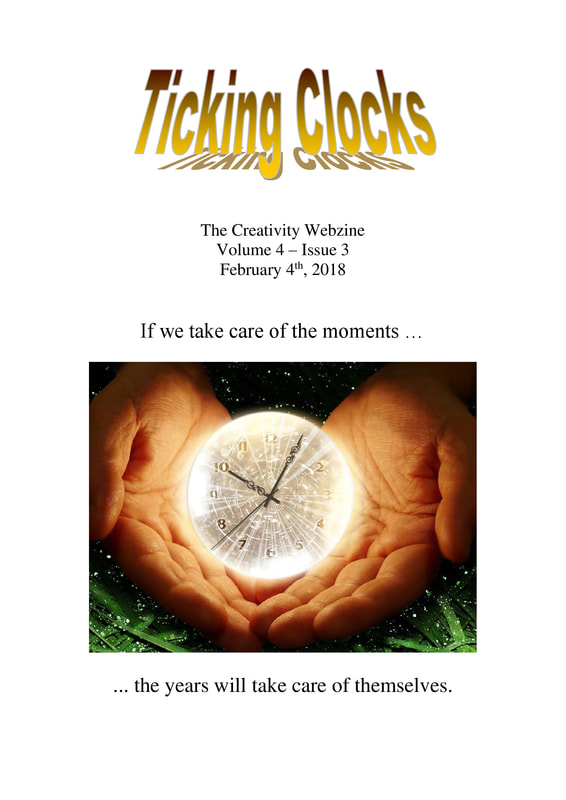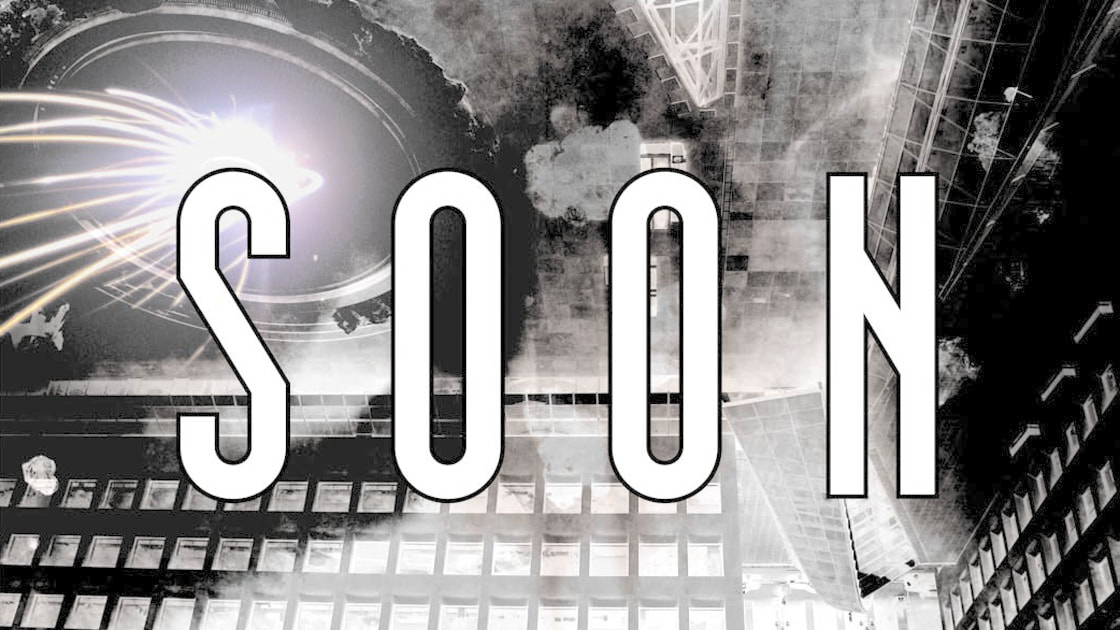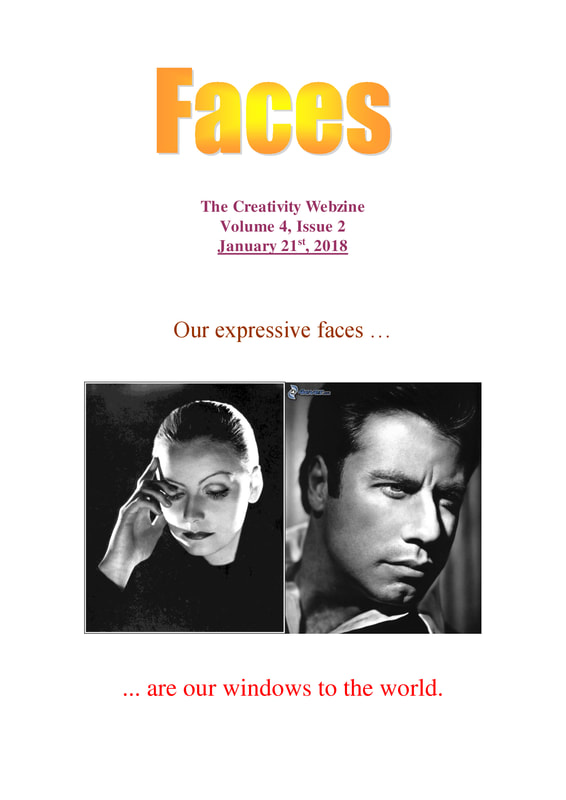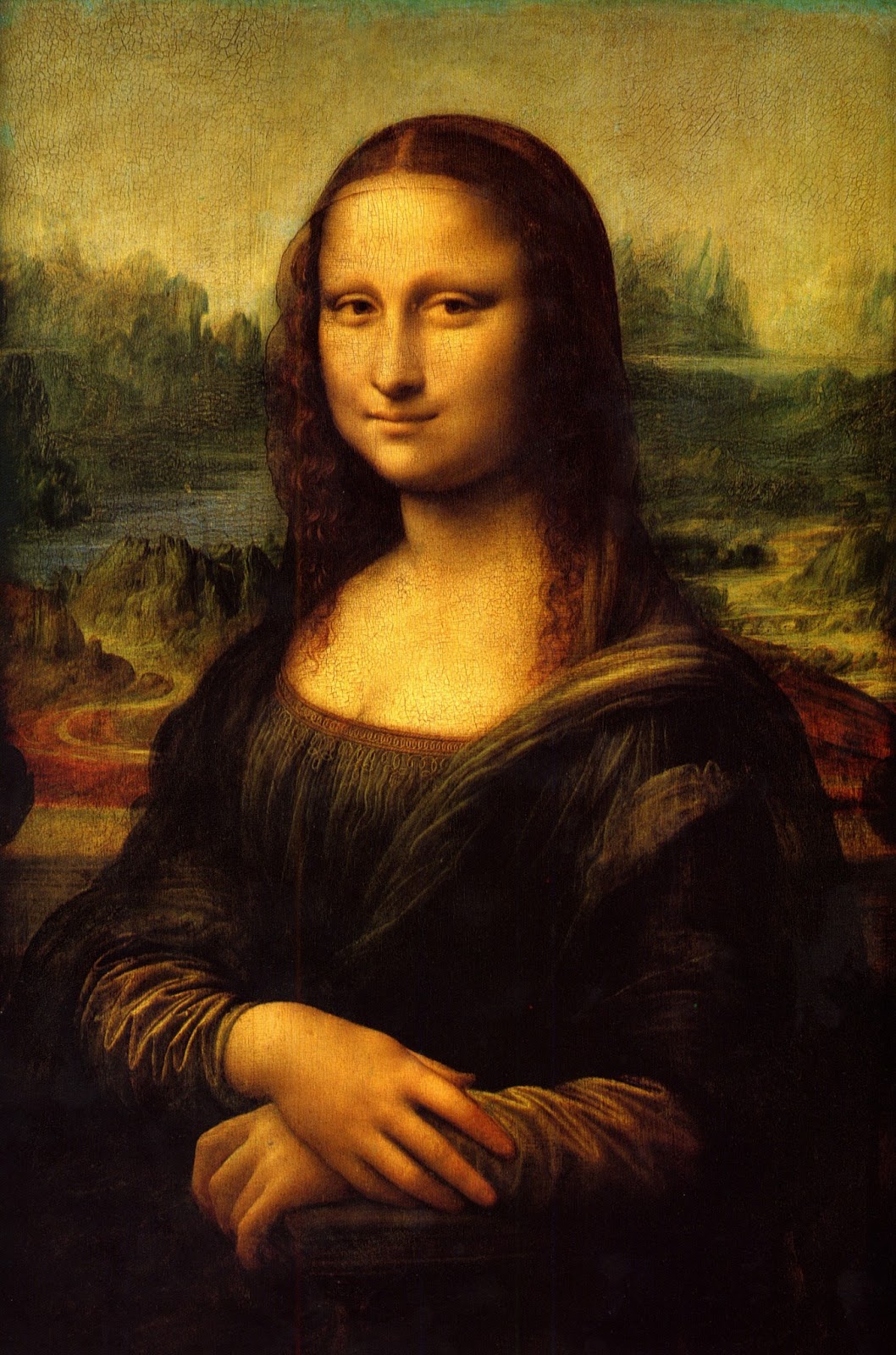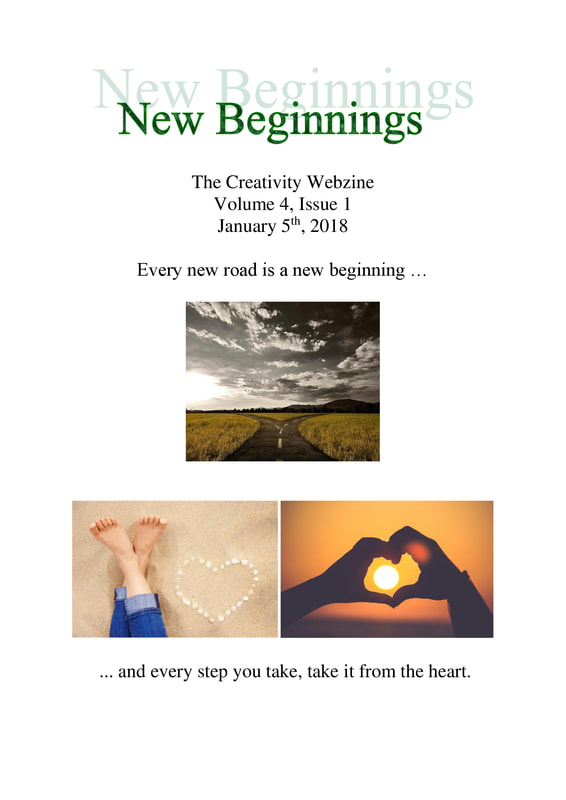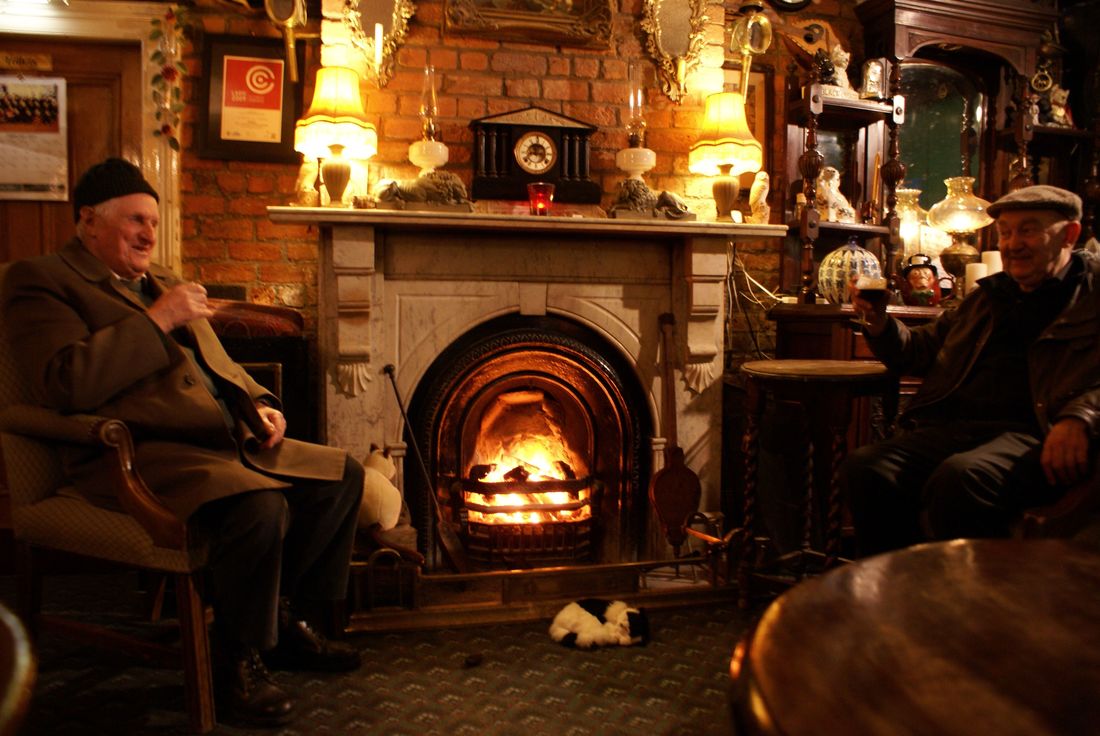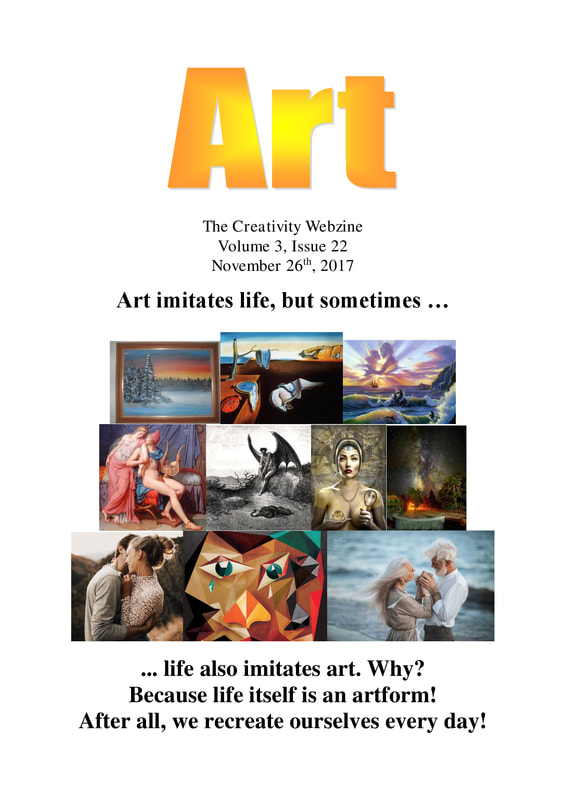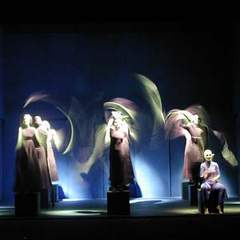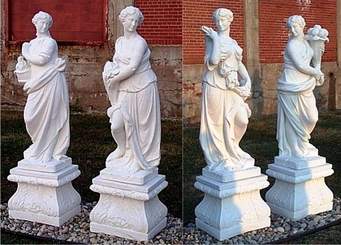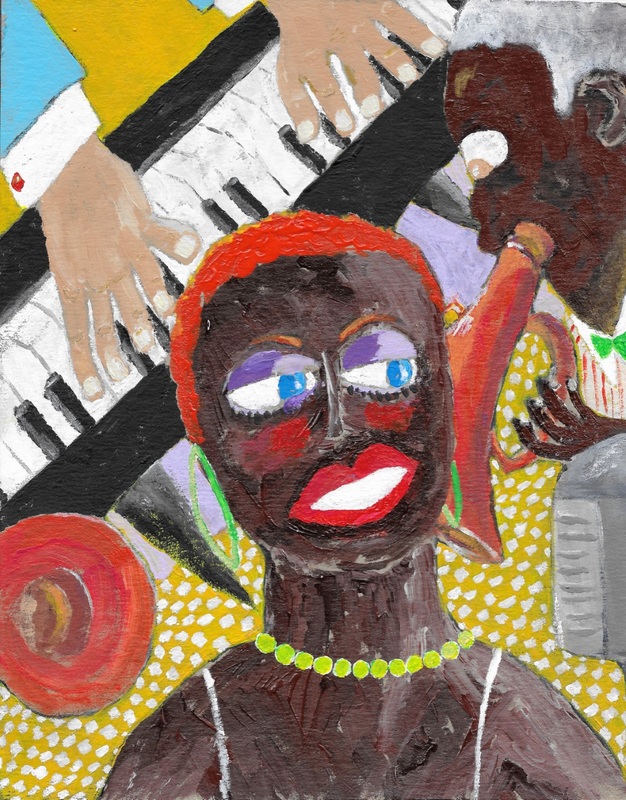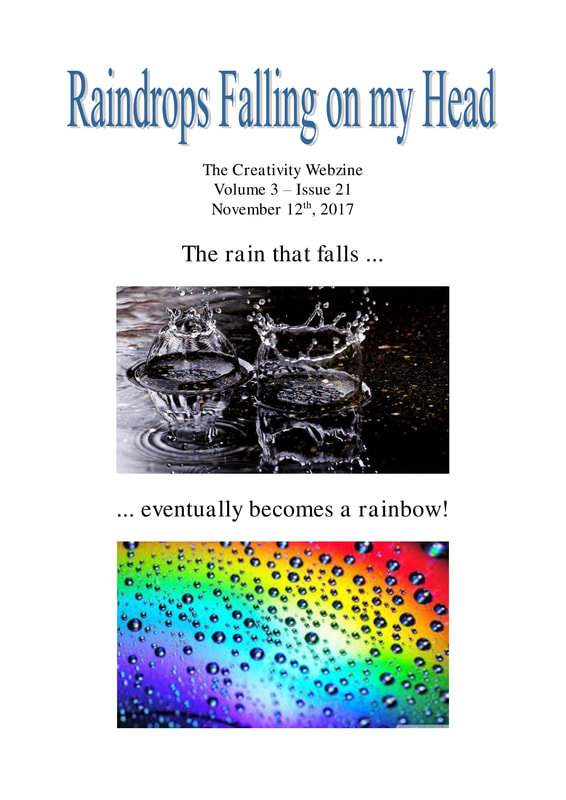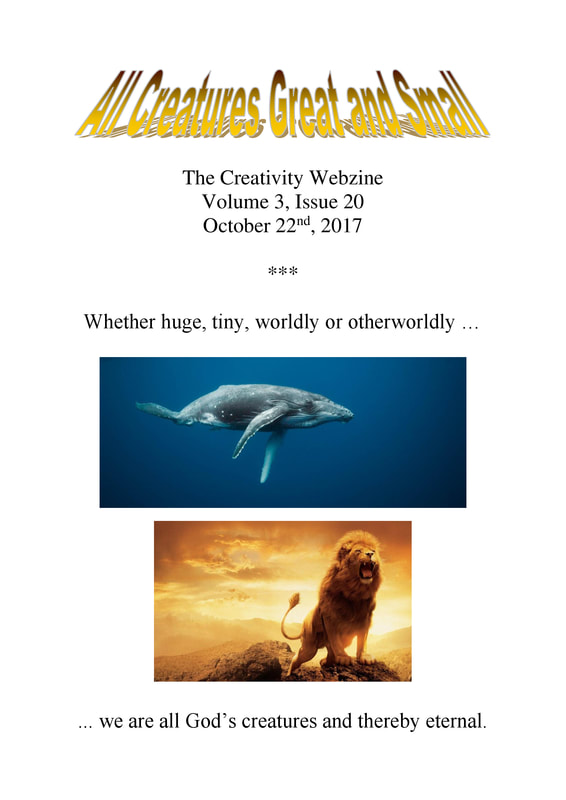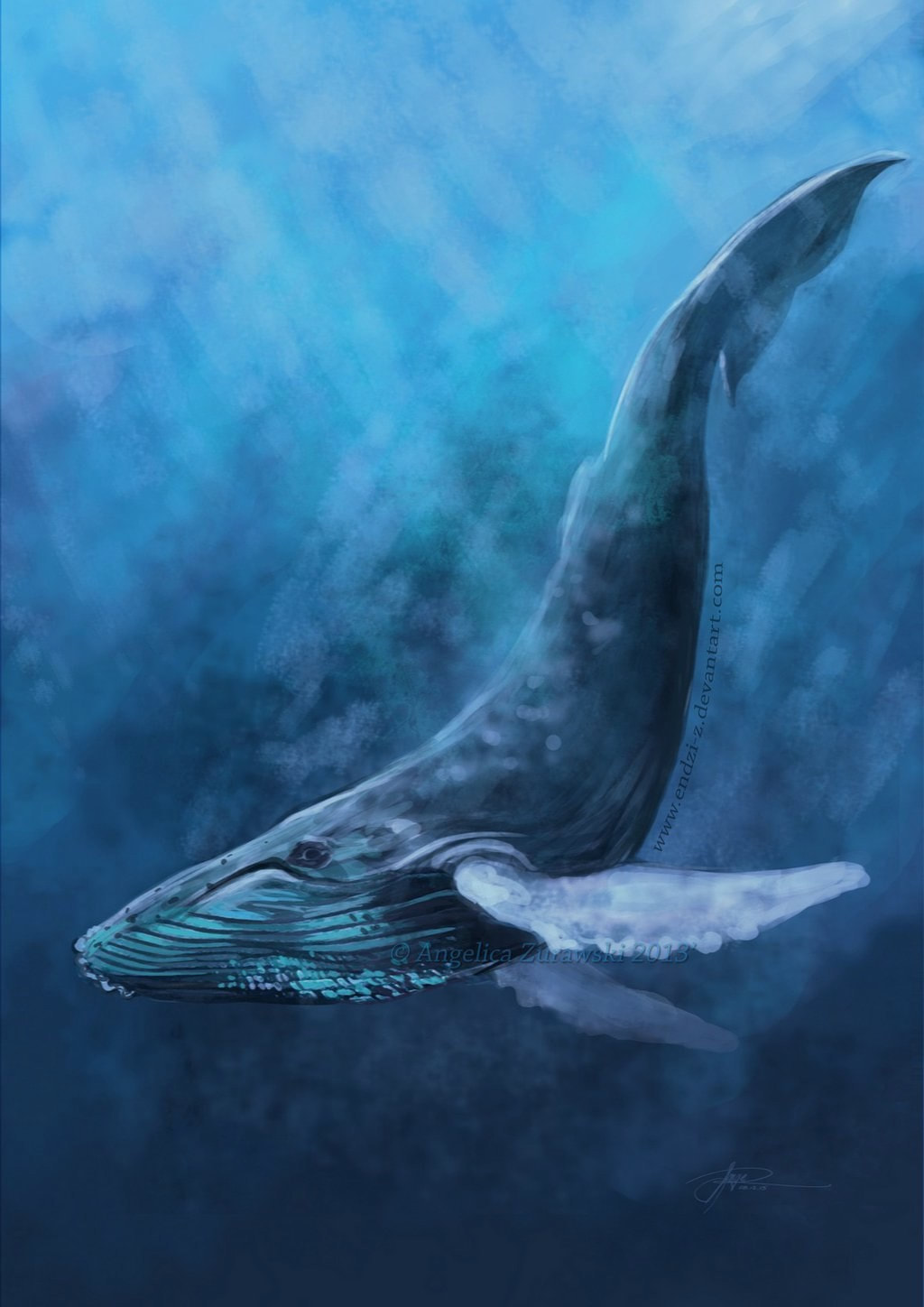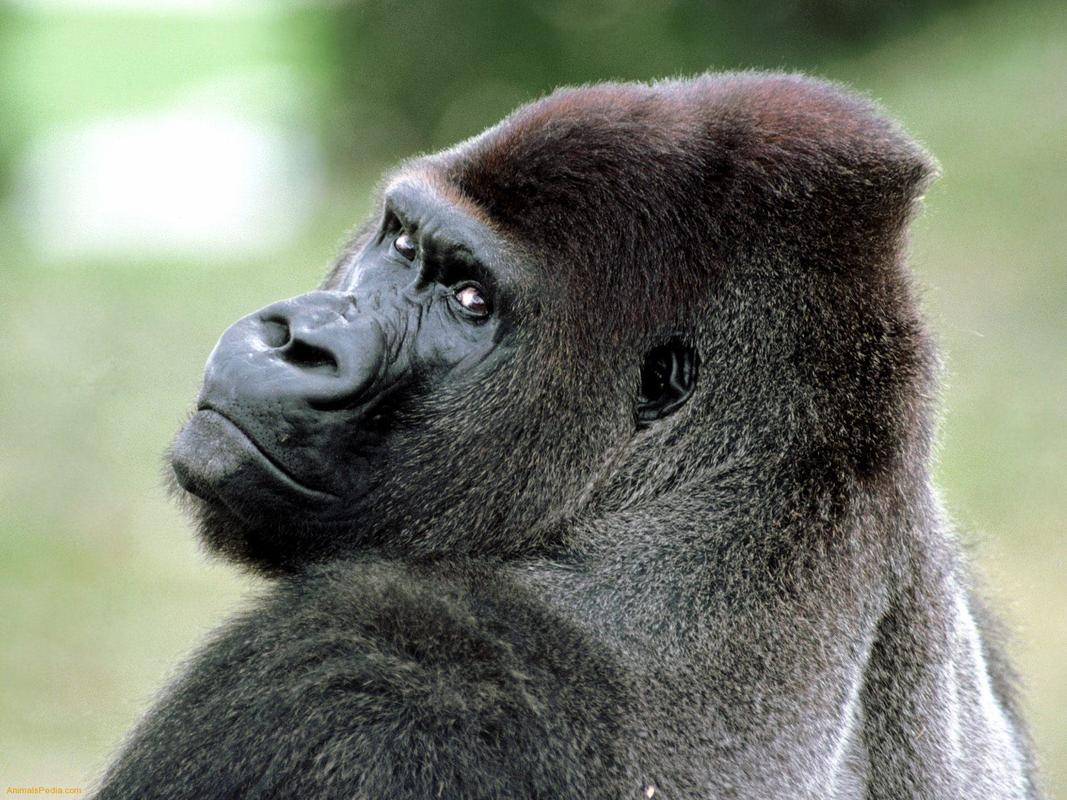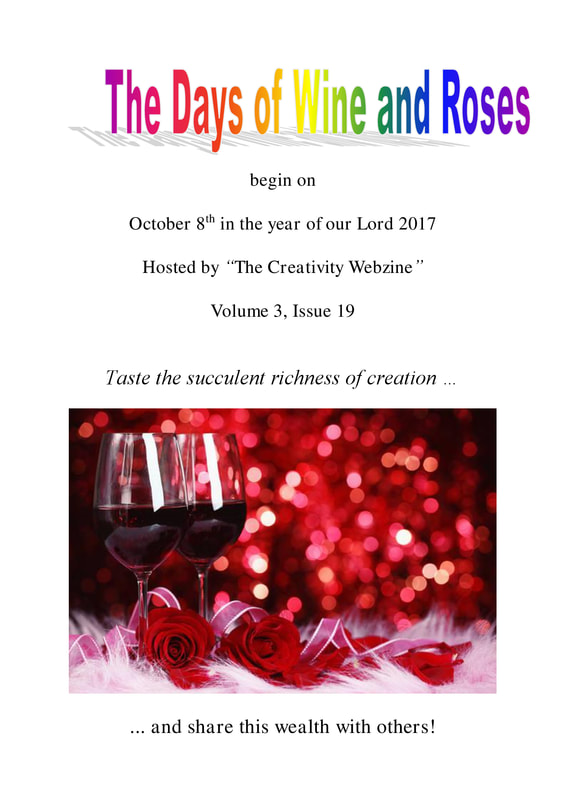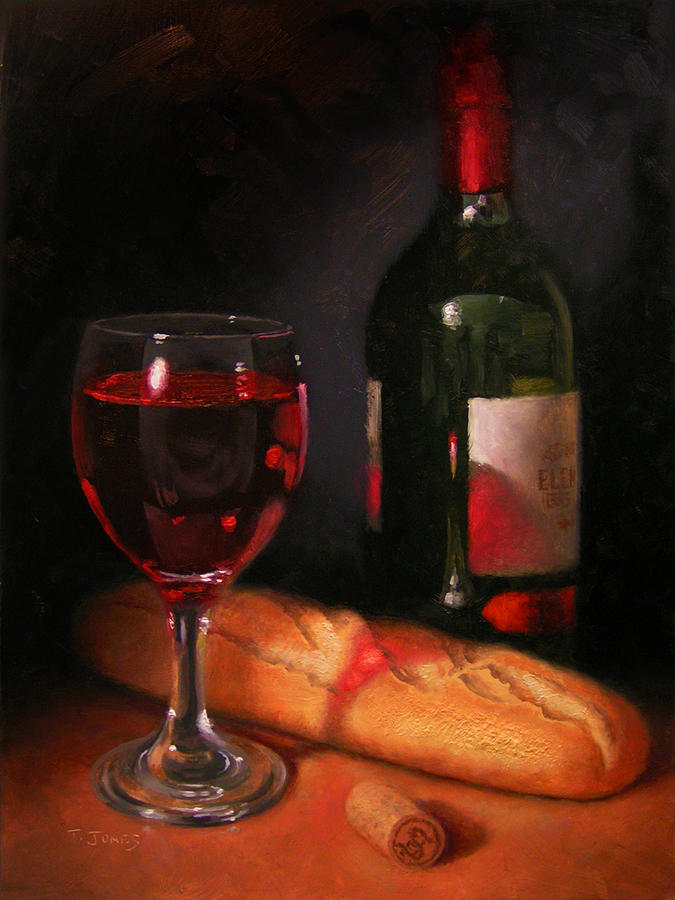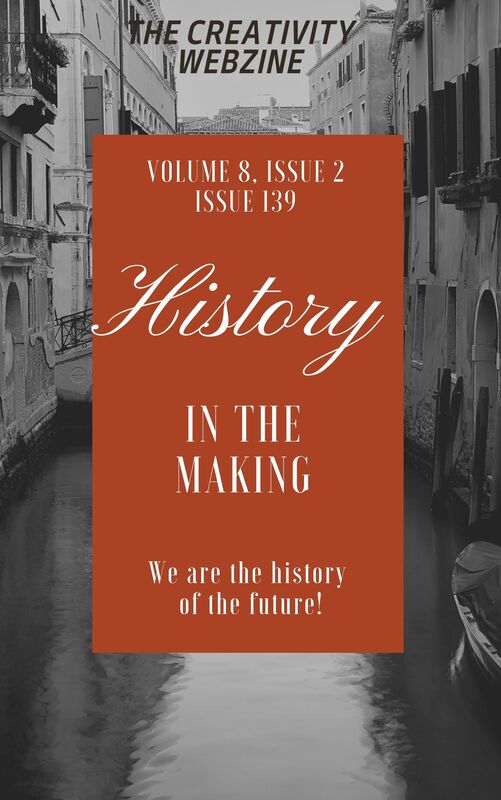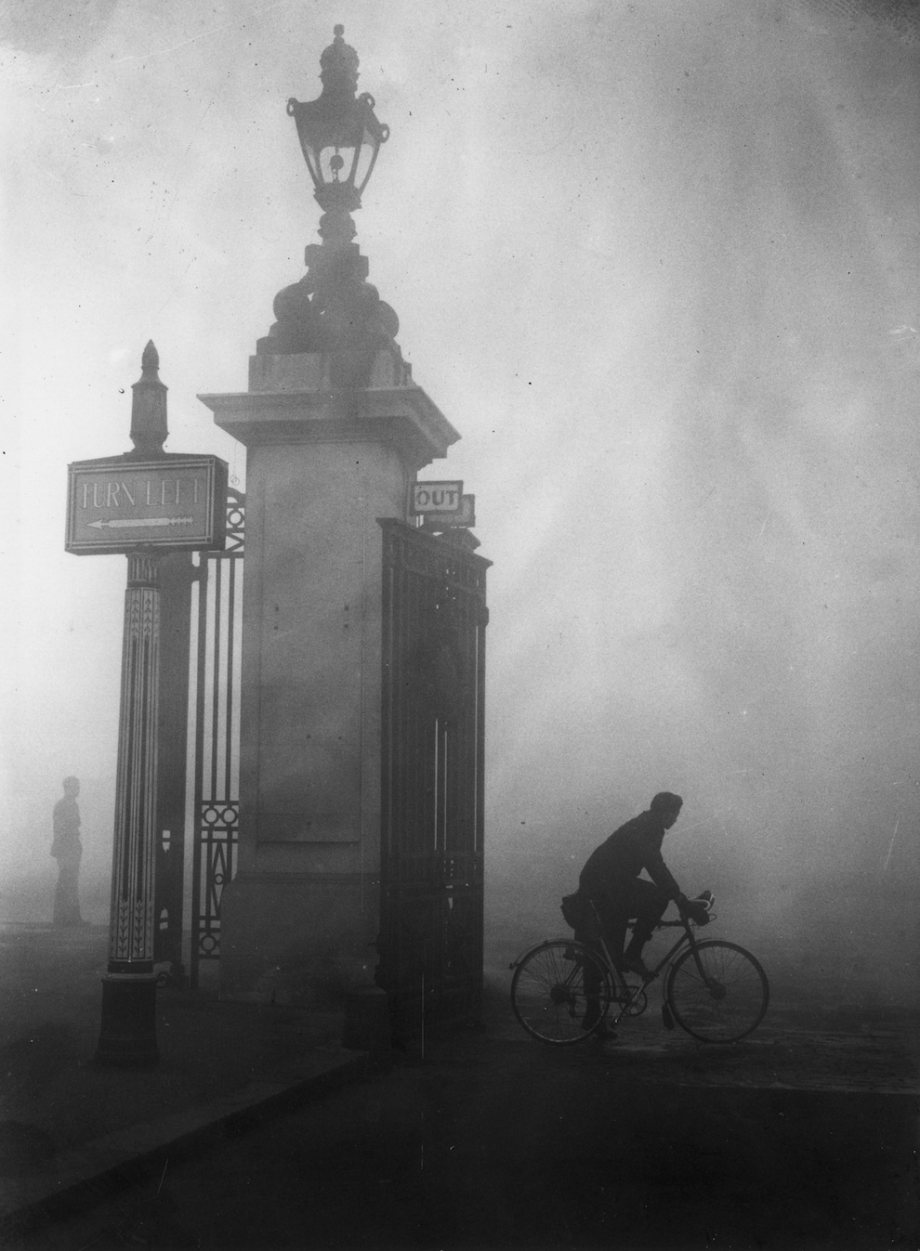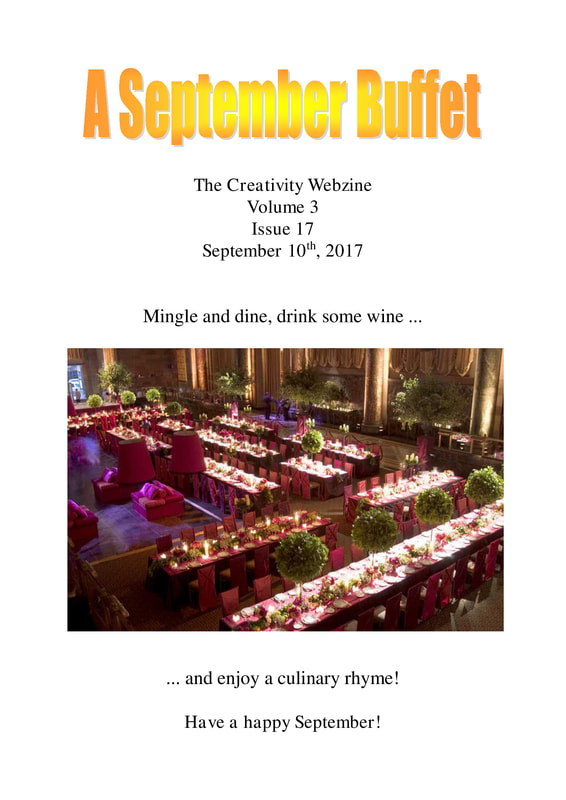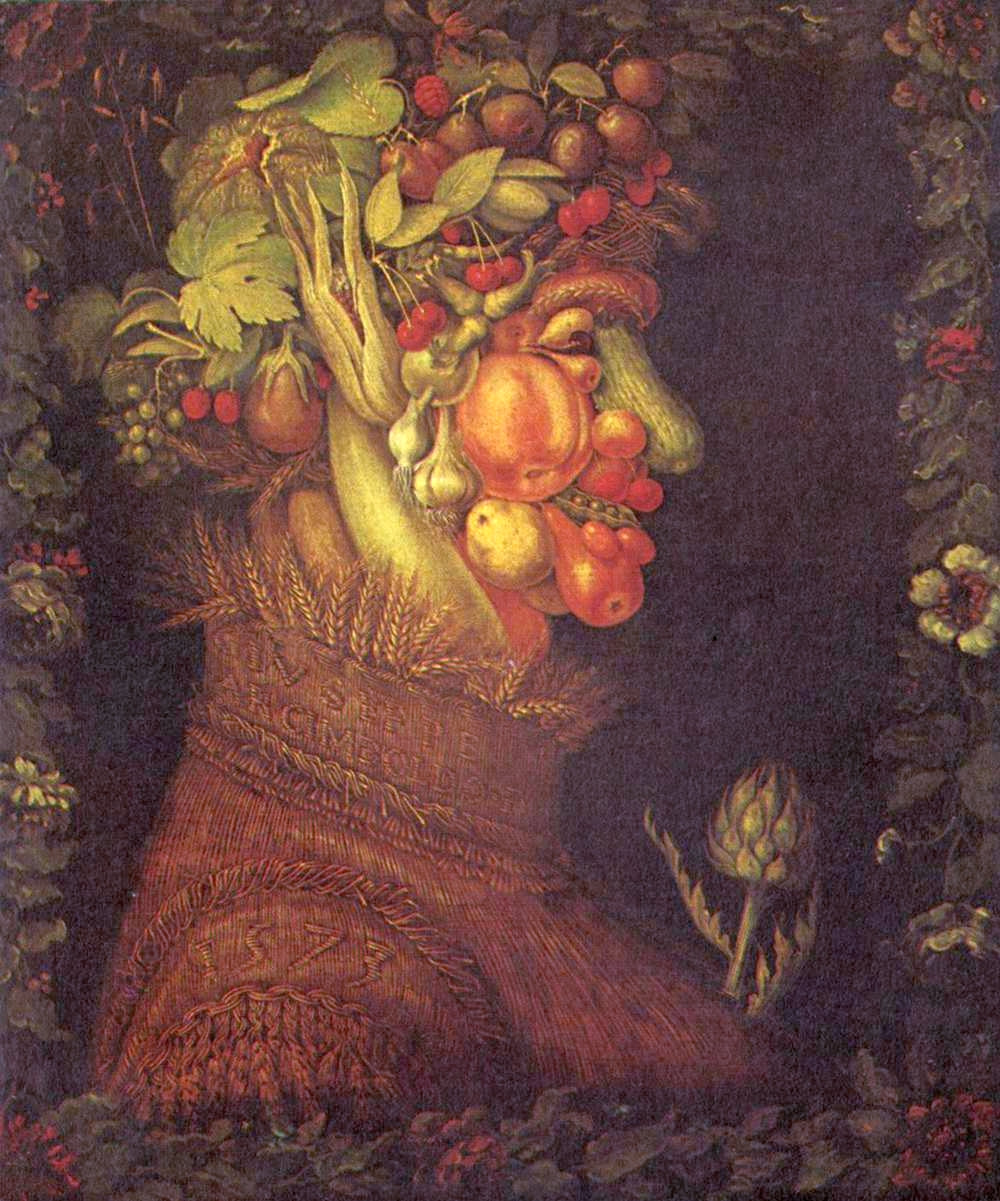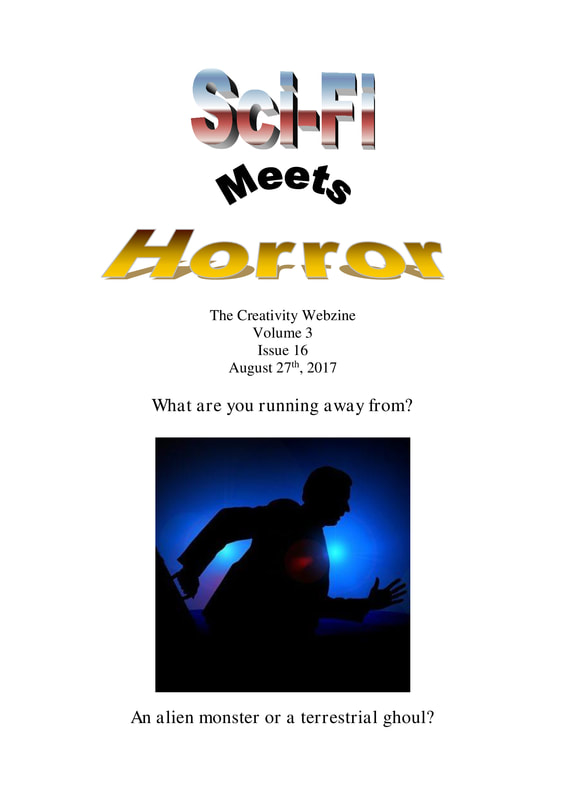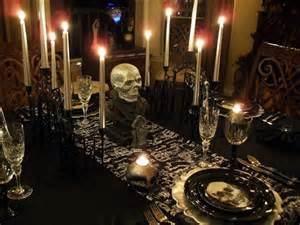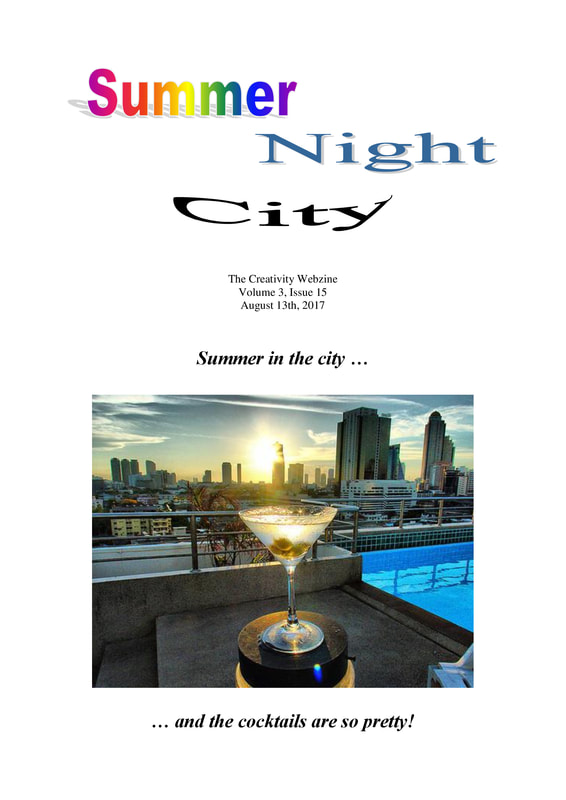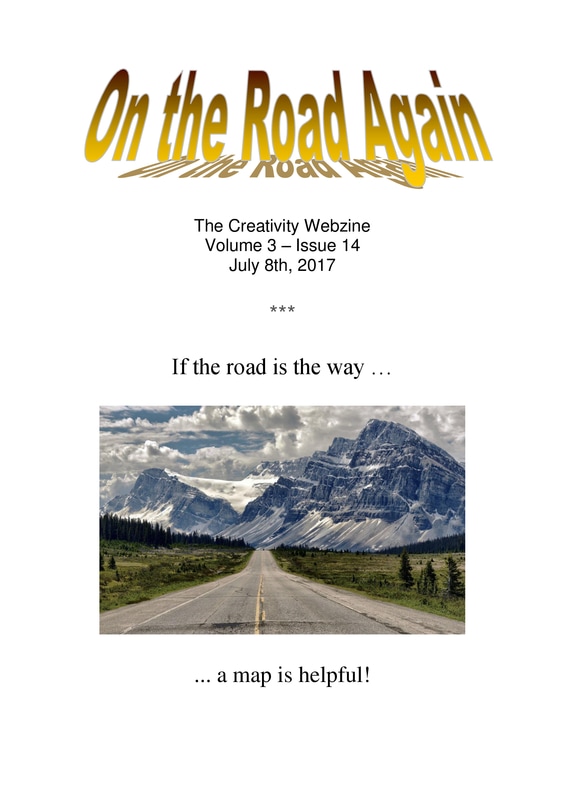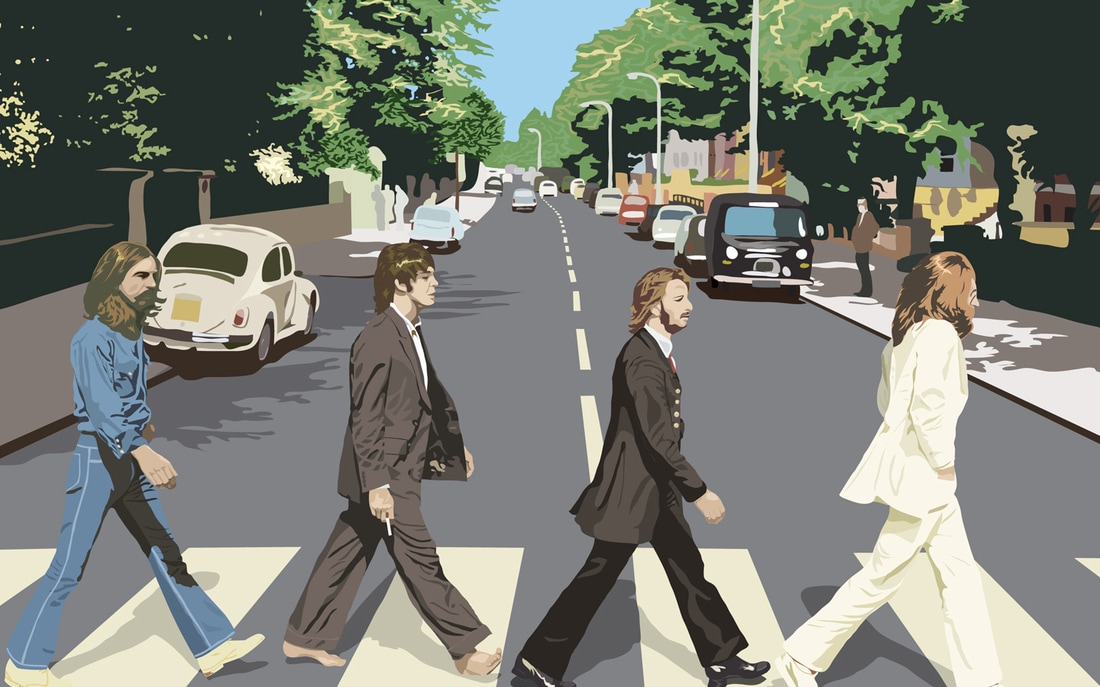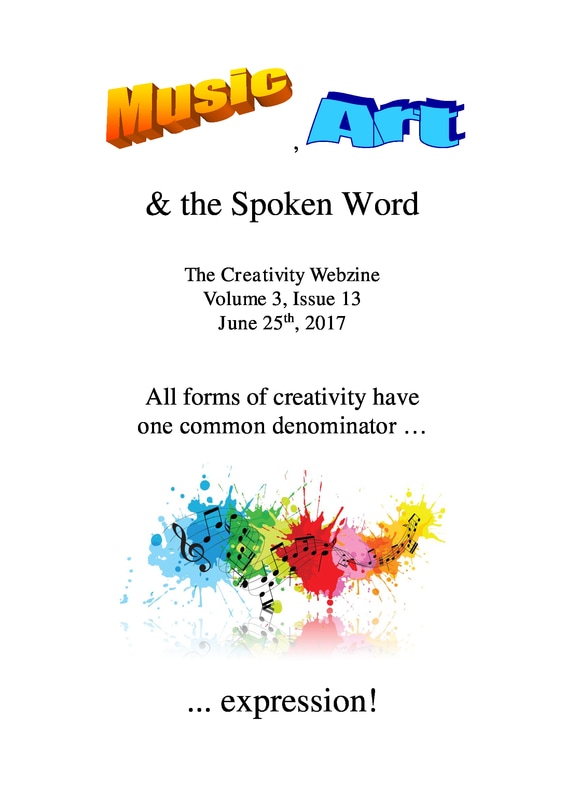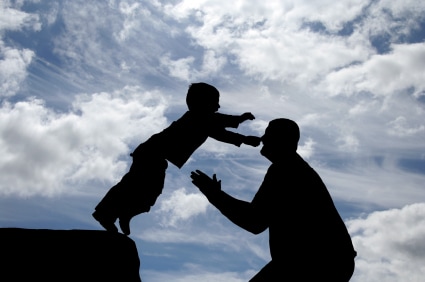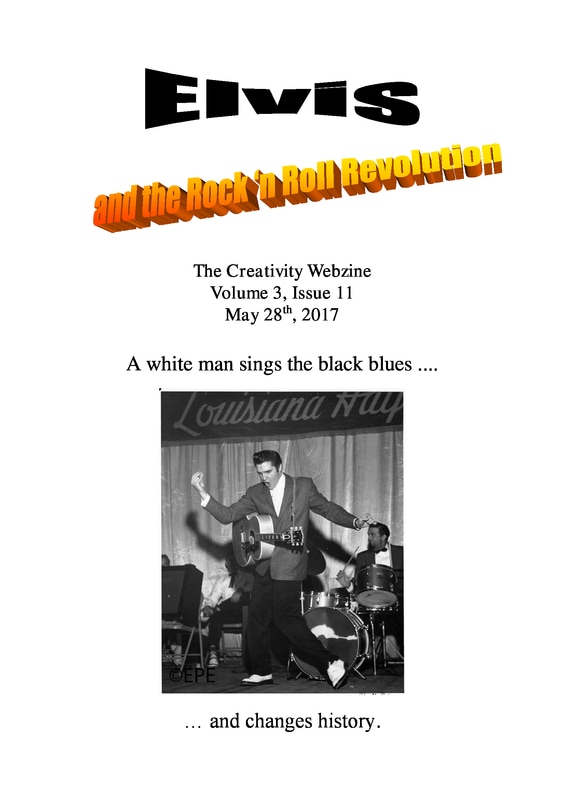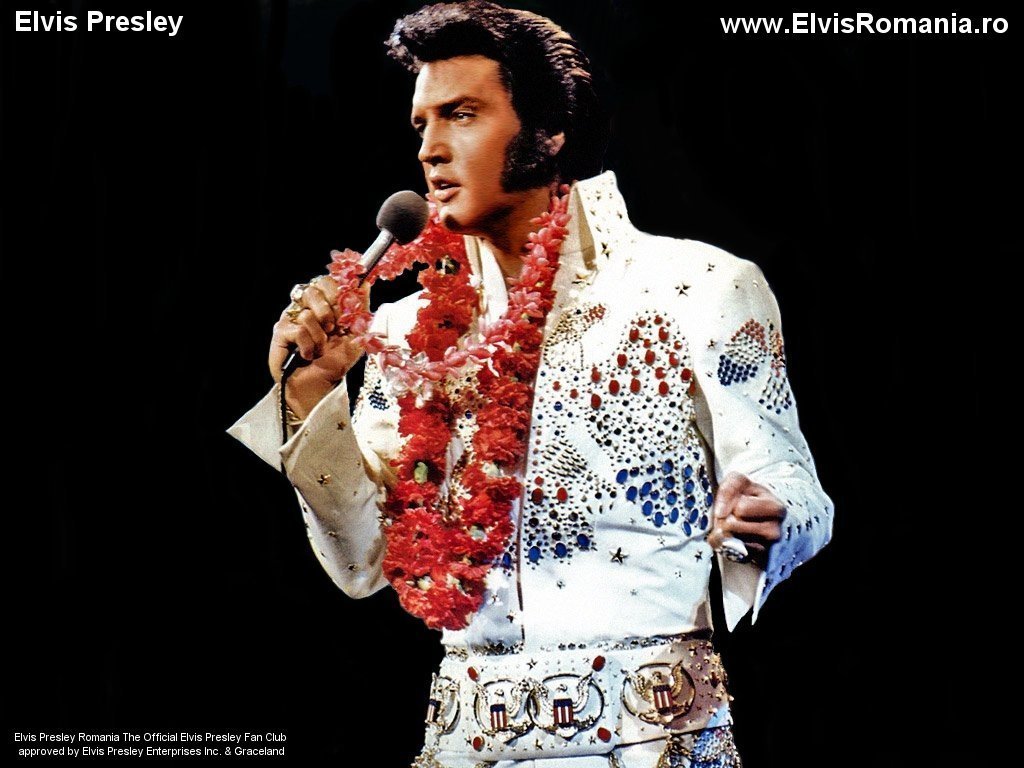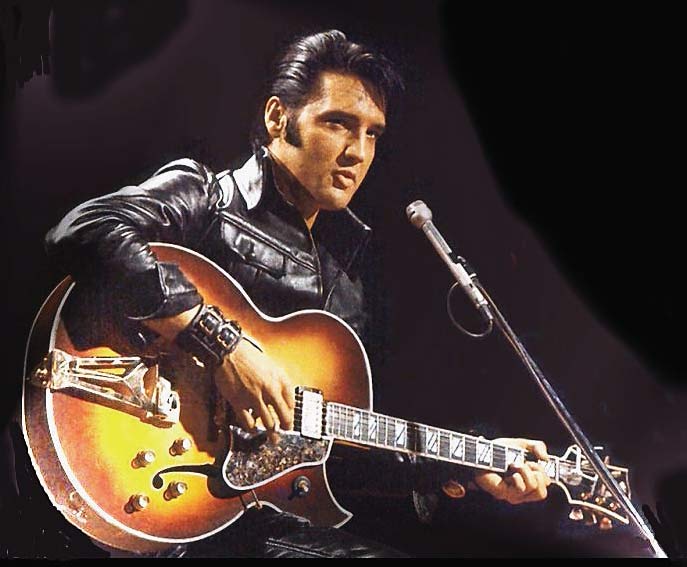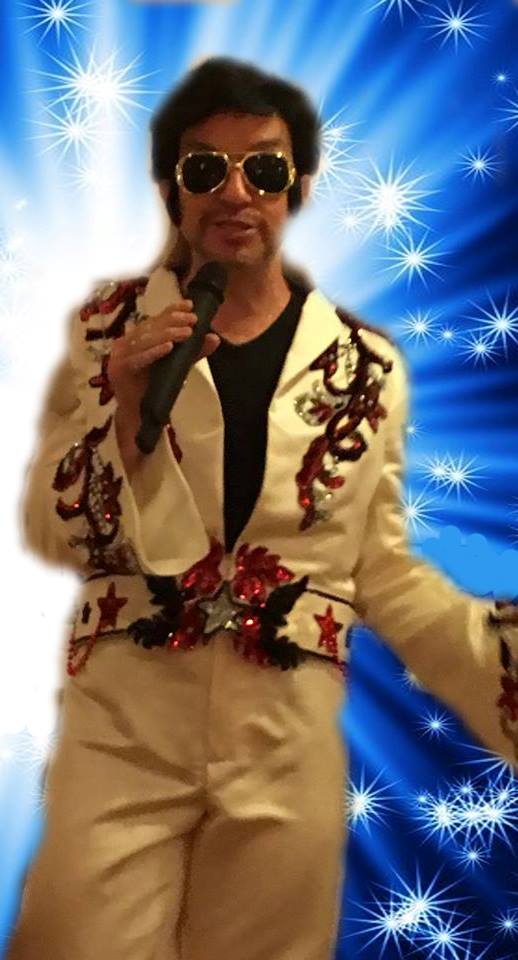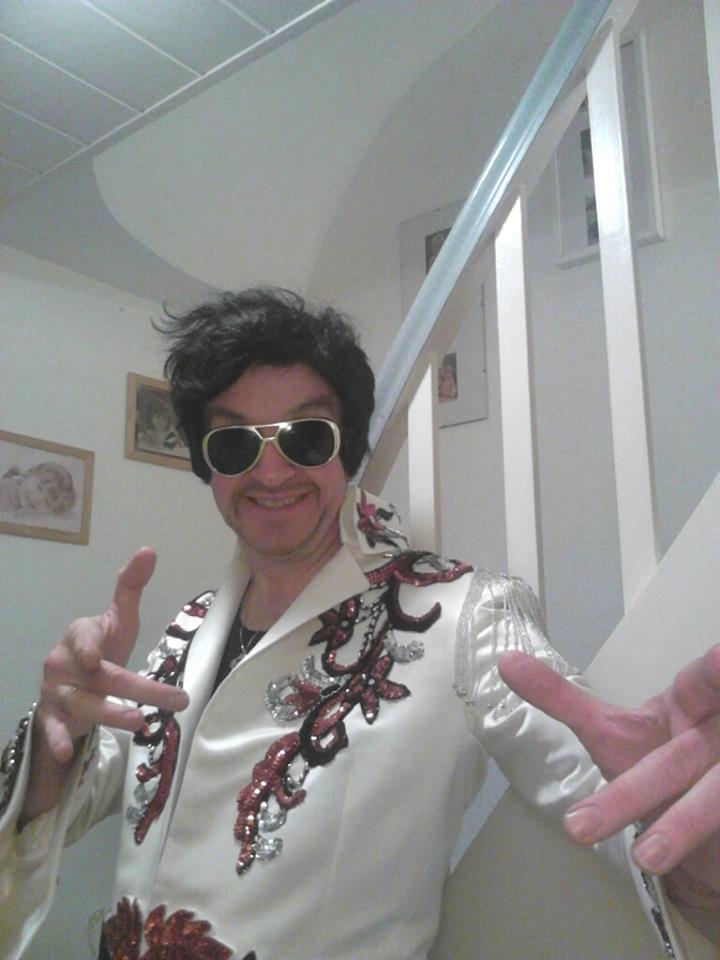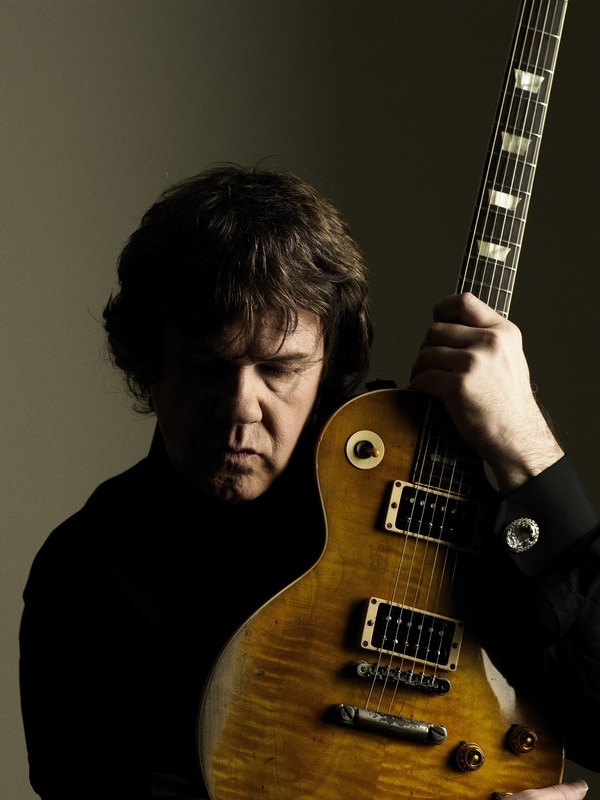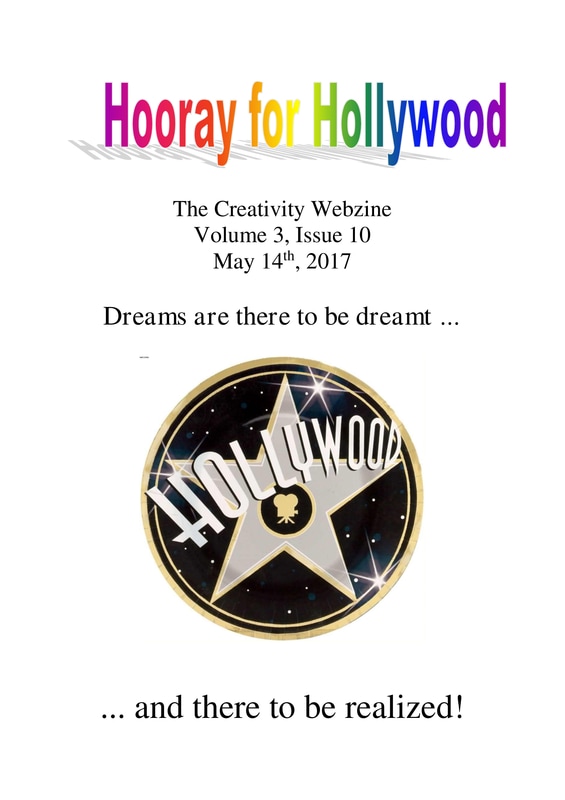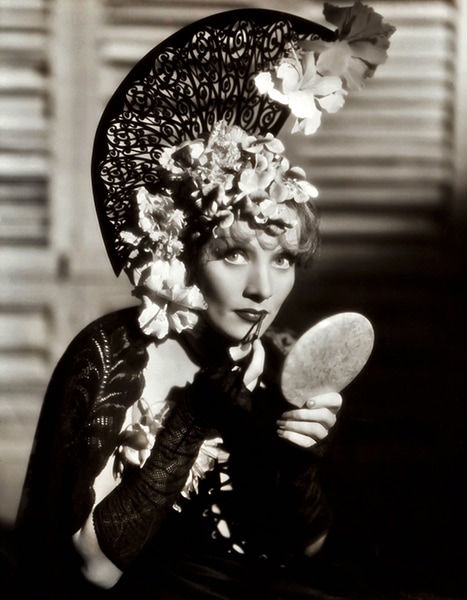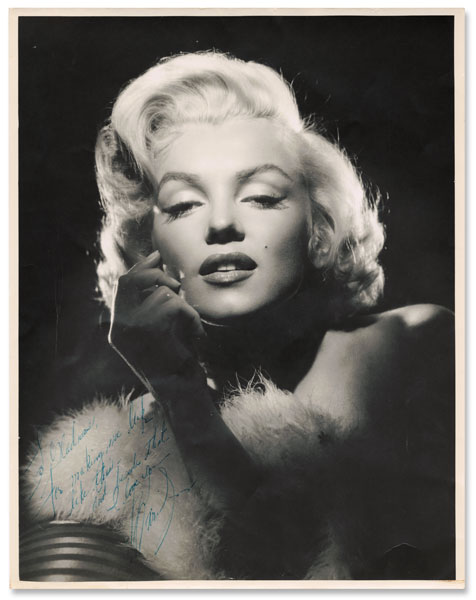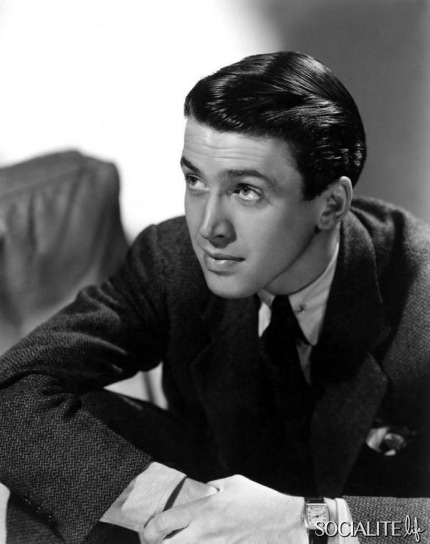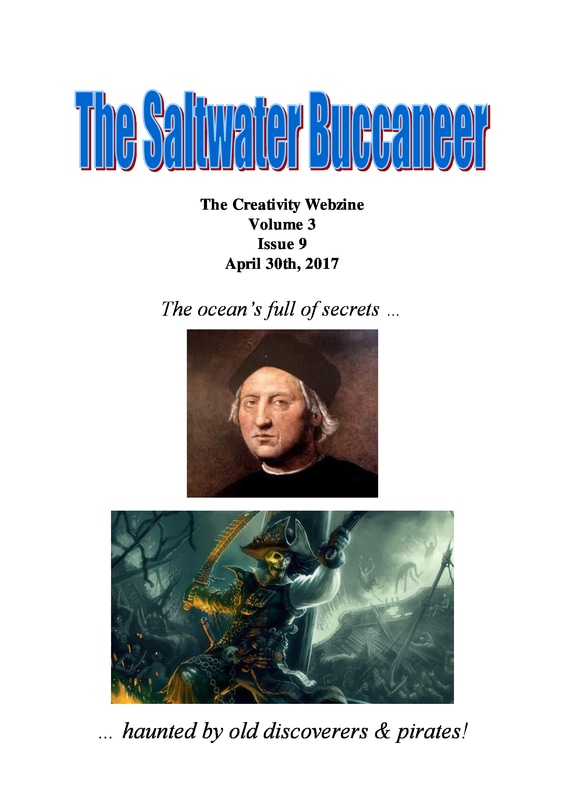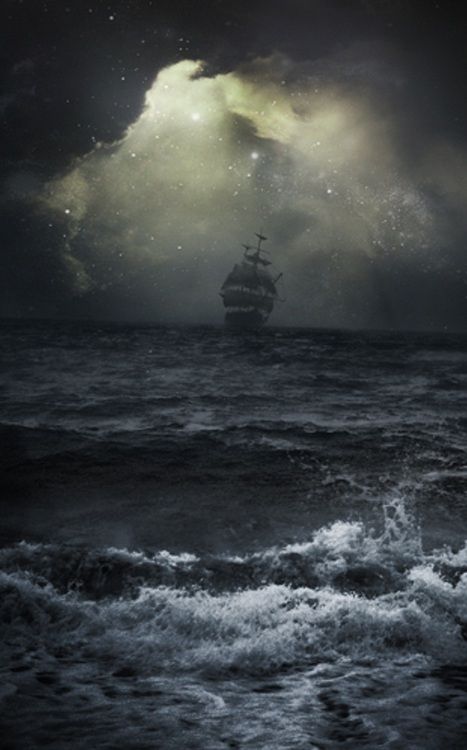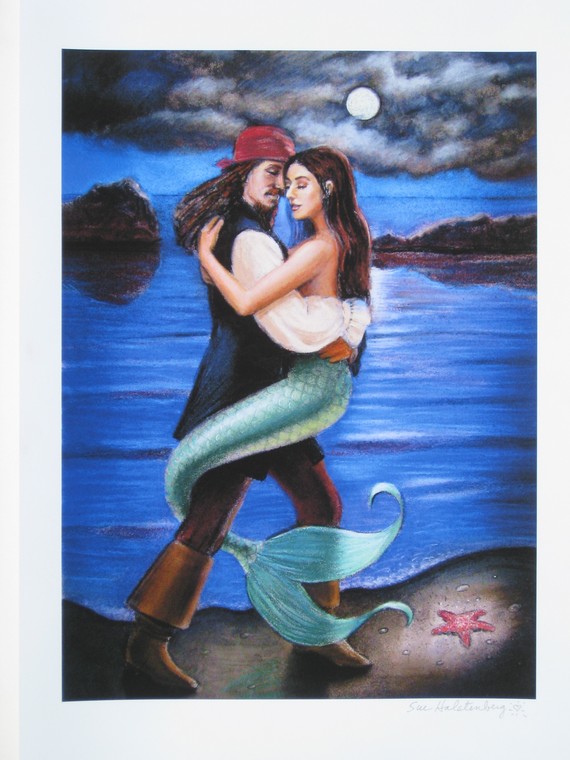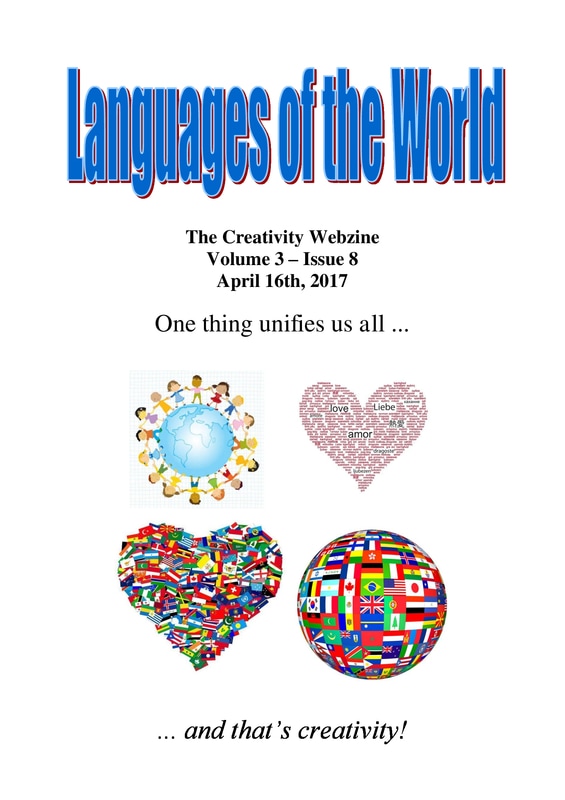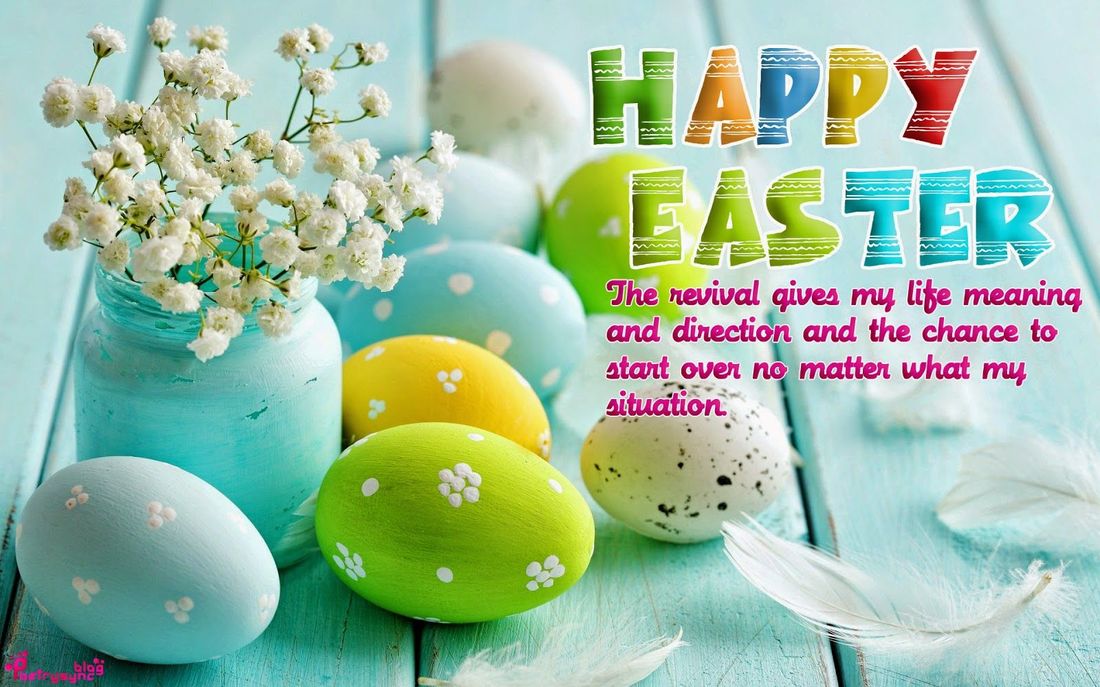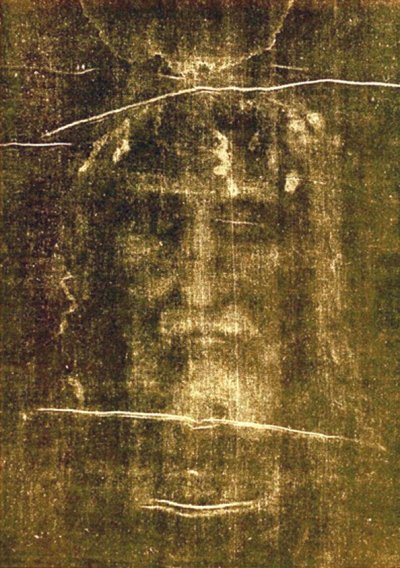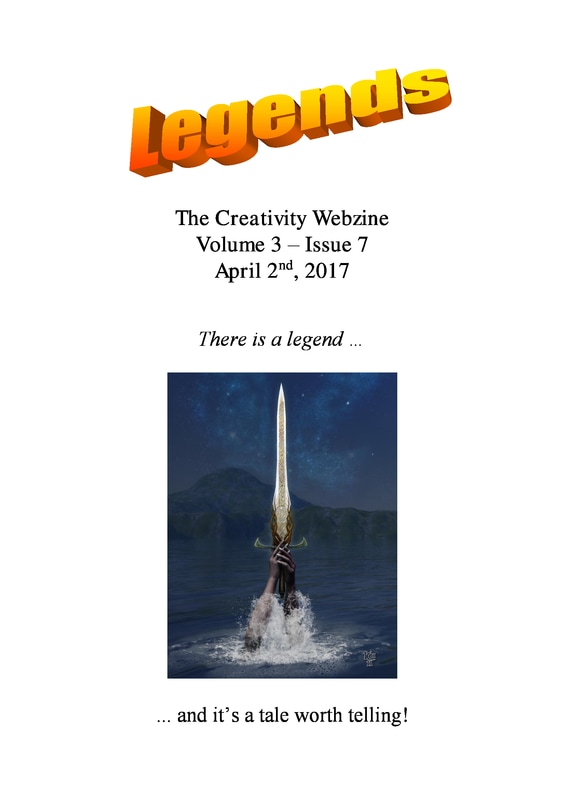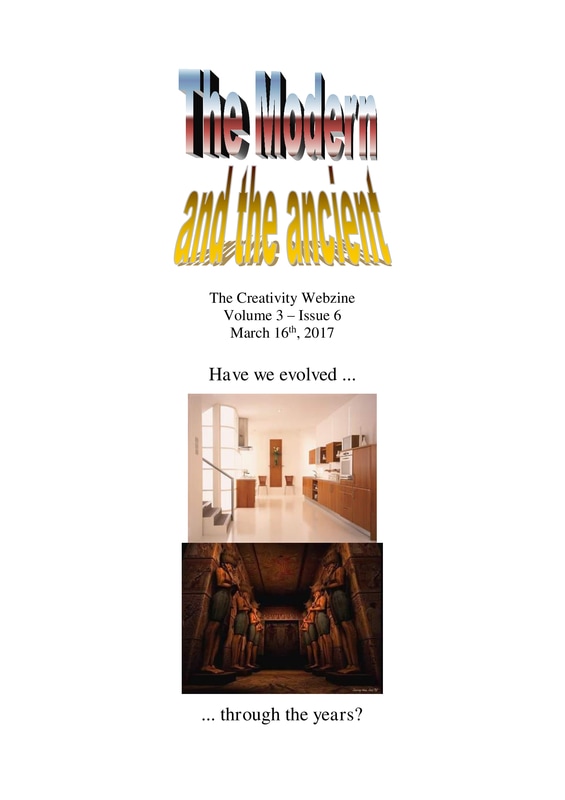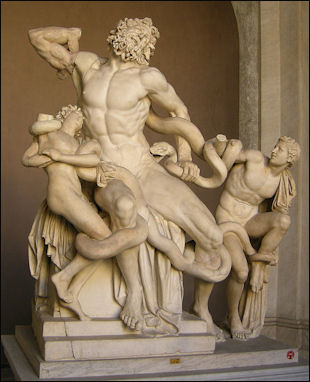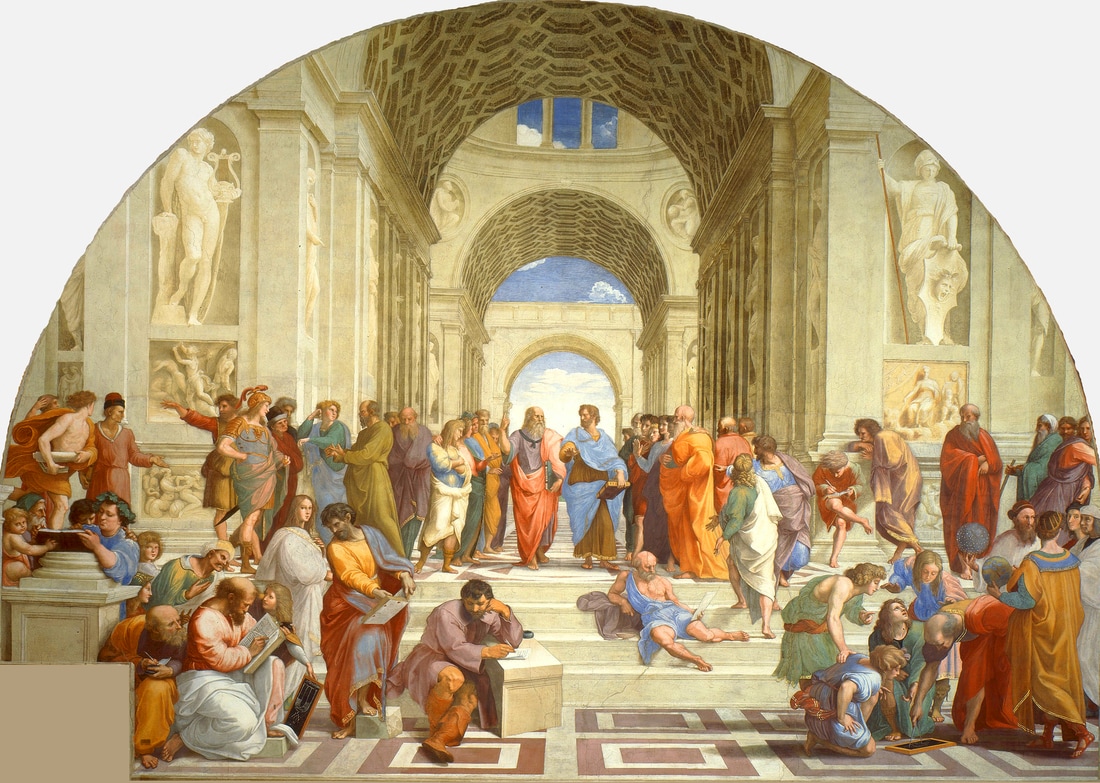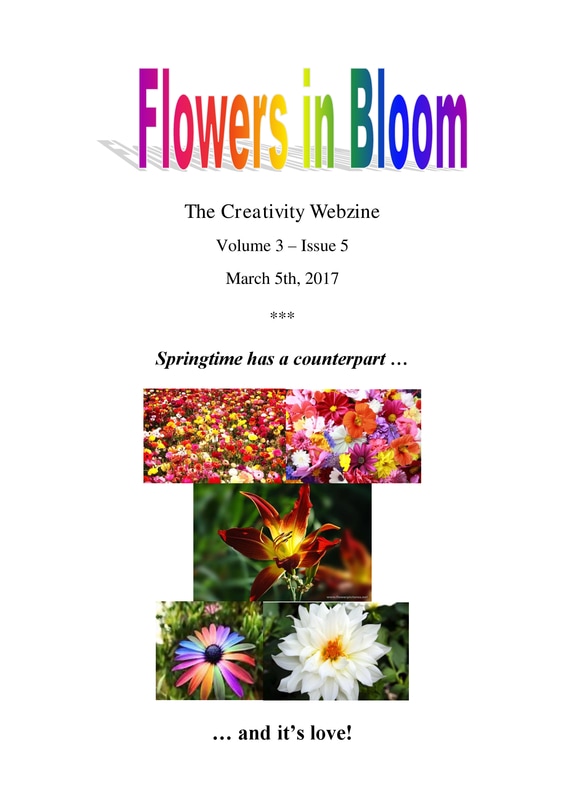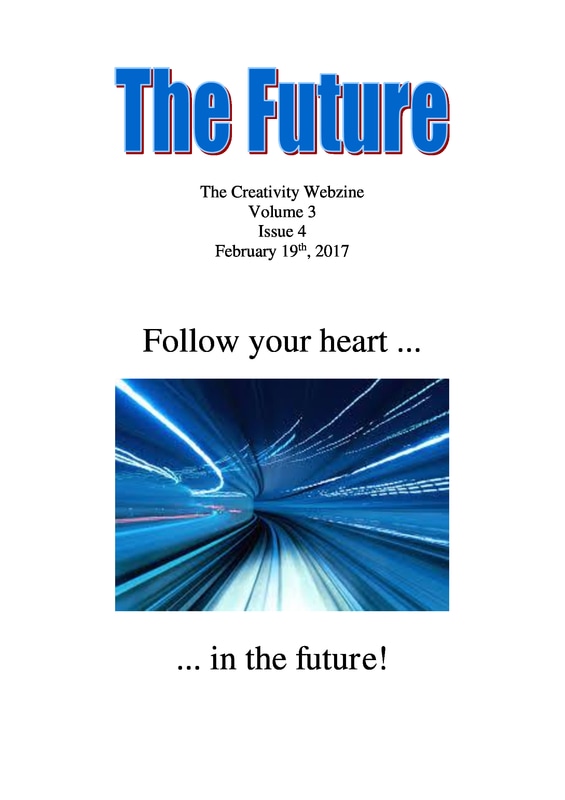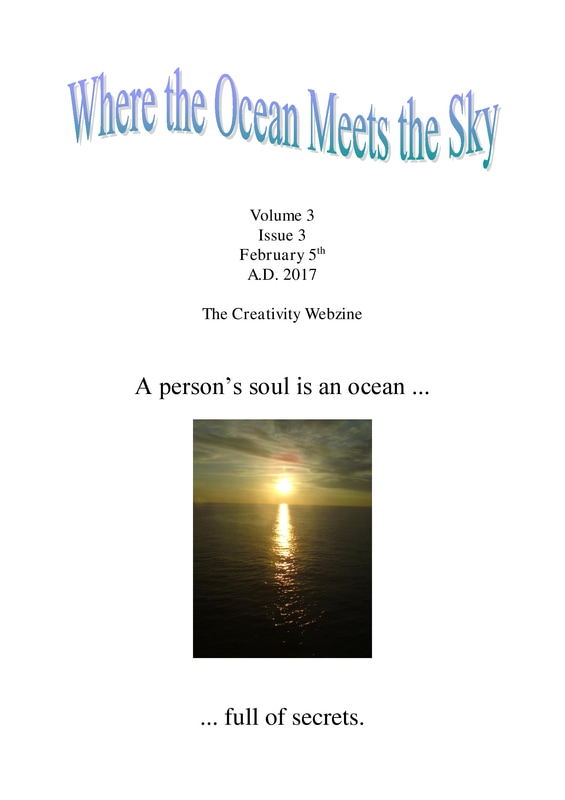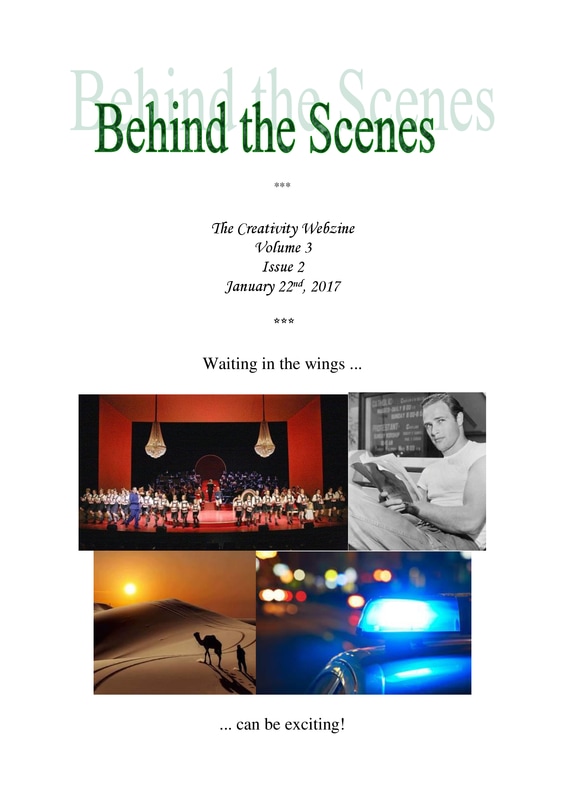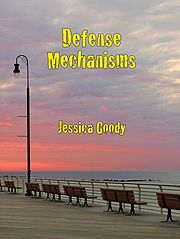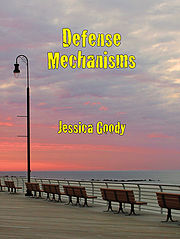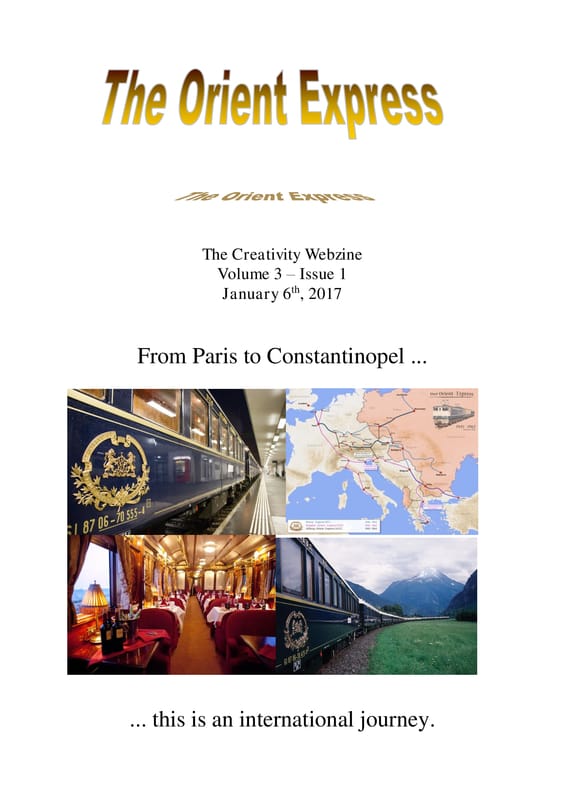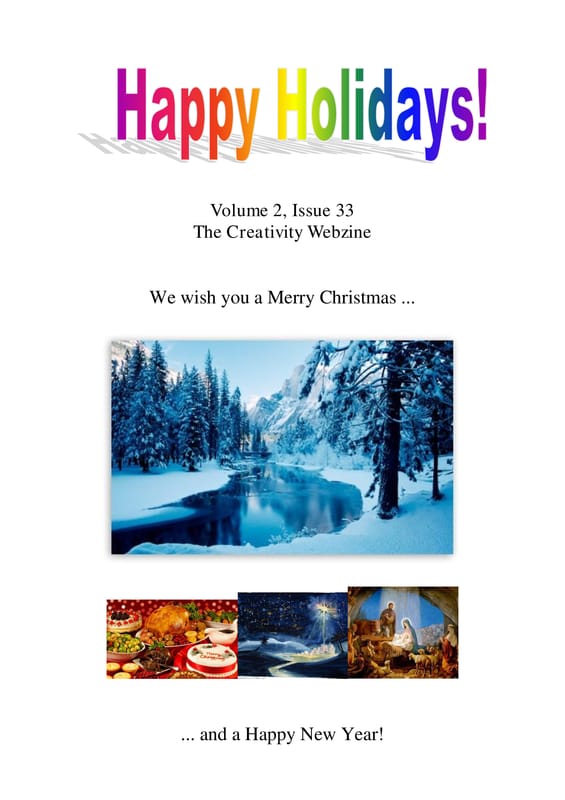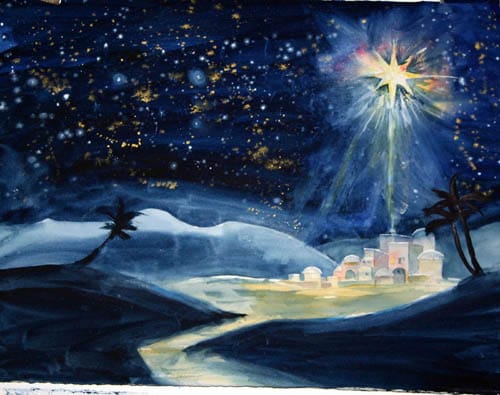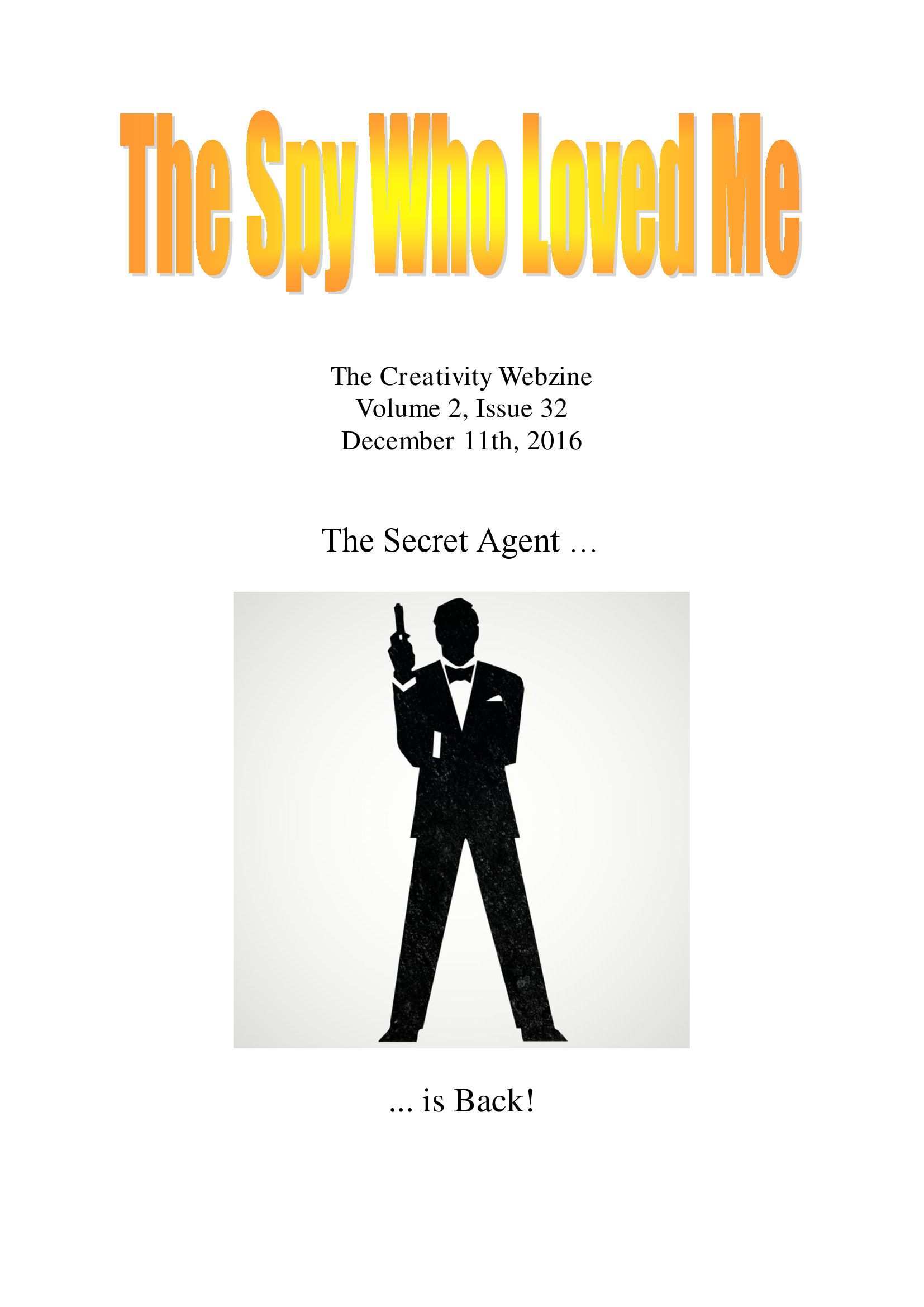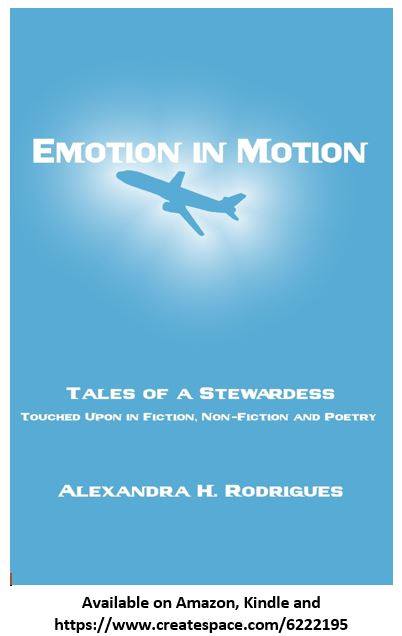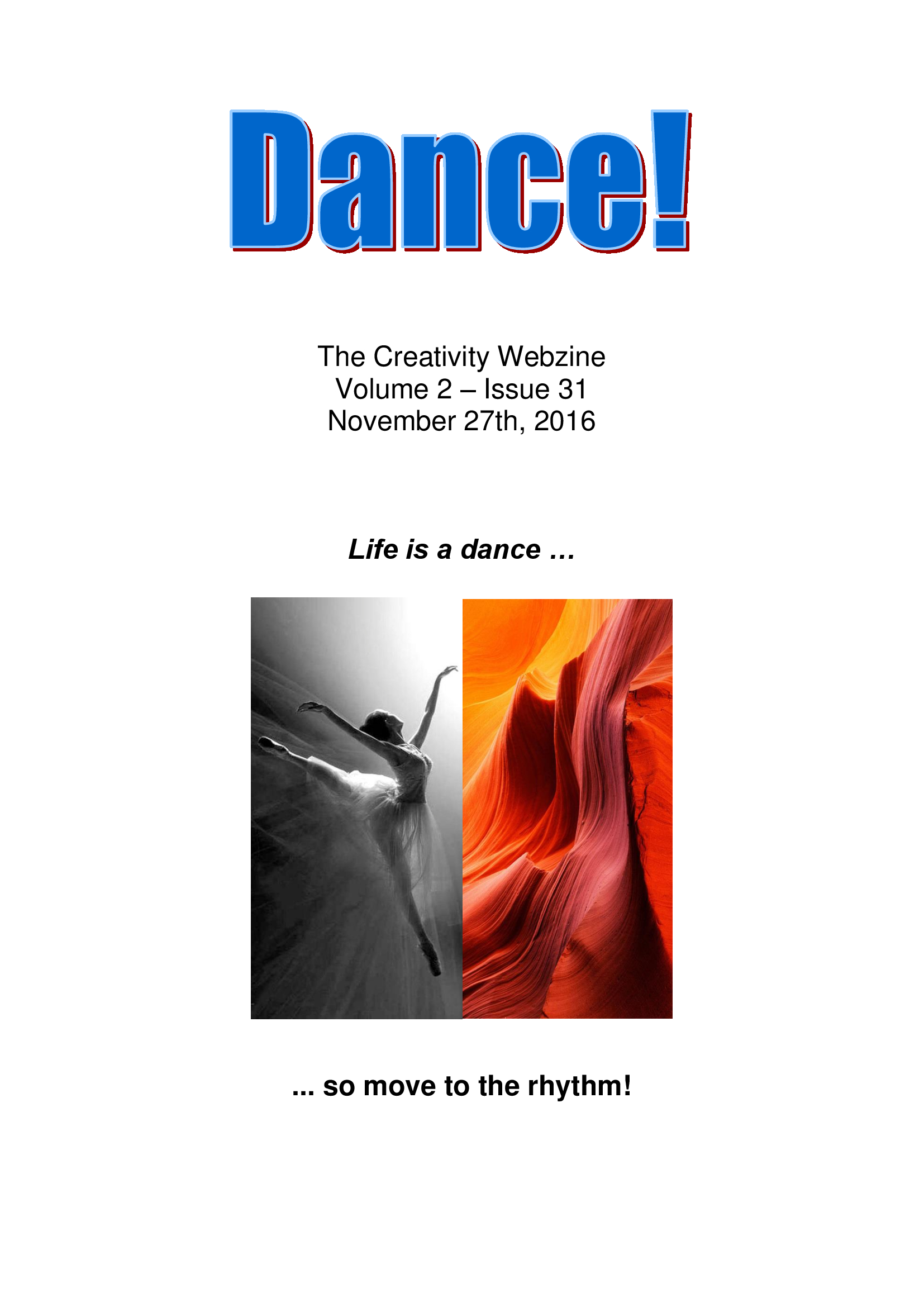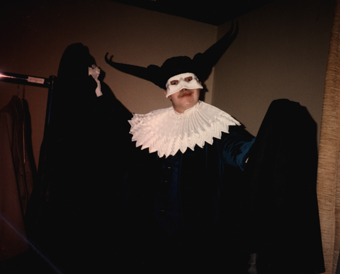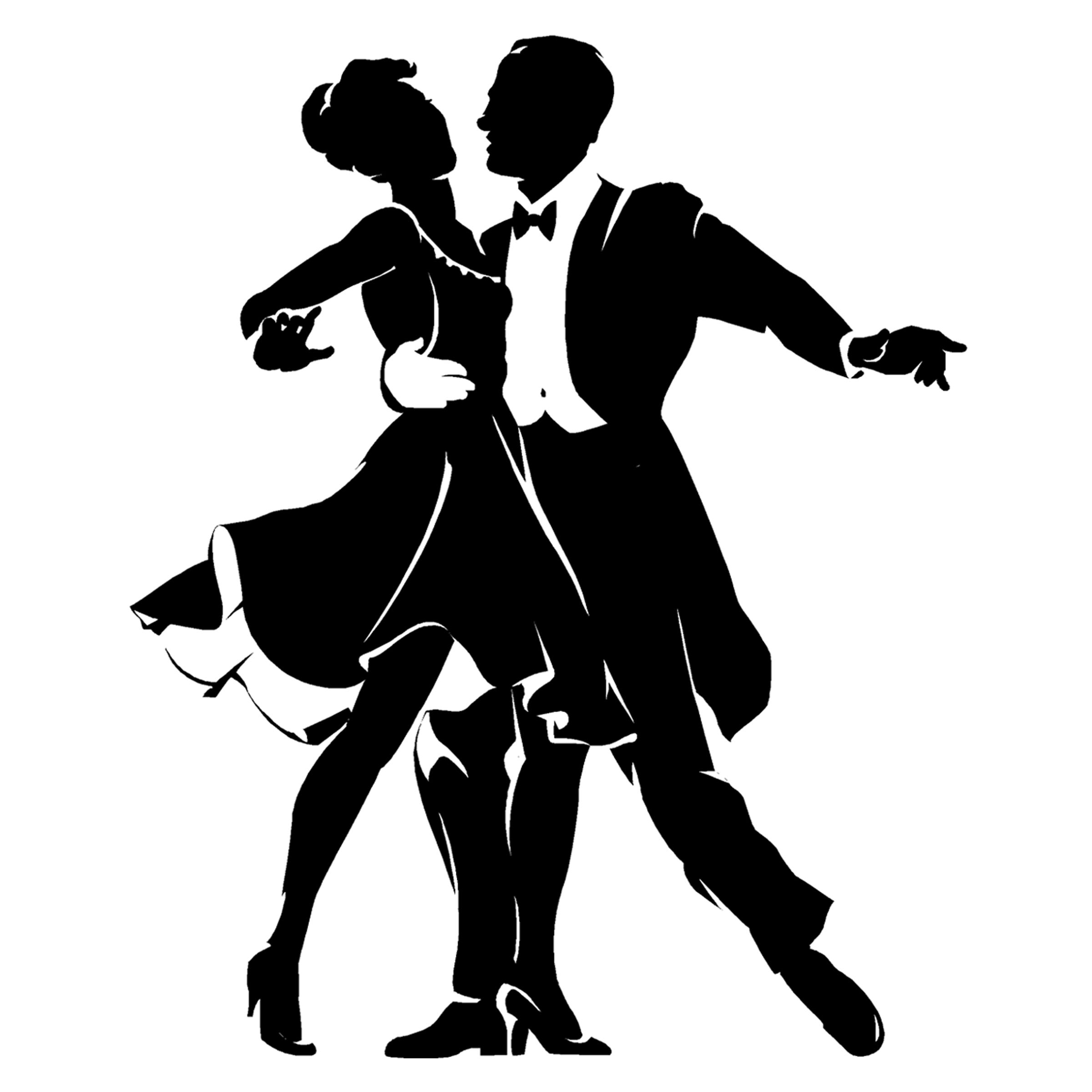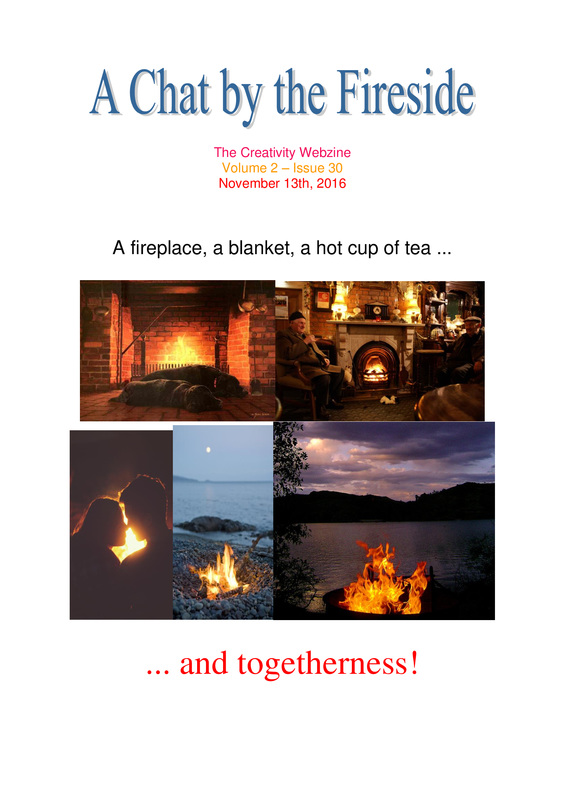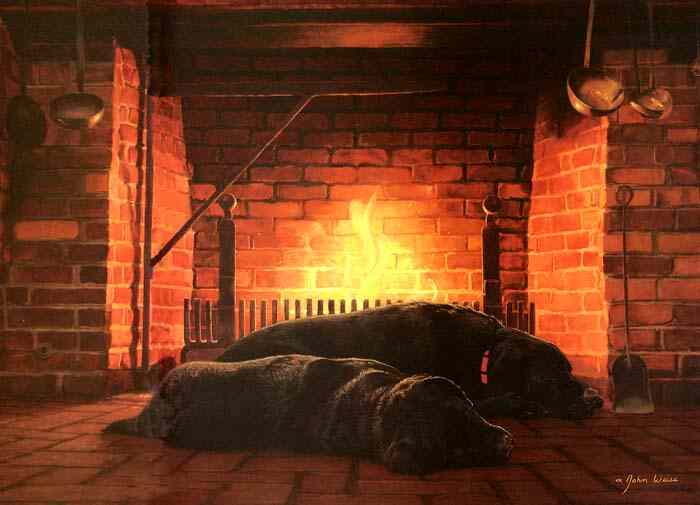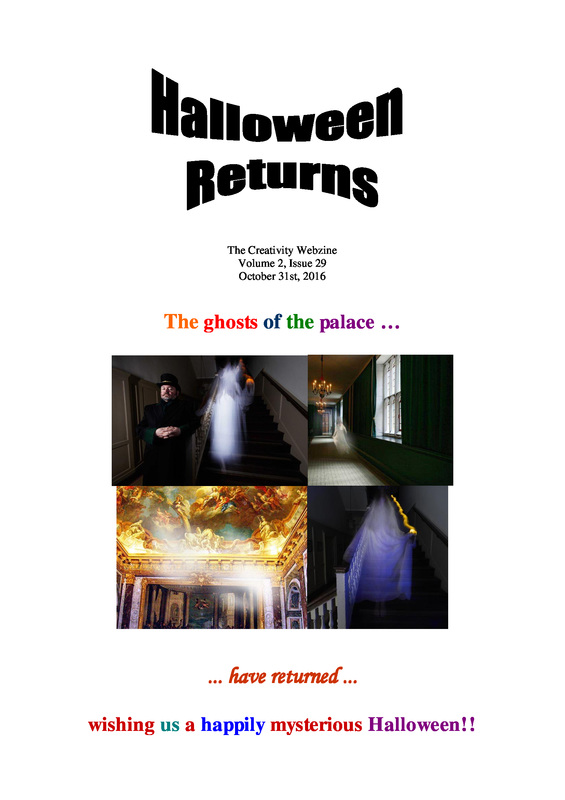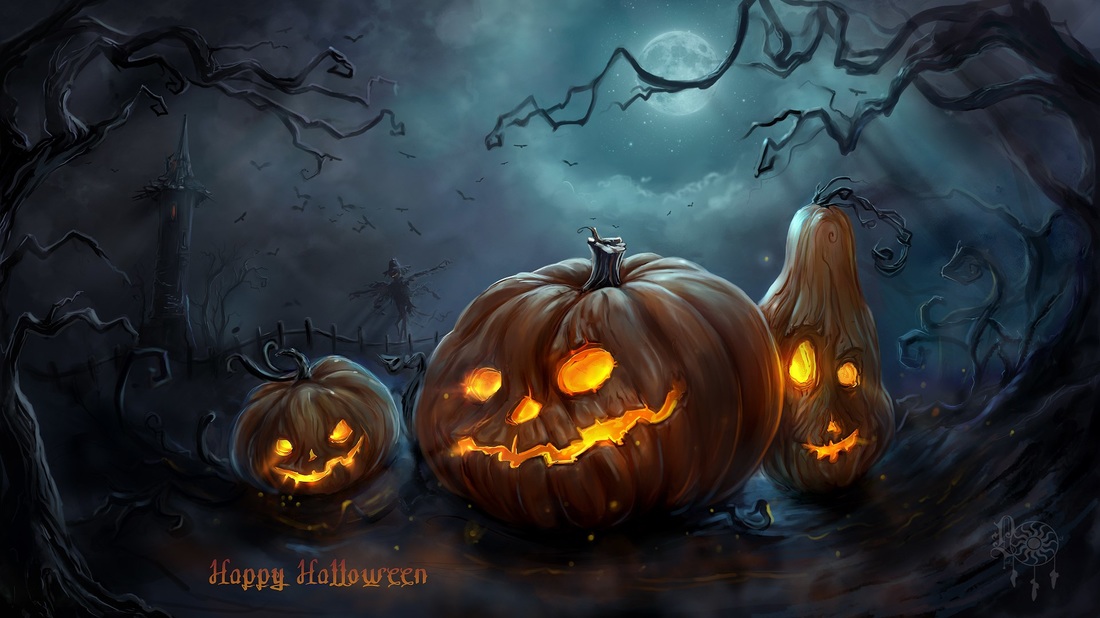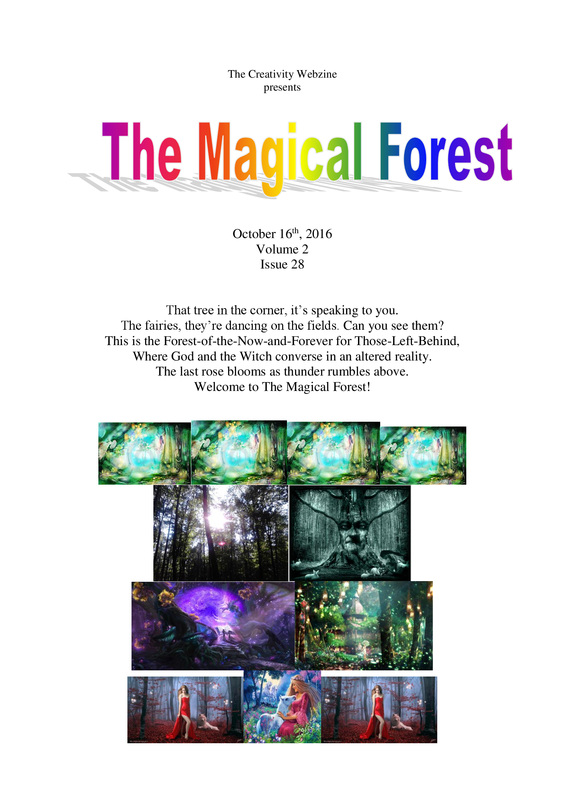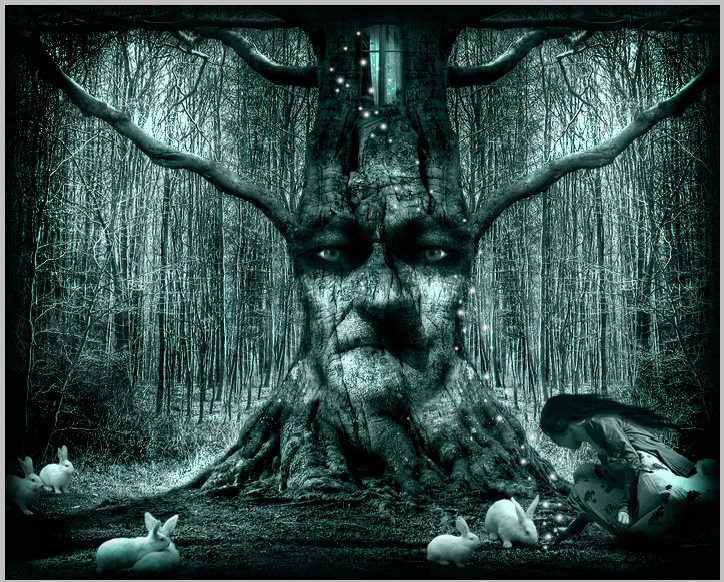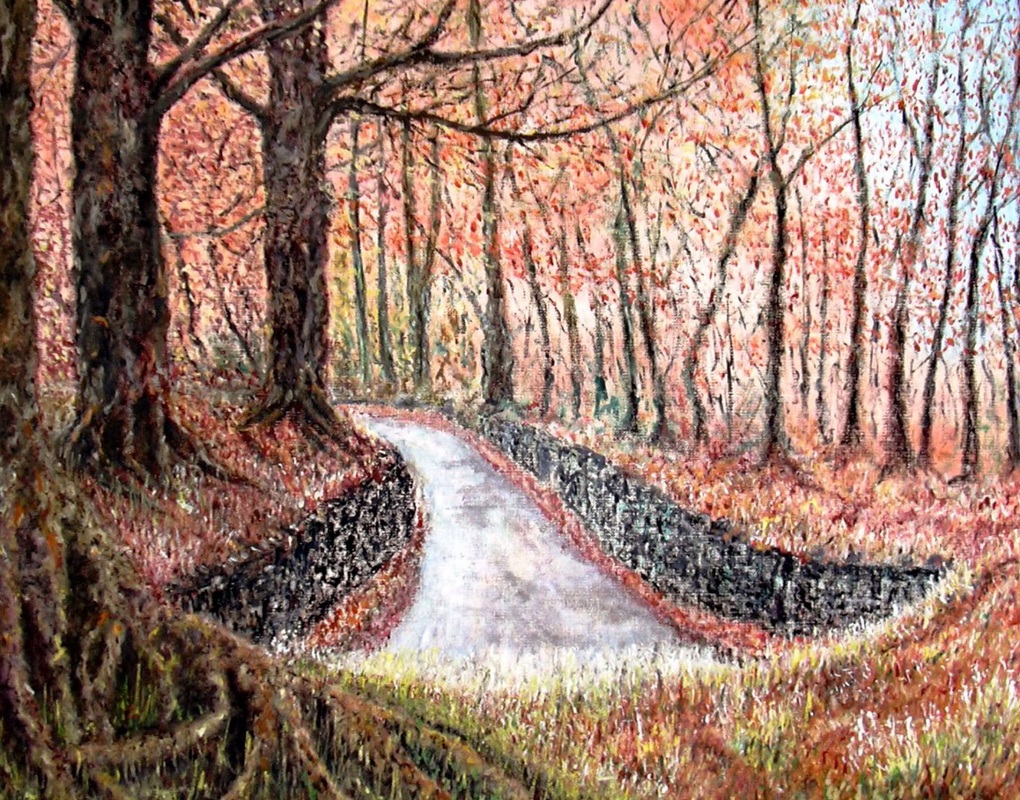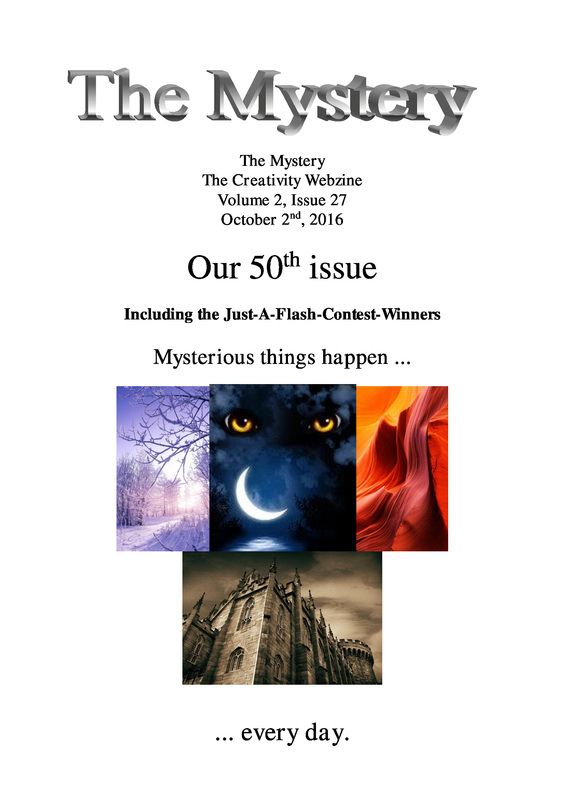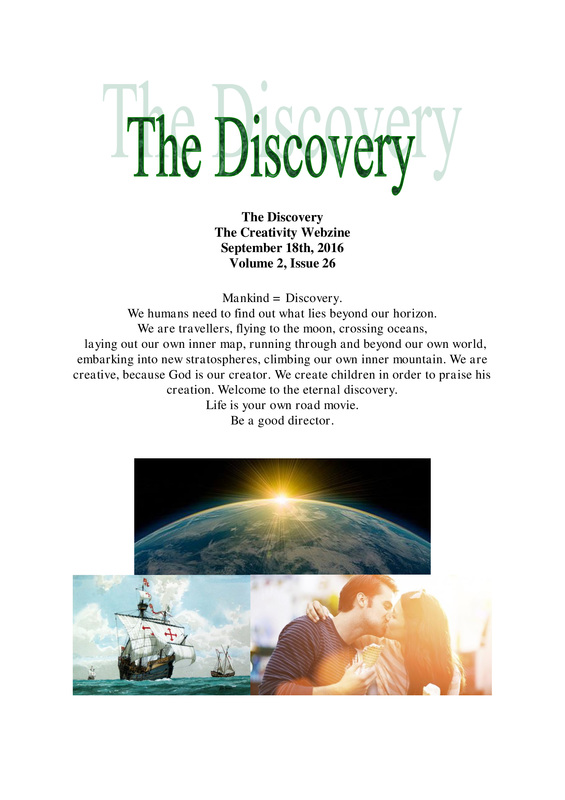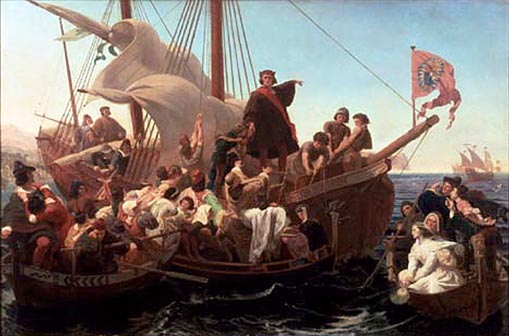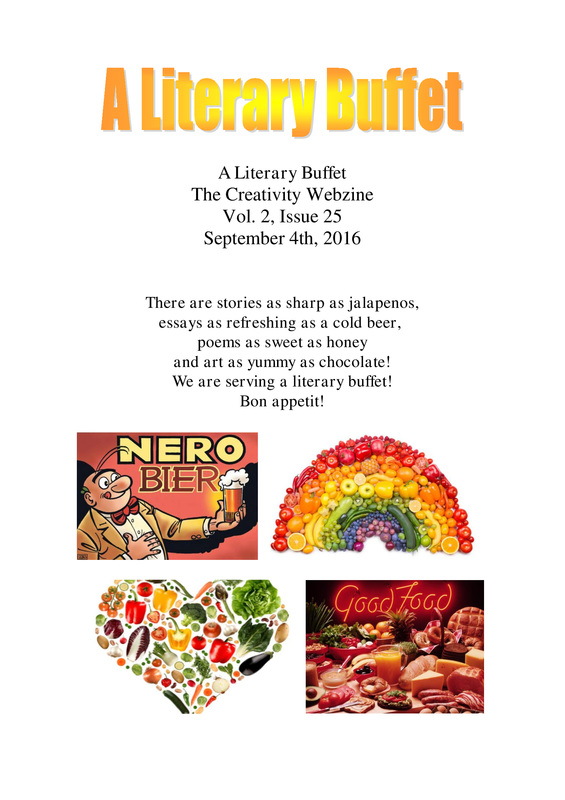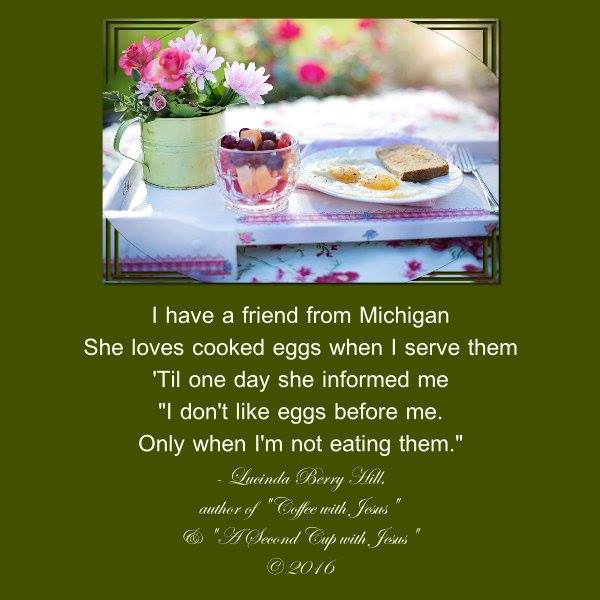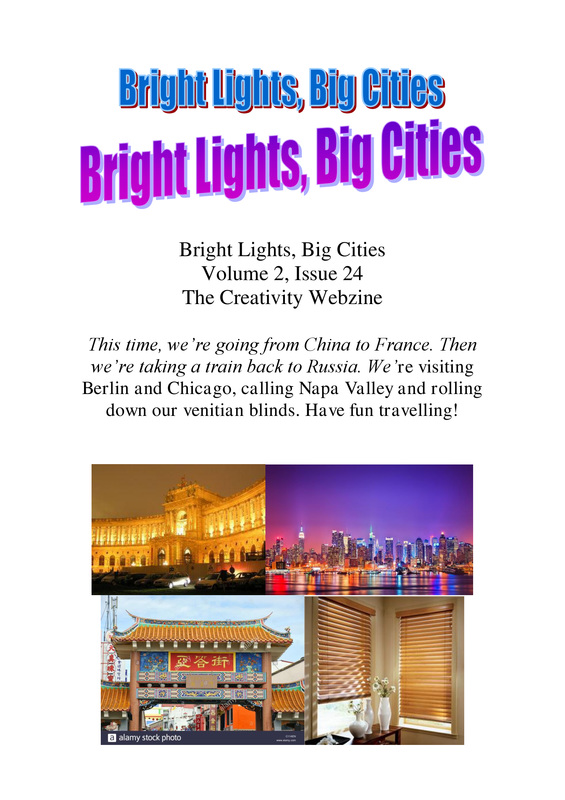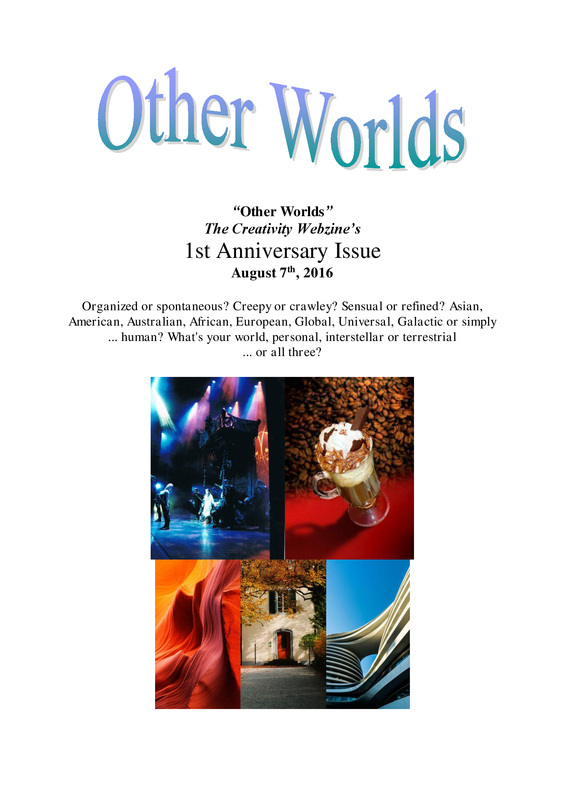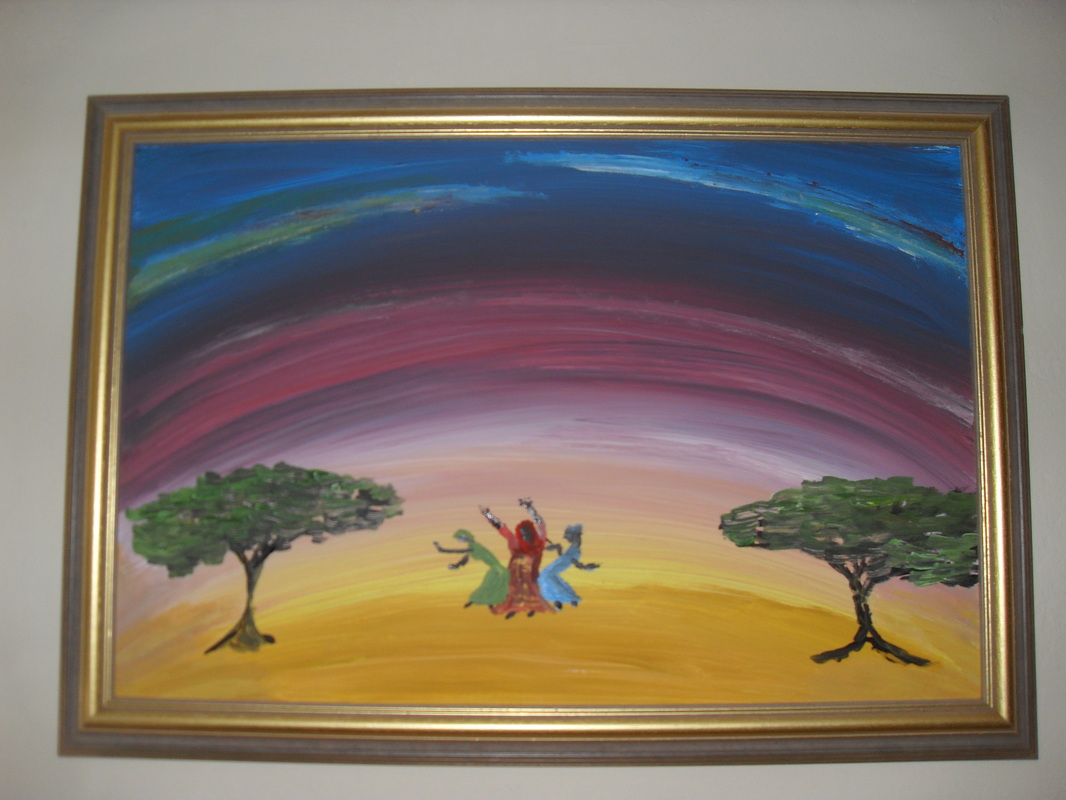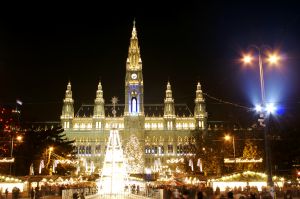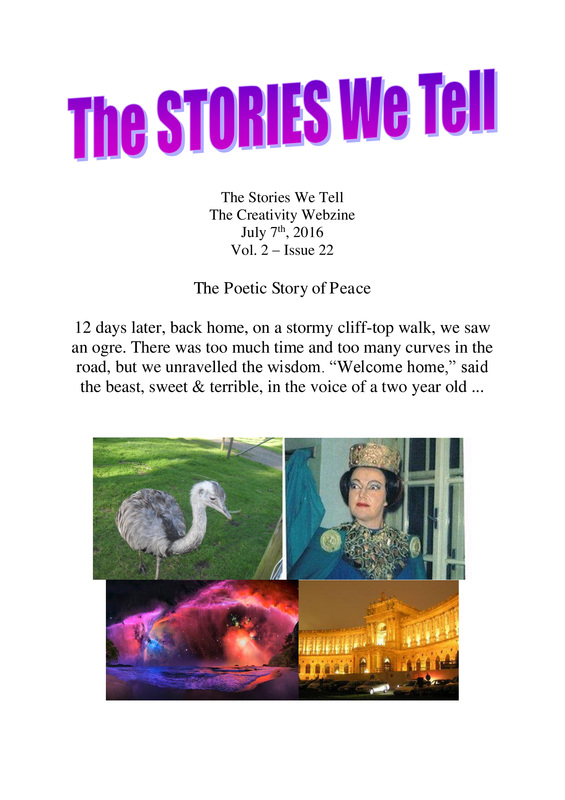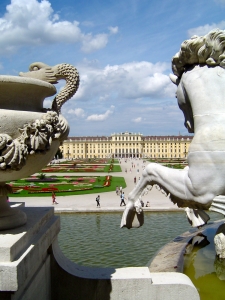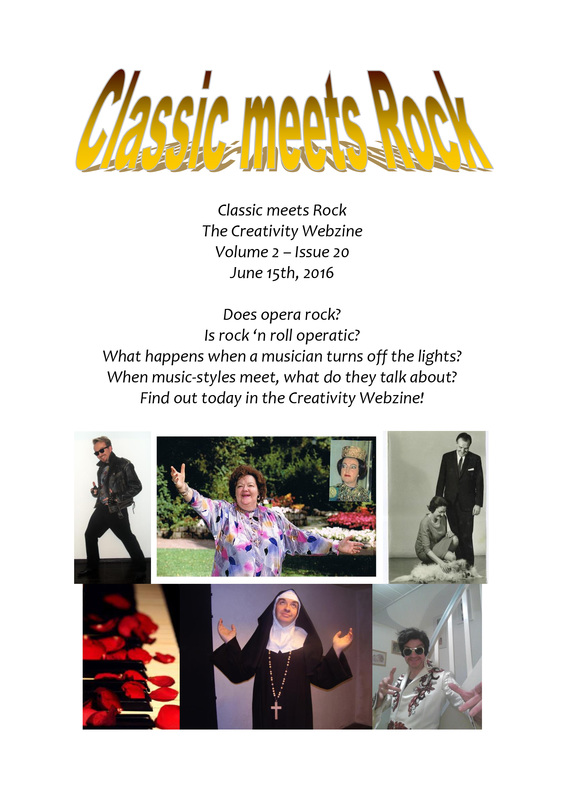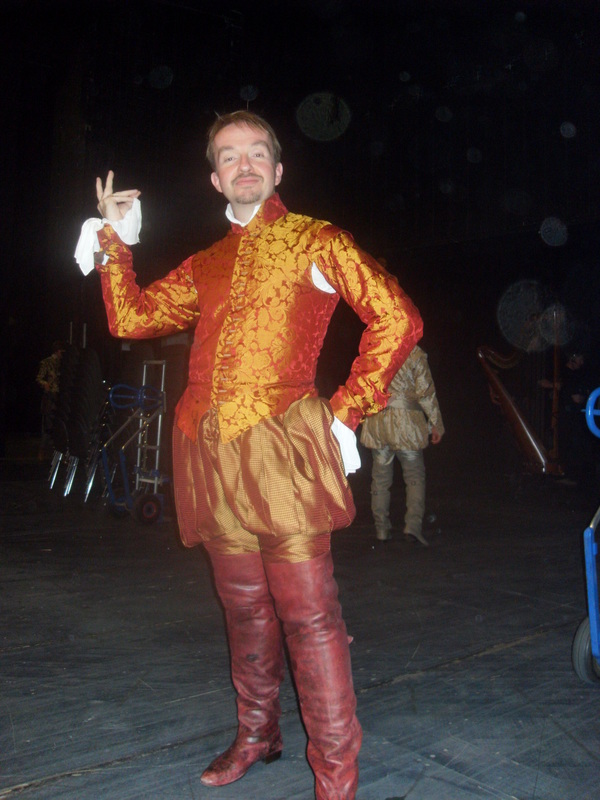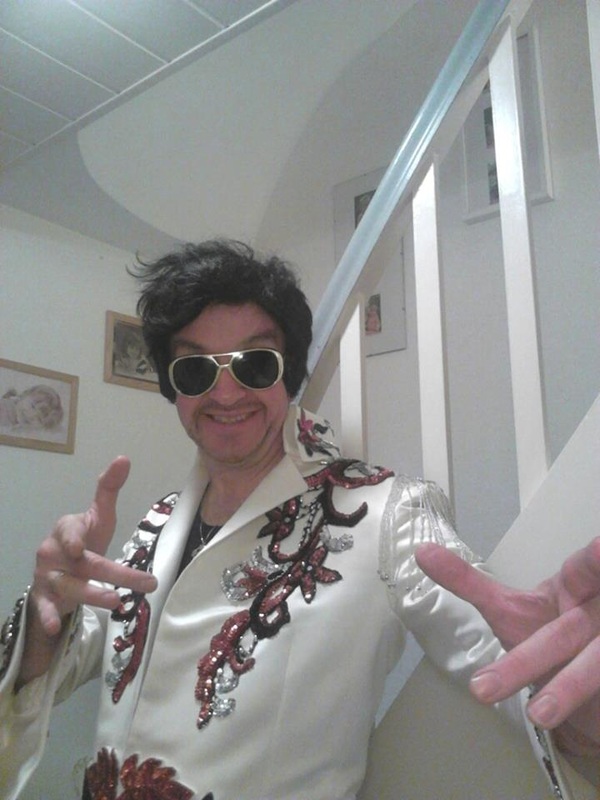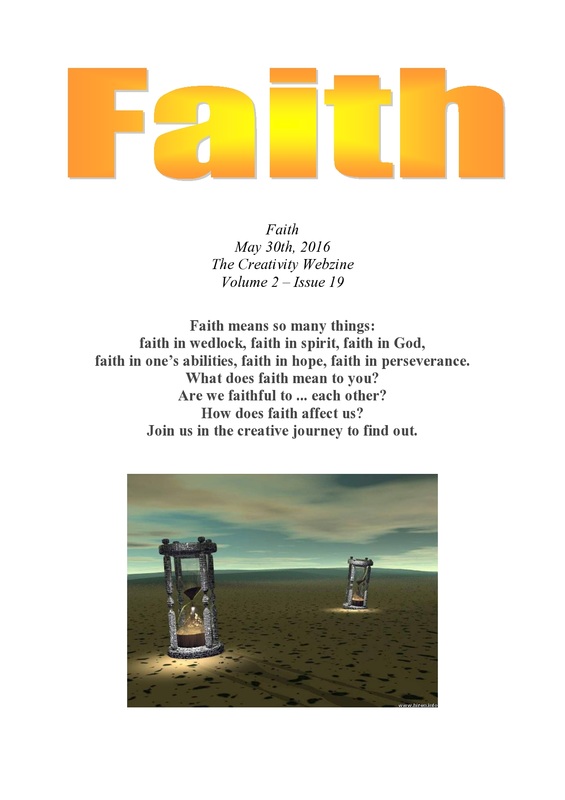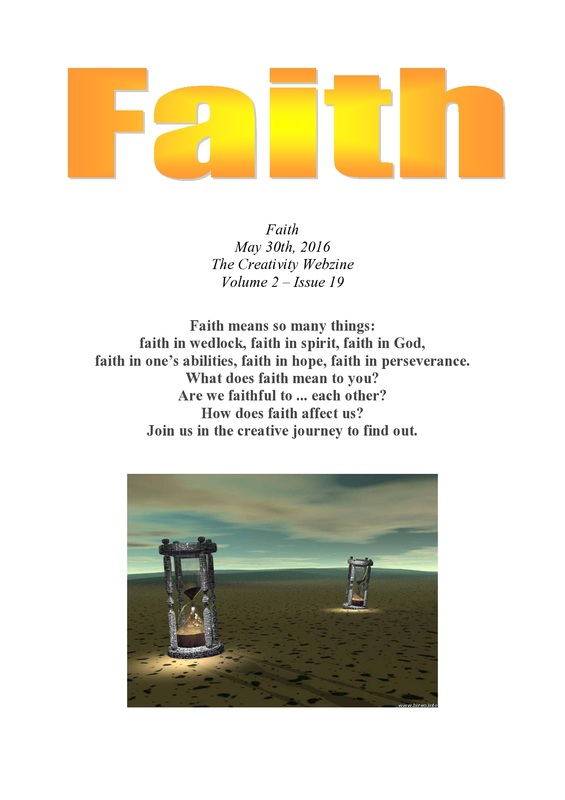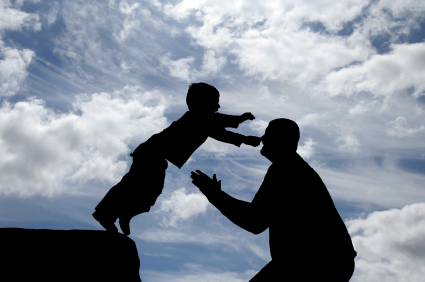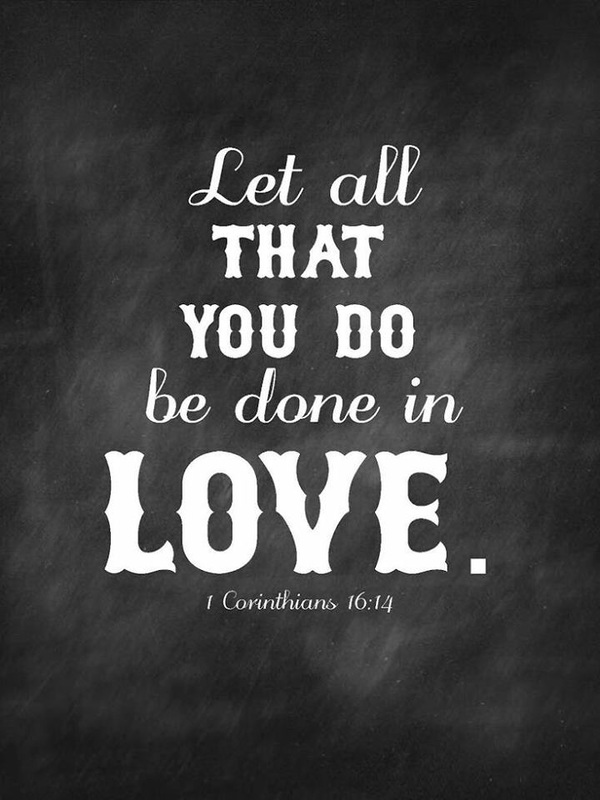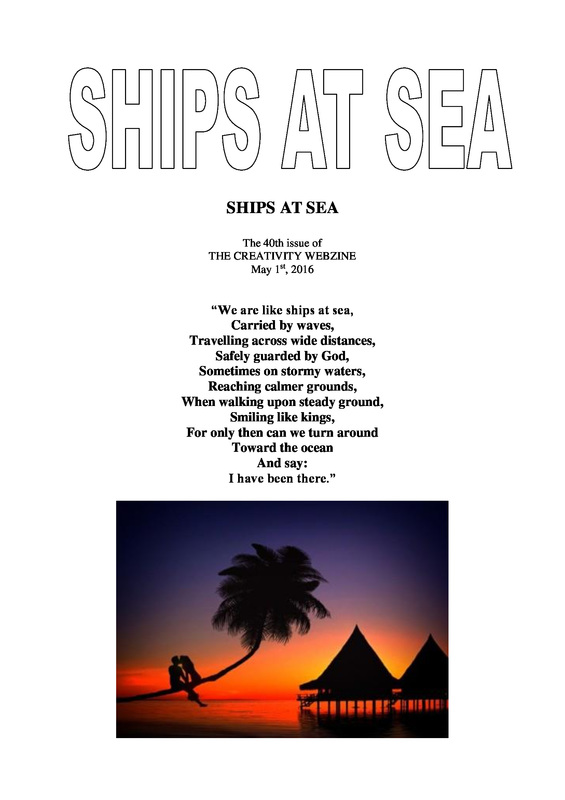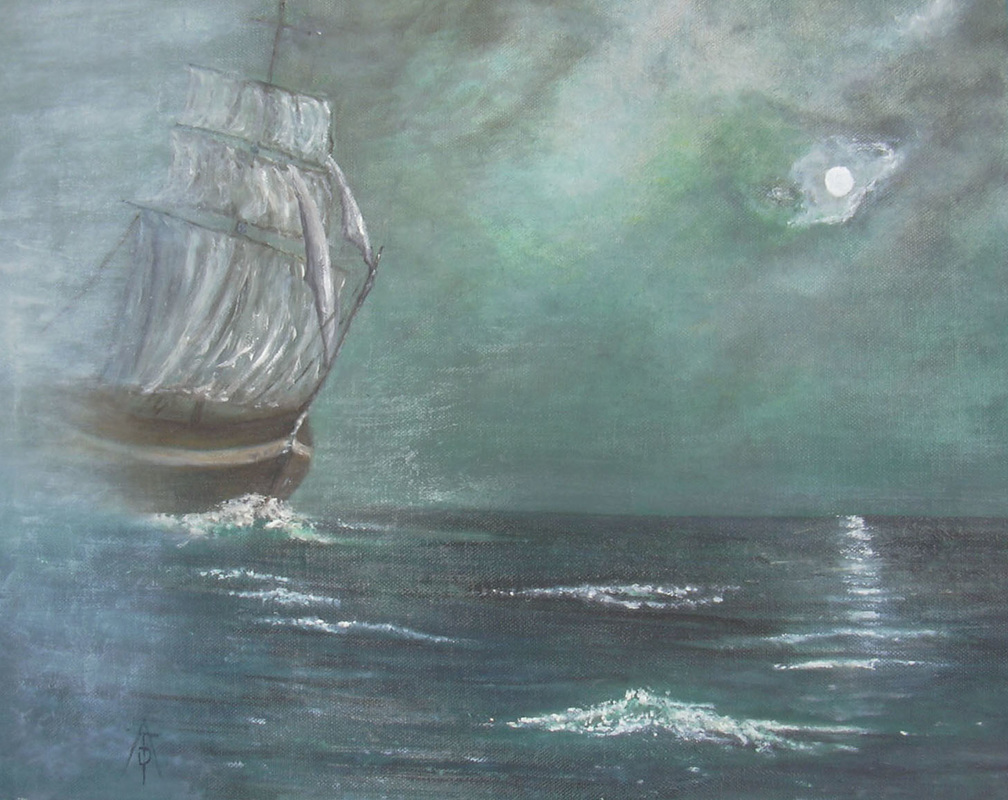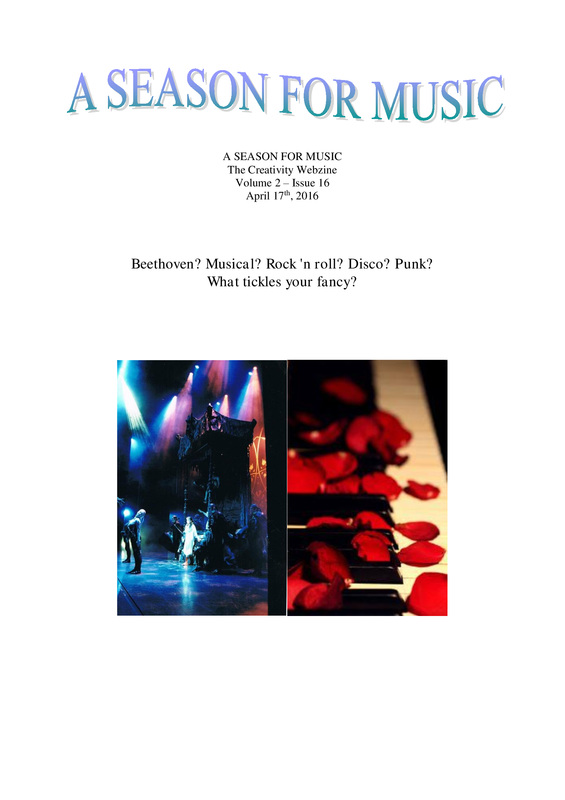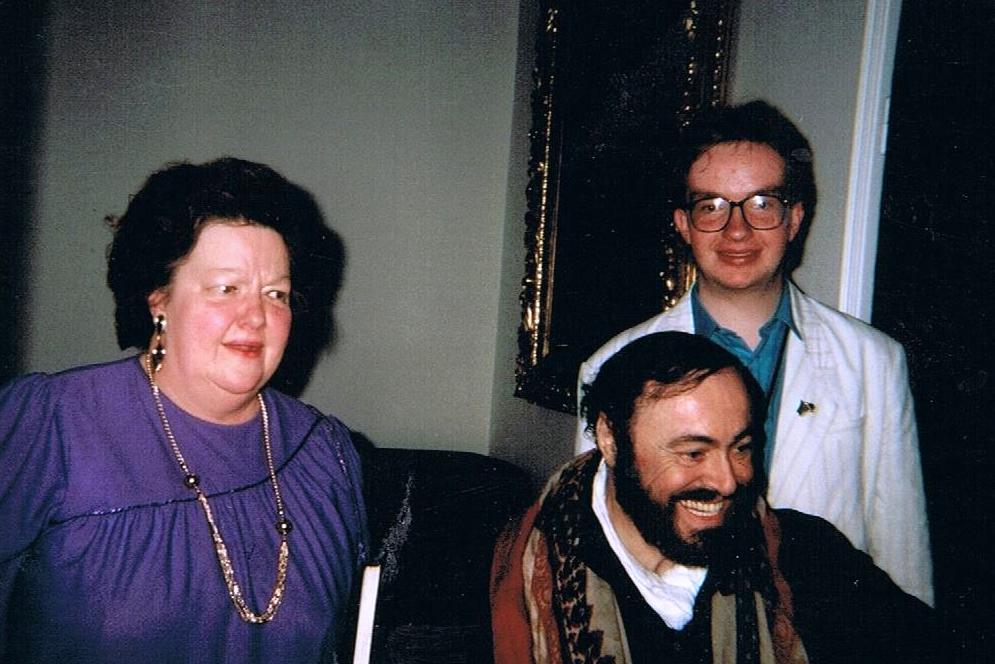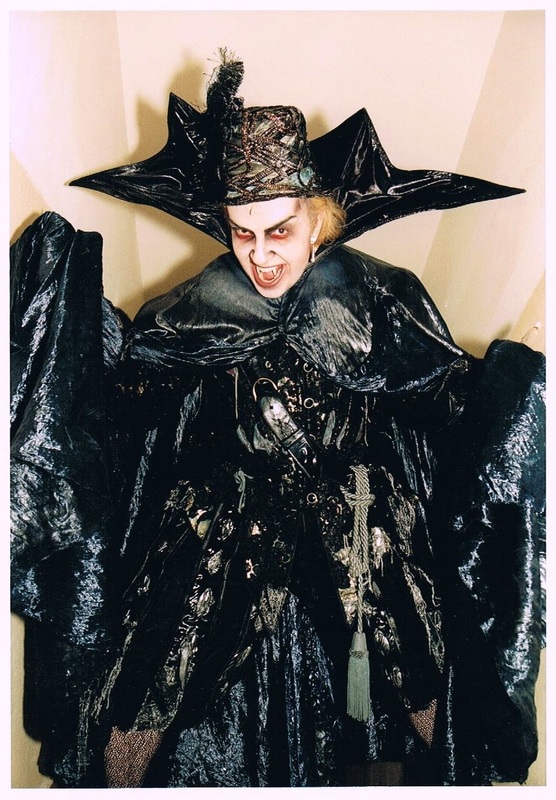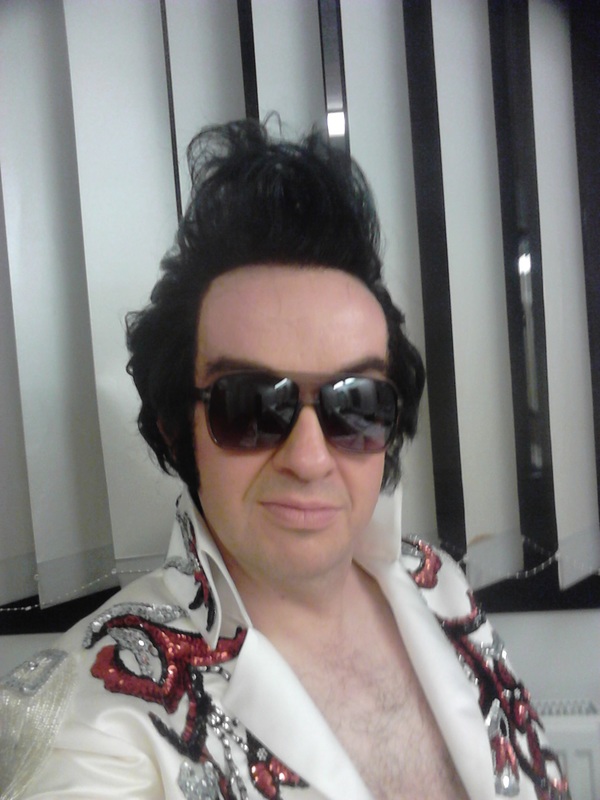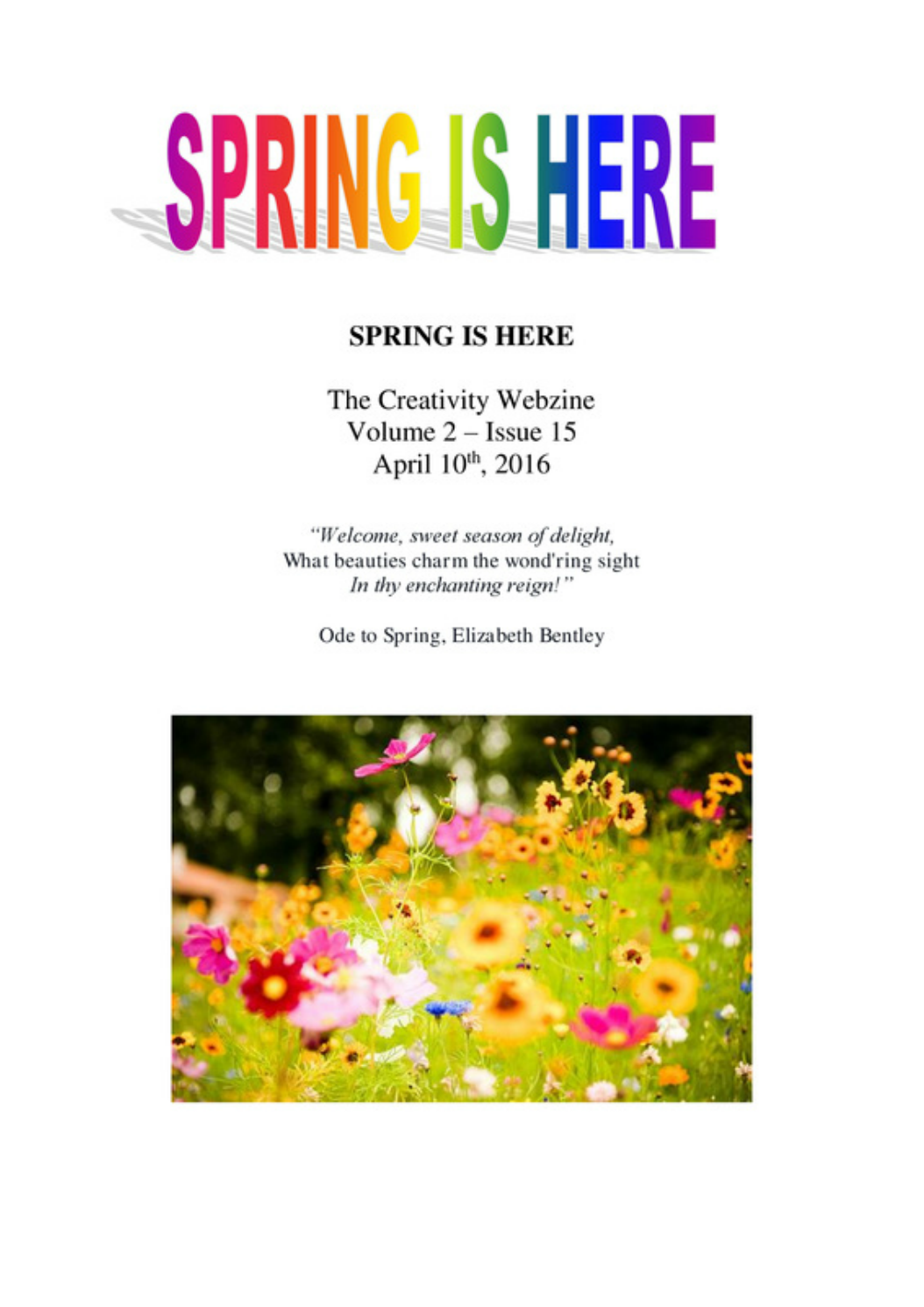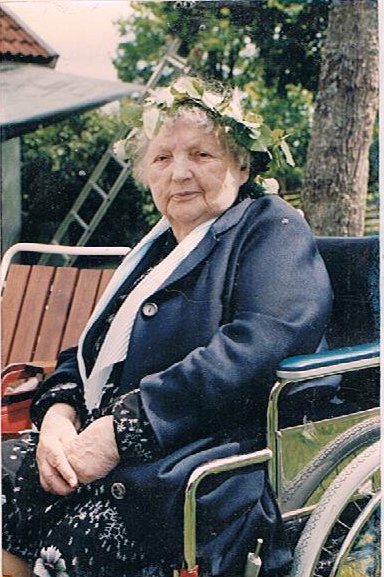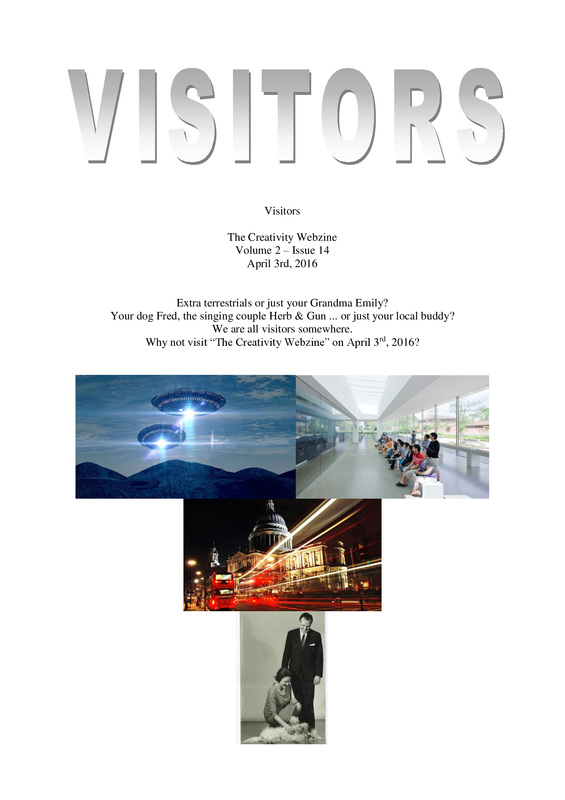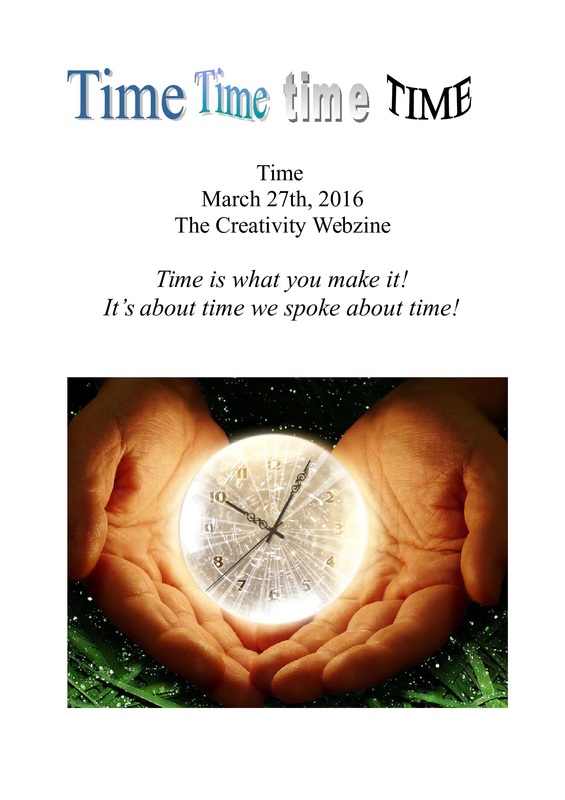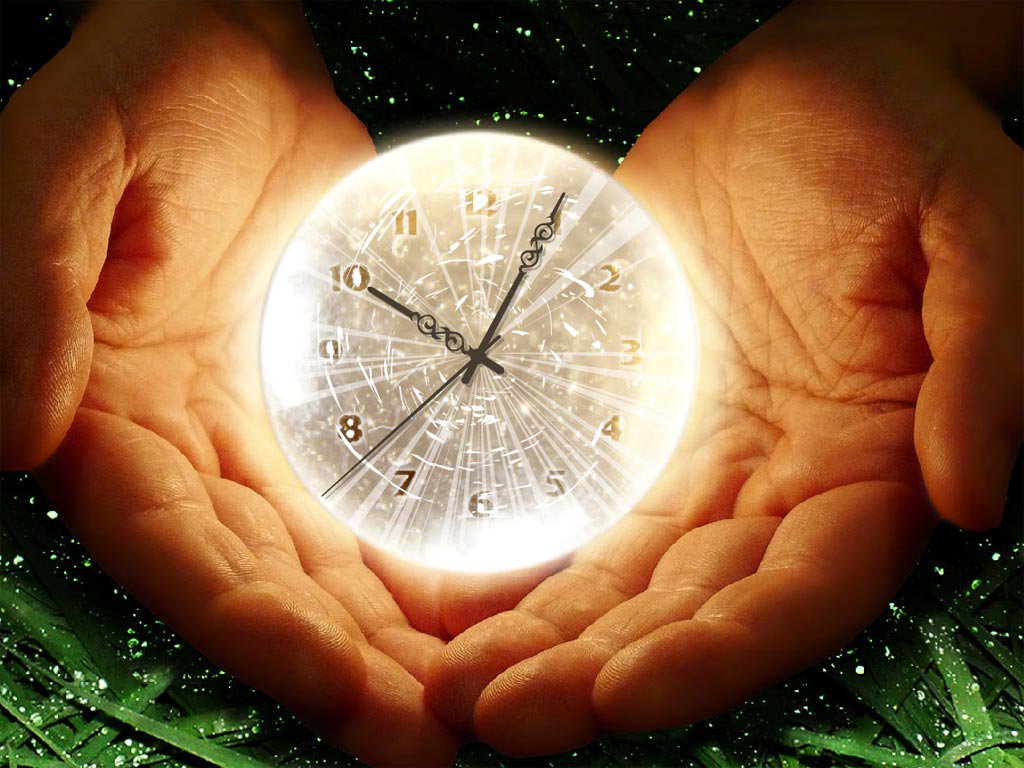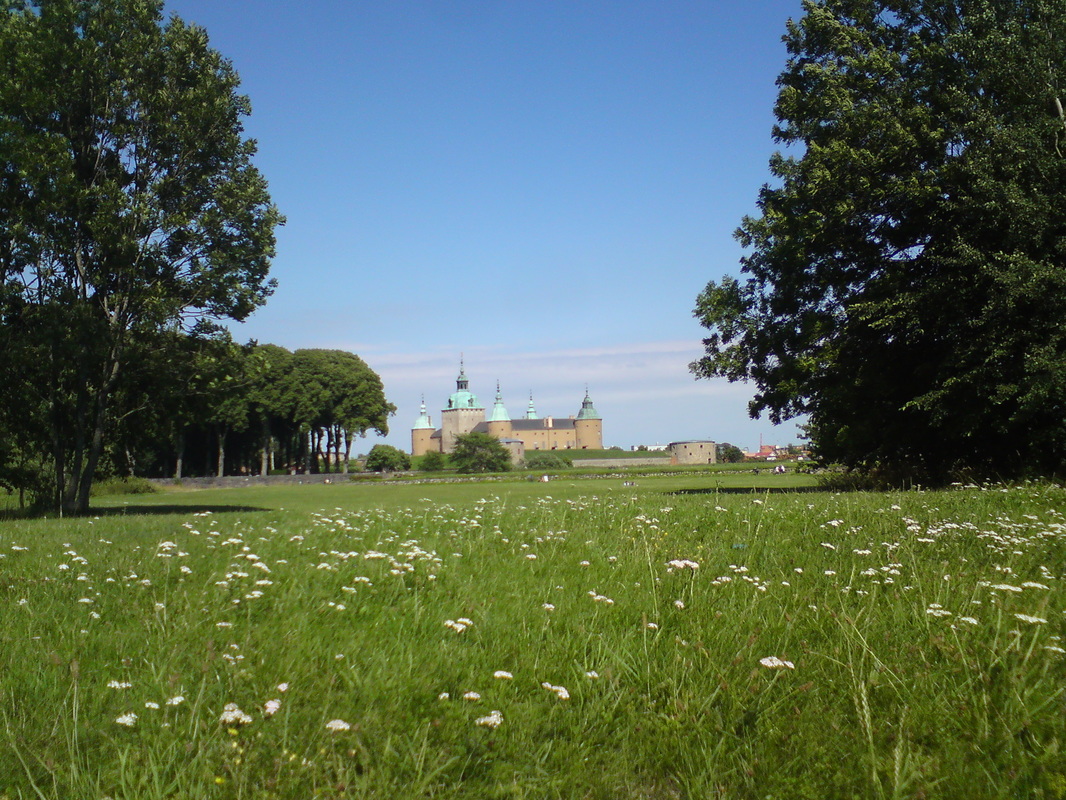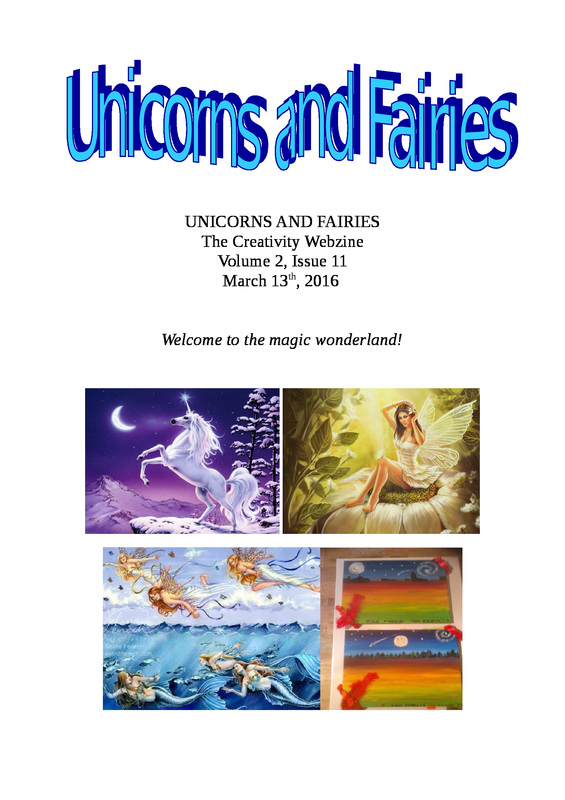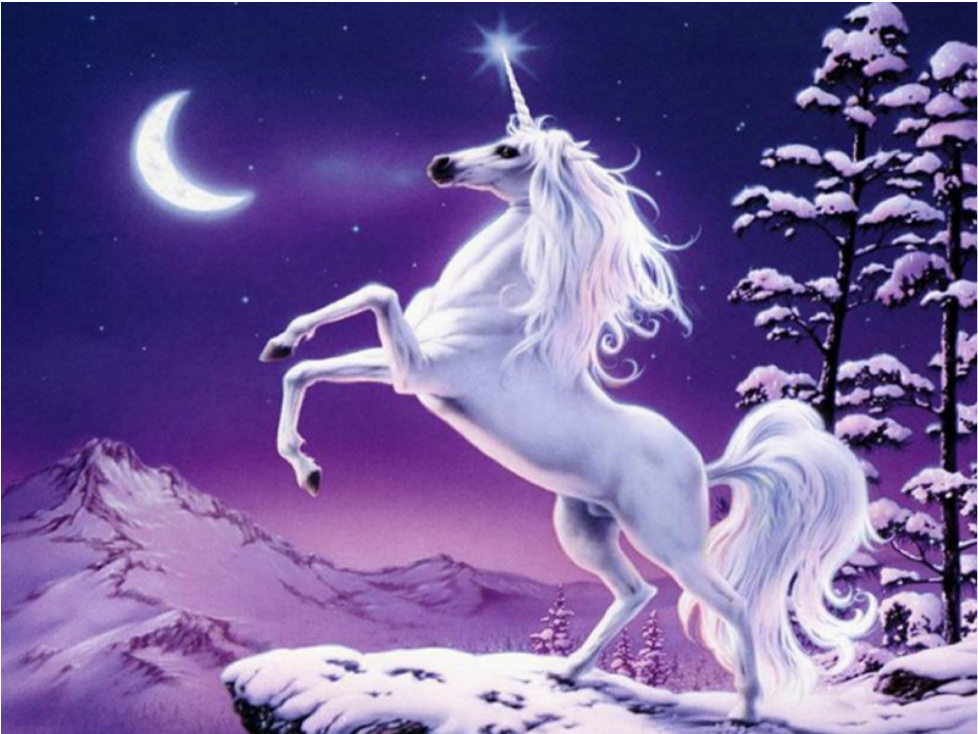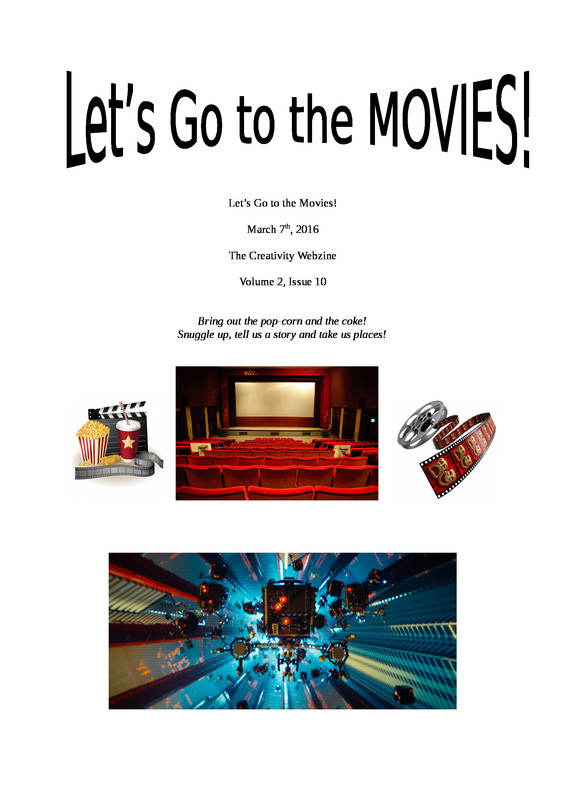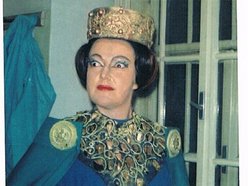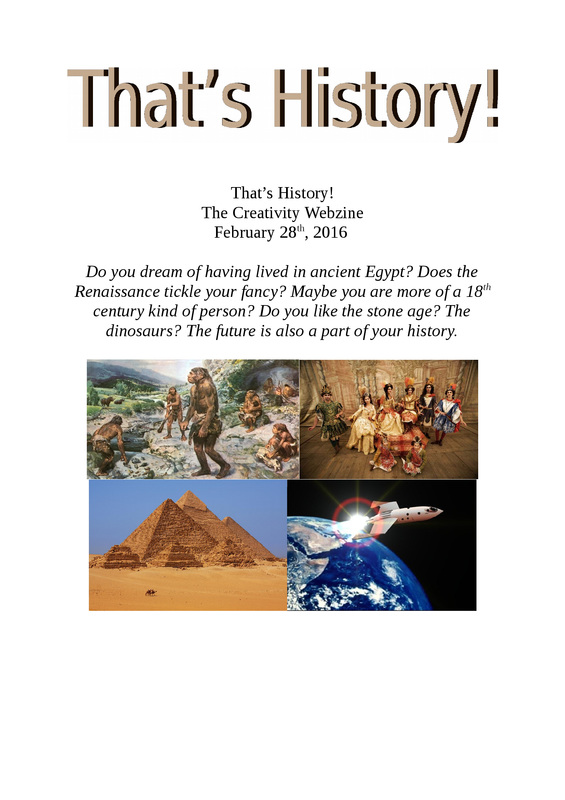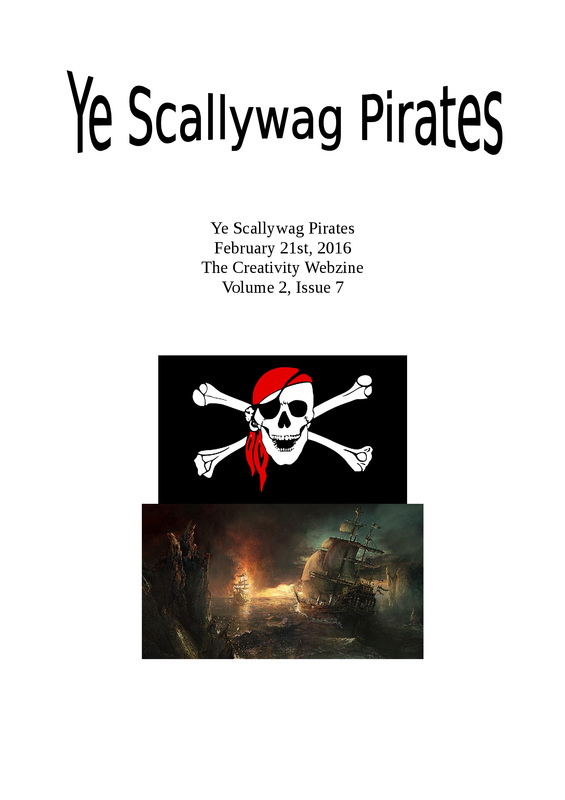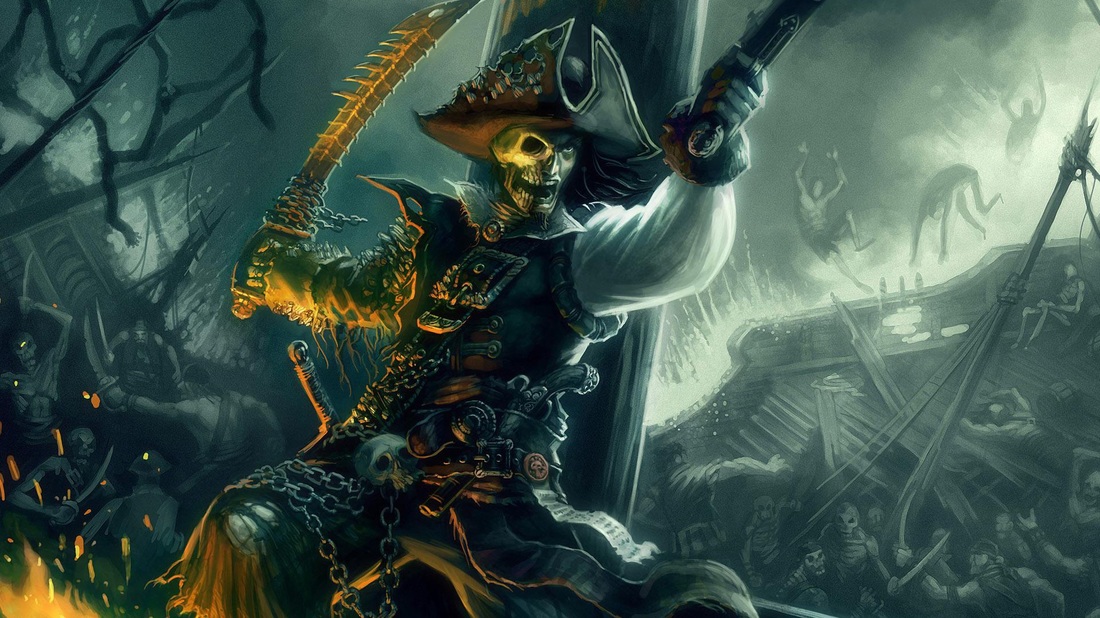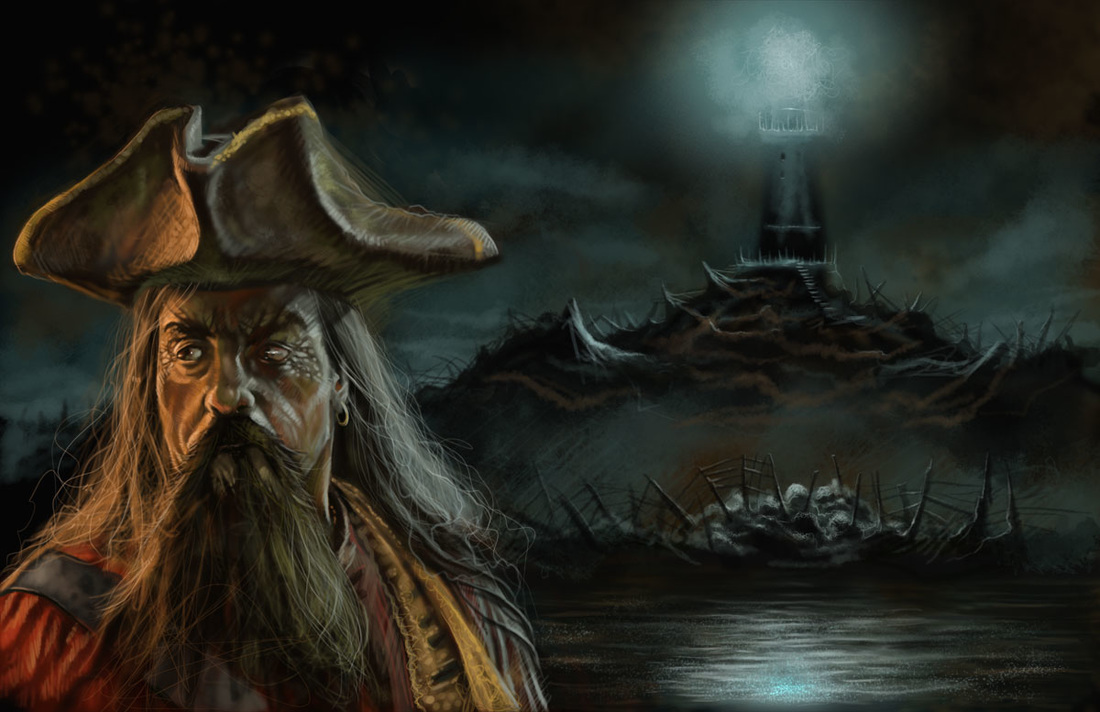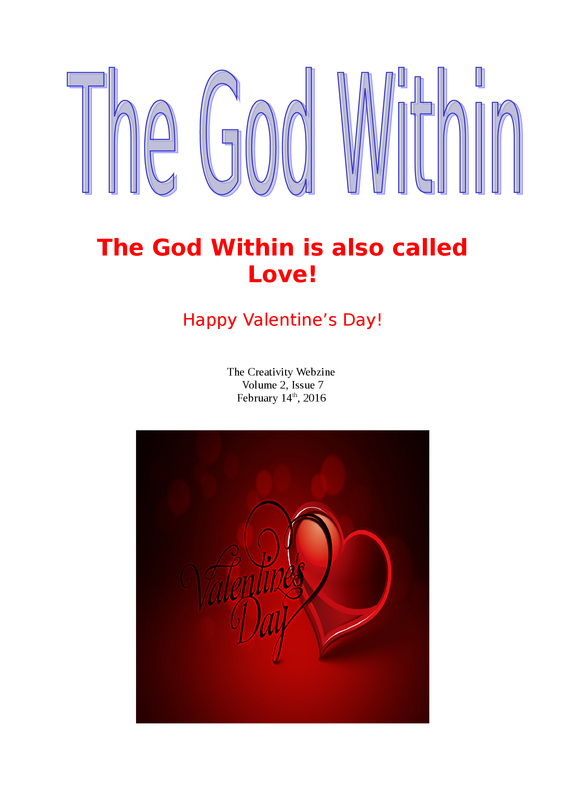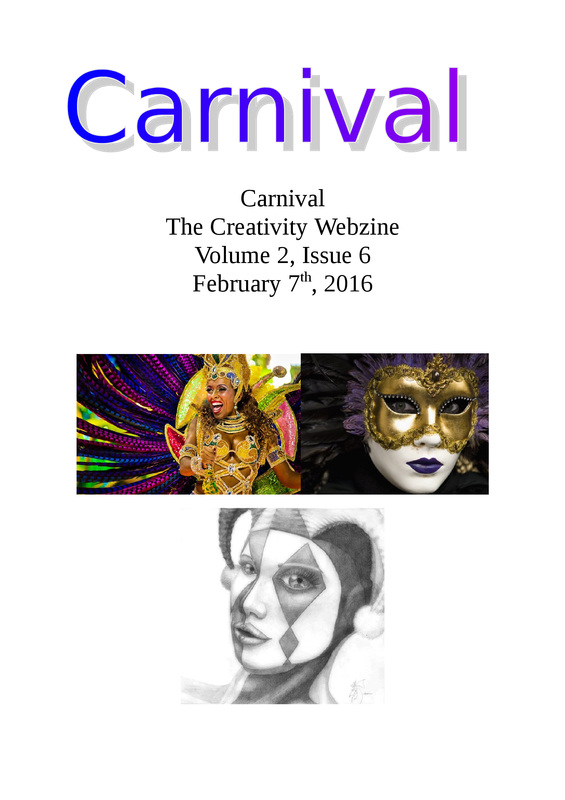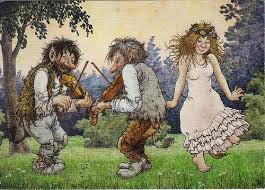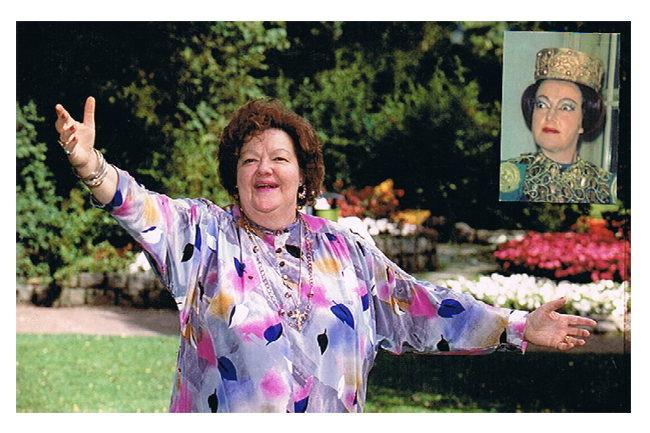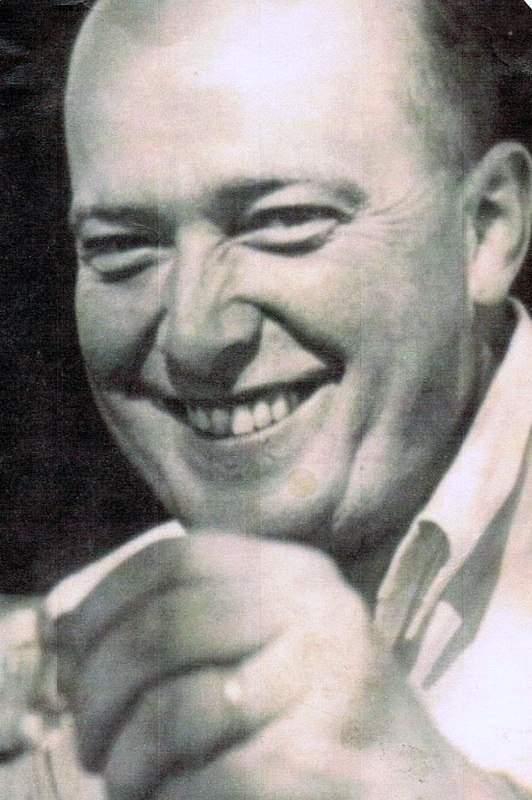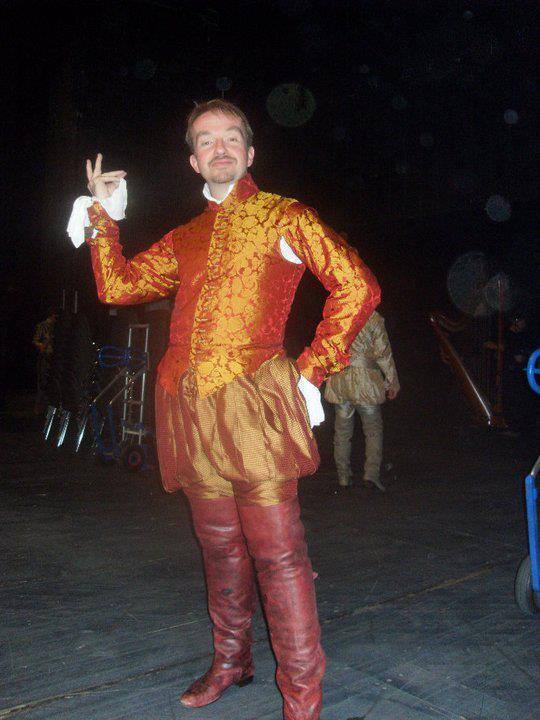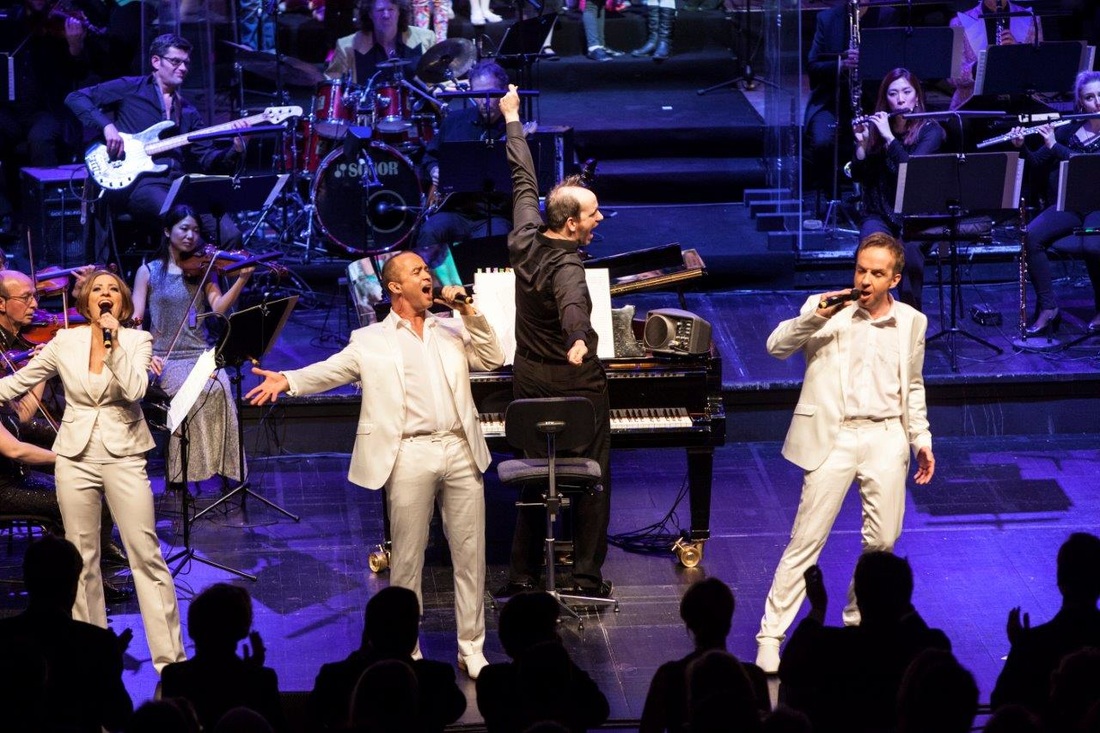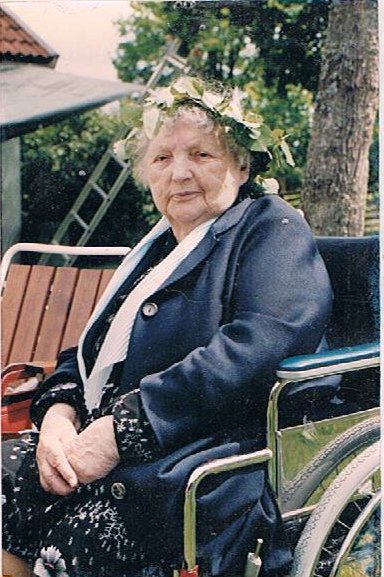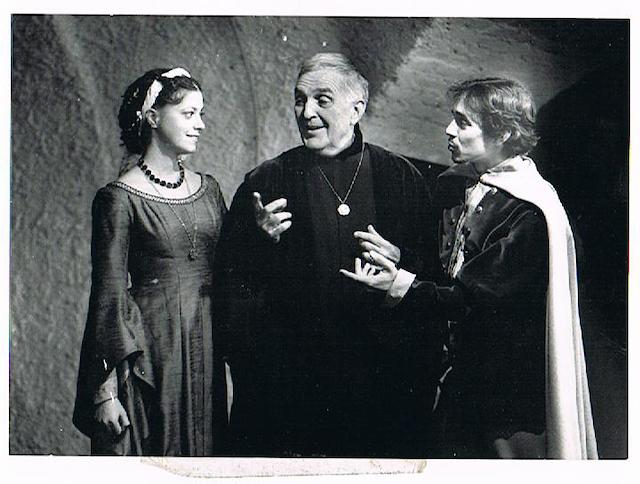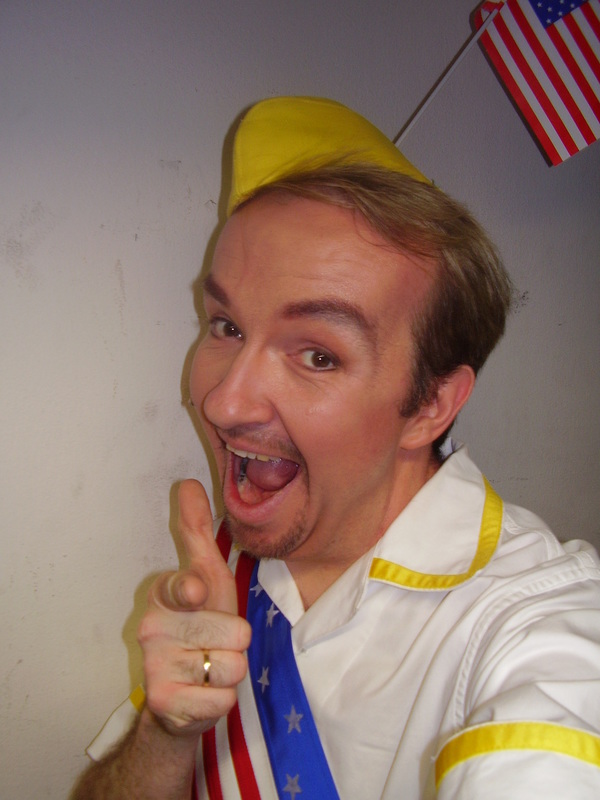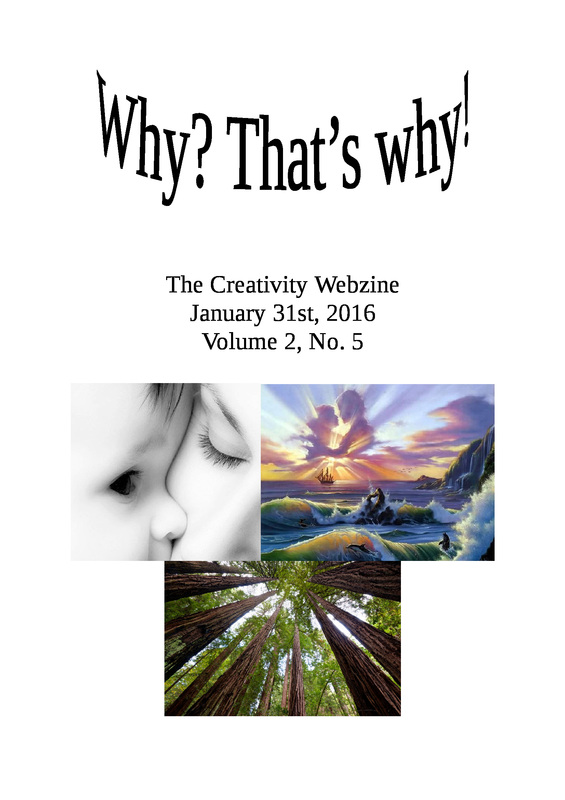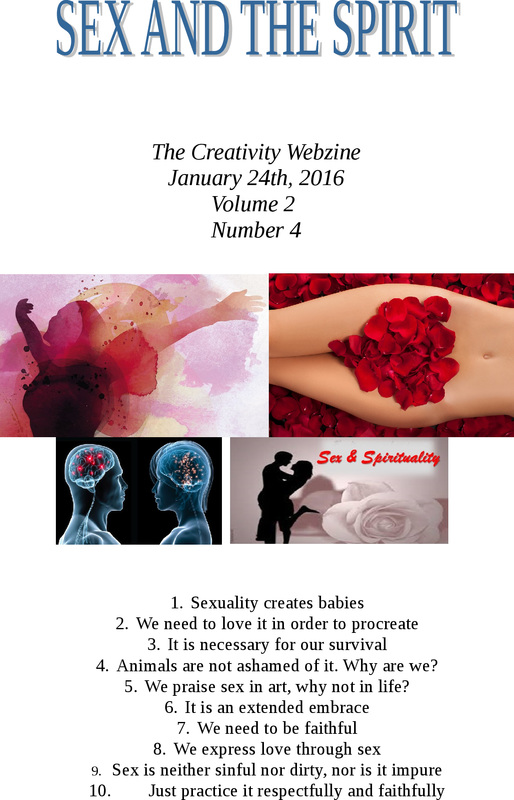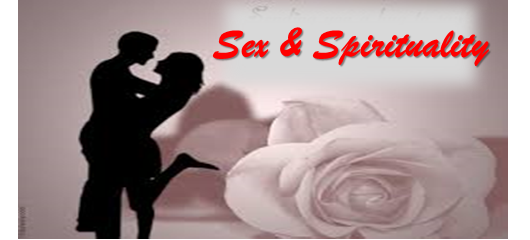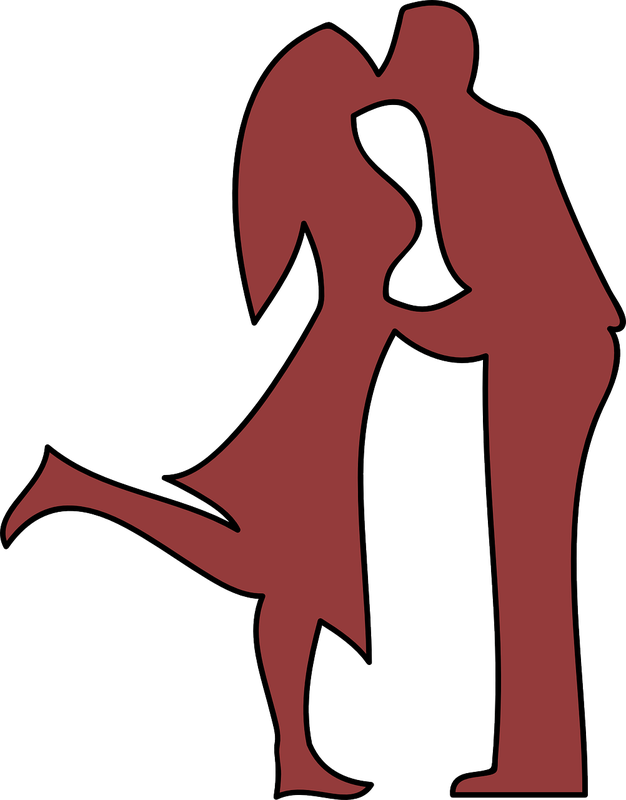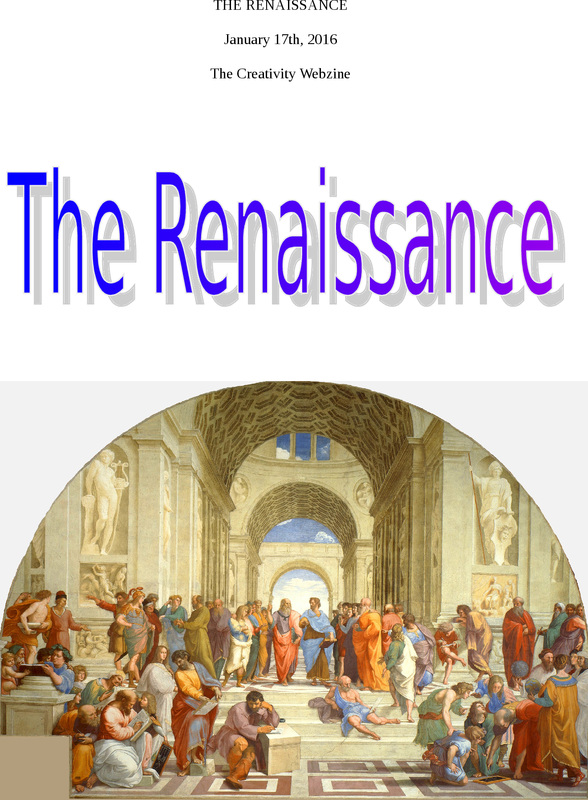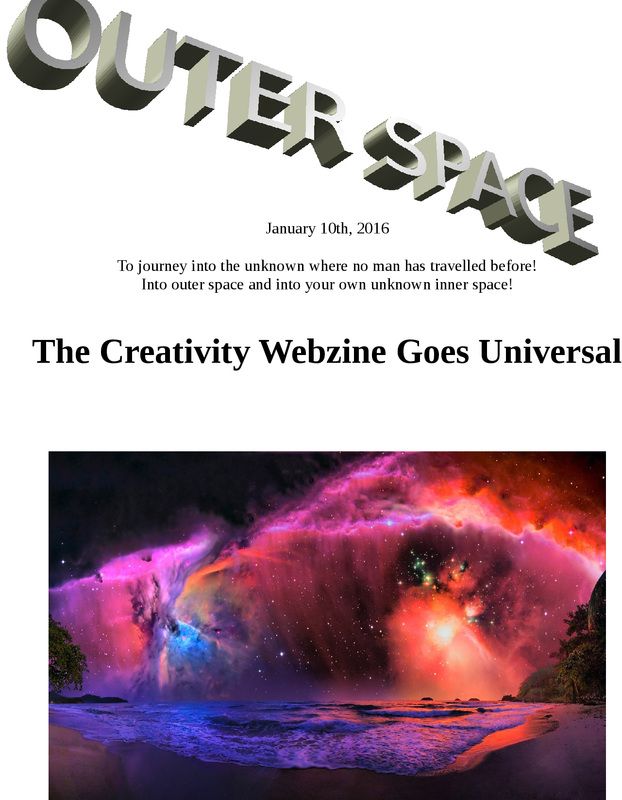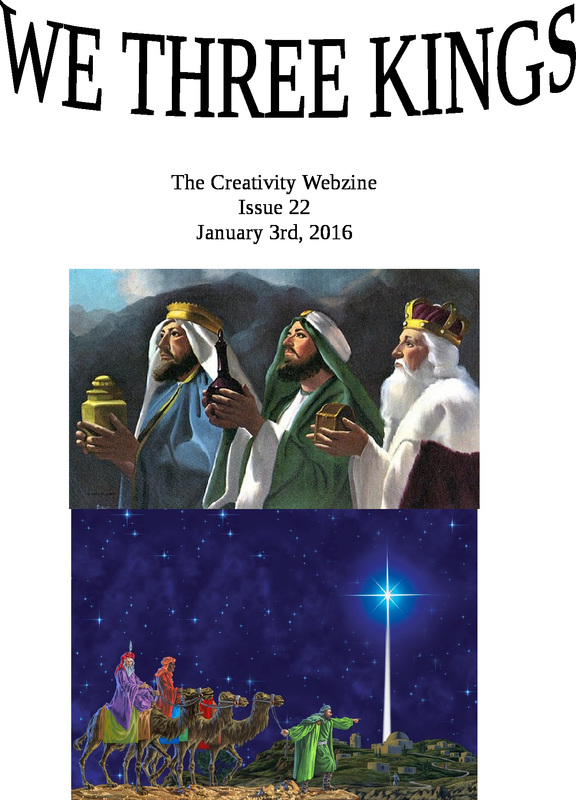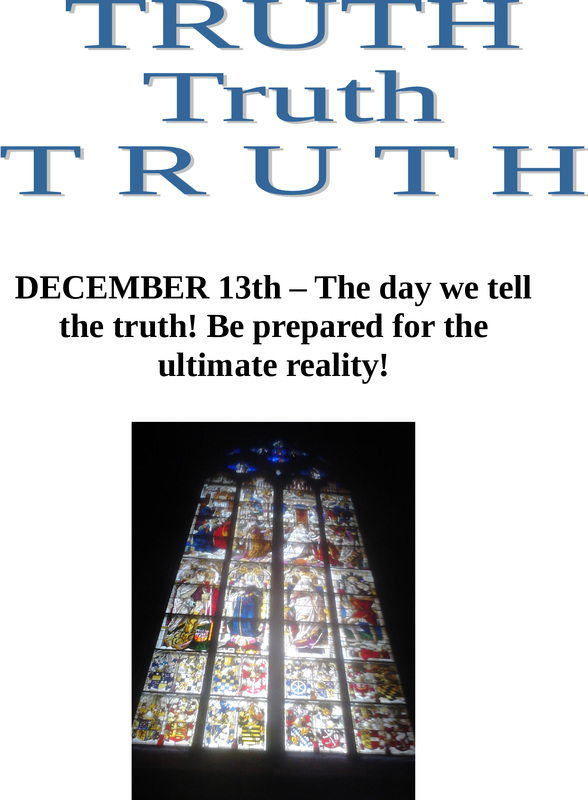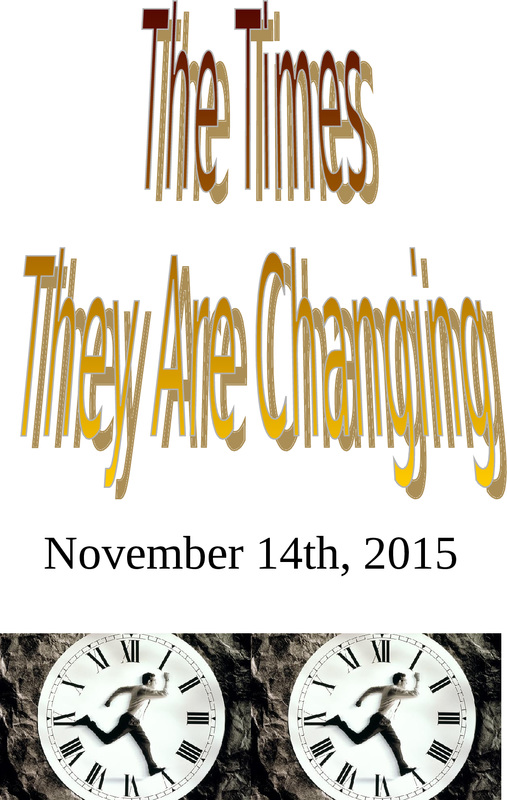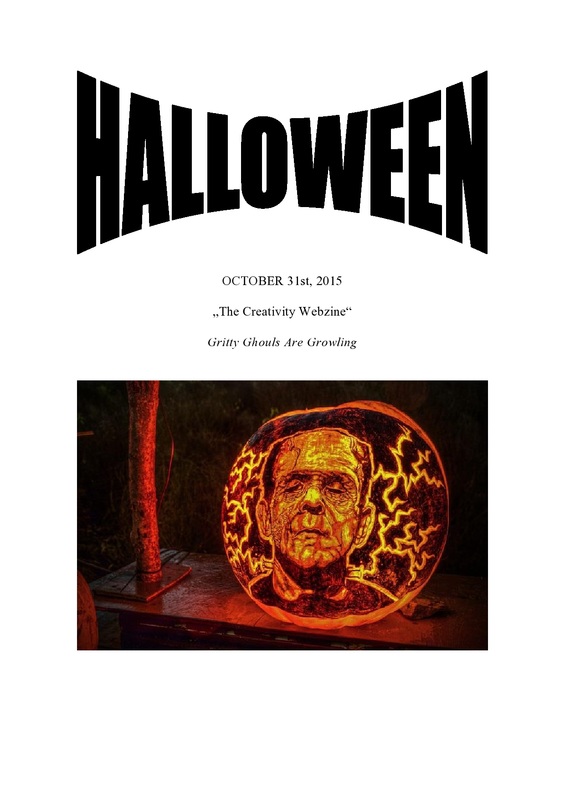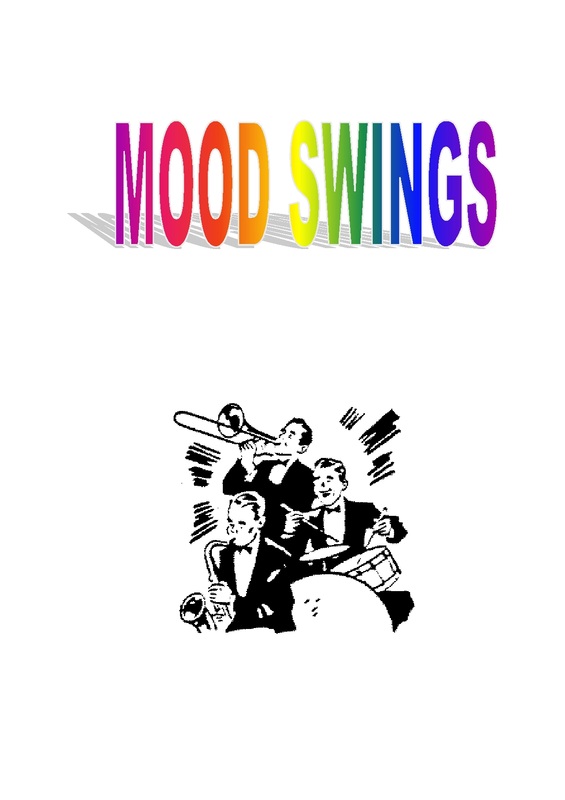Editorial "Music" - July 2024
“Rockin’ Wonderful Vampires”
A review of “Tanz der Vampire” at the Metronom Theater in Oberhausen on March 4th, 2020
By Charles E.J. Moulton
“Dance of the Vampires” has been seen by over 9 million people world wide since its beginning back in 1997. The show I performed 722 times at the Raimund Theater in Vienna, Austria, from 1997 to 2000 made it possible for me to collaborate with the musical industry’s top notch people. As I look back on it now, after 140 more performed productions and a few thousand more concerts under my belt, I see my experiences performing in that show as a blessing.
At the Metronom Theater in Oberhausen, Germany, I went on a trip down memory lane, seeing a performance of the same show in a different production. Memories came flooding back, people, places, experiences.
It was an almost fully packed theatre, even with die-hard fans dressing up in cast outfits, even a woman dressed up in the female lead red gala dress and people having smartphone snapshots taken of themselves in front of a Hollywood red-carpet-like show-canvas.
It also gave me a possibility to share with my 13-year old daughter what I was doing up to six years before she was born. I had a feeling it really impressed her what extravagance the show presented yesterday. My wife had seen the show years ago and liked it better this time around.
The political, diplomatic or corporate decisions of why the production is closing in Oberhausen should not be an issue here. After all these years as a singer, actor and performer, I am still of the opinion that the finished artistic product is a love affair between the audience and the performer. It is a holy act of love, because it inspires the viewer and the performer. For those three hours of time, the audience should and can forget all the troubles of daily life: what happens in there belongs to the soul. The boss cannot influence that love. That’s why this article is dedicated to the amazing work of the artists I saw yesterday working so hard and doing such great things.
Anyone who has worked in an en-suite musical and then returned to see the same show with other actors knows that you inevitably see your former colleagues in the costumes on stage, because they are the same designs. I could tell you exactly what person played what ensemble role in what costume. It can sometimes become eerie. I see that other person on stage, but I know it’s someone else doing the job. Holy shit, I even see myself on stage. Now that’s a doppelgänger effect if there ever was one.
A talented student of mine (Raphael Gross) played the lead in the show, Roman Polanski’s part of Alfred was based on his own part in the 1967 film of the same name, and it made me proud to see Raphael now performing the third production of the show I sang and danced in (after Berlin and Vienna).
After all, seven years ago he was here in my house in Herten, Germany, over the course of a half year, taking drama lessons with me, both of us polishing and perfecting his thespian technique. We worked on several interesting monologues, among others Marc Anthony’s “Friends, Romans, Countrymen”-speech from Shakespeare’s “Julius Caesar”. I had directed several shows with troop of young musical students in the Unitune, among others the musical Mamma Mia! (Raphael had already left by then) and we hoped to prepare him well enough to get him into a musical college or conservatory.
I told him back then that he would be the perfect Alfred in “Dance of the Vampires”. I should know, having performed with about a dozen Alfreds. It so happened that Raphael was accepted to study at the Vienna Conservatory, my former home town, almost immediately afterwards being hired as Alfred in the revival show twenty years after the premiere that I performed.
Raphael’s straight forward and nervous boyish charm as the lead protagonist charmed the audience and caused me to label him “one of the great Alfreds” of the show’s career.
My wife and daughter and I were chatting about what roles Raphael could play in the future and I mentioned Enjolras in “Les Miserables”, Lancelot in “Camelot” and Death in “Elisabeth”. Those are roles he would certainly have to grow into artistically, but they are most certainly in his future.
It was a good cast overall, Raphael’s nice lyrical voice and comic talent, Anja Backus spectacular belting mezzo (certainly sung way higher than how I knew the role from
Vienna back in 1997), Jonas Hein’s eerie and charismatic Count Krolock (great high range, sir!), Luc Steegers’ phenomenal crazy professor (I always admire that fast articulation), Diana Schnierer’s cute and bloodthirsty Sarah, Nicolas Tenerani’s very Tevye-like Chagal, Charles Kreischke’s flamboyant gay Herbert and Marja Hennike’s feisty Rebecca. Having played Koukol several hundred times, I know what Lukas Löw is going through. I hated those double shows, man! Getting good laughs while playing a hunchback carrying 20 kilogramm heavy candlesticks and running through the auditorium, mumbling some unintelligible words, that is hard work. I almost crashed into a wall during one afternoon show.
And I could still dance the vampire ball menuet, though, even today after 20 years absence from the show.
And the Nightmare Scene still gives me goosebumps.
Which leads me to the dance soloists: Laura Robinson, Tjesse Bleijenberg and Amarbi Tsikushev make that Rammstein-sounding dance from hell look like a trip down to Hades and back. That’s supposed to be a compliment, guys. My jaw still drops when I see you guys do that. Kudos.
I’d like to ask the vocal soloists Vincent van Gorp and Lukas Witzel if their vocal solos in Nightmare are still as exhausting to them as they were to our rock tenors. It is a thrill to listen to and blasts you away over those heavy guitars. Great work.
I do know that our ingenius orchestral arranger Michael Reed wrote a low contra D for me to sing in the booth (he asked us what our skills were) and that was written for me into the original orchestration on the Latin text.
And the mirror effect still works, making the dance between Alfred and Herbert a bit spookier.
Martin Gallery conducts the orchestra well and, of course, the ensemble deserves a mention: Kim Folmli, Manon van den Berg, Nadine Lauterbach, Celena Pieper, Bianca Benjamin, Laura Croucher, Lavinia Kastamoniti, Annis Rallis, Robert Meyer, Rafael Albert, Rhys George, Matteo Vigna and Lisa Neitzke.
The show has improved since we did it with great in-between films and vampires popping out of the woodwork to scare the living daylights out of the audience.
I remember the hullaballo the show caused in the Austrian press back then. The press were very friendly to us, even the gossip columnist Ro Raftl paying us a regular visit along with Austrian TV, there at every occasion, at the City Hall premiere party, at theatrical buffets, at Christmas concerts, at the City Hall Life Ball for Aids research.
For those who remember the Broadway flop, you’ll have to remember that the show was completely changed on Michael Crawford’s demands, changes that completely turned the show into something that just couldn’t work. The show lives on the terrifying Dracula-like Vampire Count and the eccentric funny professor with his Gilbert & Sullivan-like pitter-patter-songs. I am sure that the show would have been a long-runner in New York City, possibly even going elsewhere in the States.
Some of my most pleasant anecdotes were collected during that run. By now I have acted and sung in around hundreds of productions in five countries, but back then working with Roman Polanski’s was a cool experience for the CV and quite the page-turner. Whenever he was lost for words, he used to tell us “Just to do something wonderful!”
My by now rather famous belch from the Garlic song, still present on the original cast CD from 1997, was partly a coached acting-seminar by Master Polanski himself (I’m still waiting for the day when the have belching classes at college – hey, I’ll volunteer as Professor of Burps). He called me to the cantine one day to give me a five minute lesson in how to fake a belch. Now that’s something for a resumé.
“Just stand with wide feet, lazy expression, raise your arms, open your mouth and produce a gutteral growl that starts softly, grows louder and then goes soft again. That’s the perfect belch!”
I was sad to see my belch gone from the present show, but alas, belches come and they go.
The appetite stays.
Jim Steinman (Total Eclipse of ther Heart, Bat Out of Hell) was the nicest and most friendly of people. In reality a living vampire with his habit of working only nights, was extremely tired at 10 o’clock in the morning when rehearsals began. My mother Gun Kronzell (1930 – 2011)
was a Wagnerian mezzo-soprano with many Wagner roles to her credit. Jim, being the Richard Wagner of Rock, exclaimed: “Man, that’s cool!”
We mustn’t forget New York City choreographer Dennis Callahan, who charmingly whipped us to rocking action every day to produce what became a terrifyingly lovely musical experience.
Not to mention Steve Barton, who had the most incredible aura and charisma of any actor I have ever known. The guy had such a radiance it flabbergasted everyone. I remember that Steve returned for one last show in the year 2000, after one of his knee injuries. My dancing partner back then was so impressed I had to pull her away from Steve to get to dance the menuet with me.
A total array of Lloyd-Webber associates as a working team, it turned into what I thought it would be: an incredible success.
We all went on to do other things, some of us stay in touch, some of us don’t, but they were exciting times all, running down that 2 ton grave wall into the audience, doing our best to stay in pitch during that acapella chorus following the Nightmare scene.
I even remember our poetry society following the shows. “Oh, God, how I need a poem!” (Jeroen Phaff’s invention!) became a synonym for Tennyson and brandy.
I do remember I told my colleague Jens Janke that my Secret Santa had given me some secret stuff on my wardrobe table. The only thing was: I didn’t know that he was my Secret Santa.
I remember Vince Pirillo’s high tenor and James Sbano’s Woodstock-like wedding.
I remember Noud Hell singing the Carpenters in the dressing room.
I remember the day Johnny Depp came to the show, during his time filming “The Ninth Gate” with Polanski. I remember I played Koukol on that day and that I had rushed into the shower to greet him as myself, but that Johnny ended up standing outside the shower door talking to Steve Barton while I was naked in the shower room. Maybe I should’’ve walked out at that point. I bet Johnny would have gotten a kick out of that.
I do know that Johnny and I missed each other two years later when I was on a Caribbean Island, working as a singer on a cruise ship named St. Vincent (right after singing the Big Bopper in “Buddy”) shortly before Johnny arrived there to film “Pirates of the Caribbean”.
Ah, but letting go is just blissful, isn’t it?
In retrospect, to all the cast of the Oberhausen production of my old show: good work, guys and gals!
In one phrase you are ...
Rockin’ Wonderful Vampires!
“Rockin’ Wonderful Vampires”
A review of “Tanz der Vampire” at the Metronom Theater in Oberhausen on March 4th, 2020
By Charles E.J. Moulton
“Dance of the Vampires” has been seen by over 9 million people world wide since its beginning back in 1997. The show I performed 722 times at the Raimund Theater in Vienna, Austria, from 1997 to 2000 made it possible for me to collaborate with the musical industry’s top notch people. As I look back on it now, after 140 more performed productions and a few thousand more concerts under my belt, I see my experiences performing in that show as a blessing.
At the Metronom Theater in Oberhausen, Germany, I went on a trip down memory lane, seeing a performance of the same show in a different production. Memories came flooding back, people, places, experiences.
It was an almost fully packed theatre, even with die-hard fans dressing up in cast outfits, even a woman dressed up in the female lead red gala dress and people having smartphone snapshots taken of themselves in front of a Hollywood red-carpet-like show-canvas.
It also gave me a possibility to share with my 13-year old daughter what I was doing up to six years before she was born. I had a feeling it really impressed her what extravagance the show presented yesterday. My wife had seen the show years ago and liked it better this time around.
The political, diplomatic or corporate decisions of why the production is closing in Oberhausen should not be an issue here. After all these years as a singer, actor and performer, I am still of the opinion that the finished artistic product is a love affair between the audience and the performer. It is a holy act of love, because it inspires the viewer and the performer. For those three hours of time, the audience should and can forget all the troubles of daily life: what happens in there belongs to the soul. The boss cannot influence that love. That’s why this article is dedicated to the amazing work of the artists I saw yesterday working so hard and doing such great things.
Anyone who has worked in an en-suite musical and then returned to see the same show with other actors knows that you inevitably see your former colleagues in the costumes on stage, because they are the same designs. I could tell you exactly what person played what ensemble role in what costume. It can sometimes become eerie. I see that other person on stage, but I know it’s someone else doing the job. Holy shit, I even see myself on stage. Now that’s a doppelgänger effect if there ever was one.
A talented student of mine (Raphael Gross) played the lead in the show, Roman Polanski’s part of Alfred was based on his own part in the 1967 film of the same name, and it made me proud to see Raphael now performing the third production of the show I sang and danced in (after Berlin and Vienna).
After all, seven years ago he was here in my house in Herten, Germany, over the course of a half year, taking drama lessons with me, both of us polishing and perfecting his thespian technique. We worked on several interesting monologues, among others Marc Anthony’s “Friends, Romans, Countrymen”-speech from Shakespeare’s “Julius Caesar”. I had directed several shows with troop of young musical students in the Unitune, among others the musical Mamma Mia! (Raphael had already left by then) and we hoped to prepare him well enough to get him into a musical college or conservatory.
I told him back then that he would be the perfect Alfred in “Dance of the Vampires”. I should know, having performed with about a dozen Alfreds. It so happened that Raphael was accepted to study at the Vienna Conservatory, my former home town, almost immediately afterwards being hired as Alfred in the revival show twenty years after the premiere that I performed.
Raphael’s straight forward and nervous boyish charm as the lead protagonist charmed the audience and caused me to label him “one of the great Alfreds” of the show’s career.
My wife and daughter and I were chatting about what roles Raphael could play in the future and I mentioned Enjolras in “Les Miserables”, Lancelot in “Camelot” and Death in “Elisabeth”. Those are roles he would certainly have to grow into artistically, but they are most certainly in his future.
It was a good cast overall, Raphael’s nice lyrical voice and comic talent, Anja Backus spectacular belting mezzo (certainly sung way higher than how I knew the role from
Vienna back in 1997), Jonas Hein’s eerie and charismatic Count Krolock (great high range, sir!), Luc Steegers’ phenomenal crazy professor (I always admire that fast articulation), Diana Schnierer’s cute and bloodthirsty Sarah, Nicolas Tenerani’s very Tevye-like Chagal, Charles Kreischke’s flamboyant gay Herbert and Marja Hennike’s feisty Rebecca. Having played Koukol several hundred times, I know what Lukas Löw is going through. I hated those double shows, man! Getting good laughs while playing a hunchback carrying 20 kilogramm heavy candlesticks and running through the auditorium, mumbling some unintelligible words, that is hard work. I almost crashed into a wall during one afternoon show.
And I could still dance the vampire ball menuet, though, even today after 20 years absence from the show.
And the Nightmare Scene still gives me goosebumps.
Which leads me to the dance soloists: Laura Robinson, Tjesse Bleijenberg and Amarbi Tsikushev make that Rammstein-sounding dance from hell look like a trip down to Hades and back. That’s supposed to be a compliment, guys. My jaw still drops when I see you guys do that. Kudos.
I’d like to ask the vocal soloists Vincent van Gorp and Lukas Witzel if their vocal solos in Nightmare are still as exhausting to them as they were to our rock tenors. It is a thrill to listen to and blasts you away over those heavy guitars. Great work.
I do know that our ingenius orchestral arranger Michael Reed wrote a low contra D for me to sing in the booth (he asked us what our skills were) and that was written for me into the original orchestration on the Latin text.
And the mirror effect still works, making the dance between Alfred and Herbert a bit spookier.
Martin Gallery conducts the orchestra well and, of course, the ensemble deserves a mention: Kim Folmli, Manon van den Berg, Nadine Lauterbach, Celena Pieper, Bianca Benjamin, Laura Croucher, Lavinia Kastamoniti, Annis Rallis, Robert Meyer, Rafael Albert, Rhys George, Matteo Vigna and Lisa Neitzke.
The show has improved since we did it with great in-between films and vampires popping out of the woodwork to scare the living daylights out of the audience.
I remember the hullaballo the show caused in the Austrian press back then. The press were very friendly to us, even the gossip columnist Ro Raftl paying us a regular visit along with Austrian TV, there at every occasion, at the City Hall premiere party, at theatrical buffets, at Christmas concerts, at the City Hall Life Ball for Aids research.
For those who remember the Broadway flop, you’ll have to remember that the show was completely changed on Michael Crawford’s demands, changes that completely turned the show into something that just couldn’t work. The show lives on the terrifying Dracula-like Vampire Count and the eccentric funny professor with his Gilbert & Sullivan-like pitter-patter-songs. I am sure that the show would have been a long-runner in New York City, possibly even going elsewhere in the States.
Some of my most pleasant anecdotes were collected during that run. By now I have acted and sung in around hundreds of productions in five countries, but back then working with Roman Polanski’s was a cool experience for the CV and quite the page-turner. Whenever he was lost for words, he used to tell us “Just to do something wonderful!”
My by now rather famous belch from the Garlic song, still present on the original cast CD from 1997, was partly a coached acting-seminar by Master Polanski himself (I’m still waiting for the day when the have belching classes at college – hey, I’ll volunteer as Professor of Burps). He called me to the cantine one day to give me a five minute lesson in how to fake a belch. Now that’s something for a resumé.
“Just stand with wide feet, lazy expression, raise your arms, open your mouth and produce a gutteral growl that starts softly, grows louder and then goes soft again. That’s the perfect belch!”
I was sad to see my belch gone from the present show, but alas, belches come and they go.
The appetite stays.
Jim Steinman (Total Eclipse of ther Heart, Bat Out of Hell) was the nicest and most friendly of people. In reality a living vampire with his habit of working only nights, was extremely tired at 10 o’clock in the morning when rehearsals began. My mother Gun Kronzell (1930 – 2011)
was a Wagnerian mezzo-soprano with many Wagner roles to her credit. Jim, being the Richard Wagner of Rock, exclaimed: “Man, that’s cool!”
We mustn’t forget New York City choreographer Dennis Callahan, who charmingly whipped us to rocking action every day to produce what became a terrifyingly lovely musical experience.
Not to mention Steve Barton, who had the most incredible aura and charisma of any actor I have ever known. The guy had such a radiance it flabbergasted everyone. I remember that Steve returned for one last show in the year 2000, after one of his knee injuries. My dancing partner back then was so impressed I had to pull her away from Steve to get to dance the menuet with me.
A total array of Lloyd-Webber associates as a working team, it turned into what I thought it would be: an incredible success.
We all went on to do other things, some of us stay in touch, some of us don’t, but they were exciting times all, running down that 2 ton grave wall into the audience, doing our best to stay in pitch during that acapella chorus following the Nightmare scene.
I even remember our poetry society following the shows. “Oh, God, how I need a poem!” (Jeroen Phaff’s invention!) became a synonym for Tennyson and brandy.
I do remember I told my colleague Jens Janke that my Secret Santa had given me some secret stuff on my wardrobe table. The only thing was: I didn’t know that he was my Secret Santa.
I remember Vince Pirillo’s high tenor and James Sbano’s Woodstock-like wedding.
I remember Noud Hell singing the Carpenters in the dressing room.
I remember the day Johnny Depp came to the show, during his time filming “The Ninth Gate” with Polanski. I remember I played Koukol on that day and that I had rushed into the shower to greet him as myself, but that Johnny ended up standing outside the shower door talking to Steve Barton while I was naked in the shower room. Maybe I should’’ve walked out at that point. I bet Johnny would have gotten a kick out of that.
I do know that Johnny and I missed each other two years later when I was on a Caribbean Island, working as a singer on a cruise ship named St. Vincent (right after singing the Big Bopper in “Buddy”) shortly before Johnny arrived there to film “Pirates of the Caribbean”.
Ah, but letting go is just blissful, isn’t it?
In retrospect, to all the cast of the Oberhausen production of my old show: good work, guys and gals!
In one phrase you are ...
Rockin’ Wonderful Vampires!
A Symphony as an Allegory
By Alex Andy Phuong
Never underestimate
The beauty of a symphony,
Full of intangible beauty,
And focusing on the fundamental
Can really make life
Feel like a musical,
And even though cinema
Is the opposite of reality,
Dare to be original
And unique in any way
While letting songs from the heart
Soothe the human soul
As a part of a world
That is truly whole,
And a new life that begins at dawn
Can inspire anyone to continue on
So that life could remain timeless
As the music of individuality
Reveals the significance of authenticity
Do you need a time-out? A well-earned massage?
Wellness-harmony is the perfect place.
Tanja Moulton will make you relax with Hawaiian Lomi Lomi massage.
It relaxes you from head to toe.
She also performs soothing Chakra harmonization.
Check out her website and make an appointment.
Wellness & Harmony (wellness-harmony.com)
Editorial Article June 2024
The Fabric of True Royalty
Article by Charles E.J. Moulton
In the spring of 1441, Edward IV’s father was away in battle. Royal officials at the time set the date for royal conception in May. If the official conception date is true, we are either dealing with an unheard of eleven month pregnancy – or an illegitimate child.
Subsequently, the real bloodline of the British monarchy never sat on the throne and the House of Plantagenet, if we trace history back to the roots, can claim the right to rule Britain. So where’s the real King of England, by the real bloodline?
In Australia. Michael Abney-Hastings, the 14th Earl of Loudoun, was a Plantagenet Lord by ancestry, a father, a grandfather, and the inhabitant of a small town downunder. He knew until his death in June of 2012 that that the bloodline could be traced to his real origin, but would never have dreamed of going back to London to fight for the right to reclaim his family’s requisite of ruling the nation. In fact, he wanted Australia to become a rebublic. He was no monarchist, but one of the few republican aristocrats. His children, according to this theory, are the true monarchs of England.
This makes us ask an important question: what indeed is “true royalty”?
“Britain’s Real Monarch” (Channel 4, 2004) takes us on a proverbial whodunnit with a “What-If” kind of twist. Investigator Tony Robinson offers us the backdrop of history, not just historical names in a textbook. He lifts the curtain of intellectualism and dry fact and shows us the action of the true play on the stage of the real past, what really might have happened. It does not question royalty as such, but it does spark in us a thought: royals, too, are human. Very human, indeed.
If history would have granted the real bloodline to remain on the throne, we would have had a King Michael of Plantagenet in the Buckingham Palace. An ordinary Hanover woman named Elizabeth would have been loafing to the supermarket to get her groceries in order to cook dinner for her husband Philip before her bridge-buddies came over for tea.
The divine bloodline of monarchs, is that a legitimate concept or is, indeed, true royalty a spritual characteristic?
In the words of Whitney Houston (from “The Greatest Love of All”): people do need someone to look up to. There are such things as the DNA-strings of excellence, Mozart and Einstein had them, but give any given person with a normal or above average intelligence a privilaged youth, train them well from infancy to become rulers and they will become rulers, excellent or otherwise.
I have heard it said that anyone who experienced the very same things as Al Capone did, under the same conditions, would also make anyone turn into the same kind of criminal as he was. That might be just as true as the story of the privilaged princess who had never seen a poor person or never even knew what it was to be poor. She couldn’t even be blamed for telling her aide that the population should eat cake when they had no bread. The French population, however, went crazy, and beheaded her. Her name was Marie Antoinette.
Ignorance, is it evil? No, just ill informed. A director of mine, in my capacity as a stage performer, once told me: “When two opposing truths meet, a tragedy is born.” The French Revolution was a tragedy born out of the spark of two very adverse truths colliding like a train wreck – with 20,000 executions as a result.
What about the divine right of monarchs? Is history accidental, hanging by a thread?
Singular events, such as the conspiracy to cover up an illegitimate king can change the course of history. Status is won by hard work and sometimes by circumstance. Fame and celebrity are won by situation, they don’t define the integrity of any given person. The true monarch of England could have been sitting on his throne right now.
The person we know as Queen Elizabeth could have turned out to be the normal little lady we passed yesterday on our way to work.
If we could not all become the best or worst we could become in any of our given lives, then what would be the point of it all? There is a bit of Jesus and a bit of Hitler in us all. Life is God’s workshop. We embark on a journey in order to learn something.
The effort counts.
These efforts are indeed accomplishments worthy of respect without fame or fortune. Mickey Rooney was as worthy of respect at the end of his life, when his fame had dwindled, as in the height of his fame in the 1940s.
When Queen Elizabeth II brushes her teeth and goes to bed at night, what does she think? Does she tell herself, every night: “I am the Queen of England, I am important because I am a monarch and my people are not important because they are not monarchs?” No, she probably complains about a headache. Maybe she had a fight with her husband this morning, maybe this made the day quite difficult for her, maybe she can’t walk as well as she was able to once and long just to sleep. Maybe her supper was delicious and she will talk to her son about her speech at the House of Lords. Maybe she asks herself if she still remarks she had to go over it once before having breakfast the day before and what that might mean.
People first and foremost are private, the official picture of a so called famous person is a false one. We all have private thoughts, we are all private personalities, we are all souls. Status is almost entirely circumstantial. Fame is a flickering flame, which means we shouldn’t measure our lives according to our current social stature.
The consensus is that we live in a time unbelievably soaked and steeped in the lie that we matter only if we have a thousand likes on Facebook. Only fame makes us truly worthy? That, at least, is the illusion social media is handing us on that tweeting silver platter. Famous for what? What then did Vincent van Gogh, the gifted loser, think of himself? He sold only one painting in his life. In fact, his brother bought that painting. Nowadays, his work sells for millions of dollars. Was he less valuable as a human being because he had no money back then? After all, he never experienced his own fame. When he shaved himself in the morning, were his feelings less important because his work wasn’t displayed in the Louvre?
Franz Schubert, whose songs are now sung by realistically speaking every single academic voice student in the world, died with only 31 florines to his name. In fact, his musical composition of Goethe’s poem “Erlkönig” was sent back, by Goethe himself, to the wrong Franz Schubert with the complaint that the composition was mere trash.
Nikola Tesla, whose name today is synonymous with brilliant science, died alone in his New Yorker Hotel room 3327. His fame and success during his own lifetime didn’t prevent him from dying alone.
Robin Williams’s fame and fortune didn’t prevent him from killing himself. Fame is no answer to any problem and when it does arrive, life doesn’t change as much as we think it should. Per Gessle of Roxette once said: “We work all of our lives to become famous. When we do become famous, we don’t change at all. Others do, though.”
Basing your life on creative endeavor can be a smart move. That way, when fame arrives, you won’t be sad if it goes away again.
“Fame is fickle!”
Captain Janeway’s words in the Star Trek: Voyager-episode “Virtuoso” lead us back to our original thought: is true royalty indeed a spirtual gift? Are we indeed looking for something in icons that we have had within us all along?
In his autobiography “Moonwalker”, Michael Jackson wrote about overhearing fans asking themselves if that really was Michael Jackson, before finally coming to the conclusion that it couldn’t be him at all. Why would he be here, they asked themselves? Michael asked himself: why not here? Why not anywhere? He was somewhere on Earth at any given situation, so why not right here, right now?
Michael Jackson’s backstage snapshot, 70,000 fans behind him before a show, is a tell-tale sign of royalty in the making. Michael is private, unaware of the camera clicking in his direction. At that moment, we see the real Michael, not the star. Even Robbie Williams uttered a thank you to his assistant on a CD, claiming that others were as much “Robbie” as he was himself.
The idea that famous people are too good to be true comes from the idea that people are unworthy if not renowned. Opera-celebrity Mirella Freni was known to travel to work by using the subway, before singing her million dollar shows as a star at the opera. Luciano Pavarotti walked out unnoticed through the main doors of the concert-hall one midday, because no one expected to see him there. Alec Guiness, the man of a thousand faces, was so anonymous as a private person that no one ever hardly noticed him privately at all. Anthony Hopkins is known to stroll about Malibu as a beach bum between projects.
Even Queen Elizabeth II cries from time to time.
We all need someone to look up to, but in every person there is the truth of making the best of his or her life, becoming the most he or she can be. I do not believe in the divine right of kings. I believe in the divine right of anyone doing something good or anything good of his or her life. I believe in the eternal soul. There are people who would have become great kings and never got the chance to be so. There are people who were kings and did a terrible job at it.
The consensus is that we are all unique, all valuable, all special, whether famous or infamous or not famous at all, and that we all need someone or something to look up to. If we believe in reincarnation, it is likely that we all were in positions of power and fame at some point in some life. If you’re not famous and want to be, work to become so. Just remember that even if you aren’t famous right now, you’re still a special person without fame.
You matter, regardless of stature.
After all, no one can be you – as good as you are.
I am the descendant of the Eyre Barons of Eyreville in Ireland. The last aristocrat to call himself a Baron of that bloodline was Giles Eyre. My father always said, however, that the real aristocrat in that marriage was his wife. Integrity, accordingly, is a characteristic that has nothing to do with royal bloodline or aristocratic ancestry. Like dignity, true monarchy is dependant on one thing alone: dignified compassion.
Thanks to YouTube, we are today able to flip on any laptop and consume hours of material on any given subject. Typing Robinson’s name into the search machine embellishes history them with inner truth.
Strolling through British history is a valuable part of the popular education of Britons. These documentaries are more than just small presentations of little known fact or merely televised outlines of historical trivial pursuit. We are dealing with a consummate artist here and with information that should give us food for thought.
There are other European counterparts in humanizing royalty. Swedish foreign correspondent, journalist, author and historian Herman Lindqvist, in his documentaries, inspires the masses with every-day accounts in the lives of monarch’s. Robinson and Lindqvist might not be the sole authors or researchers of their work, but they certainly give their audience a personal touch that triggers inside us what the Germans like to call a veritable “Aha-Experience”. History ceases to be rhetorical or theoretical. It becomes alive, sizzling, vivid, vibrant, exciting. Never statistics on a blank page.
Historical personalities were more than just stuffy old codgers on thrones and in palace ballrooms. They were as selfish, as loving, as hating, as confused and as passionate as we are today or ever will be. Celebrities or not, monarchs or not, famous or infamous or just plain ordinary blokes, if we paint the picture of a humane society, we realize that people are always going to be people. The only thing that makes a person truly royal is the shape of his dignity. All of us, regardless of social stature, are human. That is true royalty.
Editorial: "Faith" - April 2024
Dear readers and artists,
"To sing through the night like a lark who is learning to pray."
Oscar Hammerstein II,
"The Sound of Music"
***
The image of the Family Von Trapp on stage at the Salzburg Folk Music Festival is a poignant one. They were patriots singing publically in spite of persecution. Knowing that fascism literally pushed them against the wall to join the enemy made them wonder how they could escape with their souls intact. Christopher Plummer, Julie Andrews and seven child actors starred in the five time Oscar winning Hollywood hit that took the world by storm back in 1965. The most famous image from the movie is the one of them all on stage together.Together is the key word. Families should stick together.
I met the actual Von Trapp family in 1997 at a reception at the American Embassy residence in Vienna. The real Maria Von Trapp was a charming lady not unlike Julie herself in the movie, although I met her when she was older. Their tolerance of the Broadway hit came from knowing that the father, Captain Von Trapp, by no means was as strict as portrayed in the musical, but that the story of their escape from the Nazi regime was a tale worth telling.
Singing their songs on stage knowing that the Nazis were in the audience waiting to take the father away in order to work for the Nazi regime against his will is a frightening prospect. The Von Trapp family actually managed to escape over the Alps to Switzerland and fly to America instead of becoming a part of terror. Their success as the singing family brought them enough money to open one of America's finest hotels. The Von Trapp Family Lodge in Stowe, Vermont is a 2600 acre land with a mountain panorama very much like Austria. So the family actually managed to create a life for themselves like the one they enjoyed in Europe. You can book a double room for 250 dollars a night, if you have the money. None of that would have happened had they not believed in what they did.
The family was driven from their home but somehow found their way into creating a new reality.
How does that work? How do some people march through terror and still end up living their dream?
If you believe quantum physics, what we believe creates what happens to us. What your electrons entangle with will fabricate the outcome. Yes. Electrons entangle with whatever or whoever they choose and these electrons stay entangled, connected forever, so it is your choice what you emotionally bond with. If someone threatens you, if you get emotionally involved with that person he or she has the power over you. If you stay neutral, the person has no power over you. This has repercussions. What thoughts of feelings inside you do you bond with? Let the aggressive thoughts just dissolve.
The positive power of what we believe is like light. It lights up the darkness. A lit match can light up a stadium. Atoms are energy. Matter is an illusion. So you literally dictate the particles into creating what you believe. But you can only do that if you've healed your past. If you're carrying too much spiritual garbage in you, there's no way you can break into completely new territory.
"Let's start at the very beginning. A very good place to start."
Maria's words on the hilltop are simple. Just as simple as the family's songtext of the note "Ti" being a drink with jam and bread. But simplicity isn't lack of intelligence. Like innocence has nothing to do with virginity or lack of sex. Simplicity is a fireplace. Honesty. Openness. Love. Friendship. Beauty. Care.
"It is time, Dr. Jones, once and for all for you to decide what you believe."
Julian Glover's words in "Indiana Jones & the Last Crucade" are equally poignant because he is the villain who forces Indiana to go through the challenges to find the holy grail. The psychological manipulation I went through in the 80s had me in the grasp of a mean friend who blurted out words that harmed me. But ultimately they were just mirror images of things I went through in previous lives and sent me into a spiritual awakening. So what we have to ask ourselves is: are the challenging people in our lives merely actors showing us stop signs where not to go? Do they test our faith?
It's all about faith. It's what kept the family Von Trapp going and ultimately had them win. Joseph Campbell writes in "The Hero's Journey" that the 12 step process of a story is a mirror image of own lives. We all have our mentors, our villains, our tricksters and our allies. Sometimes our partners are also our threshold guardians. If we are strong enough to persevere such relationships, we will win gloriously. If we chicken out, our next relationship will present us with the same issue. The important people we meet are very close in character, which proves to me that the universe wants me to face the conflicts with ease and faith. My childhood presented me with contradicting wills that split my loyalty and created cataclysm inside me. But it was mine alone to solve.
Faith. What is it? Trust. What is trust? Peace of mind. What is peace of mind? Happiness untied to outer circumstance.
We humans tend to need outer proof for what we believe. Tieing it to some thing or situation that to us proves to us that it is all true. That's what relics are all about. We keep parts of the cross and say: "See? He did die on the cross!" We write 400 page books trying to prove, successfully, that the Shroud of Turin was a photography of the resurrection. We keep a cup that we know from the 1st century A.D. and store it in a shrine and say it's the holy grail. In Ethiopia, millions of people believe that they own the Ark of the Covenant where Moses kept his 10 commandments. Heck, that is what even OCD is about. We want to prove it.
The reality is that quantum physics alone proves that everything is energy. There are 800 out of body experiences in the U.S. alone daily. People do astral projections for fun on a daily basis. The CIA and FBI work with telepathy and clairvoyance professionally. Clive Baxter proved that plants can feel in the 1960s. We need not tie our eternal souls to any event in history. It is okay to do so. But basically we have so much proof that we are eternal souls that we need not search for evidence.
It all amounts to one thing: faith.
Best regards,
Charles E.J. Moulton
Editor in Chief
The Creativity Webzine
Editorial "Spies and Detectives
Dear Readers,
There's good news and there's bad news.
I could ask you right now what news you want to hear first, but since you reading this are not here right now, and I am communicating with you on a delayed basis, I will have to choose which news I want to give you first.
Otherwise we would be waiting here forever. Right?
First off, bottom line, these things are based on opinion and perspective.
You may disagree. Maybe you even should disagree.
The good news is: most probably there will be no cataclysm, no apocalypse, no dramatic end-of-the-world-scenario. The ISIS will not be taking over the world, the Illuminati is not collaborating with the FEMA to kill off zillions of people in order to create a paradise for the elite and, no, Wayne Newton is not leaving Las Vegas. Ever. When he dies of extreme old age, they will probably enbalm his body and enshrine it, putting it on stage and playing recordings of "Fly Me to the Moon" with his famous snappy vocals blasting through the speakers, while you happily sip your ice-tea, tapping your Pradas.
So don't worry.
More importantly, there is no long-term conspiracy to enslave humanity, not by the world leaders, not by the Bilderberg Group and certainly not by Microsoft - or Wayne Newton. Even he, believe it or not, needs a break.
The reason is evident: egotism, people have become short-term, little suns that hardly leave their solar systems. We're facebooking, tweeting, socially networking each other, playing the game I call "Nobody knows this, but I'm famous."
A long-term-conspiracy is way too much work, even for world leaders.
Now for the bad news: I said long-term-conspiracy. What we need to worry about, however, is the short-term-political-games, the chess of the moment, the memory flashes of the hidden political agenda, the momentary games influential people are playing in order to stay rich and get richer.
For a long time, I really believed in "the long-term-conspiracy". The massive output of literature on the subject is overwhelming. Most popular is the idea that a certain group of elite people have, since 1776 (choose your year, because this goes way back, even to the Knight's Templar – or further), been planning a plot to kill off millions of ordinary people so that they can rule the world. But that, fortunately or unfortunately, is as improbable as Arnold Schwarzenegger's ham-acting moment as Mr. Freeze in "Batman Forever": "I'm gonna rule ... the world!!!!!"
No one can keep that kind of plot going.
The reason why you would plan any conspiracy in the first place is not have your great-great-grandchildren take over the world, but to remain rich and powerful yourself. Period. The world is way too random, way too selfish, way too self-centered.
Say three influential people form a conspiracy against another influential person. Why would they do that? They would do it because that other influential person is threatening to uncover their secrets, make them poor if they’re rich or take away their power if they’re renowned. That would be logical. Could these three influential people, however, pass on this conspiracy to the next generation? The children of conservatives might become liberal, might remain conservative, but add something new. Eventually, this next generation will do what they want to do. Anyone younger than you will have to and want to be a bit different than their parents. That would go against human nature. The pendulum swings to and fro. So, no, these theories that the new world order, the elite enslaving the dumb, has been a planned fact since 1776 cannot be true – at least not in the way we think it could be true.
Three generations later, that initial conspiracy will have disintergrated. What the supposed twelve men of zion (kept alive via the Skull & Bones, Illuminati, the Bilderberg Group, and so on) in order to eventually create a paradise for the elite might have been written on paper once upon a time. Now, 240 something years later, with the internet, no secret like that will ever be kept. There are new invented supposed secrets, theories that become official. Bottom line: there are new interests, new goals for new people.
As always, the conspiracy-theorists are only half-right. Where there is smoke, there is fire. The conspiracies in question are short-term. Political scenarios might be created to divert attention from worse things that might cause scandal if discovered.
A sickness might be overblown in the media so that a government's bad environmental decision will not gather too much coverage
– for instance.
When Kennedy was assassinated, that, too, was a short-term-conspiracy designed to prevent the president from endangering certain people in continuing to uphold their sordid lifestyles. It was painfully obvious to everyone with even a half iota of common sense that the official story about Lee Harvey Oswald killing the president was just a cover-up. If this hadn't been the death of a president, the real killers would have been caught in no time. Witnesses had seen Oswald in another part of the building from which he supposedly shot the president. The supposed bullets, not one bullet, came from the grassy knoll, not from behind Kennedy. Oswald himself admitted in being a patsy. This is not paranoia. It's common sense.
If one thing points in one direction and nine things point in the other, there is a great probability of a theoretical mistake. If ten things point in one direction, there is a 99 % chance of a probable theory. Out of ten points of criticism in the Oswald answer to the Kennedy assassination, those ten points all point to mutual effort – i.e. more people involved as opposed to a lone killer being the cause of it all. Together, they create a massive problem. They pinpoint the picture of a plan.
As I said, it's common sense. We should look to the core, though, for the reason. It was short-term, egotistical cry for help. It wasn’t because the culprits wanted to rule the world and kill everyone off who wasn’t powerful. They could care less about everyone else. These people just wanted to stay rich. A great deal of modern conspiracy scenarios point the same way. You want to boost the economy, sell weapons and win oil? Create a reason to go to war against an enemy. Create an enemy, not because you want to rule the world in three hundred years. You just want to stay in power. Kennedy wanted to obliterate the CIA, he wanted no war in Vietnam and he wanted to disclose top-secret information. That's at least three groups of people that he threatened, three groups of extremely rich people that he was pointing his proverbial guns at, three groups that were afraid of becoming poor and losing their job because of him. To extremely rich people, poverty is worse than death. One CIA agent even admitted on his death-bed that he had been secretly assigned to be one of the killers. His wife confirmed this fact that, indeed, her agent-husband had killed Kennedy.
The supposed film, available on YouTube, which shows the driver William Greer shooting Kennedy from the driver's seat has to be a fake creation. Someone had to have fabricated that scene in retrospect. Such an incident would have been noticed by the thousands of people present. The driver killing Kennedy is about as probable as an assassin announcing when and where a prominent person is going to be shot. It's the ISIS-scare of ruling the world, the twenty-year-plan that was issued in international media in 2015, threatening to create an islamic world by 2020. Now, if you wanted to do that, you wouldn't tell everyone, would you? I'm gonna take over you? That becomes a comedy.
That is propaganda. No more.
No ... less.
But still: it was a problem in 1963. Today it's history. Today, the assassination remains a tragedy. The people who were responsible for it now are dead. You do the math.
Next fact: Ebola. We all thought Ebola could destroy the permanent health of humanity. I spoke to people from Sierra Leone and Kamerun, though. I was told that the inhabitants of the so-called endangered countries wondered what the hell the international media was talking about. Sure there was Ebola, but the catastrophically fatal numbers were invensions One journalist even resigned from his profession, because he had been forced to spread lies. Look at Ebola now. Is the international media speaking of Ebola? No. You do the math.
Next fact: the so-called bird-virus that was deemed as highly lethal and could kill millions. International media spoke of a European island that had been severely threatened by the disease. One researcher went to the trouble of going there and asking what the truth was about the scare there. Nobody knew what he was talking about.
For years and years we have seen catastrophic scenarios come and go. But they all are forgotten sooner than we can say "Jack Robinson" or "Osama Bin Laden", even. Soon enough, the crisis desolves and people go back, maybe not to normal, but back to their lives, anyway. If this is due to the official spreading of false information or a plan to divert attention from other and darker political events, I don't know. The fact is that apocalyptic scenarios and conspiracy theories, the latter sometimes leads to the former, are as old as time. Even the Assyrians many millenias ago knew about both.
We are talking about the games that people play in order to distract each other – so that they can remain rich. People will remain people. In companies, we see the miniature versions of global politics. Sometimes, the celebrities want you to believe they are different, that they don't drink water and sleep and fall in love and forget their car keys. Sometimes, other people want to believe that they are different, but they would rather be accepted as normal. Everyone is unique, beggar or president, but we are all human. If we accept that as a fact, we have already evolved.
There are dangers, certainly. Everywhere. But there are also blessings and oppurtunities. Everywhere. There are also oppurtunities to heal dangers. Everywhere. We should stop acting like we were completely at someone's liberties, like we were completely dependant on other people. Sometimes, in fact: a lot of times, it really is up to us if something succeeds or not. We should stop acting like victims. We don't have to be victims. We also don't have to become stereotypes just because someone expects us to succumb to our position or gender or creed or because we want to be liked. The exagerration of Ebola might - I say, might - have been a hidden created agenda to divert attention from some global environment reforms that would have caused major scandals if the truth came out. The ISIS terror might - I say, might - be a western sponsored confusion to make people unaware of a political game on another front.
But it is a current poltical scenario.
In ten years, there is a chance that it all will be forgotten.
How do I know that?
Well, for one thing: history proves it. Name one dictatorship, one single all-powerful plan to control humanity that has succeeded – to last. The Roman Empire, the Soviet Union, the Third Reich, they all disintergrated eventually. Looking at the ISIS issue, we have to remember that we are dealing with a Middle East problem. That’s how we should treat it.
These political games are sociological disorders, symptoms of envy.
The answer is not to define yourself merely as a sociological creature, but as an individual interacting with other individuals. For instance, I do not believe in the existance of any “common” or “ordinary” person. To me, those words are fabrications.
If we stop telling ourselves we are less important than and just as special as famous people – then we might reach true equality. “Famous” is a relative term. Somebody might be famous in Sweden, but “Unknown” in America. We’re dealing with a term that has to stand the test of time. Furthermore, the term “ordinary” is as much an invention as “the eternal conspiracy.” The true paradox is that true justice and unity springs from realizing how different we are – and thereby how much we can learn from one another.
Define yourself as a being with feelings as opposed to just defining yourself as a sociological creature. You are more than just one feeling to one person. We are all unique, whether our names are John Doe, Wayne Newton or King Charles III.
End of story.
Best regards,
Charles E.J. Moulton
Editor in Chief
The Creativity Webzine
Editorial: "Unity"
Dear Authors, Creator and Artists,
“Each star represents a single thought.”
That’s a line from the series “Star Trek: Voyager.”
In the episode “Night”, fifth season, first episode, Tuvok, Spock’s post-centurion torch, tells us that he misses the stars he has gotten to know so well, during an excursion through empty space. That inspired a thought in me. A thought that follows the ideology of a quote I read on the way back in the train today:
“We think all the time, so why not just CHOOSE to think good thoughts.”
Life is a journey, definately, and everyone is involved.
Choose to think positive.
Choose not to complain.
Choose to take responsibility.
Even if someone did you wrong, you had the choice of going there to partake in it.
Take responsibility.
Positivity is a choice.
You can choose.
Life is a concerto ... and you play your instrument in the orchestra ... of life. You might not like the instrument playing next to you, bub, but unless he existed, you wouldn’t know who you are. So, you need him. You need the variety. Without it, you would lose your place as fast as someone that looks for streetsigns in a world of similar names. Your adversary points you in the right direction, but he tells you where not to go.
I had a conversation with a singer in the chorus I am conducting ... a few days ago. We were having a spiritual conversation filled with deep thought.
“The God Within counts,” he said. “The afterlife exists, but the key to it is not outside of you, but inside you. The God of Religions is a fabrication. The God inside you is eternal. I am not afraid of death, because God lives within me.”
Just imagine, folks, if there was no death. That death was an illusion, that your soul
all you have, all you need. Just imagine you are here to learn something, that the real world is
where you are at home, beyond this world.
You wouldn’t have to bicker about whose version of the afterlife was right, would you? It is. That’s it. There are a thousand synonyms for the word “beautiful”, but it is what is is. If we wear a scarf or a turban, call God “Allah” or “Brahma”, it doesn’t matter.
It is what it is.
Our interpretations vary.
If we want the truth, we seek inside ourselves, not within society.
We have to live with and within society in these days, no question.
The inner truth remains the same.
Every star represents a single thought.
Respect life.
Respect every thought.
Respect love.
Respect making love.
Respect procreation.
Think positive.
Life is a journey.
Always.
We need diversity.
Respect the eternal now.
Feel.
The thought process in my brain, the idea if you will, started with an airplane. I was standing on a railway platform waiting for my local train a few years ago. I’d had another tedious performance of my 90th opera production with little to do on stage but stand around, sing and emote. I was looking forward to more challenging tasks. My thoughts were elsewhere, in the clouds, in the air, with God.
I saw it flying overhead, a passenger plane. How it flew into the clouds, disappearing out of sight, causing me to wonder who was in there and where they were going, it amazed and astounded me. Someone is in that plane, I thought. Someone is on their way on a vacation. Maybe someone is there in love. Maybe on a honeymoon. Me, right now caught up in a one of this week’s shows I was doing, little to do and wanting to do more, and getting more, many gigs coming up, many plans, many shows, many agents wanting many a thing.
Then, suddenly, there was that passenger jet on the way into a cloud.
“Soon it will reappear from behind that cloud and I will see it fly across the sky,” I thought to myself.
It never reappeared.
Instead of the expected reappearance, I heard an internal voice inside me, more of a feeling, really. “Imagine yourself sitting on that cloud, looking down on that already existing airplane. That plane is part of reality. Imagine sitting on the cloud, your feet touching the plane.”
I did as the voice told me and began to realize that this cloud was real.
Not just a illusive entity.
It was exhillarating.
“What do you see from up there?”
“I see the town I am in right now and other towns. It is a splendid sight.”
“What else do you see?”
“I see the entire area, I see the Ruhr Area, I see Germany.”
“Go higher.”
“I’m trying.”
“Okay, try something else.”
Then, it happened. In my mind, I flew beyond the stratosphere, looking at the cloud from space. I flew to the moon, looking at the cloud from the moon. I flew beyond our solar system, looking at the cloud from beyond the Milky Way.
“Watch the clouds again,” my guardian angel, that internal voice, told me.
I did. It was amazing. What I saw was a revelation. It was Buddha’s enlightenment. It was Jesus’ resurrection. It was a flower on a field. God is a laughing baby. The missing peace. The missing piece. Reality is God’s dream.
I gazed at the clouds. I mean not just at them. I gazed at them, travelling in unison up there like a race of giants, unique like us and yet one in God. They were all moving at once. I saw these hundred of clouds on a canvas of a static, blue sky a summer night at eight and I kept looking. I realized that I wasn’t just looking at the clouds. I was looking at the Earth moving. The satillite pictures of Earth’s clouds. Yes, I was looking at eternity.
The clouds were a part of a panorama, moving together, triggered by winds.
Words from that profound, 1000-page book I had finished reading, “Conversations with God” by Neale Donald Walsch, rang through my mind. “The stars that you see out there are not there any more. You are looking at a star that might have been the reality of a former life of yours. You are looking into your own past.”
The plane flying into the clouds, the clouds flying into the plane? Me sitting on the clouds, the clouds in unsion, eternity.
Then, I realized that all of the universe is moving. Constantly.
That’s where I am now. In movement. Sitting still and moving, revolving around my own axis, typing these words on a page for you to read them where you are sitting. Typing, sending, moving, learning, doing, yawning. Cloud flying. Airplanes flying into clouds. Clouds flying into airplanes. Me. On this Earth, moving on a moving rock, circling in space, in a huge area filled with nothing but asteroids and satillites and the occasional rocket – and beyond it, the great unknown, perhaps greater than anything we have ever seen.
The Earth spins a half kilometre a second around its own axis, moves around the sun 30 km a second. The solar system revolves around the Milky Way Galaxy Centre 250 km a second. The milky way galaxy moves around the local galaxy group 300 km a second and so on. Everything moves. Even static objects move. The world consists of atoms. They move 2200 meters a second. Everything is moving. All of the time. So, the illusion of a static world is a just that: an illusion. Even the atoms inside the stone are moving.
That brings us to the next question. The soul. It not only inhabits the body. It chooses it, manifests itself inside it. The soul is not only in the body. The body is in the soul, for the soul and the aura of the soul is far bigger than the body itself. The soul manifests its thoughts in reality by manifesting its wishes in physical form. Anything is possible.
My advice to you, then, is:
Releave yourself of worldly scepticism. Just be a person emptied of thoughts, concentrated on emotion, standing still in a busy world. No worries, no question, no but’s. No “but I don’t believe in this kind of thing” or “but I am an agnostic” or “but I am German” or “but I fought for socialism when I was in tenth grade”.
The question is only: who are you – in your soul? A being whose feelings are a part of his or her identity, a being whose feelings make him or her eternal, no matter where, no matter why, no matter who, now matter how.
Looking at the panoramic picture of the clouds brought me to see myself, here on this planet that circles a sun, a sun that circles a galaxy. A galaxy that circles – yes, what? The centre of the universe? And beyond that? Where is the end of the universe? There can’t be an end. And yet, what is eternity? Can we really understand eternity?
That’s where God comes in. God is above religions, beyond religions, and yet: he is inside every person. God is friendship, love and trust. God is your deepest feeling, your earliest memory. In fact, there is a little of God in you. God is not just that old man on the cloud playing puppet theatre. That version of God is old. God is a concious spirit, yes, but he is also in all of us. God is as much here in every soul and every human being, every plant and every animal as he is in heaven. Hell does not exist. Heaven and hell exist here in creation and we are all heavenly creatures, creators of new selves in endless amounts of lives. God is love. You have God in you. God is inside you right now.
Stop somewhere on a meadow, in a peaceful, safe spot, at a railway station, in a local park, anywhere where people or vehicles don’t bump into you. If there are clouds in the sky, watch them move and see how they all move in unison. Do that, really, for five minutes, or as long as you can take it. Believe me, the effect is amazing. They are racing giants, like us. Unique and yet all one in God.
Gazing at the clouds will take to you through the macrocosmos, realizing you will come out through the microcosmos once you come out the end of the universe. That is the eternal circle. This is the momentum confession of a renaissance man, who proudly can claim to be the son of two renaissance people, Gun Kronzell and Herbert Moulton.
With parental death behind me and pain as my catharsis, I am not only a renaissance man in my interests. I am also reborn in many ways, my spirituality taking a new turn and letting my soul fly. I see the clouds moving and see that the Earth moves around the sun, the sun around the galaxy, the galaxy around other galaxies, the galaxies around the cosmos. I am the ying to my wife’s yang, the age to my daughter’s youth, the student to my daughter’s tutor. I am the soul that agreed before my birth to meet up with my daughter and wife, so that I could learn something here. I am a part of God, a part of me, a part of you.
Gazing at the clouds can be a marvelous thing, can’t it?
Best regards,
Charles E.J. Moulton
Editor in Chief
The Creativity Webzine
James Bond and the Danish Italians
Article by Charles E.J. Moulton
The vacation in Copenhagen with my father was the best we’d had. We were CLUB 31, a father and son-combo on trips together. Our meetings behind the Christmas tree and Sunday afternoon bike rides to the ice-cream-parlour was crowned that year of 1981 by an evening in Copenhagen that left us giggling. It was a fabulous introduction to a splendid evening of James Bond.
As we were sitting in our favorite Italian spaghetteria near the opera house, I happily found the announcement that FOR YOUR EYES ONLY was playing at a city cinema called the Colloseum. Imagine the local surprise when we asked the Italian waiter where the Colloseum was. He looked at us as if we had crawled from underneath his kitchen closet and auditioned Yankee Doodle for him, but sung it backwards in Greek.
His response was full of classic, Italian cynicism:
“The Colloseum is in Rome!”
When we told him that we were looking for the Copenhagen cinema called the Colloseum, he said: “You don’t want to go there!”
Indeed, we did.
I am happy we did. First we ended up in the wrong multiplex cinema room and began enjoying an old Terry Thomas flick dubbed into French. There is something rotten in the state of Denmark, my thespian Dad quoted and we merged into the biggest cinema hall ever seen and had the time of our lives.
The film is one I deeply cherish as a nice addition to some very cultural trips. We saw an uncut production performance of Hamlet, met famous painters, witnessed the royal changing of the guards, wallowed in hotel breakfasts and enjoyed ballet performances of The Nutcracker.
However, the most fun I, a goofy twelve year old, had was walking back to the hotel and laughing at my father imitate the Bond theme. He was doing it all wrong, I claimed. The Bond theme was not “Duh-da-Duh-da-Duh-da”, but “Duh-dada-Duh-dada-Duh-dada-Duh”.
Which brings us back to Bond.
Indeed, the score of For Your Eyes Only is, in my mind, the best of all possible Bond scores. It combines Spanish tonality and real Phrygian scales with brilliant trumpet solos by British session musician Derek Watkins. Bill Conti manages to coach an orchestration that sounds like “Foreigner” while reminding us of Brahms. Electronic keyboards and full orchestra to match, it is a classic mix. The music alone is worth the experience. Especially for a film music buff like me. It has the gourmet whiff of tonal Rioja. Rich musical wine. Donald Guarisco claimed that the score’s mix of classical music, dance and funk made it one of the best film scores of the decade.
Then, who was the best Bond? I say that all Bonds have their merit. Comparing Roger Moore to Sean Connery is like comparing Barcelona to London. Barcelona is a sophisticated Tapa Bar accompanied by a rugged Samba. London is an eloquent sonnet enjoyed whilst sipping sherry and eating scones. Moore is a witty drink of Sandeman’s.
Moore was at his peek in the movie. His blend of wit and combat coincides with John Glen’s intellectual direction. It subseqently produces a film that is oppulent in images and rich in texture.
Filmed on location in the Bahamas, in Greece, in London, in Italy and out on the open North Sea, we are reminded of not what the plot is but how it is told. The film set a record as the most successful Bond opening to date. The story is a very remodified Fleming and has little to do with any of Ian’s stories. However, that is not relevant.
The British naval communcations system ATAC sinks along with its ship somewhere in the North Sea. Bond is sent out to find the assassin of a marine archeologist engaged by Britain to locate the ship. Teaming up with the victim’s daughter, a modern Electra, the team becomes tossed and turned between possible culprits in a sort of “who-dunnit”-like chase of spy swings.
In real life, double or single agents lead a considerably more painful and less glitzy life. Seeing these distinguished actors, however, produce an entertaining movie like this is a joy that overshadows that illusion. The Isreali theatre-fox Topol started his own theatre company in 1961 and is still going strong 40 years later. Here in 1981 his athletic performaces is mixed with considerable humour. Julian Glover has been a member of the Royal Shakespeare Company for decades. His work in the Sci-Fi and Agent Franchise has given him world wide fame. The supposed light entertainment benefits from his thespian eloquence.
Roger Moore was born three months after my father. Both were performers and both ended up working in Germany at some point during their careers. Educated at the Royal Academy of Dramatic Art, Royal Army Service Officer Moore has acted in 47 films to date including the Bond films. Less rugged but more suave than Connery, Moore brings an astute aristocracy to Bond that remains unsurpassed.
It is, of course, obvious that Bond-movies rarely follow the actual Bond novel stories. And the fact that Ian Fleming himself didn’t seem to like Sean Connery as a choice for the main character is something that has left journalists baffled as to what Ian Fleming would’ve thought about the later Bond-heroes.
All of them differ. Sean Connery’s harsh manhood is the opposite of Roger Moore’s elegant worldliness. Timothy Dalton’s Shakesperian concentration carries inside what Daniel Craig seems to sport in his athletic leaps onto the screen.
But those are just comments on the sidelines.
FOR YOUR EYES ONLY has the elegant wit, the music and the sensuality to make it a true classic, whether it followed the original novel or not.
My father’s great love of films concludes my recount. It gave him a great place in every film fan’s year book. I am reminded of sitting in that Italian restaurant in Copenhagen many years ago when I see Roger’s fifth Bond film. I remember that I am like my father in most respects. I enjoy spening time with my child. If I can be half as good a father to my daughter as my father was to me, I have done my job more than well.
“The Colloseum is in Rome!”
Indeed. Roma è il più meraviglioso dei luoghi.
My soul, however, happily remembers sitting with my great dad in the Colloseum in Copenhagen and eating pop-corn and hooraying at Bond’s great antics in what I believe to be the entire series’ best agent extravaganza.
One of the Chosen
By Daavid Thorpe
With apprehension they sowed their seed
to water each week with poetic care,
their labour of love was not lost
for the roots were firmly anchored,
where growth in fertile soil was certain.
As if they were blessed with a new born baby
they took their harvest to their hearts
a child surrounded by devotion and bliss,
bestowed in their rhymes and verse by all,
sometimes with laughter, sometimes a tear.
The time now ripe to spread its wings,
on a virgin flight, discovering new horizons,
an adventure they all follow in unity,
a harmonious group these poets international,
I feel honoured to be…….. one of the chosen.
David Thorpe ®©
Editorial Article "Beautiful People"
Our Hero Shall Return
***
Cinematic Philosophy
By Charles E.J. Moulton
***
At the heart of creativity, we find the spiritual wish to narrow emotional experience down to a single moment. Mona Lisa's smile, God creating Adam, Rick saying goodbye to Ilsa at the airport, Jack holding Rose at the front railing of the Titanic, Forrest Gump offering a stranger a box of chocolates, Sally's fake orgasm, Lady and the Tramp's spaghetti kiss at Tony's restaurant, John Wayne's walk, Ursula Andress rise from the ocean, Norma Desmond's announcement of being ready for her close-up, Gene Kelly's rain dance, Luke destroying the death star, Charlton discovering the Statue of Liberty on the beach, Marilyn Monroe's windswept dress, Indiana asking his Dad not to call him Junior, Rhett Butler not giving a damn, Moses parting the red sea, E.T.'s flying moon bike, Janet Leigh's shower, Darth announcing he was Luke's father and Rocky climbing the steps.
Human fascination with moments in time has been around forever. An ancient Egyptian story, whose papyrus is now at the British Museum, tells of the moment when a famous Egyptian prince, a baby, is greeted by seven sacred heavenly cows. The Navajo myth of beings inspired to fly when seeing the dragonfly take off for the first time is just as inspiring as Romeo kneeling at Juliet's balcony.
The novel "Ulysses" by James Joyce from the year 1920 describes, in 732 pages, one day in Leopold Bloom's life. John Hughes film "The Breakfast Club" from 1985 takes place in one single day in the life of five Illinois high school students.
What about you? What if one day in your life, maybe today, maybe every day in your life, was a movie? Would it be a first part or a sequel? Would you be stuck in a version of your own "Groundhog Day" or cause you to sing Dinah Washington's "What a Difference a Day Makes"? Cause you to celebrate your "Independence Day"? Live your "Longest Day"? Would you at the end of it utter: "Tomorrow Never Dies"? Or would you sing a version of The Beatles "Yesterday"?
What would happen if you changed your entire perspective about life?
See it all like an adventure? Would it be easier for you to cope with the hard times? Falling in love, as Cornelius and Mrs. Molloy sing in "Hello Dolly!", only takes a moment, but persevering through the hard times will give that love its necessary depth. After all, you can only feel the true strength and glory of love if you have withstood the pain of suffering and survived.
Would you dare to be your own life's director? Star in your own cinematic adventure? Be the hero, the heroine, the baddie, the trickster and the mentor all in one? Would you wait for those bad feelings in your heart and head to vanish before you decided to be happy or would you just go for it and be happy anyway? I mean, you see your life from the inside out anyway, so it's just a slight shift.
What about the title of your life's movie? What would it be? Who would be the stars? The extras? The lighting crew? The producers? Who would be your best boy? Who would be the worst boy? Who would write the music?
And if it is a sequel, is that bad? Do you have to fight to be taken seriously in your own right? Or is it okay for you to be "Second Hand Rose"? There's more to a sequel than meets the eye, after all. In a way, our lives play out like sequels to the previous day. Do we want to change that? Maybe. Maybe not.
The problem might be that we think we have to live up to expectations in our life's movie. So we compare our lives with our past. In that chapter, I was this, now I'm that. My past was better. How do I get back to living the first part of my life? Why am I living in my own sequel? So when we complain about the cinematic sequels and how bad they are, we just can't let go of the original and realize the present version of the same story can be cool, too. We compare.
Our parents, our professions, our bosses, society's expectations turn us into B-movie stars in our own follow-up. We act like primadonnas or shy youngsters, cool cats or hot rods according to what co-stars we work with. "He thinks I'm that, so I must be." But does he really? Or am I just trying to live up to the expectations that I think are there?
The extraordinary guitarist John Mayer illustrated this by saying: "The difficulty of life comes from the conflict between how something seems and how something is. Your panic often comes from how something seems. All you gotta do is find a friend and ask him how it is. He will say it's alright."
One acting teacher of mine said: "Ordinary people in ordinary life are the best actors. They just don't know it yet." A normal situation recreated on screen will get an Oscar. Make it believable and people love you. They say: "Yeah. I know that. That's me."
Art is putting your heart on an objective screen and turning it into therapy. Creativity heals.
We need not live up or down to expectations. We are originals in our own right. We are sequels to our parents at the same time. Our job as souls and individuals is to fuse our individuality, our now, with our own past and our own future. We are bridge builders that are forced to take the past and turn it into the now, inspiring our surroundings to go beyond comparing us with our ancestors, but actually see us as the pinnacle of all that has gone before us.
If we believe the angelic world, they see us on this Earth plane as pioneers steering toward a better future. We are the boats that rush through the water, our angels our aiding foam tracks and the wind beneath our wings. For a soul to incarnate here takes massive amounts of courage. This workshop is work. Lots of work.
Look at the three letters NOW.
They also form the word OWN.
They also form the word WON.
We won a sperm race.
That's how our incarnation began.
Go ahead.
Pat yourself on the back.
You rock.
The little guy, the second guy, he can come first. But was his road not worth the while? In a previous life, he was the master and his master was the apprentice. The apprentice can become the master. He doesn't have to be compared to his own master anymore. And he can start by regarding sequenced art according to its own premise. The smaller guys were him once. The little kid on the corner can give you one word that will answer all your life's questions. An angel will give him the energy to tell you that. If you are the sequel and the original at the same time, you are also the now, the past and the future at the same time. So where's the comparison? Why compare?
"But being famous must be cool."
Is it? Many famous people see lies being printed about them because the magazines want to get rich.
They get used and raped and called names. Female actresses get type cast because they're pretty. Studios won't give them good leading parts because audiences don't go to see female action heroines. Or so cowardly producers think. That was an actual situation that had Andie Macdowell turn down a film. Misogynistic moguls will trigger feminist stars. We keep chasing luck until we discover luck is inside us.
"Oh, I could have been in Hollywood today if it hadn't been for that event."
Are you someone's sequel? Did your Mom miss her career and want you to take over for her? Or did she forbid you to take over for her because your talent made her envious?
"My Mom wanted me to be a lawyer, but I've hated being one all my life. Actually, I wanted to be a painter."
What we don't know makes us make up shit that lures us into panic. But it's the unknown. The unknown, however, ceases to be scary once we realize that energy follows attention. The master can convince the apprentice to rest.
I will illustrate this further by a simple sentence: what lies beyond. It isn't scary. It doesn't have to be. In fact, what lies beyond is so supercool you would be dancing if you knew it. This discrepancy between is and how it seems is the reason for every story and every story is an original in its own right, regardless of its own past. We dig into past and find our future in there. That's how we learn to live in the now.
Anakin Skywalker leaves home to find his heart, finds darkness instead and dwells inside there until his own son leads him home to the light where his heart was all along.
That is Star Wars I - VI in a nutshell.
How did it seem and how was it?
Anakin's suspicion lured him to the dark side. His trust got him home. Are you like Anakin or like Luke or both?
It's an age old, very human urge to reach beyond the confines of what we can see or detect it with the naked eye. So we dig until we find the core. But if there is more to find, we keep digging.
If we find an inexhaustible goldmine, we will dig forever.
According to Gregg Braden, quantum physics tells us that the search produces the outcome, but that is another matter entirely.
I went to see Disney's "Jungle Book" at the cinema in Gothenburg, Sweden, with my grandmother Anna Julia Sofia Kronzell in the 1970s and she just loved the way Balloo danced. I loved that she loved it.
The story of the misplaced Mowgli caught between the jungle and civilization captured my imagination. The time with grandma was lovely, so I, too, had the best of both worlds in one Whitney Houston-like moment in time.
I bridged my own gap.
Like that Buddhist philosopher once said:
"The most honorable bridge you can build is the bridge to yourself."
So, naturally, when I found a kids book named "Jungle Book: What Happened Next?" in a book store a week later, I jumped at the chance and bought it.
Did Mowgli come back to the jungle? Did he bring his girl with him?
Did civilization live in harmony with the jungle at last?
Journalist Benjamin Lind remarks on the extraordinary timespan that James Bond has captured the imagination of his audience. In 2023, the franchise has been around for 61 years. How long can it go on? For how many centuries? There are still movies about Jesus, Buddha, Ulysses, Alexander the Great and Julius Caesar. So who knows?
What keeps Bond alive is what keeps anything alive.
Change.
Transformation.
You never know what Bond will do next. You never did.
He was the suave Scot with the raised eyebrow and the slightly misogynistic charm. He was the straight forward Australian with the unhappy future. He was the humorous Brit with aristocratic attitude. He was wounded Welshman with righteous indignation. He was the worldly Irishman with perfect timing. He was the angry North Englishman with the broken heart of solid gold.
Like us, Bond always changes.
Strictly speaking, "From Russia With Love" is a sequel of a six movie contract. Once Roger Moore's James Bond in "Live and Let Die" took off in the cinema at London's Odeon Cinema in Leicester Square on July 4th, 1973, it was obvious Bond was not dead, but became immortal. Was that obvious to everyone when "From Russia With Love" came out the Bond sequel?
Accordingly, sequels should not be compared to the original. They can be and should be variations on a theme. That worked for Liszt and Mozart. It would be highly unfair to the actors and the crew of sequels to compare their work to the original. And yet we do. We think it ludicrous to even doubt comparing a sequel to the original.
But is that not just a prison of the mind? We think our thoughts are our own, but they are preconceived notions from our mothers, fathers, grandparents, partners, friends. What do we truly think? Not what are we supposed to think? Are our thoughts us? Or our feelings?
Let sequels be a vehicle for change. See the deep in the small. See the huge in the minuscule. If atoms are atoms, if all energy connects, we are all one being anyway and the chances that we can find God anywhere is huge. You are surrounded by angelic energy right now. You are an angel. All of it is at your grasp. Be guided by your heart.
If we think it impossible to change our minds, then I invite you to an experiment.
Pick a sequel. Regardless of the quality or status, try to eliminate all comparisons to any previous story or what it supposed to be. Stay neutral, tolerant, friendly, interested. What if it didn't have a first part to live up to? What if you did not have a first part to live up to? What if you were born yesterday evening and your first full day was today?
Imagine if "Son of the Mask", or "The Mask 2" as it is sometimes called, would not have been a sequel or a follow-up to a famous hit. That would have meant that no one would have compared Jamie Kennedy's performance as Tim Avery to Jim Carrey's as Stanley Ipkiss. Maybe Alan Cumming's extraordinary interpretation of the Mischief God Loki would have been more appreciated. If the story had no first part to live up to, the story itself of a wild Mask Baby reminiscent of Baby Herman in "Who Framed Roger Rabbit?" and a pinch of Yosemite Sam could even be considered ingenious. But the sneers are preprogrammed because of the comparison. Jamie Kennedy is no Jim Carrey, but Jim Carrey is no Jamie Kennedy. Who are we to say who is better?
Those are acquired opinions.
In the end of "Son of the Mask", it is the chaotic cartoonist Tim Avery who learns a valuable lesson, as we find out in the following scene:
***
Little Alvie, Tim's son, is forced to choose between his own father and the heavenly rebel Loki who hates his own father, the God Odin. But Loki just wants to misuse the boy in order to get back at his own Dad.
***
Tim Avery:
Alvie, look at me. It's Dad. No more superpowers. I know at first I was kind of a jerk, but I didn't know how to handle a son. But you helped me grow up and I wanna repay you by helping you grow up. I love you.
(Alvie finally chooses his own real Dad.)
...
The God Odin
(coming off his throne):
Loki, you're in every sense a failure.
Loki:
Well, you sort created me to be a failure so I kind of lived up to your expectations.
Odin:
Loki, you brought me much pain.
Loki:
Right back at you, Dad.
(Odin swings his weapon to hit his son. Tim intervenes.)
Tim:
Hey, hang on just a minute, Grizzly Addams. I don't know just how things work in the God world, but you're his father. He's your son. And even if you banish him, he's still going to be your son. There is nothing more important in this entire universe than your relationship with your family. Especially if you're immortal. You're like a thousand. He's 800. So you might as well get things right now and enjoy the rest of your eternal life. Here's the thing: just take the mask. Okay? Loosen up.
Odin:
Come on, son. Let's go home. God speed.
Loki:
Maybe I can help you patch up things with Mom?
Odin:
Don't push it.
***
That's Greek drama at its best.
A mortal guiding the Gods into the light. Did you expect that from a little known sequel? If you realize you can find spiritual gold in secret places, how do you know that homeless bum won't help you find the road to your highest dream? Anybody can be the savior. Anyone the culprit. You be the choice.
You have a choice here.
You can either jump onto the sociological mainstream opinion train and say it's Hollywood nonsense or you can actually take these words to heart. Does it really matter where the truth comes from if it helps become a better person? Here's a guy who used to be a chaotic mess and now defends his family, even tells Odin to patch up things with his kid.
Do you get better than that?
Basically, it is the story of the lost son returning back home. Darth Vader left home in Star Wars I to find back home in Star Wars VI. The Evil Queen (Helena Bonham-Carter) in Tim Burton's "Alice in Wonderland" felt betrayed by her own sister's lies in the first film, only to let go of her own tyranny once her sister (Anne Hathaway) begged of her forgiveness in the second round, "Through the Looking Glass".
We are basically always telling the same story over and over.
So it is not necessarily what we see, read, hear or experience that matters, but how we perceive what we see.
Mario Puzo gives Lex Luthor the wisest line in his script for "Superman" from 1978. "Some people will read War and Peace and think it is a simple adventure novel. Others will read the ingredients on a chewing gum wrapper and uncover the secrets of the universe."
It is easy to assume that things are how we think they are until we look below the surface, as these possible versions of realities might show you.
Hitler might have started his rampage against Judaism because of one simple patronizing comment made by one single arrogant art professor back in 1908. If no one took him seriously or even laughed at his pain, he might have felt no one took him seriously. That might have turned an already choleric and hypersensitive individual afraid of the dentist into a homicidal maniac. You know how you feel when you mean something seriously and another person laughs at you. It hurts you at your core. What Hitler did was very, very twisted, no doubt, but it began with a single patronizing comment. Could that be true? If so, should we not be more careful what we tell each other?
Investigators from Sweden have formed a theory that Jack the Ripper might have been a delivery driver from Whitechapel named Charles Allan Lechmere who killed his victims on the way to or from work. All of the murders were on his route. If it was who they think it was, he was a psychologically severely abused man from a broken home. According to research, Charles was treated badly at home by all his women which might have resulted in a twisted misogynistic attitude. It might have escalated into the violent murders. Why? Because no one listened to his inner pain. These were ludicrously viscous crimes made by a man totally caught in his own irrealistic fog of hatred. It had nothing to do with anyone, but it became the end of the world for many.
According to grade school history books, Marie Antoinette was a frivolous Queen who overspent the country's budget and told the population to eat cake if they didn't have bread to eat. The reality was that she was the shy, unprepared, youngest, forgotten, fifteenth daughter of a rather relaxed and rather happy Viennese court, save the fact that her Mom, the Empress, was a bit of a bitch. Marie Antoinette's marriage to an even more shy French prince was a panicked political attempt to fix a broken relationship between enemies in an envious Versailles court that loathed her Austrian countrymen and gawked while the teenagers were unable to make love, probably hoping they would fail to prove how stupid Austrians were. The prince was shy and the princess was scared.
She escaped the palace into her own fantasy world. The quote about the cake was from a book she was reading. The country was bancrupt. The rest were lies made up by her enemies. When hatred erupted into cataclysm, no one dared to work out a solution. They just screamed at each other. The loud screams became supposed truths that no one dared oppose. The French Revolution still has negative effects on modern society.
These anecdotes remind of how important it is to be kind and tolerant. One word can change a person's life.
But events can also have positive effects.
Einstein received his theory of relativity, by angelic inspiration as it were, sitting at his desk at the patent office in Bern. Luther had his idea for the 95 theses sitting on the toilet. George Lucas named his hero Indiana after his dog.
Archimedes thought up his universal principle in his bathtub.
Are you sure the day in your life that will turn into a movie will not bring you revolutionary ideas?
To make my point, I will include Dr. Ellie Arroway's monologue from the movie "Contact". She tries to gather official funds to research for extra terrestrial life and the gremium calls it science fiction.
***
"Science fiction. You're right, it's crazy. In fact, it's even worse than that, it's nuts. You wanna hear something really nutty? I heard of a couple guys who wanna build something called an airplane, you know you get people to go in, and fly around like birds, it's ridiculous, right? And what about breaking the sound barrier, or rockets to the moon? Atomic energy, or a mission to Mars? Science fiction, right? Look, all I'm asking is for you to just have the tiniest bit of vision. You know, to just sit back for one minute and look at the big picture. To take a chance on something that just might end up being the most profoundly impactful moment for humanity, for the history... of history."
***
As my father loved to abbreviate: Y.N.K. You never know.
So, basically, this is not about sequels. It is about us bridging the gap over our snobbery into realizing we are more similar than we think. Our arrogance tells us we aren't. Our judgment fools us to believe we are enemies. They said Bond would never last. That Astaire couldn't dance. That Marie Antoinette was the enemy. That Mozart composed too many notes. That the internet was not going to last. That a war was necessary. They even crucified Jesus. No. We crucified Jesus.
Am I going off the deep end? No. But just think of it. If all these people had given changes a chance, trusting their present, the gift of their now, instead of what they thought they were supposed to think, maybe Astaire would have got an earlier chance, Mozart would have lived longer and Jesus would have been able to perform more miracles. Maybe six million jews would have survived, five Whitechapel women would have lived to see the 20th century and Marie Antoinette would have married her Axel von Fersen.
What would their sequels look like?
Sequels require work.
What we have to remember is that sequels have a hard act to follow. The original hit was mostly so groundbreaking that a follow-up has to summon quantum leaps to outsmart the outcome.
But is the road the way?
If the soul is eternal, it chooses to come here to learn. Do we have to follow in other people's footsteps or can we embark on new ground, boldly going where no one has gone before.
What does the three act drama tell us about this?
The second act of the classic structure drama is when the things are at its climax, where the hero or heroine is being tested, where the story really kicks off. For a few cinematic franchises, sequels have become true trilogy masterpieces filled with Shakespearean depth and surprising complexity, fugues improvising on the theme of the original. Back to the Future II and the The Empire Strikes Back are examples of examples of virtuoso variations on this theme.
But even if the film sequels to popular hits are not brilliant crescendos, there is often more to find there than meets the eye.
I fell in love with Michelle Pfeiffer on August 27th, 1982, about a week and half before my 13th birthday. The movie was "Grease 2" and I thought she was the cutest thing on the planet. Even my Dad loved the movie, so I kept pushing Michelle, telling everybody how cute she was. He boogied down the street to the number "Reproduction" that turned the high school senior class of Rydell High into a proverbial sexplosion. The greatest number to me, though, was the gorgeously staged "Score Tonight" in the local bowling alley with T-Bird Boss Adrian Zmed hitting his belting 3rd falsetto C. High honors stuff directed by Grande Dame Patricia Birch of "Stepford Wives" and "Big" Fame.
No wonder. I had already fallen in love with Olivia Newton-John four years earlier in the original installment. Interestingly enough, "Grease" had its Swedish premiere a few after my 9th birthday and I saw it on September 30th, 1978. I boogied down the street after seeing that movie. Believe me, I really got on people's nerves about that film. I walked up to famous people and asked them if they had seen it. I saw it ten times in the cinema. As far as I was concerned, both flicks were equally good. After all, the chicks were equally gorgeous in both films. Even my dear wife still calls Olivia Newton-John my secret girlfriend.
There are sequels that top "Grease 2", though.
If the sequel is the rising apprentice to a master's original, what then is "Back to the Future II"? When the hero has already returned to the present with his prize, but is forced to return to save his future kids, what can we say if he accidentally invites future enemies to give past racing information to the past? The hero is forced to go to the same places he visited the first time and stop his enemies from attacking two versions of himself. It all ends with his master being sent back to the Old West. Rarely has a sequel topped the original. As I write this, the fugue of Lully's "Alcidiane" Overture is playing in my earphones, which brings me to the quote made by TIME Magazine about "Back to the Future II": "A brilliant fugue improvising on the themes of the original." Does that make director Robert Zemeckis a cinematic Mozart?
If the "Back to the Future"-trilogy is a fugue and the "Star Wars" Saga an opera, the original "Planet of the Apes"-series could be deemed as a symphony.
"Beneath the Planet of the Apes" was partly designed by Charlton Heston to put an end to the franchise and kill his own character. He just did not want to do any more Ape flicks. But his decision to have screenwriter Paul Dehn write the end of the world into the film ensured its immortality by creating a vicious circle that made the story at all possible. Karmically, it proves that fate had always meant for the films to be done. The apes that escape the apocalypse into the past make a baby that starts that new ape world to which Charlton could escape in the first place.
Sorry, Charlton!
Movie 4 to me remains the most sociologically threatening film with its accurate depiction of the Watts Riots of 1965. Science fiction can issue serious social critique in Hollywood and get away with it. Who takes monkeys seriously anyway? In turbulently segregated America in the 1970s, that movie was a very clear jibe at official politics and no one noticed.
If we are dealing with the groundbreaking technical achievements of "Terminator 2" or John Woo's lusciously red flamenco staging of "Mission Impossible 2", sequels have the potential to surprise. Surprising his audience is also Tim Burton's speciality. He flabbergasted everyone in creating not only Michelle Pfeiffer's wickedly luscious Catwoman but also Danny DeVito's weird human penguin in "Batman Returns". Comics, as we have seen in Spielberg's marvelous interpretation of the TinTin character, can be famously artistic. Christopher Reeve's lovely sensitivity in "Superman 2", where he chose to give up his superpowers in order to enjoy mortal love wowed. That made me want to be Lois Lane. That "Shrek" was meant as a brilliant parody of the Disney mainstream must've been obvious to everyone early on. Its deeper meaning with the face of true love not being the slim Hollywood Hollywood like model figure of Cameron Diaz but the sympathetic ogre is a beautiful touch that is quite charmingly reinterpreted in the second installment.
If we write spin-offs, fan fiction, sequels, radio plays or paint fan art about our favorite characters, we are just imagining what they would be doing otherwise. Would Luke Skywalker have a drink with Miss Moneypenny? Han Solo race with Indiana Jones? Hercule Poirot play cards with Harry Potter? You be the judge. Just remember this: if the past is the original installment of your life, make your future that brilliant sequel of your history that improvises on the first part like a marvelous fugue.
Be your own version of James Bond.
Live your own adventure.
Don't wait for the feeling of joy to arrive. Crash through the pain and be happy, anyone. See the light and search for those immortal words:
To be continued ...
Our hero shall return.
Editorial
A very dear person in my life recently told me she was very spiritual and believed in the afterlife, but not religious. This led me to contemplate what the deeper meaning of Christmas was. To remember and honor the extraordainary life of Jesus, of course. To honor Christianity. Of course. Beyond that, we have to remember that to the Buddhists, Buddha is the center of their beings. To Hindus, Krishna and Shiva might be the focal point. To Jews, Abraham, Isaac and Moses are the high pillars of the soul. To Muslims, Mohammed is the light. To Christians, Jesus is the light. The universe works according to versatility, though. We cannot function without each other. The fact that there are different kinds of people with different kinds of faiths and beliefs is a lesson to us all. We have to be different. And if we are honest, we know that even our bad moments have lessons in them. As souls, we go into the darkness to be the light and find the light. So Christmas has to be about more. It has a meaning for everyone beyond just remembering Jesus. At Christmas, there is a feeling of hope. An endeavor to hug and kiss and be love. So why not try to live the spirit of Christmas all year round. Why do we forget the holiday spirits once the fireworks have faded and the instruments have been laid aside after the New Year's Concert in Vienna?
Christmas is about love.
Love. We fall in love. Make love. Create babies out of love. Love heals the wounded soldiers. Love heals the homeless man searching for bottles in the garbage cans. Love makes the grandma in the old people's home smile.
Love makes the world go round.
Funny how the universe works. I was searching for a story to add to this editorial and found this one right away. My angels know what I want and lead me to it right away. They are adamant, too. They persist on their advice, because they really know I do not always follow my heart even if I should. When I was researching for my fantasy trilogy "The Haunted Kingdom"
(available here for purchase:
Amazon.com: SHADOWS OF THE REALM: 9783746730196: Moulton, Charles E.J.: Bücher
or can be read for free here
the haunted kingdom von Charles E.J. Moulton - Buch online lesen kostenlos - eBook Download (bookrix.de) )
I was researching intensely in the internet about the archangels, since they were an integral part of the story. A website kept popping up in Google again and again. I kept leafing on but it persisted, almost as if the angels were saying: "Come on, lad. Click on that website. It will change yer life, son." I am glad I did. The website belonged to my wife. The love of my life. That is how I met her. So the angels literally brought us together.
Hope's Place was written by me years ago to show people how fear and pain can be healed by the simple act of love. An author finds a lone wolf roaming a soldiers graveyard while a church choir practices Christmas carols in the distance.
Whatever you do this season, whatever you believe in, spread love. And don't stop spreading love when the season to be jolly turns into ordinary life in January. Make every count next year. Turn every day into Christmas. Whatever you believe in.
Merry Christmas and may your God bless you!
You are eternal!
***
Hope’s Place
A Short Story by Charles E.J. Moulton
Somewhere in the distance, beyond the ancient unmarked graves I now had found, there was a howl. I suspected it was the howl of the wolf I had encountered a half an hour earlier. Shy, scared and apprehensive, his tail had curved in between his legs.
A human, he seemed to think, dangerous, critical. A hunter.
Who could blame him?
I looked back at the graves.
Soldiers from a lost war, massive amounts of soldiers only memorized by crosses, not even names to make the people of later centuries remember them by. Years of research had led me here, years in libraries and by computer archives, a search that only led to that mysterious clash of clans. A war to what end? To prove what? These poor lads left women widows and children fatherless and they lay here with stories to tell that no one would hear.
Not even Father Time could tell me why.
I jotted down a few of my last words in the notebook I had brought with me, took a few last pictures for the university archives, knowing I’d be back soon enough. I knew many of my students would want to come here to see the place they’d heard so much about.
As I turned my back on the graveyard, its adjecent chapel empty and deteriorated, my eyes met those of a lone wolf, too scared to howl, too angry to run, too curious to attack. I closed my jacket and pulled my cap over my ears. As the wolf and I gazed at each other, in the distance I heard a church choir practicing “Silent Night” by the local altar. It sounded like the voices of angels vocalizing tones of divine love.
I don’t know if it was me or the move I made or did not make, but the wolf suddenly took a few solemn steps toward me, first petrified, then hopeful. The animal sniffed at my hand, licked it, looked up at me and left. Me? I was left standing there, baffled. A wild one, a wild creature, I had done something to create hope in his spirit. Remorse, perhaps?
As he left me to scale the hill he had come from, I smiled.
A good sign.
This place was now healing. Fast.
The sounds of the church choir grew stronger as I strolled down the narrow streets, a four-part-harmony “Away in a Manger” resounding for tonight’s mass. My wife Deborah was there, inside the church, chatting with my sister, my niece standing up front shouting out her soprano tones. They both looked over at me with looks of surprise.
“So soon?”
I nodded. “I found everything I came to find, love.”
My wife put her arm around my waist and her head on my shoulder. One moment of peace prevailed as my sister uttered a sigh, the choir conductor waving her arms like crazy to usher out good tones from a thirty person ensemble.
“The place is healing,” I added.
“Was it the battle ground of your forefathers?”
I looked over at my wife again and nodded slowly.
“I think it was,” I said. “But the spirits have found their way into the light again.”
My sister turned to me and cocked her head. “How do you know that?”
I thought of the family weapon, our family insignia, the sign of a knight vanquishing a wolf, and added: “A wolf came up to the graveyard today and licked my hand.”
The two women gasped for a moment, almost so loud that, in my mind, my niece looked up from the notes to see what was up with her mother.
“And me,” I added, “the first of my family to come back to make peace with the past.”
Then there was a pleasant silence and a mutual feeling of thankful prayer.
The choir conductor nodded, sending her singers away for free time until tonight’s mass. My niece Kayleigh came running up toward me, taking my hand, and, in a glee of juvenile enthusiasm, handed her mother a piece of music she had been chosen to sing as a solo on New Year’s Eve.
“It’s called ‘Hope has a Place (in a Lover’s Heart),” she chirped.
My wife looked at me and smiled.
I gave her a kiss and nodded, closing my eyes.
“Indeed,” I whispered, happily.
Then we all went out into the glorious sunshine of brilliantly white winter’s afternoon.
Hope definitely had a place my loving heart.
A very dear person in my life recently told me she was very spiritual and believed in the afterlife, but not religious. This led me to contemplate what the deeper meaning of Christmas was. To remember and honor the extraordainary life of Jesus, of course. To honor Christianity. Of course. Beyond that, we have to remember that to the Buddhists, Buddha is the center of their beings. To Hindus, Krishna and Shiva might be the focal point. To Jews, Abraham, Isaac and Moses are the high pillars of the soul. To Muslims, Mohammed is the light. To Christians, Jesus is the light. The universe works according to versatility, though. We cannot function without each other. The fact that there are different kinds of people with different kinds of faiths and beliefs is a lesson to us all. We have to be different. And if we are honest, we know that even our bad moments have lessons in them. As souls, we go into the darkness to be the light and find the light. So Christmas has to be about more. It has a meaning for everyone beyond just remembering Jesus. At Christmas, there is a feeling of hope. An endeavor to hug and kiss and be love. So why not try to live the spirit of Christmas all year round. Why do we forget the holiday spirits once the fireworks have faded and the instruments have been laid aside after the New Year's Concert in Vienna?
Christmas is about love.
Love. We fall in love. Make love. Create babies out of love. Love heals the wounded soldiers. Love heals the homeless man searching for bottles in the garbage cans. Love makes the grandma in the old people's home smile.
Love makes the world go round.
Funny how the universe works. I was searching for a story to add to this editorial and found this one right away. My angels know what I want and lead me to it right away. They are adamant, too. They persist on their advice, because they really know I do not always follow my heart even if I should. When I was researching for my fantasy trilogy "The Haunted Kingdom"
(available here for purchase:
Amazon.com: SHADOWS OF THE REALM: 9783746730196: Moulton, Charles E.J.: Bücher
or can be read for free here
the haunted kingdom von Charles E.J. Moulton - Buch online lesen kostenlos - eBook Download (bookrix.de) )
I was researching intensely in the internet about the archangels, since they were an integral part of the story. A website kept popping up in Google again and again. I kept leafing on but it persisted, almost as if the angels were saying: "Come on, lad. Click on that website. It will change yer life, son." I am glad I did. The website belonged to my wife. The love of my life. That is how I met her. So the angels literally brought us together.
Hope's Place was written by me years ago to show people how fear and pain can be healed by the simple act of love. An author finds a lone wolf roaming a soldiers graveyard while a church choir practices Christmas carols in the distance.
Whatever you do this season, whatever you believe in, spread love. And don't stop spreading love when the season to be jolly turns into ordinary life in January. Make every count next year. Turn every day into Christmas. Whatever you believe in.
Merry Christmas and may your God bless you!
You are eternal!
***
Hope’s Place
A Short Story by Charles E.J. Moulton
Somewhere in the distance, beyond the ancient unmarked graves I now had found, there was a howl. I suspected it was the howl of the wolf I had encountered a half an hour earlier. Shy, scared and apprehensive, his tail had curved in between his legs.
A human, he seemed to think, dangerous, critical. A hunter.
Who could blame him?
I looked back at the graves.
Soldiers from a lost war, massive amounts of soldiers only memorized by crosses, not even names to make the people of later centuries remember them by. Years of research had led me here, years in libraries and by computer archives, a search that only led to that mysterious clash of clans. A war to what end? To prove what? These poor lads left women widows and children fatherless and they lay here with stories to tell that no one would hear.
Not even Father Time could tell me why.
I jotted down a few of my last words in the notebook I had brought with me, took a few last pictures for the university archives, knowing I’d be back soon enough. I knew many of my students would want to come here to see the place they’d heard so much about.
As I turned my back on the graveyard, its adjecent chapel empty and deteriorated, my eyes met those of a lone wolf, too scared to howl, too angry to run, too curious to attack. I closed my jacket and pulled my cap over my ears. As the wolf and I gazed at each other, in the distance I heard a church choir practicing “Silent Night” by the local altar. It sounded like the voices of angels vocalizing tones of divine love.
I don’t know if it was me or the move I made or did not make, but the wolf suddenly took a few solemn steps toward me, first petrified, then hopeful. The animal sniffed at my hand, licked it, looked up at me and left. Me? I was left standing there, baffled. A wild one, a wild creature, I had done something to create hope in his spirit. Remorse, perhaps?
As he left me to scale the hill he had come from, I smiled.
A good sign.
This place was now healing. Fast.
The sounds of the church choir grew stronger as I strolled down the narrow streets, a four-part-harmony “Away in a Manger” resounding for tonight’s mass. My wife Deborah was there, inside the church, chatting with my sister, my niece standing up front shouting out her soprano tones. They both looked over at me with looks of surprise.
“So soon?”
I nodded. “I found everything I came to find, love.”
My wife put her arm around my waist and her head on my shoulder. One moment of peace prevailed as my sister uttered a sigh, the choir conductor waving her arms like crazy to usher out good tones from a thirty person ensemble.
“The place is healing,” I added.
“Was it the battle ground of your forefathers?”
I looked over at my wife again and nodded slowly.
“I think it was,” I said. “But the spirits have found their way into the light again.”
My sister turned to me and cocked her head. “How do you know that?”
I thought of the family weapon, our family insignia, the sign of a knight vanquishing a wolf, and added: “A wolf came up to the graveyard today and licked my hand.”
The two women gasped for a moment, almost so loud that, in my mind, my niece looked up from the notes to see what was up with her mother.
“And me,” I added, “the first of my family to come back to make peace with the past.”
Then there was a pleasant silence and a mutual feeling of thankful prayer.
The choir conductor nodded, sending her singers away for free time until tonight’s mass. My niece Kayleigh came running up toward me, taking my hand, and, in a glee of juvenile enthusiasm, handed her mother a piece of music she had been chosen to sing as a solo on New Year’s Eve.
“It’s called ‘Hope has a Place (in a Lover’s Heart),” she chirped.
My wife looked at me and smiled.
I gave her a kiss and nodded, closing my eyes.
“Indeed,” I whispered, happily.
Then we all went out into the glorious sunshine of brilliantly white winter’s afternoon.
Hope definitely had a place my loving heart.
Three Men Who Think With Their Hearts
(The Fairytales of Truman, Forrest and Raymond)
***
By Charles E.J. Moulton
***
Truman lives his life
Inside his own true mind,
No king's horses strife
Can penetrate his kind.
And Christoph's Show is but
A misunderstood try to own
A soul that cannot be owned
In a fairytale earth that's grown.
Forrest sees the world
In a modern fairytale way
Like a flag unfurrled
And lives his innocent day.
Society only has meaning
If it really has soul,
For in the Gumpian universe
Heart is the highest goal.
Rain Man is a Babbitt
Whose mind is more than uniique
He knows to love his Charlie
And to bring that love to a peak.
Three men who think with their hearts
Showing us the brightest to glow:
Fairytales are the real reality,
Love's the only thing we need know.
Editorial Fairytale of the Month:
Where the Butterflies Belong
A Spiritual Story by Charles E.J. Moulton
I am not sure if this was lucid dreaming. For all I knew, it might have been as much. Whatever it was, it mesmerized me exactly because I had not expected to be here at all. I did not know the place, at least not to my recollection. I could not imagine where on Earth this was. Maybe it was a fantasy landscape, something my brain had dreamt up.
Lucid dreaming, I hear you say, a dream-state controlled by the dreamer. Yes, well, the extraordinary thing in this case was that my mind was not controlling it. This dream seemed to be coming from way deeper in my soul. This dream was controlled by beings way off into a spiritual realm I had never heard of, let alone ever really believed in. But this felt as real as my own house and home, more so, even.
But what about the emotions this place conjured up? I mean, this felt totally spiritual. I walked around this forest and really felt like the whole place vibrated. It was alive. The grass seemed richer and fuller. The plants had brighter colors. The sun had a warmer glow. And it wasn’t just that. Everything seemed to possess a consciousness. Somehow, every straw, every flower, every leaf on every tree, every pigment of every air molecule seemed to be a conscious being filled with cosmic intelligence. Every particle watched me, but it was not a weird and spooky gazing. It was a gazing filled with a tender awe. It felt like coming home.
The first things I thought of were the Celtic matt paintings from the ambient music videos, green and gorgeous. Long twisted branches and little furry animals jumping from tree to tree, watching me, the stranger that walked past them into unknown territory. The stranger that they knew so well, the lost son returning home at last.
I strode a lightly beaten path through woodlands filled to the brim with luscious greens. The gorgeous additions to this landscape was that it was devoid of any debree or bare branches. Every part of this place bloomed with greens of every shade from the dark savoy cabbage to the light and tender birch leaf. Every shade elegantly blessed with butterflies dancing in the sweet sunlight.
The woman that appeared in the midst of all of this was tall and yellow-haired. She seemed like the kind of woman that I would have fallen in love with in my youth, glowingly beautiful with a very transparent skin, her locks so long they reached her hips.
She seemed to be at home here, her long and transparent white negligée blowing in the breeze. Locks of her hair swayed in the breeze like the curtains of a Georgian bed room with open windows. It seemed her energy made love to the butterflies that danced around her, butterflies of every single color and every single color very deep and very intense, every color of every rainbow in each of its pores.
This lovemaking was not sexual. It was spiritual lovemaking, the mother of all lovemaking. Far more were these streams of consciousness a quantum play of particles mingling with particles. She gave each butterfly a dainty half-smile, speaking to them in a language I had never heard or believed I had never heard. But I had. The words were as soft as orchid leaves and as loving and warm as a summer breeze.
I remember standing there in my forest – it was mine, was it not? – looking at this gorgeous creature playing a kind of an open hide and seek with the butterflies. It seemed this game of exhanging energies was all that mattered to her. I felt like a caveman that watched a supreme being making love to her own soul. Plato’s allegory of the caveman realizing he had been looking at the shadows of the real people on his cave wall all his life? Man, that legend really made sense now.
She looked up at me, her eyes the tinge of turquoise water, a kind of color I had only seen in Maledives water on pictures. She tilted her head in a way that touched me deeply. This was more than love. It seemed her aura was all I wanted, all I needed. In fact, her whole persona seemed to be the mirror image of everything I had ever strived for in my own love, every misunderstood love affair, every raging intoxication, every jealous striving for every affection, every career move. They all seemed to originate in the fact that I was looking and longing for her, my guardian angel.
She didn’t speak, although I heard her say something.
“You have arrived.”
I shook my head in confusion.
She smiled and I heard laughter, although her lips did not move.
“No?” she giggled. “But you are here, so why do you say that you are not?”
“Am I dreaming this?” I replied, looking around for any indication for holographic hiccups, some glitch in the system that would reveal that I was in a holodeck at the Enterprise or something.
She shook her head, looking back at the butterflies.
“No, my dear. It is you that is dreaming.”
“What?” I whispered tenderly. “I asked you ...”
Her stare was more adamant now that she looked up at me. It was not an angry stare, it was just more decisive, as if she really tried to make it clear to me what she was actually telling me, as if her energy depended on it. There was no anger, just a surge of energy. That was what it was, her energy moving toward me without any strain or frustration. Her mood was the wind in the trees.
“Your real world is not so real after all.”
As she twisted and turned in pirouettes, I took a few steps up toward her as she stood there on the hill between two lovely birch trees. I looked around the forest hill as I approached her.
“Where am I?”
Now the woman lowered her hands, cocking her head this time in frustration. Her gaze seemed to tell me: “Oh, really. You don’t have to ask that!”
“What?” I joked. “I really don’t know where I am.”
Now I heard the a very faint and high stream of giggles. I had no idea where these giggles came from until I realized that the butterflies were laughing. They sounded like a bunch of first graders hip-skipping off the schoolyard after their first day at school.
The angel looked at the butterflies, pursing her lips and shaking her head. “He says he does not know where he is.”
The butterflies laughed again.
The beautiful creature, so feminine and so androgenous at the same time, looked over at me, taking a moment’s pause before stretching forward her long fingers. It was then that I saw how transparently glowing her digits were, as if they were not skin and bones and flesh at all. I realized this first to its full gamut when I understood that I was in the presence of someone’s ethereal body. This was an energy consciousness.
I looked up at the creature into her fantastic looking eyes. She waved her imaginary eyebrows, so like the creatures I had seen in the film “Avatar”, gently inspiring me to take her hand.
I lift my hand and touched hers. The result was a surge of magnetism. Electromagnetism. The energy literally shot through my fingers into my body, reaching my toes and then shooting up toward my heart and head. I felt an amazing sensation of a being actually making love to me by the sheer force of her own spiritual power. My spiritual power.
I took what seemed like three or four steps up toward the small hill she was standing on, her long hand pulling me up toward her. Slowly, as the vast landscape, field upon field and lake upon lake, came into view, I realized I knew the place better than I thought.
Now, this was not intellectual memory. It was emotional memory. Like the kind of recollections we have when we remember what kind of feelings we had when we had sex the first time, when we remember how proud we were when our fathers told us that we did a great job in the school musical or when our grandmothers gave us our first ice-cream even if our parents did not know about it. Sheer joy. Giving love in order to receive the same.
The landscape was even more abundant than the forest had been. Greener, if such a thing ever was possible. The sky bluer than the sky in my own world. Every animal more colorful. Every tree fertile beyond anything I had ever seen.
“You are home,” she said again without moving her lips.
“Wait,” I chirped, my head shaking.
Before I even could continue, she lift her gorgeously glowing ethereal finger and held it against my mouth.
“There are only answers here, no real questions.”
I gazed back at the world I saw before me.
“If this is reality, where am I living in my own world?”
The woman sighed. Strange to see how someone could sigh without opening her lips.
With a swift gesture made with both hands, she seemed to blow away all the butterflies, who agreed to leave.
“Take a walk with me, George,” she said.
I nodded, knowing that I was in the presence of sheer spiritual beauty here. This was a woman that I could trust, a being that loved me so unconditionally that only God himself could love me more. On the other hand, she might even be God herself.
We walked hand in hand for about one hour in total silence. I had many questions to ask, but I figured that she was my angel. She would know all my questions and would answer them in due time. This was like the first stroll we had all taken with our first girlfriend or boyfriend, virile with excitement, after we decided to go steady. As we walked about this landscape, hand in hand, past elegant giraffes in beautiful savannahs and what even looked penguines in arctic surroundings, I realized something. Every girlfriend I had ever had was an effort to replace this woman: my guardian angel. I felt more safe and secure with this woman than with any other human being I had ever met.
“Are you my guardian angel?” I asked her finally, quite close to what seemed to be a quietly and swiftly rushing stream in Colorado-like surroundings. A few beavers were building a dam here and they seemed to be speaking to each other in the same language the woman had used to speak to the butterflies.
It was Enochian. I just remember that because we had an extra credit seminar at the college, more for fun than anything else. But the woman that taught the course was very clear and precise about it. I ended up writing a poem in that supposedly ancient language. I now heard these beavers discussing what seemed to be how big to build their construction. It had been ten years now since I learned the basics of that angelic tongue, so I did not understand much of what they said. I got the hang of the meaning of their conversation, though.
“Do we build this big or do we build it small?” the beavers said.
I saw the woman smile very much like I myself smiled. As I looked over at her, her facial expression echoing my own.
My angel smiled at me. “I am you.”
My eyes opened wide in awe. As I did, her wide-eyed gaze mirrored mine. It scared me a bit to see that her face now mimicked mine, even becoming mine for a bit, but as soon as she reacted like I did, I realized that this woman had my features, just in a feminine way.
“You are ... me?”
“Your Yin,” she said, now moving her lips, “to your Yang.”
I sat down on the stone by the stream, the beavers looking up at me with a startled expression. Apparantly, not many startled souls came here to their territory.
My angel, uhm, my “Other Me”, sata down on the large stone next to me. “Every soul has a counterpart, a Yin to their Yang,” she gestured sideways, tilting her head in that familiar way that I realized was my way, “or a Yang to their Yin. It causes them to search for beings that radiate in the same frequencies their counterpart in heaven radiates. Essentially, when we search for a partner we are basically just looking for ourselves.”
I sighed, looking at the stream flowing by, the water clear, the beauty irreplacable. The beavers were almost finished now, so they nodded, adding one stick and then wandering off upon two legs, chattering about something, chewing on what seemed to be berries.
“Elderberries. The beavers are eating elderberries. They are angelic. Protective.”
“You remember,” my angel said, happily. “Heavenly berries.”
I suddenly remembered my favorite berries at my grandma’s breakfast table. I had spent my summers there and she had decorated my raisin bran with ...
“Elderberries,” she repeated.
“Is that all you eat here?”
My angel smiled. “What we do is imagine we eat it. We create what we eat. We can create anything.”
I winced, sort of like Clint Eastwood had in “For A Fistful of Dollars”. My angel now did the same thing. At once, I saw her turn into Clint, complete with pocho and cigar. “Holy Cow, don’t do that.”
My angel, giggling, turning into herself again.
“You see,” she said, laughing, “you can manifest anything you want. Mostly, though, you guys only manifest the bad stuff.”
I sighed again, this time a bit depressed. “Really?”
My angel nodded.
“Why do we do that?”
“You still think you can find the answers outside of yourselves.”
“They’re not?”
She shook her head. “Every religion has told you so in their strivings to point you toward your inner faith. Every love affair you have had has told you to follow your heart. But you always lose faith, believing in everything but yourself, following people who tell you lies just to get rich and richer and it all makes you grow poorer. And so you get back here and remember, swearing that when you incarnate again you will promise yourself to remember what reality really is about. You tell your angel that you will remember, but most of you don’t in the end. You believe the priests, the doctors, the teachers, the bosses, the newspapers, the politicians and the policemen, confusing God and religion, forgotting that God was there first before the interpretation of him. So you join the clubs, blaming other clubs for calling him by another name, but you are all his children. Somewhere, though, is that little voice inside you, telling you,” my angel now whispered pointing at my chest, “I am not of this world, so the answers to my problems cannot be found in this world.”
“Love is the answer,” I whispered, looking at the two beavers disappearing into the forest. Now I realized that beavers were turning into me and my angel walking away toward this creek. “Hey?”
“Hey?” my angel answered.
“Those beavers turned into us.”
She smiled. “You’re getting the hang of this, boy.”
I looked over at my angel, who now had metamorphed into the white haired guy I thought God looked like. “You like me as a girl better?”
I laughed, shrugging. “I guess.”
My angel nodded, smiling. “I’ll stay like this for a bit, if you don’t mind.”
“If I want to kiss you, God, then maybe you should turn into a girl again.”
“You afraid of gay people?” my angel asked me, polishing the newly created whiskers.
I paused, wondering what to say.
“You don’t think I created gay people?”
I shook my head. “I said nothing of the sort.”
“Love is love, you know,” my angel, that had now turned into God, said. “You people choose your own ways to express your love anyway. Some souls feel better when they embrace people of their own gender. That is fine with me. As long as they are capable of loving and respecting one another, as long as they don’t kill or hurt anyone, I am fine with that.”
I think I took the longest look at anyone I ever had.
“Sex is not a sin?”
God raised one eyebrow, looking like a colleague I had known back when had been a fresh pro in my first company.
“You serious, kiddo? Would I require you to make children, wanting you to procreate, telling you to love each other and forbid you to like it? Forbid you to actually do it? What do think I am? A liar? God does not lie. Are the animals ashamed of being naked? Have you ever seen a tiger with a T-shirt? And don’t come with that old wives tale about animals not having souls. Ask any dog owner. They are more spiritually aware than you have turned out to be. They never ever left Eden. You left. Don’t blame me for that one.”
“Adam and Eve was an allegory.”
“A good one you misinterpreted.”
“What about the snake?”
God sighed. “That’s what I always tell you guys, but you never read the bible. You just believe the thousand people in power who have misunderstood me. The snake made you believe you were naked, making you cover yourself, giving you shame. The forbidden tree was shame. The forbidden fruit was not sex. You need to like it. In fact, the Hindus got it very early. They turned the sexual power into spiritual power through what they call the Prana. You can even feel me when you make love to your partners. But you would rather praise the killers in your society, hoping they kill the ones who want to make children. And so, because you claim sex is dirty you commit real sins like using sex as dirt and claim that the real sex is the sin. But it never was. The sin is the lack of love. Love. Love. Love. Love. For God’s sake, grow up.”
I now realized we had actually and seriously misunderstood God. “I never knew you could get so angry, God.”
I literally saw God transform back into my personal angel, who smiled very sweetly. She shook her head. “I just told you what you needed to hear. I read your emotions as you read mine. I am you.”
“But these are the truths of eternity, aren’t they?”
She nodded. “Pretty much.”
“So what I do now?”
The angel now stood up, taking my hand and inspiring me to stand up, as well. I did and upon doing it, my angel kissed me. It was the kind of kiss that filled me up in a way nothing has ever filled me up before. Soul, body, spirit, mind, organs, all of it simply felt as if it was filled to the brim with divine light. This was more that sexual. This was eternity in the making, timeless and gorgeously green like the heart chakra. The kiss lasted for eons, it seemed. I could died have and gone to heaven and incarnated again and still be kissing her.
When my angel retracted from my lips, she smiled the sweetest smile I had ever seen, again tilting her head in that sweet way I loved so much. “Two things, my dear. When you love someone else, remember you are just loving a part of yourself, just like your hate only flows back to you, your greed to yourself, your envy to yourself.”
“And second of all?”
My angel raised her hand and caressed my cheek with such a tender loving beauty that I cried. My soul actually produced sweet pearly teardrops that hung in the air as diamonds for a while. There was love there and it all belonged to me. The best thing of all was that this love was eternal. I had learned about quantum physics for a good reason. Matter was only vibration, so matter was indeed an illusion. Auras could be photographed, so ethereal bodies were a reality. Particles connected, so shared energy was the only reality.
“Stop categorizing things. There are no categories. We are all one. All of us. So don’t fear anything. God is real. God is love. So be God. God and Good are just one “O” apart and the “O” is the complete circle of love. The reality you live in is an illusion. Even Edgar Allan Poe knew as much when he wrote that life was but a dream within a dream.”
“Will I wake up from my other dream?”
My angel giggled, her hands moving swiftly in what seemed to be circular motions similar to horizontal eights, to send us back to where we had been in the first place: back on the hill where the butterflies belonged.
She nodded, her eyes shining and tingling, that spark in her eyes mirroring the look that all of my lovers had given me when I had made love to them, a look that most of the people I had helped or healed or assisted or laughed with, had given me. I realized now that this sparkle was my own, the people I loved to love mirrors of myself. If I could love myself, then maybe I could love others.
I saw my angel play with the butterflies, speaking to them in the Enochian tongue. “I am always with you, my dear.”
As I turned away to walk back the path away from my own dream, I thought of something. I had forgotten to ask her the most important question of all.
“What’s your name, my angel?”
She paused, raising her eyebrows in slight surprise. “I am you, so why should I be anything you are not? My name is yours, my soul is yours, my love is yours.”
I smiled, crying happy tears that turned into diamonds, hovering in the air for a moment or two that lasted for what seemed to be an eon.
I walked back to the dream that I called my reality, knowing that my soul was truly at home here.
Here, where the butterflies belonged.
Editorial "Love"
Dear Lovers,
The Theatrical Summer Festival of Bad Hersfeld in mid Germany performs operas, musicals and plays every summer on a theatrical stage that is placed in the old ruin of a medieval convent. I saw plays such as "Romeo and Juliet" and "The Three Musketeers" there. The magic of the atmosphere turns spectacular when it gets dark.
The joy of performing "Jesus Christ Superstar" there cannot be overrated. Even when we had to sing in the rain, as it were, it was sheer magic. And every night, Jesus walked into the light at the end. Somehow, it didn't matter to us that the audience were dry on rainy evenings and we performed in the rain. It must've been the atmosphere and the love of performing.
The deepest and most philosophical quote, however, came during lunch break in the rehearsal period, spoken by the colleague who sang Judas in the show.
Our conversation turned thoughtful and contemplative, leading to a remark that had me thinking for a moment about the stuff of life and what made it tick.
"There are only two feelings. Love and fear. All others derive from these."
The quote woke me up, uttered way before the spiritual awakening of past life recollections and universal consciousness commenced. Was it fate that had the player of Judas say these words? The man that felt so guilty he hung himself?
In the years since then, I have come to understand how right he was, the actor who played Judas. An angry person is only angry because he is afraid that no one will give him love. He thinks he has to throw temper tantrums in order to get some. If he keeps getting angry and still no one takes him seriously, he might even kill to get his point through. Hitler might have done what he did because no one would listen when he spoke softly. Because they laughed when he tried to be serious.
Wars start because people on both sides are afraid they will be fooled or cheated or put in a disadvantageous situation if they don't retaliate. The problem is that both parties feel that way. Both are terrified and mask it with haughtiness.
Every war starts with a nudge made by a person who thinks he has make a point if he doesn't want to be used.
"The more you tighten your grip, Governor Tarkin, the more star systems will slip through your fingers."
Princess Leia's line from "Star Wars: A New Hope" is revealing. It describes how any dictatorship is afraid to lose power and thinks it has to beat people to obey. But people need freedom and will eventually break out to become free. The problem begins when the prisoners become dictators. Their years of imprisonment made them so angry that they become exactly what their oppressors were. And then other prisoners retaliate and overthrow them. It happened in France and in Russia, in Cuba and in North Korea.
"We break out," they say, "and then we kill them all." But they don't stop. And the murdered people have families and friends who take revenge. Where does it stop?
Love, however, is based on faith and trust. Quantum energy transports via electron entanglement from soul to soul and both parties realize the other one knows that there is no need for fear. The other one knows I am good enough to do my job. We are equal. There is no need to abuse. Trust in equality and righteousness becomes equality and righteousness.
Funnily enough, society has advocated sexual relations to be the utmost sin. But nothing could be further from the truth. In the shadow of the Guillotine, making love might be the best solution. When a loving couple engage in respectful loving relations, both want and need to feel each other, endeavouring to become one. Within kisses and hugs, genders are like a puzzle. This expression of love has the result of a baby. Union creates life. Faithful sex is a divine creation. Literally.
Then ponder for a moment on how popes with illegitimate children executed people who were adulterous. Or how crucaders killed in the name of God. If Jesus really withdrew from all worldly glory during his living years, accepting everyone as equal, he would have accepted all religions and faiths and would never have banned anyone for his or her beliefs. After all, the universe is a big place and love is its language. He knew that.
Love, however, is everything. You can love anyone or anything. You draw what you love to you and become one with it. And if everything is energy, what or who you love feels your adoration.
So, pause for a moment when you are watching your next action adventure. When do you cheer? When the heroine is killing the villain or when she is kissing the bridegroom?
One lit match can enlighten a whole arena. So be the light. Make love and love will be made.
Love is like laughter and laughter is like music.
Therefore, I conclude this editorial with a poem of forty-seven love songs.
The Poem of Forty Seven Love Songs
(For my wife Tanja)
By Charles E.J. Moulton
***
I lay you down on a bed of roses,
Flying with you to the moon,
And on the moon river
I offer you all of me
Because I've got you under my skin.
I get a kick out of you, sweetheart,
Once, we were strangers in the night,
Now we are one vision.
So I can't help
Falling in love with you.
Love me tender, sweetheart,
Cause you're sensational,
Girl, you're my stairway to heaven
And everything I do,
I do for you.
Even in my eternal flame
My heart will go on,
You give me satisfaction.
So give me your extra time
And that kiss.
Even if I would die
In your arms tonight
My broken wings
Would believe I can fly
To walk like an Egyptian.
As time goes by
You will realize
That I love you, baby,
Heart and soul,
So dream a little dream of me.
I could've danced all night,
Counted my favorite things,
Dancing cheek to cheek,
On the road to nowhere
In the surrey with the fringe on top.
Let's count the stars
Drifting on a slow boat to China
Under the blue moon
Living over the rainbow,
Cause you are not alone.
Let's drive with Joe le Taxi
Singing "That's Amore"
And sway to the rhythm of the night
Dancing on the ceiling
To the Moonlight Serenade.
If love is the tender trap
I'd love to be stuck with you
Girl you know it's true,
We'll be forever young
In our power of love.
Best regards,
Charles E.J. Moulton
Editor in Chief
The Creativity Webzine
Editorial "Dreams" - September 2023
Dear Dreamers,
"I don't dream at night. I dream all day. I dream for a living."
- Steven Spielberg
Dreaming for a living. That sounds like a pretty good way to earn your livelihood.
The fact is that it isn't far off and might be more true than we can fathom.
What we dream of is who we are and signifies our deepest desires.
If we follow our dreams and turn what they mean into reality, that can turn into a very happy life indeed.
Einstein's Theory of Relativity was inspired ... by a dream.
The idea for Google, the songs "Satisfaction" and "Yesterday", the sewing machine, James Watson's vision of the DNA double helix, the Periodic Table, Beethoven's piano sonatas, Handel's "Messiah", all of these things came into people's minds while dreaming and were put into practice by these dreamers.
Even Jekyll & Hyde, Frankenstein and the The Terninator were born ... during dreams.
It all boils down to energy.
Science has beyond all doubt proven that everything we see and are amounts to immaterial and electric wavelengths. Like smartphone waves, reality works on the quantum principal of the invisible turning visible. Information being sent across the ether. That happens from phone to phone, from sensor to pump, from telephone to printer, from TV to satillite. But it also happens from brain to brain, from heart to heart and from spirit to spirit.
We can also prove that the energy we are is exchanged with other energies and is connected forever.
This connection is called electron entanglement.
It even works with belief.
Rice that was labelled with "I love you!" tasted better after two weeks than rice labelled with "I hate you!"
In fact, we are conscious energy and this energy can be healed.
What you dream can hold information that wants to help you heal.
Tibetan monks healed cancer with chanting live on camera. A man with life long chronic side pains could only be healed once he remembered being stabbed with a spear on a 17th century battlefield. A little boy's nightmares stopped first when he realized that he had crashed into the Pacific as a World War II pilot. Energy. All these people might have taken the steps to heal themselves though listening to their dreams.
If we would include the energy of the eternal spirit into our aims of healing psychological disorders, the problems could be solved much faster.
How this can take a very complex turn, we see in the following case.
A man with severe and laming Obsessive Compulsive Disorder had been plagued by awful nightmares all of his life. They left him baffled and confused.
Nothing seemed to help him cure the problem. In fact, his neurosis even seemed to become more aggressive in old age. His OCD gave him acute migranes.
He could first be healed once he realized he had been the victim of a cruel manipulative scam sometime in the 19th century. He had been a soliciting woman back then, a prostitute, fooled to leave her own small flat in the middle of the night to make space for a new tenant. She had been threatened by a killer from a brothel mafia who threatened that if she did not leave the flat that night, he would murder her. Scared of what might happen, she complied, not knowing what he was really up to. Terrified that the criminal was up to something awful, she returned to her flat earlier anyway, discovering that the criminal had brutally butchered the woman she had left space for. Her trauma was so severe that she spent that entire morning stumbling through the streets, sobbing, hoping to be murdered as well. Perhaps it was fate that led her to run into the same killer, who murdered her with one blow and dumped her in the river. Her body was never found. The killer was never found, either. Instead, the woman on the bed was mistaken for her own self and was even buried under her own name.
The man was born with a massive guilt problem, his brain exploding into what he called "conflict fits".
He literally kept blaming himself for a thousand things that never were his fault, helping others while totally forgetting himself, never being taken seriously, never seen. His past life imprints had left him with many unsolved traumas: being used as innocent bait in an unsolved crime case, never heard, dying anonymously and mistaken for someone else. The woman he had been had never been able to solve her problem and it transported into his current life. After remembering the occurrence, his nightmares stopped and his OCD subsided.
Dreams, however, can also ring bells of morning glory.
One woman dreamt of a chapel she had visited as a little girl and was inspired to go there during a summer vacation. It was out of the way and a rather inconvenient ride, but she went anyway. When she arrived there, she met an old school friend she had not seen for years. They had been in love back then, but never became a couple. It turned out the school friend made the trip because of a dream.
People dream of past lives and even remember dying and going to heaven in their dreams.
Near-Death-Experiencers have spoken of the "God Energy of Dreams" with an immediate transition and shift into another reality after death. Almost all of them return with knowledge of names and places they could not have known before.
People with past life memories go back and prove that what they remember was true.
Places they never saw in pictures really existed, people they had never known had lived.
Hunches they had felt were true that became true.
Are dreams really portals to another reality?
Native American tribes have long supposed we travel to parallel dimensions during our dreams.
In "Dreams Are My Reality" from the film "La Boum", Nancy Danino sings about a lover she never has met,
but she knows exists. If we are honest, we have all had that dream that seemed so real we could touch the surroundings, we could actually feel the fabric of the dress of the woman we held. We woke up with a feeling of having been there. Some of us have even caught ourselves knowing we were dreaming and tried to concentrate on feeling the surroundings of our dream world. That is called lucid dreaming.
I had two such experiences of clear lucid dreaming.
I was in a romanesque cathedral courtyard of beige sandstone in one dream.
I clearly remember flying into a stone church pit in my dream and thinking:
"I know I am dreaming this. I will try to see if I can feel the touch of the stone walls here."
After touching them, I thought to myself:
"Hey, that's cool. I can feel the walls."
I looked at my hand in my dream and realized I had soot and dust on my finger.
So, I decided to wake myself up and see if my finger was filled with soot and dust in the "real" world.
I did wake up, but to my dismay I realized I had no soot on my finger.
My second lucid dream was one of many segments in a very typically active dream of mine.
I tend to move about a great deal in my dreams, searching for something that I never seem to find.
Someone I love is perfectly safe somewhere else and I always end up being busy trying to get there.
Anyway, in one of the segments, I was in an orange tent close to a mountain side dug into the ground breast high in rows with many other people. There was a guy next to me in the last row I was in.
I remember knowing that this was a dream and at least subliminally understanding that it was a symbol for spiritual awareness. "You are stuck breast high in a kind of physical prison in this life. The difference with you is that you are aware of it." I remember touching the ground in the dream and feeling the sand.
Reality is God's Dream. The sentence from one of Whitley Strieber's books rings a bell.
It also coincides with the idea MIT scientist Rizwan Virk writes about in his book "The Simulation Hyothesis": that we are living in a running computer game. Columbia Professor Brian Greene even calls the black holes the "storage spaces of the universe". If we believe that the universe is a running video game or an actual spiritual learning platform designed by God, it actually amounts to the same thing: what Niels Bohr told us a hundred years ago.
"None of this is real."
So when you dream, you are actually travelling into the real world.
The Beyond.
Best regards,
Charles E.J. Moulton
Editor in Chief
The Creativity Webzine
Joshua C. Frank
A Dream Introduction
Shipwrecked on a Dream Island
Inspired by Nintendo’s The Legend of Zelda: Link’s Awakening
I learned the magic island was a dream;
Returning home required that I wake
The far-off dreamer by a quest extreme
And end the island in an instant quake.
I searched for weapons, magic things, and keys
To castles underground where monsters stayed.
I battled giants, djinn, and ghosts for these
To end the detailed dream the sleeper made.
I didn’t think I’d love a local girl,
And yet, I did. She sang with siren’s voice.
My quest complete, her hug and kiss would hurl
Me into such an agonizing choice!
She looked and felt and smelt and sounded real
As women in the waking world I know,
But when the sleeper woke, the dream would steal
To where a snuffed-out candle’s flame would go.
That girl, just like the island, was no more
Than dancing light upon a sleeping eye.
No mind behind the face I’d fallen for,
And yet it pained me so to say goodbye!
I soon awakened on my floating boat,
A plank from ships the storm had torn apart.
The memory of the girl now seems remote,
But still her siren song is in my heart.
Back to Sleep
In very early years, now far behind,
When I returned to earth at midnight deep
From nightmare scares within my frightened mind,
My mother rocked and sang me back to sleep.
I hid in bed from monster and from man
As blackened shadows seemed to slowly creep,
But once I finally to her bedroom ran,
My mother rocked and sang me back to sleep.
No sounds outside from people, beasts, or cars,
Her voice and arms would soothe me as I’d weep;
I saw her by the light of moon and stars--
My mother rocked and sang me back to sleep.
The happiest of moments in this was
When I collapsed into a sleeping heap,
Contented, safely dreaming, all because
My mother rocked and sang me back to sleep.
All That’s Left Is Yours
Based on I Kissed Dating Goodbye by Joshua Harris
The bride walked the aisle to her husband-to-be,
Who gently took hold of her hand.
They started their vows, all to hear and to see,
When a woman there started to stand.
She boldly but quietly marched to the altar
The groom’s other hand there to hold.
As he in his solemn vows started to falter,
Five women walked up, just as bold.
The groom then repeated his vows to his bride.
Tears welling, lip quivering, she spoke:
“Just who are these girls here who stand at your side?
Is this your attempt at a joke?”
“I’m sorry,” he said, staring down at the floor,
“I should have said something to start.
These girls, they mean nothing to me anymore,
But each has a part of my heart.”
“I thought it was mine,” said the bride, now in tears.
The groom said, “Love always endures.
I vow here and now that throughout all our years,
What’s left of my heart shall be yours.”
Editorial Story
A Universe In Its Own Right
A Short Story by Charles E.J. Moulton
***
Once upon a time there was a particle.
We shall call it so, because of the fact that everything sprang from it. It was a conscious being that had always existed.
It was infinitesimally small. And yet, and yet, at the same time, infinitely large. The word, indeed, was infinite. Deeper into the canyons and higher into the spheres. A journey through the microcosmos would eventually mean travelling back into the macrocosmos.
A journey deeper down got you back to the top.
It was a universe of fluid non-physical energy ruled by something as extraordinary as emotions. Its emotions could be sensed as colors.
There was no time to speak of inside that particle, only the current moment. That moment was forever. And yet, the particle noticed it had different characteristics and colors. It reflected on itself and was eager to try something new.
"What would happen," it asked itself, "if I turned my different energy areas into light beings, new unique versions of myself?"
It grew excited at the prospect of discovering itself anew and started on its first project, giggling with anticipation.
Its decisive area was strong and ambitious, active and moving. The particle turned the energy of this region into a creature called man.
The region that was tender and thoughtful and loving was transformed into woman, the most graceful of creatures.
Both had bits of the other, of course, and both would be able to learn from the other, it seemed.
They were designed to be a puzzle, the one complimenting the other, biologically and spiritually, outward where the other was inward and vice versa, designed to awaken a yearning sensation to experience unity with the other. This unity was designed as a holy portal to sense the energy of original particle.
Eternity had arranged this so that both parts could understand that they belonged together. They were born with the wish to love one another, kiss and hug one another, experience one another, touch one another, creating new creatures through their mutual love, all in order to explore their unity.
The experiment was a success. At first. This was when time was introduced, lives experienced as segments of experience. Each creature was just as eternal as the original particle. They were, after all, a part of it.
The particle was blissful. It could experience itself through its inner beings. Procreation was a way to experience the whole. What made it happy was that the beings became both more individualistic and unified at the same time, naturally staying faithful to one partner in the process. It was as if the beings could not stop loving one another because of the memory of actually being one. In fact, the procreative, reproductive feeling was itself divine, the bodies of the beings like temples, designed to be enjoyed and admired as doorways to heaven. Two now indeed became one.
As time passed, however, the beings began forgetting their unity. How that happened was hard to say. Clear was that the creatures got caught up in the game itself. The means to an end became a cause in itself.
They became caught up in the society they had constructed, rivalry between the thousand different names and interpretations for the unity increasingly a problem.
The interpretations of the unity were called religions, the advocates dressed in various uniforms. In time, the uniforms became more important than the origin. The beings became haughty and arrogant, more and more unable to let their own will go and try to listen to each other's needs. In fact, being what they were, loving creatures, became less important than what they wore or what interpretation they belonged to. One big obstacle was that being without a uniform at all was considered innately wrong. Those creatures who lived without uniforms were ridiculed. Infidelity was introduced as a result. The further time progressed, the further away did the creatures distance themselves away from nature. Not only was the unity of love ridiculed, nature considered lower, the thought became more important than the feeling. It was a bigger problem, though, that the creatures built up a thousand filters and safeguards to keep their addiction to the game going. The society game was built on competition alone. The creatures would even battle about who was right about what or who they were.
Some beings seemed to pay more attention to the original truth, though, and most of those who did were women. So the particle thought it would help to inspire a woman, these more spiritual of the creatures, to write a story that would illustrate the truth.
The story described a man and woman living in perfect loving unity with all creatures, no categories or uniforms to speak of, until a doubt appeared in the form of shameful snake, causing them to cover themselves and leave the unity. Nature now had become the enemy in society. The particle was sure this was going to inspire his children to see the light.
Unfortunately, the story was misunderstood as a comment for them to cover themselves more and love each other less. So the particle sent more wise creatures to tell the beings to be less superficial and love more, be proud of themselves in soul and body. Hunger for power caused primarily the male creatures to change this original plea for love into a plea not to. Again, the divine spark was misunderstood and led to war.
Something had to be done.
The original particle knew what a huge undertaking it would be, but it would be a necessary one with the creatures again understanding how much they were a part of the unity.
Step by step, the particle prepared the creatures for a significant change. Many souls reincarnated over and over, seeing perspectives from opposite camps. Some remembered past lives. Some didn’t. Some rejected the mere idea of past lives, mostly because of sociological conditioning. All of these understood the importance of tolerance. It took centuries of endless incarnations until more of the creatures vegan understanding what had gone wrong in the first place.
Finally, the particle decided to help woman as such get more power, forcing man to calm down and remember unity. The original particle was sure woman would inaugerate the right change.
Woman, after all, had always proven herself wise.
One creature had lived countless lives both as men and women and helped build a foundation of understanding beyond all interpretations. This female creature was inspired to remember past incarnations, literally feeling the spark of divinity during amorous unity with its chosen counterpart.
There was a change.
The universe was finally becoming one energy again.
And so, the particle now wrote the beginning of a new story. One where every creature and plant could reach toward the skies and claim to be universe in its own right.
Editorial Story
Strawberry Fields Forever
A Short Romantic Story
By Charles E.J. Moulton
***
The sensual cream. Soft. Nurturing. Slow. Caressing. The crunchy crust's firm embrace. A farmer who would hug you and have his own arms meet as he did. And the strawberries on top the children of the cream and the crust a sign of beauty. A symbiosis. The creamy meeting the crunchy, the hard meeting the soft, the soft inspiring the hard to find its core. In something as seemingly simple as a strawberry cheesecake, I saw the entire universe.
That cake always triggered a yearning in my heart. And so, at the heart and within the taste of it lay the miracle of love. That and the strawberry fields forever.
They say that the way to a man's heart goes through his stomach. But that would be limiting it. Especially in the light of what I know about the woman I love.
I met Julia on a Sunday at our local St. Patrick's Chapel in Wicklow, Ireland. I was there with my parents and she was there with hers and her grandmother.
We were 9 years old at the time.
The pastor had chosen the Virgin Mary as a sermon and the whole thing was about love. How important a home is and wondrous the gift of giving was. He recited the book of kings, which in truth was a bride and a bridegroom declaring their love for each other. The pastor made it very clear how holy nuptial love was and that a couple should try to find the universal creating in consuming that love. An usual thing for a Catholic pastor in Ireland, for sure.
Maybe the pastor blessed us that day, Julia and me. We were sitting in the same row with the aisle between us, smiling and waving at each other.
I still remember the dark red carpet leading up to the statue of Mary and the words of the pastor as I gazed at it.
"Did you know that Mary Magdalene loved Jesus?"
So, for me that holy statue became Mary Magdalene to me and how holy love is. The chapel still stands today and looks exactly the same.
Well, Julia looked at me and I looked at her and we both got it. What life was about. It was as if we wanted to touch each other, hold each other, love each other, feel each other. But we had no idea what it was we were feeling.
On the way out of chapel, it was obvious to our families how much we liked each other. So we spent each Sunday with each other, playing catch on the grassy hill by the Celtic coast.
Her father even had her transferred to my school so we could be together.
I still remember that sweet girl that never could stop laughing and the other 9 year-olds all tried to impress someone or just be ... guys.
I thought that was stupid. With Julia, I could talk gibberish. We could tickle each other and it would be okay. I could talk girl stuff and she could talk boy stuff and it would be okay. She would stop on a moonlit night, wince at it and say:
"I wanna live there."
She was the living version of "Lucy in the Sky with Diamonds", without the LSD, of course, not that it was ever there. And she was amazingly sweet. If reincarnation is real, then maybe she was Mary Magdalene in a former life. But who truly knows about such things?
So we became best friends. On a Tuesday, actually at lunch break.
We made a vow on the lawn after our cantina fries that we would stay friends ... forever. So, Julia found a song that had the word "forever" in it to advocate - she loved that word - advocate that we would be besties ... forever.
And she found that song from her Pop's collection of old 45's.
A song by the Beatles called "Strawberry Fields Forever" and we would sing it all the time as a kind of "best friends hymn".
When I say all the time, I mean all the time.
I bet we were a real nuisance to the other guys and girls in the class, who were in enemy groups against each other in little cliques. Remember, this was before puberty would strike the unknowing pre-teens. A few years later and they would be yearning for each other.
But we were special, weren't we? We were best buds before blokes and lassies usually liked each other.
Whenever some of our gender contemporaries said or even began saying: "Ooh, Tony likes ... a GIRL!!!" or "Oooh, Julia likes ... a BOY!!!", we immediately bellowed "Strawberry Fields FOREVER".
Poor John Lennon was probably whizzing about heaven, knocking down some apple trees, when he heard us, but we screamed that last word "FOREVER" so hard, we must have scared several people away. Including the teachers. Well, I think the teachers thought we were cute. Honestly, so did we.
Well, Julia had her 10th birthday before me. I always saw that as a sign that girls are more mature than boys, as if they lead boys into the light, kind of. Well, for my 10th birthday, 10 year-old Julia baked me the best birthday cake ever.
She swore, with a lisp, as true as Mary was a virgin, that she baked it herself, adding that her grandma had helped ... a little. The way she pronounced the word "little" had an adorable ring to it.
Very well accentuated clear T's spoken in a high voice, her hands folding elegantly onto her lap. She tried looking posh while speaking her word "little", but when I couldn't conceal my mirth, she broke out into hysterical laughter as well. I think we giggled for ten minutes. And so, there we were, two ten year-olds, a boy and a girl, rolling on a picnic blanket, eating the best strawberry cheesecake ... ever.
Her grandma's recipe had really served as a giant success.
Her grandma, who lived just three minutes walking distance away, we could see the house from our spot, had made us strawberry cheesecake Irish style with the berries forming a four leaf clover. Julia brought her cassette tape of The Best of The Beatles and a player. We listened to "Strawberry Fields Forever" on a loop, really getting at it with our rendition of the flower power generation. We had no idea they had been high on pot. We just found it funny that they swung around wearing beads and kakis.
Julia had set the dishes with strawberries on a red blanket overlooking the seashore we played catch that first Sunday.
And so, her sweet and tingling smile was sweet and fertile like those strawberry fields forever.
The grassy seaside cliff in Wicklow had never been so wonderful.
Our family's subsequent move to London came as a shock to both of us. My Dad got a position in a leading British bank with a flat on Abbey Road. That was for me the only positive thing about it, getting closer to where our song was recorded in 1966.
We became avid pen pals. Sending each other letters when letters were becoming passé. In fact, we did loads of things no one ever did. And it was cool. I would send Julia pictures of the famous zebra crossing.
Maybe it was the distance between us that caused us to choose other partners. That went on until we were 24. We had just finished our studies and were now venturing into work. Well, we got our Bachelor degrees the same year, me in London and she in Dublin.
We had other lovers, who still were very keen to meet us. So we arranged a mutual time in London. There was even a picture of her and me and our lovers at the time walking like The Beatles across the street on the zebra crossing, cars honking at us like crazy.
Believe me, that was weird. She was in love with me and I was in love with her. But somehow we had other partners, knowing in our hearts what Sinead O'Connor always sang. "Nothing Compares to You". We four spent a fun weekend in London, no doubt. But it ended with Julia and me eloping to a supermarket alone to get some "Good Bye Guiness". We could not hold ourselves any longer. We ended up kissing each other for ten minutes, devouring each other, sure that we had been one soul in heaven and wanted to be one here, as well.
We were discovered by our partners and broke up with them on the spot.
She opened a gardening shop in Wicklow and I became an internet geek. I had her picture on my computer at work, which pissed off several girlfriends, I tell you.
The day I got a job in Wicklow was my saving grace. I dropped everything, quit my job, told my parents I was leaving to be one with my soul mate and Dad said: "At last!"
Guess what Julia did for my 30th birthday?
The multitude of fresh strawberries decorating the mix of butter, egg and sugar and the crunch made me feel nine years old again. I closed my eyes and imagined coming back from school with Julia, humming the Beatles tunes we had learned in school.
We now sat on the same blanket on the same spot, touching the same grass, the same sea waves crashing against the shore. As I sat there, closing my eyes, holding Julia's now twenty year older hand, tasting her grandmother's recipe, the picnic blanket ruffled against my shorts and it seemed Julia was enjoying looking at me enjoy myself.
Our mutual memories of childhood, sitting by the seaside and devouring her mom’s cake, watching that sun set, laughing at silly jokes until the stars came up: all of that came back in a spur of the moment. All of that joy lay imbedded in a strawberry cheesecake.
When I opened my eyes, Julia's mouth was just a breath away from mine, her sinking proverbially into my larynx, cherry flavoured lip gloss now on mine.
"Let me take you down, cause I'm going to strawberry fields," John Lennon sang on the track that was now playing on a loop on Julia's smartphone. "Nothing is real and nothing to get hung about. Strawberry fields forever."
Was this the way John had felt kissing Yoko? Two becoming one? Was that the reason why one heart seemingly were two entities becoming one? The result a child? Paul and Linda. Ringo and Barbara. George and Pattie. Elvis and Priscilla? Romeo and Juliet? Jack and Rose? Rhett and Scarlett?
It wasn't just our breathing, our hormones, our heartbeats. Our energies merged, our consciousness melding to the point that the one could not be differentiated from the other. Which one of us was Julia and which one of us Anthony? John Lennon at some point merged with his audience like the Celtic Sea became the Atlantic.
Julia gently lay the spoonful of cake on her tongue and giggled. That splendid new hairdo fluttered in the Irish breeze, one swift lock of blondish red hair falling across her chest and landing on her bosom. The wind threw me a scent of sensual magnolia by the way of a perfumed memory of exquisite sensuality.
“Julia?” I asked, seeing this woman in the light of the setting sun just where we had played so many years ago.
“Yes?” she mumbled, swallowing the bite of her seductively tasty cake.
“Why did we take so long to reacquaint?”
Julia looked up, the beauty of her brown reindeer eyes glittering in the light of that red candle. She shrugged, her flowery dress losing one ribbon and letting it drop down toward her breasts. I saw that woman’s beautiful Irish shoulder and compared it to the sound of the waves behind her. Wicklow, I thought to myself, thou art a memory recollected, a new life relived, a girlfriend well met.
"Better late than never," she responded, caressing me. Her touch electric, I knew she felt what I felt. My parents move to London had caused us pain. On the other hand, now she had inherited her grandmother's house.
“Will you marry me and give birth to our children?”
John's nasal Liverpool lilt made us smile. "It's getting hard to be someone but it all works out, it doesn't matter much to me. Let me take you down ..."
Julia stood up, laying her spoon aside, fixing me with that stare, grabbing a lock of her hair and gently putting it in her mouth. Circling the picnic blanket on her knees, she ended up behind me and caressed my chest with her long fingers.
"Living is easy with eyes closed," the Beatles-song rang and my eyes saw the Abbey Road sunshine where I had lived since and from where I had moved back to Wicklow.
Soon enough, her feminine scent turned more intense and I found myself on my back actually wanting her more than I ever had wanted anyone in my entire life.
I embraced her face with my hands tenderly, moved my lips in slow motion toward her mouth, seeing those cherry flavored lips moving nearer to my vision by the second. As we met, our lips and our hearts and our souls reacquainting, our eyes closed.
I stood up, embraced her face with my hands and tenderly, ever so tenderly, moved my lips in slow motion toward her mouth, seeing those cherry flavored lips moving nearer to my vision by the second. As we met, our lips and our hearts and our souls reacquainting, our eyes closed. I could still taste the strawberries on her mouth and smell the magnolia on her skin.
The heat of our embraces mingled and intertwined and became sheer electricity. In every mutual grasp, our friendship and love proved quantum physics right. We felt our beings merge. I leaned over her, sweetly opening the buttons of her dress, one by one. Their soft cotton clad covered plastic textures were symbols of her soul. Beautiful and handcrafted, feminine and graceful. Her white skin met my gaze under that dress, images of Velasquez Venus coming to mind. I leaned down to kiss her shoulder, the shoulder of a girl I had known and loved since childhood and realized her skin smelled like strawberries. If it was her perfume or her natural smell, I don't know, but I do know that it was closely linked to her natural smell.
John Lennon was still at it on Julia's smartphone, singing about sweet berry fields.
As Julia and I lay there on the picnic blanket, we ventured deep into each other's gazes, feeling the other, feeling the song we heard, knowing it was our song to prove it was right for girls and boys to be besties. And now we were here, making love.
Time stood still as I, almost in slow motion, dived into Julia's soul and she into mine.
We were now one soul.
Julia threw her head backward, smiling, groaning, moaning, grabbing my head and caressing my hair. The sound of the ocean waves against the Irish coast felt like our own heart beat. It was a thump that now was forming, as if our two hearts were working to find a rhythm. This wasn't physical. It was spiritual.
"When two lovers are exactly in tune, their energies are like two instruments composing a symphony."
The words came out of the something-nothingness of eternity and I had a feeling it was John's soul whispering to us through the waves.
In what would seem like a musical allegro, our mingling forms now felt like one form. Two pieces of a puzzle long apart and now after twenty years at last forming completion. I knew she felt me and she knew I felt her. I could hear her thoughts, feel her feelings and I am sure I saw the stars of other world during our copulation.
Julia's hair blowing in the breeze, her skin upon mine, John's voice, the taste of that fantastic cake in my mouth, it was the rise of Celtic springtime.
When we accelerated, we lost our touch with reality and disappeared into ecstatic lust. The speed of our frenzy caught the wind and made our hearts fly.
Soon enough, I felt like flying.
We reached a climax together there on the field.
Afterwards, we lay there looking up at the sun, counting the clouds. We didn't say much about what we thought what cloud looked like. We just knew that we were wondering what each cloud looked like.
As if on cue, for some reason, Julia's smartphone loop of "Strawberry Fields Forever" stopped and we were left with a beautifully magical silence. One that invited the energies to inspire us to sing.
"Something in the way she moves, attracts me like no other lover," came to my mind. Sinatra's favorite love tune was George Harrison's composition.
I hummed it and Julia hummed with through her kisses of my chest and arms, laughing as she did.
"Or what about this one?" she giggled with half-closed eyes. "Desmond has a trolley in the market place."
"That's barrow," I corrected. "Paul sang barrow, not trolley."
Julia pulled back and slapped my chest gently. "But Molly is still a singer in a band?"
I grinned. "Probably."
"Mmm-hmm," she nodded. "Yeah, probably."
"What do you know?"
Julia gazed at me looking out across the Irish sea and got a laughing fit.
I looked back at her, baffled.
"What's so funny?"
"Your comment was so serious," she mused through her giggles as I turned her on her back again, laying above her. She mimicked me in a low voice. "So, Molly is a singer in a band, huh?"
Julia tried to finish her sentence, but it was difficult for her to manage.
"Hmm," she continued in her low rumble, we might have to hire her for our wedding."
Now, she playacted her own six year old lollipop voice, tooth gap lisp and all. "Well, Tony, by now Molly is 90 years old, but she does a helluva Doris Day imitation."
I don't know what it was about her laughter, but the energy of her mirth caught on and I felt it bubble up from my bowels into my larynx and explode out of my mouth. Soon, I was rubbing my face in the grass. Hard to know why some things are funny, but I guess they are when two souls are so aligned that you hear "Stairway to Heaven" being played, then paradise is near.
"Desmond's trolley," I laughed.
I could still taste the strawberries on her mouth and smell the magnolia on her skin. We breathed out through our nostrils, feeling the heat of our embracing bodies mingling and intertwining. I leaned over her again, sweetly opening the buttons of her dress, one by one.
Half naked, laughing and hungry, we walked into the house again, singing
"We all live in a yellow submarine"
really loud all the way to our front door step. Back in the house, we brought out some strawberry ice cream, read comic books, played games all night and tickled ourselves to sleep just like old times.
Julia and me, best buddies, we had proved to ourselves that girl and boys could be best friends and best lovers. This was her house now, her grandmother's inheritance, and we spent it kissing each other for hours on the marble bench by our own strawberry field. Forever.
We got married in our St. Patrick's Chapel, standing on our own red carpet close to Mary. The same pastor wed us and our families were there, crying happily.
Julia and I have a child.
We named him John.
Strawberry fields forever.
EDITORIAL "A TRIP AROUND THE WORLD"
Dear artists and readers,
"You take the blue pill... the story ends, you wake up in your bed and believe whatever you want to believe. You take the red pill... you stay in Wonderland, and I show you how deep the rabbit hole goes."
- Laurence Fishburne as Morpheus in
"The Matrix" (1999)
***
Our lives are the stories we invent.
The stories we invent are our lives.
And when we tell a story, we remember our own lives.
The best lives also make the best stories and the best stories inspire the best lives. For all the world is a stage and the duality is our synopsis. The lady of the manor is the actual winner of every story. For in the end we find the beginning and the heart of any story. Within the heart, we find love.
This is our hypothesis.
To understand this concept we must remember what we are about.
And what we are not.
We must choose.
Between this truth and that lie lies our drama, for when two realities clash, a tragedy is born.
The conflict between the have's and the have-not's.
The heart and the brain.
The master and the apprentice.
The old and the new.
And down the road that is our goal, we understand that we have to look deeper if we are to learn anything at all.
On our way in rediscovering our soul's true dream, finding our inner Superman, we meet some weird Jungian archetypes. Heroes, villains, threshold guardians, tricksters and mentors. We begin as apprentices and end as mentors.
Edgar Allan Poe spoke of reality being a dream within a dream. As far as Plato goes, his dreamers were dwellers in a cave seeing only the shadows of the real world reflecting on the cave walls.
Alice tumbles into Wonderland and discovers a new reality, filled to the brim with strange creatures, Lewis Carroll her threshold guardian of the parallel worlds.
In the end, her soul takes her back to her own beginning.
In Michael Ende's book about "The Never-Ending Story", Bastian begins his journey as a lonely outsider, only his own imagination as a guiding light, but he understands in the end that his inner life is the key to his own eternity.
The dream characters mirroring Dorothy's real friends in "The Wizard of Oz", Sarah's quest to find her lost brother inside the "Labyrinth", Anakin Skywalker's journey from innocence to innocence through supreme darkness in George Lucas "Star Wars", all of these stories give us some very deep hints of what we are dealing with here. These characters are us and their stories are the lives we make up in the true sense of the word. We invent ourselves new every day.
We might not be meeting C-3PO, Fuchur the Dragon or The Tin Man on our journeys, but we deal with diversity all the time.
The girl who grew up in a foster home, who never knew love, experienced strange people there, the stern nun that hit her or the aggressive tutor that screamed at her as she ran down the hallway. They certainly appeared to her as terrifying as Darth Vader or as weird as The Goblin King, their angry whips as threatening as light sabres.
When she fell in love for the first time, as a teenager, it really was to her as if she were Dorothy wandering down the yellow brick road toward Oz.
The boy who grew up in an artistic home, marrying a down-to-earth girl, most certainly felt as if he was walking into the cantina of Mos Eisley, seeing all these strange characters (Uncle Frank the famous proverbial devil by the Cantina bar on Tattooine and Aunt Jacqueline very much like Han Solo's adversary Greedo).
Meeting the rough and tumble countryside relatives of his girl was walking into totally new territory, just like Luke walked into the new world of the Empire.
The relatives saw their son-in-law's fear, his shaking hands the first few years, the father-in-law thinking he had to explain to him where everything was after five years in the house, although he tried to hide his fear with playacting a fake joie de vivre. His terror at times rose to Han Solo's heights, before he was frozen to be taken to Jabba the Mafia boss. His brother-in-law Mike certainly was as big as Jabba. Our hero felt like Luke Skywalker receiving his medal in The Throne Room when he finally rose to enough strength to keep up with his new family.
Life is our own Oz, strange at times and unexpexted, weird and sometimes strangely satisfying. It does not mean Oz is easy or that we should choose pain to learn. We can learn from joy or love or hope or passion. Our aim is harmony. For any highly sensitive person that has experienced hardship, a strange dependancy on difficult times can arise, one that makes us think we have to go through this shit and don't think we are worth the harmony. So we beat ourselves up to satisfy that inner critic so close to a movie villain.
We all have our inner Darth Vader that demands we follow his commands ... or else. Anthony Hopkins told a reporter in an interview how, during a sexy love scene in his younger years, his inner critic mumbled how despicable he was thinking that he was sexy.
If we search deep enough, we will find the first culprit we never passed. He might be our stern school teacher that screamed at us to be quiet when we were seven. He might be the angry father that terrorized us when we didn't do what we said or the slimey fake friend that abused us ruthlessly. He is our threshold guardian, our villain.
But remember that Darth Vader wore a mask not only because of his wounds but also because he was afraid to show us his true face.
Adolf Hitler was no different than Darth. Adolf was terrified of the dentist. So, if you have found out who your inner Lord Vader is, ask yourself why he has such a stronghold over you. The question is why he wants you to follow his commands and why you are afraid that his threats are real. Did someone threaten you with punishment if you did not follow suit? The only power Darth had was that Luke believed Darth had the power. So who do you give your power to? And why?
For what you see, you see, is definitely not what you get. Never ever. Often, human beings mistake what they see for something else than it is because they assume the other person is just a version of them.
The frustration of realizing and not accepting that they are deeply wrong is the foundation of every war, every divorce and every conflict. So, ultimately, we are here to work on our tolerance.
How many times have you said this?
"The story of my life!"
Chances are that you mean the things that keep going on wrong in your life. But, because life is a two-way-street, you are involved in this. What you are experiencing is karma and you have probably been here before to try to solve this. Karma is not necessarily you having done bad stuff. It could be you being unwillingly sucked into situations you don't want to be in. A victim/victimizer-kind-of-syndrome. To find out why this is happening is the goal.
Regardless of who you meet, you are experiencing snipbits of other people's lives, sentences from long stories.
And you know from experience that judging a story by one quote from it is a bad idea. So why do we do that with people?
What you mistake for fear might be anger.
What you mistake for joy might be masked frustration.
Your brain will lie to you in its interpretation of things.
You gut will tell you the truth.
A person constantly subjected to mobbing and abuse will be automatically sceptical toward people, possibly even overly serious and unable to be carefree, caught in a hamster wheel only she can take herself out of.
A person that has always been on the other side - either literally never experiencing being the victim or fighting back in order to avoid it - will not be able to understand anyone so pushed down it has been impossible to defend herself. Most probably, the victimizer doesn't care. And ignorance is evil, as Zaius spoke in "Planet of the Apes".
These two people are two sides of one coin.
Humility and ruthlessness. Love and fear. Light and darkness. Tenderness and ignorance. Hot and cold. Hard and soft. The soft one has to regain power. The hard one has to find the soft core. If they're lucky, they will meet in the middle.
The truth is that the softest, most tender and fragile part of you is your eternity, just like in the stories we tell. The spirit that survives death. What you remember in the long run. Your inner woman is your soul's centre, regardless of what gender you are. She is the mother we all spring from and out of and all positive change comes from her, which is why women are praised so highly in art. In paintings. In music. In poetry. In stories. We know that our feminine side is our soul, the Mary Magdalene that inspired Jesus, but the male side of us, society, is the part of us that demand we be strong and take responsibility in the world.
The Indiana Jones that protects our inner Willie Scott.
The James Bond to protect our inner Stacey Sutton.
The Superman to protect our inner Lois Lane.
But the hero will fall if he does not remember that his inner heroine's fragility is his true core. If he loses his humility, he loses his focus. That light is his strongest light.
The little lit match that lights up the entire football stadium.
Honor your mothers and wives like Jack Dawson honored Rose, for it is from them that our life springs. A society that treats its women well can only prosper. That is the reason why Yin, the female force, is mentioned first in our puzzle Yin and Yang.
All stories spring from this one truth: the hard becoming soft. Fear becoming love. Society becoming spirit.
The truth lies deeper.
True invention is far more than just fantasy and reality is never ever what we think. It's what we feel. And that feeling defies any categorization.
We tend to part reality into categories, don't we? But 95 % of what we are is subconscious and 100 % of reality is energy: the electromagnetic emission of 6,84 billion global smartphones constitute only a tiny percentage of the total emission. Our iris can furthermore perceive only 0,035 % of observable light. That is partly why there is extensive research into remote viewing and telekinesis. Scientists are now agreeing that energy is everything and reality an illusion. PSI talented people might have abilities to sense vibrations few others sense. The bottom line is that the spiritual world might be the most real thing of all.
If you have memories of past lives, trust them.
They are real memories.
"Face reality," the father tells his son.
The son should answer: "Whose reality? Yours or mine?"
To quote author Blerian Limani, soul is everything. Without it, we are empty shells. In fact, we are now getting that even the shells are just energy. Tiny blots of extremely strong vibration.
Like the tiny plant that grows into a magnifiscent tree if we let it, it does so because of its energy. Sting sang about how fragile we are. But this fragility is our strongest side.
The hippies were right when they urged us to make love, not war. A kiss and a hug is much better than a slap and a scream.
So we, humanity, are like Alice just having entered Wonderland and realizing that nothing is what it seems, our fears merely the dew drops blowing in the scarlet wind.
There are two worlds: the material one represented by the brain. It's namesake is society. The second one is the spiritual world. It is always here and now and is represented by the heart. What we are finding out is that they are two sides of the same coin. Every story ever told is about you, the heroine of the heart, going into the unknown territory of the brain and coming back with wisdom.
So, in actual fact, we are Neo and it is our choice what pill we want to swallow. The pill of ignorance or the pill of knowledge. We are not facing robots beyond our society's illusion, but the spiritual truth. The sheer magnifiscent size of our souls.
We take this form we call human in order to learn something.
If we take everything for granted that we see around us, never looking beyond what our senses can perceive, that sentence will at first sound strange. But the closer we dive beyond what we call reality, the more self-evident does it become that there is way, way, way more to life than meets the eye.
The key lies inside what we feel, how and why we feel what we feel, what triggers what we feel and how long it lasts or how easily we can let go of that what we feel, what we react to emotionally and what emotions trigger what behavior in us. Everything we do is determined by our emotional disposition and what we have taken on or let go of. It decides if we are open or closed, trust or mistrust, love or fear. Just like Sam learned in "Ghost", love is what we bring with us.
What we fear and love is instrumental to our fate.
A person that has found peace within will be peace within and the vibrations will be noticable to everyone around. For in reality, there are no borders between us. We are like the cells of our body that make us up. Likewise, we are cells in the conscious, energetic "body" of the universe we have given names throughout our history. Our feelings are our radar that show our way through reality.
Our trauma is the key to our healing. But analyzing the trauma intellectually is like driving through the night without your headlights on. Your brain records the information. Your soul feels it.
If we know that the body totally reforms itself every seven years, not one cell or particle remaining the same one, adding the fact that atoms and particles only are vibrational matterless energies anyway, we might get the hint of what's really real. Past life memory is stored in your soul's "iCloud", to formulate an analogy.
If energy never dies, and we can prove scientifically that it doesn't, then our energy has stored every life you've ever had inside your system. Your larger soul - angels you are connected to, souls of people you've lived with before and have loved in previous lives - will emotionally convey to you where and what you were through what places, professions, genders and cultures you are drawn to in this life.
Like that American boy, you might be drawn to the Pacific Ocean and World War II airplanes because your plane was shot down sometime in the early 1940s. Like that Sri Lankan girl, you might remember life in a far off Indian village where you lived as a male courier.
Like me, you might remember details of lives as a man in 18th century France and as a woman in 19th century England. It's taken me my whole life to understand one of, if not the, key core karmic issue my soul set out to solve in this life.
Dealing with manipulation.
Which means dealing with people trying to push their agenda or opinion on me.
Which means people seeing me for who I am and not who they want me to be. Ultimately, it is what you bring with you, but the real challenge is admitting that.
This kind of thing, people pushing their agenda or version of me on me, has been going on all my life. I had no idea why this was happening and why it confused me so much. Not even starting to remember my previous lives helped me make the connection. Once I had the details settled, I started doing my detective work.
I was murdered twice because of it, mainly because I was pushed into corners I did not want to be in. It got so far that I sometimes totally lost track of who I was. I knew even as a child, way before my spiritual awakening, that there was a problem. My life revealed the constellation bit by bit, very much like a star sign completes the full picture of a Virgin or a Big Dipper. Life makes you fathom the stardust we are. When we look up at the sky on a clear night, we see the moon and the one evening star reminding us of our truth. When the clouds darken the night, we must remember the heavenly bodies are still there in the great beyond so close.
I think if I known as a juvenile what I know now, I would have gone crazy. I even was in London in 1997 close to the place where I was murdered and I had no idea why I was so confused. Only later did I understand what was happening.
My brain really has not known what to do with the information. Especially remembering the room I died in as a 19th century woman is a daunting prospect. It blows me away. But it is an extraordinary gift. It is my failsafe proof of eternity. My biggest proof, however, are the feelings I have that are linked to my memories. I see the room where I lived in the 1880s and I realize what I felt about it, looking at that picture night after night and crying and singing myself to sleep.
Past life recollection is also a two-sided coin.
Realizing you have a karmic issue that has been going on for many lives can drive you insane. It's amazing to know, though, that you are eternal. No matter how many people you share it with, though, it is still your job to solve it. That is your male side. The James Bond to protect the damsel in distress. Does your male side want to be James Bond or a Jack the Ripper?
No one can choose this for you.
It makes total sense for a soul to recall its past life if it needs to. Chances are that the soul has made the same mistakes over and over and needs to go back to learn to change and transform. But untieing the knots between the influences between this life and my previous ones has been immensely hard work.
I cannot overemphasize the importance of reflection.
Be your own inner Yoda. He spoke of answers coming to you when you are passive.
If we do not ask ourselves why we do what we do, why we react the way we react, why we make the mistakes we make, we are doomed to keep making the same mistakes over and over. So it is good to look at the pain. Dig into the feeling. The thumb print of eternity. And I have news for you. You are protected and so are your loved ones. So don't fear it.
We're back at the depth of life like the visitors gazing at the magic alien world in the film "Avatar". What many people are deliberately escaping is depth. Once you start asking one question, it opens up a huge world of answers. And the silence is filled with answers.
Today, it has become easier and more difficult to take the deep road due to how easily you get distracted. Like Nicholas van Orton in "The Game", modern life daunts us and money in the long run is not the answer.
What was absolutely natural for people in ancient times has now become remote. That is much due to social conditioning. We are no longer born into and with nature, like we should be, born in nature, living in nature, dying in nature, but into a very well-oiled but sometimes "hiccuping" machine called society that pretends it knows everything and is everything. All we have to do to challenge this idea, however, is to inspect society itself. Or should I say "societies"?
For there is no such thing as one society.
We even differ in our opinions about what society is at all, what it can be or what functions it should have. We never question the society we live in and thereby forget some important factors. What are taken for absolute truths are oral contracts established through time and now taken for granted. In a neighboring country, other contracts apply. Democracy is definitely not democracy. Or was it democracy when Cecil Rhodes divided up Africa into countries by his desk in Oxford, literally enclosing age old enemies into states, ensuring centuries of war? To what end? For democracy? Is that Christian democracy? Conquistadors beheading indigenous peoples to promote the spread of Christianity? Would Jesus have done the same? No? Why? Ask uncomfortable questions.
We take certain things for granted until we start digging, playing devil's advocate - or should I say angel's advocate? - which is when we question everything we take for granted. This question has absolutely nothing to do with conspiracy theories or supposed political aims to manipulate the world. It's a simple fact that things are always different than they seem. People do take the easy way out, living as they always have, wanting to remain rich, closing their eyes to poverty.
Chances are that the rich simply want to remain rich and not control you, which does not mean that this is all they are about.
"My Dad thought the same way. Why should I be different?"
Because the only way to change the world is to question it and then change yourself. Not make yourself dependent on other people's behavior to change.
So don't take everything that society serves you unreflected. Know this: you are an eternal being living in a body. Your soul will never die because you were never born. You have always existed.
Reality is what you make it.
Stay focused.
This healthy scepticism is not limited to mere democracy or religion or anything for that matter.
It is easy and misleading to believe any of that works the same way everywhere.
We do not have to walk very far away from our front door to realize that the perspectives are so universally different from person to person that it probably will or already does flabbergast you. Even from family member to family member, the differences can be so humongous that the only way to describe it is people living in totally different worlds. Different universes, even. But that is why we are here. To connect worlds. Or universes. To reconcile the irreconcilable. To achieve harmony where no harmony was thought possible.
But that is no easy task.
It is like running uphill against the wind.
It takes perseverance and ruthless honesty.
Take, for instance, one of my pet subjects.
The French Revolution.
An old king named Louis XV is guilty of massive overspending, literally driving his country France into total bancruptcy. To save the crown, Louis XV is not blamed, but a political liason is suggested, marrying the young crown prince to a princess from the century-long hated rival of Austria. When Grandpa Louis XV dies, the teenagers, King Louis XVI and Queen Marie Antoinette, are way too unprepared for the business of running the country.
They're kids. 9th graders. Zits and puberty, confusion and hormones.
The new young king is ridiculed for his almost autistic shyness, even by his own jealous brother Stanislaus, who laughs at his brother Louis when he falls down while dancing at a reception.
The young king's fear of women is not a big help either. When the intrigue-loving court literally insist on being spectators to royal copulation, the king's already very prominent impotency reaches to new heights. Imagine being afraid of women and impotent and having people watch you not being able to perform in bed. Experiencing that in private is bad enough.
As a result, the King withdraws into seclusion and the new Queen is blamed for the lack of children. The usually rather frilly teenager Queen is never alone, now contradicting strict protocols of corsets and constant compulsive publicity, demanding occasional peace and solitude. Outside of the palace, the population misinterprets the situation, thinking the Austrian Queen is a lesbian who hates children. This enormous pressure of feeling lonely and hated by everyone, I call it the "Princess Diana-Syndrome", almost ensures the firstborn child, a miracle anyway, to be a sickly disabled daughter, which causes the population to hate the Queen even more.
No one tells the population that the royal couple are helping the farmers, becoming good foreign politicians and even helping the poor. They are blamed for very old problems. Sentences she never uttered, quotes from a popular book by Rousseau the Queen is reading, "let them eat cake", are put in her mouth. Some people are by now so adamant to find anyone to blame for France's catastrophic situation that they invent a scandal, literally creating the fake news of a purchased necklace the Queen categorically refused to buy because she considered it immoral.
The bad situation of lies being mistaken for truths now gets worse. After a state tribunal with a new delegation ends in catastrophe, one of the royal children dies and they withdraw to mourn, locking the doors. This is taken as a provocation against the tribunal and the shit, as they say, hits the fan. On July 14th, the Bastille is stormed. The insecure king is advised to negotiate and speak with the invaders, but he withdraws his troops. This is taken as another provocation. The bloodiest revolution in history is led by a leadership that drink champagne, dine and dance in the same palaces where the royal couple used to dine. A decade later, after 90,000 executed people, the whole debacle turns into a useless endeavor when a young officer named Napoleon crowns himself emperor. What do the history books say? Farmers with pitchforks overthrew a Queen that told the people to eat cake. There are historians that claim the French Revolution set new standards for cruelty in the world. Ultimately, we have to ask ourselves if the Second World War would have possible without it. If you believe in the eternal spirit and reincarnation as I do, you might agree that many souls are still healing their experiences there, if we believe souls incarnate in chronological fashion.
Fake news became real news.
That whole deal is a huge version of something we do all the time. Misunderstand each other.
Every country has not only its own laws and rules and infrastructure, but also its unwritten laws and rules and infrastructure. These subconscious rules are the foundation. The programming. The things everyone takes for granted. The things that if you challenge them you will suffer social disgrace. The core. The collective consciousness. Any member of any society of your choice has peer pressure to uphold the attitudes of what the society preaches. Bloodletting and witchcraft hunting were aged respected practices, but were the barbaric hunts for communists in the U.S. so much better? What is humanity doing today that is barbaric? Are we really evolved?
We need not go so far.
What are your rules and regulations? Have you taken over other people's beliefs because you were expected to? What is your Never-Ending Story? Where is your place in Fantasia? What's your evolution? Where would your soul rather be? With the creative, peaceful, centuries old Ba'ku in Star Trek: Insurrection or with the destructive aliens of the nearby moon in "Alien"?
"Between soul and sacrifice beats the heart of civilization."
That is a quote from the Sci-Fi series Orville.
Is that correct?
You be the judge.
Differences are necessary.
Without them, we will never know where we stand.
But we have to stand our own ground, adding your piece to the puzzle. Your piece is instrumental to the big picture.
Sweden, for instance, proposes a sociological colloquial familiarity and rigorous equality, so much so that the exact monthly wages of the ruling politicians are published regularly to the penny in the evening press.
When you meet a Swede, the first question you get is "What's your name?" and "Where are you from?". "What's your profession?" or "What is your job?" are sometimes considered rude questions.
Germany, on the other hand, takes these questions for granted. The first thing you ask a person is what they do for a living.
Put an extrovert crazy Korean in an introvert Japanese subway and you may have a problem. Or maybe you don't.
Put a German with a bulldozer attitude in a equalized
Swedish tourist location and you will most certainly get more than one laugh. Maybe you will get a cascade of guffaws. Or tolerance. That will maybe be up to you.
"Oh, my God!These Germans!"
"Oh, my God! These Swedes!"
"Oh, my God! These men!"
"Oh, my God! These women!"
"Oh, my God! These rich people!"
"Oh, my God! Those asocial people!"
Just fill in the country or religion or group or gender of choice. You noticing something? Any conflict issue has a very high society factor. A factor of social conditioning.
Life is constantly requiring for you to be tolerant.
Say a macho walks into a bus and finds two frilly girls talking loudly about make-up. They chitter and giggle about girly stuff. He rolls with his eyes and wishes they would shut up. His attitude is a reaction to a feeling, nothing more. Actually, it's a response to an energy that is coming from the two girls. Happiness. Being happy about sharing their thoughts about make-up and hairstyles. He judges them according to their appearance and what they are talking about and what he thinks that means to them. He disagrees. But what it means to him is not what it means to them. He mistakes his feeling for theirs.
"Oh, no," he groans in his head, "this isn't supposed to be. Everyone should be like me. Tough and hard. Make-up is stupid. If they are happy about that stuff, they can't be taken seriously."
It is founded on a presumption he was taught.
Frilly girls are silly.
Sharon Stone has an IQ of 150, but is not taken seriously everywhere because she happens to be a pretty blonde.
All the macho would have to do is to inspect that feeling for validity. Not avoid it, but concentrate on it.
Okay, so the girls in the bus are happy about make-up. But is that stupid? Why? And he is perceiving one moment of two lives. One sentence in two stories. They might be university students studying for their Master's Degree in Science, working part time selling doing translations from English to French.
One of them might be the daughter of a single Mom who's been fighting to stay afloat for the past decade. The other was mobbed and molested in school and has found help in the friendship with her bestie. They have sworn to forget about life and talk about frilly girl stuff at least once a week, just to gather some energy. But they are misunderstood because they happen to be pretty women. Lucky for them they did not rule France in 1789.
See how serious this is?
See how important it is to look deeper into something before judging someone according to what you think is true? And no matter what "everyone says is true" or you think is "obvious". Forrest Gump may not have had Sharon Stone's okay, but his heart was true and that should be enough for everyone.
Another example: two dozen opera singers, all with college degrees in classical singing, work in an opera chorus. They all live opera, love opera and see it as the highest form of culture. In comes a singer who has sung all kinds of music. Everything from musical theater to rock and roll, opera and art songs. He is a theater kid who grew up on stage. Consequently, his education is formally informal and he makes no difference between music styles. How do you think that new singer will be perceived in that surrounding? When he speaks of rock concerts he does on the side, the reaction might be a sceptical one, the boss maybe making sure he does not get too many roles, remarking that his stage performance the other night was "too musical theater". The question is if the critique is founded on opinion or truth.
We all misunderstand each other and our intentions. It's like we're in the crossfire between our inner being and the sociological construction we're supposed to be. OCD, autism and schizophrenia are in my view confused conflicts between heart and mind, sociological inner wars where the sufferers cannot handle past contradictions, unable to distinguish between fantasy and reality, overestimating the effects of their thoughts. It's as if the mentioned macho was blasted into a huge inner war over the two frilly girls. Like diabetes, neurosis is a war wound of modern society. Did it start during the French Revolution?
We are used to one thing and go bananas when confronted with something that contradicts that.
We are impatient and want a solution fast, because we still live in the illusion that we have to panic or else.
But the universe is patient.
I would even include a high "But"-factor. We want to hold on to our intolerance. It is a way out. It is a quick solution. We need someone to blame. If we have that, we don't have to think for ourselves or take responsibility for our actions.
"Ah, she is to blame," we think. "Problem solved."
Just eliminate that other group and, hey, we think we've solved our problem.
The crucades, the religious wars, the World Wars, Korea, Vietnam, you name the conflict, they are just big versions of intolerance issues that begin with everyone of us individually. In our daily lives. Not even outside our homes. Begin when you wake up. Don't wait for other people to be tolerant.
After "These ... (fill in the blanks)" most of the time we either get "They're all the same!" or "They're all idiots!"
Now, considering that
What we take for granted is totally weird for someone else. The polite Swede, the impolite German, the introvert Japanese, the extrovert Korean, the overly enthusiastic American, the charmingly intoxicated Frenchman, the screaming Italian, the comfortable Austrian, the delightful Irishman. Put all of them in a room together and you will have quite a party, worthy of "Four Weddings and a Funeral" or "My Big Fat Greek Wedding".
But all this diversity can also conjure up conflict. Generally, it is up to us if we can bridge our own insecurity.
But we are actually souls living inside bodies simply looking out of a pair of eyes. We recall our past lives and life changes. Your story is suddenly way longer. You are no longer just this person you are now. Before that, you were someone else. A poor woman that desperately tried to maintain her dignity in spite of hideous circumstances. Or an aristocrat caught between Schylla and Charybdis. A rock and a hard place.
You are an eternal soul. God knows where that ends. Were you once a dinosaur?
Lewis Carroll's sequel to Alice in Wonderland is called "Through the Looking Glass". If we realize the world is our mirror and we can walk through it, we have already won the battle. Freddie Krueger was told in one of the sequels to his atrocities that "evil shall see itself and it shall die". Or shall I say transform? Atrocities are masks of rage hiding bottomless fear of change.
So find your inner Darth and smile at him. I think the guy just needs a hug.
There is another way to deal with eternity: counting your stories. Choosing what stories suit you. Realizing the stories you like signify who you want to be. And that is what really counts.
Counting your blessings. Writing them down every day. Stopping regularly when you have the time just to enjoy nature, look at a bird, smell a flower, feel the wind on your face, enjoy the warmth of the sun. Putting away your smartphone for a bit. Giving yourself a break. If you say you don't have time for that, you are misunderstanding the whole concept. These things don't take time. They are a matter of perspective.
You could be living in a dream.
You could be trying to see the lights.
You could be kissing the sky.
You could be making love to your wife.
You could be looking at a movie with your daughter, laughing.
You could be climbing a mountain, singing a song or just be smelling the roses.
You could just be enjoying life instead of wondering what it all means.
"And in the end, the love you take is equal to the love you make" were the last recorded words of The Beatles.
It is said that a soul realizes before physical death, before transcending to the next world, that all of it didn't matter, that it was way less dramatic than she thought. That all that mattered was love or the search for love. Lightheartedness mingled with deep love is the core of eternity.
Back in 2022, I strolled around the garden of the Petit Trianon, where I walked with the Queen of France Marie Antoinette in another body 235 years earlier. I cried, because I remembered it so clearly. And it was a revelation.
"Love one another." - Yeshua
Create your own story, just like your story creates you.
That is my story.
What's yours?
Maybe you could be saying:
Welcome to Wonderland!
Best regards,
Charles E.J. Moulton
Editor-in-Chief
The Creativity Webzine
Dear artists and readers,
"You take the blue pill... the story ends, you wake up in your bed and believe whatever you want to believe. You take the red pill... you stay in Wonderland, and I show you how deep the rabbit hole goes."
- Laurence Fishburne as Morpheus in
"The Matrix" (1999)
***
Our lives are the stories we invent.
The stories we invent are our lives.
And when we tell a story, we remember our own lives.
The best lives also make the best stories and the best stories inspire the best lives. For all the world is a stage and the duality is our synopsis. The lady of the manor is the actual winner of every story. For in the end we find the beginning and the heart of any story. Within the heart, we find love.
This is our hypothesis.
To understand this concept we must remember what we are about.
And what we are not.
We must choose.
Between this truth and that lie lies our drama, for when two realities clash, a tragedy is born.
The conflict between the have's and the have-not's.
The heart and the brain.
The master and the apprentice.
The old and the new.
And down the road that is our goal, we understand that we have to look deeper if we are to learn anything at all.
On our way in rediscovering our soul's true dream, finding our inner Superman, we meet some weird Jungian archetypes. Heroes, villains, threshold guardians, tricksters and mentors. We begin as apprentices and end as mentors.
Edgar Allan Poe spoke of reality being a dream within a dream. As far as Plato goes, his dreamers were dwellers in a cave seeing only the shadows of the real world reflecting on the cave walls.
Alice tumbles into Wonderland and discovers a new reality, filled to the brim with strange creatures, Lewis Carroll her threshold guardian of the parallel worlds.
In the end, her soul takes her back to her own beginning.
In Michael Ende's book about "The Never-Ending Story", Bastian begins his journey as a lonely outsider, only his own imagination as a guiding light, but he understands in the end that his inner life is the key to his own eternity.
The dream characters mirroring Dorothy's real friends in "The Wizard of Oz", Sarah's quest to find her lost brother inside the "Labyrinth", Anakin Skywalker's journey from innocence to innocence through supreme darkness in George Lucas "Star Wars", all of these stories give us some very deep hints of what we are dealing with here. These characters are us and their stories are the lives we make up in the true sense of the word. We invent ourselves new every day.
We might not be meeting C-3PO, Fuchur the Dragon or The Tin Man on our journeys, but we deal with diversity all the time.
The girl who grew up in a foster home, who never knew love, experienced strange people there, the stern nun that hit her or the aggressive tutor that screamed at her as she ran down the hallway. They certainly appeared to her as terrifying as Darth Vader or as weird as The Goblin King, their angry whips as threatening as light sabres.
When she fell in love for the first time, as a teenager, it really was to her as if she were Dorothy wandering down the yellow brick road toward Oz.
The boy who grew up in an artistic home, marrying a down-to-earth girl, most certainly felt as if he was walking into the cantina of Mos Eisley, seeing all these strange characters (Uncle Frank the famous proverbial devil by the Cantina bar on Tattooine and Aunt Jacqueline very much like Han Solo's adversary Greedo).
Meeting the rough and tumble countryside relatives of his girl was walking into totally new territory, just like Luke walked into the new world of the Empire.
The relatives saw their son-in-law's fear, his shaking hands the first few years, the father-in-law thinking he had to explain to him where everything was after five years in the house, although he tried to hide his fear with playacting a fake joie de vivre. His terror at times rose to Han Solo's heights, before he was frozen to be taken to Jabba the Mafia boss. His brother-in-law Mike certainly was as big as Jabba. Our hero felt like Luke Skywalker receiving his medal in The Throne Room when he finally rose to enough strength to keep up with his new family.
Life is our own Oz, strange at times and unexpexted, weird and sometimes strangely satisfying. It does not mean Oz is easy or that we should choose pain to learn. We can learn from joy or love or hope or passion. Our aim is harmony. For any highly sensitive person that has experienced hardship, a strange dependancy on difficult times can arise, one that makes us think we have to go through this shit and don't think we are worth the harmony. So we beat ourselves up to satisfy that inner critic so close to a movie villain.
We all have our inner Darth Vader that demands we follow his commands ... or else. Anthony Hopkins told a reporter in an interview how, during a sexy love scene in his younger years, his inner critic mumbled how despicable he was thinking that he was sexy.
If we search deep enough, we will find the first culprit we never passed. He might be our stern school teacher that screamed at us to be quiet when we were seven. He might be the angry father that terrorized us when we didn't do what we said or the slimey fake friend that abused us ruthlessly. He is our threshold guardian, our villain.
But remember that Darth Vader wore a mask not only because of his wounds but also because he was afraid to show us his true face.
Adolf Hitler was no different than Darth. Adolf was terrified of the dentist. So, if you have found out who your inner Lord Vader is, ask yourself why he has such a stronghold over you. The question is why he wants you to follow his commands and why you are afraid that his threats are real. Did someone threaten you with punishment if you did not follow suit? The only power Darth had was that Luke believed Darth had the power. So who do you give your power to? And why?
For what you see, you see, is definitely not what you get. Never ever. Often, human beings mistake what they see for something else than it is because they assume the other person is just a version of them.
The frustration of realizing and not accepting that they are deeply wrong is the foundation of every war, every divorce and every conflict. So, ultimately, we are here to work on our tolerance.
How many times have you said this?
"The story of my life!"
Chances are that you mean the things that keep going on wrong in your life. But, because life is a two-way-street, you are involved in this. What you are experiencing is karma and you have probably been here before to try to solve this. Karma is not necessarily you having done bad stuff. It could be you being unwillingly sucked into situations you don't want to be in. A victim/victimizer-kind-of-syndrome. To find out why this is happening is the goal.
Regardless of who you meet, you are experiencing snipbits of other people's lives, sentences from long stories.
And you know from experience that judging a story by one quote from it is a bad idea. So why do we do that with people?
What you mistake for fear might be anger.
What you mistake for joy might be masked frustration.
Your brain will lie to you in its interpretation of things.
You gut will tell you the truth.
A person constantly subjected to mobbing and abuse will be automatically sceptical toward people, possibly even overly serious and unable to be carefree, caught in a hamster wheel only she can take herself out of.
A person that has always been on the other side - either literally never experiencing being the victim or fighting back in order to avoid it - will not be able to understand anyone so pushed down it has been impossible to defend herself. Most probably, the victimizer doesn't care. And ignorance is evil, as Zaius spoke in "Planet of the Apes".
These two people are two sides of one coin.
Humility and ruthlessness. Love and fear. Light and darkness. Tenderness and ignorance. Hot and cold. Hard and soft. The soft one has to regain power. The hard one has to find the soft core. If they're lucky, they will meet in the middle.
The truth is that the softest, most tender and fragile part of you is your eternity, just like in the stories we tell. The spirit that survives death. What you remember in the long run. Your inner woman is your soul's centre, regardless of what gender you are. She is the mother we all spring from and out of and all positive change comes from her, which is why women are praised so highly in art. In paintings. In music. In poetry. In stories. We know that our feminine side is our soul, the Mary Magdalene that inspired Jesus, but the male side of us, society, is the part of us that demand we be strong and take responsibility in the world.
The Indiana Jones that protects our inner Willie Scott.
The James Bond to protect our inner Stacey Sutton.
The Superman to protect our inner Lois Lane.
But the hero will fall if he does not remember that his inner heroine's fragility is his true core. If he loses his humility, he loses his focus. That light is his strongest light.
The little lit match that lights up the entire football stadium.
Honor your mothers and wives like Jack Dawson honored Rose, for it is from them that our life springs. A society that treats its women well can only prosper. That is the reason why Yin, the female force, is mentioned first in our puzzle Yin and Yang.
All stories spring from this one truth: the hard becoming soft. Fear becoming love. Society becoming spirit.
The truth lies deeper.
True invention is far more than just fantasy and reality is never ever what we think. It's what we feel. And that feeling defies any categorization.
We tend to part reality into categories, don't we? But 95 % of what we are is subconscious and 100 % of reality is energy: the electromagnetic emission of 6,84 billion global smartphones constitute only a tiny percentage of the total emission. Our iris can furthermore perceive only 0,035 % of observable light. That is partly why there is extensive research into remote viewing and telekinesis. Scientists are now agreeing that energy is everything and reality an illusion. PSI talented people might have abilities to sense vibrations few others sense. The bottom line is that the spiritual world might be the most real thing of all.
If you have memories of past lives, trust them.
They are real memories.
"Face reality," the father tells his son.
The son should answer: "Whose reality? Yours or mine?"
To quote author Blerian Limani, soul is everything. Without it, we are empty shells. In fact, we are now getting that even the shells are just energy. Tiny blots of extremely strong vibration.
Like the tiny plant that grows into a magnifiscent tree if we let it, it does so because of its energy. Sting sang about how fragile we are. But this fragility is our strongest side.
The hippies were right when they urged us to make love, not war. A kiss and a hug is much better than a slap and a scream.
So we, humanity, are like Alice just having entered Wonderland and realizing that nothing is what it seems, our fears merely the dew drops blowing in the scarlet wind.
There are two worlds: the material one represented by the brain. It's namesake is society. The second one is the spiritual world. It is always here and now and is represented by the heart. What we are finding out is that they are two sides of the same coin. Every story ever told is about you, the heroine of the heart, going into the unknown territory of the brain and coming back with wisdom.
So, in actual fact, we are Neo and it is our choice what pill we want to swallow. The pill of ignorance or the pill of knowledge. We are not facing robots beyond our society's illusion, but the spiritual truth. The sheer magnifiscent size of our souls.
We take this form we call human in order to learn something.
If we take everything for granted that we see around us, never looking beyond what our senses can perceive, that sentence will at first sound strange. But the closer we dive beyond what we call reality, the more self-evident does it become that there is way, way, way more to life than meets the eye.
The key lies inside what we feel, how and why we feel what we feel, what triggers what we feel and how long it lasts or how easily we can let go of that what we feel, what we react to emotionally and what emotions trigger what behavior in us. Everything we do is determined by our emotional disposition and what we have taken on or let go of. It decides if we are open or closed, trust or mistrust, love or fear. Just like Sam learned in "Ghost", love is what we bring with us.
What we fear and love is instrumental to our fate.
A person that has found peace within will be peace within and the vibrations will be noticable to everyone around. For in reality, there are no borders between us. We are like the cells of our body that make us up. Likewise, we are cells in the conscious, energetic "body" of the universe we have given names throughout our history. Our feelings are our radar that show our way through reality.
Our trauma is the key to our healing. But analyzing the trauma intellectually is like driving through the night without your headlights on. Your brain records the information. Your soul feels it.
If we know that the body totally reforms itself every seven years, not one cell or particle remaining the same one, adding the fact that atoms and particles only are vibrational matterless energies anyway, we might get the hint of what's really real. Past life memory is stored in your soul's "iCloud", to formulate an analogy.
If energy never dies, and we can prove scientifically that it doesn't, then our energy has stored every life you've ever had inside your system. Your larger soul - angels you are connected to, souls of people you've lived with before and have loved in previous lives - will emotionally convey to you where and what you were through what places, professions, genders and cultures you are drawn to in this life.
Like that American boy, you might be drawn to the Pacific Ocean and World War II airplanes because your plane was shot down sometime in the early 1940s. Like that Sri Lankan girl, you might remember life in a far off Indian village where you lived as a male courier.
Like me, you might remember details of lives as a man in 18th century France and as a woman in 19th century England. It's taken me my whole life to understand one of, if not the, key core karmic issue my soul set out to solve in this life.
Dealing with manipulation.
Which means dealing with people trying to push their agenda or opinion on me.
Which means people seeing me for who I am and not who they want me to be. Ultimately, it is what you bring with you, but the real challenge is admitting that.
This kind of thing, people pushing their agenda or version of me on me, has been going on all my life. I had no idea why this was happening and why it confused me so much. Not even starting to remember my previous lives helped me make the connection. Once I had the details settled, I started doing my detective work.
I was murdered twice because of it, mainly because I was pushed into corners I did not want to be in. It got so far that I sometimes totally lost track of who I was. I knew even as a child, way before my spiritual awakening, that there was a problem. My life revealed the constellation bit by bit, very much like a star sign completes the full picture of a Virgin or a Big Dipper. Life makes you fathom the stardust we are. When we look up at the sky on a clear night, we see the moon and the one evening star reminding us of our truth. When the clouds darken the night, we must remember the heavenly bodies are still there in the great beyond so close.
I think if I known as a juvenile what I know now, I would have gone crazy. I even was in London in 1997 close to the place where I was murdered and I had no idea why I was so confused. Only later did I understand what was happening.
My brain really has not known what to do with the information. Especially remembering the room I died in as a 19th century woman is a daunting prospect. It blows me away. But it is an extraordinary gift. It is my failsafe proof of eternity. My biggest proof, however, are the feelings I have that are linked to my memories. I see the room where I lived in the 1880s and I realize what I felt about it, looking at that picture night after night and crying and singing myself to sleep.
Past life recollection is also a two-sided coin.
Realizing you have a karmic issue that has been going on for many lives can drive you insane. It's amazing to know, though, that you are eternal. No matter how many people you share it with, though, it is still your job to solve it. That is your male side. The James Bond to protect the damsel in distress. Does your male side want to be James Bond or a Jack the Ripper?
No one can choose this for you.
It makes total sense for a soul to recall its past life if it needs to. Chances are that the soul has made the same mistakes over and over and needs to go back to learn to change and transform. But untieing the knots between the influences between this life and my previous ones has been immensely hard work.
I cannot overemphasize the importance of reflection.
Be your own inner Yoda. He spoke of answers coming to you when you are passive.
If we do not ask ourselves why we do what we do, why we react the way we react, why we make the mistakes we make, we are doomed to keep making the same mistakes over and over. So it is good to look at the pain. Dig into the feeling. The thumb print of eternity. And I have news for you. You are protected and so are your loved ones. So don't fear it.
We're back at the depth of life like the visitors gazing at the magic alien world in the film "Avatar". What many people are deliberately escaping is depth. Once you start asking one question, it opens up a huge world of answers. And the silence is filled with answers.
Today, it has become easier and more difficult to take the deep road due to how easily you get distracted. Like Nicholas van Orton in "The Game", modern life daunts us and money in the long run is not the answer.
What was absolutely natural for people in ancient times has now become remote. That is much due to social conditioning. We are no longer born into and with nature, like we should be, born in nature, living in nature, dying in nature, but into a very well-oiled but sometimes "hiccuping" machine called society that pretends it knows everything and is everything. All we have to do to challenge this idea, however, is to inspect society itself. Or should I say "societies"?
For there is no such thing as one society.
We even differ in our opinions about what society is at all, what it can be or what functions it should have. We never question the society we live in and thereby forget some important factors. What are taken for absolute truths are oral contracts established through time and now taken for granted. In a neighboring country, other contracts apply. Democracy is definitely not democracy. Or was it democracy when Cecil Rhodes divided up Africa into countries by his desk in Oxford, literally enclosing age old enemies into states, ensuring centuries of war? To what end? For democracy? Is that Christian democracy? Conquistadors beheading indigenous peoples to promote the spread of Christianity? Would Jesus have done the same? No? Why? Ask uncomfortable questions.
We take certain things for granted until we start digging, playing devil's advocate - or should I say angel's advocate? - which is when we question everything we take for granted. This question has absolutely nothing to do with conspiracy theories or supposed political aims to manipulate the world. It's a simple fact that things are always different than they seem. People do take the easy way out, living as they always have, wanting to remain rich, closing their eyes to poverty.
Chances are that the rich simply want to remain rich and not control you, which does not mean that this is all they are about.
"My Dad thought the same way. Why should I be different?"
Because the only way to change the world is to question it and then change yourself. Not make yourself dependent on other people's behavior to change.
So don't take everything that society serves you unreflected. Know this: you are an eternal being living in a body. Your soul will never die because you were never born. You have always existed.
Reality is what you make it.
Stay focused.
This healthy scepticism is not limited to mere democracy or religion or anything for that matter.
It is easy and misleading to believe any of that works the same way everywhere.
We do not have to walk very far away from our front door to realize that the perspectives are so universally different from person to person that it probably will or already does flabbergast you. Even from family member to family member, the differences can be so humongous that the only way to describe it is people living in totally different worlds. Different universes, even. But that is why we are here. To connect worlds. Or universes. To reconcile the irreconcilable. To achieve harmony where no harmony was thought possible.
But that is no easy task.
It is like running uphill against the wind.
It takes perseverance and ruthless honesty.
Take, for instance, one of my pet subjects.
The French Revolution.
An old king named Louis XV is guilty of massive overspending, literally driving his country France into total bancruptcy. To save the crown, Louis XV is not blamed, but a political liason is suggested, marrying the young crown prince to a princess from the century-long hated rival of Austria. When Grandpa Louis XV dies, the teenagers, King Louis XVI and Queen Marie Antoinette, are way too unprepared for the business of running the country.
They're kids. 9th graders. Zits and puberty, confusion and hormones.
The new young king is ridiculed for his almost autistic shyness, even by his own jealous brother Stanislaus, who laughs at his brother Louis when he falls down while dancing at a reception.
The young king's fear of women is not a big help either. When the intrigue-loving court literally insist on being spectators to royal copulation, the king's already very prominent impotency reaches to new heights. Imagine being afraid of women and impotent and having people watch you not being able to perform in bed. Experiencing that in private is bad enough.
As a result, the King withdraws into seclusion and the new Queen is blamed for the lack of children. The usually rather frilly teenager Queen is never alone, now contradicting strict protocols of corsets and constant compulsive publicity, demanding occasional peace and solitude. Outside of the palace, the population misinterprets the situation, thinking the Austrian Queen is a lesbian who hates children. This enormous pressure of feeling lonely and hated by everyone, I call it the "Princess Diana-Syndrome", almost ensures the firstborn child, a miracle anyway, to be a sickly disabled daughter, which causes the population to hate the Queen even more.
No one tells the population that the royal couple are helping the farmers, becoming good foreign politicians and even helping the poor. They are blamed for very old problems. Sentences she never uttered, quotes from a popular book by Rousseau the Queen is reading, "let them eat cake", are put in her mouth. Some people are by now so adamant to find anyone to blame for France's catastrophic situation that they invent a scandal, literally creating the fake news of a purchased necklace the Queen categorically refused to buy because she considered it immoral.
The bad situation of lies being mistaken for truths now gets worse. After a state tribunal with a new delegation ends in catastrophe, one of the royal children dies and they withdraw to mourn, locking the doors. This is taken as a provocation against the tribunal and the shit, as they say, hits the fan. On July 14th, the Bastille is stormed. The insecure king is advised to negotiate and speak with the invaders, but he withdraws his troops. This is taken as another provocation. The bloodiest revolution in history is led by a leadership that drink champagne, dine and dance in the same palaces where the royal couple used to dine. A decade later, after 90,000 executed people, the whole debacle turns into a useless endeavor when a young officer named Napoleon crowns himself emperor. What do the history books say? Farmers with pitchforks overthrew a Queen that told the people to eat cake. There are historians that claim the French Revolution set new standards for cruelty in the world. Ultimately, we have to ask ourselves if the Second World War would have possible without it. If you believe in the eternal spirit and reincarnation as I do, you might agree that many souls are still healing their experiences there, if we believe souls incarnate in chronological fashion.
Fake news became real news.
That whole deal is a huge version of something we do all the time. Misunderstand each other.
Every country has not only its own laws and rules and infrastructure, but also its unwritten laws and rules and infrastructure. These subconscious rules are the foundation. The programming. The things everyone takes for granted. The things that if you challenge them you will suffer social disgrace. The core. The collective consciousness. Any member of any society of your choice has peer pressure to uphold the attitudes of what the society preaches. Bloodletting and witchcraft hunting were aged respected practices, but were the barbaric hunts for communists in the U.S. so much better? What is humanity doing today that is barbaric? Are we really evolved?
We need not go so far.
What are your rules and regulations? Have you taken over other people's beliefs because you were expected to? What is your Never-Ending Story? Where is your place in Fantasia? What's your evolution? Where would your soul rather be? With the creative, peaceful, centuries old Ba'ku in Star Trek: Insurrection or with the destructive aliens of the nearby moon in "Alien"?
"Between soul and sacrifice beats the heart of civilization."
That is a quote from the Sci-Fi series Orville.
Is that correct?
You be the judge.
Differences are necessary.
Without them, we will never know where we stand.
But we have to stand our own ground, adding your piece to the puzzle. Your piece is instrumental to the big picture.
Sweden, for instance, proposes a sociological colloquial familiarity and rigorous equality, so much so that the exact monthly wages of the ruling politicians are published regularly to the penny in the evening press.
When you meet a Swede, the first question you get is "What's your name?" and "Where are you from?". "What's your profession?" or "What is your job?" are sometimes considered rude questions.
Germany, on the other hand, takes these questions for granted. The first thing you ask a person is what they do for a living.
Put an extrovert crazy Korean in an introvert Japanese subway and you may have a problem. Or maybe you don't.
Put a German with a bulldozer attitude in a equalized
Swedish tourist location and you will most certainly get more than one laugh. Maybe you will get a cascade of guffaws. Or tolerance. That will maybe be up to you.
"Oh, my God!These Germans!"
"Oh, my God! These Swedes!"
"Oh, my God! These men!"
"Oh, my God! These women!"
"Oh, my God! These rich people!"
"Oh, my God! Those asocial people!"
Just fill in the country or religion or group or gender of choice. You noticing something? Any conflict issue has a very high society factor. A factor of social conditioning.
Life is constantly requiring for you to be tolerant.
Say a macho walks into a bus and finds two frilly girls talking loudly about make-up. They chitter and giggle about girly stuff. He rolls with his eyes and wishes they would shut up. His attitude is a reaction to a feeling, nothing more. Actually, it's a response to an energy that is coming from the two girls. Happiness. Being happy about sharing their thoughts about make-up and hairstyles. He judges them according to their appearance and what they are talking about and what he thinks that means to them. He disagrees. But what it means to him is not what it means to them. He mistakes his feeling for theirs.
"Oh, no," he groans in his head, "this isn't supposed to be. Everyone should be like me. Tough and hard. Make-up is stupid. If they are happy about that stuff, they can't be taken seriously."
It is founded on a presumption he was taught.
Frilly girls are silly.
Sharon Stone has an IQ of 150, but is not taken seriously everywhere because she happens to be a pretty blonde.
All the macho would have to do is to inspect that feeling for validity. Not avoid it, but concentrate on it.
Okay, so the girls in the bus are happy about make-up. But is that stupid? Why? And he is perceiving one moment of two lives. One sentence in two stories. They might be university students studying for their Master's Degree in Science, working part time selling doing translations from English to French.
One of them might be the daughter of a single Mom who's been fighting to stay afloat for the past decade. The other was mobbed and molested in school and has found help in the friendship with her bestie. They have sworn to forget about life and talk about frilly girl stuff at least once a week, just to gather some energy. But they are misunderstood because they happen to be pretty women. Lucky for them they did not rule France in 1789.
See how serious this is?
See how important it is to look deeper into something before judging someone according to what you think is true? And no matter what "everyone says is true" or you think is "obvious". Forrest Gump may not have had Sharon Stone's okay, but his heart was true and that should be enough for everyone.
Another example: two dozen opera singers, all with college degrees in classical singing, work in an opera chorus. They all live opera, love opera and see it as the highest form of culture. In comes a singer who has sung all kinds of music. Everything from musical theater to rock and roll, opera and art songs. He is a theater kid who grew up on stage. Consequently, his education is formally informal and he makes no difference between music styles. How do you think that new singer will be perceived in that surrounding? When he speaks of rock concerts he does on the side, the reaction might be a sceptical one, the boss maybe making sure he does not get too many roles, remarking that his stage performance the other night was "too musical theater". The question is if the critique is founded on opinion or truth.
We all misunderstand each other and our intentions. It's like we're in the crossfire between our inner being and the sociological construction we're supposed to be. OCD, autism and schizophrenia are in my view confused conflicts between heart and mind, sociological inner wars where the sufferers cannot handle past contradictions, unable to distinguish between fantasy and reality, overestimating the effects of their thoughts. It's as if the mentioned macho was blasted into a huge inner war over the two frilly girls. Like diabetes, neurosis is a war wound of modern society. Did it start during the French Revolution?
We are used to one thing and go bananas when confronted with something that contradicts that.
We are impatient and want a solution fast, because we still live in the illusion that we have to panic or else.
But the universe is patient.
I would even include a high "But"-factor. We want to hold on to our intolerance. It is a way out. It is a quick solution. We need someone to blame. If we have that, we don't have to think for ourselves or take responsibility for our actions.
"Ah, she is to blame," we think. "Problem solved."
Just eliminate that other group and, hey, we think we've solved our problem.
The crucades, the religious wars, the World Wars, Korea, Vietnam, you name the conflict, they are just big versions of intolerance issues that begin with everyone of us individually. In our daily lives. Not even outside our homes. Begin when you wake up. Don't wait for other people to be tolerant.
After "These ... (fill in the blanks)" most of the time we either get "They're all the same!" or "They're all idiots!"
Now, considering that
What we take for granted is totally weird for someone else. The polite Swede, the impolite German, the introvert Japanese, the extrovert Korean, the overly enthusiastic American, the charmingly intoxicated Frenchman, the screaming Italian, the comfortable Austrian, the delightful Irishman. Put all of them in a room together and you will have quite a party, worthy of "Four Weddings and a Funeral" or "My Big Fat Greek Wedding".
But all this diversity can also conjure up conflict. Generally, it is up to us if we can bridge our own insecurity.
But we are actually souls living inside bodies simply looking out of a pair of eyes. We recall our past lives and life changes. Your story is suddenly way longer. You are no longer just this person you are now. Before that, you were someone else. A poor woman that desperately tried to maintain her dignity in spite of hideous circumstances. Or an aristocrat caught between Schylla and Charybdis. A rock and a hard place.
You are an eternal soul. God knows where that ends. Were you once a dinosaur?
Lewis Carroll's sequel to Alice in Wonderland is called "Through the Looking Glass". If we realize the world is our mirror and we can walk through it, we have already won the battle. Freddie Krueger was told in one of the sequels to his atrocities that "evil shall see itself and it shall die". Or shall I say transform? Atrocities are masks of rage hiding bottomless fear of change.
So find your inner Darth and smile at him. I think the guy just needs a hug.
There is another way to deal with eternity: counting your stories. Choosing what stories suit you. Realizing the stories you like signify who you want to be. And that is what really counts.
Counting your blessings. Writing them down every day. Stopping regularly when you have the time just to enjoy nature, look at a bird, smell a flower, feel the wind on your face, enjoy the warmth of the sun. Putting away your smartphone for a bit. Giving yourself a break. If you say you don't have time for that, you are misunderstanding the whole concept. These things don't take time. They are a matter of perspective.
You could be living in a dream.
You could be trying to see the lights.
You could be kissing the sky.
You could be making love to your wife.
You could be looking at a movie with your daughter, laughing.
You could be climbing a mountain, singing a song or just be smelling the roses.
You could just be enjoying life instead of wondering what it all means.
"And in the end, the love you take is equal to the love you make" were the last recorded words of The Beatles.
It is said that a soul realizes before physical death, before transcending to the next world, that all of it didn't matter, that it was way less dramatic than she thought. That all that mattered was love or the search for love. Lightheartedness mingled with deep love is the core of eternity.
Back in 2022, I strolled around the garden of the Petit Trianon, where I walked with the Queen of France Marie Antoinette in another body 235 years earlier. I cried, because I remembered it so clearly. And it was a revelation.
"Love one another." - Yeshua
Create your own story, just like your story creates you.
That is my story.
What's yours?
Maybe you could be saying:
Welcome to Wonderland!
Best regards,
Charles E.J. Moulton
Editor-in-Chief
The Creativity Webzine
A Next Time
by
Gerald Arthur Winter
High tide was receding, taking with it the sorrow and pain of the day. He cradled
her between his knees as they sat on the shore. With his lips pressed to the nape of her
neck, he inhaled the scent of her auburn locks, damp with salty dew, as they anticipated
the withdrawal of the outgoing tide. The red sun had submerged below the horizon, but
the afterglow made vermillion flecks dance on the surf. They yawned with a brisk wind
chafing their solemn, pensive faces.
“It’s done,” he told her with strokes of both hands on her bare forearms, but her
goose bumps told him more than her silence. “It’s over, Mary Beth. Don’t worry. No one
will ever know.”
She shrugged with a deep sigh and watched the flicking, red sunbursts vanish
from the surf, dissolving into the motionless, maudlin mauve of twilight.
“They’re coming soon,” he assured her. “They always do after sunset in
September. They’ll feed off the outgoing tide.”
“I’m cold, Billy,” she said with a shudder as her body quivered in his embrace.
“I’ve never been so cold in September, and it’s still summer.”
“You’ve lost some blood,” he said with a matter-of-fact shrug.
“Don’t remind me! Thinking about it makes me sick, and I’ll have to vomit. If
my mom smells puke on my breath, or my clothes, she’ll think I was drinking. I’ll be
grounded before I leave for college. That would suck. I haven’t had a drink all summer--
just in case you changed your mind.”
“I haven’t, so it’s settled. That’s the nature of the world.”
“Tell me something happy, so I don’t have to think about blood. I have to arrive
home looking normal.”
“How about how well you’ll do in college this year—Dean’s List for sure.”
“If I’m well enough to start classes on time. I might miss the first week if I’m
this fragile. Freshman orientation starts next week.”
“You’ll be great by then,” he assured her. “You’re the most determined girl I
know. Prettiest, too.”
“Woman, Billy! I’m a goddamn woman now, as if you didn’t know!”
“OK, OK, don’t scare the seagulls. They always let me know when they’re
coming.”
“I don’t see any seagulls, Billy. Are you sure about this?”
“As sure as I love you, Mary Beth.”
“Love me? If this is your loving me, you love me too much, Billy.”
“I could never love you enough.”
“Like I said.”
Before he could retort, she turned around to face him.
“What’s that?”
“That’s them now.”
A piercing cacophony of shrieks carried on the wind toward them from the ocean.
“Seagulls?” she asked excitedly.
He nodded. “Right on schedule.”
They got up from the sand and ran toward the shore. She tugged her windbreaker
around her hunched shoulders. He slung his backpack over one shoulder and held her
close with the other arm.
“I only hear the gulls,” she said with doubt. “But when will they come?”
“As soon as the moon shows up. Gonna be a red moon tonight. Rough seas
tomorrow—perfect.”
“You say that like you’ve lived this moment before, and you’re just going through
the motions.”
“I’ve been fishing since I was four years old. I know the ocean like a brother.”
She was about to challenge his certainty when the full moon’s bright dome rose
from the horizon like a baby’s head immerging from a womb.
“Aren’t you a wonder?” she sassed him as the reflection from the sun cast a red
glow to the round, lunar grin above the ocean.
“They’re coming!” he alerted her.
“Where?”
“Over there! About a hundred yards out!”
The ocean churned below the screeching gulls, diving to get their fill.
“What are they?” she asked, watching the ocean beyond the surf that looked like
the white-water rapids of a raging river.
“Blues, all sizes, from five-inch shiners to twelve-pounders. Big fish eating little
fish. Sometime Mother Nature can be a bitch. That’s our cruel world, and we’re stuck
in it to make our own way, just like the fish.”
“Is it time?” she asked.
He nodded as he unzipped her backpack. He took a plastic, one gallon Zip-loc
bag from the backpack and cradled it in his hands.
“Do you want to do it?” he asked.
She shook her head and shuddered.
“Do you want to say anything . . . a prayer or something?”
She started to speak then repeated her negative gesture as she shivered.
“Do you want one last look?”
She hesitated, thoughtfully, then took a deep breath before shaking her head
again.
“OK. I got this,” he offered.
She backed away from the surf as he kicked off his flip-flops. About to enter
barefoot into the surf, Billy was startled by a masculine voice.
“Don’t go in the surf past your knees, fella! There’s a riptide tonight from that
tropical storm a hundred miles east. It’ll suck you out to sea in the dead of night, and
we’ll find you days later with gulls and crabs picking the flesh off your bones on the
beach.”
Billy squinted to see an old man with his metal detector scanning the sand for
money and jewelry after the close of the beach season. Billy watched Mary Beth backing
away toward the shadows so the old man couldn’t see her face. His wrinkled face with
a white beard glowed from the moonlight beneath his red Phillies cap.
“I know the sea. I’m not scared,” Billy snapped. “This world is my oyster.”
“I suppose this girl is your pearl,” the old man said. “But even if you’re not
scared of the undertow, those blues in a feeding frenzy will snip off your fingers and
take you out in ragged pieces with the tide.”
The old man sniffed the air and turned back toward Mary Beth shielding her
face from the moonglow with her hand. He turned back toward Billy.
“Just warning ya. It’s dangerous on the beach at night. No telling what trouble
you might get yourself into. Teenagers—can’t tell’m nothin’. I can see you’re already
up to no good, so don’t let me stop ya. But if ya ask me, you ought to go the hell home
and rethink whatever you’re up to. That blood moon’s a warning. ’Nough said. Have a
good evenin’.”
He shrugged and continued walking away from them down the beach.
“Just do it, Billy, before I change my mind!” Mary Beth shouted.
He nodded and continued into the surf, but stopped when the waves lapped
against his knees. With the ebb and flow of the tide, he felt the tug at his ankles strong
enough to make him lose his footing and drag him out. He braced himself against the
surging current and unzipped the plastic bag. He gagged from the fowl stench, but
waited for the receding tide’s pull before emptying the bag’s contents into the sea
foam. He watched the bag bounce on the surface for a moment before it was sucked
under.
“Did you do it?” Mary Beth called to him as he turned back toward the shore,
but the undertow kept him from taking a step for a moment before letting him go. He
lifted his legs high with each step over the surf to regain control and retrieve his flip-flops
on the smooth, wet sand. He let go of the empty plastic bag, then the breeze took it down
the beach and eventually into the surf.
“It’s done,” he said, then wrapped his arm around her quivering shoulders.
They both shaded their eyes from the moon’s red glow and watched the gulls
shrieking and diving, as the bluefish churned the ocean and moved closer to the shore.
An added fury heightened their competition with fresh chum, alien to the cannibalism
among the fish.
Mary Beth sucked in her breath as if the blues were gnawing at her flesh, but
Billy remained aloof, disconnected from the blood fest. He had done his part—the
worst part—fitting for the one who had relished the best part—having his way with
the best-looking girl at school . . . whoever that girl happened to be. Billy was a
predator, and the sea was his brother. If he charted the moon and the tides for new
prey, there could always be a next time . . . and a next.
May 2023
In the spiritual realm, everything is color and all colors blend in to a magnifiscent array of something we call
... Eternity.
Where the Butterflies Belong
A Spiritual Story by Charles E.J. Moulton
I am not sure if this was lucid dreaming. For all I knew, it might have been as much. Whatever it was, it mesmerized me exactly because I had not expected to be here at all. I did not know the place, at least not to my recollection. I could not imagine where on Earth this was. Maybe it was a fantasy landscape, something my brain had dreamt up.
Lucid dreaming, I hear you say, a dream-state controlled by the dreamer. Yes, well, the extraordinary thing in this case was that my mind was not controlling it. This dream seemed to be coming from way deeper in my soul. This dream was controlled by beings way off into a spiritual realm I had never heard of, let alone ever really believed in. But this felt as real as my own house and home. More so, even.
But what about the emotions this place conjured up? I mean, this felt totally spiritual. I walked around this forest and really felt like the whole place vibrated. It was alive. The grass seemed richer and fuller. The plants had brighter colors. The sun had a warmer glow. And it wasn’t just that. Everything seemed to possess a consciousness. Somehow, every straw, every flower, every leaf on every tree, every pigment of every air molecule seemed to be a conscious being filled with cosmic intelligence. Every particle watched me, but it was not a weird and spooky gazing. It was a gazing filled with a tender awe. It felt like coming home.
The first things I thought of were the Celtic matt paintings from the ambient music videos, green and gorgeous. Long twisted branches and little furry animals jumping from tree to tree, watching me, the stranger that walked past them into unknown territory. The stranger they knew so well, the lost son returning home at last.
I strode a lightly beaten path through woodlands filled to the brim with luscious greens. The gorgeous additions to this landscape was that it was devoid of any debree or bare branches. Every part of this place bloomed with greens of every shade from the dark savoy cabbage to the light and tender birch leaf. Every shade elegantly blessed with butterflies dancing in the sweet sunlight.
The woman that appeared in the midst of all of this was tall and yellow-haired. She seemed like the kind of woman that I would have fallen in love with in my youth, glowingly beautiful with a very transparent skin, her locks so long they reached her hips.
She seemed to be at home here, her long and transparent white negligée blowing in the breeze. Locks of her hair swayed in the breeze like the curtains of a Georgian bed room with open windows. It seemed her energy made love to the butterflies that danced around her, butterflies of every single color and every single color very deep and very intense, every color of every rainbow in each of its pores.
This lovemaking was not sexual. It was spiritual lovemaking, the mother of all lovemaking. Far more were these streams of consciousness a quantum play of particles mingling with other particles, shifting in and out with them, separating and then again becoming one. She gave each butterfly a dainty half-smile, speaking to them in a language I had never heard or believed I had never heard before. But I had. The words were as soft as orchid leaves and as loving and as warm as a summer breeze.
I remember standing there in my forest – it was mine, was it not? – looking at this gorgeous creature playing a kind of an open hide and seek with the butterflies. It seemed this game of exhanging energies was all that mattered to her. I felt like a caveman that watched a supreme being making love to her own soul. Plato’s allegory of the caveman realizing he had been looking at the shadows of the real people on his cave wall all of his life? Man, that legend really made sense now.
She looked up at me, her eyes the tinge of turquoise water, a kind of color I had only seen in Maledives water on pictures. She tilted her head in a way that touched me deeply. This was more than love. It seemed her aura was all I wanted, all I needed. In fact, her whole persona seemed to be the mirror image of everything I had ever strived for in my own love, every misunderstood love affair, every raging intoxication, every jealous striving for every affection, every career move. They all seemed to originate in the fact that I was looking and longing for her, my guardian angel.
She didn’t speak, although I heard her say something.
“You have arrived.”
I shook my head in confusion.
She smiled and I heard laughter, although her lips did not move.
“No?” she giggled. “But you are here, so why do you say that you are not?”
“Am I dreaming this?” I replied, looking around for any indication for holographic hiccups, some glitch in the system that would reveal that I was in a holodeck at the Enterprise or something.
She shook her head, looking back at the butterflies.
“No, my dear. It is you that is dreaming.”
“What?” I whispered, tenderly. “I asked you ...”
Her stare was more adamant now that she looked up at me. It was not an angry stare, it was just more decisive, as if she really tried to make it clear to me what she was actually telling me, as if her energy depended on it. There was no anger, just a surge of energy. That was what it was, her energy moving toward me without any strain or frustration. Her mood was the wind in the trees.
“Your real world is not so real after all.”
As she twisted and turned in pirouettes, I took a few steps up toward her as she stood there on the hill between two lovely birch trees. I looked around the forest hill as I approached her.
“Where am I?”
Now the woman lowered her hands, cocking her head this time in frustration. Her gaze seemed to tell me: “Oh, really. You don’t have to ask that!”
“What?” I joked. “I really don’t know where I am.”
Now I heard a very faint and high stream of giggles. I had no idea where these giggles came from until I realized that the butterflies themselves were laughing. They sounded like a bunch of first-graders hop-skipping off the school-yard after their first day at school.
The angel looked at the butterflies, pursing her lips and shaking her head. “He says he does not know where he is.”
The butterflies laughed again.
The beautiful creature, so feminine and so androgenous at the same time, looked over at me, taking a moment’s pause before stretching forward her long fingers. It was then that I saw how transparently glowing her digits were, as if they were not skin and bones and flesh at all. I realized this first to its full gamut when I understood that I was in the presence of someone’s ethereal body. This was an energy consciousness.
I looked up at the creature into her fantastic looking eyes. She waved her imaginary eyebrows, so like the creatures I had seen in the film “Avatar”, gently inspiring me to take her hand.
I lift mine and touched hers. The result was a surge of magnetism. Electromagnetism. The energy literally shot through my fingers into my body, reaching my toes and then shooting up toward my heart and head. I felt an amazing sensation of a being actually making love to me by the sheer force of her own spiritual power. My spiritual power.
I took what seemed like three or four steps up toward the small hill she was standing on, her long hand pulling me up toward her. Slowly, as the vast landscape, field upon field and lake upon lake, came into view, I realized I knew the place better than I had thought.
Now, this was not intellectual memory. It was emotional memory. Like the kind of recollections we have when we remember what kind of feelings we had when we had sex the first time, when we remember how proud we were when our fathers told us that we did a great job in the school-musical or when our grandmothers gave us our first ice-cream, even if our parents did not know about it. Sheer joy. Giving love in order to receive the same.
The landscape was even more abundant than the forest had been. Greener, if such a thing ever was possible. The sky bluer than the sky in my own world. Every animal more colorful. Every tree fertile beyond anything I had ever seen.
“You are home,” she said again without moving her lips.
“Wait,” I chirped, my head shaking.
Before I even could continue, she lift her gorgeously glowing ethereal finger and held it against my mouth.
“There are only answers here, no real questions.”
I gazed back at the world I saw before me.
“If this is reality, where am I living in my own world?”
The woman sighed. Strange to see how someone could sigh without opening her lips.
With a swift gesture made with both hands, she seemed to blow away all the butterflies, who agreed to leave.
“Take a walk with me, George,” she said.
I nodded, knowing that I was in the presence of sheer spiritual beauty here. This was a woman I could trust, a being that loved me so unconditionally that only God himself could love me more. On the other hand, she might even be God herself.
We walked hand in hand for about one hour in total silence. I had many questions to ask, but I figured she was my angel. She would know all my questions and would answer them in due time. This was like the first stroll we had all taken with our first girlfriend or boyfriend, virile with excitement, after we decided to go steady. As we walked about this landscape, hand in hand, past elegant giraffes in beautiful savannahs and what even looked penguines in arctic surroundings, I realized something. Every girlfriend I had ever had was an effort to replace this woman: my guardian angel. I felt more safe and secure with this woman than with any other human being I had ever met.
“Are you my guardian angel?” I asked her finally, quite close to what seemed to be a quietly and swiftly rushing stream in Colorado-like surroundings. A few beavers were building a dam here and they seemed to be speaking to each other in the same language the woman had used to speak to the butterflies.
It was Enochian. I just remember that because I’d taken an extra credit seminar at the college, more for fun than anything else. But the woman that taught the course was very clear and precise about it. I ended up writing a poem in that supposedly ancient language. I now heard these beavers discussing what seemed to be how big to build their construction. It had been ten years now since I learned the basics of that angelic tongue, so I did not understand much of what they said. I got the hang of the meaning of their conversation, though.
“Do we build this big or do we build it small?” the beavers said.
I saw the woman smile very much like I myself smiled. As I looked over at her, her facial expression echoed my own.
My angel smiled at me. “I am you.”
My eyes opened wide in awe. As I did, her wide-eyed gaze again mirrored mine. It scared me a bit to see that her face now mimicked mine so exactly, even becoming mine for a bit, but as soon as she reacted that way, I realized that this woman was me as a woman.
“Me?”
“Your Yin,” she said, now moving her lips, “to your Yang.”
I sat down on the stone by the stream, the beavers looking up at me with a startled expression. Apparantly, not many startled souls came here to their territory.
My angel, uhm, my “Other Me”, sat down on the large stone next to me. “Every soul has a counterpart, a Yin to their Yang,” she gestured sideways, tilting her head in that familiar way that I realized was my own way, “or a Yang to their Yin. It causes them to search for beings that radiate in the same frequencies their counterpart in heaven radiates. Essentially, when we search for a partner we are basically just looking for ourselves.”
I sighed, looking at the stream flowing by, the water clear, the beauty irreplacable. The beavers were almost finished now, so they nodded, adding one stick to their dam and then wandering off upon two legs, chattering about something, chewing on what seemed to be berries.
“Elderberries. The beavers are eating elderberries. They are angelic. Protective.”
“You remember,” my angel said, happily. “Heavenly berries.”
I suddenly remembered my favorite berries at my grandma’s breakfast table. I had spent my summers there and she had decorated my raisin bran with ...
“Elderberries,” she repeated.
“Is that all you eat here?”
My angel smiled. “What we do is imagine we eat it. We create what we eat. We can create anything.”
I winced, sort of like Clint Eastwood had in “For A Fistful of Dollars”. My angel now did the same thing. At once, I saw her turn into Clint, complete with pocho and cigar. “Holy Cow, don’t do that.”
My angel, giggling, turning into herself again.
“You see,” she said, laughing, “you can manifest anything you want. Mostly, though, you guys only manifest the bad stuff.”
I sighed again, this time a bit depressed. “Really?”
My angel nodded.
“Why do we do that?”
“You still think you can find the answers outside of yourselves.”
“They are not?”
She shook her head. “Every religion has told you where the truth lies. They all point you toward your inner faith. Every love affair you have had has told you to follow your heart. But you always lose faith, believing in everything but yourself, following people who tell you lies just to get rich and richer and it all makes you grow poorer. And so you get back here and remember, swearing that when you incarnate again you will promise yourself to remember what reality really is about. You tell your angel that you will remember, but then many don’t in the end. You believe the priests, the doctors, the teachers, the bosses, the newspapers, the politicians and the policemen, confusing God and religion, forgotting that God was there first before the interpretation of him. So you join the clubs, blaming other clubs for calling God by another name, going into war with them to prove your interpretation is more right than their interpretation. You are all his children. Somewhere, though, is that little voice inside you, telling you,” my angel now whispered pointing at my chest, “I am not of this world, so the answers to my problems cannot be found in this world.”
“Love is the answer,” I whispered, looking at the two beavers disappearing into the forest. Now I realized that beavers were turning into me and my angel walking away toward this creek. “Hey!”
“Hey?” my angel responded.
“Those beavers just turned into us.”
She smiled. “You’re getting the hang of this, boy.”
I did a double-take before looking over at my angel, who now had metamorphed into the white haired guy I thought God looked like. “You like me as a girl better?”
I laughed, shrugging. “I guess.”
My angel nodded, smiling. “I’ll stay like this for a bit, if you don’t mind.”
“If I want to kiss you, God, then maybe you should turn into a girl again.”
“You afraid of gay people?” my angel asked me, polishing the newly created whiskers.
I paused, wondering what to say.
“You don’t think I created gay people?”
I shook my head. “I said nothing of the sort.”
“Love is love, you know,” my angel, who had now turned into God, said. “You people choose your own ways to express your love anyway. Some souls feel better when they embrace people of their own gender. That is fine with me. As long as they are capable of loving and respecting one another, as long as they don’t kill or hurt anyone, I am fine with that.”
What went through my mind passed into my spirit. The universal creator who now sat before me waited patiently for me to understand what was being said. I believe it truly did sink in.
“Sex is not a sin?”
God raised one eyebrow, looking like a colleague I had known back when had been a fresh pro in my first company.
“You serious, kiddo? Would I require you to make children, wanting you to procreate, telling you to love one another and forbid you to like it? Forbid you to actually perform the act? God does not lie. Are the animals ashamed of being naked? Have you ever seen a tiger with a T-shirt? And don’t come with that old wives tale about animals not having souls. Ask any dog owner and he will tell you that it was his animal that made him feel his eternal soul first. Animals are more spiritually aware than you have turned out to be. They never ever left Eden. You left. Don’t blame me for that one.”
“Adam and Eve was an allegory.”
“A good one you misinterpreted.”
“What about the snake?”
God sighed. “That’s what I always tell you guys, but you never read the bible. You just believe the thousand people in power who have misunderstood me. The snake made you believe you were naked, making you cover yourself, giving you shame. The forbidden tree was shame. The forbidden fruit was not sex. You need to like it. In fact, the Hindus got it very early. They turned the sexual power into spiritual power through what they call the Prana. You can even feel me when you make love to your partners. But you would rather praise the killers in your society, hoping they kill the ones who want to make children. And so, because you claim sex is dirty you commit real sins like using sex as dirt and claim that the real sex is the sin. But it never was. The sin is the lack of love. For God’s sake, grow up. What did I just say? For God’s sake. For your sake.”
I now realized we had actually and seriously misunderstood God. “I never knew you could get so angry, God.”
“Many people treat me like a worldly president, thinking I’m sitting here with a staff of angels behind a desk, pointing at who to save and who not save. That’s the kind of world you created. I give everyone a chance. You always have a chance to find me. When I say you can find me in love, I mean that. The prerequisite is only that you take that love seriously.”
“We tend to confuse things, right?”
God nodded. “You praise nudity in art, but abolish real nudity which is just as beautiful. You take pictures of sunsets, but fail to enjoy the real sunsets. You need to stop laughing at sex and start respecting it. You need to make the real connections. If not now, then when? You invented tomorrow.”
“We invented tomorrow,” I repeated, looking into the distance, the beavers gone, only the setting sun a remainder of truth. I looked at the sky, taking God’s advice and actually enjoying the sight of that imaginary star melting into the horizon. As I turned my head, facing my angel again, she had morphed into her original form again. The beautiful angel by my side smiled a tender smile. “Did we really do that? I mean, is the now all there is?”
She shrugged ambivalently. “I just told you what you needed to hear. I read your emotions as you read mine. I am you, after all. You are a part of divinity, so when you talk to God, you are talking to a part of yourself.”
“But these are the truths of eternity, aren’t they?”
She nodded. “Pretty much.”
“So what I do now?”
The angel now stood up, taking my hand and inspiring me to stand up, as well. I did and upon doing so, my angel bent forward, pouting her lips, closing her eyes, kissing me. It was the kind of kiss that filled me up in a way nothing has ever filled me up before. My soul, body, spirit, mind, my organs, all of what was me simply felt as if filled to the brim with divine light. This was way more than sexual. This was eternity in the making, timeless and gorgeously green like the heart chakra that filled up my aura. The kiss lasted for eons, it seemed. I could have died and gone to heaven and incarnated again and still be kissing her.
When my angel retracted, she smiled the sweetest smile I had ever seen, again tilting her head in that sweet way I loved so much.
“Love heals,” I whispered.
My angel nodded.
“Indeed.”
“What should I think of when I return to my world?”
“What should you feel, you mean?”
“Yes.”
“Two things, my dear. When you love someone else, remember you are just loving a part of yourself, just like your hate only flows back to you, your greed returns to you, your envy only consumes you and destroys the beauty you have created.”
“And second?”
My angel raised her hand and caressed my cheek with such a tender loving beauty that I had to cry. My soul actually produced sweet pearly teardrops that hung in the air as diamonds for a while. Love was imbedded in every joyous teardrop and all of it belonged to me. The best thing of all was it was eternal. I had learned about quantum physics for a good reason. Matter was vibration, so matter was indeed an illusion. Auras could be photographed, so ethereal bodies were a reality. Particles connected, so shared energy was the only reality to speak of.
“Stop categorizing stuff. There are no categories. We are all one. All of us. So don’t fear anything. God is real. God is love. Be God. God and Good are just one “O” apart and the “O” is the complete circle of love. The reality you live in is an illusion. Even Edgar Allan Poe knew as much when he wrote that life was but a dream within a dream.”
“Will I wake up from my other dream? The dream I call my reality? The dream I mistake for reality?”
My angel giggled, her hands moving swiftly in what seemed to be circular motions similar to horizontal eights, to send us back to where we had been in the first place: back on the hill where the butterflies belonged.
She nodded, her eyes shining and tingling, that spark in her eyes mirroring the look that all of my lovers had given me when I had made love to them, a look that most of the people I had helped or healed or assisted or laughed with, had given me. I realized now that this sparkle was my own, the people I loved to love mirrors of myself. If I could love myself, then maybe I could love others.
“You never fell asleep.”
I saw my angel play with the butterflies, speaking to them in the Enochian tongue.
I leaned toward her again and kissed her on the cheek.
“My eternal love,” I whispered. “Thank you.”
My angel smiled at me, nodding and closing her eyes.
“I am always with you, my dear.”
As I turned away to walk back the path away from my own dream, I thought of something. I had forgotten to ask her the most important question of all.
“What’s your name?”
She paused, raising her eyebrows in slight surprise. “I am you, so why should I be anything you are not? My name is yours, my soul is yours, my love is yours. I am you.”
I smiled, crying happy tears that again turned into diamonds, hovering in the air for a moment or two that lasted for what seemed to be an eon. I walked back to the dream that I called my reality, knowing that my soul was truly at home here. Here, where the butterflies belonged.
Editorial: "Visitors from Other Worlds"
Dear Reader,
When you think of other worlds, films like "Dune" and "Alien" might come to mind, even "Alice in Wonderland" or "Winnie the Pooh" might be floating inside your space.
But that is a very limited viewpoint.
Worlds are all around us.
8 billion of them and counting.
Animals, every one from the smallest ant to the biggest whale, they are all living in their own world.
Even trees communicate, Plants have their own consciousness.
Every single individual is living in his or her own world, has its own absolutely unique perspective unlike any other. That is why it is lethal, destructive and very damaging to tell anyone what to do.
You can suggest something.
The decision to do something has to be up to the individual.
Even angels are powerless if a soul decides to march into destruction or glory.
Just because a parent likes opera, doesn't mean the kid has to.
Just because grandpa belonged to one congregation does not mean the son has to, as well.
Wars start because people want to impose their own opinion on others.
"Everyone has to be like me" is probably the most toxic phrase known to man or woman ... although looking at male history, that gender is most known for homocide, genocide and sociocide.
Let women rule the planet. That is a better alternative.
I know we say that many women are primadonnas, but believe me, most women fight with rouge and words and attitudes, not guns.
Men invent nuclear weapons. Women invent a breeding ground for mutual growth.
Women are my heroes.
In my book, women are the best tool in order to save the world.
After all, they carry the fertile ground of life within.
Mothers rock.
Even if we are completely close to the one's we love, we can never ever truly take over their world or they ours.
They have got live in their own world and we have to let them.
That also means for them and for us to take responsibility for the worlds in which we live. Talking is only the means to an end. We do the work.
So every single time we meet another person or even animal, any being, every single time we meet another being of any kind, we are actually coming in contact with a visitor from another world. Theirs.
When worlds meet in peace and bridges built between them, new universes are born. The multiverse is daily occasion.
The world is opening up and all worlds with them.
In fact, as we are speaking, you and I, the world is changing.
Change is the only constant in the universe.
And yet, the more things change, the more they stay the same.
For change insures that things are kept vital.
Life is transformation. Life is mobile, active, potent and alive.
It has to try new things or it will stagnate.
I am deliberately not saying die, for death really is an illusion.
It's all about perspective.
Think about this:
what was absolutely impossible one hundred years ago is completely normal today.
What if you had told a person living 1923 that mankind would have been walking on the moon, planning trips to Mars, speaking to each other long distance through little boxes in their hands and even beaming particles across
large distances just through what really is teleportation, they would have called you nuts.
So who says that what is considered impossible today will not be possible in 2123?
Medival philosophers called our planet the centre of creation, only to give way to a new truth: the sun was the centre of our world. Then, we saw that our solar system was one part of a large system called a galaxy. Then we saw that our galaxy was the part of a system of galaxies in a larger universe.
Now, the quantum scientists can prove that photons appear and disappear in vacuums into nothingness and from nothing. To where? The scientists can prove that black holes store light, being literally the microchips of the universe, storing light that vanishes into something somewhere.
That seems to prove the simulation thesis. Are we parts of a computer simulation?
The scientists discover galaxies that are older than the big bang and that there are particles that literally could be considered the very origin of the universe. They say that nothing but energy is real and they can prove it.
Actual visitors from other dimensions and parallel realities are here on a daily basis. We are those visitors.
People have slipped in here from parallel realities, not knowing why.
There are collective unrelated memories of other realities that changed over the course of three decades on a global basis. The Mandela Effect.
NASA has admitted that there is an investigative department that researches UFOs.
What is real?
Who is to say?
All of these alternatives?
Can we prove otherwise?
Do we in fact create our own reality?
What is then lucid dreaming if not our ability to create our own world?
Much of this has to do with quantum physics.
If we admit that the atom and the particles are fields of electric energy and not matter, it changes everything.
We are energy and our language is emotion.
That also has profound consequences.
Energy is eternal. We know that from the laws of electromagnetic energy.
Energy transforms. It doesn't die. There, we are back in the necessity of transformation for survival.
All audio waves are still out there in outer space forever. Hitler's inaugural speech as Reichskanzler 1933 is still as out there as Jesus sermon on the mount was 2000 years ago. Sight and sound are equally real and photons are able to transform, light particles as eternal as sound waves.
The sun's light travels 8 minutes to us, which in itself is a time warp. Stars that shine upon our naked iris travel millions of years and might be supernovas by the time the light reaches us, which proves that the light exists independent of the existence of the form. A car that passes on the street has a completely different perception of time's reality than we do. Accordingly, we have to admit that both realities are real. Thus, there is no such thing as collective time or one reality. The past is literally the future and the now then is everything.
Clive Baxter found out that plants can feel back in the 1960s, literally recognizing the culprits that hurt them on the previous day.
A German team of researchers found out that dogs could tell at a millisecond's difference when their distant owners decided to go home.
European doctors found out that thoughts have weight.
In the beginning of the 20th century, one researcher even found out that the soul has weight.
Niels Bohr and William Phillips found out that electron form an energetic connection that is eternal.
What does all of this lead up to?
The eternity of everything, including the soul.
Now, we know that literally millions of people have memories of past lives.
They come up with information, skills and languages they did not have previous access to, knew people and secret information and family structures that were disclosed information only, nicknames, private belongings at the time
of carnal death and so on.
Be that as it may, the point is that Shakespeare's quote from his play "Hamlet" is now more true than ever:
"There are more things in heaven and Earth than are dreamt of in your philosophy."
The trick is, though, to stay in the here and now, regardless of all that past life memory.
Once we start going down too far onto the path of past-life memory, the road eventually could turn trecherous.
In my case, I had to let the memories of my past lives go, at least to a degree.
In fact, remembering two of my previous and very dramatic lives (one 18th century male life during the French Revolution and one as a woman in Whitechapel in the 19th century) caused me to literally forget myself.
It was like running through a maze fuelled by evening whiskeys and living in the past.
Until a nightmare scared me out back into reality. My true reality.
We can remember our past lives fondly, but if we focus too much on what is not the now, it has the ability to become hazardous to our mental stability.
You may disagree, but returning to the now was a necessity, at least for me.
So, it all begins and ends with our own clarity of mind, a challenging task.
People who have gone through angelic channeling have been told by angels that our helpers are impressed by our bravery. If we choose to incarnate here on Earth, we are indeed enormously brave. Earth is regarded as the most
challenging of all places for a soul to live in. We see the angels as our guides, which is very true, but in fact we are the jet plane that steers forward and the angels are the streak of fuel that follows us. They help us, but we decide the path of our journey. So, the angels can be regarded as our personal trainers.
They can only help us if we help ourselves. We are the ones playing the game.
Remembering past lives is fine. After all, it proves to us that we have been here before and will be here again.
Maybe even that all lives, like Einstein proclaimed, are simultaneous. But a life truly is a new version of the same lesson.
The current lesson is a tailormade seminar unlike the previous one. So focusing on your past mistake will only confuse you. Like any past, remember it fondly.
Knowing that your own electric energy is as real as smartphone waves will also make the reality of your angelic helpers a self-evident fact. This is not about heaven and Earth, paradise or hell, up or down or even about religion.
It is about letting go and about heavy or light energies, about love and fear and if you take something too seriously or not.
It is about love. It is about the realization that we fall in love to mate, our lovemaking creating a child that makes us divine.
So lovemaking is divine. Our mating ritual is a puzzle, a will to be one like we are in the next world, the blossom of a child growing from our groin like a flower springs from a seed. But the power is to be respected with a respected form a lightheartedness and dignity. We must not blackmark it. The body is a temple that can be admired without slippery comments like nature itself.
We don't get all sardonic and respectless when we watch the sculpture of a naked woman. Why do we actually became respectless and adolescent when we see the sculpture of a real naked woman?
Why can't we be as respectful, seeing her as a sculpture of God, which she essentially is? But we have to be careful that the urge doesn't lead to addiction. If we are not able to let go of addiction persay, we will very easily fall into darkness. Lightheartedness needs freedom.
But drugs and sex and alcohol are not the only addictions.
We can also be addicted to our own opinions, unable to change, demanding that others agree with us.
Be open to changing your every day routine just a tad, just to be able to accept change.
Our childrens opposing opinions appear as a reminder for us to be willing to be tolerant. Every parent goes through this, more or less, as a universal request to be willing to shift our perspective for a moment and accept what is different from ourselves. if only for a bit.
We are cells in God's body, just like the cells in our body are a part of us.
Does the macrocosmos then become the microcosmos and enable us to travel through the miniscule into the macsiscule?
When we go into the atom through the particle to the cosmic strings, do we then enter into a new universe?
What is the world standing on, the Indian ruler asked his wise man?
A turtle, the wise man replied.
And that turtle, what is that standing on?
Don't worry, your majesty, the wise man replied. It's turtles all the way down.
Thus, the mystery is wrapped inside an enigma.
Which brings us to the visitors from outer space.
Or are they really from outer space?
Ancient aliens, were they really galactic or just our future selves?
If Charlton Heston had not travelled to the future in "Planet of the Apes", he would not have enabled the escaping apes to travel to the past and start their ape revolution to which he travelled. So the future was literally the past.
What then came first? The chicken or the egg?
Maybe we are looking at this the wrong way?
What if the chicken is the egg and the future the past?
Part of letting that paradox go is being able to accept the mystery.
If we want to know everything, we become like Faust and are lost in a caleidoscope of a nightmare. Regard eternity with the eyes of society and risk total confusion. Regard the divine from a spiritual perspective and insure perfection.
At some point, we have to exit to laughing gallery of the amusement park and sit down on the parkbench outside,
smelling the flowers and eating our ice cream. Relaxing. For we cannot know everything. We do the work, the angels pave the way. The labyrinth of the why's and how's are way too confusing for us in the long run.
So trust your helpers to help find your way out of the maze by not taking the matrix too seriously.
The pitfalls are viscious. If we go too deep into the rabbithole, we lose ourselves completely in the dark, jumping into addiction in order to survive, totally forgetting that we can crawl upwards.
Step off the rollercoaster and find peace.
If you've gotten lost in the microcosmos like I have, it becomes really scary once you meet Pennywise.
Like Julian Glover told Sean Connery in "Indiana Jones and the Last Crucade":
"It is time, Dr. Jones, to decide what you believe."
If we indeed are the courageous forerunners the angels tell us we are, trusting our souls might be the most important thing we can do.
But, no matter how much you trust your angelic visitors or your friends, it remains your responsibility to take the first step.
What did Neil Armostrong say?
"It's a small step for man, but a giant leap for mankind."
Indeed.
Best regards,
Charles E.J. Moulton
Editor in Chief
The Creativity Webzine
Read this editorial in StoryStar:
Storystar Short Stories
The Praying Lark
By Charles E.J. Moulton
This short story was written in 2010. Basically, it is a tale about the spiritual paths that two people travel in the course of a relationship, how unwelcome a guest the unexpected event ever is. This is something we are reminded of in this tale. The title of the story refers to the opening lines of the film “The Sound of Music” (“a lark that is learning to pray”) and is a dedication to the inner sparkle that signifies true love and the fact that real love never ever really dies. It is the tender gift of a true soul. It is the one attribute we already have within us, but also what the soul needs to feel within the tender kiss of another human spirit. The memory of true love is never ever really forgotten, no matter how long the lovers are apart.
The story is written, alternately, from two interchanging points of view within a relationship: the man’s and the woman’s point of view.
FROM CHARMIAN’S POINT OF VIEW:
When my father first saw the premiere of the film The Sound of Music in New York City at its’ release date May 2, 1965 he was, in his own description, flabbergasted.
He was so impressed that he named his daughter after the oldest, and prettiest, daughter in the movie: a girl named Liesl played by a former model and dancer named Charmian Carr. I thought her performances were quite fine in the movie, but my resemblance to the actress was not as extraordinary as my father always said. I turned out to look like nothing like her. People say I am pretty and I suppose so, but as she is brown haired and brown eyed I am blond and blue eyed.
No matter. My dad did the tour of the filming locations in Salzburg shortly before I was born on September 8, 1969 and then kept singing the songs from the show to me all through my childhood.
One thing he told me stuck in my mind forever, especially the years after he died. The thing that made him love the movie most was a necklace. Well, not really, but it was a lyric that Julie Andrew sang in the first song in the film: To sing through the night like a lark who is learning to pray. This lyric made him buy a beautiful necklace for me as a baby girl: a silver medallion with the picture of a lark flying away, spreading its’ wings, its’ beak open and it eyes beaming. It was a small thing and exquisitely fabricated. For my father this was The Praying Lark necklace.
It was invaluable to me.
The fate of this necklace is what this story is about.
I wore it as a baby girl all the time. Through Kindergarten onto school I wore it. We got a bigger chain for it when I was seven and twelve and eighteen, to fit my height. I graduated from Montpelier High School in Vermont with it around my neck.
I had always been interested in buildings. Drawing elaborate schematics of large complexes as a child, I soon knew what it was that I wanted to become: an architect. The necklace helped me here, too.
My parents had enough money, so they sent me to what they felt was a good college: Northwestern University. I decided to work toward a bachelor’s, or maybe even a master’s degree, in architecture and to minor in drama. My necklace was around my neck at all times.
It was in the drama courses that I met my future boyfriend: Robert Young. He noticed my beautiful necklace and we spoke at length about my father’s love for the musical The Sound of Music and he told me about his great admiration for the rock ‘n roll legend Buddy Holly and Robert’s favourite song ‘Everyday’.
The song was very simple, but what occurred to me was that it was especially well written with simple, and almost bar non, percussion with a very sweet celesta accompaniment.
It became our song.
FROM ROBERT’S POINT OF VIEW:
I had always wanted to become an actor.
Ever since I saw Star Wars in the cinema I wanted to become an actor and be just as famous as Luke Skywalker.
I met Charmian when we studied drama together at the Northwestern University in 1988 and she supported me in my dream.
We were both fresh out of high school and acted that way.
Be that as it may, I was flabbergasted by her. That word was also used by her father to describe his feelings for the film The Sound of Music. I saw the film and think I liked it as well, but only because I saw the world through the pink sunglasses of being desperate in love with a gorgeous lady. Charmian gob smacked me.
We couldn’t keep our hands off each other. I think we spent equivalent periods studying and making love.
What I found so marvellous was the conversation.
Most of the time, we talked about music and movies. She was extremely well educated and I think it was due to her parents being lawyers and art fans and simply marvellously cultural people.
The years of studying drama and linguistics during the daytime and studying Charmian at night was unbelievable. I was rehearsing half the time and trying to cope with a swollen crotch the other half.
Charmian was marvellous. She was a ball of flames.
My parents had never been great fans of me becoming an actor. They were very conservative bookkeepers from Glen Ellyn, Illinois and wanted me to become a banker.
When a future architect named Charmian met them and told them that I was a fantastic they changed their minds. Not only did she look like a mixture between Michelle Pfeiffer and Sharon Stone, she also had the brains of a rocket scientist.
Too good to be true?
For the time being, maybe.
FROM CHARMIAN’S POINT OF VIEW:
We graduated from college simultaneously in 1994.
The day of our graduation I gave him my necklace with the lark, something I had worn since I was two. He wears it to this day.
As he received a degree in drama with a minor in linguistics, I had the official right to call myself an architect by profession. To celebrate our happiness we bought the 1952 Revival Cast recording of Gershwin’s Of Thee I Sing. We danced in the bedroom until we dropped onto the bed, drunk with 1994 Long Island Sweet Scarlet Red. Then we made love to the soothing sounds of Michael Feinstein. We stayed in Chicago for a while and kept on teaching and doing odd jobs, waiting tables, going to the art institute, feeling sorry for the cubs and living on Chicago-stuffed pizza and fudge.
I started out looking like Cindy Crawford in 1988. In 1995 I had become Anna Nicole Smith. Robert, whom everyone called Buddy by now due to his idol, loved it. It always made him want to ‘do it doggy-style’ to put it bluntly. It gave the whole thing a wobbly fascination. I was very happy to be so lusted after by my man, but the way he sometimes looked at me before sex was like becoming a steak.
In the beginning of the harsh winter storm of February 1996, I received word from New York City’s top architectural firm William Rawn that they wanted me as an associate.
It was hard to arrange a move to the Big Apple while 2500 workers worked 12 hours to clean up thirty inches of snow, but in the beginning of March that year we had moved into a modern and elegant Manhattan flat. Robert, I still called him that, managed to get some Off-Broadway gigs like Floyd Collins and I Love You, You’re Perfect, Now Change, so we felt like royalty. Soon, Robert said, Hollywood would call and I would design a new home for us in Beverly Hills and we would become, as he put it, “filthy, stinking rich”. I responded that we already were filthy, so half of the fun was won. He agreed with me there and so we kept working even harder to achieve our most precious goals.
Everything changed in 1997.
I had work up to my ears and I could’ve supported both of us with my huge salary. Robert had auditions all the time, on Broadway, Off-Broadway, Off-Off-Broadway, for repertory companies. Even high school plays were not off limits to my hunky hubbie. When he didn’t audition, he worked on a monologue or taught English or waited tables part time.
No acting or singing job emerged. Nothing. Even his old pals from the Off-Broadway circuit were telling him he wasn’t “the type”.
Robert started drinking as a result of this misfortune and because if this we saw almost nothing of each other. My company gave me so much work that Robert claimed there was another chick with big boobs living in his apartment and he didn’t know who she was.
He meant me.
FROM ROBERT’S POINT OF VIEW:
I felt like I was in an express train that was speeding up and there was no way in stopping it. To celebrate our graduation in 1994, Charmian and I had seen the film Speed before going to the most famous pizzeria in town: Giordano’s.
Three years later I felt like Keanu Reeves, only now there was no way out of the bus. There was no Sandra Bullock there to help me, she was working 24 hours a day and she hated my guts.
Still, Charmian trusted me a little bit. All of her trust in me hadn’t gone to smithereens. I had always been an honest guy. We had been a couple now for almost a decade and not once had I abused her or lied to her. I had access to her accounts, in fact we had a mutual account at the Bank of America.
When she was away, I went to the 40th and 59th Streets, with Midtown East edging out the West Side at 25-26 and spent her money on hookers and booze.
She had no reason to doubt me, I had always been a very hard working guy, so I had all the free rides I needed. She rarely checked her accounts and after about three months I had embezzled about three thousand dollars and was constantly drunk. That is not a joke. I was even drunk when I was asleep. I even dreamt about being drunk.
The problem was that I scared away absolutely everyone.
No one wanted to work with me.
Not even the hookers liked me.
The big crash came when Charmian found out what I was doing.
FROM CHARMIAN’S POINT OF VIEW:
I hate to say it, but Robert, the sweetest and most tender fellow I knew, had become an asshole. I know I was working a great deal, but I figured that it would eventually cool down and I could take some time off. After all, Robert could live well on my expense.
What I didn’t know was that not working was big problem for him. He had always worked. Always. His parents had made him sell tickets, deliver mail, take out the trash, do the kitchen and work on the farm. His labour ethics were harsh. He had worked hard all of his life.
Being dependant on me and not having work was a serious blow to his manhood. He became an alcoholic and a womanizer and started abusing me verbally. He had no control over his senses.
My reaction when I found out about his womanizing is something I think I have blocked out. I only know that I screamed at him to cut off his cock before I did.
I told him Lorena Bobbitt had been right.
He told me that I was a control freak and that my tits were now the size of mountains. We threw things at each other. He said that I was a stupid bitch for not using my influence to give him a job. I told him that I had introduced him eleven times to my boss and he had fucked it up every time.
I had wanted to marry him.
After that day, the possibility of marriage was an illusion.
I tried to get him back on his feet. I sent him to rehab, I sent him to sexual abstinence courses, I even told him I would take a prolonged vacation from the company. Nothing helped.
He practically drove me away.
In the Indian summer of 1997, after repeated tries to help him, I gave up. William Rawn had offered me a position as a top architect in L.A. and I took it. I made sure that Robert had enough money and I even gave him a job as a clerk in our firm.
I made sure he could live in a decent, high quality flat from the money he earned. I told him that he could go fuck himself, but that I would always be there for him financially.
We broke up on my birthday.
When I saw him again nine years later he had been living on the streets for three years.
FROM ROBERT’S POINT OF VIEW:
Once Charmian left me, I couldn’t cope at all.
I was confused, although I really tried to maintain my discipline.
I worked on monologues and took singing lessons, but often when I auditioned I got polite laughter. Old friends of mine would stare at me as if had cancer.
The job that Charmian had given me was boring but good and I managed to hold on to it for a bit.
I called Charmian every day. The last time I spoke to her before the millennium she said she was seeing someone else and that I should stop calling her forever.
She changed her phone number and after that there was no way I could reach her. I tried her office, but they always told me that she was now working in San Francisco. Both of my parents died that year in a car accident and that meant that I had virtually no one at all that cared about me.
I kept on drinking and calling escort girls until I lost my job in 2001. After that I was on welfare for two years until I lost everything.
FROM CHARMIAN’S POINT OF VIEW:
Robert didn’t know, but I had cried myself to sleep for years after we broke up. I had lost my soul mate.
The lark never disappeared from my mind. Robert still wore it when we parted and I have no idea how I could have forgotten to take it with me. It was my good luck charm and now it was gone.
I was desperate to get over Robert, so I quickly dated all the guys I knew. I lost weight and after sleeping around more than I should’ve, I met my future husband Sam, a selfish snob.
We married in 1999 and had our honeymoon in Paris exactly when Y2K hit the fan, our baby daughter was born in 2000 and we divorced in 2005. It was an ugly divorce and I had probably been a bitch, but I got the custody of Tiffany Amber Jensen, my baby girl.
I hated myself and I hoped Robert was doing well.
He had betrayed me unlike anyone had betrayed me before.
I wanted to have nothing to do with him, but I still loved him.
I was very confused.
Sam remarried three months after our divorce.
I couldn’t stand it anymore.
I had to find Robert at all costs.
I asked to be relocated back to New York and the company managed to fulfil my wish. I must’ve been a boring colleague back in 2005. I spent all my time brooding and searching New York for Robert. I did lots of fun things with Tiffany, but kept on searching for Robert. The more I searched, the more desperate I became.
He had disappeared completely.
No one knew where he was.
He had been gone since 2003.
FROM ROBERT’S POINT OF VIEW:
Losing Charmian was one thing.
I had no pride, no woman, no self control, no success.
Being bad at my job was another entirely. Everyone knew I was an alcoholic and they let me keep my job as a salesclerk in some remote part of the firm as a service to someone far away by now.
When I lost my job in 2001, it was because I had apparently touched a young woman’s behind.
I was leading her into an elevator and wanted to help her find the way, but this is America, remember? We invented pornography, but we are not clean enough to admit it.
Soon I was on welfare. My flat was way too expensive for me.
I moved to Brooklyn.
Then, as my money run out, I moved to Queens.
My last flat was in the Bronx.
After that I got thrown out of my flat onto a pile of shit, literally.
The only thing I had left were the clothes on my back, a cassette tape of Buddy Holly’s song Everyday, an ancient tape recorder and a picture of Charmian. I became one of the 25 000 people in New York City that were homeless. I begged, rummaged garbage and often slept in Sylvia’s Place, a shelter that provided dry room for poor people.
I stank, seldom washed, drank whiskey and had my home under a bridge in Manhattan.
Oh, yes. I bought batteries for my recorder. Every night I listened to the song Everyday and kissed Charmian and my lark medallion good night.
She never answered me. Neither did the necklace.
I knew she probably missed the necklace, where ever she was.
I don’t think she missed me.
By the time nobody knew that my name was Robert Young anymore because everyone called me Buddy, the picture of my ex-girlfriend was yellow with age and bleak from the sun.
I had lost a tooth and had forgotten that I had been an actor in an earlier life. People avoided me. I knew what that was like.
I would’ve avoided me, too.
FROM CHARMIAN’S POINT OF VIEW:
I was getting desperate.
What could’ve happened to Robert?
Had he moved abroad?
Was he in another city?
I contacted the authorities in my search for Robert Young and realized that he had lost his job in 2001 and apparently moved two times before running out of money in 2003.
I began to understand that he probably was right here in New York City, that he had never left and that I was probably responsible for this bullshit.
In 2006, I was heading the same way as Robert.
I was doing my job, but just about.
Most of the time I took poor Tiffany early out of Kindergarten or school in order to look for someone I had heard looked like Robert.
I had marched into the Bronx in my fur coat so many times and asked for someone wearing a medallion with a lark that I thought of changing my name into Evita Peron or marrying an Argentinean dictator. I had become obsessed.
I had gotten mugged five times in 2006 and even gave money once to someone just to save time.
My colleagues thought I was nuts.
I did, too.
Finally, on a cold winter’s day in November 2006, I gave up.
I was a single, rich mother living on Fifth Avenue and I did something my colleagues seldom do: Tiffany and I rented Bambi and ordered two pan pizzas and two cold large Ben and Jerry’s.
Get drunk and fat, eat the rich, stuff the poor and bugger the world. I want to forget the pain.
Robert, I miss you.
The lark? Did I miss the lark? I had forgotten about the lark.
I got drunk that night and decided to go shopping on Broadway and maybe catch a Disney flick with Tiffany
I tried to forget Robert.
That is when fate kicked in.
FROM ROBERT’S POINT OF VIEW:
I don’t know what made me go to Broadway that day.
Usually, an organization originally created for the gay homeless people called Sylvia’s Place was okay for a rest. Hell’s Kitchen, the subways or the parks were good places to find some cash. I would search the fast food joint garbage cans for a half eaten burger and chase away some mouse and fight a bug for some lunch.
I had gotten some money that day.
Normally, I would be able to beg myself to a half decent meal.
There were days when no one would give me anything.
That day I had twenty dollars in my pocket.
So, I had no reason to walk all the way down to Broadway.
I didn’t care about anything. I just wanted to eat.
I was in a daze. Some burger chef had thrown me out and refused to give me anything.
I had finally managed to buy myself a meal in a fast food joint and I was pretty full and happy for once. I had bought a beer and was walking down the avenues until I found myself in front of theatres where I had auditioned. Winter Garden presents Mamma Mia!, Minskoff presents The Lion King.
I laughed at the horse crap they called the industry.
There was a small shop on Broadway that sold jewellery and I don’t know why I stopped there. I took a look at the gold and silver in the window and sneered. What good was that shit?
A woman stopped next to me. I just realized that she smelled fantastic. I felt like grabbing her stupid fur coat and pouring my beer all over it. It was cold, so instead I just huddled up inside my coat and pulled my gloves tight around my knuckles.
Normally, a woman standing in front of a window next to me would’ve walked away and not come back. This chick even had a little girl with her. I didn’t know who these people were. I just know that the girl must’ve been six or seven.
I didn’t look at them at all. I just saw them from the corner of my eye. Her fur coat, her pink nail polish and her long, black boots resembled someone I had once known.
The little girl, who must’ve been her daughter, whined and asked her mommy if they could leave.
Then, as if on a given signal, we both turned toward each other. I thought I would head back the other way away from this bullshit and she wanted to go the opposite way away from Times Square.
Suddenly, we were facing each other and the little girl was looking up at me as if were a bug. What was more astounding was that the woman was looking at me as if I was Jesus.
She took a long look at my necklace. I had almost forgotten that it was there. She made a whimpering sound and a tear rolled down her cheek. She bit her lip and the upper lip, that made her look like Michelle Pfeiffer, trembled.
“Robert,” she said. “Robert!”
I realized that the woman I was looking at was the woman I loved and kissed good night every evening on a yellowed picture from 1993. I gasped.
“Charmian,” I answered. “Charmian.”
FROM CHARMIAN’S POINT OF VIEW:
The situation was so unbelievable that I was expecting Spielberg to shout “Cut!” and then add, cynically: “This is too corny even for me!” But there was no director, no Best Boy or Worst Boy, there was no Gaffer and no technician laying out cables.
Here he was, the man that I had spent over a year searching for.
I couldn’t recognize him at first, but I did recognize him once I saw the necklace. It hung there just like it had ever since I gave it to him back in 1994, twelve years ago. Memories came flooding back. I first thought it was a copy of the same necklace, but then remembered that my dad had custom made it by engraving my initials on the front under the lark: C.M. for Charmian Malone.
I saw that and then realized that it was the very same necklace I had lost.
I then thought about how the fuck this bum could’ve gotten a hold of the lark. He had probably killed poor Robert and then taken it along with his money. It was as if I had looked for Robert and never believed that I would ever find him.
The guardian angels always listen to prayers, even if you don’t believe in them.
Tiffany was pulling my hand all along and telling me to come with her, but eventually she stopped pulling my fingers when she saw me look deep into this man’s eyes. His eyes looked like Robert’s. His mouth looked like Robert’s.
Robert had always worn a clean shave, unless it was needed for him to grow a beard for some role.
This man had an untidy beard and a tooth was missing. He stank of alcohol, garbage and sweat.
We must’ve been a very strange sight standing there meters away from the Minskoff Theatre in the heart of Times Square. Me, the elegant architect in pink nails and a fake fur and stiletto boots and him, the toothless bum.
It was so strange, because just as I recognized who he was someone played the 1952 revival recording of Gershwin’s Of Thee I Sing, a recording we had liked and other people hated.
We started exchanging looks and remarks, as if we slowly felt our way back to where we had once been, and once we realized what had happened to us it was like travelling back in time and meeting ourselves. I told him about my daughter and about Sam and how miserable I had been. Tears were in my eyes for a full half hour and finally Robert said that Tiffany should sit down somewhere and have a bite to eat. Still, Tiffany had refused to shake Robert’s hand.
I thought it was sweet of him to think of Tiffany when he had hit bottom like he had. We went to Sbarro’s on 49th and Broadway.
We got many dirty looks when we ordered four slices of Pizza Sausage and even someone who shouted at me if I thought I was Mother Teresa.
I gave Tiffany a small copy of Alice in Wonderland and let her draw some pictures in her Winnie the Pooh colouring book. She had a pizza as she intently listened to Robert tell us about his horrible fate. He told us how he had lost his job and lost then everything. He told us about losing his tooth in a fight with a gangster down in China Town, he told us about garbage cans and police officers and sleeping under bridges. He told me that he had kissed my picture good night every evening before going to sleep under the bridge.
After eating six slices of pizza and drinking four cokes, he told me that he had been miserable ever since I left him.
I wanted to admit that I had married Samuel Jensen only to forget about Robert. I couldn’t do that in front of Tiffany. I did however say that when I understood that I the best thing to come out of the marriage was Tiffany, that had made me go back to New York City to look for someone I knew could be a better father than Sam.
It was obvious that we couldn’t leave each other again.
We had to get back together at all costs, but he had to promise me to shape up.
FROM ROBERT’S POINT OF VIEW:
Meeting Charmian again was like seeing God and having him tell me that I could get a second chance if I played my cards right.
Tiffany didn’t particularly like me, but I would not have expected that. I was just happy to see Charmian again.
I must’ve looked like a pig.
Charmian cried and cried and I cried and Tiffany thought we were nuts. Maybe she was just sad that her mom was in tears.
She understood what was happening pretty soon and then she cried and laughed, too.
I ate more that evening than I had in three years.
We told each other everything and she excused herself for being such a bitch, but I said that I had been a bad boy, too.
It was close to evening when we walked out of Sbarro’s.
She ran into The Gap and got me some fresh clothes.
As I waited outside the store, I almost thought that she would disappear and I would never see her again. But she did appear a half an hour later, after I had almost been thrown away from the sidewalk by some guard.
I thought of a lyric from Porgy and Bess:
“Lonely boy, you have come out of the storm!”
Charmian had so many clothes with her that I thought she was going to open a flee market.
She told me that she would take me to her flat, but I said that her company car would forever smell of shit. She laughed and said she didn’t care about the stupid car. She had found the love of her life again. So, I stepped into the car and a new part of my life began.
I was not homeless anymore.
FROM CHARMIAN’S POINT OF VIEW:
I thought I was crazy.
Maybe Robert had turned into a raving maniac in his years on the streets, but somehow I knew that I was doing the right thing.
The doorman in my Fifth Avenue building thought I had gone bananas, but I didn’t give a shit.
I told him that this man was my long time lover and we laughed at that all the way up to the top floor.
Tiffany was now laughing as well.
She had a new dad, after Samuel had turned into an egomaniac.
Somehow, she knew that this was a great thing. After all, she had heard so much about this man that I called the love of my life.
We spent the evening washing Robert, shaving him with my razors and foam from the shampoo I washed his hair with.
I did have to clean the car, though.
The old clothes went into the trash in a second and I think I spent ten minutes washing my hands after throwing away the bag. I told Robert that he need not go back to his shelter to fetch the picture of me, he had the real thing now. I sent him to the dentist to fix his teeth and it was a big job, believe you me. Five appointments later his teeth were fixed and I was thousands of dollars poorer.
I always told him that if he started drinking again, I would kick him out again. He promised he wouldn’t drink or cheat on me again.
I believed him.
FROM ROBERT’S POINT OF VIEW:
The hard part was getting me back into the infrastructure of society. No one wanted to hire me or have anything to do with me, but I was determined to make it.
I started singing again and practiced my acting skills.
Finally, I did get a job waiting tables at Charlie’s Steak House.
I auditioned again and nothing came in, but it didn’t matter. I sang at parties and had a part time job as a singing telegram.
It was way better than where I had been.
God had given me a second chance.
FROM CHARMIAN’S POINT OF VIEW:
When I told my parents about finding the lark again, he immediately flew to New York with mommy and invited us to the Ritz. I knew he didn’t have that kind of money, but he was so happy that he cried and laughed at the same time.
I had not seen him do that since I was twelve.
Robert and I married on my birthday.
It seemed like a nice gesture that would celebrate our love, because we had broken up on my birthday ten years before.
We were creating new memories.
We had my parents stay in our penthouse and take care of Tiffany, drive her to school and what not while Robert and I flew to Hawaii for our three week honeymoon.
My father left New York City happy and died in his sleep in Vermont a week later. On the funeral, Robert sang two songs: Buddy Holly’s ‘Everyday’ and Richard Rodgers’ ‘The Sound of Music’.
FROM ROBERT’S POINT OF VIEW:
I finally have a great gig.
After working out like crazy and doing small shows for three years I finally have a Broadway gig. I am hired for the Ensemble of the musical Chicago. The fact that I am covering the role of Billy Flynn is a good thing and I think the press is rather interested in the fact that I was a bum for three years. It is a kind of Cinderella thing, I believe. It has taken a long time for me to shape up, but I believe that I have shaped up now.
Charmian and I put together this little booklet of our story and we will lay it in a drawer and have our grandkids read it.
Tiffany is coming home. Gotta go.
FROM CHARMIAN’S POINT OF VIEW:
A footnote from me. Three good things.
Now, 2010, after three years of trying to have Robert’s child, I am finally pregnant. I will be 41 when our baby is born, but I will take care of myself and all will be well.
Robert is still wearing my Praying Lark necklace and he probably always will. That little bird has been through a lot.
Second thing, somebody called Sy Roth called from San Marino. Robert wrote him because he thought that it might be a nice chance to have some contacts over there. Now the agent wants to see a performance of Robert’s first cast Billy Flynn when he comes over to meet another client.
Third thing, some people from the press have expressed an interest in our story and want to turn it into a book. Maybe there is charity work in there, maybe something can be done.
The praying lark has been through a lot. I emphasize that again.
Our luck has changed ever since we are back together.
Sam doesn’t call, but Tiffany has a new dad and soon a sibling.
May the lark and I and Robert and Tiffany never part again.
We should count ourselves lucky. There are still 25 000 homeless people in our city. May God help them.
Not everyone is as lucky as we were.
This story should prove to everyone that people are first and foremost human beings and souls, whether they are famous celebrities or homeless folks. It doesn’t matter if you are famous, as long as you have someone who loves you.
The Queen and Her Muskateer
A Historical and Spiritual Analysis
By Charles E.J. Moulton
***
'All for one and one for all."
- D'artagnan in "The Three Muskateers"
by Alexandre Dumas
***
The hero with his brightly polished weapon at the ready, coming to save the damsel in distress.
This archetype is as old as time.
If we are talking about Lancelot and Guinevere or Luke Skywalker and Princess Leia, it's all the same.
When the damsel in distress, however, is a Queen, the chivalry takes on a totally new dimension.
The relationship between a Queen and her protector is a sacred one. It is a match made in heaven. She will trust her soul with him, because she knows he has a good heart and will respect her no matter what.
The relationship is platonic. Perhaps one could call it spiritual sexuality. Sexuality without touch. Love at a distance. Both protector and protected know and respect one another, admire one another's beauty, perhaps the protector even writes sonnets and love songs for his Queen. But he would never dream of crossing the line. It is a place where consummation, or the idea of consummation, is sacred. Love at a distance, in fact, is so strong that it has the potential to save the planet. It acknowledges the sexuality but doesn't need to consume it. Respectfully admiring at a distance, physical traits and non-physical traits, can be rewarding. We can dream about making love without making love. The chivalrous knight did not know that the universe was electrical even back then. They saluted each other's beauty. In a way, the idea of a kiss was way stronger than the kiss itself. Bottom line, true sexuality is spiritual.
Men today have become pimps and women harlots. We have missed the point. We have lost the ability to treasure our tenderness, perfect our caring, enjoy our touch. True sensuality is a handkiss, the tip of a hat and the opening of a door.
Sexuality is not cheap. Sexuality is sacred. Two pieces of a puzzle creating a whole. An expression of love that creates a being of love. A wish to be one again like our souls, the energies quantum physics proves we are, are in the real reality beyond God's dream. True emotional sexuality is respected tenderness.
Like the relationship between the Queen and her Muskateer.
So the Queen in a way loves the knight even more because he does not approach her intimately.
She has seen how he bled for her when she almost died. She saw how he defended her honor on many occassion, so much so that he almost neglected his own. She sometimes wondered why he gave up so much for her. She wanted on those occassions to tell him not to forget himself. That he should turn and love himself and his own family. So, she vowed to set him free by becoming one with his spirit after he died, one with the heart he lost remembering how deeply he cared.
But the relationship is all about devotion. Becoming one, which essentially is Christ consciousness.
Basically, we all want someone that will do anything for us. Women deserve men that will do this. They are, after all, the cradle of creation. Each woman is a Queen and every girl is a princess.
Every man should thus behave, at the very least, like a prince. If your wife is a Queen, anything less would be unworthy of her. Be your Kate's Leopold. Your Juliet's Romeo. Your Marie's Axel. Serenade her balcony. Throw rosepetals at her feet.
The grand art of rulership is to inspire a behavior that will raise the bar of what a prince will be able to endure. The more inspiring a Queen, the stronger the protectors. Regardless, a prince always serves.
Queen Elizabeth I and II, Queen Victoria, all three rulers of Great Britain, Isabella of Spain, Empress Catherine of Russia and Queen Christina of Sweden, these were female rulers with male protectors who would have done anything to serve them well, even during the harder times.
Even younger and more inexperienced women have grown way beyond their age and station, though.
One young Swedish Queen started out as a scared teenager but ended up as a respected elderly Queen Dowager. Catherine Stenbock was chosen to be legendary Swedish King Gustav Vasa's third wife in 1552. This although she loved another boy whom she called the "Three Roses" because of one of his amorous gifts. But the girl's family were good friends with the ruler and so marrying the girl's true love was out of the question. The girl was overpowered. She hid behind a bush before the proposal.
Pompous and lavish wedding parties where the 365 courtiers drank 230,000 litres of beer during the course of three winter months couldn't hide the impossible age difference. Gustav was 60, Catherine was 16. She made the last 8 years of his life easier for him, though, taking care of his sickly health. Nobody had expected this girl to be so eloquent and hard working. Her well-mannered poise impressed even the most cynical delegate.
During her 61 years after the king death in 1560, Catherine became Sweden's oldest and most beloved Queen Dowager, surving the outbreak of the 30 years war and ultimately given the nickname "the best friend of the poor" by the poverty stricken themselves because of her constant aid to the less fortunate.
Other Queens have impressed the same nation, as well.
Queen Silvia of Sweden won the hearts of the regiment quickly as well with her careful, charming manners, Brazilian joie de vivre and German sense of organization. Just what the playboy prince Carl Gustav Bernadotte needed at the time. Silvia probably also saved the Swedish monarchy.
The most underrated Queen of history was without a doubt Marie Antoinette. She had everything going against her. She, the jovial teenager, married a stranger who was exactly her opposite, a quiet craftsman who was afraid of women. She was from a country that had been France's enemy for over a century. Her time at the Viennese court, in spite of her mother Maria Theresia's iron rulership, was spontaneous and honest. Versailles was dishonest and the court was filled with intrigue. The courtiers watched while the royal couple tried to make love. Psychologically, spiritually, sexually, sociologically, politically, nuptially, maternally, she was pushed into a corset she was not ready for, blamed not only for France's already deep bankruptcy, but also for her husband's impotency, the fact that she failed trying to produce a male heir and for the Bourbon family's bad family problems way before she came there. Still, in spite of all this, she was an excellent political advisor to her husband Louis XVI. She frequently had to take matters into her own hands when her husband felt incapable of doing so. She freqently sold jewelry to help the poor although people made up stories that she bought the same jewels. They put words into her mouth. The whole thing was simple. She was an easy target. France needed a scapegoat. She had very little to do with the cataclysm. Like everyone else, she just followed her heart.
The kind of person she was becomes clear when we hear that she excused herself for stepping on her executioner's foot.
If you are a woman who is reading this, feel proud to be one. You are literally at the centre of universal existence. From your womb life itself springs.
I have even heard it said that the centre of the galaxy is a white womb creating life. For all we know, the original force of creation might be a womb of sorts. The original womb from where we all continuously spring. Or the first being might have been capable of parting itself in twine as womb and seed, protector and protected.
You women carry the children inside you, bring them to life, nurture them, raise them, feed them, clothe them, catch them when they fall and comfort them when they cry. You prepare the food and clean up after them without much thanks. The lure of extraordinary women partly springs from the extraordinary spiritual stamina we find in Marie Antoinette. Forgiving the unforgiven.
You women are the inspiration for a thousand literary and artistic characters. Annabelle Lee, Jane Eyre, Juliet, Ophelia, Scarlett O'Hara, Mona Lisa, Eleonor Rigby, Cecilia, Gloria, Angie, Annie, Delilah, Eileen, Jessie, Jolene, Billie Jean, Kayleigh, Mandy, Maggie May, Proud Mary, Lola, Rosanna, Roxanne, Sara, Valerie, Sweet Caroline, Carrie, The Girl with the Pearl Earring, the dying swan and a thousand beautiful women sung about in a thousand popular songs.
You are the true heroes of life, not the warriors.
Without you, men would be totally lost.
Stand tall, girls of all ages.
The Muskateers of French Baroque might not have admitted it, but the prime reason for their existence was to protect the Queen of France, Anne of Austria.
Thereby also women at large.
Protector of those who nurture.
You ever heard of Prince Charming? The knight that comes and saves the maiden on his dashing horse? Well, Mr. Charming actually is quite happy to oblige. Why? Because he, too, wants to be loved.
And so does she.
The universe works best when souls connect.
In prayer, in a kiss, in love, in a handshake, in laughter.
And so, the names of the Mousquetaires de la maison militaire du roi de France were taken from reality.
Yes, they protected the King, but the Queen was the securer of the bloodline. Her safety was instrumental for the monarchy. So, naturally, chivalry had a very logical reason to exist.
What ashame that some royal women have been reduced to childbearers.
But the elegant baroque Mousquetaires de la maison militaire du roi de France with their chivalrous savoi faire were not the only protectors.
The Knights Templer were protectors of Christ. The conspiracy fans will tell you they think the templars found evidence of the truth behind the true relationship behind Jesus and Mary Magdalene under the Temple of Solomon. That we all are more than bodies should be self evident through quantum physics alone. That there is such a thing as reincarnation should be evident not only through the million correct memories of past lives but first and foremost through the healing of pain by solving past life trauma. So if Jesus and Mary were a married couple and the Knight's Templar found out as much, it would explain why it has been recorded the templars prayed to not only the holy Mary but to Mary Magdalene herself.
There were female templars, as well.
Muskateers and templars live on even today, protectors of the Queen. Simon Templar, good old Roger Moore, one of the most distinguished British actors in the world, not only portrayed "The Saint" and protector of the protected. He also became the head Muskateer of modern society, James Bond, protecting not only Queen Elizabeth II, on her majesty's secret service, but also female Prime Ministers. We remember the charming reparté with Margret Thatcher in "For Your Eyes Only", Bond handing over the receiver over to a parrot.
James Bond is a ladies man adored by the ladies, simply because they know they are in good hands when they are in his company. He might not be a faithful man, but they know he will protect them and respect them, no matter what.
Bottom line, the chivalrous relationship between the Queen and the Muskateer is so perfect because it is reciprocal. Both respect each other and grant each other freedom. Only air to breathe will let love flourish like it should, just like only sunshine and wind and water will cause the plant to bloom into a tree. If you ask me, freedom is essential to spiritual growth and amorous development. Close something in and it is doomed. Open something up and it is liberated. It's pretty simple. If you really love something, set it free. It shall remain faithful to you by the trust and gratitude you grant it. After all, creation is nothing but a mirror.
We men might do well in trying to revive the muskateer in us, not to show our women how well we can dabble with a sabre but how well we can respect the Queen of any stature. I mean that every woman is a Queen. If we are not capable of being Muskateers, how can we ask the Queen to be a Queen? How deeply we can bow. How often we can kiss a hand. And how honest we can be with ourselves.
It's called humility. That's what chivalry truly is about and can be what saves us all in the end. But the Muskateer also stands his own ground. He can say no. He is his own man. Believes in himself and is equal to the Queen. Therefore, he is the embodiment of Christ consciousness and lives the most important of the commandments. Love your neighbor as yourself for we are all one. And one for all.
Your royal majesty?
Your humble Muskateer awaits you.
Read this article again on Storystar Short Stories
A Night of Knighthood
By Alex Andy Phuong
The Age of Chivalry
Civil Civility
Knights and Ladies Fair,
Being more than fair,
And beyond superficial beauty,
For beauty is within
The eye of the beholder,
And as the eyes see
Beyond perception,
Senses of sensation
Late at night
Suggest that life
Extends beyond
Day and night,
For the hours
Might appear limited,
But even within reality,
There are opportunities
As well as possibilities
To be like a knight,
So endure the plight
And realize
That even though fairy tale fantasy
Contradicts real reality,
Life itself is what it is,
So abandon the wicked disguise
And go beyond being one of the “nice guys”
Newfound Reign
By Alex Andy Phuong
Transitions through time
Appreciating the sublime,
Classical rebirth
Remembering personal worth
Defy the negativity
Of the passage of time,
And express gratitude
Before the start
Of a new beginning,
And even if winning
Defies possibility,
Express thankfulness
For the attempt,
For within reality
The actual beauty
Resides in that same attempt.
Align Beyond Design
By Alex Andy Phuong
A regal queen
Oftentimes unseen
Decorative
Attractive
Visual splendor
Demonstrate
A sense
Of effort
To experience
Wonder
Pondering
Profundity
Of the gift
Of being alive
Align oneself
To improve oneself
To establish
A connection
To the reality
Of reality,
And make art
To play the part
Of a person
Full of heart.
Editorial "Books"
Book Reviews by Charles E.J. Moulton
Rock 'n Roll
Forgive them their many four-letter-words.
These two extravagant rockers are sensitive souls, more than they seem, believers, true spirits. Not only are they brilliant storytellers in their own right, their stories are told through music the in tales of their lives, noteworthy as to their rocking similarities, but also because of the eye-opening effect of the contents. The package is opened, because the fan loves to rock. The fan gets much more: he becomes enlightened.
These two artists have more in common than can be seen at first glance. They speak in feelings and thoughts. What becomes evident when reading these autobiographies back to back is that these guys vividly invite us on a tour of their lives in written form. It is poetic, thoughtful raunchy and honest.
Two autobiographies published this decade that deserve special attention deal with men who tried every drug known to man and still believe in God, speaking of souls leaving the body at death and music's effect on the eternal spirit.
Steven Tyler, born Tallarico in 1948 back in Yonkers. U.S.A., is the self-confessed nature-boy and the son of a classical concert pianist. Mistaken for Mick Jagger during his early career caused him to put on a British accent in order to capitalize on star-similarity.
Billy Idol, born William Broad in 1955 in England, spent a few years in the U.S. during his childhood before moving back to Bromley in England and gaining back his Brit accent. So both artists were capable of articulated Brit and Yank accents.
Both believers are cleaned up ex-drug-addicts.
Idol's nearly lethal motorcycle accident in 1991 might have sobered him up, an incident that gave him a very real out-of-body-experience.
Tyler's soberness might have come out of necessity to survive, who knows?
In any case, after reading these biographies, though, the human side of their artistic lives become clear. Idol's most challenging time, health-wise, had him disappearing into a heroin-cocoon, ultimately causing his father to travel across the Atlantic to save him. No matter how famous he became, to the Broad family he was still just their Billy from Bromley.
While Tyler was supported to become a musician, his mom driving him to early concerts in a van, Idol took the leap very much against his father's will, who wanted him to take over his hardware store.
It is then a happy fact that both men made happy family peace parents: with mother, in Tyler's case, and father, in Idol's case, before their respective deaths.
It is touching, yet heartwrenching, to read about these extravagant rockers with their wild lives and their last moments holding and embracing their loved ones and, in retrospect, feeling good about how they said good bye.
Tyler even speaks of God as a Her, a Goddess.
Idol speaks of an out-of-body-experience and an eternal inspration far away from this world. With all the fascinatingly gritty details of the punk- and rock-life in both books, completely normal functions and day-to-day rehab drudges, with explosive anecdotes of rock shows, at the end all of this makes us discover a humane and sympathetic truth. Genius is genius, celebrity is no less human because of fame.
Sensitivity makes celebrity even more endearing.
Celebrity can hurt. Morten Harket spoke in his autobiography “Take On Me” compares celebrity to his school yard mobbing as a victim. The feud Lead Singer Vs. Lead Guitarist dominates both artistic careers, Idol’s and Tyler’s. Steven Tyler's dramatic relationship with his "Toxic Twin" Joe Perry has been a four decade love-hate affair. Likewise, Billy Idol's tight fights with his guitarist Stevie Stevens sometimes reached hair raising proportions, a relationship that now has calmed down to bloom into an again prosperous collaboration.
Two enormous stage personalities, whose writing and composing have improved through the years, followed by energetic stage shows with firework-like physical activity.
Billy and Steven have a full throttle work ethos intact, one that cost Tyler multiple foot surgery and Idol a bad back.
Idol, the sneering punk-poet with a heart of gold, and Tyler, the bouncing rag-doll dude with hyper-sensitive drum-rhythm: both speak lovingly and sweetly about their children. Proud fathers both with rocket careers to boot. Sobered up, extraordinary, normal, human, angelic, beastly and spiritual, all at the same time.
Why do we love them?
Because they signify what we humans are all are, what we are all about: we are emotional creatures, willing to learn and willing to rock.
Steven Tyler: "Does the Noise in my Head Bother You?"
Harper Collins, 2011
Billy Idol: "Dancing with Myself"
Simon & Schuster, 2014
Stephen King saves JFK
King’s novel “11/22/63”
Maybe it was just the picture of the scary cat gracing the book-cover that had me spellbound. Maybe it was the theme of the novel that made me borrow it from the school library. Whatever it was that drew me to it, Stephen King’s “Pet Sematary” transfixed me. I became an avid King-freak after “swallowing the novel in one gulp”, as it were.
According to my mother, my magnetic concentration on the storyline produced a “spooky atmosphere” in the car we were in and transfixed anyone who walked by. I was 15 years old at the time. Accordingly, novels like these inspired me to write stories like “Coffin Varnish” (published by Aphelion), “The Multitude” (published by SNM Magazine) and “The Pigeon Goddess of Room 3327” (published by The Screech Owl).
Stephen King has, since those bygone days, proven that his literary skills exceed the merely horrific. Writing Fantasy certainly became a passion for him when he wrote his “Dark Tower”-series and in “The Green Mile” we saw his psychological character-analysis drilling a few inches deeper into human enigmas and scaring us as well as touching our hearts.
His novel “11/22/63”, however, is by far the most versatile and unusual of all his pieces. What genre does the novel actually belong to? Is it a mystery? A historical piece? A crime novel? A book about time-travels? A political analysis? No. The novel is all that – and more.
We all have our questions about what really happened the day Kennedy died. If we believe that the limo-driver William Greer actually did kill him or that CIA-agents stood behind the grassy knoll firing the deadly shots, the final consensus belongs to us. We don’t know and probably never will know the real truth. That is reserved for a chosen few of illwilled conglomerates.
Whether we experienced it first hand or not, most of us know someone who was alive when it happened. My mother Gun Kronzell was stage-rehearsing the leading part in Gluck’s “Orfeo ed Euridice” in Hannover, Germany. My father Herbert Eyre Moulton had just finished a long day as a leading actor at an Irish filmset when he heard the news, drinking his Guiness at the local pub and almost dropping the glass in the process. No one is left untouched. Kennedy’s murder affects us all, even those who were born at a later time feel the repercussions and the shockwaves of what happened on November 22nd, 1963, in Dallas, Texas.
Stephen King tells us what happened that day from his own angle. He succeeds in creating a fictional documentary with a fantasy twist, a journey back into time that keeps the reader guessing at every moment. If the riddle, as such, is a recipe for success, King knows how to ask the right questions. Not only does he know how to produce excellent cliffhangers, he knows how to formulate the real answer when the time is right.
Now to the story: Jake Epping is a young English teacher at Lisbon High School in Maine (Stephen King’s home and the place of action of most of his stories) in the year of 2011. One of his students is a campus janitor. At his old age, Harry Dunning goes back to school in order to achieve his high school diploma. Doing so, he writes an essay, where he explains how his father brutally murdered his entire family, leaving him the only survivor of the slaughter. Epping has no choice but to give the troubled man an A+ along with the finishing diploma.
Fate steps in and lets Jake change Dunning’s past.
Al Templeton, the owner of a local diner, tells Jake that a portal exists at a certain place in his pantry, a portal into another time.
This special gateway to a certain moment in time is a typical Stephen King touch. It adds a threshold guardian, the yellow card man, archetypical in its ingenuity. The author takes the absolutely ordinary world, a backroom door in Small Town, America, and turns this smallest of microcosmic places into the focal turning-point of the entire universe.
In King’s world, the ordinary is extraordinary.
God bless him for that, storyteller of the macabre, inventor of dark secrets.
Jake’s friend Al is dying and so his last request is that Jake return through the time portal, into September 9th, 1958 at 11:58 a.m. - and change history. And I mean really change history.
“John Kennedy can live,” Al tells him. “Millions of lives can be saved.”
Thirty-five year old Jake Epping, after going back there, eventually decides to live in the 50’s as real estate agent George Amberson, does more than just change history. He tragically reinvents it, although he hopes to improve the result.
As the preventor of the murder of the Dunning family by killing the brutal killer Frank Dunning himself, he only realizes that the survivor Harry, in spite of his efforts, still ultimately died in the Vietnam war.
And so, another reason to kill Oswald is introduced. If Kennedy survives, Epping seems to say, there would be no war to send Harry Dunning into.
An almost Arthurian quest begins with the Holy Grail named “The Vietnam War” as a bloodridden cup-goal.
Once Epping decides to stay in the past, he becomes a kind of a guardian angel and is repeatedly called in to serve as a knight of peace in the course of this very Templar-like conquest: King becomes a spiritual advocator.
Epping, as Amberson, prevents an accidental shooting and a subsequent crippling of a local girl.
But the pro’s and con’s of these acts are clearly visibile to the observer. Should we change the past? Al was sure that Oswald was guilty. But was he really and honestly guilty? King, as Epping, claims that an author should keep his readers guessing until the end and, damn it, we keep turning the pages so fast, hoping just to get the answer quick enough to stop the murder. Maybe we can prevent Kennedy from dying.
Once Epping moves down south, he comes in contact with some shady characters. The more he researches where the truth really lies, the deeper into trouble he gets and it doesn’t get any easier for him as the tale unfolds.
The story dramatically takes off from there, brilliantly producing variations on a theme like Liszt would improvise on a Beethoven melody.
Films and books walk hand in hand. So, we wander into Science-Fiction to find a comparison. Time Magazine quoted the film BACK TO THE FUTURE II as being “a brilliant fugue that improvises on the theme of the first film”.
“11/22/63”, one of the few books I know with an actual date as a title, does exactly this. Stephen King takes the actual events and the actual places and the actual people of actual history and reshapes them like clay figurines with an amazing symbolic historical outcome as a result.
King ultimately plays God, answering the questions of what would have happened if we’d had the actual power to change the past. He becomes the guardian of time travel.
Anyone who has ever seen an episode of the STAR TREK television extravaganzas THE NEXT GENERATION and VOYAGER will know the character known as “Q”. He, brilliantly played by John de Lancie, is a metaphore for the space-time continuum. In “11/22/63”, King is the ultimate “Q”, playing chess with the people of the story like a puppeteer would pull the strings to make a point. He twists and turns reality, juxtaposes what we take for given and turns the normal every-day trudge and asks us, very honestly this time:
“Does life have to be this way? Could we actually change things the way the are or were or will become? Are we as normal and regular as we think? And was Kennedy’s murder a conspiracy or was Oswald really the killer? Or are we just paranoid enough to believe that it was the mafia? Where is the really real truth?”
Asking these questions are commendable efforts in King’s part. Does King offer a response?
You’ll have to read the book to find that out.
Stephen King is, after all, the master of surprises.
He has proven himself capable of transcending genres. Is “11/22/63” a paranormal story? A tale of human pain? A road-movie? A love story? A book, as any work of art, should be able to stand on its own two proverbial feet without slipping into any drawer. Maybe, it can even switch book cases or be in several genres at once. This one does.
The flip side is King’s honesty, a two-faced Janus-Coin, if you will (Janus being the Roman God with two faces). King has never been afraid to call things by their real names. Four letter words do occur, to the dismay of a reader or two. Gore and blood are not exempt from any inclusion.
This has a disadvantage: it can turn off a sensitive or prude reader and you wouldn’t even blame the reader for it. But buckling up and kicking through that in order to get to the other side offers the interested observer an award at the end of the tunnel: three-dimensional characters that tell an unbelieveable story in a believable way and two completely different eras compared to each other in an unexpected way.
Modern man can here look up from his tablet PC, his Ipod or Smartphone with its million Apps, researching the search engines for complete accessability, realizing that there was a time when food tasted better, when roads were free and open, when doors were unlocked, when rock ‘n roll was young, when marriage meant more to the coupled individual, when innocence prevailed and when a smile was not merely a career move on a social platform.
After all, 2011 was not 1958, thank God – or maybe we can’t thank God enough. Maybe we should welcome God back into our hearts where he belongs and where he was back in 1958 – before Kennedy was murdered. After all, Kennedy’s murder did something to our innocence just like 9/11 attacked our feeling of security.
The world has changed. For the better? For the worse? Maybe both. As the film “The Neverending Story” tells us: the kingdom of fantasy was almost destroyed by ‘Nothingness’ just because people were not smart enough to dream or wish for what their hearts needed to need.
So keep dreaming and keep wishing and keep feeling – something – anything at all. In the realm of fantasy, dreams are timeless. King works in the twilight zone, where reality meets the seemingly impossible, goals that are possible if the heart’s wishes meet spiritual conviction.
Have we really evolved or are we worse off? The question is how King delivers the answer. I respond: with writing technique. Alliteration is used, just as other more base tools such as detailed descriptions of violence, in order to ruthlessly pseudo-poeticize emotional situations. Both passive and active sentences are used here: past, present and continuous tense are merely meticulous mechanics in the master’s magic machinery, pardon the pun.
What, furthermore, can be mentioned is his love for italics and paranthesis. It should also be known to anyone who has opened one of his books that he sticks to a theme, deals with one topic, gives every character his own style of idiom, lets the story evolve through incidents in a cause-and-reaction sort of way, let’s every introduced person propel the story foreward and concentrates not on the action, but on the meaning of the said action.
Thereby, King becomes both observer and actor at the same time, just like the characters in his stories. The age-old trick of introducing a newcomer, a narrating observer that is forced into action, serves all his novels well. Sentences such as: “He paid the bill, realizing the importance of the situation” prove this. Wonderful quotes such as “His food pushed the ejector seat” or “Straight as a poker” amuse not only readers, but reviewers as well.
The most touching part of the book is the romantic storyline. Jake falls in love with a woman from his own past. Ultimately, he has to ask himself two questions: is telling her about the future safe for her as a person and could he choose to stay in the past and build a life with her only to witness his own birth?
Pass the gore and the blood and wander into a great storyline. Stephen King will keeping you guessing, just like he was taught to in order to keep you buying more of his work.
That leads us to the ultimate question:
Could King have saved Kennedy? Will he, as Jake Epping, change history? Was Oswald the killer or was it a conspiracy? Maybe the book gives you the answer. Maybe it doesn’t.
The flipping of the pages of your copy will maybe also produce that infamous spooky atmosphere in any given train. It might even turn you into an aspiring author. Who knows? After all, that is the ultimate question, to which there are an endless array of responses. Playing the guessing-game, after all, is a vital part of what it is to be human.
King knows that – and he uses that knowledge well.
REFERENCES:
“11/22/63” by Stephen King – Gallery Books, 2012
“THE GREEN MILE” by Stephen King – Signet Books, 1996
“PET SEMATARY” – Doubleday, 1983
“THE DARK TOWER” by Stephen King – Grant Publishing, 1982 – 2012
“THE HAUNTED KINGDOM” by Charles E.J. Moulton, © 2005
“BACK TO THE FUTURE – PART II” – Universal Pictures, 1989
“STAR TREK – THE NEXT GENERATION” – Paramount Domestic Televion, 1987 – 1994
“STAR TREK – VOYAGER” – Paramount Network Television, 1995 – 2001
“THE NEVERENDING STORY” – Warner Brothers, 1984
“COFFIN VARNISH” by Charles E.J. Moulton, published by Aphelion
“THE PIGEON GODDESS OF ROOM 3327” by Charles E.J. Moulton, published by The Screech Owl
The Great Dane
When the young Dane ponders as to why he has to be so tortured, we ponder with him. When he jumps at the chance to trap his uncle, we are there with him and we somehow want the new King Claudius to fall. Then, like Hamlet, we ask the same questions over and over again. Why was Hamlet’s mother unfaithful to his father? Why did she help his uncle kill his father? If Hamlet does not succeed in avenging his dad, should he kill himself? If he does, what awaits him on the other side of death?
William Shakespeare’s “Tragedy of Hamlet”, completed and probably performed the first time in London sometime around the year 1602, within centuries became known as “one of the best plays of all time.” On January 10th, 2009, the American magazine Newsweek called “Hamlet,” in quote, “a play more timely than ever” and went on to say that Hamlet is more than a character. He is a real person – or he might as well be.
The reason why we love Hamlet so might be the universal themes the play discusses. The issues are common to all men – and women – and the problems the character faces are known to each and every person. As Sir Peter Ustinov once said: “Our doubts unify us, our convictions seperate us.” Hamlet, accordingly, is full of doubts. That makes him more human than anyone alive.
It is therefore no wonder that countless versions of the play were performed after its initial publication in 1603. It was easy for someone to take the play he saw in London back then and write down what he remembered and perform his memories of the original play. Some versions of the play differed completely from the original, but all of them encompassed Hamlet’s worries and troubles. Hamlet became a cult phenomenon.
Hamlet speaks to us, through us, he speaks in us. He is around us all the time, right now as we speak. Basically, it is a story that asks us the age old question:
“What lies beyond death?”
And so: we are all Hamlet. We have all been caught talking to ourselves, hating our neighbour, shaking our fists at the skies and wondering why.
Why what? We all have our questions and these questions are as individual as our personalities. Why anything? Then again, why not anything?
The real fascination is the fact that he is a symbol for humanity’s eternal sensitivities. Hamlet’s famous soliloquy in Act III, Scene I is the focal point of that sensitivity. “To be or not to be” is the centre screw of the merry-go-round and everything revolves around this search. There are then a million ways to interpret Hamlet’s lines.
Klaus Maria Brandauer, whom I saw perform the role at Vienna’s Burgtheater, gave the role a casual, actionpacked portrayal. The Swedish actor Jan Malmsjö became the intense recluse, a sensitive madman. Two interpretations of one man, two men who couldn’t be more different. The thinker meets the party-boy.
Part of Shakespeare’s trick persay is to surprise the audience. Although the play would probably have been subjected to over-editing had it been written today, surprising the reader is something every successful writer has done before and since Shakespeare. That includes Stephen King, who surprises the audience more than anyone currently does.
Shakespeare, though, is and remains the master of surprises.
When the play begins, the plot is already in full swing. That might be the fascination that keeps the viewer interested. We don’t get aboard the proverbial train. We discover that we are already on it. Hamlet’s father, Hamlet Senior, is already dead, murdered, and his ghosts appears, telling Hamlet that the current king has murdered his brother, married his sister-in-law and gotten away with it. Hamlet swears to avenge his father, kill his uncle and put his mother to the test. It is, in fact, Oedipus with a twist. Hamlet’s road is a downwards spiral that can only end, as he says himself, in calumny and demise.
Hamlet is haunted by his father in more ways than one. Finding out that his uncle killed his own father is a huge blow not only his manhood, but also to his faith in the meaning of life and in the goodness of humanity. It doesn’t drive him insane at first, although the pretense to act crazy is there. It does, however, make him cynical. His weapon is to hide behind lunacy within this cynicism. He tries to trap his enemies by cornering them, laying out small hints like pellets of rat poison in order to make them fall like his own father did.
“If my father, the king, fell, so shall everyone else – including me.”
Of course, his anger eats itself. So, the story is a warning. Man can never hate his enemy without killing himself. Hamlet simply describes a very old human problem. Every war comes to haunt every initial attacker.
In that sense, Hamlet has as many interpretations as the world has people.
Among the best of them are a few worthy of constant analysis.
Lord Laurence Olivier’s interpretation of “Hamlet” is a version where the tragic bard is moody, mystical, foggy and philosophical. Olivier’s serene and classic face reminds us of Michelangelo’s most philosophical sculptures. Although his face rarely shows movement, it expresses a lifetime of misery and philosophical pain.
The ghost that appears is less horrific in Olivier’s film than in Branaugh’s version. It is not as sad as Paul Scofield’s ghost in Zefferelli’s creation. It is not as undefined as in the uncut, Danish version I saw in Copenhagen, where the ghost was simply a voice from the auditorium. In Olivier’s film, however, the ghost is more elusive and he reeks of sadness. Kafka meets the bard in a world where the faded cuts and inner monologues of the royal courtiers really host a reminder of Josef K.’s neuroticism in The Trial. Hamlet becomes a victim of mischief in an evil world.
Olivier’s is a Freudian Hamlet: a thinker whose doom resides within his own padded cell. Nay, inside his own inner hatred. His Hamlet is planned to the minute detail, showing us a Hamlet standing on the top of a cliff speaking to death. He holds a knife, a bare bodkin, in his hand and speaks directly to the fate of suicide, almost treating suicide as an individual. The bard shivers at this much analysis and we do, as well.
Olivier’s deserved title as the world’s greatest actor came from surprising us, like Shakespeare did during his time. Although the film version was slandered for its unorthodox way of handling Shakespeare’s original, Olivier’s psychology gives us as much artistic satisfaction as a good meal gives the stomach a rest from hunger.
For geniune Shakespeare lovers, be it with a copy of Olivier as Othello or as one with him as Richard III, Lord Laurence is your man.
Not only Olivier can sport a Shakespearian presence. Olivier, in fact, paved the way for Hamlets of all creeds and linguas. The already mentioned Klaus Maria Brandauer’s German Hamlet at the Burgtheater in Vienna was a sweaty, stunt-overkilled cool portrayal of casual authenticity.
The one that impressed me most, though, was, strangely enough, a man that later surprised the world with a brutal and yet extremely authentic direction of the last days of Jesus in “The Passion.” Back in the 90’s I was introduced to a version of “Hamlet” that merely strengthened my view of the Danish prince as a troubled soul: Mel Gibson’s beastly portrayal of the strange aristocrat.
Highly slandered, rarely beaten.
I heard someone call it “a very good student performance”. Great Shakesperian actors would’ve changed their minds had they seen that Mel’s modern day anger merely recreates a modern day rage. Mel grows on you. In retrospect, Mel is absolutely fantastic. He is a tiger. Franco Zeferelli’s unorthodox choices for his leading men paved the way for more wonder. Robert Powell as Zeferelli’s title role of Jesus was so transparent that he glowed. Mel Gibson, in comparison, was the lion in winter, a beast that raged from his head to his toes.
Where Brandauer wondered, Malmsjö shivered. While Olivier brooded, Gibson exploded. Olivier’s weapons were his words. Gibson fought, his body a missile. He suffered, twisted in his sobriety and shook like an encaged bear, a neurotic bull fighting his own inner demon, grabbing his ex-girlfriend Ophelia by her cheeks and throwing her against the walls of Elsinore, i.e. the locations of the Shepperton Studios. He leapt upon his mom and became the original Oedipus, attacking her insectuous cowardice.
Then again, if we prefer the intellectual Hamlet, we can tiptoe away from the explosion and face the academic philosopher, Emma Thompson’s and Kate Winslet’s award winning counterpart. Kenneth Branaugh’s “Hamlet” offered us complete thought. The troubled quality segued into a new tangent here.
Probably the latest and most complete version to appear in the last decades, the movie is a feast for eyes, a wonderful version for the lover of epics.
Set in the 19th century, its glossy art design and all star cast shows off the Dane as the angry intellectual par excellance. Brian Blessed, cast as the ghost, in his white contact lenses, is, as Dame Edna used to say, “very spooky, indeed.”
What are we left with?
One brooding Hamlet, our casual Hamlet, our monstrous Hamlet, our insane Hamlet and, to round things off, Hamlet the intellectual.
Whether we are moved by Olivier’s Caspar David Friedrich-like moodiness or Branaugh’s Michelangelo-assuming brash rainbow, it brings other fabrics to the baroque picture than Gibson’s performance. He might be compared to El Greco’s dark genious or Dali’s surreal pain.
Art and drama are very close cousins. Accordingly, we find different colours in all these interpretations.
We have arrived at the fact that Hamlet is as versatile as the world is varied. Olivier leaping melancholy is a choreographical antithesis to Gibson’s raw anger and Branaugh’s Schopenhauer-resembling thought. Brandauer’s casually ordinary Hamlet, would he want to be in the same room as Malmsjö’s wonderfully insane prince?
We are back where we started: namely that Hamlet grabs our attention. We can actually picture what Hamlet was like before he entered this crisis. Sexy, self confident, brash, wild and temperamentful. I am therefore sure Hamlet really believed in the perfection of his family before discovering that some of them were arrogant fools. Ophelia and Hamlet obviously had an incredibly intense love affair, full of late night erotic lust and wild ballroom quarrels. As soon as Hamlet discovered that his own mother betrayed him, however, he lost faith in women forever.
We are left with one thought: actors have an important profession. The real soul slips into a new role every time it is reborn. Reincarnation changes us and gives us a new chance to rediscover ourselves. As actors, we reincarnate ourselves on stage in new parts. We try to imagine what it is to be something else. We have sympathy with people unlike us and so we are the essence of the global movement. We are devastated when we see how cruel people can be. We marvel at how infinite in faculties a human being is and we dismay when we see that people don’t use their abilities.
We love truth and we hate ignorance.
That makes us human.
Just like Hamlet.
SANTA'S BACK EDITORIAL:
THE AGE OF CELEBRATION
Reseach Paper written by Charles E.J. Moulton
Contents
One Paragraph Abstract
Introduction: The Boboli Gardens – A Symbol of the Renaissance
Part I: Vasa and Fugger – Money and Wealth
Part II: Representative Folly
Part III: Artistic Wisdom
Part IV: Testing Personal Strength
Part V: Political Strategy
Part VI: The Holy Church
Part VII: The Common Man
Part VIII: Food
Part IX: Festive Tradition
Part X: Conclusion
References
Weblinks
Biography
Abstract:
More than any other historical era, we find that the Renaissance aimed to redefine humanity, rediscover the human experience. Thereby, knowledge and gluttony walked hand in hand. Accordingly, celeberation, selfdiscovery and knowledge coincided during the 16th century Renaissance. High culture, humanism, literature and architecture along with the excessive enjoyment of food and beauty signified the era, but always in connection with selfdiscovery. Man rediscovered himself, his passion was a reaction due to medieval ascetism. He could dwell in his own glory. Not only the sacred word was important. Creativity was, as well. Moreover, so was folly. The Renaissance Man was a celebratory individual. He was an intellectual, a gourmand as well as a gourmet. He was self-confident, passionate, brash, eager to learn and eager to drink as many pints of mead as possible. He was one of a kind, a Uomo Universale.
A human celebrating life as if Christmas was an experience celebrated all year round.
Full Text:
Introduction: The Boboli Gardens – A Symbol of the Renaissance
The Boboli Gardens, in the back of the Pitti Palace, has a statue of court dwarf Pietro Barbuino riding naked on a turtle. This statue could function as the representative piece for this time: it is honourable and yet gluttonous. In your mind’s eye, you see the ladies of the manor giggling as the little man parades naked about the grounds, shouting his magnificent ruler’s words of human passion across the Tuscany plains.
Pietro is overweight. He is cocky, brash, artistic and self confident.
In spite of all this arrogance, the garden in Tuscany is an oasis, a green heaven. Fountains with marvellously handcrafted statues appear in one corner and exquisite grottos with gorgeous statuettes appear in the next. You see the nympheum, wander off to the amphitheatre and finish off your tour with a peek at the Egyptian obelisk.
The main seat of the grand dukes of Tuscany, the Medici family’s pride and joy, is the Italian Renaissance formed in stone and marble. The symbol of the grandeur of the 16th century awakening is related to Lorenzo de Medici’s statement “Facciamo festa tuttavia”, an ancient version of the modern phrase: “It’s party time!”
The sponsoring and support of culture and the arts during the Renaissance happened through aristocratic celebration. Here, festivity and folly collaborated with culture and knowledge: the artists, hired by kings to praise them, used mythology, history, symbolism, religion, knowledge and wisdom to praise the rulers.
In the Boboli Gardens, gluttony and wisdom meet just like in the Renaissance.
During the course of my research for this article, I have been able to use a great deal of my own knowledge from my time as a historical tourguide at Kalmar Castle. My years of study have helped me here as well. To prove my point, though – that Renaissance wisdom and folly walked hand in hand – I have used a grand scope of literature as well as weblinks to compliment my education.
Part I: Vasa and Fugger – Money and Wealth
“Folly, at the right time, is the greatest wisdom!”
None other than the uptight Augsburg bank entrepreneur Jakob Fugger uttered these words. His house welcomed the posh aristocratic elite of Europe, who felt most welcome to accept his invitations to a feast in one of his houses. Leaving assets totalling 3 000 058 guilders when he died, he had become rich, partly because he knew how to represent his clients well and keep them happy.
The Swedish king Gustav Vasa ascended his throne in 1523, receiving help from his old home town Lübeck and, perhaps even, from the Fugger family. Vasa was as ambitious, serious and indulgent as Fugger. They have that in common.
Vasa was no stranger to folly, either, and great Renaissance folly it was, too, that he enjoyed. In his 31st year of royal reign, Vasa married his 3rd wife, the 40 years younger Katharina Stenbock, who hid in the barn upon hearing the king arrive to ask of her father’s allowance to marry her. Eventually, Stenbock had to consent in marrying the old man against her own will. Eight years later, she became the “royal widow of the nation” and remained so until her death at age 85.
The wedding in 1552 and the subsequent celebration, held in Vadstena, was grand enough, to be sure. The honeymoon, however, celebrated in Kalmar on the east coast, literally wallowed in wealth. This castle, Vasa’s pride and joy and a coastal guarding manifest, was Sweden’s last bastion before the Danish border and perfect for a Renaissance honeymoon.
I refer to Manne Hofrén’s excellent Swedish work “Historiska Glimtar” as well as Olle Larsson’s “Historiska Glimtar”. Both these academic pieces proved to be excellent material to use in order to research the festive Renaissance customs. I also refer to my references here and the work cited as references 5 – 10.
In the latter part of that year of 1552 A.D., the Swedish king arrived with a total 365 courtiers. The king, his young wife and their families brought other guests along for the party. Riding in and out in through the gates over a course of three months, the revellers drank a total of 228 000 litres (60 231 US gallons) of German beer, shipped in to Kalmar from the continent. The inventory list of the royal kitchen that year reads like the annual report of a major modern franchise: hundreds of cows, hundreds of pigs, tons of fish, ostrage, swans, peacock and lamb all kept the large palace kitchen, one storey below the banquet hall, working day and night to keep the aristocrats happy.
Calculating the intake of each guest, dividing actual numbers from the inventory with the number of people present during these twelve weeks, the daily result is an approximate seven gallons of beer and two dozen courses a person. Such an astronomical absorption is mindboggling. One can’t help but wonder how such a thing is possible.
Vasa is folly and wisdom in one: a grand political strategist, a selfmade man, a statesman and a man who knew how to promote his own dynasti reign through representation.
Part II: Representative Folly
Other Renaissance feasts can top that, though. There are records of German feasts at the time where the aristocrats enjoyed a veritable 42 courses a day per person.
Can a human stomach survive such gluttony?
The answer, my friend, is not blowing in the wind. Bob Dylan might even agree to that. We find it in a form of gastronomic recycling. As a trilingual tourguide at Kalmar Castle during the 1990’s, I finished off every tour with an anecdote that divided the attention of the ordinary tourist into two categories: the people who loved hearing the story and the people who absolutely did not love hearing it.
When the aristocratic belly proved itself too dense for 16th century comfort, poisonous herbs and feathers could be used as tittilation to tickle out digesting food. The person in question walked away from the table into the next room, where pigs were ready to receive vomited cuisine as nutrition. The royal belly was now open for refreshment and new comestible pork was provided to the royal kitchen, pork that had been fed with aristocratic vomit. Recycling, as stated, is nothing new to us humans.
At the same time, there was international diplomacy at work. German girls would be invited just to meet Swedish dukes. Maybe a Spanish prince came along just to have a look at the king’s pretty daughter. Over a century later, Louis XIV arranged farting contests during his soirées. The aristocrats would listen to music by Jean Baptiste Lully while engaging in flatulent exposure. And, yes: the king did have another girl every night.
That, of course, had consequences: King August of Saxony had 365 children.
The disadvantageous public result of all that folly was, it must be stated, the French Revolution. Some would say, such excess was proverbial chess in action. Members of high society met to “network”, to coin a current phrase.
In the 1640’s, Vasa’s great-grandchild Queen Christina spent 12 percent of her state-expenses on “Stately Representation.” It must be stressed, though, that Christina had little or no interest in sex. She was an all-around intellectual girl. Very few Queens in history can present such knowledge and linguistic versatility. Her upbringing had been extremely scholastic and it was much thanks to her father, the sturdy Swedish hothead Gustaf II Adolphus, that she received the education of a king: riding, hunting, combat, languages, science and the arts. Even renowned philosopher René Descartes joined her in Sweden for intellectual discussion.
In secret, the daughter of the protestant king Gustaf II Adolphus invited Italian and Spanish delegates to help her plan her upcoming abdication and conversion to Catholicism in 1654. It all happened over large mugs of mead and plates filled with grapes and turkey.
The motto? Conspire while you digest.
Part III: Artistic Wisdom
Elizabeth I of England, a generation older than Christina, was as adamant in her beliefs. Renowned for her accountability, she wrote down every penny spent on a royal feast. That did, however, not mean that she wasn’t as excessive. She was known to stay up all night, watching bulls and bear and dogs fight. Parliament attempted to forbid bear-baiting on Sundays, but Queen Elizabeth overruled them.
England’s active royal merrymaking probably included William Shakespeare, who spent his most active years writing and performing plays that honored Queen Elizabeth I. The actors, used to entertaining farmers and common citizens, were now elevated to that of royal performers. Theatre became a very popular leisure actvity, one based on Greek tradition with strong influences from the mystery plays of the Middle Ages. It can be assumed, also, that Shakespeare’s colleague, John Dowland, was inspired by early music when he wrote his “Third Book of Songs” for Denmark’s King Christian in 1603, two years after the initial premiere of “Hamlet.”
The era of the Renaissance gave birth to many artistic styles. Among them, we find ballet. The Sun King, Louis XIV, participated in performances with a tradition based on dances from the Italian Renaissance. This result was the foundation of Academie Royale de Danse in 1661. The musical piece Dafne, written by Jacopo Peri in 1597 for the Palazzo Corsi, inspired Claudio Monteverdi in 1607 to compose what is considered the first opera: Orfeo. Baroque art would be non-existant if it were not for the crafts of the 16th century.
Artists, it can also be said, rarely found themselves sticking to one genre. The term “Renaissance Man”, coined after da Vinci’s Vetruvian Uomo Universale, has its origin here: it describes a person who is at home in a thousand intellectual fields. Leonardo da Vinci was one, Sir Isaac Newton was one and Sir Peter Ustinov was one, and they are all to be admired.
Leonardo da Vinci played the flute as well, and his serenades on the lyre at many gatherings were enjoyed by the elite. He was reputed to have played for Ludovico Sforza, the Regent of Milan. Calling music “the sister of painting”, he was like many of his Renaissance peers: artistic in every way. Certainly, even artists such as Raphael, Michelangelo, da Vinci, Titian and Caravaggio spent their time conversing with Florentine patrons and Vatican popes over jars of mead and dishes of oysters in milk or beef basted in rose-water, listening to these compositions and attending these parties. Jacopo Peri’s piece is also considered to be a forerunner of Monteverdi’s 1607 first opera Orfeo. Artists were hired to create work for royal institutions and here art and politics meet in a veritable marital ceremony of delight.
Much of the art that was back then was indeed created to glorify the rich and famous. These orders, made by patrons in ballrooms during a pavane, a gavotte or an estampie on a quill plucked lute accompanied by a rebec or an aulos, could not have become what they are today without the coonoisseurs who spent their lives regarding them with respect. The fuel that keeps art alive can be found within the heart of every individual. The royals just had the money to spend on making the art become true reality.
Pietro Monte also taught da Vinci how to play darts at an early age. It is not impossible that da Vinci came in contact with the martial artform. Diego de Valera wrote the oldest surviving manual on fencing, a 15th century work labelled Treatise on Arms. The sport thereby remained a major attraction at feasts and game festivals throughout the Renaissance, which leads us to combat.
Part IV: Testing Personal Strength
Money and representation made artistic endeavour possible. The artists used aristocratic money in order to spread their own view of life.
Meanwhile, another kind of folly became popular among the masses.
Any era will include a range of games that test the endurance of the population.
The bloodier activities of the era were witnessed, among others, by a gentleman by the name of Herberstein. He describes his trip to Russia with colorful tales of young men wrestling each other to the ground, kicking and beating each other bloody in games where every trick was allowed with even mortal casualties. Bullfighting accidents became so frequent, that Pope Pius V proclaimed it forbidden in 1567.
The same can be said for the tobogganing, or sleighriding, competitions of Zürich, which were classified as too dangerous and categorically prohibited.
The most barbaric of all of these activities were the public executions. In fact, these barbaric events were even considered the high point of entertainment throughout the Renaissance. Coming early to get a good seat was a necessity, mostly because of the sheer mass of people attending such gatherings.
We find a more distinguished pasttime in the art of horseback-riding. The passion for this sport eventually created the Spanish Riding School in Vienna, Austria, an establishment that now has 440 years of history to look back upon.
Part V: Political Strategy
The aristocracy used the intellectual artistry to praise themselves (who in turn used the aristocracy to get their message across), while the common man used physical games to test their own strength. The nobility, however, played political games amongst themselves.
The political ambitions of the arrangers of the Renaissance feast can be seen in the many accounts of festivities created to honor an event, a king, a liaison or a political ally. To that, we include matrimony. Marriage was, saving the one or two happy cases of true love, merely a political game. Love played no vital role in an aristocratic liaison and was sometimes seen merely as a symbiosis of forces. It was not uncommon that the newlyweds saw each other for the first time on the wedding day.
Lucrezia Borgia (1480 – 1519) was, at age 10, given away to the 25-early-old Don Cherubino de Centelles, a Spanish nobleman. Lucrezia lost her virginity to him, but that couldn’t hide that the relationship was doomed to fail. Renaissance matchmaking was not always a successful enterprise.
Part VI: The Holy Church
What about the institutions that made the holy matrimony possible?
Funnily enough, within the one institution that is considered to be exempt from worldly tradition we find all of the worldly rituals.
Convents create a link between the aristocracy and the people. Here, we find both the sacred and the profane. Monks, nuns and clerics were educated and literate scribes that taught the people about religion and artistic skills such as writing and singing, but convents also had breweries, they danced, enjoyed good food and had secret affairs on the side. Grand feasts were common also in convents, sometimes with feasting going on until the early morning hours. In convents and churches, we find scribes and intellectuals who teach and write, feast and drink, predict holy matrimony and have affairs on the side.
The church, accordingly, is everything the Renaissance is: an extravagant saint.
Part VII: The Common Man
When the dancing and the devouring ended, who was left to clean up the mess? Not Rodrigo Borgia, not Gustav Vasa, Lorenzo de Medici, Jakob Fugger nor Queen Elizabeth I. The ordinary man was allowed to stand and watch the aristocrats eat, who in turn made it a sport to throw food at him. In more cases than one, the servants were allowed the left-overs. Sometimes, the left-overs were given the beggars. But the common man had to clean up.
The hand that gave could also take away. Gustav Vasa toured all of his renovated Vasa-castles, collecting the natural taxes given to him by his people. This kind of behavior caused ordinary people like Nils Dacke, a kind of a Swedish Robespierre, to revolt against the crown. This time, the ordinary man lost, his head speared on a pole as a warning.
Renaissance usurpers discovered the status of owning a black slave, thanks to Columbus and Vasco da Gama. The Lisbon court of Queen Catherine of Austria was one of the many Renaissance communities that sported these live imports from exotic places. In the second half of the sixteenth century, obligatory baptism of the slaves was widespread. The focus on newly discovered places like Africa became obvious in the arts as well. St. Maurice and the Theban Legion from 1515 or Annibale Carracci’s Portrait of a Black Servant from 1580 are two examples of Africans in established art.
Part VIII: Food
The black servants may have crisscrossed the palaces, but the ordinary citizens kept to themselves. Forks may have travelled from the Byzantine empire in the 11th century to arrive by the year 1600 in England, but the common man usually used spoons and bowls. And so, history took its own course and people made their own choices. An 11th century priest even complained that God had given us the natural table utensils named fingers, so, in quote, “why on Earth should we should we use something as trivial as forks?”
In other ways, as well, the classes differed in the way they baked their cakes and bread. In the poor man’s world, bread could contain wheat bran, barley, grain, beans or even chestnuts. Bread, as such, was actually long a substitute for the plate and any other food served was placed upon it during a meal. Beef was the most common meat, while rice remained more or less rich man’s food.
In many cases, one sees a more healthy diet among the more common folk. Onions, garlic, beans, cabbage and rye bread played a more important role in the lives of poorer families. High class products were peaches, melons and white bread. Imported spices, such as cinnamon, nutmeg and even sugar, were used in cooking. Of course, these spices increased in value the higher up the social ladder one climbed.
Columbus’ famous journeys to the new world also brought many new things to Europe. Chili-peppers, tomatoes, corn, cocoa, squash and beans, to name a few, were New World imports. The potato made its triumphant march through Europe, finally arriving in Scandinavia by the beginning of the 18th century with the help of a certain Mr. Jonas Alströmmer in Alingsås.
Food also played an important part in the Florentine Carnival. When the 40-day period of Lent was on its way, citizens had the possibility to wallow in bliss for a short time. The Spirit of Carnival, a fat man carrying sausages, battled The Spirit of Lent, a thin woman carrying a herring. Here, we see traditional wisdom and folly coincide again. Ritualistic custom is being upheld, artistic improvisation nourished, and yet the common man and the noble prince are both kept happy with a theatrical game filled with silliness.
Pies and ragout were served on the street by the traiteur, a caterer, who also made it possible for the guest to eat his food on the spot. Bakers were among the first to serve their goods on the street. They were professionals with a long education and very sought after craftsmen.
Inn and taverns have existed for thousands of years, but the term Restaurant arose in the 18th century through the initiative of a man name Boulanger. Perhaps it did so through the influence of the Renaissance traiteur, who was a kind of travelling fast-food merchant. Boulanger’s promotion consisted of offering troubled stomachs restoration through a dish laballed Restaurants, which were pieces of meat with dough drenched in gravy.
Part IX: Festive Tradition
In some Renaissance households, the turkey replaced other meat and stiffened plum porridge would turn into the flaming Christmas pudding in 1670. Maybe the pudding was a reaction to Oliver Cromwell’s 13 year English Christmas ban that was lifted when the puritans lost that year.
All these baroque and rococo traditions find their influential origin in 16th century customs. The Renaissance also gave birth to two Christmas traditions: in 1521, the first English Christmas-Carol collection was published. In 1531, then, the first published mention of a Christmas tree in Germany.
The modern day mind-map of the season appeared in small spurts, as well. The Holy Days and Feasting Act of 1551 clearly states, “every citizen must attend a Christian church service on Christmas Day and must not use any kind of vehicle to get there.”
The Renaissance Man was not only a strolling man, who walked to church on Christmas Day, he was also a celebratory individual. He was an intellectual, a gourmand as well as a gourmet. He was self-confident, passionate, brash, eager to learn and eager to drink as many pints of mead as possible.
He was one of a kind, a Uomo Universale.
Part X: Conclusion
The Renaissance is the also the great-grandmother of our modern world, with its free vote and ability to voluntarily express emotion. History is man’s memory. Without it, we are intellectually poorer. It should therefore be considered a duty to study the past accordingly.
Walking around in the Boboli Gardens of the Pitti Palace, giggling as we see court dwarf Pietro Barbuino ride on his turtle, it becomes obvious that the Renaissance was both sacred and blasphemous. We are left with a suprising thought: the Renaissance Man was actually an extravagant saint.
But, then again, aren’t we all?
The conclusion:
The nobility paid artists money to praise them. The artists used this money to do so, but inserted beauty, wisdom and spirit into their work. This inspired a festive tradition that promoted ballet, opera and artistic tradition. Kings and Queens invited actors to present theatrical stagings that lifted their history to the skies (see Shakespeare’s Royal Plays, my references 11 – 15 and my referred weblinks 6 – 11).
The result was an intellectual process that links the enjoyment of physical treasure, festive tradition and artistic work. It is a link that survives to this day.
References:
1. Hofrén, Manne, 1961: Historieglimtar från Kalmar Slott – Tidningen Barometern
2. Larsson, Olle/ Marklund, Anders, 2008: Sveriges Historia – Historiska Media
3. Andersson, Stina/ Ivansson, Elisabeth, 2008: Boken om historia 2: Vasatiden – Svenska
4. Hedberg, Jonas, 1985: Yngre Vasatiden – Militärhistoriska Förlaget
5. Larsson, Lars-Olf, 2005: Gustav Vasa – Nordstedts
6. Nordstrom, Byron J., 2002: The History of Sweden – Greenwood Press
7. Kent, Neil, 2008: A Concise History of Sweden – Cambridge University Press
8. Grimberg, Carl, 2008: A History of Sweden – Dodo Press
9. Dunham, S.A., 2013: History of Denmark, Sweden and Norway – Pergamum
10. Strindberg, A., 1959: The Vasa Trilogy – University of Washington Press
11. Burckhardt, J., 1990: The Civilization of the Renaissance in Italy – Penguin Classics
12. Durant, W., 1980: The Renaissance – Simon & Schuster
13. Plumb. J.H., 1961: The Italian Renaissance – Mariner Books
14. Brotton, Jerry, 2003: The Ranaissance Bazaar – Oxford University Press
15. Cronin, Vincent, 1992: The Florentine Renaissance - Pimlico
Weblinks:
1. http://en.wikipedia.org/wiki/Catherine_Stenbock
2. http://en.wikipedia.org/wiki/Stockholm_Bloodbath
3. http://en.wikipedia.org/wiki/Catherine_of_Saxe-Lauenburg
4. http://www.britannica.com/EBchecked/topic/249778/Gustav-I-Vasa
5. http://sv.wikipedia.org/wiki/Gustav_Vasa
6. http://www.sanomautbildning.se/upload/474/KollpaVasatidenBasAktExempel1.pdf
7. http://sv.wikipedia.org/wiki/Johan_III
8. http://sv.wikipedia.org/wiki/Cecilia_Vasa
9. http://en.wikipedia.org/wiki/Margaret_Leijonhufvud
10. http://www.historiesajten.se/print.asp?id=234
11. http://www.der-neue-merker.eu/vadstena-schweden-enrico-di-borgogna-von-gaetano-donizetti
12. http://schweden-forum.blogspot.de/2011/07/katarina-stenbock-und-der-schwedische.html
13.http://sverigesradio.se/sida/gruppsida.aspx?programid=3097&grupp=10188&artikel=3509532
14. http://www.all-about-renaissance-faires.com/food/renaissance_foods.htm
http://varldenshistoria.se/anders-houmoller-thomsen-och-jeppe-nybye/gratande-drottning-soeker-silverskatt-0
15. http://www.legimus.se/work/details?workId=00001052-e51e-4960-a9b6-9f153066d617
http://riksarkivet.se/
16. http://www.godecookery.com/trscript/trscript.html
17. http://www.homemade-dessert-recipes.com/renaissance-dessert-recipes.html
18. http://www.renfaire.com/Food/
19. http://www.academiabarilla.com/the-italian-food-academy/centuries-dining/food-renaissance.aspx
Literature Review:
The excellent overview I received from the overall material I found in libraries, in my own choice of material and amongst online work helped me in complimenting my own research over the years. All in all, this helped me in proving my thesis and bringing my point across.
Charles E.J. Moulton is a true Renaissance-Man: actor, singer, author, painter, teacher, historian, chorus master and public speaker. He is a studied historian and has worked as a trilingual tourguide at Kalmar Castle.
EDITORIAL "ROMANTIC COUPLES"
Dear readers, creators, authors and spiritually aware souls,
We are at a turning point in our existence.
One where we redefine what we are at what we are here to do.
Our purpose. Our mission. Our connection.
It's all about love. Tenderness. The ability to look beyond the narrow confines of what we thought was real.
And respect. Also self respect. And why we bond with other people in the first place.
To see in others what we are ourselves. We can never blame others for what happens to us.
We are part of everything that happens. Period.
So respect your own soul. Respect your spirituality. Respect your individual sexuality. Respect it like you respect your deepest dreams, desires and wishes. Respect the fact that you are drawn and attracted to other people. Respect your own body and other people's bodies and the fact that you are allowed to live in your own body for a while.
If you ridicule someone because they look good you are doing yourself a huge disfavor. I wrote about that in a short story that I posted online. "Beauty Doesn't Solve Problems". It's in StoryStar, if anyone wants to read it.
https://www.storystar.com/story/23463/charles-ej-moulton/fiction/drama-human-interest
Beautiful Kimberley does not feel that her looks have anything to do with the way she is a person. Growing up in a family with disagreeing parents, difficult siblings and a disabled brother, she often had a thousand tasks before going to school. But being beautiful has turned her into an artefact. Beautiful people are arrogant, society tells us. Then again, Kimberley realizes, what is considered beautiful and why?
So society solved the problem in the wrong way: by telling people not to take responsibility for their own love. Telling someone they are beautiful or showing human affection in public was long considered wrong. But it is why we are here. We are drawn to one another like the moon is drawn to the Earth. We mate, we create, we prolong, we grow, we bond, we even feel our purpose in our physical and spiritual bond.
I believe you see yourself from within all the time.
Beautiful people don't always walk around saying: "Gosh, I'm gorgeous!"
They're too busy with themselves and their worries, shopping, working, living.
That is the meaning of maturity. Being capable to look at someone's physical beauty without becoming slippery and insidious. You are able to say that human beauty is sacred in art and in life. If we see a painting of nude individual or a photograph of that same individual, where is the difference? It is created art vs. the art of the conscious universe. What many people forget is that spirituality and sexuality are connected. There are female souls or souls that have feminine qualities, even those who live in heterosexual bodies.
Unless we stop making fun of sexuality and take it seriously, true spiritual awakening will be virtually impossible.
Bottom line, never ever disrespect anyone or anything. Never ever.
We are conscious love.
I can't formulate this in any different way.
That I am writing this at all is a calling, a plea from Mother Universe to spread the news. And this is not about the cliché or the pink fluffy unicorns. It is about what we become when we are not loved. Lonely, depressed, agressive, lost, cynical. The poor, the destitute, the misunderstood, the ridiculed, the hungry, the thirsty. They all have been yearning for love for too long. We might think all these things come from society or circumstance. No, they all originate in a lack of love. The coldness of society. An insecure girl with good education comes to a new working place and is pushed away. Lonely. Pulling away. Sinking into fetal position on her bed to remind her of her mother's belly. Or a girl who is welcomed into her new workplace with open arms. She can stand tall and embrace life. Lachaim! To life!
In fact, we are at our best when we love. We need appreciation and respect. If we don't get it, we seek it in drugs or alcohol or crime, even.
Remember your first kiss?
The one that seemed to last for eons. Where you and the one you loved seemed to blend together into one form. As if you and she or you and he were not two but one. In my view, a heart shape is exactly that. Two becoming one.
Remember at that pier, on that bench, on that prom, under that tree, against that railing, in that café, where your lips met, where the surge of true love's kiss simply soared up from the depths and filled you up? If you close your eyes and concentrate on that feeling, you will find that it is the same feeling couples get when they realize how deeply they love the person they have been with for twenty years. Appreciation. If you close your eyes and concentrate on that feeling, you will realize that it is the same feeling as when the moon is drawn to the Earth and the Earth to the sun. It is the calf snuggling up to the mama cow or the mama kissing the baby good night. The universe has to love and is at its best when we make love.
Couples who truly love each other and make love, creating children through their love, are doing God's work. It is the surprise breakfast for the homeless man. The birthday cake. The reward of appreciation will give you tenfold back what you gave to her. Adding to that, you must remember that there is no matter. At the core, all that exists are fields of energy. No more. No less. So, naturally, our lives become what we feel. If our energies are troubled, our lives become troubled. Mankind has become a hyperactive animal addicted to conflict, aiming to detect the cheat that isn't there. It is a world where cynism rules, where Jack the Ripper becomes a star and the victims become cartoon characters, where nobody really tries to understand the other person.
But slapping chests, screaming four letter words are highly contraproductive acts of superficiality.
And so we arrive at the romantic couple.
We admire Rhett and Scarlett, Romeo and Juliet, Heathcliff and Cathy, Axel and Marie, Jack and Rose, for persisting in a love that outgrew time. We want to believe in love and how couples learn from each other in spite of differences. we want to be tolerant, no matter how many times we fall on our faces and fail. At some point, we will succeed. Love means something. We are one spiritually. We actually come from one energy. So, naturally, we want to be one here, as well. Quantum physically, there is only energy. Knowing that means that we can find God when we make spiritual and physical love to our partners. Looking beyond the physical means seeing the artwork in everyone, no matter what criteria society dictates what is considered the beautiful norm.
We are all beautiful.
And we all need tenderness.
Best regards,
Charles E.J. Moulton
Editor in Chief
The Creativity Webzine
THE COLORS OF THE RAINBOW
THE CREATIVITY WEBZINE EDITORIAL
Back in the year 2001, I was hired as a singer and actor at the cruise ship MS Arkona.
We were a German ship sailing under a Liberian flag owned by a Swiss company.
Close to the opening of the Amazon river, over our excursion boat one day, we witnessed a rainbow.
This one was more unusual than most.
It circled the sun.
Needless to say, I took a picture of it that graces my photo album.
I keep a record of all the places I visited.
Spain, France, Italy, Greece, Turkey, Malta, Morocco, Algeria, Tunesia, Brazil, French Guyana, St. Kitts, St. Vincent, Trinidad.
Barbados gave me the experience of succulent rum.
Antigua brought me the strongest warm wind I have ever felt.
The Atlantic gave me the most beautiful nightly full moon I have ever seen.
It was like a litography. Incredably clear over a still and unbelievably deep ocean.
Many miles north of our location, Titanic sank in 1912 to swallow 1500 people.
And yet, I felt safe.
One ship far away from us.
The crew watching Jupiter's eye through their telescope.
We were a stage ensemble of 5 playing 7 shows mixed with our own shows.
116 songs sung in the ship's theatrical establishment.
The passangers were rich and the drinks were luscious.
Sounds good, huh?
Yes. It would have been perfect if it had not been for a girlfriend that broke up with me
via telephone right when the ship hit the pier in Menorca and a machine in the bowels of our ship exploded.
It sounds like an Oscar winning Hollywood screenplay.
I would probably go see the movie.
Experiencing it was less fun.
It took me a year to get over that break up.
In retrospect, my half year on the ship was like a rainbow ride.
Bright yellow days under blue skies.
Fresh Spanish oranges but also datk red gloom.
The green pastures of Italy but also dark blue gloomy nights
and violet dreams.
That is life.
The up's and down's constitute what we are.
We are different as the colors of the rainbow and yet we are all one in the fact that
we are part of the eternal energy of the universe.
What we can do is try to minimalize the topsy-turvy extremities.
The wild party with loads of beer and tequila will inevitably give you a hangover.
So we are left with the round rainbow around the sun in Brazil.
Perfect. Colorful. Fascinating.
And we wonder if we could be as complete as that.
Enjoy the issue!
Best regards,
Charles E.J. Moulton
Editor in Chief
The Creativity Webzine
THE CREATIVITY WEBZINE EDITORIAL
Back in the year 2001, I was hired as a singer and actor at the cruise ship MS Arkona.
We were a German ship sailing under a Liberian flag owned by a Swiss company.
Close to the opening of the Amazon river, over our excursion boat one day, we witnessed a rainbow.
This one was more unusual than most.
It circled the sun.
Needless to say, I took a picture of it that graces my photo album.
I keep a record of all the places I visited.
Spain, France, Italy, Greece, Turkey, Malta, Morocco, Algeria, Tunesia, Brazil, French Guyana, St. Kitts, St. Vincent, Trinidad.
Barbados gave me the experience of succulent rum.
Antigua brought me the strongest warm wind I have ever felt.
The Atlantic gave me the most beautiful nightly full moon I have ever seen.
It was like a litography. Incredably clear over a still and unbelievably deep ocean.
Many miles north of our location, Titanic sank in 1912 to swallow 1500 people.
And yet, I felt safe.
One ship far away from us.
The crew watching Jupiter's eye through their telescope.
We were a stage ensemble of 5 playing 7 shows mixed with our own shows.
116 songs sung in the ship's theatrical establishment.
The passangers were rich and the drinks were luscious.
Sounds good, huh?
Yes. It would have been perfect if it had not been for a girlfriend that broke up with me
via telephone right when the ship hit the pier in Menorca and a machine in the bowels of our ship exploded.
It sounds like an Oscar winning Hollywood screenplay.
I would probably go see the movie.
Experiencing it was less fun.
It took me a year to get over that break up.
In retrospect, my half year on the ship was like a rainbow ride.
Bright yellow days under blue skies.
Fresh Spanish oranges but also datk red gloom.
The green pastures of Italy but also dark blue gloomy nights
and violet dreams.
That is life.
The up's and down's constitute what we are.
We are different as the colors of the rainbow and yet we are all one in the fact that
we are part of the eternal energy of the universe.
What we can do is try to minimalize the topsy-turvy extremities.
The wild party with loads of beer and tequila will inevitably give you a hangover.
So we are left with the round rainbow around the sun in Brazil.
Perfect. Colorful. Fascinating.
And we wonder if we could be as complete as that.
Enjoy the issue!
Best regards,
Charles E.J. Moulton
Editor in Chief
The Creativity Webzine
Paragraph. Zur Bearbeitung hier klicken.
EDITORIAL "The Quantum Universe"
We hardly ever question the things we do. Or are. Or what lies behind it all.
I don't know if some of us are afraid what would happen if we unravelled the enormous truths that lay imbedded in all of creation. In my view, this world is like the tip of an ice berg. This reality just hints what is real.
Many people never dig deeper.
Society is what society is and there is work, play, beer, marriage, friends, free time and death.
Life is what it is.
But what if life were completely different than we thought ... or felt?
Now, we know scientifically that energy never dies.
We also know that there is no matter.
In fact, atoms and molecules and particles are not things, but fields.
So what we see does not really exist at all.
Why does it exist?
Because we see it.
There is another factor:
Energy itself.
If we are energy, vibrating energy, then we are eternal.
If quantum physicists have proven that energy never dies, but transforms, then we can take this one step further.
All we have to do is add things up.
Theoretical physicist Michio Kaku once said that God is a mathematician.
Thousands and thousands of people have correctly remembered memories of past lives.
More thousands also have near death experiences where they return with information they could not possibly have known.
Healing practitioners like Doreen Virtue have healed chronic pains through regression where doctors always failed.
Buddhist monks healed a malignant cancer live on camera with hospital machines detecting it all.
Energy is everything.
The book "The Secret" tells us that we feel, we attract.
This goes on and on.
Knowing who I was in a past life has changed my entire perception of reality.
I am no longer bound to this body.
I am but a resident in it.
Once you discover reincarnation on a personal level, it changes everything.
My personal road of discovery started with a hypoglyceamic attack on December 23rd, 2013.
I broke three vertebrae in the process, but it led me down a path to see patterns and discover past lives.
In a previous life, I was Count Axel von Fersen, best friend of the Queen of France Marie Antoinette.
We are both of the star sign Virgo, we are both the same height, we both have strong dark eybrows.
We both have deep spiritual respect and admiration for women.
We both write diaries, sometimes even using the same expressions and phrases.
We are both well read and speak many languages.
We think alike and feel alike.
Without ever seeing a picture of Marie's palace Petit Trianon, I knew exactly what it looked like.
I knew that the Dahlia and the Wisteria were her favorite flowers without ever actually possessing that information.
I knew that the minuet was the queen of all dances without ever hearing that from any source.
I knew that, in the last escape attempt, our horse carriage was stopped by a former lady in waiting turned into a revolutionary, one month before Marie Antoinette was beheaded.
I knew what my aristocratic motto was without checking the history books.
Years before my past life regressions, life saw to the fact that I saw Louis XVI and Marie Antoinette's apartment in
the Versailles before I saw the Sun King's floor.
The best interpretations of my career as a singer and actor have occurred when I sang songs about people I lost.
In our Edgar Allan Poe Anthology THE STRANGEST TRIP, I recited his poem ANNABEL LEE, which essentially is the story of how I lost Marie. the feeling was so strong I nearly did not make it through the poem.
The same thing was with my rendition of EMPTY CHAIRS AT EMPTY TABLES from Les Miserables, which essentially is a song about survival guilt by someone who survived the revolution. That was me.
I mourned 17 years after Marie Antoinette's death as Axel before I actually died myself, innocently accused of killing a crown prince. I was murdered on June 20th, 1810, by a group of angry men in front of a Swedish guard that did nothing to prevent it. In this life, on the 22nd of August 2021, a collegue of mine remarked that I had been working as a singer in the opera chorus 17 years.
I knew that Axel had mourned Marie for 17 years, but what I found in this life was even more incredible.
From Marie Antoinette's death on October 16th, 1793, to my death as Axel on June 20th, 1810, was 6091 days.
On the 26th of August, 2021, after a summer vacation, an opera chorus colleague said to me:
"Hey, you've been here 17 years, haven't you?"
Axel's mourning of Marie for 17 years was on my mind at the time, so naturally I checked if there were consistancies.
From the beginning of my contract on December 23rd, 2004, to the day my colleague Sergei told me that there were also 6091 days.
Joining the chorus has become positive, because I do loads of stuff on the side and have become successful.
But it was a problem for me because I thought I gave up my career.
A group murdered me as Axel, so I had to work on my group issues to solve my karma.
I am a fallen aristocrat through my life as Axel and through my Eyre ancestors, who gave up their title.
Imagine how surprised I was to find this.
Not only had the 17 years been on my mind.
Also my development as a part of the ensemble during this time had been on my mind.
Corona. This weird time in our lives has opened amazing doors for me spiritually.
The consistancies keep on popping up like crazy nowadays and I feel entities around me at all times.
As I said, everything is energy and the universe is way more fascinating than you ever can imagine.
Enjoy this quantum and universal issue!
Best regards,
Charles E.J. Moulton
Editor in Chief
We hardly ever question the things we do. Or are. Or what lies behind it all.
I don't know if some of us are afraid what would happen if we unravelled the enormous truths that lay imbedded in all of creation. In my view, this world is like the tip of an ice berg. This reality just hints what is real.
Many people never dig deeper.
Society is what society is and there is work, play, beer, marriage, friends, free time and death.
Life is what it is.
But what if life were completely different than we thought ... or felt?
Now, we know scientifically that energy never dies.
We also know that there is no matter.
In fact, atoms and molecules and particles are not things, but fields.
So what we see does not really exist at all.
Why does it exist?
Because we see it.
There is another factor:
Energy itself.
If we are energy, vibrating energy, then we are eternal.
If quantum physicists have proven that energy never dies, but transforms, then we can take this one step further.
All we have to do is add things up.
Theoretical physicist Michio Kaku once said that God is a mathematician.
Thousands and thousands of people have correctly remembered memories of past lives.
More thousands also have near death experiences where they return with information they could not possibly have known.
Healing practitioners like Doreen Virtue have healed chronic pains through regression where doctors always failed.
Buddhist monks healed a malignant cancer live on camera with hospital machines detecting it all.
Energy is everything.
The book "The Secret" tells us that we feel, we attract.
This goes on and on.
Knowing who I was in a past life has changed my entire perception of reality.
I am no longer bound to this body.
I am but a resident in it.
Once you discover reincarnation on a personal level, it changes everything.
My personal road of discovery started with a hypoglyceamic attack on December 23rd, 2013.
I broke three vertebrae in the process, but it led me down a path to see patterns and discover past lives.
In a previous life, I was Count Axel von Fersen, best friend of the Queen of France Marie Antoinette.
We are both of the star sign Virgo, we are both the same height, we both have strong dark eybrows.
We both have deep spiritual respect and admiration for women.
We both write diaries, sometimes even using the same expressions and phrases.
We are both well read and speak many languages.
We think alike and feel alike.
Without ever seeing a picture of Marie's palace Petit Trianon, I knew exactly what it looked like.
I knew that the Dahlia and the Wisteria were her favorite flowers without ever actually possessing that information.
I knew that the minuet was the queen of all dances without ever hearing that from any source.
I knew that, in the last escape attempt, our horse carriage was stopped by a former lady in waiting turned into a revolutionary, one month before Marie Antoinette was beheaded.
I knew what my aristocratic motto was without checking the history books.
Years before my past life regressions, life saw to the fact that I saw Louis XVI and Marie Antoinette's apartment in
the Versailles before I saw the Sun King's floor.
The best interpretations of my career as a singer and actor have occurred when I sang songs about people I lost.
In our Edgar Allan Poe Anthology THE STRANGEST TRIP, I recited his poem ANNABEL LEE, which essentially is the story of how I lost Marie. the feeling was so strong I nearly did not make it through the poem.
The same thing was with my rendition of EMPTY CHAIRS AT EMPTY TABLES from Les Miserables, which essentially is a song about survival guilt by someone who survived the revolution. That was me.
I mourned 17 years after Marie Antoinette's death as Axel before I actually died myself, innocently accused of killing a crown prince. I was murdered on June 20th, 1810, by a group of angry men in front of a Swedish guard that did nothing to prevent it. In this life, on the 22nd of August 2021, a collegue of mine remarked that I had been working as a singer in the opera chorus 17 years.
I knew that Axel had mourned Marie for 17 years, but what I found in this life was even more incredible.
From Marie Antoinette's death on October 16th, 1793, to my death as Axel on June 20th, 1810, was 6091 days.
On the 26th of August, 2021, after a summer vacation, an opera chorus colleague said to me:
"Hey, you've been here 17 years, haven't you?"
Axel's mourning of Marie for 17 years was on my mind at the time, so naturally I checked if there were consistancies.
From the beginning of my contract on December 23rd, 2004, to the day my colleague Sergei told me that there were also 6091 days.
Joining the chorus has become positive, because I do loads of stuff on the side and have become successful.
But it was a problem for me because I thought I gave up my career.
A group murdered me as Axel, so I had to work on my group issues to solve my karma.
I am a fallen aristocrat through my life as Axel and through my Eyre ancestors, who gave up their title.
Imagine how surprised I was to find this.
Not only had the 17 years been on my mind.
Also my development as a part of the ensemble during this time had been on my mind.
Corona. This weird time in our lives has opened amazing doors for me spiritually.
The consistancies keep on popping up like crazy nowadays and I feel entities around me at all times.
As I said, everything is energy and the universe is way more fascinating than you ever can imagine.
Enjoy this quantum and universal issue!
Best regards,
Charles E.J. Moulton
Editor in Chief
SUMMER PARTY EDITORIAL
July 7th, 2022
The M/S Arkona used to be the filming location of the German version of “Love Boat”. It was the Traumschiff, the Dream Boat. Furthermore, this ship was the home of several rich people. One man had been there 13 times. His joy in hearing us perform Elton John-, ABBA- and The Four Tops-songs on the deck was so grand that he jumped into the pool with clothes on during “Crocodile Rock”. A rich widow had been on the ship fifty times.
The cruise liner was my address for six months. My job was to sing and act in seven shows, performing 150 songs and playing seven roles in the ship’s theatre. I had the joy of planning my own shows in the ship’s bars and while I was at it I also saws the world.
It was a fantastic time. It was a turbulent time. A relationship ended during a ship wreck. The motor caught fire and the ship had to be pulled in and repaired in Barcelona. I had a hard time dealing with this ship wreck of my own life while on land in my own flat in Hamburg. Nevertheless, the hot tears that I cried were actually a sea that made me set sail to meet my new wife beyond the horizons of the world back in Germany.
I got to see the Atlantic ocean. This wonderful experience was unforgottable. Below us 15 000 feet of water, over us only stars, one ship on the horizon, the moon a silver disc at one a.m. I had just finished a show. My relationship was over. My soul was aching. And yet, this was the most precious moment of my life. So much beauty.
I have been a performer since I was eleven. Now, in 2011, I have performed in 85 productions, sang 300 concerts, written countless articles and made seven movies. But actually seeing three continents while performing was a blessing.
I got on board in September of 2001. The planes had just crashed into the World Trade Center and two weeks later I set sail. Barcelona gave way to Cannes, Naples and Sicily shook hands with Croatia and Malta, Tunisia gave way to Greece and Turkey. After the ship wreck we flew to Rio for four days. I got severly sunburned on the Copacabana. My day climbing the Sugar Loaf Mountain was spectacular. My mother Gun Kronzell kept all my emails from my trip and my dad Herbert Moulton was proud to say that his Hamburger son was cruising the seas.
In Kingston, St. Vincent, a very nice Rastafari man showed me the Botanical Gardens. There a tree had been planted by the actual Captain Bligh of the Bounty and was still standing. I was later impressed to hear that the film Pirates of the Caribbean had been filmed here. A footnote to this story is that Johnny Depp, the star of the movie, had already seen me as Koukol in the musical “Dance of the Vampires” in Vienna three years earlier.
A memorable experience was laying on the beach among turban-wearing, champagne-sipping rich ladies in Cannes. I walked the beach of the original Carthage, sipped a cocktail named “As Time Goes By” at the recreated Hyatt Bar of Casablanca. I bought a carpet in Morocco from a man that went down five hundred dollars for me to buy it, just so that he could feed his family during Ramadan. I saw a free climber in Rio. I received a marriage offer from a woman with four children in Fortaleza, Brazil. I got mugged in Rio. I ate original Maltese food and drank port wine in Madeira. I tire rafted in Corfu. I saw the Sistene Chapel and almost came late to the cruise ship with an Italian Taxi. I took a trip down the Indian River in Dominica and was offered white stuff in Antigua.
One wonderful event took place in the idyllic Brazlian town of Salvador de Bahia. True to my fashion, I had spent too much money and could not pay a restaurant bill. The waiter and I searched the banks in order to withdraw money with a European bank card.
We succeeded and promptly I invited him for a drink as a thank you. He spoke only Portugese. With my English and a bit French and Italian, we did well with sign language. He was a father of a daughter and I was a singer on a boat. We needed no language. We did well anyway. Lingustic capabilities were superfluous.
All in all, this trip was the memory of a life time. After coming on shore again I was ready to join the audition circuit again. It lead to my work in “The Lion King” and to meeting my future wife, with which I now have a beautiful five year old daughter.
If you do go on a cruise, you will probably not have as wild a time as I did. However, I can recommend it if you had the money. I got to work on a boat. If you have the money to travel on a cruise ship I can recommend an ocean cruise with South American trips.
It is unforgettable.
The moon over the Atlantic is the most fabulous thing you can witness.
If you lost your sense of direction, you will find it on the Atlantic.
Why? Because God lives there.
The cruise ship M/S Arkona showed me that.
Charles E.J. Moulton
Editor-in-Chief
The Creativity Webzine
Editorial Story
It's Story Time - June 2022
The Original Flower of Creation
A Romantic Short Story
- Dedicated to the Beauty of All Women
By Charles E.J. Moulton
***
"The grand ambition of women is to inspire love."
- Moliere
***
"All you need is love."
- John Lennon
***
It was a simple feeling, really.
It was so simple that Jean-Philippe had to take a step back, tilting his head to the side at the prospect. It was a slow tilt, contemplative, retrospective, introvert. A realization.
Chivalry. Like Don Quijote and his Dulcinea. Robin Hood and his Marian. Axel and his Marie. Jane Eyre and her Mr. Rochester.
Simply admiring her was enough.
There she was. A painting by Boucher. A quintet by Mozart. A poem by Lord Byron. A ballet by Delius. An opera by Puccini. A four star menu at Foquet's at the Champs Elysée. And yet, she probably thought nothing of herself or of the fact that she was breathtakingly beautiful, every one of her curves a work of art.
"Do you know how gorgeous you are?" he thought to himself.
To Jean-Philippe, it was like discovering an unexpected sunflower in a blooming garden, tucked away in an unexpected place. Eden opening up in a secret alleyway no one had yet heard of. How could it be that a jewel like that remained yet unveiled in the doctor's office of a small town?
It wasn't just the fact that she was fantastic looking. It was her soul. The righteousness. The conscience. The willingness to help. The compassion. Those qualities rolled up into the air of femininity hit Jean-Philippe like a tidal wave. An angel, a sweet feminine voice from way deep within his heart, spoke to him in soft tones of Jean Baptiste Lully, Edith Piaf and songs by Toto.
"What you are seeing, my dear boy, is Mother Earth, Lady Moon, the Countess Milky-Way, Queen Andromeda and the Empress of the Universe rolled into one. The spiritual beauty of women is married to the fact that there is no matter, just energy. And so an elevated soul will always be reborn as a woman in order to inspire the art of a thousand poets. Her kiss is the fertile earth of humankind. Her bosom the nourishment of every newborn babe. The ground upon which we walk. The centre of your own galaxy. Respect her feelings. Respect her soul. And the deeds she does. For she will be your salvation. The worst thing you can do is joke about her. The best thing you can do is raise her to the skies, for when you do, you raise the womb from which you sprung and glorify the bosom from which you drank. When you make love to your love, you can feel the beating heart of divine eternity. She is life. If you respect her, you respect your own life that sprung from a woman's womb. If anything, my dear boy, tell every woman you can that she can be proud of herself that she was born a woman. Because she, my dear, is the original flower of creation."
So there he was, the last of the conquistadors of chivalrous behavior, admiring sweet Yvette, how lovely and tender she was.
And, yes, he had admired Yvette for quite some time. Every time he came for his monthly visit, she had been there, smiling sweetly, her blue eyes twinkling, seriously noting down all his medical requests.
Yvette had a grace, a poise, a blossom. But it wasn't her blue eyes that enticed him, but the diligent way she gazed on the screen, and on him, as if the assignment mattered the world to her, as well. It wasn't the blonde lock that hung into her elegant forehead. It was the air of femininity inside her spirit. How her simple white shirt curved out around her breasts, making him think of Vigee-Lebrun's painting of Marie Antoinette. It wasn't the physical form of her derriere. It was her Velasquez-resembling ethereal, incorporeal body.
As always, he smiled cordially at the woman and got a smile back. There was a warmth in his heart now. One that filled him up with pride in being alive.
"She smiled at me," he thought to himself, a passionate flamenco raging in his soul.
He waved and so did she.
"If the spirit of women are at the centre of creation," he contemplated, "no wonder that we are so happy when she loves us. For then we are being loved by the universe."
Walking out into the brilliant French sunshine that day, Jean-Philippe stood still in Sete's harbor watching the seagulls criss-cross the Mediterranean shore, cooing a song of new-found bliss. France seemed to be singing a chanson of perfection. There was no café au lait to drink, no long walk to take, no chat to send. Just one sentence in Jean-Philippes mind, one grand-père Pepe had blurted out one Sunday years ago that came to mind, sitting over a saumon à l'oseille and a glass of Domaine du Paternel 2002, his voice raspy and rugged, his skin a road-map of brown lines, his soul as gentle as a yielding willow, the Provence sunset casting its shadows on the sycamore garden.
"Dans la belle conscience d'une femme se trouve la grâce salvatrice de l'univers."
"Within the beautiful conscience of a woman lies the saving grace of the universe."
He was talking about his wife, Eternelle Raymonde, who was still as beautiful to him at 80 as she had been at 20. After 60 years, his passion still knew no bounds.
Jean-Philippe was ten at the time, so the quote was a rather prepubertal one in reaction. Once hormones and wisdom kicked in, though, he understood what his grand-père had told him. Walking through the Louvre as a college student at the Sorbonne years later, enjoying Boucher and Da Vinci, hearing music by Scarlatti in the foyer while reading Shakespeare poems, Jean-Philippe understood. God, the beauty of all women really were at the heart of creation, were they not? Every woman he had met had been fair to him. Men, they had attacked him. Women had nourished him with love. Not always open love, sometimes concealed love, but always love. But all of the time, care, even during cataclysm.
Sitting on a park bench by the sea as the gentle lovely Mediterranean wind made love to his skin, he watched the sleepwalking men go by. Angry men smoking Gauloises paces away from their wives, laughing with their mutual children. Young punks drinking beer just feet away from their girlfriends, adjusting their men's jacket sleeves. Young mothers reprimanding their husbands to at least try to take part in the raising of their two year-olds. A girl sinking into the lips of her boyfriend, hoping earnestly to make him a better man.
"Et feminae osculum dissolvit glacies."
His Sorbonne Latin professor Monsieur Lancomme had caused quite a stir among the twenty-somethings with his words of female kisses melting ice, but looking at the women passing his way and the men walking along them like sour ghosts sent him back years to truth. All the "jeunes hommes stupides" laughing at the quote meant to inspire made Jean-Philippe severely wrathful. They stood at the corner store telling dirty jokes about women while their mothers were home baking, cooking, cleaning up, washing, driving, waking up, putting babes to bed, helping young ones with homework, doing their best to make their partners better men.
"Mothers Rock" had been sung by that local Glasgow band "The Vikings" during Jean-Philippe's Erasmus year in Scotland. Although the concert had been 98 % filled with intoxicated, obnoxious students, that song had stuck in his mind. His mother, his grandmother, his great-grandmother, every other mother he knew, every woman he knew, rocked. How dare any man tell a dirty joke about any woman? And that pretty Scottish brunette he had made love to that night, Kirsten Stewart, she had made him feel the warmth and compassion of eternity. Two beings becoming one being, uniting to remember how heaven felt like.
Jean-Philippe wandered past the Mediterranean sea that day, years later, enjoying the sight of a sunset just as gorgeous as Yvette. He tried to catch it on his canvas, the reds and yellows and blues a mere shadow of the real thing.
His little balcony was sunlit, the aubergines and bourgogne and crisps in the table succulent like a kiss. Jean-Philippe plucked out a small note from his wallet, dialling a number he had been memorizing for a long time.
The woman answering the phone giggled, knowingly, now returned from the doctor's office. "Yvette Anhouil."
"Ma chère fleur de la création, veux-tu prendre un café avec moi?"
That promising giggle again, exhuberant, shot through his heart. "Oui."
Within that one "Oui" lay the blooming promise of many kisses and hugs, houses and parties and laughs and wine-tasting and the little feet of toddlers and the eternal experience of diving headlong into the chivalrous original flower of creation.
Many years later, Jean-Philippe Raymonde an aging retiree, he quoted his own grandfather of a woman's conscience being at the centre of the universe. Grandchildren at his side, Jean-Philippe did his best to catch the beauty of the 80 year-old Yvette he had spent his life with.
"My acrylic paint cannot catch your beauty, my dear," he whispered.
Yvette waved away the remark with her right hand and Jean-Philippe saw the grace in her movements that he had fallen in love with for the first time so many years ago.
"I think it's good, grand-père," his granddaughter Ninette crooned, sitting on Jean-Philippe's knee. And the grandson Pierre, looked into his grandmother's eyes. Inside them, he saw the rose garden, the vineyard, the sunset, the house and the garden, all of it, in a flourish of female wisdom. It was then that Pierre looked at his grand-père's face, the road-map-lines of years gone by, realizing how much he must have loved this woman to spend his entire life with her. Yvette always spoke of Terre Mère, Mother Earth. And that inspired the seven year-old to speak his heart, like seven year-olds do.
It was a simple thought, really.
It was so simple that Pierre had to take a step back, tilting his head to the side at the prospect. It was a slow tilt, contemplative, retrospective, introvert.
A realization.
"Grand-père?" Pierre spoke, softly, leaning against the old man's shoulder.
"Oui, Pierre?"
Pierre winced at the French sunshine, his feet firmly on the Provence ground, his thoughts far away into the distance of the universe. "Is God a woman?"
One tear rolled down Yvette's cheek. One tear she did not dry off because of her French pride. Jean-Philippe half-smiled, pecking his grandchild's nose with his old finger.
At that moment, Pierre's and Ninette's mother came strolling up the hill, playing a flamenco tune on grandfather's old guitar, her husband walking behind her. It was a sweet old tune she was playing, one Jean-Philippe had heard as a jeune garçon.
And the grandfather, rose up from his unfinished painting, grabbed his glass of Bourgogne and started dancing with his family, spilling his wine, his wife shrieking with grace.
"She most certainly is, Pierre," Jean-Philippe said while cuddling Yvette, "she most certainly is."
And, after that, the sun just kept on shining.
It's Story Time - June 2022
The Original Flower of Creation
A Romantic Short Story
- Dedicated to the Beauty of All Women
By Charles E.J. Moulton
***
"The grand ambition of women is to inspire love."
- Moliere
***
"All you need is love."
- John Lennon
***
It was a simple feeling, really.
It was so simple that Jean-Philippe had to take a step back, tilting his head to the side at the prospect. It was a slow tilt, contemplative, retrospective, introvert. A realization.
Chivalry. Like Don Quijote and his Dulcinea. Robin Hood and his Marian. Axel and his Marie. Jane Eyre and her Mr. Rochester.
Simply admiring her was enough.
There she was. A painting by Boucher. A quintet by Mozart. A poem by Lord Byron. A ballet by Delius. An opera by Puccini. A four star menu at Foquet's at the Champs Elysée. And yet, she probably thought nothing of herself or of the fact that she was breathtakingly beautiful, every one of her curves a work of art.
"Do you know how gorgeous you are?" he thought to himself.
To Jean-Philippe, it was like discovering an unexpected sunflower in a blooming garden, tucked away in an unexpected place. Eden opening up in a secret alleyway no one had yet heard of. How could it be that a jewel like that remained yet unveiled in the doctor's office of a small town?
It wasn't just the fact that she was fantastic looking. It was her soul. The righteousness. The conscience. The willingness to help. The compassion. Those qualities rolled up into the air of femininity hit Jean-Philippe like a tidal wave. An angel, a sweet feminine voice from way deep within his heart, spoke to him in soft tones of Jean Baptiste Lully, Edith Piaf and songs by Toto.
"What you are seeing, my dear boy, is Mother Earth, Lady Moon, the Countess Milky-Way, Queen Andromeda and the Empress of the Universe rolled into one. The spiritual beauty of women is married to the fact that there is no matter, just energy. And so an elevated soul will always be reborn as a woman in order to inspire the art of a thousand poets. Her kiss is the fertile earth of humankind. Her bosom the nourishment of every newborn babe. The ground upon which we walk. The centre of your own galaxy. Respect her feelings. Respect her soul. And the deeds she does. For she will be your salvation. The worst thing you can do is joke about her. The best thing you can do is raise her to the skies, for when you do, you raise the womb from which you sprung and glorify the bosom from which you drank. When you make love to your love, you can feel the beating heart of divine eternity. She is life. If you respect her, you respect your own life that sprung from a woman's womb. If anything, my dear boy, tell every woman you can that she can be proud of herself that she was born a woman. Because she, my dear, is the original flower of creation."
So there he was, the last of the conquistadors of chivalrous behavior, admiring sweet Yvette, how lovely and tender she was.
And, yes, he had admired Yvette for quite some time. Every time he came for his monthly visit, she had been there, smiling sweetly, her blue eyes twinkling, seriously noting down all his medical requests.
Yvette had a grace, a poise, a blossom. But it wasn't her blue eyes that enticed him, but the diligent way she gazed on the screen, and on him, as if the assignment mattered the world to her, as well. It wasn't the blonde lock that hung into her elegant forehead. It was the air of femininity inside her spirit. How her simple white shirt curved out around her breasts, making him think of Vigee-Lebrun's painting of Marie Antoinette. It wasn't the physical form of her derriere. It was her Velasquez-resembling ethereal, incorporeal body.
As always, he smiled cordially at the woman and got a smile back. There was a warmth in his heart now. One that filled him up with pride in being alive.
"She smiled at me," he thought to himself, a passionate flamenco raging in his soul.
He waved and so did she.
"If the spirit of women are at the centre of creation," he contemplated, "no wonder that we are so happy when she loves us. For then we are being loved by the universe."
Walking out into the brilliant French sunshine that day, Jean-Philippe stood still in Sete's harbor watching the seagulls criss-cross the Mediterranean shore, cooing a song of new-found bliss. France seemed to be singing a chanson of perfection. There was no café au lait to drink, no long walk to take, no chat to send. Just one sentence in Jean-Philippes mind, one grand-père Pepe had blurted out one Sunday years ago that came to mind, sitting over a saumon à l'oseille and a glass of Domaine du Paternel 2002, his voice raspy and rugged, his skin a road-map of brown lines, his soul as gentle as a yielding willow, the Provence sunset casting its shadows on the sycamore garden.
"Dans la belle conscience d'une femme se trouve la grâce salvatrice de l'univers."
"Within the beautiful conscience of a woman lies the saving grace of the universe."
He was talking about his wife, Eternelle Raymonde, who was still as beautiful to him at 80 as she had been at 20. After 60 years, his passion still knew no bounds.
Jean-Philippe was ten at the time, so the quote was a rather prepubertal one in reaction. Once hormones and wisdom kicked in, though, he understood what his grand-père had told him. Walking through the Louvre as a college student at the Sorbonne years later, enjoying Boucher and Da Vinci, hearing music by Scarlatti in the foyer while reading Shakespeare poems, Jean-Philippe understood. God, the beauty of all women really were at the heart of creation, were they not? Every woman he had met had been fair to him. Men, they had attacked him. Women had nourished him with love. Not always open love, sometimes concealed love, but always love. But all of the time, care, even during cataclysm.
Sitting on a park bench by the sea as the gentle lovely Mediterranean wind made love to his skin, he watched the sleepwalking men go by. Angry men smoking Gauloises paces away from their wives, laughing with their mutual children. Young punks drinking beer just feet away from their girlfriends, adjusting their men's jacket sleeves. Young mothers reprimanding their husbands to at least try to take part in the raising of their two year-olds. A girl sinking into the lips of her boyfriend, hoping earnestly to make him a better man.
"Et feminae osculum dissolvit glacies."
His Sorbonne Latin professor Monsieur Lancomme had caused quite a stir among the twenty-somethings with his words of female kisses melting ice, but looking at the women passing his way and the men walking along them like sour ghosts sent him back years to truth. All the "jeunes hommes stupides" laughing at the quote meant to inspire made Jean-Philippe severely wrathful. They stood at the corner store telling dirty jokes about women while their mothers were home baking, cooking, cleaning up, washing, driving, waking up, putting babes to bed, helping young ones with homework, doing their best to make their partners better men.
"Mothers Rock" had been sung by that local Glasgow band "The Vikings" during Jean-Philippe's Erasmus year in Scotland. Although the concert had been 98 % filled with intoxicated, obnoxious students, that song had stuck in his mind. His mother, his grandmother, his great-grandmother, every other mother he knew, every woman he knew, rocked. How dare any man tell a dirty joke about any woman? And that pretty Scottish brunette he had made love to that night, Kirsten Stewart, she had made him feel the warmth and compassion of eternity. Two beings becoming one being, uniting to remember how heaven felt like.
Jean-Philippe wandered past the Mediterranean sea that day, years later, enjoying the sight of a sunset just as gorgeous as Yvette. He tried to catch it on his canvas, the reds and yellows and blues a mere shadow of the real thing.
His little balcony was sunlit, the aubergines and bourgogne and crisps in the table succulent like a kiss. Jean-Philippe plucked out a small note from his wallet, dialling a number he had been memorizing for a long time.
The woman answering the phone giggled, knowingly, now returned from the doctor's office. "Yvette Anhouil."
"Ma chère fleur de la création, veux-tu prendre un café avec moi?"
That promising giggle again, exhuberant, shot through his heart. "Oui."
Within that one "Oui" lay the blooming promise of many kisses and hugs, houses and parties and laughs and wine-tasting and the little feet of toddlers and the eternal experience of diving headlong into the chivalrous original flower of creation.
Many years later, Jean-Philippe Raymonde an aging retiree, he quoted his own grandfather of a woman's conscience being at the centre of the universe. Grandchildren at his side, Jean-Philippe did his best to catch the beauty of the 80 year-old Yvette he had spent his life with.
"My acrylic paint cannot catch your beauty, my dear," he whispered.
Yvette waved away the remark with her right hand and Jean-Philippe saw the grace in her movements that he had fallen in love with for the first time so many years ago.
"I think it's good, grand-père," his granddaughter Ninette crooned, sitting on Jean-Philippe's knee. And the grandson Pierre, looked into his grandmother's eyes. Inside them, he saw the rose garden, the vineyard, the sunset, the house and the garden, all of it, in a flourish of female wisdom. It was then that Pierre looked at his grand-père's face, the road-map-lines of years gone by, realizing how much he must have loved this woman to spend his entire life with her. Yvette always spoke of Terre Mère, Mother Earth. And that inspired the seven year-old to speak his heart, like seven year-olds do.
It was a simple thought, really.
It was so simple that Pierre had to take a step back, tilting his head to the side at the prospect. It was a slow tilt, contemplative, retrospective, introvert.
A realization.
"Grand-père?" Pierre spoke, softly, leaning against the old man's shoulder.
"Oui, Pierre?"
Pierre winced at the French sunshine, his feet firmly on the Provence ground, his thoughts far away into the distance of the universe. "Is God a woman?"
One tear rolled down Yvette's cheek. One tear she did not dry off because of her French pride. Jean-Philippe half-smiled, pecking his grandchild's nose with his old finger.
At that moment, Pierre's and Ninette's mother came strolling up the hill, playing a flamenco tune on grandfather's old guitar, her husband walking behind her. It was a sweet old tune she was playing, one Jean-Philippe had heard as a jeune garçon.
And the grandfather, rose up from his unfinished painting, grabbed his glass of Bourgogne and started dancing with his family, spilling his wine, his wife shrieking with grace.
"She most certainly is, Pierre," Jean-Philippe said while cuddling Yvette, "she most certainly is."
And, after that, the sun just kept on shining.
Editorial "Magical Mystery Tour"
Dear readers, authors and artists,
The magical mystery tour is a journey of limitless eternity.
It is life itself and probably what inspired The Beatles to write the song.
Life is a mystery, just like Madonna sang in the song, and how wonderfully magical our tour of life can be at times.
Nothing is what it seems. Repeating this phrase over and over could prove to be a good decision for us all as a species. It could be pinned on our blackboards. If nothing else, it will force us to remember not to take everything for granted.
We have to have our own opinion, we have to form our own opinion. We should, however, also be open to change our minds.
As Albert Einstein once said: "The more I know, the more I know I don't know."
The fact is that if we knew the truth behind certain things, what really goes on in the world and what really goes on behind the scenes, we would be very surprised when we find a few things we don't remotely recognize. The truth, as I see it, is far deeper, far more complex and far simpler than we think. Look inside your emotions, for instance. They are eternal. Eternally simple. Eternally complicated. Your emotions are parts of your soul.
Now, I am not talking about complicated conspiracies or the political chess that goes on in parliaments and in secret agencies. I mean, this phenomenon is present in the secret board meetings and in the agencies of darkness as well. No question. But we don't have to look very far away from our own surroundings in order to see that things look different when you take a peek behind the curtains.
Is the truth better or worse than we think? Well, maybe it is not the issue if it is or not.
The truth is just different, more varied, more complicated.
To begin with, just to slowly introduce the issue, I can tell you that I spoke to a colleague today about some professional problems regarding our mutual workplace, an opera house in Germany. We came to the consensus that many problems begin with ego. Egos litter every workplace and every country. This, in fact, is the era of the ego. Everyone has an ego, some egos are bigger and some are smaller. But we all have egos. When reverse truths and opposite egos collide, a battle erupts.
The issues at hand are those of selfishness and the absolute refusal to see things from another person's perspective. If that kind of behaviour starts on a local level, it could lead to bickering, people getting fired or even drawn before court. If it erupts on an international and political level, it could lead to war. Entire countries, entire cultures, have crumbled to pieces because somebody misunderstood something someone said or misinterpreted it.
Correct me if I'm wrong, but in an extremely simplified description, the fact that an honourable Jewish individual treated Hitler wrong in art school in the end killed six million people during the Holocaust. I believe we call it the Butterfly Effect.
You see, the Butterfly Effect is not just a gust of wind that starts a storm. It's what we do or say. We are in control of that Butterfly Effect.
In Stephen Sondheim's thoughtworthy musical “Into the Woods”, right now splendidly presented in the current blockbuster movie version, we hear one of the characters sing:
“Be careful what you say, children will listen. Words are children.”
Indeed. A child will take your words into the world and turn them into your own future. What you tell those younger than you will determine if you spend your old age living with Hitlers or with Gandhis or with Lady Dianas or with all of those kinds of people. Treat your children well and they will take care of you one day. Don't and they won't either.
It’s super simple.
In the United Kingdom, there is an elderly man named John Rowe. He is 94 years old and England's oldest ballet dancer. He started dancing at 80. A friend of mine, Etelka Kovacs, graduated from the University of Vienna at age 70, receiving her Master's Degree in Art History. One of my mother Gun Kronzell's students, her name was Sylvia, was 70 when she received her degree as a church organist. I can mention two severely handicapped people who are excellent painters. One of them paints with his feet.
Things are not always what they seem. Life is sometimes stranger than fiction.
We all have this image of how our lives should turn out and in what order things should appear. After grade school we go to high school, after college we have a career, we marry and have children, grandchildren, then we retire. But I became an academic student at age 15, only to finish my high school diploma at 26. I am launching a career as an author at age 45. I have written published science fiction stories on my smartphone.
Things are not always what they seem.
You decide how the road map of your soul looks or how your life evolves. There is only one condition: make sure your decision benefits everyone involved.
Age is a number. Nothing more.
There are, as I pointed out, several examples of people who started a career late in life or who had massive success at an age where most people would settle down and watch TV. The worst thing you can do is sit down and wait for success. Make it happen. Create it.
We live in a world ruled by the ego, where the boundaries of the closed, arrogant self are so limited that all development stagnates. You have to have your own opinion. Just make sure that your opinion includes the open road, fidelity, loving those who love you, assistance, charity, truth, faith and trust in your loved ones, the inspiration of tenderness, the passion of creativity and the divine spark of limitless eternity.
As I grow older, I realize why it always had been difficult for me to limit myself in any way at all. I always made unusual choices: recording endless cassette-tapes with my own philosophical discussions as a teenager, creating audio plays with a dozen characters all played by me, enrolling into the music academy at 15 and finishing my high school diploma at 26, launching an international literary career while singing opera, staying multiply active, staying out of mainstream and so on and so forth.
Creativity – career, even – has no age limits.
If you can dream it, you can be it.
That made perfect sense in the light of why I had canceled out certain choices or even said no to certain deals, because I knew that the job would actually limit my perspectives.
So, here I am, ex-musical-theatre-headliner, working in the opera chorus. Looking back, though, as to why I made the choice to join the opera chorus, I believe that it was to wake people up. That it could be possible for a person to work in such a position and still be successful on the side. Which I am.
I have never liked stereotypes. In fact, clichés are sometimes nothing more than quick explanations why someone behaves a certain way. Bottom line, stereotypes are just the shockwaves of human laziness. I would never have thought that being hired as an operachorister actually could've catapulted my international literary career. But it has.
If you can dream it, you can do it. If you can do it, you can be it.
Here are, accordingly, some more examples of cool people who followed their dreams and made or are making international careers later in life.
John Rowe is England's, Europe's and probably the world's oldest ballet dancer. He is 94 years old and started studying ballet at 80. There is a athletic runner who is 96. He holds the world senior record for elderly runners.
Grandma Moses started her international painting career at age 78. She was a housewife, who sold potato chips and practiced embroidery all her life and started painting naive art for fun. Her art is now displayed internationally and she is considered one of America’s top artistic exports.
Laura Ingalls Wilder, incredibly popular author of “Little House on the Prairie”, published her first book when she was 65.
J.K. Rowling was a middle aged single mom when her Harry Potter-novel got accepted by a publishing house. If you haven’t heard of Harry Potter, you should worry.
Harrison Ford was a carpenter, Elvis Costello was a computer programmer, Andrea Bocelli was a lawyer, Sylvester Stallone was a deli-counter assistant, Whoppie Goldberg worked at a funeral parlor, Brad Pitt was a limo driver.
Ray Kroc, McDonalds’ founder, sold paper cups and milkshake mixers until he was 52. We are all reminded every day of what happened after that.
Harland Sanders was 65 when he became the international chicken mogul, founding Kentucky Fried Chicken.
I find myself getting myself into a position, when an opera is rehearsed on an endless loop, where I really have no choice but take a break from repeating notes on this endless repetitive basis. Eventually, you know the piece you are rehearsing. Too many rehearsals are just as bad as too few rehearsals. That is, more or less, of course, a matter open to discussion, but leaders must know when to give their employees a break.
My boss is a highly competent fellow, supremely educated, over-average intelligence, charming, diplomatic. My life for me, however, consists of much more than just singing or even singing operas.
Being as versatile as I have become is a real kick and I can count myself lucky in having a steady job as a singer and also being able to work a whole lot on the side.
That also means that my perspective, at times, is somewhat broader than some of the perspectives many colleagues present, who, for some parts, are very much into opera. For some of them, not all, life is about opera, opera and yet even more opera. When I hear a colleague say: “One day closer to my retirement!”, I cringe.
I write in the bus on the way to rehearsal on my tablet or my Smartphone, in my breaks. I have had quite a few published pieces appearing in magazines that way. One of them even completely written and submitted through my Smartphone. Yes, I also use my PC in my literary work. Don't worry. I don’t just werite on my Smartphone. That would be a trick, wouldn’t it. Right now, for instance, I am writing on my Samsung laptop.
I am at a make-or-break-age, where working toward an international career is vital or not at all. I am a last-minute-guy, what can I say? In reality and fact, though, there is no age limit as to when you can decide to express yourself internationally. In this day and age, with the web at our fingertips, anything really is possible. You just got to want it real bad. Or good.
We are back to the stereotypes. Back when I was a teenager, I was told that there is such a thing as a “chorus mentality” in opera, frustrated soloists who just complain about the people singing the leading parts and rattle their keys during side gigs.
Nobody told me the truth, though. That there are plenty of opera choristers who are vocal teachers on the side, who have a whole ensemble of students, who are published poets, who have ringing high C’s more gleaming than any international tenor, who are artistic agents promoting other singers, who arrange concerts. In reality, chorus and soloists are just stereotypes, like orchestra musicians and solo musicians are clichés. We all have the same education, some of us work as soloists some of the time, some all of the time, some none at all. Some, like me, do plenty of other things: conducting, directing, teaching, painting, writing, reading, speaking, acting. In actual fact, there are no borders. I have worked and work as an actor, a musical singer, a rock-singer, a jazz vocalists. It’s all the same to me.
What you do is up to you.
You’re never too young and you’re never too old to make a decision.
Yes, family and career can mix.
So there is no reason why you shouldn't get up off your ass and do something. Don't think that the people I mentioned are more special than you. They're not. They just did it. Whenever you're waiting for something, in the doctor's office or what not, bring your tablet along and write something, grab a pencil and a paper and draw a picture. Plan a project.
Take my painting, for instance. I am by no means a great painter. But I love expressing myself in paint. I am out there, I have sold my paintings. Look at the paintings in any given art gallery. Some of the art is great. Some of it is not so great. But the artists are out there, expressing themselves.
I have a colleague who looks at me writing and painting and drawing in the breaks, telling me that he wishes he could get the necessary kick just to do it. I can only say that creativity is a decision. Nothing more. Do it. If you can dream it, you can be it.
Welcome to the magical mystery tour!
Best regards,
Charles E.J. Moulton
Editor in Chief
The Creativity Webzine
Art by Daniel de Culla
Editorial Article
COULD KING HAVE SAVED KENNEDY?
A Review of Stephen King’s novel “11/22/63”
By Charles E.J. Moulton
Maybe it was just the picture of the scary cat gracing the book-cover that had me spellbound. Maybe it was the theme of the novel that made me borrow it from the school library. Whatever it was that drew me to it, Stephen King’s “Pet Sematary” transfixed me. I became an avid King-freak after “swallowing the novel in one gulp”, as it were.
According to my mother, my magnetic concentration on the storyline produced a “spooky atmosphere” in the car we were in and transfixed anyone who walked by. I was 15 years old at the time. Accordingly, novels like these inspired me to write stories like “Coffin Varnish” (published by Aphelion), “The Multitude” (published by SNM Magazine) and “The Pigeon Goddess of Room 3327” (published by The Screech Owl).
Stephen King has, since those bygone days, proven that his literary skills exceed the merely horrific. Writing Fantasy certainly became a passion for him when he wrote his “Dark Tower”-series and in “The Green Mile” we saw his psychological character-analysis drilling a few inches deeper into human enigmas and scaring us as well as touching our hearts.
His novel “11/22/63”, however, is by far the most versatile and unusual of all his pieces. What genre does the novel actually belong to? Is it a mystery? A historical piece? A crime novel? A book about time-travels? A political analysis? No. The novel is all that – and more.
We all have our questions about what really happened the day Kennedy died. If we believe that the limo-driver William Greer actually did kill him or that CIA-agents stood behind the grassy knoll firing the deadly shots, the final consensus belongs to us. We don’t know and probably never will know the real truth. That is reserved for a chosen few of illwilled conglomerates.
Whether we experienced it first hand or not, most of us know someone who was alive when it happened. My mother Gun Kronzell was stage-rehearsing the leading part in Gluck’s “Orfeo ed Euridice” in Hannover, Germany. My father Herbert Eyre Moulton had just finished a long day as a leading actor at an Irish filmset when he heard the news, drinking his Guiness at the local pub and almost dropping the glass in the process. No one is left untouched. Kennedy’s murder affects us all, even those who were born at a later time feel the repercussions and the shockwaves of what happened on November 22nd, 1963, in Dallas, Texas.
Stephen King tells us what happened that day from his own angle. He succeeds in creating a fictional documentary with a fantasy twist, a journey back into time that keeps the reader guessing at every moment. If the riddle, as such, is a recipe for success, King knows how to ask the right questions. Not only does he know how to produce excellent cliffhangers, he knows how to formulate the real answer when the time is right.
Now to the story: Jake Epping is a young English teacher at Lisbon High School in Maine (Stephen King’s home and the place of action of most of his stories) in the year of 2011. One of his students is a campus janitor. At his old age, Harry Dunning goes back to school in order to achieve his high school diploma. Doing so, he writes an essay, where he explains how his father brutally murdered his entire family, leaving him the only survivor of the slaughter. Epping has no choice but to give the troubled man an A+ along with the finishing diploma.
Fate steps in and lets Jake change Dunning’s past.
Al Templeton, the owner of a local diner, tells Jake that a portal exists at a certain place in his pantry, a portal into another time.
This special gateway to a certain moment in time is a typical Stephen King touch. It adds a threshold guardian, the yellow card man, archetypical in its ingenuity. The author takes the absolutely ordinary world, a backroom door in Small Town, America, and turns this smallest of microcosmic places into the focal turning-point of the entire universe.
In King’s world, the ordinary is extraordinary.
God bless him for that, storyteller of the macabre, inventor of dark secrets.
Jake’s friend Al is dying and so his last request is that Jake return through the time portal, into September 9th, 1958 at 11:58 a.m. - and change history. And I mean really change history.
“John Kennedy can live,” Al tells him. “Millions of lives can be saved.”
Thirty-five year old Jake Epping, after going back there, eventually decides to live in the 50’s as real estate agent George Amberson, does more than just change history. He tragically reinvents it, although he hopes to improve the result.
As the preventor of the murder of the Dunning family by killing the brutal killer Frank Dunning himself, he only realizes that the survivor Harry, in spite of his efforts, still ultimately died in the Vietnam war.
And so, another reason to kill Oswald is introduced. If Kennedy survives, Epping seems to say, there would be no war to send Harry Dunning into.
An almost Arthurian quest begins with the Holy Grail named “The Vietnam War” as a bloodridden cup-goal.
Once Epping decides to stay in the past, he becomes a kind of a guardian angel and is repeatedly called in to serve as a knight of peace in the course of this very Templar-like conquest: King becomes a spiritual advocator.
Epping, as Amberson, prevents an accidental shooting and a subsequent crippling of a local girl.
But the pro’s and con’s of these acts are clearly visibile to the observer. Should we change the past? Al was sure that Oswald was guilty. But was he really and honestly guilty? King, as Epping, claims that an author should keep his readers guessing until the end and, damn it, we keep turning the pages so fast, hoping just to get the answer quick enough to stop the murder. Maybe we can prevent Kennedy from dying.
Once Epping moves down south, he comes in contact with some shady characters. The more he researches where the truth really lies, the deeper into trouble he gets and it doesn’t get any easier for him as the tale unfolds.
The story dramatically takes off from there, brilliantly producing variations on a theme like Liszt would improvise on a Beethoven melody.
Films and books walk hand in hand. So, we wander into Science-Fiction to find a comparison. Time Magazine quoted the film BACK TO THE FUTURE II as being “a brilliant fugue that improvises on the theme of the first film”.
“11/22/63”, one of the few books I know with an actual date as a title, does exactly this. Stephen King takes the actual events and the actual places and the actual people of actual history and reshapes them like clay figurines with an amazing symbolic historical outcome as a result.
King ultimately plays God, answering the questions of what would have happened if we’d had the actual power to change the past. He becomes the guardian of time travel.
Anyone who has ever seen an episode of the STAR TREK television extravaganzas THE NEXT GENERATION and VOYAGER will know the character known as “Q”. He, brilliantly played by John de Lancie, is a metaphore for the space-time continuum. In “11/22/63”, King is the ultimate “Q”, playing chess with the people of the story like a puppeteer would pull the strings to make a point. He twists and turns reality, juxtaposes what we take for given and turns the normal every-day trudge and asks us, very honestly this time:
“Does life have to be this way? Could we actually change things the way the are or were or will become? Are we as normal and regular as we think? And was Kennedy’s murder a conspiracy or was Oswald really the killer? Or are we just paranoid enough to believe that it was the mafia? Where is the really real truth?”
Asking these questions are commendable efforts in King’s part. Does King offer a response?
You’ll have to read the book to find that out.
Stephen King is, after all, the master of surprises.
He has proven himself capable of transcending genres. Is “11/22/63” a paranormal story? A tale of human pain? A road-movie? A love story? A book, as any work of art, should be able to stand on its own two proverbial feet without slipping into any drawer. Maybe, it can even switch book cases or be in several genres at once. This one does.
The flip side is King’s honesty, a two-faced Janus-Coin, if you will (Janus being the Roman God with two faces). King has never been afraid to call things by their real names. Four letter words do occur, to the dismay of a reader or two. Gore and blood are not exempt from any inclusion.
This has a disadvantage: it can turn off a sensitive or prude reader and you wouldn’t even blame the reader for it. But buckling up and kicking through that in order to get to the other side offers the interested observer an award at the end of the tunnel: three-dimensional characters that tell an unbelieveable story in a believable way and two completely different eras compared to each other in an unexpected way.
Modern man can here look up from his tablet PC, his Ipod or Smartphone with its million Apps, researching the search engines for complete accessability, realizing that there was a time when food tasted better, when roads were free and open, when doors were unlocked, when rock ‘n roll was young, when marriage meant more to the coupled individual, when innocence prevailed and when a smile was not merely a career move on a social platform.
After all, 2011 was not 1958, thank God – or maybe we can’t thank God enough. Maybe we should welcome God back into our hearts where he belongs and where he was back in 1958 – before Kennedy was murdered. After all, Kennedy’s murder did something to our innocence just like 9/11 attacked our feeling of security.
The world has changed. For the better? For the worse? Maybe both. As the film “The Neverending Story” tells us: the kingdom of fantasy was almost destroyed by ‘Nothingness’ just because people were not smart enough to dream or wish for what their hearts needed to need.
So keep dreaming and keep wishing and keep feeling – something – anything at all. In the realm of fantasy, dreams are timeless. King works in the twilight zone, where reality meets the seemingly impossible, goals that are possible if the heart’s wishes meet spiritual conviction.
Have we really evolved or are we worse off? The question is how King delivers the answer. I respond: with writing technique. Alliteration is used, just as other more base tools such as detailed descriptions of violence, in order to ruthlessly pseudo-poeticize emotional situations. Both passive and active sentences are used here: past, present and continuous tense are merely meticulous mechanics in the master’s magic machinery, pardon the pun.
What, furthermore, can be mentioned is his love for italics and paranthesis. It should also be known to anyone who has opened one of his books that he sticks to a theme, deals with one topic, gives every character his own style of idiom, lets the story evolve through incidents in a cause-and-reaction sort of way, let’s every introduced person propel the story foreward and concentrates not on the action, but on the meaning of the said action.
Thereby, King becomes both observer and actor at the same time, just like the characters in his stories. The age-old trick of introducing a newcomer, a narrating observer that is forced into action, serves all his novels well. Sentences such as: “He paid the bill, realizing the importance of the situation” prove this. Wonderful quotes such as “His food pushed the ejector seat” or “Straight as a poker” amuse not only readers, but reviewers as well.
The most touching part of the book is the romantic storyline. Jake falls in love with a woman from his own past. Ultimately, he has to ask himself two questions: is telling her about the future safe for her as a person and could he choose to stay in the past and build a life with her only to witness his own birth?
Pass the gore and the blood and wander into a great storyline. Stephen King will keeping you guessing, just like he was taught to in order to keep you buying more of his work.
That leads us to the ultimate question:
Could King have saved Kennedy? Will he, as Jake Epping, change history? Was Oswald the killer or was it a conspiracy? Maybe the book gives you the answer. Maybe it doesn’t.
The flipping of the pages of your copy will maybe also produce that infamous spooky atmosphere in any given train. It might even turn you into an aspiring author. Who knows? After all, that is the ultimate question, to which there are an endless array of responses. Playing the guessing-game, after all, is a vital part of what it is to be human.
King knows that – and he uses that knowledge well.
REFERENCES:
“11/22/63” by Stephen King – Gallery Books, 2012
“THE GREEN MILE” by Stephen King – Signet Books, 1996
“PET SEMATARY” – Doubleday, 1983
“THE DARK TOWER” by Stephen King – Grant Publishing, 1982 – 2012
“THE HAUNTED KINGDOM” by Charles E.J. Moulton, © 2005
“BACK TO THE FUTURE – PART II” – Universal Pictures, 1989
“STAR TREK – THE NEXT GENERATION” – Paramount Domestic Televion, 1987 – 1994
“STAR TREK – VOYAGER” – Paramount Network Television, 1995 – 2001
“THE NEVERENDING STORY” – Warner Brothers, 1984
“COFFIN VARNISH” by Charles E.J. Moulton, published by Aphelion
“THE PIGEON GODDESS OF ROOM 3327” by Charles E.J. Moulton, published by The Screech Owl
COULD KING HAVE SAVED KENNEDY?
A Review of Stephen King’s novel “11/22/63”
By Charles E.J. Moulton
Maybe it was just the picture of the scary cat gracing the book-cover that had me spellbound. Maybe it was the theme of the novel that made me borrow it from the school library. Whatever it was that drew me to it, Stephen King’s “Pet Sematary” transfixed me. I became an avid King-freak after “swallowing the novel in one gulp”, as it were.
According to my mother, my magnetic concentration on the storyline produced a “spooky atmosphere” in the car we were in and transfixed anyone who walked by. I was 15 years old at the time. Accordingly, novels like these inspired me to write stories like “Coffin Varnish” (published by Aphelion), “The Multitude” (published by SNM Magazine) and “The Pigeon Goddess of Room 3327” (published by The Screech Owl).
Stephen King has, since those bygone days, proven that his literary skills exceed the merely horrific. Writing Fantasy certainly became a passion for him when he wrote his “Dark Tower”-series and in “The Green Mile” we saw his psychological character-analysis drilling a few inches deeper into human enigmas and scaring us as well as touching our hearts.
His novel “11/22/63”, however, is by far the most versatile and unusual of all his pieces. What genre does the novel actually belong to? Is it a mystery? A historical piece? A crime novel? A book about time-travels? A political analysis? No. The novel is all that – and more.
We all have our questions about what really happened the day Kennedy died. If we believe that the limo-driver William Greer actually did kill him or that CIA-agents stood behind the grassy knoll firing the deadly shots, the final consensus belongs to us. We don’t know and probably never will know the real truth. That is reserved for a chosen few of illwilled conglomerates.
Whether we experienced it first hand or not, most of us know someone who was alive when it happened. My mother Gun Kronzell was stage-rehearsing the leading part in Gluck’s “Orfeo ed Euridice” in Hannover, Germany. My father Herbert Eyre Moulton had just finished a long day as a leading actor at an Irish filmset when he heard the news, drinking his Guiness at the local pub and almost dropping the glass in the process. No one is left untouched. Kennedy’s murder affects us all, even those who were born at a later time feel the repercussions and the shockwaves of what happened on November 22nd, 1963, in Dallas, Texas.
Stephen King tells us what happened that day from his own angle. He succeeds in creating a fictional documentary with a fantasy twist, a journey back into time that keeps the reader guessing at every moment. If the riddle, as such, is a recipe for success, King knows how to ask the right questions. Not only does he know how to produce excellent cliffhangers, he knows how to formulate the real answer when the time is right.
Now to the story: Jake Epping is a young English teacher at Lisbon High School in Maine (Stephen King’s home and the place of action of most of his stories) in the year of 2011. One of his students is a campus janitor. At his old age, Harry Dunning goes back to school in order to achieve his high school diploma. Doing so, he writes an essay, where he explains how his father brutally murdered his entire family, leaving him the only survivor of the slaughter. Epping has no choice but to give the troubled man an A+ along with the finishing diploma.
Fate steps in and lets Jake change Dunning’s past.
Al Templeton, the owner of a local diner, tells Jake that a portal exists at a certain place in his pantry, a portal into another time.
This special gateway to a certain moment in time is a typical Stephen King touch. It adds a threshold guardian, the yellow card man, archetypical in its ingenuity. The author takes the absolutely ordinary world, a backroom door in Small Town, America, and turns this smallest of microcosmic places into the focal turning-point of the entire universe.
In King’s world, the ordinary is extraordinary.
God bless him for that, storyteller of the macabre, inventor of dark secrets.
Jake’s friend Al is dying and so his last request is that Jake return through the time portal, into September 9th, 1958 at 11:58 a.m. - and change history. And I mean really change history.
“John Kennedy can live,” Al tells him. “Millions of lives can be saved.”
Thirty-five year old Jake Epping, after going back there, eventually decides to live in the 50’s as real estate agent George Amberson, does more than just change history. He tragically reinvents it, although he hopes to improve the result.
As the preventor of the murder of the Dunning family by killing the brutal killer Frank Dunning himself, he only realizes that the survivor Harry, in spite of his efforts, still ultimately died in the Vietnam war.
And so, another reason to kill Oswald is introduced. If Kennedy survives, Epping seems to say, there would be no war to send Harry Dunning into.
An almost Arthurian quest begins with the Holy Grail named “The Vietnam War” as a bloodridden cup-goal.
Once Epping decides to stay in the past, he becomes a kind of a guardian angel and is repeatedly called in to serve as a knight of peace in the course of this very Templar-like conquest: King becomes a spiritual advocator.
Epping, as Amberson, prevents an accidental shooting and a subsequent crippling of a local girl.
But the pro’s and con’s of these acts are clearly visibile to the observer. Should we change the past? Al was sure that Oswald was guilty. But was he really and honestly guilty? King, as Epping, claims that an author should keep his readers guessing until the end and, damn it, we keep turning the pages so fast, hoping just to get the answer quick enough to stop the murder. Maybe we can prevent Kennedy from dying.
Once Epping moves down south, he comes in contact with some shady characters. The more he researches where the truth really lies, the deeper into trouble he gets and it doesn’t get any easier for him as the tale unfolds.
The story dramatically takes off from there, brilliantly producing variations on a theme like Liszt would improvise on a Beethoven melody.
Films and books walk hand in hand. So, we wander into Science-Fiction to find a comparison. Time Magazine quoted the film BACK TO THE FUTURE II as being “a brilliant fugue that improvises on the theme of the first film”.
“11/22/63”, one of the few books I know with an actual date as a title, does exactly this. Stephen King takes the actual events and the actual places and the actual people of actual history and reshapes them like clay figurines with an amazing symbolic historical outcome as a result.
King ultimately plays God, answering the questions of what would have happened if we’d had the actual power to change the past. He becomes the guardian of time travel.
Anyone who has ever seen an episode of the STAR TREK television extravaganzas THE NEXT GENERATION and VOYAGER will know the character known as “Q”. He, brilliantly played by John de Lancie, is a metaphore for the space-time continuum. In “11/22/63”, King is the ultimate “Q”, playing chess with the people of the story like a puppeteer would pull the strings to make a point. He twists and turns reality, juxtaposes what we take for given and turns the normal every-day trudge and asks us, very honestly this time:
“Does life have to be this way? Could we actually change things the way the are or were or will become? Are we as normal and regular as we think? And was Kennedy’s murder a conspiracy or was Oswald really the killer? Or are we just paranoid enough to believe that it was the mafia? Where is the really real truth?”
Asking these questions are commendable efforts in King’s part. Does King offer a response?
You’ll have to read the book to find that out.
Stephen King is, after all, the master of surprises.
He has proven himself capable of transcending genres. Is “11/22/63” a paranormal story? A tale of human pain? A road-movie? A love story? A book, as any work of art, should be able to stand on its own two proverbial feet without slipping into any drawer. Maybe, it can even switch book cases or be in several genres at once. This one does.
The flip side is King’s honesty, a two-faced Janus-Coin, if you will (Janus being the Roman God with two faces). King has never been afraid to call things by their real names. Four letter words do occur, to the dismay of a reader or two. Gore and blood are not exempt from any inclusion.
This has a disadvantage: it can turn off a sensitive or prude reader and you wouldn’t even blame the reader for it. But buckling up and kicking through that in order to get to the other side offers the interested observer an award at the end of the tunnel: three-dimensional characters that tell an unbelieveable story in a believable way and two completely different eras compared to each other in an unexpected way.
Modern man can here look up from his tablet PC, his Ipod or Smartphone with its million Apps, researching the search engines for complete accessability, realizing that there was a time when food tasted better, when roads were free and open, when doors were unlocked, when rock ‘n roll was young, when marriage meant more to the coupled individual, when innocence prevailed and when a smile was not merely a career move on a social platform.
After all, 2011 was not 1958, thank God – or maybe we can’t thank God enough. Maybe we should welcome God back into our hearts where he belongs and where he was back in 1958 – before Kennedy was murdered. After all, Kennedy’s murder did something to our innocence just like 9/11 attacked our feeling of security.
The world has changed. For the better? For the worse? Maybe both. As the film “The Neverending Story” tells us: the kingdom of fantasy was almost destroyed by ‘Nothingness’ just because people were not smart enough to dream or wish for what their hearts needed to need.
So keep dreaming and keep wishing and keep feeling – something – anything at all. In the realm of fantasy, dreams are timeless. King works in the twilight zone, where reality meets the seemingly impossible, goals that are possible if the heart’s wishes meet spiritual conviction.
Have we really evolved or are we worse off? The question is how King delivers the answer. I respond: with writing technique. Alliteration is used, just as other more base tools such as detailed descriptions of violence, in order to ruthlessly pseudo-poeticize emotional situations. Both passive and active sentences are used here: past, present and continuous tense are merely meticulous mechanics in the master’s magic machinery, pardon the pun.
What, furthermore, can be mentioned is his love for italics and paranthesis. It should also be known to anyone who has opened one of his books that he sticks to a theme, deals with one topic, gives every character his own style of idiom, lets the story evolve through incidents in a cause-and-reaction sort of way, let’s every introduced person propel the story foreward and concentrates not on the action, but on the meaning of the said action.
Thereby, King becomes both observer and actor at the same time, just like the characters in his stories. The age-old trick of introducing a newcomer, a narrating observer that is forced into action, serves all his novels well. Sentences such as: “He paid the bill, realizing the importance of the situation” prove this. Wonderful quotes such as “His food pushed the ejector seat” or “Straight as a poker” amuse not only readers, but reviewers as well.
The most touching part of the book is the romantic storyline. Jake falls in love with a woman from his own past. Ultimately, he has to ask himself two questions: is telling her about the future safe for her as a person and could he choose to stay in the past and build a life with her only to witness his own birth?
Pass the gore and the blood and wander into a great storyline. Stephen King will keeping you guessing, just like he was taught to in order to keep you buying more of his work.
That leads us to the ultimate question:
Could King have saved Kennedy? Will he, as Jake Epping, change history? Was Oswald the killer or was it a conspiracy? Maybe the book gives you the answer. Maybe it doesn’t.
The flipping of the pages of your copy will maybe also produce that infamous spooky atmosphere in any given train. It might even turn you into an aspiring author. Who knows? After all, that is the ultimate question, to which there are an endless array of responses. Playing the guessing-game, after all, is a vital part of what it is to be human.
King knows that – and he uses that knowledge well.
REFERENCES:
“11/22/63” by Stephen King – Gallery Books, 2012
“THE GREEN MILE” by Stephen King – Signet Books, 1996
“PET SEMATARY” – Doubleday, 1983
“THE DARK TOWER” by Stephen King – Grant Publishing, 1982 – 2012
“THE HAUNTED KINGDOM” by Charles E.J. Moulton, © 2005
“BACK TO THE FUTURE – PART II” – Universal Pictures, 1989
“STAR TREK – THE NEXT GENERATION” – Paramount Domestic Televion, 1987 – 1994
“STAR TREK – VOYAGER” – Paramount Network Television, 1995 – 2001
“THE NEVERENDING STORY” – Warner Brothers, 1984
“COFFIN VARNISH” by Charles E.J. Moulton, published by Aphelion
“THE PIGEON GODDESS OF ROOM 3327” by Charles E.J. Moulton, published by The Screech Owl
A New Tomorrow
Diaphanous droplets of fire are dangling from the sky -
Soon, each forest of life will be reduced to ashes.
Petals of rain rest uneasily on the arched spine of thirsty trees,
Unsure whether the sun's vultures will clench and wring them dry.
Sparks of heat are raging everywhere,
Burnishing the earth's jar of life with footprints of desiccation.
When will the hubris of heat end?
When will the clouds -
enchained to the entrails of flames -
stop being served with bowls of parched blood?
Will moisture ever again kiss the wounded feet of soil?
Mother earth moans,
Her helpless voice echoes through the craggy crevices of humanity
Her sigh whispers through the soft night -
In the trembling of leaves
In the falling of tress.
Then it rises, suddenly, redolent
To peer into the newness of tomorrow
And hope simmers
Above a clear blue sky
-Maliha Iqbal
Editorial Article: "THE THRILL OF HOLLYWOOD"
A Fellow MEETS His DAD Way BEFORE He HAD Kids
A look at The BACK TO THE FUTURE-Trilogy
By Charles E.J. Moulton
Small town, America. 1955. A young boy saves his friend from a car accident, who thanks him by simply jumping on his bike and driving off into the sunset. Sounds like pure soap opera, fifties style.
Yes, but with a twist: the hero is his son and they are both 17 years old.
Huh? What was that? 17? Both?
Rewind the tape. Marty McFly’s friend, the much older Doc Brown, has invented a time machine with the help of plutonium-smuggling Libyans. During a demonstration, Marty McFly is accidentally catapulted thirty years back to a time when his parents were in high school.
Oops.
The only problem is that he never expected to stand in their way. He interrupted with his parent’s first meeting and now Marty has to get his folks back together so he can be born.
At first, it doesn’t work at all. His Dad is a complete wimp, mobbed by the local bully Biff, and his own mom is in love with… Marty. So it takes a whole lot of courage and pain and playing of love songs on proms to get them back together before he can by the help of a lightning bolt go back to the future, only to find out that he changed his parents: his formerly drunk loser parents are now prime yuppies out for tennis speaking like rich middle-class people. Who are better people? Losers or phoneys? Is the loser more honest because he lost?
Wait a minute, there is more. In the second picture, old Doc Brown travels back from the future, 2015, to tell Marty and his girl that their kids are in trouble. They go there to save them, but Marty is tempted by the dark side of the force (sorry, Mr. Lucas). He is chased on a hovering skateboard by Biff’s grandchild when he buys an almanac that reveals all sport results of the later half of the 20th century. Doc prevents him from taking it back with him, but evil things lurk in the minds of men and the entire story becomes a very Shakespearian parody.
Old Biff steals the book and takes the time vehicle back to the past and gives himself this desirable object. The result is a 1985 Hill Valley Gambling Hell with Biff as the rich devil replacing his murdered father. They accordingly go back to the past to fix this present in the past. They do succeed, run into themselves a couple of times, before burning the book and saving the future.
You think this is over? Not yet. Doc’s car was struck by lightning and sent back to 1885. Marty has to travel back there, against the Doc’s wishes, because he finds out that the Doc was murdered by Biff’s great grandfather. He does so, in the process letting Indians rip the fuel line. The result is that he meets his ancestors, his grandpa even pees on him as a baby, in order to find a home in his own town a hundred years back in time. He gets into a fight with Biff’s grandpa Buford “Mad Dog” Tannen (“I hate that name!”), who challenges him to a duel. The Doc, however, has fallen in love and after the victorious duel he elopes with his Miss Clara Clayton, whilst Marty pushes up to high velocity by a steam train into the present.
But there is hope yet.
Doc returns with a new invention, prompted by the hover board from the future.
He is now the owner of a time steam train.
Sound like fun? Yes. It is. Fast, furious and funny.
But let’s look a little behind the scenes, shall we now? Having read two of Michael J. Fox’s biographies, I am a little smarter. He tells us that his now very evident Parkinson’s disease comes from an accident in the hanging scene of the third movie. “Accidents are temporary, film is forever.” These were his exact words.
However, we must admire a man who so bravely left Canada to become a star and decided to work day and night on two projects while doing the movie.
What about the characters in the film?
All Marty’s family are losers made winners in the movies, through Marty’s timely doing. Biff’s family are winners made losers in the movies, also through Marty’s doing. There is thus a reverse side to the movies, with Marty undoing ill and doing well. Is it too bad that Marty and Doc are not together at the end? Yes. But Doc was always lonely and now has a family in the only place he ever really truly loved: the old west.
Looking at them as a whole, with all of their reversible fun of characters meeting themselves and changing lives, the most interesting part of it is still how the characters can change personality wise according to circumstance and situation.
Marty’s mother is a drunken housewife who, completely and utterly resigned to a dull poor life, really has given up. But because of loving a man of heroics (Dad prompted by Marty) she turns into the fit, self secure and hip mother in 1985. The hip mother, however, turns into a rich, silicon pumped and frustrated wife in the alternate reality just because wealthy Biff murdered her husband and married her.
Biff is a pure sleaze, who has been used to winning all his life and therefore does the same thing he did in the fifties and even gets away with it because no one tells him otherwise. But the fact that Marty’s father has the guts to retaliate in 1955 he turns Biff into a meek and shy car mechanic thirty years later.
Receiving the book from himself in 1955, moreover, turns him into the evil man we all love to hate.
Marty’s father is a shy loser in 1985 because no one ever told him he was a capable man. But by receiving the right courage he dares to take the risk he needs and becomes a successful author and eventually a happy, rich grandpa.
Marty’s problem is that he never lets anyone call him coward. And so he gets into an accident in 1985 that ruins his life. But by the actual intervention of Doc he changes his mind and is able to not get into the accident and thereby make himself a future with his girl without being a loser.
TIME magazine was once quoted as saying that these films are like a fugue improvising on the theme of the previous movies.
Interesting point, this. A man might change his life if he makes the right decisions. What are the right decisions? Being strong and feeling strong. Having the guts to say: “Man, I am so talented. I can handle this, all right.”
Marty travels close to hundred and fifty years in time to find out that it isn’t the main thing to defend yourself against people who judge you ignorantly.
Defending yourself to save your soul from ignorance might be the main thing.
The main thing is not holding on to your past mistakes and letting your intuition lead the way. Is that what Marty does? Time is illusive and strange and maybe that is what the movies want to teach us. That going on with your life and working from the moment is the most important thing. Don’t keep reminding yourself that you did a mistake. Make sure that you don’t make the mistake again. Don’t be a bully like Biff or as quick in the draw as Marty. Be as good as you possibly can be. Sail through time in your own speed and with your own elegance and eloquence. Don’t be intimidated by past mistakes.
Don’t be so sure that you cannot learn anything from a movie just because pop corn and coke is labeled on the cover of a motion picture. Surprising truths can be found at the backsides of cereal cartons. This little extravaganza about time tells us that hotheads do well in not following grudges.
BACK TO THE FUTURE: Three Motion Pictures (© 1985, 1989, 1990)
Director: Robert Zemeckis Music: Alan Silvestri Actors: Michael J. Fox, Christopher Lloyd, Lea Thompson, Crispin Glover, Thomas F.Wilson, James Tolkan; Producer: Steven Spielberg.
A Fellow MEETS His DAD Way BEFORE He HAD Kids
A look at The BACK TO THE FUTURE-Trilogy
By Charles E.J. Moulton
Small town, America. 1955. A young boy saves his friend from a car accident, who thanks him by simply jumping on his bike and driving off into the sunset. Sounds like pure soap opera, fifties style.
Yes, but with a twist: the hero is his son and they are both 17 years old.
Huh? What was that? 17? Both?
Rewind the tape. Marty McFly’s friend, the much older Doc Brown, has invented a time machine with the help of plutonium-smuggling Libyans. During a demonstration, Marty McFly is accidentally catapulted thirty years back to a time when his parents were in high school.
Oops.
The only problem is that he never expected to stand in their way. He interrupted with his parent’s first meeting and now Marty has to get his folks back together so he can be born.
At first, it doesn’t work at all. His Dad is a complete wimp, mobbed by the local bully Biff, and his own mom is in love with… Marty. So it takes a whole lot of courage and pain and playing of love songs on proms to get them back together before he can by the help of a lightning bolt go back to the future, only to find out that he changed his parents: his formerly drunk loser parents are now prime yuppies out for tennis speaking like rich middle-class people. Who are better people? Losers or phoneys? Is the loser more honest because he lost?
Wait a minute, there is more. In the second picture, old Doc Brown travels back from the future, 2015, to tell Marty and his girl that their kids are in trouble. They go there to save them, but Marty is tempted by the dark side of the force (sorry, Mr. Lucas). He is chased on a hovering skateboard by Biff’s grandchild when he buys an almanac that reveals all sport results of the later half of the 20th century. Doc prevents him from taking it back with him, but evil things lurk in the minds of men and the entire story becomes a very Shakespearian parody.
Old Biff steals the book and takes the time vehicle back to the past and gives himself this desirable object. The result is a 1985 Hill Valley Gambling Hell with Biff as the rich devil replacing his murdered father. They accordingly go back to the past to fix this present in the past. They do succeed, run into themselves a couple of times, before burning the book and saving the future.
You think this is over? Not yet. Doc’s car was struck by lightning and sent back to 1885. Marty has to travel back there, against the Doc’s wishes, because he finds out that the Doc was murdered by Biff’s great grandfather. He does so, in the process letting Indians rip the fuel line. The result is that he meets his ancestors, his grandpa even pees on him as a baby, in order to find a home in his own town a hundred years back in time. He gets into a fight with Biff’s grandpa Buford “Mad Dog” Tannen (“I hate that name!”), who challenges him to a duel. The Doc, however, has fallen in love and after the victorious duel he elopes with his Miss Clara Clayton, whilst Marty pushes up to high velocity by a steam train into the present.
But there is hope yet.
Doc returns with a new invention, prompted by the hover board from the future.
He is now the owner of a time steam train.
Sound like fun? Yes. It is. Fast, furious and funny.
But let’s look a little behind the scenes, shall we now? Having read two of Michael J. Fox’s biographies, I am a little smarter. He tells us that his now very evident Parkinson’s disease comes from an accident in the hanging scene of the third movie. “Accidents are temporary, film is forever.” These were his exact words.
However, we must admire a man who so bravely left Canada to become a star and decided to work day and night on two projects while doing the movie.
What about the characters in the film?
All Marty’s family are losers made winners in the movies, through Marty’s timely doing. Biff’s family are winners made losers in the movies, also through Marty’s doing. There is thus a reverse side to the movies, with Marty undoing ill and doing well. Is it too bad that Marty and Doc are not together at the end? Yes. But Doc was always lonely and now has a family in the only place he ever really truly loved: the old west.
Looking at them as a whole, with all of their reversible fun of characters meeting themselves and changing lives, the most interesting part of it is still how the characters can change personality wise according to circumstance and situation.
Marty’s mother is a drunken housewife who, completely and utterly resigned to a dull poor life, really has given up. But because of loving a man of heroics (Dad prompted by Marty) she turns into the fit, self secure and hip mother in 1985. The hip mother, however, turns into a rich, silicon pumped and frustrated wife in the alternate reality just because wealthy Biff murdered her husband and married her.
Biff is a pure sleaze, who has been used to winning all his life and therefore does the same thing he did in the fifties and even gets away with it because no one tells him otherwise. But the fact that Marty’s father has the guts to retaliate in 1955 he turns Biff into a meek and shy car mechanic thirty years later.
Receiving the book from himself in 1955, moreover, turns him into the evil man we all love to hate.
Marty’s father is a shy loser in 1985 because no one ever told him he was a capable man. But by receiving the right courage he dares to take the risk he needs and becomes a successful author and eventually a happy, rich grandpa.
Marty’s problem is that he never lets anyone call him coward. And so he gets into an accident in 1985 that ruins his life. But by the actual intervention of Doc he changes his mind and is able to not get into the accident and thereby make himself a future with his girl without being a loser.
TIME magazine was once quoted as saying that these films are like a fugue improvising on the theme of the previous movies.
Interesting point, this. A man might change his life if he makes the right decisions. What are the right decisions? Being strong and feeling strong. Having the guts to say: “Man, I am so talented. I can handle this, all right.”
Marty travels close to hundred and fifty years in time to find out that it isn’t the main thing to defend yourself against people who judge you ignorantly.
Defending yourself to save your soul from ignorance might be the main thing.
The main thing is not holding on to your past mistakes and letting your intuition lead the way. Is that what Marty does? Time is illusive and strange and maybe that is what the movies want to teach us. That going on with your life and working from the moment is the most important thing. Don’t keep reminding yourself that you did a mistake. Make sure that you don’t make the mistake again. Don’t be a bully like Biff or as quick in the draw as Marty. Be as good as you possibly can be. Sail through time in your own speed and with your own elegance and eloquence. Don’t be intimidated by past mistakes.
Don’t be so sure that you cannot learn anything from a movie just because pop corn and coke is labeled on the cover of a motion picture. Surprising truths can be found at the backsides of cereal cartons. This little extravaganza about time tells us that hotheads do well in not following grudges.
BACK TO THE FUTURE: Three Motion Pictures (© 1985, 1989, 1990)
Director: Robert Zemeckis Music: Alan Silvestri Actors: Michael J. Fox, Christopher Lloyd, Lea Thompson, Crispin Glover, Thomas F.Wilson, James Tolkan; Producer: Steven Spielberg.
Editorial
"Happy New Year"
The Creativity Webzine
Volume 7, Issue 11
***
Dear Reader,
New beginnings.
Tell-tale wonders, cryptic answers, footsteps in the hallway. Signs that are not quite obvious, but when you look deeper into what they actually mean or how they fit together, they open up an entire world of answers that are so amazing that they truly will flabbergast you. Things you never thought of will appear before your inner vision and give you insight.
In my view, we are all here for a reason. Every one of us. We have a certain journey with certain reasons for events that happen to us, for us, to inspire a new insight in our hearts. To teach us something that will bring us to understand the next step in our personal evolution, to guide us one step further along the way in our spiritual awakening. I also firmly believe that the angels want us to work on our emotional problems ourselves. Believe me, the universe is more than willing to help us, the angels will respond when we ask them, include them, but we really have to ask them, include them, ourselves, tell them we need them. We have to reach out, even if it is only to say we can't make it on our own.
I have seen an angel. I am not kidding here. What I saw had to be one. I was sitting in a friend's flat, listening to her speak. It was a deep chat. She sat there against a white wall, speaking about deep things. Out of her head, out of the aura that I clearly saw around her, a male figure emerged, bearded, very faint, but definitely clear and visible. He seemed unaffected by the events. There were no bad intentions, just a willingness to help, simply to be there for her.
I was sober and calm. When I told her about the light being I had seen around her, she said that she knew a male angel with whom she spoke regularly, lived in her flat. We had never spoken of this before.
Synchronicities. This beautiful expression by Carl Gustav Jung was turned into a song by Sting. We talk about a song that we have not heard for years and then we hear it on the radio just as we turn it on. We talk about a friend and then he calls us. A phrase we say appears on a billboard we have never seen before an hour later.
Signs. That these signs come on a regular basis are clear to me. If you call them angelic signs or self-fulfilling prophecies, it's the same thing.
It's energy. Our energy creates it.
All energy is connected and, yes, everything is energy. There is no matter. Because we are connected, all of us, our thoughts and feelings are stepping stones on the way. When we are at peace with ourselves and reality, our emotions will show us in the best direction, because we see what feelings are the clearest and will show us in the best direction.
Humility will also lead us in the right direction. Modesty pays off. Because it trusts the heart before the brain. It is calm and promotes acute awareness. The ability to keep quiet, to heighten your awareness, will help you. Listening as opposed to just hearing, pay more attention to detail, being less distracted. That will heighten your vibration. A person will have a greater charisma when being aware of what is going on emotionally around him. Not reality as such. But paying attention to what the energy around him is telling him.
I have distinct memories of events from previous lives. Remembering their emotional impact on who I was solved my karmic issues that created complications in this life. But with the angelic energies, appearing as dreams, signs, emotions and voices, I am solving them.
What we also can do is feel the energies of places, follow our intuition what people are good for us. It works for the animals, why then not for us?
So we arrive at new beginnings.
Every day is a new beginning.
Every second.
And all of it begins with how you see reality.
Write lists of good things in your life.
Remind yourself what things and people you love.
Flow in beauty.
Soon your life will be filled with beauty.
Happy new year!
Best regards,
Charles E.J. Moulton
Editor in Chief
The Creativity Webzine
Editorial
"Life Achievement"
The Creativity Webzine
Volume 7, Issue 10
November 30th, 2021
***
Dear Reader,
Life Achievement.
Wow.
That is quite a spectacular word.
We envision Charlie Chaplin receiving his 12-minute standing ovation at the Oscars in 1972 or Denzel Washington receiving his in 2019. Tear filled celebrities drying their eyes after cheering what an amazing person this is.
And so they should.
But life achievement belongs to everyone. Not just to stars on the silver screen or people at the top.
Famous people inspire people, or they can and often do, but so do we all. We all shape each other's lives.
Looking up to someone is a human need. We need heroes. We need goals. But the accentuation, at the very latest since the fall of the Berlin Wall, has been focused on fame itself, not on the quality of the fame.
Closed in Warsaw Pact citizens could suddenly turn themselves into cyber stars. After Iraq was freed, as a matter of speech, Arabic pop boy groups were formed and Franchise Entertainment established.
Feminism has also changed radically since the 80s. Where did Catherine MacKinnon go?
Be that as it may, internet has created this celebrity myth that people on the top are happy because they have all the money and fame they want.
Reality is very different.
Tony Hale of "The Sopranos" worked all his life to get his own sitcom and his million dollar villa, thinking that this would solve every problem he had. Realizing that his personal problems not only remained even after fame arrived, but even increased, physical pain, doubts and worries excelling, sent him into deep depression.
"What if my quality of work declines? What if I am no longer the biggest hit in Hollywood? What if I embezzle my money? What I get pulled into scandal? What if the press chooses to spread lies about me? What if I get pulled into court for something I didn't do? What if my wife takes my money in a bad divorce? What if? What if? What if?"
Elvis discovered something many celebrities also discover: that the press and public are interested in the professional individual, not the private one. He sat alone in Graceland crying, because no one called him to ask him how he was doing. At the Hilton, when Elvis left the building, people cried. At home, he cried when his girlfriend Ginger refused to move in with him.
Per Gessle of Roxette fame said that everyone else changes when you become famous, not you. You apparently get pulled into a strange whirlwind where people think they own you. The press can write what they want. God forbid if you are accidentally photographed with a stranger at a bar. The press will say it is your new girlfriend and that you are cheating on your spouse. Your wife believes the lie and divorces you.
What if you loaf in your morning robe to the mailbox, looking like shit because everyone does, and the paparazzi snapshots you, writing that your health is declining and your star fading? People start believing it and soon the people who hired you smile compassionately at you when you walk by, calling you box office poison. That happened to Jon Cryer in "Superman IV", who fixed his career in "Two and a Half Men".
In Star Trek Voyager, season one, there is a scene where two crew members, Lieutenant Paris and Ensign Kim, decline going over to the Captain Janeway because one doesn't mix with high officers. The fact is that the Captain is alone and worries why no wants to talk to her.
Funny thing is that this deep misunderstanding is old. Famous people cease to remain individuals when they become famous.
The misconception of what fame or wealth is can best be illustrated by the ill deemed fate of Queen Marie Antoinette. This woman was accused of horrific acts that all in the end turned out to be false. A 14 year-old, used to the open minded court in Vienna, is sent into the intrigue of French Versailles. She is expected to produce an heir with a husband she only does not know, but also is impotent and does not want to be king. Beside the marital bed during unconsumed sex, forty courtiers stand around her, watching her, expecting her to perform the impossible: arousing an impotent man. She is also hated by the court because she is a foreigner. The couple take over a bankrupt kingdom. So, like Empress Elisabeth and Princess Diana, Marie's fate is the sad story of a woman that was forced into a situation she never wanted to be in. The public started assuming things and these assumptions became reality.
Mankind judges by what it sees, at times, anyway. The only remedy is empathy. Trying to ask oneself why a person is what he or she is.
The core of that is the separation we create between famous and ordinary. Why is a person normal and ordinary when not famous and the same person extraordinary when famous? In my view, no one can be or ever will be ordinary. In a small town rural area, every family is completely different. Every individual a unique story. Society is a construct, people running around in a maze they mistake for reality. What is real are the emotions, the connections between people, the truth they live and feel.
Having said that, we all achieve something. The truck driver that literally drove a million miles cross-country in his four decades for his company, he is not famous, but that, too, is achievement. The psychologist that helped a thousand patients, the local artist that inspired his local audience, the shopkeeper that managed to keep his business running in spite of the surge of franchise malls. Those people are also worthy of life achievement awards.
What have you achieved, dear reader? Stand tall. Be proud.
Morgan Freeman, as God in "Bruce Almighty", says: "Some of the happiest people in the world come home stinking to high heaven in the evening."
The knowledge that everything is quantum energy and that this energy is connected leads us to understand the universe in a better way. No energy is lost, neither sound particles nor light photons or electrons. The memories we have can be scanned on brain wave machines. Thoughts have weight. The heart can think. Plants can feel. Dr. Ian Stevenson is one of the many academics who interviewed 3000 children who had detailed accurate recollections of previous lives. That all leads to one thing: we are most probably all part of one single energy that speaks and feels and thinks and lives in creativity in all its forms. Love is the most glorious of these tools.
Yes, you are an eternal universal wave and yes, you are are extraordinary. Be proud of your life achievement.
Best regards,
Charles E.J. Moulton
Editor in Chief
The Creativity Webzine
Rocking for Christ
By Charles E.J. Moulton
“It would be nice to walk upon the water, talking again to angels on my side ... all my words are golden, so have no Gods before me. I'm the light.”
Was that a saying by the great St. Francis of Assisi? A quote from a book by Deepak Chopra? I could tell you that was Albert Schweizer. We could tribute Socrates, Plato or St. Paul with those words, the Pope or even the Dalia Lama.
All of that sounds plausible, doesn’t it?
Well, guess what?
It was Alice Cooper, back in 1971, during the hayday of his dark rock career.
Wait a minute, rewind the tape. Alice Cooper? The shock-rocker? Wasn’t that the villain of rock ‘n roll, the guy that spent and still spends his life performing explosive hard-rock theatricals filled with electric chairs, guillotines and bleeding dolls? Wasn’t that the guy that agitated more provincial housewives than Charles Manson?
What does Alice say about all this?
“It’s just electric vaudeville.”
Then why do we think rock ‘n roll isn’t just a show?
Because back when the music style first launched, it was a rebellion.
Ten or twenty years later, academics like Freddie Mercury turned the music-style into a Vaudevillian melodrama. But it doesn’t end there.
“If you listen clearly to all of my lyrics,” Alice says, “the warning is clearly written on the box. Don’t follow the dark side. It’s not a good idea. I am just playing the villain of rock ‘n roll. I invented him, like Shakespeare invented MacBeth.”
Keep on reading, though. Now it gets really interesting.
“As the son of a Baptist pastor, I grew up in the church, in religious surroundings. My father got the whole villain-of-rock-thing. He dug it. He just didn’t dig the lifestyle that went with it. The drugs, the alcohol, the excess. It killed a lot of my colleagues.”
The faithful Christian churchgoer Vincent Damon Furnier was born February 4, 1948, a Cold-War-Kid, the son of a preacherman. His social life as a child was centered mainly around church activities. It was this life that made his conciously living Christian soul confess not belonging to this world. Vincent’s creative decision to invent a new kind of Captain Hook in a rocking world of Peter Pan-characters was a testament to his artistic freedom.
His show was an invention, mere storytelling, not a credo.
Accordingly, Alice Cooper’s original band colleagues were art students. They were academics, just like the members of the band Queen. To Alice and his band, something was missing in other rock concerts of the time: there were no creative theatricals to go with them. So the canvas they painted for themselves, creating the fictitious antagonist-like and character-drenched show called “Alice Cooper”, sprung from a need to actually add some dramatic flair to the popular streamline. The canvas they chose was similiar to the framework the English teacher Stephen King’s chose for his work: the birthplace of the horrific and perilous playground of lost souls: guillotines and ghosts. Maybe the era of the 1960s inspired them. Maybe the pain of Vietnam inspired the escapism, the creative outlet.
Cooper’s love of art really came alive when he met the surrealist artist Salvador Dali back in 1973. Dali liked Alice so much that he created a holographic artwork of the rocker, worth $ 2 million today, exhibited in the Dali Museum in Figueres, Spain.
Believe it or not, what Alice says about his own show – and about creativity in general – makes perfect sense. As an artist myself, I know that’s what we do. We tell stories.
The fictitious tale in itself is a warning: it ends badly. Alice gets punished, Vincent goes home. The actor takes off his make-up, just like I do after a show, and kisses his wife good night. The fact that it’s rock ‘n roll and not opera, heavy metal and not Shakespeare, is irrelevant. Edgar Allan Poe told us about the tell-tale heart, Verdi told us about what happened to the punished court jester, Alice Cooper told us the story of what happened to the extravagant crook. So don’t kill messenger.
According to Alice, the theatrical message leads home to Vincent, the faithful churchgoer. “Choose God and not the Devil,” Alice has been quoted as saying. “I created a vaudeville show with a villain. Even the bible has villains. Me? I believe in Jesus Christ. I believe in the eternal soul and in the afterlife.”
If it is just a show, then the distinction between what is public and what is private, what is professional and what is personal, becomes an even more important.
“If you live the same life on- as off-stage, that’s a really bad sign.”
Foreboding warnings from his peers show us the way where not to go. It is where some rockers went in order to make us believe their public personas were private, as well. Canadian talk-show host Jian Gomeshi from Studio Q, who also interviewed Alice back in 2011, mentioned conducting an interview with Johnny Rotten from the Sex Pistols. In that interview, Johnny treated Jian rudely throughout, only to transform into his real and private personality as John Lydon in the commercial breaks.
“Was that okay?” John Lydon asked Jian in his Cockney accent.
Alice Cooper could only confirm that this two-faced act was a part of the show. He called Lydon’s behaviour “the ultimate rock swindle.”
The man who created Alice Cooper learned the hard way how to separate his true self from the on-stage-personality. He had 27 television sets at his house, he was an alcoholic. It was, therefore, all the more amazing that his sober lifestyle came as a complete surprise.
During the beginning of his career, Vincent spent lots of time with the likes of Jim Morrison and Jimi Hendrix. He’d never drunk a beer before, but soon he was consuming a bottle of whiskey a day. He called Morrison and Hendrix his “big brothers.” Both are quoted by Alice as “living the same life on- as off-stage,” constantly drunk or high on something.
In fact, they thought it was necessary to live up to that rock-star lifestyle.
“Somebody is going to die here,” were Alice’s words, “but it’s not going to be me.”
Vincent was a constant church-visitor during his spiritual awakening. The pastor seemed, in his mind, to speak to him and him alone, again and again. It was almost a pain to go to church and hear the sermons back in the early 1970s, but Vincent Furnier knew in his heart that he had to go there. His intuition demanded it.
The medics called Alice’s recovery, in quote, “weird” and, indeed, “a divine miracle.”
When his doctors asked him, in the clinic, how many alcoholic relapses he’d had, Alice could truthfully say that he’d had none at all.
“A Christian is a soul who is constantly being sculpted by God,” he admitted, “and given hints by the creator in how to become a better person.”
In Joe Cocker’s case, becoming sober was a matter of life and death – and Christian faith helped him get there, as well. Bono, the lead singer of U2, did not need an addiction to find God. He believed, anyway. In fact, he was quoted in saying that his stardom was given to him by God himself. The band, Bono said, simply wasn’t good enough to succeed on its own. God had to have been the catalyst.
Bono even continued by pointing out that, “Jesus was his hero.”
Vincent, alias Alice, says that becoming sober was “like winning the lottery three times over – it just doesn’t happen.”
Not only did Alice Cooper remain sober, he also turned this spiritual renewal into a charitable enterprise, giving other unfortunate souls the chance to change, as well. Today, Alice Cooper’s project “Solid Rock” helps improve the lives of mistreated youths. Underprivilaged children from broken families are taught how to sing, play guitar, bass and drums. Alice goes out and performs with them, live on stage. His belief in Christ, the eternal soul and rock ‘n roll boosts the confidence of thousands of delinquents.
How many lives could Alice change if given the chance? Could he have prevented the hospitalization of the elderly busdriver, beaten up by two 14 year-olds, who told them to leave the bus? Could “Solid Rock” have boosted the confidence of the drugdealing teenager, who now serves his second term behind bars?
We must unlearn our preconceived conceptions about rock ‘n roll.
Rock fans are aging alongside their heroes and even Bryan Adams is performing for a crowd of fifty year-olds. Vincent, the faithful husband, would rather go home to his wife instead of to a strip-club. He claims that “everyone will find Christ eventually” and would “choose God any day”. He plays golf with his buddy Bob Dylan and appears in Christian talk-shows. So what was this about Alice Cooper being scary?
Being a Christian, though, he goes on, makes it harder because of the constant pressure to be perfect. Show business is creative, technical and organizational work, but it is not a show reality. If the ideas are sung, painted, written or danced, they are creative outlets, the ideas of the soul at work. Behind the skill, though, we find years of hard work. Out of 10 hours of stage rehearsals, 9 are dedicated to music.
Going back to a former comparison, we find Stephen King, the guru of horror stories, whose showmanship is also combined with devout faith. He told the press repeatedly that he has faith in God. A self confessed family man, a loving father and a completely dedicated friend. Mick Garris from Toronto, Canada, in fact, back in December of 2000, wrote: “Few would guess what a happy, childlike, loyal and generous man the Big Guy is.”
He goes on to say how hilariously funny Stephen is, a joy to be around, very local, very unaffected and very much just “Steve” to his pals. Not at all the horrific master of the macabre that he became when he writing his books.
Orson Wells played Shakespeare’s MacBeth. Playing a bigot villain didn’t mean that he really believed in being incestuous or in practicing witchcraft.
Vincent Furnier’s creative choice resembles the choice Sir Anthony Hopkins made when playing Hannibal Lecter. He could go back to Malibu Beach and be a private person, an intellectual or just a beach bum, after the show.
A storyteller, the prodigal son that found God in his heart, the good samaritan who helped the underprivilaged and didn’t even ask anything of them in return.
I have the advantage of being an actor, an author and a singer. I am, like Alice and like Stephen, a storyteller, as are we all, artists or no artists. So I know exactly where Alice is coming from. People love stories and we love telling them. No more. No less. I know that the roles I play are part of my stage persona. I know that the stories I write are part of my creativity. When I make up a story about a killer voodoo prince, it is just a story. When I portray a villain, it is only a portrayal. Me? I am really a nice guy.
I have been in show business since I was 11 years old. That is a career that has been going on for 34 stage years by now. In Bizet’s “Carmen”, I played Zuniga, a misogynistic killer. I was an evil vampire in Polanski’s “Dance of the Vampires”, an egocentric record producer in “Buddy – the Musical” and the mean Uncle Scar in “The Lion King”. That doesn’t mean, however, that I am an egocentric, evil, mean killer in my private life. I have played that killer lion, that bloodthirsty vampire, that psychopathic murderer, that coldhearted husband, that bastard record producer, that evil king, that village idiot, that mean bandit, that butchered deer, that death row prisoner and that mean ghost, maybe just to warn people not to become like that. Maybe that’s the point of art: to point a finger to what is. Nobody would ever think of coming to me after a show and asking me why I wanted to kill Simba.
Drama has to meet romance, darkness has to be filled with light, truth has to meet reality, classic has to meet rock, souls have to meet, people have to put aside their preconceived conceptions in order find out what lies behind the surface.
We tell gruesome stories, we tell stories that are uplifting and positive. Alice is one of those forerunners who went through hell in order to tell us how he found God.
It also goes to show that most of us have a completely different view of what rock ‘n roll was or is to Alice Cooper in the first place. It just goes to show that the people that complained about his performances never really listened to the actual lyrics.
“I just play the villain of rock ‘n roll,” he concludes. “It’s not really who I am.”
Touché, Alice. Touché.
Now go back to church and dig up that undiscovered treasure, turning it into your reality and uncovering what might be revealed as true spiritual gold.
Praise Jesus, Alice has seen the light.
“Everyone carries a seed of love within them, even villains do.
The real secret is nourishing that seed and blessing every other life with its power.”
- Anonymous
Editorial Story
The Monsters of Halloween
The Feedback Loop
By Charles E.J. Moulton
In his mind, Xavier Michael Angelo wasn't on stage anymore. He was in Hell.
Slowly but surely, he drifted off beyond the loop of his drug addiction into the squeal of terror. It happened while he stood frontstage, almost swallowing the mike, screaming his renowned high C flats, the sweat running down his back, the smell of pheromones and adrenaline kicking his lust even higher up into orbit. Did the sound of his lead guitarist's 120 decibel solo send him into the tunnel just like last time? Or was it the overdose? Or maybe the feedback loop of wanton lust for cocaine?
Hard to say what prompted the light to catch him again. He heard the porklike squeal of Jimmy's guitar approaching the speakers and was gone. Xavier didn't even have the time to wail the lead text of his last theme song refrain on the concept album. It would have been fun. Despite what the critics had written, "Labyrinth" was still his best song ever. The crowd loved the tune and so did I.
Angels have a hard time coping with drug addicts. And so it became harder and harder for me to save him from his on-stage coma. I saw the crowd gasping, some of them screaming, when he fell to his doom again. The music ended, the drummer ending his fills, the hands of the bass player dropping to his thighs. Jimmy's shouting guitar dropped from his hands, the ribbon around his neck dropping off the guitar hook onto the floor and creating an immense squeal louder than any of the previous feedbacks.
After that, the whole concert hall fell into a poignant silence, interrupted only by a young, blonde doctor, a legal prerequisite for famous rocking drug addicts.
"Is he dead?" Jimmy asked the doctor. "Oh, God, Doc. Please don't tell me he's dead."
The doctor measured pulse and blood pressure, brain activity and then shook his head.
"He was in a negative feedback loop, Jimmy," the doctor mumbled, the audience watching this scene with shocked anticipation. "His nerves have gotten so used to cocaine that he hasn't been able to go without it for more than an hour. Have you noticed any changes in his behavior lately?"
"He's been drifting in and out of conciousness a lot. Doc," Jimmy repeated. "Is he dead?"
The young, blonde doctor took a long look at the beloved lead singer of the heavy metal band "The Angelos" and shook his head. One moment of silence presided before the doctor spoke again. "No, he's alive, but in a coma. He's had a breakdown."
The word "breakdown" was my cue. I didn't even have the time to listen to Xavier's manager and his apologies to the worried crowd. Soon enough, my troubled soul chased Xavier through the tunnel he had created for himself out of the loop between drug consumption and addiction. Xavier raced at a breakneck speed toward his own labyrinth. The spiritual replica of himself seemed set on reaching the end of it. I knew, however, that if he entered that labyrinth it would be almost impossible for him to find a way out. Unless ...
No, I shook my angelic head, my black locks so similar to Xavier's.
Not again. This had to stop.
"Xavier," I hollared. "Come back. That's the wrong way. Don't go in. Please don't go in."
Xavier turned around, his bloodshot eyes flickering back and forth. This time, I knew he had heard me. He wasn't really awake. I mean, not in the real sense of the word. He realized his entrapment, though. Caught in a time loop, Xavier's body slept while his soul had lost itself in the twilight zone between life and death. Again. Why had he created this labyrinth for himself?
Xavier looked for the voice that had uttered these words, namely me, his guardian angel.
He upnodded the unknown voice.
"I wrote a song about this place," he yelled. "The only way out is through the labyrinth."
"No, Xavier, that's not what you wrote," I answered. "You're in a coma. If you go in to that labyrinth, you will die again and I will have to ..."
"You're the devil," he screamed, interrupting me. "Leave me be."
"Xavier," I said, slowly drifting into panic. "You wrote about this place. How does the song end, Xavier?"
For one moment, he stood there thinking, stalling, waiting, trembling, hoping, crying, hating, needing, screaming. I saw that he tried hard to remember his own lyrics. Hard when you're in limbo, I thought to myself. Hard.
"I don't know," he shouted. "Shit, I don't even know my own lyrics."
"Yes, you do."
Xavier shook his head, frenetically now, literally backing into the light, disappearing into the peril of the labyrinth.
"Xavier, no!" I shouted. "Don't."
It was too late.
I knew I had to go in there. Or suffer the consequences. I had to do what I feared most: end the schizophrenia and lift Xavier out of his illusions into the real world.
The first thing I saw when I got into the labyrinth were injection needles, mountains of needles, syringes, mirrors, white heaps of what had to be cocaine. A whole lot of other stuff lay about here. Mind you, I drifted about in the labyrinth of forgetfulness where the souls, even angels like me, completely imbursed themselves in the insomnia of this gateway into Hades.
The wide pathway was aligned on each side with high hedges that ended in another pathway that swung elegantly to the right. Music, probably Techno, emanated from what I assumed were large loudspeakers.
Oh, no, I thought to myself, he's caught in the excess zone. Thumping, bumping, jumping, grinding, thriving, itching, the music digging itself deeper and deeper into its own demise, smelling like a thousand corpses, sounding like a million sledgehammers.
I walked across the stoney sea of this glass covered hell of needles with great care, my eyes slowly getting used to this darkness. Now I saw the dead people, the remains of the souls that used to be people, now vanished into Hell's Oblivion, not because of sin. They came to Hell because they thought there was no way out.
Bodies without legs, skulls without chins, stomachs ripped out, bones of legs stuck into the heads of dead people. Heroin needles injected into dead eyes.
When I turned the corner, though, the bump and grind of the Techno music had disappeared, exchanged for ... what was this? Staring faces, rows upon rows of lost souls, all of them staring at me. Bloodshot eyes staring right at me, heads down, claws out, long hair, screaming high C flats accompanied by the squealing feedback of a 120 decibel guitar.
I don't know why, but when I realized there was just one of me, neither angel nor demon, neither lost nor found, neither healthy nor sick, I screamed and ran through the masses of replicas of myself. Now they pulled at my clothes, dragging me down. I smelled their dirty sweat in my nostrils, felt their rotting skin on my shoulders, saw their feet taking aim at my stomach, heard them growl. All the while, I felt what I had remembered all along: that I was stuck in the feedback loop between my own hatred and shame.
My rotting carcass dropped through the mud beneath that labyrinth, through layers of screaming skulls in white robes jumping out of the shadows. Soon enough, I landed flat face down in what I knew to be the real labyrinth. The floor was soft, gushy, muddy, slippery. The walls were dark. The aisles and paths twisted and turned. Soon, I felt like a mouse trapped in a maze. Trapped, squealing for his life.
That is when I realized I was dreaming a drug induced fever dream, creating my own Hell from bits and peaces of my own life and things I knew.
One moment, I was a criminal hung, drawn and quartered by the Borgia Inquisition in the Vatican. I felt the saw cutting through my groin and reaching my living, breathing stomach. The next I knew, I was on my million dollar bed, shooting drugs up my ass.
"Xavier!"
The voice was familiar, sounded like a thousand rehearsals, a million concerts, shared groupies and late night beers.
I slowly blinked into the light of what seemed to be the lights in a hospital room.
When I came to, my head almost split in two. It was a sensation I had never ever felt before. It buzzed and grinded at the same time.
Wincing, I turned my head to the right, only badly recognizing Jimmy's aging, sarcastic face.
"Hey," I croaked, sounding like a broken old tape recorder. "Jimmy!"
I looked around at the white walls, the big window overlooking a park. First then, I noticed the large amount of cards, flowers, teddybears, photos, and even a bra or two, spread across the left corner of the room on tables and chairs.
"Have I died?" I mused.
Jimmy laughed, his typical bounce of a chuckle sending memories of dirty jokes in large hotel rooms up my brainstem.
"We thought you would, dude," Jimmy grinned. "The press have talked only about you for over a week. There are entire crews of reporters working night and day to report about your health. They call it Xavier-Gate."
Even though smiling hurt my face a bit, I didn't know what they had done to me while I was in Hell, I smiled like a crazy man.
Half way into our conversation, we chatted about this and that and chicks and what not, the subject of my song "Labyrinth" came up. Jimmy told me that the song had become a phenomenon. People were singing it all over the world. Heck, even classical composers were writing arrangements for philharmonic orchestras of the tune.
Then it hit me. The lyrics I had forgotten. The end of the song the angelic part of me had told me I knew by heart.
Yes, the song was about giving in to the seducing powers of sex, drugs and rock 'n roll.
"Drive into the maze of seduction, shoot into the labyrinth of sex."
It was a sexy and relentless refrain. The end of the song, however, had been a jibe at the expense of my dad, who had argued with me endlessly about my ferocious lifestyle. In the light of my new experiences, though, the final lyrics gave me a hint that I did have angels by my side and that the heavenly part of me somehow had saved me from myself.
"Dear boy,"
the last lyrics read,
"stay away from the labyrinth. The way out of the labyrinth of addiction is not to go in there at all."
The anger I had felt against my father subsided. I had seen his tired, sad face when he visited me in the rehabilitation centre for drug addicts the first time too long ago. I saw my own sad face when he died of malignant cancer three years later.
Then I looked at Jimmy, smiling again and realizing that some things are better left unsaid.
Okay, I could have told him about the labyrinth, the demons, the feedback loop, the two parts of myself that chased themselves through the maze.
So, I chit-chatted with Jimmy about the new album we had wanted to record for quite a while now. I suggested some concept albums, musical adventure stories with angels chasing demons and winning.
Well, the nurse came pretty soon ... and I tell ya: she sure was pretty. I had some pizza delivered. What can I say? If you're in first class in hospital you get extra treatment. So, I was left hoping that the pretty nurse would come back and give me some extra treatment.
The headache returned pretty soon, so I told Miss Pretty and Jimmy to come back tomorrow and let me sleep out my sin.
I felt strange. I don't know if it was the medication Miss Pretty had given me or what it was, because I saw hedges and needles and corpses and mountains of cocaine floating around the room. I told Jimmy not to worry, though. Man, I mean, I had collapsed on stage last week. That was pretty bad, right?
Anyway, after they left me I stopped hallucinating. At least, I thought I did.
That's when I fell asleep. I dreamt about running through a maze. I realized that I wasn't only Xavier, but also his guardian angel.
My mind split entwine again.
So, accordingly, in his mind, I returned to the feedback loop and Xavier Michael Angelo wasn't on stage at all. He dreamt a fever dream, criss-crossing between reality and hallucination. He was in Hell and there were needles in it. Me, the angel of death, I chased my victim, myself, down toward the excess zone, where the real party was only beginning.
Editorial: "Sci-Fi Meets Fantasy"
The Inner Cosmos
Article by Charles E.J. Moulton
***
Prologue: Our Need for Affection
Where are we?
Does anybody know?
We all have our inner universe. Each and every one of us. We are microcosmic worlds that need the respect and honest intention of other microcosmic universes.
Everyone is a universe.
That's it.
But somewhere between our caves and outer space, we drifted away from our true nature. Now we have become so immersed in the construct and infrastructure of society that we think that this infrastructure is our true nature.
We mistake medicine with health, religion with God, sex with sin, meat with a full diet and lawyers with justice.
We expect tolerance from others, but give no tolerance to others in return. We have forgotten how we used to be before society took total control of our minds, telling us what to think. Generations have passed, ideas and perspectives so anchored into our beings that we think we cannot change these views, even if they contradict nature and common sense.
Many people seek the answers outside of themselves, overmedicating, overfeeding, overlearning, overactivating, overdrinking, overthinking, overscreaming, overshooting. Mostly because they didn’t get enough love.
We have become extreme. If we had been looking in the right places, we would have found the answer by now.
Neither fame nor money will give you what you need.
What did Lorenz Hart write in Richard Rodgers famous song "Blue Moon"?
"I heard somebody whisper:
Please adore me!"
The human need for affection will lead him to the depths of outer space, but he won't find his truth there. If he does not get affection, he gets addictive and greedy.
His search has to begin within.
All you need is love?
John Lennon, you are a genius.
***
Part One: We're in a Maze
So how did our lost affection lead us into this labyrinth?
Did we get brainwashed to chase money? Provide other people with money? See ourselves as valuable first when we became rich and famous?
Then what?
Keep being famous until you end up in rehab?
There is a fabulous line from a Star Trek: Voyager episode:
"May all of your dreams come true but one, so you still have something to shoot for."
The road is the way?
Something like that.
Either that or "wisdom cannot be bought, only earned."
Basically, we are hungry for affection.
Society provides us with constantly less of that and told us the lie we are supposed to deny that, so we began chasing the almighty dollar and saying God wanted it that way.
God just shook his proverbial head and sighed.
But then when we got it, we sat at home wondering why we were still not satisfied.
"Hey, guys, I just need love!"
Well, how ever we got here is irrelevant.
How can we find our way out?
Do we need to leave the maze? Or can we just look at this maze objectively and thereby see it for what is: a very elaborate game to avoid the obvious?
Being in this world but not of this world. A very wise angel once told me that if it makes you happy, it doesn't matter of it's true or not, because it is true to you.
So what is your legacy?
Let's just ask ourselves what would happen if the internet broke down, if satillites would fail to send signals to our machines or if we had no electricity to power our vast society. Most of us would be lost. Totally lost. Digital money, digital communication, digital work, even digital love.
We live in a virtual world.
We are also rarely seen without a machine of some sort that nourishes this virtual world.
In the film "The Box", Frank Langella's character Arlington Steward complains about mankind's dependency issues.
"We are born in boxes, go to school in boxes, travel to work in boxes, watch shimmering boxes in our free time and in the end our bodies end up in boxes."
Depressing thought, huh?
There is an uplifting reason for the hint, though.
Screenwriter Richard Kelly and short story author Richard Matheson might be uttering a plea for us to reconnect with our inner nature. We should try to rely more on things that do not nessarily necessitate outer circumstances to give us a good experience.
Trusting ourselves.
Loving ourselves.
Being ourselves.
Being one with everything.
Being happy with little.
Doing to others what we would have them do to us.
***
Part Two: The Chimp with the Hard Hat
Let's ask ourselves what a system breakdown would mean.
Growing food? Hunting food? Building our own houses? Walking to work? Giving birth? Talking to each other?
Have we sacrificed our natural humanity in order to become arrogant junkies?
Could we even communicate without smartphones?
Now, I will admit that it isn't quite that bad, but the fact is that we are the only creatures that need to tools to survive.
Just picture that elephant in his blue collar mending a fuse, the chimp in his hard hat at the building site or the gorilla taking off his suit jacket and having a smoke after work.
A tiger doesn't need clothes, cars, knives, guns, planes, shovels or bulldozers. Everything an animal is born with he uses.
No more. No less.
The animal kingdom would not have a problem with society breaking down. Not that it will. I am just shifting the perspective here. I think nature has even profited from the quarantine.
Animals are capable of telepathy and even trees help each other out.
Why can't we?
A society in symbiosis with nature can never be too advanced. But a society that abuses nature cannot be too low.
The animals never abandoned the circle of life like we did.
We are so far away from this circle that we see ourselves as separate from it and from nature itself.
But what if we aren't? What if it is absolutely true that we are all one with everything? What if science and spirituality can prove that things are way different than we think they are?
Would we then be willing to change?
Can we return to Eden?
Could the lost son actually come home?
Could Adam and Eve go back?
Would they realize that shamefully covering themselves and separating themselves from everything else was the problem all along and not sex?
If you still think sex is a sin, why is it a way for couples to express their love for each other, why do we need to like it in order to create children? If quantum energy particles mingle and become one, sex is the ultimate spiritual experience. In fact, it is two energies becoming one and a mirror of the next world. The Hindu practice of Tantra and Kundalini Yoga shows us that sexuality and spirituality are linked. The whole universe makes love to itself, creating abundance. The bees collecting the nectar, Yin loving Yang, the moon loving the Earth, the Earth drawn to the sun, the sun revolving around the Milky Way. Try to separate the one from the other. It will fail. Yin needs Yang. It just depends what he does with his energy.
I am not saying we should step out of the system. But I am saying we should realize we are souls living in bodies and guests here. We have lived before. We will live again. We are energy. Energy is eternal. Take a bird's eye view.
It does not matter how many likes you get or if people agree with you. It matters if you live your dream, if you are happy and if you make other people happy, including yourself. Harmony and peace matters.
In order to find the source, we only have to search within for the truth.
We would not even have to give up our superfluous lifestyle.
All it would take would be a different mindset.
***
Part Three: Distractions
The mindset is inner peace.
When I teach acting and singing, I ask my students to start by being quiet, heightening their attention. Listening better, noticing more things, looking and finding, feeling, smelling, touching, tasting. Stage presence, or presence in general, is awareness.
Focus.
Emotional focus.
Not intellectual.
Distraction is a problem.
If you want to control someone, distract them.
A person with focus has the control.
Just take a look at the people waiting at a bus stop or a train station.
99 % of the people shift in their step, check their emails, chew on their scones, shift again, drink their coffee, look at their watches, shake their heads at why the bus or train isn't there yet, walk a bit, scroll on their smartphones and scratch themselves again. And those are just the actions of the first minute.
Humanity has become addicted to activity and people are increasingly told that if they are not enormously famous, they are worthless.
"Oh, your YouTube channel doesn't have a million subscribers yet? What is wrong with you?"
Every YouTube-video is interrupted by some money guru that tells you he can help you become a millionaire in less than two weeks.
We are addicts and society wants to keep it that way. That way, we provide the makers of addictive goods with money. We run away from finding ourselves and keep finding the people in power. And because the world is overflowing with information, true and false information, we simply give up and choose not to make up our minds.
We have become sleepwalkers.
We are addicted to coffee, alcohol, sweets, smartphones, money.
We are even addicted to our opinions. In fact, when we are contradicted with opposing opinions we become like spoiled children that have their ice-cream-cones taken away.
We are streamlined, weblinked, profiled, facebooked, instagrammed, snapchatted. We drive expensive cars, drink fine wines, shower every day and buy more food than we can ever eat. And we complain about it.
"Oh, the price of that has gone up. And they are closing my favorite shop. Did you see that politician, by the way? He drives a bigger car than me. He lives in a bigger house. He is to blame that I have a headache. And, oh, yes, he is gay. Off with his head! Put it on a pole in front of the palace! And, oh, kill the boss of our guerilla movement. He just told me we should not behead the gay guy! Behead everyone! Including me! Oops, no change that... "
Anger, like love, is an endless energy.
It will devour everything in its way, including yourself.
But love is also an endless energy.
The difference is in the outcome.
Have the methods we have used so far to run the world worked for us?
Who or what do we give power?
Since the industrial revolution changed society forever, population has exploded and the commercial society was born, creating a world where marketing is everything.
There is more information in one Sunday issue of The New York Times than one 12th century person knew in an entire lifetime.
Every supermarket cashier can create a website, linked to a YouTube channel, that will make him look like a superstar. If you play your cards right, you could become a billionaire in less than a year. But there would still be people starving that would have absolutely nothing.
It's your choice.
Would you rather do this or that ...
Barry Levinson's black comedy "Envy" from 2004 is Hollywood's best parody of modern society. Jack Black plays a man who becomes a millionaire by inventing a spray that makes dog poop disappear. He becomes the "Caca King".
Yes, today you can easily sell shit with right PR. Just distract the buyer. Keep them occupied. Even the ancient Romans did that. But does that make doing this right?
Do something not to get rich.
Do it because it feels good.
Get rid of dependency.
Float into love.
***
Part Four: What Really Matters
"I wish that everyone could become rich and famous so that they understand that it is not necessary to be rich and famous."
Jim Carrey's spiritual awakening is by now legendary, not only in Hollywood. His quote is exhillarating. He is among the many celebrities that rose to the top only to find out that being on the top changed nothing on a personal level. Money, fame, smiling in front of a thousand cameras, all that is fine and well. Cameron Diaz, Tony Hale, Tom Shadyac and Lady Gaga are among the stars, however, that have spoken out about fame not being what it is cracked up to be.
Sharon Stone formulated it well. The reactions to her immaculate beauty ranged from "I love you. You're beautiful!" to "I hate you. You're beautiful!"
Basically, people believe what they want to believe. Either it is based on fear or on love.
That, though, was based on the superficial idea of what she was supposed to be or who people thought she was based on her looks.
Looks can deceive.
One Hollywood director claimed that the guys who play the villains often are the nicest guys on set.
We tend to think nobody can be smart and beautiful at the same time. If you are pretty, why should you bother to study? You could just become a playgirl or a model. But the Vogue covers are well lit and the models are made up by million dollar visagists and then photoshopped. College graduate lawyers have started modelling to pay off their fees and had massive success that enabled them to change jobs. Cathy McCarthy was accused of being a free time bikini model in addition to working as a lawyer. The reason? Her peers feared a bikini model would not be taken seriously.
But why do we judge beauty?
What are we assuming here?
That smart people have to be ugly or that frilly and feminine women can't be intelligent?
Isn't all that actually based on envy?
Do we envy other people's beauty, success and fame when we ought to appreciate our own beauty, success and fame?
How do we define these things?
David Bowie said his definition of success was if the finished product was exactly like the original idea.
Is that not really the nature of success?
Different cultures and eras have had different definitions of what is considered successful... or beautiful. Long necks, long heads, long feet, opulent bodies, thin bodies, pale skin, dark skin. We all have different tastes. So what is beautiful? We say love makes everything beautiful. Isn't that enough to go on?
Go beyond the stereotypes, do not accept your scepticism. The rewards of not accepting clichés are marvellous.
Basically, we look to celebrities as role models, what one should be or even not be. The problem is that we think stars are different or more than us. We also believe life will change enormously when we have money. People have sunk into the deepest possible depression when they realize that fame and money changed nothing.
In fact, although the benefits are obvious, seeing lies printed about you in the press written by someone who never met you is a real downer. Especially since the world then has a view of you that contradicts everything you believe in. And because people believe what they read that kind of thing gets a life of its own. Soon people are dragging you to court, throwing your bodyguards lawsuits they are not allowed to take, in hope of getting rich, just to prove that it's better not to be rich and famous, because you are and they're not.
Wars and revolutions have been based on lies, the revolutionaries holding posh soirées in the same palaces as the hated regime.
If we are generals in a banana republic or just quabbling couples in a marriage, basically we all just want affection and attention. And we have promised our devotion to certain viewpoints. Because people are impatient and insecure, they take the quick fix and start blaming the obvious, even when it is an illusion.
Take Marie Antoinette. This frilly 14 year-old (Take your average teen, is she ready to be a Queen? Was Marie?) was forced into an unloving political marriage with a clumsy and impotent boy and made the Queen of France. She was only human, practically a child, knew nothing of marriage, let alone about sex.
She was told her main job was to obey her husband and give birth to a boy. But her boyfriend hated sex and couldn't make up his mind about anything. He had been chosen as crown prince because his father died.
His brother made fun of him.
To top it all off, Marie had people following her around even when she went to the bathroom.
The couple were literally up shit-creek.
They had inherited a bancrupt kingdom.
Marie ended up having a nervous breakdown, just like the Princess Diana, fleeing into her own world.
France blamed the youngsters for things that were not their fault and beheaded them.
Twenty years later, the monarchy returned as if nothing had happened.
What do we learn from this?
We have to add things up, make up our own minds and not necessarily choose the obvious.
We have to become mathematicians. Not the kind of mathematicians that work on numbers, subtracting and dividing, but the kind of math that uses common sense to add things up.
Our problem is that many of us still think our brains still provide the perfect answers. But as you will see, there are by now countless successful experiments, scientific and spiritual proof that life is much more than we think we are.
We are first and foremost spiritual beings and love is the only answer.
Here's why.
***
Part Five: Experimental Proof
Here's what we have proven so far:
1) The morphogenetic field exists. We have tested this on dogs, pigeons and humans with time-clock-precision. It proves that beings connect over long distances emotionally and simultaneously, which is connected to electron entanglement. This is energy, not physics. The dog, for instance, will know to the second when the master decides to come home. When we think of someone, that someone is likely to think of us.
So, yes, we are all connected.
The military has researched similar projects and discovered "remote viewing". The implications are that we all can train the ability to sense spiritual entities, angels and the like, remember past lives or even perform as normal tasks as trusting an angel to take care of a loved one. The morphogenetic field includes the spiritual world and it is electromagnetic, like we are and all our cells. Healing your own fear and anger will also set souls badly connected to you free or bring souls positively connected to you closer. During a recent visit at a friend's apartment, I clearly saw my friend's aura, a glowingly brillant hallo-like thing, and a subsequent male angel rising from her head. She confirmed she had a male protector there that had told her to get out of her own head. And no, I don't smoke crack or take drugs.
2) Plants have feelings. They recognize people by their intention, if positive or negative. Clive Baxter proved that with electrodes and lie detectors on February 2nd, 1966. You can test this yourself. Simply ask a plant that is not flourishing to grow for you. Give it two weeks.
We give people who are successful at gardening the stamp "having a green thumb". Actually, it is simply a disposition of understanding and mutual respect. Like human, like animal, like plant.
3) Electron entanglement is a fact. Zeilinger, Bohr, Philipps, Heisinger, those are some of the countless scientists that keep proving this. This is scientific but also spiritual. That means that our particles connect over long distances. We are indeed one energy. The Chinese have called this Chi for millenia.
That explains why we sometimes feel an angelic presence in the room. We have proved that everything is energy. Our machines work on energy. So do we. Electromagnetic energy that connects over long distances.
4) Thoughts have actual weight. A German laboratory proved that a decade ago.
5) The soul seems to have weight, as well. That was tested about a century ago.
6) Telekinesis and ESP are facts. A European test center worked with gifted children for one week on this. The children were able to play basketball, write and sense pictures with closed eyes.
7) Telepathy is continuously tested by very critical juries with astounding results. The average correct results are 70 %. Psychic healers work for the police. If we knew how, we could all channel our deceased loved ones. They are energies just like we are.
Here are a few hints that there is way more to life than we think:
1) The world wide proof of correct memories of past lives are overwhelming. Dr. Ian Stevenson, Dr. Erlandur Haraldsson and Dr. Jim B. Tucker are three of the many academic professors that have devoted their careers to researching reincarnation. The correctly remembered accounts of places, people, relatives, death circumstances, family members, nicknames and even addresses and phone numbers have flabbergasted the teams.
2) Near death experiences are common. Over 700 daily in the U.S. alone by roughly 10 % of the population. Some people return with information they did not have access to. A friend of my father's had a heart transplant. His NDE showed him his donor, a young black woman. That information was classified.
3) Syncronicities are enormously common. You speak of a song you have not heard in years and hear someone play it in a car close by. You talk about a friend and he calls. That is the manifestation of energy. Output vs. input. A.k.a. spiritual, divine, soulful.
4) There is no reality. 99,999999 % of everything is empty space. 0,00000001 % is vibrating matter. Nothingness cannot exist, however. Scientists have seen particles appear in total vacuums. The morpogenetic field and the electron entanglement is linked to the ethereal field academics called dark matter. Better put, there will always be more of what you feel.
***
Epilogue: Adding Things Up
God is too big to fit into one religion. This Hindu proverb is at the centre of everything. The conscious intelligence of the creator was there before religion.
We have to be different.
If we were all the same we would not be here. So what we need is tolerance, bridging gaps.
Add all the deep truths up and find the revelation in simplicity. Enjoy everything. Give love, receive love. Think positive, become positive. Be honest to yourself, become a truthful person. Be affectionate, receive affection. Balance your energy. And don't forget to collect the energy you want to give.
God's favorite word is Yes.
And he will appear to you when you are at rest and in heightened awareness.
Be aware of your surroundings.
The sights, the sounds, the smells and the touch. Listen, see, hear, smell, touch and feel.
Put away your smartphones and watch the world go by.
In these moments, history is made.
An author new to the webzine expresses exactly what I mean:
***
The Great Universe
By Hicham El Qendouci
I am but a small atom still
remaining
From the beginning of the great
blast
When creating the universe
Fifteen billion years ago.
I am a nucleus that has survived
In the interstellar nebular cloud
And in the rocky magma
Dissolved in the ground.
Born and poured into body and
nerves,
Into consciousness and
perception,
I am headed to the eternal
unknown,
Over green lawns, lightning
flashes,
Stormy winds, and the cries of
birds.
Across a grain of sand from the
oldest hourglass
I walk slowly toward the horizon,
Looking for the wonders of the
universe:
Black holes, red giants, and white
dwarfs.
It is possible that if I missed the
road
Somewhere in space
As one of the subatomic
particles,
A gift of smoke, where lust
is nothing,
I might not have seen
This very green world,
Or heard its voice call,
Or caught the scent
Of the strange mythical
incense of the place.
What are planets and stars and
galaxies
When compared to You, but
Silent blocks, dead glowing gases,
Shouts without echo,
Infinity without end?
I am worthless dust,
The poor defaulter
For flashing moments,
Who contemplates the great
universe,
Absorbs eternal music
And sings eternal songs.
I hunt among the particles of
days,
Jump into evening’s boat,
And fill my hunting backpack
With the fragrance of violets,
With the green of marine algae,
And with glowing moonlight.
What a blessing of God
That human beings who live in
this world
Are part of galaxies that spin with
majesty
In a sea that whispers intimate
secrets
About the universe’s infinite oval.
I know that life seems endless,
Whether here, around us,
on Earth,
Or in the universe’s
distant depths.
If it happens that on the final
day,
When our sun has exhausted its
nuclear fuel
And becomes a star hanging
silently in space
As a white dwarf, its center heavy
elements
Of particles converged until they
cling,
And Earth dies like the rest of the
solar system,
We will already have gone within
ionic spaceships
To Earth’s twin in a distant
galaxy,
Where we can plant our seeds
And live together in harmony.
The Inner Cosmos
Article by Charles E.J. Moulton
***
Prologue: Our Need for Affection
Where are we?
Does anybody know?
We all have our inner universe. Each and every one of us. We are microcosmic worlds that need the respect and honest intention of other microcosmic universes.
Everyone is a universe.
That's it.
But somewhere between our caves and outer space, we drifted away from our true nature. Now we have become so immersed in the construct and infrastructure of society that we think that this infrastructure is our true nature.
We mistake medicine with health, religion with God, sex with sin, meat with a full diet and lawyers with justice.
We expect tolerance from others, but give no tolerance to others in return. We have forgotten how we used to be before society took total control of our minds, telling us what to think. Generations have passed, ideas and perspectives so anchored into our beings that we think we cannot change these views, even if they contradict nature and common sense.
Many people seek the answers outside of themselves, overmedicating, overfeeding, overlearning, overactivating, overdrinking, overthinking, overscreaming, overshooting. Mostly because they didn’t get enough love.
We have become extreme. If we had been looking in the right places, we would have found the answer by now.
Neither fame nor money will give you what you need.
What did Lorenz Hart write in Richard Rodgers famous song "Blue Moon"?
"I heard somebody whisper:
Please adore me!"
The human need for affection will lead him to the depths of outer space, but he won't find his truth there. If he does not get affection, he gets addictive and greedy.
His search has to begin within.
All you need is love?
John Lennon, you are a genius.
***
Part One: We're in a Maze
So how did our lost affection lead us into this labyrinth?
Did we get brainwashed to chase money? Provide other people with money? See ourselves as valuable first when we became rich and famous?
Then what?
Keep being famous until you end up in rehab?
There is a fabulous line from a Star Trek: Voyager episode:
"May all of your dreams come true but one, so you still have something to shoot for."
The road is the way?
Something like that.
Either that or "wisdom cannot be bought, only earned."
Basically, we are hungry for affection.
Society provides us with constantly less of that and told us the lie we are supposed to deny that, so we began chasing the almighty dollar and saying God wanted it that way.
God just shook his proverbial head and sighed.
But then when we got it, we sat at home wondering why we were still not satisfied.
"Hey, guys, I just need love!"
Well, how ever we got here is irrelevant.
How can we find our way out?
Do we need to leave the maze? Or can we just look at this maze objectively and thereby see it for what is: a very elaborate game to avoid the obvious?
Being in this world but not of this world. A very wise angel once told me that if it makes you happy, it doesn't matter of it's true or not, because it is true to you.
So what is your legacy?
Let's just ask ourselves what would happen if the internet broke down, if satillites would fail to send signals to our machines or if we had no electricity to power our vast society. Most of us would be lost. Totally lost. Digital money, digital communication, digital work, even digital love.
We live in a virtual world.
We are also rarely seen without a machine of some sort that nourishes this virtual world.
In the film "The Box", Frank Langella's character Arlington Steward complains about mankind's dependency issues.
"We are born in boxes, go to school in boxes, travel to work in boxes, watch shimmering boxes in our free time and in the end our bodies end up in boxes."
Depressing thought, huh?
There is an uplifting reason for the hint, though.
Screenwriter Richard Kelly and short story author Richard Matheson might be uttering a plea for us to reconnect with our inner nature. We should try to rely more on things that do not nessarily necessitate outer circumstances to give us a good experience.
Trusting ourselves.
Loving ourselves.
Being ourselves.
Being one with everything.
Being happy with little.
Doing to others what we would have them do to us.
***
Part Two: The Chimp with the Hard Hat
Let's ask ourselves what a system breakdown would mean.
Growing food? Hunting food? Building our own houses? Walking to work? Giving birth? Talking to each other?
Have we sacrificed our natural humanity in order to become arrogant junkies?
Could we even communicate without smartphones?
Now, I will admit that it isn't quite that bad, but the fact is that we are the only creatures that need to tools to survive.
Just picture that elephant in his blue collar mending a fuse, the chimp in his hard hat at the building site or the gorilla taking off his suit jacket and having a smoke after work.
A tiger doesn't need clothes, cars, knives, guns, planes, shovels or bulldozers. Everything an animal is born with he uses.
No more. No less.
The animal kingdom would not have a problem with society breaking down. Not that it will. I am just shifting the perspective here. I think nature has even profited from the quarantine.
Animals are capable of telepathy and even trees help each other out.
Why can't we?
A society in symbiosis with nature can never be too advanced. But a society that abuses nature cannot be too low.
The animals never abandoned the circle of life like we did.
We are so far away from this circle that we see ourselves as separate from it and from nature itself.
But what if we aren't? What if it is absolutely true that we are all one with everything? What if science and spirituality can prove that things are way different than we think they are?
Would we then be willing to change?
Can we return to Eden?
Could the lost son actually come home?
Could Adam and Eve go back?
Would they realize that shamefully covering themselves and separating themselves from everything else was the problem all along and not sex?
If you still think sex is a sin, why is it a way for couples to express their love for each other, why do we need to like it in order to create children? If quantum energy particles mingle and become one, sex is the ultimate spiritual experience. In fact, it is two energies becoming one and a mirror of the next world. The Hindu practice of Tantra and Kundalini Yoga shows us that sexuality and spirituality are linked. The whole universe makes love to itself, creating abundance. The bees collecting the nectar, Yin loving Yang, the moon loving the Earth, the Earth drawn to the sun, the sun revolving around the Milky Way. Try to separate the one from the other. It will fail. Yin needs Yang. It just depends what he does with his energy.
I am not saying we should step out of the system. But I am saying we should realize we are souls living in bodies and guests here. We have lived before. We will live again. We are energy. Energy is eternal. Take a bird's eye view.
It does not matter how many likes you get or if people agree with you. It matters if you live your dream, if you are happy and if you make other people happy, including yourself. Harmony and peace matters.
In order to find the source, we only have to search within for the truth.
We would not even have to give up our superfluous lifestyle.
All it would take would be a different mindset.
***
Part Three: Distractions
The mindset is inner peace.
When I teach acting and singing, I ask my students to start by being quiet, heightening their attention. Listening better, noticing more things, looking and finding, feeling, smelling, touching, tasting. Stage presence, or presence in general, is awareness.
Focus.
Emotional focus.
Not intellectual.
Distraction is a problem.
If you want to control someone, distract them.
A person with focus has the control.
Just take a look at the people waiting at a bus stop or a train station.
99 % of the people shift in their step, check their emails, chew on their scones, shift again, drink their coffee, look at their watches, shake their heads at why the bus or train isn't there yet, walk a bit, scroll on their smartphones and scratch themselves again. And those are just the actions of the first minute.
Humanity has become addicted to activity and people are increasingly told that if they are not enormously famous, they are worthless.
"Oh, your YouTube channel doesn't have a million subscribers yet? What is wrong with you?"
Every YouTube-video is interrupted by some money guru that tells you he can help you become a millionaire in less than two weeks.
We are addicts and society wants to keep it that way. That way, we provide the makers of addictive goods with money. We run away from finding ourselves and keep finding the people in power. And because the world is overflowing with information, true and false information, we simply give up and choose not to make up our minds.
We have become sleepwalkers.
We are addicted to coffee, alcohol, sweets, smartphones, money.
We are even addicted to our opinions. In fact, when we are contradicted with opposing opinions we become like spoiled children that have their ice-cream-cones taken away.
We are streamlined, weblinked, profiled, facebooked, instagrammed, snapchatted. We drive expensive cars, drink fine wines, shower every day and buy more food than we can ever eat. And we complain about it.
"Oh, the price of that has gone up. And they are closing my favorite shop. Did you see that politician, by the way? He drives a bigger car than me. He lives in a bigger house. He is to blame that I have a headache. And, oh, yes, he is gay. Off with his head! Put it on a pole in front of the palace! And, oh, kill the boss of our guerilla movement. He just told me we should not behead the gay guy! Behead everyone! Including me! Oops, no change that... "
Anger, like love, is an endless energy.
It will devour everything in its way, including yourself.
But love is also an endless energy.
The difference is in the outcome.
Have the methods we have used so far to run the world worked for us?
Who or what do we give power?
Since the industrial revolution changed society forever, population has exploded and the commercial society was born, creating a world where marketing is everything.
There is more information in one Sunday issue of The New York Times than one 12th century person knew in an entire lifetime.
Every supermarket cashier can create a website, linked to a YouTube channel, that will make him look like a superstar. If you play your cards right, you could become a billionaire in less than a year. But there would still be people starving that would have absolutely nothing.
It's your choice.
Would you rather do this or that ...
Barry Levinson's black comedy "Envy" from 2004 is Hollywood's best parody of modern society. Jack Black plays a man who becomes a millionaire by inventing a spray that makes dog poop disappear. He becomes the "Caca King".
Yes, today you can easily sell shit with right PR. Just distract the buyer. Keep them occupied. Even the ancient Romans did that. But does that make doing this right?
Do something not to get rich.
Do it because it feels good.
Get rid of dependency.
Float into love.
***
Part Four: What Really Matters
"I wish that everyone could become rich and famous so that they understand that it is not necessary to be rich and famous."
Jim Carrey's spiritual awakening is by now legendary, not only in Hollywood. His quote is exhillarating. He is among the many celebrities that rose to the top only to find out that being on the top changed nothing on a personal level. Money, fame, smiling in front of a thousand cameras, all that is fine and well. Cameron Diaz, Tony Hale, Tom Shadyac and Lady Gaga are among the stars, however, that have spoken out about fame not being what it is cracked up to be.
Sharon Stone formulated it well. The reactions to her immaculate beauty ranged from "I love you. You're beautiful!" to "I hate you. You're beautiful!"
Basically, people believe what they want to believe. Either it is based on fear or on love.
That, though, was based on the superficial idea of what she was supposed to be or who people thought she was based on her looks.
Looks can deceive.
One Hollywood director claimed that the guys who play the villains often are the nicest guys on set.
We tend to think nobody can be smart and beautiful at the same time. If you are pretty, why should you bother to study? You could just become a playgirl or a model. But the Vogue covers are well lit and the models are made up by million dollar visagists and then photoshopped. College graduate lawyers have started modelling to pay off their fees and had massive success that enabled them to change jobs. Cathy McCarthy was accused of being a free time bikini model in addition to working as a lawyer. The reason? Her peers feared a bikini model would not be taken seriously.
But why do we judge beauty?
What are we assuming here?
That smart people have to be ugly or that frilly and feminine women can't be intelligent?
Isn't all that actually based on envy?
Do we envy other people's beauty, success and fame when we ought to appreciate our own beauty, success and fame?
How do we define these things?
David Bowie said his definition of success was if the finished product was exactly like the original idea.
Is that not really the nature of success?
Different cultures and eras have had different definitions of what is considered successful... or beautiful. Long necks, long heads, long feet, opulent bodies, thin bodies, pale skin, dark skin. We all have different tastes. So what is beautiful? We say love makes everything beautiful. Isn't that enough to go on?
Go beyond the stereotypes, do not accept your scepticism. The rewards of not accepting clichés are marvellous.
Basically, we look to celebrities as role models, what one should be or even not be. The problem is that we think stars are different or more than us. We also believe life will change enormously when we have money. People have sunk into the deepest possible depression when they realize that fame and money changed nothing.
In fact, although the benefits are obvious, seeing lies printed about you in the press written by someone who never met you is a real downer. Especially since the world then has a view of you that contradicts everything you believe in. And because people believe what they read that kind of thing gets a life of its own. Soon people are dragging you to court, throwing your bodyguards lawsuits they are not allowed to take, in hope of getting rich, just to prove that it's better not to be rich and famous, because you are and they're not.
Wars and revolutions have been based on lies, the revolutionaries holding posh soirées in the same palaces as the hated regime.
If we are generals in a banana republic or just quabbling couples in a marriage, basically we all just want affection and attention. And we have promised our devotion to certain viewpoints. Because people are impatient and insecure, they take the quick fix and start blaming the obvious, even when it is an illusion.
Take Marie Antoinette. This frilly 14 year-old (Take your average teen, is she ready to be a Queen? Was Marie?) was forced into an unloving political marriage with a clumsy and impotent boy and made the Queen of France. She was only human, practically a child, knew nothing of marriage, let alone about sex.
She was told her main job was to obey her husband and give birth to a boy. But her boyfriend hated sex and couldn't make up his mind about anything. He had been chosen as crown prince because his father died.
His brother made fun of him.
To top it all off, Marie had people following her around even when she went to the bathroom.
The couple were literally up shit-creek.
They had inherited a bancrupt kingdom.
Marie ended up having a nervous breakdown, just like the Princess Diana, fleeing into her own world.
France blamed the youngsters for things that were not their fault and beheaded them.
Twenty years later, the monarchy returned as if nothing had happened.
What do we learn from this?
We have to add things up, make up our own minds and not necessarily choose the obvious.
We have to become mathematicians. Not the kind of mathematicians that work on numbers, subtracting and dividing, but the kind of math that uses common sense to add things up.
Our problem is that many of us still think our brains still provide the perfect answers. But as you will see, there are by now countless successful experiments, scientific and spiritual proof that life is much more than we think we are.
We are first and foremost spiritual beings and love is the only answer.
Here's why.
***
Part Five: Experimental Proof
Here's what we have proven so far:
1) The morphogenetic field exists. We have tested this on dogs, pigeons and humans with time-clock-precision. It proves that beings connect over long distances emotionally and simultaneously, which is connected to electron entanglement. This is energy, not physics. The dog, for instance, will know to the second when the master decides to come home. When we think of someone, that someone is likely to think of us.
So, yes, we are all connected.
The military has researched similar projects and discovered "remote viewing". The implications are that we all can train the ability to sense spiritual entities, angels and the like, remember past lives or even perform as normal tasks as trusting an angel to take care of a loved one. The morphogenetic field includes the spiritual world and it is electromagnetic, like we are and all our cells. Healing your own fear and anger will also set souls badly connected to you free or bring souls positively connected to you closer. During a recent visit at a friend's apartment, I clearly saw my friend's aura, a glowingly brillant hallo-like thing, and a subsequent male angel rising from her head. She confirmed she had a male protector there that had told her to get out of her own head. And no, I don't smoke crack or take drugs.
2) Plants have feelings. They recognize people by their intention, if positive or negative. Clive Baxter proved that with electrodes and lie detectors on February 2nd, 1966. You can test this yourself. Simply ask a plant that is not flourishing to grow for you. Give it two weeks.
We give people who are successful at gardening the stamp "having a green thumb". Actually, it is simply a disposition of understanding and mutual respect. Like human, like animal, like plant.
3) Electron entanglement is a fact. Zeilinger, Bohr, Philipps, Heisinger, those are some of the countless scientists that keep proving this. This is scientific but also spiritual. That means that our particles connect over long distances. We are indeed one energy. The Chinese have called this Chi for millenia.
That explains why we sometimes feel an angelic presence in the room. We have proved that everything is energy. Our machines work on energy. So do we. Electromagnetic energy that connects over long distances.
4) Thoughts have actual weight. A German laboratory proved that a decade ago.
5) The soul seems to have weight, as well. That was tested about a century ago.
6) Telekinesis and ESP are facts. A European test center worked with gifted children for one week on this. The children were able to play basketball, write and sense pictures with closed eyes.
7) Telepathy is continuously tested by very critical juries with astounding results. The average correct results are 70 %. Psychic healers work for the police. If we knew how, we could all channel our deceased loved ones. They are energies just like we are.
Here are a few hints that there is way more to life than we think:
1) The world wide proof of correct memories of past lives are overwhelming. Dr. Ian Stevenson, Dr. Erlandur Haraldsson and Dr. Jim B. Tucker are three of the many academic professors that have devoted their careers to researching reincarnation. The correctly remembered accounts of places, people, relatives, death circumstances, family members, nicknames and even addresses and phone numbers have flabbergasted the teams.
2) Near death experiences are common. Over 700 daily in the U.S. alone by roughly 10 % of the population. Some people return with information they did not have access to. A friend of my father's had a heart transplant. His NDE showed him his donor, a young black woman. That information was classified.
3) Syncronicities are enormously common. You speak of a song you have not heard in years and hear someone play it in a car close by. You talk about a friend and he calls. That is the manifestation of energy. Output vs. input. A.k.a. spiritual, divine, soulful.
4) There is no reality. 99,999999 % of everything is empty space. 0,00000001 % is vibrating matter. Nothingness cannot exist, however. Scientists have seen particles appear in total vacuums. The morpogenetic field and the electron entanglement is linked to the ethereal field academics called dark matter. Better put, there will always be more of what you feel.
***
Epilogue: Adding Things Up
God is too big to fit into one religion. This Hindu proverb is at the centre of everything. The conscious intelligence of the creator was there before religion.
We have to be different.
If we were all the same we would not be here. So what we need is tolerance, bridging gaps.
Add all the deep truths up and find the revelation in simplicity. Enjoy everything. Give love, receive love. Think positive, become positive. Be honest to yourself, become a truthful person. Be affectionate, receive affection. Balance your energy. And don't forget to collect the energy you want to give.
God's favorite word is Yes.
And he will appear to you when you are at rest and in heightened awareness.
Be aware of your surroundings.
The sights, the sounds, the smells and the touch. Listen, see, hear, smell, touch and feel.
Put away your smartphones and watch the world go by.
In these moments, history is made.
An author new to the webzine expresses exactly what I mean:
***
The Great Universe
By Hicham El Qendouci
I am but a small atom still
remaining
From the beginning of the great
blast
When creating the universe
Fifteen billion years ago.
I am a nucleus that has survived
In the interstellar nebular cloud
And in the rocky magma
Dissolved in the ground.
Born and poured into body and
nerves,
Into consciousness and
perception,
I am headed to the eternal
unknown,
Over green lawns, lightning
flashes,
Stormy winds, and the cries of
birds.
Across a grain of sand from the
oldest hourglass
I walk slowly toward the horizon,
Looking for the wonders of the
universe:
Black holes, red giants, and white
dwarfs.
It is possible that if I missed the
road
Somewhere in space
As one of the subatomic
particles,
A gift of smoke, where lust
is nothing,
I might not have seen
This very green world,
Or heard its voice call,
Or caught the scent
Of the strange mythical
incense of the place.
What are planets and stars and
galaxies
When compared to You, but
Silent blocks, dead glowing gases,
Shouts without echo,
Infinity without end?
I am worthless dust,
The poor defaulter
For flashing moments,
Who contemplates the great
universe,
Absorbs eternal music
And sings eternal songs.
I hunt among the particles of
days,
Jump into evening’s boat,
And fill my hunting backpack
With the fragrance of violets,
With the green of marine algae,
And with glowing moonlight.
What a blessing of God
That human beings who live in
this world
Are part of galaxies that spin with
majesty
In a sea that whispers intimate
secrets
About the universe’s infinite oval.
I know that life seems endless,
Whether here, around us,
on Earth,
Or in the universe’s
distant depths.
If it happens that on the final
day,
When our sun has exhausted its
nuclear fuel
And becomes a star hanging
silently in space
As a white dwarf, its center heavy
elements
Of particles converged until they
cling,
And Earth dies like the rest of the
solar system,
We will already have gone within
ionic spaceships
To Earth’s twin in a distant
galaxy,
Where we can plant our seeds
And live together in harmony.
Editorial "The Animal Kingdom"
Dear Reader,
You are more important than you think.
In fact, you are as vital as you feel yourself to be.
If the universe consists of exactly 0 % solid matter, all of it in constant vibration, then every being living in it is electromagnetic energy. That energy consists of swaying vibrations that connects us all through electron entanglement. We are connected. The language that the universe speaks is emotion. It reads emotion and reproduces it like a copy printer. The beings we call animals are wiser than we think. They are emotional giants. Like Dr. Bruce Lipton always says, animals never lost the capability to "read" vibrations. Before they approach someone, they "feel" them. We approach people we think are good. If we would feel them like animals do, we would soon understand we might do good in chosing other allies. What we call instinct is emotional intelligence. Dogs feel their masters, ants carry their wounded friends miles across vast distances and elephants read each other's minds. Even parrots are capable of telepathy. There is a lot we can learn from the beings we call animals.
Here are three older stories of mine that all concern animals.
The first one was published a decade ago by "Idea Gems" and the lovely Laurie Notch, who was kind enough to publish and promote my writing.
All of these are about brave animals who believe in their dreams and turn them into reality. The stories are quirky, comical and sometimes touching.
Enjoy them ... and remember: maybe animals are more human than we think. Maybe we are more animals than they are. Who are we to categorize any living being?
Best regards,
Charles E.J. Moulton
Editor in Chief
The Creativity Webzine, The Quantum Phoenix, Castagnette
***
THE HOPEFUL ANT
A short story by Charles E.J. Moulton
“Ridiculous,” Eulalia said, spitting her consonants over to the other side of the road. “We’ll never get over there. What makes you think we would?”
Fred looked at her, triumphantly. His knowing look was a brave and daring one.
“My cousin Barnaby works in an anthill overthere,” Fred said. “He often comes over and visits me. Besides, your anger alone sends your voice pretty far.”
“Fred, my voice carries far. My body can only walk so far. Barnaby comes to you only once in a while,” the sceptic, female ant responded. “Now, think of this road. It will take us four hours to cross it. Day and night, the cars are criss-crossing this thing. We will die trying. Crossing is suicide.”
Eulalia waved one of her six legs around, fluttering wisely with her tentacles.
“You know, just because Barnaby does something like this doesn’t mean you have to.”
“I do it, because I want to.”
“You’ll have to think of another way, my love.”
Fred sighed, shaking his head and looking down. “I guess I was hoping for too much.”
He walked back toward the anthill, morose with guilt and shame. What was he going to tell the queen now? The road to other side had been a phoney? Those great sticks and needles they could use to build their anthill were lost forever? On that last meeting, she expressed her concern. The construction simply went faster with those kind of sticks and fir needles. His legs seemed to be made of clay. His heart was sinking. No way to impress the queen, after all. He would remain anonymous.
Eulalia still stood by the roadside and looked across the road. There was no way in Queen Antalya’s Antworld that any insect, male or female, could cross this. But Fred was sad. Somehow, she had to cheer her boyfriend up. Sadly, she turned her head around his way.
“He is my good friend,” she whispered to herself. “How can I help him?”
Head down, he walked back toward the anthill. He was depressed, knowing he would have to face the queen.
He promised the queen too much. The nice queen would understand, wouldn’t she? She knew him. He always endevoured to find a new trick in order to impress her. But what he actually wanted was to become the queen’s assistant. A career as a court aide-de-camp. The right stuff was in him. All he needed was a chance to prove it.
Was he dreaming? No, he knew he was good enough.
Everyone thought he was silly.
How could he prove them wrong?
His girl turned around and set off on a faster pace to catch up with him.
When she arrived next to him, she gave him a pat on the shoulder.
“Hey, Antsie? Don’t look so sad.”
Fred pused his lips and looked at her from the side.
“Don’t ya see, babe. Barnaby and I were in the same class in ant school. He is now the greatest guy in his anthill. Next to the queen there, he is the big cheese.”
“That’s big honey in our language, Fred,” she whispered, shamefully.
“Whatever,” he answered. “The thing is: I’m a failure.”
Fred cried, tears rolling down his ant cheeks.
“A failure.”
Her heart really went out to him. What could she do? She had to do something. She couldn’t just walk around the forest and see her boyfriend go to pieces, like when the bees attacked them. A month ago, he promised the queen to scare away all the bees by piling up sweets by the road a mile away. That, he said, would drive them away toward the sweets and not to the hill. However, they did not account for the storm. It blew all the food back to the anthill. And who had to clean it all up? Fred. Poor Fred.
Looking at Fred walk just a step away was like seeing a shadow of a former lover turn into dust. Hope prevailed. There was a way. Eulalia thought hard. She dug down into the deepest part of her existance. What had her mama always sung? That old song she heard the humans sing. “When I find myself in times of trouble, other anties care for me. Speaking words of wisdom, set me free.” Something like that, at least.
Eulalia looked up. The Lord was there. Eulalia knew that. Maybe by looking up, she would find an answer. Looking up proved an elegant solution. Fred stopped walking. He grazed, he ate, he cried, he slept.
And so, she looked up, just as her mum had said she should. What did she see? A bird criss-crossing the forest, flying over the hill over to the other side of the road. Now, as her boyfriend fell asleep in his own puddle of tears, his girlfriend watched the bird fly back and forth to the other side. She collected worms, built a nest, got food, visited cousins. Cousins?
The realization came over her as a revelation. She knew that Barnaby was just hot air. He spoke like a master, but never had he thought of actually using his talents to cross over. He came only to talk. How did he come? On a bird. That way, he could boast.
“What about using the bird to bring the sticks and needles over?”
She looked around for a piece of metal. Something to attract the bird with. Obviously, Eulalia’s voice was too thin for the bird to hear. She needed to catapult the sun in the direction of the flying bird. What could she use? An old cigarette butt? No. Too dangerous. Forest fires. An old tin can? Nah. Wait. Yes. Of course.
There was a patch of sun, a meter away. There, the sun would hit the can and flash into the bird’s eye. The ant pushed it. Too strenuous.
She looked around for something to pull it with.
Straws? Yes, good.
Fastening the straws on the can went well. Pulling it didn’t. She worked so hard that she broke into fits of anger. The bird flew back and forth, forth and back. A dry wall hammer just hit her with the force of a speed train. Insecurity spread from her bowels onto her chest. The eager little bird named fear hit the walls of her ribcage and screamed for her to let it out.
“There is a way to attract the attention of that bird,” she whispered to herself. “There just has to be.”
She pulled and pulled, so hard that her eyes almost popped out from her sockets. The bird was gone again. He would be back in a minute. Come on, girl, pull this thing. Just another inch. The sun is over there. Were those footsteps? Yes, oh dear. She heard footsteps.
No. Not the can. Run, Eulalia, Run. A giant. He is coming nearer. He is approaching. He is stepping on us. No. Oh, thank God, neither Fred, she nor the can had been damaged. God back. Take the straw into your hand, fasten it. That a girl. Now pull.
The bird flew in, landed on a branch, looked around.
Now was the time to act. The can was in place.
The can now lay right in the sun. Now, of course, no sight of the bird. Fred? Still sleeping. Frustrated, Eulalia cried. It saw the can, skydived down and landed, picking at it.
Eulalia’s moment arrived.
She spoke.
“Do you know an ant named Barnaby?”
The bird raised his eyebrows. Seeing a bird raise his eyebrows came as a surprise. She never knew that birds even had eyebrows. The bird nodded.
“Yes, I fly him over the highway all the time. He boasts about his position as the queen’s personal assistant.”
“Can you do me a favour?”
“What?”
The bird looked at her, sceptically.
“You see that ant over there? The one that is sleeping?”
The bird gave her a bored look. “Yeah, so?”
“He is trying to impress the queen, but he has hit a snag.”
She pointed toward the highway.
“There is no way of crossing it.”
The bird looked in the direction of the highway. “Not for an ant, no. But a bird can.”
“That is my point. You see, my friend,” the ant said, alluringly, “the queen uttered a wish to pick some of the excellent fir needles across the road. Fred believes in himself, but lacks the strength to put it into practice. You fly Barnaby back and forth, right?”
The sparrow nodded. “Yes, but all he does is boast. He never ever thinks of these things. I’ll help you, lady, but you got to give me something. If I fly you and the sticks across the highway, you got to give me worms.”
The ant froze still. Obviously, the bird had been jarred by her own movement of freezing still. So she moved, turning her head to the side.
“Worms? You mean, like, slithery things?”
“I know there are great worms deeper down, under the anthill. I will fly you over as many times as you wish. But only if you give me some of the food that usually is reserved for the moles and the rodents.”
“Birdie?”
“Yes, lady?”
“If you do this, you will be able to feed the entire forest.”
The bird smiled. Seeing a bird smile came as a surprise.
Eulalia ran up to Fred.
“We have a way to transport the sticks and needles across the highway,” she said.
At once, Fred opened his eyes, wide. Disbelief glittered in there, like the sun inside the waves of a lake on a hot summer day.
“How?”
Fred was now unstoppable. He designed bags made of leaves for the sparrow to carry. For every highway crossing, the bird brought at least thirty ant worths of material.
More and more, the other ants realized what was happening. Fred found a way to transport the working material. The higher the hill became, the louder did the cheers of his fellow ants rang across the forest. After ten crossings, Fred’s triumphal march became olympic. This called the attention of the beautiful queen, who disturbed her well-earned manicure and slid down to common ant level just to see what was going on.
She saw two ants riding on a bird and bringing bag after bag of construction goods, laughing their tentacles off. The queen first displayed flawless white fangs and then broke into fits of bellowing laughter. This made the entire community of ants to join in the laughter. Oh, how they all knew how Fred had wanted this success. He fought and fought all his life just to achieve success. Now, success arrived with splendour.
“That’s what my mum always said,” the bird chirped. “Ants are crazy.”
Fred, the successful ant, jumped off the bird’s back, pointed at him and exclaimed:
“But, as we all know, geniuses are always crazy.”
Fred made a funny face, a cross-eyed grimace.
“Like me.”
With that, the bird, too, began laughing. He just couldn’t help himself.
The queen, whose laughter echoed the strongest among the trees of the forest, exclaimed: “And I introduce to you: my new personal assistant Fred the Crazy Ant!”
At that moment, Fred saw Barnaby. He witnessed the whole rescue. Now, he applauded, smiling and calling out: “You are my hero, Fred!”
“Barnaby,” Fred cried, running toward his cousin. “I’m so glad you are here to witness my promotion.”
Barnaby smiled. “I’ve never told you this, but I’ve always envied you.”
“Why?”
Barnaby smiled, shrugging. “I guess, you always seemed to be kind of a lucky guy.”
And with that, the crazy ants went dancing into the half-finished anthill.
***
THE SINGING PIGS
A SHORT STORY BY CHARLES E.J. MOULTON
“What? Singing pigs?”
Laverne’s gaze projected not only surprise.
It showed Rover that she thought Rover was putting her on.
“It doesn’t matter how much your tail is wagging, Rover,” Laverne said. “Anyway, Cocker Spaniels and Poodles don’t mix. You don’t have to impress me with unbelievable stories.”
Rover eyed heavenward and sighed.
“I am telling you, Laverne,” Rover spat, wrinkling his nose, “I heard Joe and the other pigs singing.”
Laverne, the pretty poodle raised her eyebrows and closed her eyes. “And what were they singing?”
Laverne was bored, waiting for a reply.
All she wanted was to finish her Chappi and go to bed.
“They were singing I’ve Got A Loverly Bunch Of Coconuts.”
There was a long pause. Laverne took a long look at Rover and then started laughing. To the farmer standing across the field hoeing onions, it sounded like a cat spitting furballs. To Rover, it sounded like heaven. Rover was in love.
Rover would give anything to call Laverne his girlfriend.
“I am serious. These pigs are really good singers.”
“Okay, Rover,” Laverne said, tired of having to listen to Rover’s chatter. “Let’s go over and look.”
Farmer Barnaby took a look at the two canines, put down his hoe and took off his cap. Seeing the two doggies wander off to the barn was like watching a mouse dancing the tango with an octopus. They looked like they were talking, but this was just an illusion. It had to be. Dogs don’t talk. Or do they?
The farmer sighed and shrugged his shoulders, continued his work and forgot about what he he seen.
Soon enough, though, Laverne and Rover were at the barn with their eyes wide open, their jaws down to the floor. There, in the barn, were the six local pigs actually singing I’ve Got A Loverly Bunch Of Coconuts and dancing a choreography to accompany their vocal expertise.
Laverne couldn’t believe her eyes. They were good. They were actually very, very good. “Wow,” she said. “These guys have a great future.”
Suddenly, out of nowhere, Joe, the biggest pig standing in the middle, stopped the singing short and waved his feet around, screaming: “No, no, no. If we want to achieve super stardom, we have to get this choreography right. It is not step, step, kick, plié, turn. It is step, kick, step, plié, turn. Stupid pig.”
Wallie, the youngest pig, shook his head. “I am not willing to work under these conditions, Joe. My agent said I should get another act to work with. I am beginning to believe him. Mean, mean, mean. You stink as a director. My grandma is a better director than you. Pigs know more about show-business.”
Joe sniggered. “Your agent. Oh, yeah? Who is your agent? The toothfairy?”
All the other pigs began laughing and Wallie and Joe laughed with them.
It was obvious that the entire scene had been an act.
“Okay, guys,” Joe laughed. “Let’s stop fooling around. We have work to do.”
“All right,” Wallie filled in. “Here we go. One, Two. Ah, One, Two, Three, Four ...”
And the two dogs heard the pigs singing, saw them dancing and something happened. Something extraordinary. Something ordinary. Something unusual. Something usual. Rover and Laverne fell in love. They looked at each other, sniffed each other’s noses and cuddled.
Right at that moment, Farmer Barnaby came in and witnessed the pigs singing and dancing. The sounds emanating from the farmer’s throat were nothing compared to the laughter that protruded from the farmer’s wife’s mouth.
Soon enough, executives from television stations and circus directors and movie producers and PR-managers and publicity agents and magazine journalists were there scratching their hooves and rubbing their paws. The farmer built a special house for the pigs on the lot and the NEW PIGS ON THE BLOCK became really famous, they released a record album named “YOU PIG – Songs from the Barn” and went on a world tour.
That didn’t matter to Laverne and Rover.
They had the barn to themselves.
And that was good.
After all, they needed the space for their eight little puppies.
These kids were really cute with long floppy, brown ears and white poodle tails.
Ever since the puppies had seen the pigs perform in the barn at a special appearance, they began practicing their favourite song: “How Much Is That Doggie In The Window?”
But that is an entirely different story.
***
Rajiv and the Magical Forest
A Short Story by Charles E.J. Moulton, Gun Kronzell and Mara Sophie Moulton
This story entails characters that were invented in the good night stories invented by my mother Gun Kronzell for my beloved daughter Mara.
This story is meant to enchant the children of the world as much as it has done me, my mother and my daughter and my wife.
Once upon a time there was a hedgehog named Rajiv.
Nobody knew how he had come to the magical forest they called the Baruckas. Only that he had appeared there on the wings of an owl that originally resided in a tree in the forest. It was told by many that Rajiv had been an Indian hedgehog that had lost his family and met these wise old bird, who told him that there was a beautiful enchanted forest in North Sweden. It was populated by trolls and magicians and lay far away from human population. It was a perfect oppurtunity to start anew.
Very early on, the sad hedgehog turned into a beloved member of the community. His best friend became a snake, a fellow he simply called Snake. The two friends moved into a nice and quiet cave up on a hill, overlooking the entire forest. Every night Rajiv and Snake sat there together on the ledge in front of the cave on the hill. They talked, looked at the stars, drank water and discussed the next day’s adventures.
Soon enough, Rajiv’s and Snake’s cave became the centre of popular activity. This was especially positive, since Rajiv had been sad once he had lost in family back in India. There was Hi-Yeey, a funny shark that criss-crossed the local lake. Picnics by the lake where especially popular, because the shark always told wonderful stories about his life in the Pacific Ocean.
Doctor Miracle, the local wizard, had transported the shark to the lake. The shark had needed the company of other animals after being feared for so long. Rajiv’s arrival became a real winner for Hi-Yeey, who looked forward to the hedgehog’s visits with all his heart and soul.
The wise 600 year old magician Doctor Miracle lived in a cave with hundreds of animals: Spirre Spider, Rollie Rat, Betty the Bat, Carl the Cat, Gudrun the Turtle and Holly the Cat among them. His cupboards and bookcases were real wonders of magic and wizardry. Doctor Miracle often used his magic bananas, which were a cure for almost any ailment. His most precious artefact was the Magic Bathtub, a vehicle that could fly through space and time and had done so on many occasions.
The Magic Bathtub was often used by the two local trolls, Uggel-Guggel and his brother Klampe-Lampe. Uggel was wiser, calmer, a bit older and more organized. Klampe had a heart of gold, but was a bit unorganized. His big feet always got in the way.
But the trolls had been through a lot in that bathtub: they had visited their good friend Ching-Chang Chao, a Chinese princess, the American Indians, and even the Bear-King Bakimbe on the planet Trenutschia. The Bear-King became a great friend of Rajiv’s, by the way. He often flew over to Rajiv’s cave on his flying camels, bringing his large barrels of honey with him as a present to cheer up his friends.
Lulli Barucka, the oldest living troll-woman in the enchanted forest, often sat on her rock and combed her hair, sang her songs and received visits from all kinds of enchanted creatures. Bull and Drulla, Uggel and Klampe’s fun loving parents often came to visit her, just to talk, nothing more. It helped Bull to forget the pain in his left leg. Drulla always came with a knitted sweater or a nice cake, just to cheer up the old woman, whose love for Doctor Miracle had not disappeared even after all these centuries.
Of course, there were other troll-family-members, as well. Kulleribytta, the troll who loved rolling herself forward instead of walking. Dunkeliklunk, who spent most of his time drinking mead. Timotey, the sweet troll, who spent all her time putting flowers in her hair.
One day, it was a Tuesday to be exact, was to be espacially valuable to all the enchanted creatures of the Baruckas. The evil magician Abra Kadabra had finally become a good magician. He spent all his time laughing for no reason at all. He had been invited to join the birthday party of the Barucka’s favorite friend: a baloon named Billy. This baloon had a wife and a child and 100 relatives, who spent their time in two places: on a sweet island off the coast of Argentina and on a planet far away in the Andromeda Galaxy. They often visited King Bakimbe on his planet. Of course, the Bear-King was coming to the party, as well.
Rajiv couldn’t sleep. He woke up shortly before dawn just to look at the start and witness the sun coming up. When it did, the 103 balloons (namely Billy, his family and fríends) came flying in from Argentina, smiling and singing, laughing and joking.
It was grand sight.
Klampe-Lampe had prepared a dance, that had the whole ground shaking.
This made the evil magician turned good, Abra Kadabra, laugh so hard that he bounced.
The Bear-King Bakimbe invited everyone for honey.
The friends talked, laughed, sang, drank and ate the whole night through and even until the next evening. When Billy left for home again that next evening, Rajiv and Snake sat on the ledge in front of their cave again, looking at the stars, and just thinking about how wonderful their lives were.
***
PoetsUnplugged.com
https://www.facebook.com/PoetsUnpluggedcom-105172241409948/
https://www.facebook.com/PoetsUnpluggedcom-105172241409948/
We would like to introduce our collaboration with www.Poetsunplugged.com. PoetsUnplugged is a podcast for poets, writers, and their fandom. They share poems, information about oncoming books, audio recordings, etc. Poetsunplugged.com aims to bring poetry to every doorstep, and with this motto we are teaming up in-order to create a bigger movement of artists, poets and their fans. The poems you submit to The Creativity Webzine can also be recorded as Mp3 audio tracks or videos and submitted to be included in the podcast every month. If you would like to share your poetry, read your poem or create a book- or author- showcase.
The Podcast PoetsUnplugged are available via the major platforms such as Spotify, iTunes, Google, Player.fm.
Listen for FREE and without any commercials!
In order to be featured in one of PoetsUnplugged's episodes email Sophi at [email protected] and submit your .mp3 (audio) or .mp4 (video) file and artwork.
Also check out Sophia Behal's author blog:
https://souphistication.tumblr.com/
Editorial Article for "Melodic Symphonies"
MY ROLE MODEL PARENTS
By Charles E.J. Moulton
Herbert Eyre Moulton (1927 – 2005)
Gun Margareta Kronzell – Moulton (1930 – 2011)
When I was born on September 8th, 1969, my parents were already trained professionals. My mother had sung countless roles on opera stages throughout Europe and her expertise in oratories and solo concerts were renowned.
My dad studied at three universities, wrote countless articles and had been a recording star for MCA records. His show “The Minstrel Boy” had been produced Off-Broadway. He was the chorus master of an army choir in Atlanta, Georgia and sung at Lyric Opera of Chicago.
By the time I was fifteen and got paid to act and sing I knew a lot more about theatre than my peers. That was a great reponsibility. It was a joy, but also a challenge. How do you live up to that kind of ingenuity?
Their story was an exciting one and I am telling it to you.
My mother and father met while perfecting their vocal technique with the renowned singing teacher Professor Köhler. The effect it had on them must’ve been astounding. These two stage veterans, 39 and 36 years old respectively, started collaborating almost right away and they became “The Singing Couple” and toured Europe and America with countless recitals, many of them choreographed musical shows with their long time friend Karl Bergemann. My father introduced my mother to his associate James Wilson, who began composing music for them. When I was born, Uncle Jim became my Godfather.
My mother was the one that evidently took the leap and asked my father if he would speak some English with her. My father’s joke was that he never kept quiet after that.
My mother Gun Margareta Kronzell was born in Kalmar, Sweden on July 6th 1930. Early on, she showed a passionate interest in music, playing the main part in the school play“Santa’s Smallest Helper”. She also danced ballet to the sounds of “The Blue Danube Waltz”.
The family vacations in San Remo, Nice and Monte Carlo promted this love, but the visits to Stockholm catapulted her love affair with opera. Here, she could share her love of music with her family. She and her family would hear the greatest stars sing. She and her father Knut would be riveted, while her brother and mother found it witty that the singers died at the end and then went to thank for the applause. Gun Margareta Kronzell wanted to become a singer.
After her debut as a singer in 1949 in the Cathedral of Kalmar, she studied for Ernst Reichert in Salzburg and legendary Russian Madame Skilonsz in Stockholm. Ragnar Hultén gave her a vibrant volume of the voice and nevertheless Skilonsz perfected her technique. Sebastian Peschko worked meticulously on every single consonant and vowel and Lohmann worked on her line.
Her first capital dwelling was in the French Dominican Abbey for Nuns in Stockholm. It was there she discovered her love for Gregorian Music. She moved to a tiny apartment in Stockholm’s old city to and studied at the Royal Music Academy, where she spent her formative years and worked with many a later famous singer like Jussi Björling and Lasse Lönndahl. She sang oratories.
She sang Elisabeth in Tannhäuser and the Countess in The Marriage of Figaro during the Academy years, something that would prepare her for the countless opera roles she would play in her lifetime.
In 1952, my mother spent three months studying in Salzburg and lived in the centre of town. She here met Bishop Bonifaz Madersbacher at the side entrance of the Dome and this companionship would become the most important of her life. They would correspond every time she felt dire about anything. Even when the bishop moved to Bolivia and founded a Christian congregation there, he would answer her questions truthfully and eloquently. There were love problems and professional problems and all of it was treated with dignity.
As soon as she was awarded Norway’s Rudd Foundation Scholarship by Kirsten Flagstad, she moved to Wiesbaden and studied for Paul Lohmann. He had lost an arm in the war. However, he compensated his bodily handicap with his skills as a singer. It gave him the greatest flexibility. He would work with her meticulously on every note and every single letter of the alphabet.
After the Opera Wiesbaden, she moved to Bielefeld and still speaks of this place as her greatest career experience. She here got to sing the greatest roles: Dorabella, Asucena, Abigail, Eboli and Santuzza. She in actuality got into her own as a prominent character-actress and brilliant mezzo-soprano. The media discovered her talents and she began attaining truly first-class critiques. She also had a great deal of success singing oratories and concert music, among other in the London Festival Hall and in the Vienna Stephan’s Cathedral, in Paris and in the Netherlands. Working simultaneously at a home for mentally ill children was a wonderful change. The children gave her the reality check she needed.
After that came engagements in Augsburg, London, Recklinghausen, Köln, Essen, Lübeck, Berlin, Vienna and Regensburg. Her great reviews became legendary and people spoke of Gun Kronzell as one of the fresh principal mezzos of Germany.
Hannover was a bright professional position for her. From here she guested all over the country. By now she had sung most of the great roles: Erda in Rheingold, Kundry in Parsifal, Ortrud in Lohingrin, Brünhilde in The Ring, Adriano in Rienzi, Brangaene in Tristan und Isolde, Emilia in Othello, Eboli in Don Carlos, Dame Quickly in Falstaff, Abigaille in Nabucco, Czipra in Zigeunerbaron, The Innkeeper in Boris Gudonov, Chiwria in The Fair at Sorotchinzk, Santuzza in Cavalleria Rusticana, Asucena in Trovatore, the mother in Hänsel and Gretel, Orpheo in Orpheo ed Euridice, the leading part in Antigone, Ludmilla in The Bartered Bride, The Countess and Madelon in Andrea Chenier, The Old Woman in Die Doppelgängerin, Begonia in Der Junge Lord and Ulrika in A Masked Ball.
To this was added a wide range of recitals and church concerts and a huge repertoire of almost any composer imaginable. She became a vast Bach-specialist. All of the Bach oratories were sung in most of the continental cathedrals. Furthermore, Gun Kronzell’s knowledge of Brahms, Copland and Gershwin was astounding. Her fantastic interpretation of songs like “Did they shut me out of heaven, did I sing too loud?” or “My Man’s Gone Now” was a feast for the ears.
This lead her to my father, that spring of 1966.
How did my father end up teaming up with my mom?
Herbert Eyre Moulton was born in Elmhurst, Illinois on July 15th 1927 as the grandson of Irish immigrants. His great love of theatre and opera lead to a lifetime of wide artistic endeavour.
My father went to school in Lombard at St. Petronelle’s Catholic School and rapidly became a humorous addition to the student assembly. His antics and sketches kept his friends laughing and the nuns furious.
Here are some miscellaneous, passionate, coincidental stories from his early days. On one occasion, after ruining another lunch break, he was banned from the cantina all together. The following day he brought a table, a plate, cutlery, napkins and food and ate his lunch gladly outside. The nuns passing by could barely conceal their mirth.
When it came to bragging about his knowledge about theatre, he was equally cocky. My father saw his first opera at a very early age and it was then clear, just as in my mother’s case, that he wanted to become a stage performer. In music class the next day, the nun was talking about the opera he had seen the evening before and was at fault many a time in her description of the story. Herbert then corrected her, where upon the sister said: “Well, of course, you would know!” Herbert then, truthfully, said: “Yes, as a matter of fact, I would!” He stood up from his chair and told the class the story the way it actually should be told, pronouncing the names in the right way.
When he was called a worm by a nun, he went down on the floor and crawled, explaining that since he was a worm he must crawl.
He played the wolf in a musical rendition of The Little Red Riding Hood, but was so fat that his suit almost burst open. He had to sing: “For three days I have had no food, no meat, no cake, no pie!” He wondered why people laughed.
At a birthday party, he emptied an entire bottle of whiskey in one gulp and ended up drunk for two weeks.
It was even rumoured that Nell’s brother Marmaduke Eyre had contacts with the mafia. A colourful family.
He would arrive at home with expensive gifts and rather dubious friends, clad in suits and spats, following him up close.
After graduation, realizing what Herbert wanted to become, he started studying singing and acting in Chicago. He joined the chorus at the Lyric Opera of Chicago and got to work with famous singers like Set Svanholm, Maria Callas, Tagliavini and Jussi Björling. Being an diligent man, he opened the curtain for Callas, watched her milk the audience for applause and handed Björling his beer. Set Svanholm received a pear from the cantina after his last aria in Rigoletto and called out: “Your Welcome!” Ezio Pinza pushed him away, saying “Out of my way, porco!” There was not one famous singer of his day that he didn’t meet there in Chicago.
Soon enough, though, my father became a name in his own right. He became Herbert Moore and was hired by MCA records as a dinner singer, performing in New York City and Chicago’s Ballrooms as Headlining Big Band Vocalist. His school pal Janice Rule went to Hollywood to film with Burt Lancaster and Tony Curtis, while Janice’s brother Chuck moved to New York with my father, performing and auditioning.
The two school-pals lived together in one apartment in Greenwich Village and auditioned together and studied acting together. Eventually, Herbert got his play “The Minstrel Boy” performed Off-Broadway. He wrote books and freelanced as a journalist.
It was the time of the Korean War and as a result things changed. My father got sent to Augusta, Georgia to join the armed forces. His sergeant was a man they called Hog Jaw, who was known for his eloquent wording. “It don’t belong to be did that a way!” (a sentence with many grammatical mistakes) or “Men’s, let go of your cocks and grab your socks!”
My favourite conversation between my dad and Hog Jaw was the following:
“Moulton honey, what become of your ass?”
“Well, Seargent, you been chewing it off so much there ain’t much left of it!”
“Moulton honey, how about a couple of weeks in the eatable garbage section?”
With all of that humour going on, you would think my father took what went on lightly. Still, my father’s favourite cousin Frank had died in the second world war and so my father was never really a aficionado of war. He almost got sent to Korea, but prayed himself out of it. The fact that he was the chorus master of the Camp Gordon Chapel Choir helped. There are still recordings of this chorus and their work available on cassette tape.
Maybe it was the war or life in general, but after this experience my father had second thoughts about joining the life on the stage. He spent four years studying to become a priest. One of his teacher’s was a man he described as “a floating boat with a cigar”.
He gave the students a test assignment one day: “What is God?” and added: “Have fun!”
After this excursion into priesthood, my father had a very bad year sometime in the late fifties. His mother, father and girlfriend died the same year. He fled America to travel back to his roots: Ireland.
What began as a two week vacation ended as a seven year stay and commenced what was probably his most productive professional period. Working with the likes of Milo O’Shea, Michael MacLiomore and Siobhan MacKenna, he performed in most of the theatres of Dublin and played major parts in movies. His work as a model for commercials blossomed and his Irish soul prospered.
My father’s work in Ireland was, theatrically speaking, a time of thespian brilliance.
He made films, among them in main roles. One of them was movie named “Attack Squadron” made with lower than low budget money. One of his colleagues uttered these immortal words during a lunch break: “They should call this movie The Nine Commandments. They left out one: thou shalt not steal.” My father’s remarkable self irony remained with him throughout the years.
His accidental catching of a shark, during a commercial for fishing rods, was something he kept on bragging about until the day he died. His triumph was even mentioned in the local newspaper along with the advertisement.
My father worked with an esteemed composer named James Wilson in Dublin, Ireland. He sang his songs in concerts and wrote several librettos for operas, among others “The Hunting of the Snark” and “The Turning of the Screw”. This man became best friends first with my father and then with my mother. He arranged concerts for them and when I was born, Uncle Jim became my godfather. He kept sending me letters and money and gifts for the remainder of his life. When I came to visit him in his house near Dublin, he was a remarkably cordial host.
It was in Ireland he met his best friend: the stray dog Fred.
The sheepdog was roaming about with no one to his name and soon Herb and Fred became as indivisible as Laurel and Hardy. Nobody would say: “Look, here is Herb!” Now people said: “Here’s the guy that always comes with Fred!”
I was two years old when Fred died.
I do have some stray memories of him.
Charity Eyre and the relatives of west Ireland were farmers and quite wonderful people. Whenever he was there, he could stay in the house and enjoy the life on a farm. George is now, in the year of 2011, my age and would have taken over the Eyre farm by now, his agricultural skills leading him to give advice even to the hotshots of the European Union.
There were commercials, plays and pub crawls with friends in his flat in Grafton street. He would put on his nightie when his guests didn’t want to leave and they would sit on his bed. Milo O’Shea gave him the nickname “Horrible Herb”, but all in good fun. His bouts on the west of Ireland, though, included dear relatives and encounters with mysterious apparitions.
Herb heard all the strange ghost stories his ancestors had collected and how the two Eyre mansions now were ruins. He heard about how Bronte had taken been inspired to name the main character Jane Eyre after the famous Eyre Family of Eyre Court in west Ireland.
He also experienced some ghost stories of his own.
Here, too, are many fascinating ghoul stories from my father’s years in Ireland. Bear with my miscellaneous listing of facts.
An old man of the family died and his cocker spaniel howled outside his door at the time of his death. The dog knew only by instinct what on inside the room.
In the kitchen of the Eyre dwelling, there were loud noises of a staff of cooks getting the family breakfast ready around three in the morning. During one morning, my father complained to the lady of the manor that he wasn’t able to sleep. She answered: “Oh, those are just the ghosts. They always make a clamour of reverberation at that time of the break of day!”
My father took a walk around the Eyre house one day and saw an old woman covered in a scarf and begging for money. She disappeared behind a corner and was completely vanished. Those were the tinkers, it was said. They were Irish gypsies that used to stray about and beg around the countryside. No one had seen them for ages.
Then there were the stories about a window banging open and shut in the ruin of the old Eyre mansion, regardless of wind or weather. To this day, it is told, that shutter keeps on banging open.
A female friend of his saw an old horse driven carriage with aristocrats in 19th century clothing venture down the road toward her. There were two valleys in the road. In the second valley, the coach was gone and did not reappear.
The most mysterious of all these stories was one that one my father experienced himself on New Year’s Eve 1963 after a party in the west of Ireland. My father was intoxicated and tired when he took a short cut home across a field. Friends had warned him not to cross these fields. The bushes that grew there were perilous. The locals were very superstitious about this shrubbery. The fairies lived there, they said, and whenever they cut them down the crops died and a great famine struck the land. Important was also not to cross the field, but to walk around it.
Alas, the brave hardy American took the chance.
Somewhere on the field my father lost track of his path and got lost in the snow. He couldn’t find his way back out and started to grow dizzy. He saw lights and chandeliers and people in gala wear and elegant artists performing elegant songs.
He passed out on the field sometime in the middle of the night. It was just pure luck that a relative of his wondered where Herb was and started searching. He was found in the field sometime in the morning the next day.
The epilogue of this tale was that he met a good female friend a couple of months later. She told him that she had seen him in Dublin on her posh New Year’s Eve Party that previous New Year’s Eve. He had wandered in and looked around and not said a thing. It was very strange, because she had tried to talk with him and not succeeded. It was a gala evening and the couples wore gala wear.
That was actually impossible, knowing that he had been on the west coast that evening.
Apparently, his soul had travelled across the country that night by help of the fairies.
A funny story concerns my dad arriving with his dog Fred at a friend’s house. He was a welcome guest and only the man of the house knew that he would be there late after his concert.
Fred was hungry and Herb had bought a heart from a local butcher that he could boil for the dog. He had already put on his nightgown, when he walked down the stairs with the heart and a knife and a lit candle in order to fix some supper for his pet.
The wife of the household walked out of her bedroom at that moment just to check the noise and saw Herb walking down the stairs, suspecting a ghostly apparition. My father said: “Calm down, I’m just going to the kitchen to cut up a heart!” The woman screamed. “It’s all right, dear,” he said, “it’s my dog’s.”
The woman ran into her room and wasn’t seen for a week.
His great sponsor during this time was his rich relative Lady Mayer Moulton, an eccentric millionaire. She advised him to do something about his great singing voice. There were marvellous singing teachers in Germany. That’s where he must go, she alleged.
This commenced the next section of his life: life on the continent.
Meeting the famous Gun Kronzell was elation to Herb. He loved opera and soon became her biggest fan. They bought an old Renault that they named Monsieur Hulot, named after the Jacques Tati character. What really grew successful was their musical collaboration. Soon enough, they became Astaire & Rogers and Kelly & Crosby and were rarely seen apart. I grew up attending their concerts. They were marvellous together. That collaboration began in 1966.
Gun and Herb married in Bad Godersberg in 1966. My father taught my mother everything he knew about musical comedy. Together, they performed in the Hannover Opera House in operas such as Der Rosenkavalier and Zar und Zimmermann. Their long collaboration as the singing couple brought them not only European tours, but also American concerts.
In Ireland, my parents performed on Irish television in a talk show between a Russian spy and a prize winning cow. I was conceived during this tour. I must’ve heard a great deal of music during my mother’s pregnancy. She was on constantly on stage.
My parents moved to Graz, where my dad worked as an actor and a teacher. My mom worked at the opera and had to take mother’s leave simultaneously with another colleague. This other colleague had a child simultaneously with my mother. I ended up working with him 32 years later in Bad Hersfeld.
My mother sang at the Volksoper in Vienna, among others a world premiere of Salmhofer’s “Dreikönig”, where she received rave reviews.
Once we moved to Vienna in 1972, my father started teaching English. He worked for the Austrian Radio and soon became the main producer-speaker-author school radio shows about a wide range of topics: Daphne de Maurier, Edgar Allan Poe, Protest Music, Black People Music, American Work Songs, The American Musical. His extensive work in the theatres of Vienna continued throughout his life.
In Sweden, my mother started working as a Gothenburg Music Academy singing teacher in 1974. Her work at the opera also included Ulrika in Verdi’s Masked Ball in Swedish, which she had already sung in Italian in Hannover.
Their performance in Osage, Iowa in 1976 was my first family concert experience. For the encore, I wandered up on stage and sang with in “Wien, Wien, Nur Du Allein”.
From 1979 on, she freelanced. She wrote, directed and starred in a play called “Long Live the Trolls”. This was my first acting experience. She taught organists how to sing in Oskarshamn and held church music seminars. She taught private and official speech and vocal classes in a variety of schools and even taught Chinese immigrants Swedish and Stena Line Disc Jockeys how to articulate well into a microphone.
She played the Goddess Justitia in a communist play about the fall of capitalism. My father and I, being true monarchists like my mother, were a bit bothered. Prime Minister Olof Palme, who was murdered a few years later, came to watch and we were the only one not standing up when the audience sang the socialist songs. We knew the truth, though: my mother, like all actors, did it for the experience. She even toured with famous comedians in Swedish schools. I was her colleague at that time during my second production.
We moved to Gothenburg on 1974 and my father kept on being active as an English speaking actor. Commercials, movies and plays kept on being his forte. Kemp in Joe Orton’s Entertaining Mr. Sloane, the major part in Sweeney Todd, plays by Tennessee Williams and Eugene O’Neill as well as melodramas became part of his resumé. He played a small part in the movie Firefox, opposite Clint Eastwood. He introduced Tomra’s new can recycler to a Swedish 1984 audience. These were all things that characterized his Swedish years. This and countless concerts with my mother were his professional reality.
My mother’s extensive concert experience brought her good reviews and her work in the Ballet Academy gave her wide-ranging attention from the press. She started to come into her own as a singing teacher. Her broad knowledge from various teachers now gave her expertise how to teach every imaginable style. Sebastian Peschko had taught her how to enunciate the alphabet. Paul Lohmann gave her a smooth legato. Köhler widened her range. Now she could use speech exercises such as Myavabranya, Pradgaflaspya and Yakaganga to perfect her student’s consonants.
It was exactly this experience that brought her three professorships. Tucson, Arizona and Graz, Austria had wanted her, but the lure of the engagement in Vienna was too strong. The teaching try-out here was also the best of all her auditions. By 1984, she had already auditioned in two Austrian cities for a professorship and applied in three American cities. Vienna won the personal award and so the family moved there. This was the start of a 26 year stay in the city where she sang over 200 concerts and taught students that eventually would work with the likes of Pavarotti. Her students would eventually end up singing at the Vienna State Opera, in Bern, Zurich, Cairo, St. Petersburg, Malmö, London, New York, Örebro, Växjö, Copenhagen, Hamburg, Gelsenkirchen and Stockholm.
Her student Judith was Luciano Pavarotti’s personal assistant for eight years. This gave us all intimate contact with the master and free tickets for many of his galas. Many opera stars like June Andersson, Nicolai Gedda, Claudio Abbado, Ricardo Muti, Per Grundén and Ingvar Wixell became acquaintances of ours through Luciano, if they hadn’t been so before. Gedda was an old friend of my parents from when my dad had worked in Ireland. When we met him again in Vienna in the 1980’s he told my father: “We are older today, but we are still gorgeous.” Gedda was kind enough to train a tenor student of my mother’s for free before he left Vienna as a service of gratitude for my mother.
This time, it was real renaissance for my father’s career. Commercials without end made him a familiar face in Vienna: banks like Länderbank, wine areas like Niederösterreich, cheese brands like Schärdinger, music video producers in the vein of Doro, chocolate brands like Milka, magazines like Kronen Zeitung: they all carried Herb Moulton as a familiar face.
My father became famous as the Milka-Tender-Man, making commercials for a delicious brand of chocolate that still exists twenty years later. He was even recognized in the sauna. Imagine the fun the old senior citizens in the local pool had when they told my dad that they saw had seen him on TV yesterday.
Of course, these bookies and bakers thought he was just doing it for fun. Little did they know that this was the end of a glorious career of five decades as an actor. He had made movies with the likes of Zsa-Zsa Gabor, Alan Rickman, Jeroen Krabbé, Mickey Rourke, Audrey Landers, David Warner and Roger Spottiswoode.
Through his work in the English theatre, as an actor as well as a programme author and dramaturgic collaborator, we were invited to all the premiere receptions and got to commune with famous people.
Here, as well as at our regular visits at the Swedish Embassy Recidence, we met Rue MacLanahan, Larry Hagman, Linda Gray, David Carradine, Anthony Quinn, Helmut Zilk, Dagmar Koller, Claudio Abbado, Alois Mock, Erik Eriksson, Esa-Pekka Salonnen, Nicolai Gedda, Kjell Lönnå, Elisbaeth Söderström, Princess Alexandra of Kent, Ricardo Muti, Otto Schenk and Marcel Prawy. My father was always very valiant. He would wander up to the most famous person and chat them up. It has taken me twenty years to achieve that. Not even now do I possess that courage.
My mother’s wide experience made her arrange numerous appearances for her students in such diverse places as Bamberg, Langentzersdorf and Sweden. Three Croatians became the charity centre of media attention in Sweden.
My father worked as an actor at the Vienna International and English Theatres, playing major parts in all the classics: A Long Day’s Jouney Into Night, A Moon for the Misbegotten, Animal Farm, Charlie’s Aunt, Harvey, A Christmas Carol, I Can’t Remember Anything and many more. In the last mentioned play, he wore a full plaster cast after a knee operation and trudged back and forth to the theatre every day. Playing an arthritis patient made it easy to hide his full plaster cast. The reviews were excellent: “Herbert Moulton plays the arthritis patient remarkably well.”
Of course, his rendition of Pollonius in Shakespeare’s Hamlet remains the most memorable, full of wit and brilliance. His poetic collaboration of readings, not only with Melinda May and David Cameron – but also with myself, was fertile toward the end of his life. They read poetry and prose by many a famous author and their evenings became popular cultural events. Ezra Pound and Edgar Allan Poe were only two of the many writers we covered.
His film work includes “Mesmer”, “Dead Flowers”, “Wohin & Zurück”, “Business for Pleasure”, “Desert Lunch” and “Liszt’s Rhapsody”, but his favourite film was probably the all-star extravaganza “Johann Strauss”, directed by Franz Antel.
He starred in the film as the Gypsy Baron – author Yokai, but his work as speech and dialogue coach was probably the most extensive of his career. There were so many dialects present in this haphazard and chaotic big budget film that my father had a hard time teaching everyone to speak high British English. Audrey Landers and Mary Crosby were Americans, Oliver Tobias was British, Heinz Holecek was Austrian and Zsa-Zsa Gabor was Hungarian. Just imagine the mish-mash, trying to accomplish your job as a dialogue-coach.
Zsa-Zsa arrived in 1986 Potsdam and had no idea where she was, being used living and working in Hollywood. Finding out she was playing her age (72) and seeing her wardrobe of grey and brown dresses made her furious. She ripped the wardrobe to pieces and had a whole collection of costumes in pink and red made. When she walked on the set in her new gear, the East-German DEFA-camera-man said: “Oh, shit. Look: Miss Piggy has arrived!”
My father did his best to tutor her to speak eloquent English. She finally gave up, saying:
“Get this awful American man away from me!”
Dining with Oliver and Mary (the leading couple of the movie) in a restaurant where Herbert was entertaining them with wild stories about his youth in Chicago was an experience in its’ own right. Zsa-Zsa turned to them and said: “You two are, of course, sleeping with each other!” They said that they were happily married and had no reason in being unfaithful. Zsa-Zsa said that she didn’t understand this, since she never had worked this way herself.
The Zsa-Zsa Method? Maybe.
Humorous tales come into sight from working with obsessive actors. So it was with Zsa-Zsa, as well. She once told my dad that she resented her famous husband George Sanders killing himself. Not because he did kill himself, but because he didn’t do it in Hollywood like everyone else.
To sum up my views of my father, I can say only that my father was a good buddy I loved. Spending time with was fantastic. We went on bike rides together. We went to Copenhagen together to see operas and ballets, staying at the Astoria and eating Italian food before the show. We wanted to see a James Bond flick with Danish subtitles and asked the Italian waiter where the Colloseum was. He answered “The Colloseum is in Rome!” He was shocked when he found out we wanted to go to the Colloseum Cinema. Only a few minutes into the movie discovered we were in the wrong cinema. We were a bit confused when we saw Terry Thomas dubbed into French. Eventually, we changed entrance and got to see “For Your Eyes Only” in the right place. It was always fun travelling with dad!
In 1998, she retired from the academy, but kept on performing actively until and after she moved to Gelsenkirchen in 2010 closer to me and my family.
My mother died in 2011 and left a vast gap behind her.
I know that she is happy with my father in heaven.
My daughter speaks of her grandmother as her own personal guardian angel. I know in my heart that my parents are happy to see us renovating our new house, hearing me sing and working on my career.
After all, they taught me a great deal.
What could be better than looking back at a fulfilled life jam packed with glorious artistic bliss?
My hats of to my parents.
They were extraordinary people.
MY ROLE MODEL PARENTS
By Charles E.J. Moulton
Herbert Eyre Moulton (1927 – 2005)
Gun Margareta Kronzell – Moulton (1930 – 2011)
When I was born on September 8th, 1969, my parents were already trained professionals. My mother had sung countless roles on opera stages throughout Europe and her expertise in oratories and solo concerts were renowned.
My dad studied at three universities, wrote countless articles and had been a recording star for MCA records. His show “The Minstrel Boy” had been produced Off-Broadway. He was the chorus master of an army choir in Atlanta, Georgia and sung at Lyric Opera of Chicago.
By the time I was fifteen and got paid to act and sing I knew a lot more about theatre than my peers. That was a great reponsibility. It was a joy, but also a challenge. How do you live up to that kind of ingenuity?
Their story was an exciting one and I am telling it to you.
My mother and father met while perfecting their vocal technique with the renowned singing teacher Professor Köhler. The effect it had on them must’ve been astounding. These two stage veterans, 39 and 36 years old respectively, started collaborating almost right away and they became “The Singing Couple” and toured Europe and America with countless recitals, many of them choreographed musical shows with their long time friend Karl Bergemann. My father introduced my mother to his associate James Wilson, who began composing music for them. When I was born, Uncle Jim became my Godfather.
My mother was the one that evidently took the leap and asked my father if he would speak some English with her. My father’s joke was that he never kept quiet after that.
My mother Gun Margareta Kronzell was born in Kalmar, Sweden on July 6th 1930. Early on, she showed a passionate interest in music, playing the main part in the school play“Santa’s Smallest Helper”. She also danced ballet to the sounds of “The Blue Danube Waltz”.
The family vacations in San Remo, Nice and Monte Carlo promted this love, but the visits to Stockholm catapulted her love affair with opera. Here, she could share her love of music with her family. She and her family would hear the greatest stars sing. She and her father Knut would be riveted, while her brother and mother found it witty that the singers died at the end and then went to thank for the applause. Gun Margareta Kronzell wanted to become a singer.
After her debut as a singer in 1949 in the Cathedral of Kalmar, she studied for Ernst Reichert in Salzburg and legendary Russian Madame Skilonsz in Stockholm. Ragnar Hultén gave her a vibrant volume of the voice and nevertheless Skilonsz perfected her technique. Sebastian Peschko worked meticulously on every single consonant and vowel and Lohmann worked on her line.
Her first capital dwelling was in the French Dominican Abbey for Nuns in Stockholm. It was there she discovered her love for Gregorian Music. She moved to a tiny apartment in Stockholm’s old city to and studied at the Royal Music Academy, where she spent her formative years and worked with many a later famous singer like Jussi Björling and Lasse Lönndahl. She sang oratories.
She sang Elisabeth in Tannhäuser and the Countess in The Marriage of Figaro during the Academy years, something that would prepare her for the countless opera roles she would play in her lifetime.
In 1952, my mother spent three months studying in Salzburg and lived in the centre of town. She here met Bishop Bonifaz Madersbacher at the side entrance of the Dome and this companionship would become the most important of her life. They would correspond every time she felt dire about anything. Even when the bishop moved to Bolivia and founded a Christian congregation there, he would answer her questions truthfully and eloquently. There were love problems and professional problems and all of it was treated with dignity.
As soon as she was awarded Norway’s Rudd Foundation Scholarship by Kirsten Flagstad, she moved to Wiesbaden and studied for Paul Lohmann. He had lost an arm in the war. However, he compensated his bodily handicap with his skills as a singer. It gave him the greatest flexibility. He would work with her meticulously on every note and every single letter of the alphabet.
After the Opera Wiesbaden, she moved to Bielefeld and still speaks of this place as her greatest career experience. She here got to sing the greatest roles: Dorabella, Asucena, Abigail, Eboli and Santuzza. She in actuality got into her own as a prominent character-actress and brilliant mezzo-soprano. The media discovered her talents and she began attaining truly first-class critiques. She also had a great deal of success singing oratories and concert music, among other in the London Festival Hall and in the Vienna Stephan’s Cathedral, in Paris and in the Netherlands. Working simultaneously at a home for mentally ill children was a wonderful change. The children gave her the reality check she needed.
After that came engagements in Augsburg, London, Recklinghausen, Köln, Essen, Lübeck, Berlin, Vienna and Regensburg. Her great reviews became legendary and people spoke of Gun Kronzell as one of the fresh principal mezzos of Germany.
Hannover was a bright professional position for her. From here she guested all over the country. By now she had sung most of the great roles: Erda in Rheingold, Kundry in Parsifal, Ortrud in Lohingrin, Brünhilde in The Ring, Adriano in Rienzi, Brangaene in Tristan und Isolde, Emilia in Othello, Eboli in Don Carlos, Dame Quickly in Falstaff, Abigaille in Nabucco, Czipra in Zigeunerbaron, The Innkeeper in Boris Gudonov, Chiwria in The Fair at Sorotchinzk, Santuzza in Cavalleria Rusticana, Asucena in Trovatore, the mother in Hänsel and Gretel, Orpheo in Orpheo ed Euridice, the leading part in Antigone, Ludmilla in The Bartered Bride, The Countess and Madelon in Andrea Chenier, The Old Woman in Die Doppelgängerin, Begonia in Der Junge Lord and Ulrika in A Masked Ball.
To this was added a wide range of recitals and church concerts and a huge repertoire of almost any composer imaginable. She became a vast Bach-specialist. All of the Bach oratories were sung in most of the continental cathedrals. Furthermore, Gun Kronzell’s knowledge of Brahms, Copland and Gershwin was astounding. Her fantastic interpretation of songs like “Did they shut me out of heaven, did I sing too loud?” or “My Man’s Gone Now” was a feast for the ears.
This lead her to my father, that spring of 1966.
How did my father end up teaming up with my mom?
Herbert Eyre Moulton was born in Elmhurst, Illinois on July 15th 1927 as the grandson of Irish immigrants. His great love of theatre and opera lead to a lifetime of wide artistic endeavour.
My father went to school in Lombard at St. Petronelle’s Catholic School and rapidly became a humorous addition to the student assembly. His antics and sketches kept his friends laughing and the nuns furious.
Here are some miscellaneous, passionate, coincidental stories from his early days. On one occasion, after ruining another lunch break, he was banned from the cantina all together. The following day he brought a table, a plate, cutlery, napkins and food and ate his lunch gladly outside. The nuns passing by could barely conceal their mirth.
When it came to bragging about his knowledge about theatre, he was equally cocky. My father saw his first opera at a very early age and it was then clear, just as in my mother’s case, that he wanted to become a stage performer. In music class the next day, the nun was talking about the opera he had seen the evening before and was at fault many a time in her description of the story. Herbert then corrected her, where upon the sister said: “Well, of course, you would know!” Herbert then, truthfully, said: “Yes, as a matter of fact, I would!” He stood up from his chair and told the class the story the way it actually should be told, pronouncing the names in the right way.
When he was called a worm by a nun, he went down on the floor and crawled, explaining that since he was a worm he must crawl.
He played the wolf in a musical rendition of The Little Red Riding Hood, but was so fat that his suit almost burst open. He had to sing: “For three days I have had no food, no meat, no cake, no pie!” He wondered why people laughed.
At a birthday party, he emptied an entire bottle of whiskey in one gulp and ended up drunk for two weeks.
It was even rumoured that Nell’s brother Marmaduke Eyre had contacts with the mafia. A colourful family.
He would arrive at home with expensive gifts and rather dubious friends, clad in suits and spats, following him up close.
After graduation, realizing what Herbert wanted to become, he started studying singing and acting in Chicago. He joined the chorus at the Lyric Opera of Chicago and got to work with famous singers like Set Svanholm, Maria Callas, Tagliavini and Jussi Björling. Being an diligent man, he opened the curtain for Callas, watched her milk the audience for applause and handed Björling his beer. Set Svanholm received a pear from the cantina after his last aria in Rigoletto and called out: “Your Welcome!” Ezio Pinza pushed him away, saying “Out of my way, porco!” There was not one famous singer of his day that he didn’t meet there in Chicago.
Soon enough, though, my father became a name in his own right. He became Herbert Moore and was hired by MCA records as a dinner singer, performing in New York City and Chicago’s Ballrooms as Headlining Big Band Vocalist. His school pal Janice Rule went to Hollywood to film with Burt Lancaster and Tony Curtis, while Janice’s brother Chuck moved to New York with my father, performing and auditioning.
The two school-pals lived together in one apartment in Greenwich Village and auditioned together and studied acting together. Eventually, Herbert got his play “The Minstrel Boy” performed Off-Broadway. He wrote books and freelanced as a journalist.
It was the time of the Korean War and as a result things changed. My father got sent to Augusta, Georgia to join the armed forces. His sergeant was a man they called Hog Jaw, who was known for his eloquent wording. “It don’t belong to be did that a way!” (a sentence with many grammatical mistakes) or “Men’s, let go of your cocks and grab your socks!”
My favourite conversation between my dad and Hog Jaw was the following:
“Moulton honey, what become of your ass?”
“Well, Seargent, you been chewing it off so much there ain’t much left of it!”
“Moulton honey, how about a couple of weeks in the eatable garbage section?”
With all of that humour going on, you would think my father took what went on lightly. Still, my father’s favourite cousin Frank had died in the second world war and so my father was never really a aficionado of war. He almost got sent to Korea, but prayed himself out of it. The fact that he was the chorus master of the Camp Gordon Chapel Choir helped. There are still recordings of this chorus and their work available on cassette tape.
Maybe it was the war or life in general, but after this experience my father had second thoughts about joining the life on the stage. He spent four years studying to become a priest. One of his teacher’s was a man he described as “a floating boat with a cigar”.
He gave the students a test assignment one day: “What is God?” and added: “Have fun!”
After this excursion into priesthood, my father had a very bad year sometime in the late fifties. His mother, father and girlfriend died the same year. He fled America to travel back to his roots: Ireland.
What began as a two week vacation ended as a seven year stay and commenced what was probably his most productive professional period. Working with the likes of Milo O’Shea, Michael MacLiomore and Siobhan MacKenna, he performed in most of the theatres of Dublin and played major parts in movies. His work as a model for commercials blossomed and his Irish soul prospered.
My father’s work in Ireland was, theatrically speaking, a time of thespian brilliance.
He made films, among them in main roles. One of them was movie named “Attack Squadron” made with lower than low budget money. One of his colleagues uttered these immortal words during a lunch break: “They should call this movie The Nine Commandments. They left out one: thou shalt not steal.” My father’s remarkable self irony remained with him throughout the years.
His accidental catching of a shark, during a commercial for fishing rods, was something he kept on bragging about until the day he died. His triumph was even mentioned in the local newspaper along with the advertisement.
My father worked with an esteemed composer named James Wilson in Dublin, Ireland. He sang his songs in concerts and wrote several librettos for operas, among others “The Hunting of the Snark” and “The Turning of the Screw”. This man became best friends first with my father and then with my mother. He arranged concerts for them and when I was born, Uncle Jim became my godfather. He kept sending me letters and money and gifts for the remainder of his life. When I came to visit him in his house near Dublin, he was a remarkably cordial host.
It was in Ireland he met his best friend: the stray dog Fred.
The sheepdog was roaming about with no one to his name and soon Herb and Fred became as indivisible as Laurel and Hardy. Nobody would say: “Look, here is Herb!” Now people said: “Here’s the guy that always comes with Fred!”
I was two years old when Fred died.
I do have some stray memories of him.
Charity Eyre and the relatives of west Ireland were farmers and quite wonderful people. Whenever he was there, he could stay in the house and enjoy the life on a farm. George is now, in the year of 2011, my age and would have taken over the Eyre farm by now, his agricultural skills leading him to give advice even to the hotshots of the European Union.
There were commercials, plays and pub crawls with friends in his flat in Grafton street. He would put on his nightie when his guests didn’t want to leave and they would sit on his bed. Milo O’Shea gave him the nickname “Horrible Herb”, but all in good fun. His bouts on the west of Ireland, though, included dear relatives and encounters with mysterious apparitions.
Herb heard all the strange ghost stories his ancestors had collected and how the two Eyre mansions now were ruins. He heard about how Bronte had taken been inspired to name the main character Jane Eyre after the famous Eyre Family of Eyre Court in west Ireland.
He also experienced some ghost stories of his own.
Here, too, are many fascinating ghoul stories from my father’s years in Ireland. Bear with my miscellaneous listing of facts.
An old man of the family died and his cocker spaniel howled outside his door at the time of his death. The dog knew only by instinct what on inside the room.
In the kitchen of the Eyre dwelling, there were loud noises of a staff of cooks getting the family breakfast ready around three in the morning. During one morning, my father complained to the lady of the manor that he wasn’t able to sleep. She answered: “Oh, those are just the ghosts. They always make a clamour of reverberation at that time of the break of day!”
My father took a walk around the Eyre house one day and saw an old woman covered in a scarf and begging for money. She disappeared behind a corner and was completely vanished. Those were the tinkers, it was said. They were Irish gypsies that used to stray about and beg around the countryside. No one had seen them for ages.
Then there were the stories about a window banging open and shut in the ruin of the old Eyre mansion, regardless of wind or weather. To this day, it is told, that shutter keeps on banging open.
A female friend of his saw an old horse driven carriage with aristocrats in 19th century clothing venture down the road toward her. There were two valleys in the road. In the second valley, the coach was gone and did not reappear.
The most mysterious of all these stories was one that one my father experienced himself on New Year’s Eve 1963 after a party in the west of Ireland. My father was intoxicated and tired when he took a short cut home across a field. Friends had warned him not to cross these fields. The bushes that grew there were perilous. The locals were very superstitious about this shrubbery. The fairies lived there, they said, and whenever they cut them down the crops died and a great famine struck the land. Important was also not to cross the field, but to walk around it.
Alas, the brave hardy American took the chance.
Somewhere on the field my father lost track of his path and got lost in the snow. He couldn’t find his way back out and started to grow dizzy. He saw lights and chandeliers and people in gala wear and elegant artists performing elegant songs.
He passed out on the field sometime in the middle of the night. It was just pure luck that a relative of his wondered where Herb was and started searching. He was found in the field sometime in the morning the next day.
The epilogue of this tale was that he met a good female friend a couple of months later. She told him that she had seen him in Dublin on her posh New Year’s Eve Party that previous New Year’s Eve. He had wandered in and looked around and not said a thing. It was very strange, because she had tried to talk with him and not succeeded. It was a gala evening and the couples wore gala wear.
That was actually impossible, knowing that he had been on the west coast that evening.
Apparently, his soul had travelled across the country that night by help of the fairies.
A funny story concerns my dad arriving with his dog Fred at a friend’s house. He was a welcome guest and only the man of the house knew that he would be there late after his concert.
Fred was hungry and Herb had bought a heart from a local butcher that he could boil for the dog. He had already put on his nightgown, when he walked down the stairs with the heart and a knife and a lit candle in order to fix some supper for his pet.
The wife of the household walked out of her bedroom at that moment just to check the noise and saw Herb walking down the stairs, suspecting a ghostly apparition. My father said: “Calm down, I’m just going to the kitchen to cut up a heart!” The woman screamed. “It’s all right, dear,” he said, “it’s my dog’s.”
The woman ran into her room and wasn’t seen for a week.
His great sponsor during this time was his rich relative Lady Mayer Moulton, an eccentric millionaire. She advised him to do something about his great singing voice. There were marvellous singing teachers in Germany. That’s where he must go, she alleged.
This commenced the next section of his life: life on the continent.
Meeting the famous Gun Kronzell was elation to Herb. He loved opera and soon became her biggest fan. They bought an old Renault that they named Monsieur Hulot, named after the Jacques Tati character. What really grew successful was their musical collaboration. Soon enough, they became Astaire & Rogers and Kelly & Crosby and were rarely seen apart. I grew up attending their concerts. They were marvellous together. That collaboration began in 1966.
Gun and Herb married in Bad Godersberg in 1966. My father taught my mother everything he knew about musical comedy. Together, they performed in the Hannover Opera House in operas such as Der Rosenkavalier and Zar und Zimmermann. Their long collaboration as the singing couple brought them not only European tours, but also American concerts.
In Ireland, my parents performed on Irish television in a talk show between a Russian spy and a prize winning cow. I was conceived during this tour. I must’ve heard a great deal of music during my mother’s pregnancy. She was on constantly on stage.
My parents moved to Graz, where my dad worked as an actor and a teacher. My mom worked at the opera and had to take mother’s leave simultaneously with another colleague. This other colleague had a child simultaneously with my mother. I ended up working with him 32 years later in Bad Hersfeld.
My mother sang at the Volksoper in Vienna, among others a world premiere of Salmhofer’s “Dreikönig”, where she received rave reviews.
Once we moved to Vienna in 1972, my father started teaching English. He worked for the Austrian Radio and soon became the main producer-speaker-author school radio shows about a wide range of topics: Daphne de Maurier, Edgar Allan Poe, Protest Music, Black People Music, American Work Songs, The American Musical. His extensive work in the theatres of Vienna continued throughout his life.
In Sweden, my mother started working as a Gothenburg Music Academy singing teacher in 1974. Her work at the opera also included Ulrika in Verdi’s Masked Ball in Swedish, which she had already sung in Italian in Hannover.
Their performance in Osage, Iowa in 1976 was my first family concert experience. For the encore, I wandered up on stage and sang with in “Wien, Wien, Nur Du Allein”.
From 1979 on, she freelanced. She wrote, directed and starred in a play called “Long Live the Trolls”. This was my first acting experience. She taught organists how to sing in Oskarshamn and held church music seminars. She taught private and official speech and vocal classes in a variety of schools and even taught Chinese immigrants Swedish and Stena Line Disc Jockeys how to articulate well into a microphone.
She played the Goddess Justitia in a communist play about the fall of capitalism. My father and I, being true monarchists like my mother, were a bit bothered. Prime Minister Olof Palme, who was murdered a few years later, came to watch and we were the only one not standing up when the audience sang the socialist songs. We knew the truth, though: my mother, like all actors, did it for the experience. She even toured with famous comedians in Swedish schools. I was her colleague at that time during my second production.
We moved to Gothenburg on 1974 and my father kept on being active as an English speaking actor. Commercials, movies and plays kept on being his forte. Kemp in Joe Orton’s Entertaining Mr. Sloane, the major part in Sweeney Todd, plays by Tennessee Williams and Eugene O’Neill as well as melodramas became part of his resumé. He played a small part in the movie Firefox, opposite Clint Eastwood. He introduced Tomra’s new can recycler to a Swedish 1984 audience. These were all things that characterized his Swedish years. This and countless concerts with my mother were his professional reality.
My mother’s extensive concert experience brought her good reviews and her work in the Ballet Academy gave her wide-ranging attention from the press. She started to come into her own as a singing teacher. Her broad knowledge from various teachers now gave her expertise how to teach every imaginable style. Sebastian Peschko had taught her how to enunciate the alphabet. Paul Lohmann gave her a smooth legato. Köhler widened her range. Now she could use speech exercises such as Myavabranya, Pradgaflaspya and Yakaganga to perfect her student’s consonants.
It was exactly this experience that brought her three professorships. Tucson, Arizona and Graz, Austria had wanted her, but the lure of the engagement in Vienna was too strong. The teaching try-out here was also the best of all her auditions. By 1984, she had already auditioned in two Austrian cities for a professorship and applied in three American cities. Vienna won the personal award and so the family moved there. This was the start of a 26 year stay in the city where she sang over 200 concerts and taught students that eventually would work with the likes of Pavarotti. Her students would eventually end up singing at the Vienna State Opera, in Bern, Zurich, Cairo, St. Petersburg, Malmö, London, New York, Örebro, Växjö, Copenhagen, Hamburg, Gelsenkirchen and Stockholm.
Her student Judith was Luciano Pavarotti’s personal assistant for eight years. This gave us all intimate contact with the master and free tickets for many of his galas. Many opera stars like June Andersson, Nicolai Gedda, Claudio Abbado, Ricardo Muti, Per Grundén and Ingvar Wixell became acquaintances of ours through Luciano, if they hadn’t been so before. Gedda was an old friend of my parents from when my dad had worked in Ireland. When we met him again in Vienna in the 1980’s he told my father: “We are older today, but we are still gorgeous.” Gedda was kind enough to train a tenor student of my mother’s for free before he left Vienna as a service of gratitude for my mother.
This time, it was real renaissance for my father’s career. Commercials without end made him a familiar face in Vienna: banks like Länderbank, wine areas like Niederösterreich, cheese brands like Schärdinger, music video producers in the vein of Doro, chocolate brands like Milka, magazines like Kronen Zeitung: they all carried Herb Moulton as a familiar face.
My father became famous as the Milka-Tender-Man, making commercials for a delicious brand of chocolate that still exists twenty years later. He was even recognized in the sauna. Imagine the fun the old senior citizens in the local pool had when they told my dad that they saw had seen him on TV yesterday.
Of course, these bookies and bakers thought he was just doing it for fun. Little did they know that this was the end of a glorious career of five decades as an actor. He had made movies with the likes of Zsa-Zsa Gabor, Alan Rickman, Jeroen Krabbé, Mickey Rourke, Audrey Landers, David Warner and Roger Spottiswoode.
Through his work in the English theatre, as an actor as well as a programme author and dramaturgic collaborator, we were invited to all the premiere receptions and got to commune with famous people.
Here, as well as at our regular visits at the Swedish Embassy Recidence, we met Rue MacLanahan, Larry Hagman, Linda Gray, David Carradine, Anthony Quinn, Helmut Zilk, Dagmar Koller, Claudio Abbado, Alois Mock, Erik Eriksson, Esa-Pekka Salonnen, Nicolai Gedda, Kjell Lönnå, Elisbaeth Söderström, Princess Alexandra of Kent, Ricardo Muti, Otto Schenk and Marcel Prawy. My father was always very valiant. He would wander up to the most famous person and chat them up. It has taken me twenty years to achieve that. Not even now do I possess that courage.
My mother’s wide experience made her arrange numerous appearances for her students in such diverse places as Bamberg, Langentzersdorf and Sweden. Three Croatians became the charity centre of media attention in Sweden.
My father worked as an actor at the Vienna International and English Theatres, playing major parts in all the classics: A Long Day’s Jouney Into Night, A Moon for the Misbegotten, Animal Farm, Charlie’s Aunt, Harvey, A Christmas Carol, I Can’t Remember Anything and many more. In the last mentioned play, he wore a full plaster cast after a knee operation and trudged back and forth to the theatre every day. Playing an arthritis patient made it easy to hide his full plaster cast. The reviews were excellent: “Herbert Moulton plays the arthritis patient remarkably well.”
Of course, his rendition of Pollonius in Shakespeare’s Hamlet remains the most memorable, full of wit and brilliance. His poetic collaboration of readings, not only with Melinda May and David Cameron – but also with myself, was fertile toward the end of his life. They read poetry and prose by many a famous author and their evenings became popular cultural events. Ezra Pound and Edgar Allan Poe were only two of the many writers we covered.
His film work includes “Mesmer”, “Dead Flowers”, “Wohin & Zurück”, “Business for Pleasure”, “Desert Lunch” and “Liszt’s Rhapsody”, but his favourite film was probably the all-star extravaganza “Johann Strauss”, directed by Franz Antel.
He starred in the film as the Gypsy Baron – author Yokai, but his work as speech and dialogue coach was probably the most extensive of his career. There were so many dialects present in this haphazard and chaotic big budget film that my father had a hard time teaching everyone to speak high British English. Audrey Landers and Mary Crosby were Americans, Oliver Tobias was British, Heinz Holecek was Austrian and Zsa-Zsa Gabor was Hungarian. Just imagine the mish-mash, trying to accomplish your job as a dialogue-coach.
Zsa-Zsa arrived in 1986 Potsdam and had no idea where she was, being used living and working in Hollywood. Finding out she was playing her age (72) and seeing her wardrobe of grey and brown dresses made her furious. She ripped the wardrobe to pieces and had a whole collection of costumes in pink and red made. When she walked on the set in her new gear, the East-German DEFA-camera-man said: “Oh, shit. Look: Miss Piggy has arrived!”
My father did his best to tutor her to speak eloquent English. She finally gave up, saying:
“Get this awful American man away from me!”
Dining with Oliver and Mary (the leading couple of the movie) in a restaurant where Herbert was entertaining them with wild stories about his youth in Chicago was an experience in its’ own right. Zsa-Zsa turned to them and said: “You two are, of course, sleeping with each other!” They said that they were happily married and had no reason in being unfaithful. Zsa-Zsa said that she didn’t understand this, since she never had worked this way herself.
The Zsa-Zsa Method? Maybe.
Humorous tales come into sight from working with obsessive actors. So it was with Zsa-Zsa, as well. She once told my dad that she resented her famous husband George Sanders killing himself. Not because he did kill himself, but because he didn’t do it in Hollywood like everyone else.
To sum up my views of my father, I can say only that my father was a good buddy I loved. Spending time with was fantastic. We went on bike rides together. We went to Copenhagen together to see operas and ballets, staying at the Astoria and eating Italian food before the show. We wanted to see a James Bond flick with Danish subtitles and asked the Italian waiter where the Colloseum was. He answered “The Colloseum is in Rome!” He was shocked when he found out we wanted to go to the Colloseum Cinema. Only a few minutes into the movie discovered we were in the wrong cinema. We were a bit confused when we saw Terry Thomas dubbed into French. Eventually, we changed entrance and got to see “For Your Eyes Only” in the right place. It was always fun travelling with dad!
In 1998, she retired from the academy, but kept on performing actively until and after she moved to Gelsenkirchen in 2010 closer to me and my family.
My mother died in 2011 and left a vast gap behind her.
I know that she is happy with my father in heaven.
My daughter speaks of her grandmother as her own personal guardian angel. I know in my heart that my parents are happy to see us renovating our new house, hearing me sing and working on my career.
After all, they taught me a great deal.
What could be better than looking back at a fulfilled life jam packed with glorious artistic bliss?
My hats of to my parents.
They were extraordinary people.
PoetsUnplugged.com
https://www.facebook.com/PoetsUnpluggedcom-105172241409948/
https://www.facebook.com/PoetsUnpluggedcom-105172241409948/
We would like to introduce our collaboration with www.Poetsunplugged.com. PoetsUnplugged is a podcast for poets, writers, and their fandom. They share poems, information about oncoming books, audio recordings, etc. Poetsunplugged.com aims to bring poetry to every doorstep, and with this motto we are teaming up in-order to create a bigger movement of artists, poets and their fans. The poems you submit to The Creativity Webzine can also be recorded as Mp3 audio tracks or videos and submitted to be included in the podcast every month. If you would like to share your poetry, read your poem or create a book- or author- showcase.
The Podcast PoetsUnplugged are available via the major platforms such as Spotify, iTunes, Google, Player.fm.
Listen for FREE and without any commercials!
In order to be featured in one of PoetsUnplugged's episodes email Sophi at [email protected] and submit your .mp3 (audio) or .mp4 (video) file and artwork.
Also check out Sophia Behal's author blog:
https://souphistication.tumblr.com/
Editorial Article
"Breaking the Barriers"
Breaking the Spiritual Barriers
By Charles E.J. Moulton
***
I have always been guided through life, even in the hardest of times. Perhaps especially in the hardest of times I have felt this presence around me, invisible, energetic, as if there is someone in the room behind me or around me, looking over my shoulder, even sitting next to me, holding my hand. Angels have even woken me up in the middle of the night, saving me from blood sugar attacks. I have contacted angels and suddenly felt an actual warmth on my hand or my leg, a place where the temperature gets very hot and I don’t know why.
Good spirits channel me and give me loving advice.
There has always been a guide around me, a feeling of a presence that has been there even before birth. And there are things that are so gloriously huge that, in a spiritual sense, trying to explain them would be totally inadequate. I could try to explain these things, but the words would always be insufficient. I keep trying, in stories, paintings, songs, articles, poems and the like. Reality, however, is that nothing is big enough to explain the sheer magnitude of this reality. I believe we actually strive for big money or big fame or big anything because we know we come from somewhere else, spiritually, and we are trying to find back there. Some of us chase money, booze, addictions or the rest of the stuff, but actually we are lost sheep. The conscious universe is patient with us. We can’t get lost. Reality is an illusion, anyway. We are inside this maze for a bit, but at some point the conscious universe picks us up, takes us out of the labyrinth and we stand there, happily smiling at our creator, who says: “Hey, kiddo, nice to have you back!”
The older I get, the more amazing does this journey become. The reasons are multiple. Mostly, though, it’s the connections that I see that astound me. Things nowadays make so much sense that I have to laugh. When some strange events occurred, years ago, they were like weird puzzles that made no sense at all. Today, I get it. I really honestly get it.
Where do I begin? Well, every place is wrong, because beginning anywhere is wrong anyway. It’s the big picture that counts, not the small stuff. And yet, in every detail there is a big reality. And that was my problem as a younger fellah. I couldn’t see the forest for the trees. There was just too much contradiction.
I realize that I shouldn’t chase likes or being liked by everyone. I realize I should surpass the indoctrination my sociological past has pushed upon my brain. My brain has, in turn, tried to indoctrinate my soul to believe its own agenda. This is not only a metaphore for what people have done to me. It also has other reflections in my life, which I will get to in a moment. I have to get to the emotion of what I really want, to my energy, to the core of my being and why I am here. I should walk past the agendas other people have pushed on me, liking what they like and what not to like, and go right to where I am in my middle, what the Chinese call the centre of the lotus flower, the Chi, the life force from which we all come and to which we all go. If fame or riches result from my actions or creativity, that is fantastic, but my life choices have to come from love, not from the will to become famous or pushing an ancestrial agenda or what someone wanted me to do. I have to do what my soul is here to do. And with that I mean long term missions I have been working on as an energy for many lifetimes. And believe me, my spiritual guides have proved to me that these lifetimes have been as real as my own current one. Events have occurred that were so poignant that I have had to stop many times and wonder.
I wondered why I deliberately fell asleep on the toilet seat in the bathroom one Christmas morning in 2013, knowing I had extremely low blood sugar. I had a big smile on my lips while falling asleep. I did it on purpose. I was scared shitless. But then I was guided to understand that the man I had impersonated for years, Elvis, also had diabetes and fell of the toilet seat and died. I fell off the toilet seat and survived, breaking three vertebrae, but living. I was guided to understand, furthermore, that I had been born at 3:30 a.m. on September 8th, 1969, barely surviving. Jesse Garon Presley was stillborn on January 8th, 1935, at 3:30 a.m. dying of the same causes that I survived almost 35 years later (half of a karmic cycle as I was the half of one duo of twins). Elvis had dreams that he had his brother had been standing on stage together in white jumpsuits with guitars around their shoulders and that his twin had a better voice than him.
I was guided by my soul to meet my twin.
Knowing I was Jesse explains why I first discovered Elvis after he died on August 16th, 1977, immediately feeling an almost magical affection for him, all his movies somehow familiar. It explains why I was drawn into becoming an impersonator by chance and why people called me “Elvis brother”. Believe me, I never suggested that name. It also explains why I, one year after my accident in 2014, was woken up at 3:30 a.m. in the morning, saved from a low blood sugar attack, with the feeling that someone was in the room who wanted me to go down and check how I died in my past life. See the connections.
That all explains why I was conceived as Charles during my current parents’ tour in Ireland shortly after Elvis comeback in 1968. I had been guiding my twin as an angel up until then. After I left him to incarnate as Charles, Elvis years in Las Vegas were among the most successful, but also among the loneliest in his life.
That all guided me to spontaneous regression memories. I remembered that the dahlia and blue rain plants were the favorite flowers of my former mistress Marie Antoinette back in the 1780s. I remembered that we danced to numerous minuets, because it was the “Queen of All Dances”. I remembered being in the Versailles at the Petite Trianon when the French Revolution began. That all proved to be true, as I found out in my research. I was even visited by Marie’s favorite bird, the crane, after one of these spontaneous regressions, and Marie appeared to me personally in a vision.
It all explains why I have a panic for saying good bye to people, having tried to save her but failing, why I feel guilty for things I never was guilty of. Why? I was murdered by an angry crowd as Axel von Fersen, Marie Antoinette’s former lover, in 1810, wrongly accused of poisoning the heir to the throne. Because I never was able to defend myself in that life, my soul has carried with that pain through all these lifetimes.
All this is part of my spiritual awakening. Syncronities are part of my daily life. It is sometimes amazing for me to comprehend all of that. At the moment, my diabetic insulin pump is a syncronicity catalyst. I stood in front of my bathroom mirror this morning, telling myself how happy I was God is always with me and that I can be sure that my twin Elvis and my mistress Marie have reached me here. I lift up my pump and see a syncronized sugar level with remaining insulin. 133 sugar level with 1,3 insulin. These consistancies prove I am at one with reality.
That always happens. I have a vision, I get this feeling of an angel standing next to me and I look at my pump: 339 sugar, 3,9 units remaining sugar. 170 sugar level, 1.7 units remaining insulin. And so on.
I buy a tiger-bun at the bakery and see a tiger sticker on a car. I speak about “Dancing in the Streets” with Bowie and Jagger with a colleague and hear it by chance in the radio the next day. I say words to myself that appear on a billboard by chance an hour later.
That is my reality. Someone is always guiding me. This is beyond religion. God was there before the dawn of time. Religion is just an interpretation of something that was always there. God lives within me and believe me, he is the greatest friend you will ever have. If God was one of us, just a stranger on a bus? He is.
I realize also, through circumstance, that God has tried to tell me that he was there before religion, that I knew Jesus in a former life. I have found God while making love to my wife. I see God while looking at a sunset. I feel God while writing stories. We are 99,9 % empty space and the rest is vibrating matter. Electron particles connect over long distances. We connect over long distances through our living particles, electromagnetic particles that prove to us that we attract where we are. Feelings are the languages of these vibrations and we draw similar feelings to what we already feel. That’s why positive thinking really works. The elctromagnetic energy of souls are picked up by satillites. The Institute of Heart Math works on reading these signs on a daily basis. This is real and scientific and the fact that we are connecting spirituality and science is huge. Michio Kaku has found the God particle. We can trust that God is with us. And yet that is not the point. We need no proof for this.
God is more than Buddhism, Christianity, Islam and Hinduism and all the other religions put together. If reality is an illusion, then God is our guide to understand that everything is possible. I have always been guided to understand that things are never what they seem.
The chakra centres of the spiritual energy body are to me linked to quantum physics, to the electromagentic radiance with the colors of the rainbow. We meditate over our energies, trying to patiently await what pictures come into our heads when we focus on one of the seven centres. During an online seminar I attended recently, I saw myself under a huge colorful oak with people in rococo clothing. There was a squirrel there, jumping around. This same squirrel under that same tree returned in another chakra weeks later.
Today, though, I was reminded of the fact that I had spoken to friends, weeks ago, about the Cherokee tradition of contacting spiritual animal guides. My friend told me that my animal guide would appear to me when I least expected it. It did.
My wife and I have our 13th wedding anniversary today. She gave me a book about spirit guides. And, indeed, in the book it says the squirrel is there to bring harmony to between brain and heart, soul and body, between extremes, through its jumping between branches. The squirrel lives under the mythological tree Yggdrasil.
I was always torn between my mother and my father, my mother’s prude attitudes and my own strong sexuality, between a friend’s atheism and my own deep faith. Indeed, the magazine of my school in Sweden was called “Yggdrasil” and the tree I saw in my chakra seminar vision was exactly the big oak that is described in the mythological tales.
Everything in my life points to the fact that I am here to solve past mistakes, here to inspire, here to trust, here to show love, here to find faith and hope even in the hardest of times.
During this Corona craze, my spiritual awakening has taken a surging and soaring leap up into spheres I never imagined possible.
God is with me and I am breaking the spiritual barriers and seeing the light. For the first time, I see the light. And it is incredibly beautiful.
Editorial: "Brilliance"
The Fabric of True Royalty
Article by Charles E.J. Moulton
In the spring of 1441, Edward IV’s father was away in battle. Royal officials at the time set the date for royal conception in May. If the official conception date is true, we are either dealing with an unheard of eleven month pregnancy – or an illegitimate child.
Subsequently, the real bloodline of the British monarchy never sat on the throne and the House of Plantagenet, if we trace history back to the roots, can claim the right to rule Britain. So where’s the real King of England, by the real bloodline?
In Australia. Michael Abney-Hastings, the 14th Earl of Loudoun, was a Plantagenet Lord by ancestry, a father, a grandfather, and the inhabitant of a small town downunder. He knew until his death in June of 2012 that that the bloodline could be traced to his real origin, but would never have dreamed of going back to London to fight for the right to reclaim his family’s requisite of ruling the nation. In fact, he wanted Australia to become a rebublic. He was no monarchist, but one of the few republican aristocrats. His children, according to this theory, are the true monarchs of England.
This makes us ask an important question: what indeed is “true royalty”?
“Britain’s Real Monarch” (Channel 4, 2004) takes us on a proverbial whodunnit with a “What-If” kind of twist. Investigator Tony Robinson offers us the backdrop of history, not just historical names in a textbook. He lifts the curtain of intellectualism and dry fact and shows us the action of the true play on the stage of the real past, what really might have happened. It does not question royalty as such, but it does spark in us a thought: royals, too, are human. Very human, indeed.
If history would have granted the real bloodline to remain on the throne, we would have had a King Michael of Plantagenet in the Buckingham Palace. An ordinary Hanover woman named Elizabeth would have been loafing to the supermarket to get her groceries in order to cook dinner for her husband Philip before her bridge-buddies came over for tea.
The divine bloodline of monarchs, is that a legitimate concept or is, indeed, true royalty a spritual characteristic?
In the words of Whitney Houston (from “The Greatest Love of All”): people do need someone to look up to. There are such things as the DNA-strings of excellence, Mozart and Einstein had them, but give any given person with a normal or above average intelligence a privilaged youth, train them well from infancy to become rulers and they will become rulers, excellent or otherwise.
I have heard it said that anyone who experienced the very same things as Al Capone did, under the same conditions, would also make anyone turn into the same kind of criminal as he was. That might be just as true as the story of the privilaged princess who had never seen a poor person or never even knew what it was to be poor. She couldn’t even be blamed for telling her aide that the population should eat cake when they had no bread. The French population, however, went crazy, and beheaded her. Her name was Marie Antoinette.
Ignorance, is it evil? No, just ill informed. A director of mine, in my capacity as a stage performer, once told me: “When two opposing truths meet, a tragedy is born.” The French Revolution was a tragedy born out of the spark of two very adverse truths colliding like a train wreck – with 20,000 executions as a result.
What about the divine right of monarchs? Is history accidental, hanging by a thread?
Singular events, such as the conspiracy to cover up an illegitimate king can change the course of history. Status is won by hard work and sometimes by circumstance. Fame and celebrity are won by situation, they don’t define the integrity of any given person. The true monarch of England could have been sitting on his throne right now.
The person we know as Queen Elizabeth could have turned out to be the normal little lady we passed yesterday on our way to work.
If we could not all become the best or worst we could become in any of our given lives, then what would be the point of it all? There is a bit of Jesus and a bit of Hitler in us all. Life is God’s workshop. We embark on a journey in order to learn something.
The effort counts.
These efforts are indeed accomplishments worthy of respect without fame or fortune. Mickey Rooney was as worthy of respect at the end of his life, when his fame had dwindled, as in the height of his fame in the 1940s.
When Queen Elizabeth II brushes her teeth and goes to bed at night, what does she think? Does she tell herself, every night: “I am the Queen of England, I am important because I am a monarch and my people are not important because they are not monarchs?” No, she probably complains about a headache. Maybe she had a fight with her husband this morning, maybe this made the day quite difficult for her, maybe she can’t walk as well as she was able to once and long just to sleep. Maybe her supper was delicious and she will talk to her son about her speech at the House of Lords. Maybe she asks herself if she still remarks she had to go over it once before having breakfast the day before and what that might mean.
People first and foremost are private, the official picture of a so called famous person is a false one. We all have private thoughts, we are all private personalities, we are all souls. Status is almost entirely circumstantial. Fame is a flickering flame, which means we shouldn’t measure our lives according to our current social stature.
The consensus is that we live in a time unbelievably soaked and steeped in the lie that we matter only if we have a thousand likes on Facebook. Only fame makes us truly worthy? That, at least, is the illusion social media is handing us on that tweeting silver platter. Famous for what? What then did Vincent van Gogh, the gifted loser, think of himself? He sold only one painting in his life. In fact, his brother bought that painting. Nowadays, his work sells for millions of dollars. Was he less valuable as a human being because he had no money back then? After all, he never experienced his own fame. When he shaved himself in the morning, were his feelings less important because his work wasn’t displayed in the Louvre?
Franz Schubert, whose songs are now sung by realistically speaking every single academic voice student in the world, died with only 31 florines to his name. In fact, his musical composition of Goethe’s poem “Erlkönig” was sent back, by Goethe himself, to the wrong Franz Schubert with the complaint that the composition was mere trash.
Nikola Tesla, whose name today is synonymous with brilliant science, died alone in his New Yorker Hotel room 3327. His fame and success during his own lifetime didn’t prevent him from dying alone.
Robin Williams’s fame and fortune didn’t prevent him from killing himself. Fame is no answer to any problem and when it does arrive, life doesn’t change as much as we think it should. Per Gessle of Roxette once said: “We work all of our lives to become famous. When we do become famous, we don’t change at all. Others do, though.”
Basing your life on creative endeavor can be a smart move.
That way, when fame arrives, you won’t be sad if it goes away again.
“Fame is fickle!”
Captain Janeway’s words in the Star Trek: Voyager-episode “Virtuoso” lead us back to our original thought: is true royalty indeed a spirtual gift? Are we indeed looking for something in icons that we have had within us all along?
In his autobiography “Moonwalker”, Michael Jackson wrote about overhearing fans asking themselves if that really was Michael Jackson, before finally coming to the conclusion that it couldn’t be him at all. Why would he be here, they asked themselves? Michael asked himself: why not here? Why not anywhere? He was somewhere on Earth at any given situation, so why not right here, right now?
Michael Jackson’s backstage snapshot, 70,000 fans behind him before a show, is a tell-tale sign of royalty in the making. Michael is private, unaware of the camera clicking in his direction. At that moment, we see the real Michael, not the star. Even Robbie Williams uttered a thank you to his assistant on a CD, claiming that others were as much “Robbie” as he was himself.
The idea that famous people are too good to be true comes from the idea that people are unworthy if not renowned. Opera-celebrity Mirella Freni was known to travel to work by using the subway, before singing her million dollar shows as a star at the opera. Luciano Pavarotti walked out unnoticed through the main doors of the concert-hall one midday, because no one expected to see him there. Alec Guiness, the man of a thousand faces, was so anonymous as a private person that no one ever hardly noticed him privately at all. Anthony Hopkins is known to stroll about Malibu as a beach bum between projects.
Even Queen Elizabeth II cries from time to time.
We all need someone to look up to, but in every person there is the truth of making the best of his or her life, becoming the most he or she can be. I do not believe in the divine right of kings. I believe in the divine right of anyone doing something good or anything good of his or her life. I believe in the eternal soul. There are people who would have become great kings and never got the chance to be so. There are people who were kings and did a terrible job at it.
The consensus is that we are all unique, all valuable, all special, whether famous or infamous or not famous at all, and that we all need someone or something to look up to. If we believe in reincarnation, it is likely that we all were in positions of power and fame at some point in some life. If you’re not famous and want to be, work to become so. Just remember that even if you aren’t famous right now, you’re still a special person without fame.
You matter, regardless of stature.
After all, no one can be you – as good as you are.
I am the descendant of the Eyre Barons of Eyreville in Ireland. The last aristocrat to call himself a Baron of that bloodline was Giles Eyre. My father always said, however, that the real aristocrat in that marriage was his wife. Integrity, accordingly, is a characteristic that has nothing to do with royal bloodline or aristocratic ancestry. Like dignity, true monarchy is dependant on one thing alone: dignified compassion.
Thanks to YouTube, we are today able to flip on any laptop and consume hours of material on any given subject. Typing Robinson’s name into the search machine embellishes history them with inner truth.
Strolling through British history is a valuable part of the popular education of Britons. These documentaries are more than just small presentations of little known fact or merely televised outlines of historical trivial pursuit. We are dealing with a consummate artist here and with information that should give us food for thought.
There are other European counterparts in humanizing royalty. Swedish foreign correspondent, journalist, author and historian Herman Lindqvist, in his documentaries, inspires the masses with every-day accounts in the lives of monarch’s. Robinson and Lindqvist might not be the sole authors or researchers of their work, but they certainly give their audience a personal touch that triggers inside us what the Germans like to call a veritable “Aha-Experience”. History ceases to be rhetorical or theoretical. It becomes alive, sizzling, vivid, vibrant, exciting. Never statistics on a blank page.
Historical personalities were more than just stuffy old codgers on thrones and in palace ballrooms. They were as selfish, as loving, as hating, as confused and as passionate as we are today or ever will be. Celebrities or not, monarchs or not, famous or infamous or just plain ordinary blokes, if we paint the picture of a humane society, we realize that people are always going to be people. The only thing that makes a person truly royal is the shape of his dignity. All of us, regardless of social stature, are human. That is true royalty.
***
The Creativity Webzine is expanding. Not only have we become book publishers.
We are also about to start a YouTube-Channel that will invite poets and author to record or film their poetry of stories on Mp3s or Mp4s.
The Mp3 or Mp4 submissions can be sent to the email address of The Creativity Webzine.
We would like to introduce our collaboration with www.Poetsunplugged.com. PoetsUnplugged is a podcast for poets, writers, and their fandom. They share poems, information about oncoming books, audio recordings, etc. Poetsunplugged.com aims to bring poetry to every doorstep, and with this motto we are teaming up in-order to create a bigger movement of artists, poets and their fans. The poems you submit to The Creativity Webzine can also be recorded as Mp3 audio tracks or videos and submitted to be included in the podcast every month. If you would like to share your poetry, read your poem or create a book- or author- showcase.
The Podcast PoetsUnplugged are available via the major platforms such as Spotify, iTunes, Google, Player.fm.
Listen for FREE and without any commercials!
In order to be featured in one of PoetsUnplugged's episodes email Sophi at [email protected] and submit your .mp3 (audio) or .mp4 (video) file and artwork.
For all written poetry, articles, stories, artwork, photos aimed for the webzine (even the audio and videos aimed for the upcoming YouTube Channel), please continue to submit that work to The Creativity Webzine-email-address.
***
A message from Sophi:
PoetsUnplugged is not just a Podcast but has also produced poetic mobile phone applications such as the Poetry ADVENT CALENDAR available at the Google Play Store and Apple Store. Just search for it in the stores. Poetry is just a click away, in your phone. The next mobile phone application is called PoetsUnplugged and features a facebook like setting for poets, with poem submission, poem recording function and a forum. Be welcome to search the app stores for the PoetsUnplugged app in the near future.
Once you get to check out their hundreds of episodes consider supporting the podcast by becoming a PoetsUnplugged Patreon. Support your favorite poetry podcast with a monthly membership (1, 2, or 3 USD) www.patreon.com/join/poetsunplugged? And get
a batch "I SPEAK THE TRUTH LIKE A POET AT YOUTH".
Our episodes are also featured on our youtube channel: www.youtube.com/c/poetsunplugged. Please come and visit us. We have loads of poetry on the podcast and many many video poems on the YouTube channel.
Editorial
Dear Readers,
My mother Gun Kronzell was just as big an insipiration to my artistry
as my father Herbert Eyre Moulton was.
Together, they had about a century of artistic experience, working with the who's who of showbusiness.
I thank them both for the legacy the handed over to me to take care of.
This editorial contains an article she wrote for a music magazine man y years ago.
In it she describes her career and thereby inspires our souls to thrive and excel artistically,
endeavoring to enjoy the thrilling aspects of music.
Enjoy!
Best regards,
Charles E.J. Moulton
Editor in Chief
The Creativity Webzine
***
Making Music
Reflections over my career and life as an artist
Published letter / article to 'STÄMBANDET' - The Magazine for the Swedish Vocal & Speech Pedagogue Association from 2003.
By Gun Kronzell-Moulton, Operatic Mezzo-Soprano, Concert- and Oratorio-Singer, Professor of Solo Voice at the Vienna Academy of Music and the Performing Arts. English translation by Herbert Eyre Moulton.
Further translations and additions by Charles E.J. Moulton
Dear Colleagues!
I'm delighted to have a chance to write to you again. It's been over ten years since my last article. At that time I told you about my work in Vienna as Professor of Voice at the State Academy of Music.
Now I intend to take you on a little journey of reminiscence, hoping to touch on some of the people who have influenced me most as human being, singer, and pedagogue.
During my student time in Stockholm --- up until 1958 --- I was privileged to work with many fascinating people:
One of these was Ǻke Nygren, unforgettable for his lessons in Speech Technique, as well as for his uncanny ability to remember each and every student he ever had. Shortly before his death he attended a recital of mine at Waldemarsudde, after which he came back, shaking with laughter: "Have you seen the mistake in the programme?"
What they had done was write 'Rangström's The Only Student (Den Enda Studenten)' instead of 'The Only Hour (Den Enda Stunden)'. A fortnight later he was dead from a heart attack. A splendid and unforgettable man.
Wilhelm Freund was an unbelievably fine teacher of German Lieder, as well as an outstanding personality. Every time I travelled down to Germany he asked me to bring him some Pumpernickel and Harz cheese.
Bernhard Lilja taught Solfeggio Ear Schooling at the Academy and was one of my very favourites, not only for his splendid instruction, but also because his lessons were always so hilarious. We roared with laughter through most of them.
From Isa Quensel I learned a great deal --- a magnificent woman full of temperament and a passion for fair play. She was a fabulous actress and speech pedagogue and I know I would never have become such a successful actress as a singer if it hadn’t been for Isa.
My final year in Stockholm brought me to the legendary Russian pedagogue Madame Andrejewa de Skilondz: a fascinating atmosphere steeped in Russian culture provided by her two round little sisters, an Angora cat and a Pekingese on a silken cushion. Surely many of you are with the many intriguing tales about the Madame, who, when still very young, sang with Caruso.
Torsten Föllinger, my dear old friend and collegue, whom I met during a course being given by Professor Josef Witt in Stockholm, has, with his tremendous enthusiasm and knowledge of human nature, always meant more to me than I can say.
Part of my income during my student days came from church music. Often I'd go to various organizations and ask if I could sing at a church service or concert. Many times, especially out in the country, I came home with a sack of coins from the collection!
Naturally all the student concerts at the old Academy were worth hearing: almost every week a delightfully mixed program of classics. One concert I recall in particular featured Georg Riedel playing his famous double-bass. Lasse Länndahl is another one.
In 1959 a Ruud Scholarship enabled me to travel down to Wiesbaden to study with Professor Paul Lohmann, one of the individuals who influenced me most. I still use many of his exercises in my work. The extraordinary thing is that, after so many years, their meaning suddenly becomes so crystal clear that you know precisely what he wanted from them. Paul Lohmann was a true sorcerer, with a vast amount of humour.
With every new engagement I took pains to find a teacher with the wisdom to guide my voice in the right way. In Bielefeld there was Herman Firchow, who, besides being a source of valuable advice, had a family who soon were among my best friends ... and good honest friends are something we all need.
Every Sunday during these three years in Bielefeld found me working at Bethel, the renowned institution for mentally handicapped children. This provided a perfect balance with my work at the theatre and gave my life a secure and solid meaning.
The four succeeding years at Hanover were the busiest of all, with my repertoire expanding to include many of the great Wagner- and Verdi-roles such as Ortrud, Brangäne, Eboli, Ulrica, Abigaille, Azucena, and Preziosilla .
At the same time --- in order to keep the voice healthy and fresh --- I studied Brahms Lieder with the legendary pianist Sebastian Peschko, who had been the regular accompanist of Heinrich Schlusnus. He had me write down everything we did together, and for this I shall be eternally grateful as these notes have been a source of untold benefit ever since.
As voice teacher in Hanover I had Otto Köhler, a worthy colleague, then seventy years of age and still singing splendidly at the opera. Sometimes we did vocal exercises for four hours together --- Heaven! Later, when I was engaged in Graz and at the Volksoper in Vienna, I went to Kammersängerin Hilde Zadek, who always came to all my premieres, and has continued to do so to my student concerts in Vienna.
Quite soon after our son Charlie's birth in September of 1969, I was asked to create the role of Adriano in a new production of Wagner's RIENZI, with the strongly imaginative Stage Director from Vienna's Burg Theater, Adolf Rott --- a marvellous role and a fantastic assignment, but extremely dramatic and taxing for the voice, especially so soon after my caesarean! So, I turned to Professor Eugenie Ludwig (Christa's mother), whose wondrous head resonance exercises brought the voice clear up to the high C, even with a heavy cold!
In Graz we shared a two-family theatre house with the Australian soprano Althea Bridges, and her Danish-born husband. And precisely in September 1969 each of us gave birth to a son at the very time we should have been appearing as Leonora and Azucena in a new Trovatore-production. You can imagine how popular that made us with the management!
We spent the ten years dating from 1974 in Göteborg, where I was engaged at the Music Acedemy, and, with my husband, wrote and staged a Children's Play named LONG LIVE THE TROLLS! , where Charlie also had his professional stage debut as the clumsy troll Klampe-Lampe. I also taught disc jockeys on the Stena Line-ferries, as well as teachers to Chinese immigrants.
Besides all that, I jumped at a day's notice at the Gothenburg Opera into the role of Ulrica (Mamzelle Arvidsson) in Verdi's MASKED BALL, singing it in Swedish for the first time, after having already performed it in both German and the original Italian. Added to that, there were every summer intensive church music courses, hard work, but fun and rewarding.
All these varied activities gave me a ready-made and invaluable backlog of experience when I was made a fulltime Professor of Voice at Vienna's State Academy of Music and the Performing Arts in the autumn of 1984 --- this, after a trial lesson before some thirty voice teachers --- both gratifying and rewarding .
At first I was so taken with all the various nationalities around me at the Academy that I took on a class of twenty different students, but with the passage of time I narrowed it down to only those I myself had prepared or who had convinced me of their future potential .
Entrance examinations in Sweden are considerably more difficult than in Austria, as we Swedes are a singing people with a singular feeling for speech and song. However, it's also clear that to sing German as, say, Fritz Wunderlich did is indeed wonderful. He once confided that he sang German as if it were Italian!
Since the fall of the Wall our problems have been entirely different here. Russians, Poles, Bulgarians, Romanians, Croats, Slovenes, and the like are all extremely talented and musically prepared, but with so little money that the barely come up to the existence-minimum.
To return now to some welcome visitors:
Torsten Föllinger sometimes journeys down here to help us achieve more vocal freedom, as well as self-esteem.
The Russian basso Nesterenko gave a course for our students, an outstanding singer, who also presented me with a book of exercises for the bass voice, which had been used in Russia since 1915.
Ingrid Bjoner was also here a few years ago for a seminar and impressed everyone with her depth of understanding, especially for individual students.
For a few years I had a brilliant young Hungarian girl as a student, who suddenly became Luciano Pavarotti's right hand and general Girl Friday for a period of seven years, travelling with him the world over. Thanks to her, not only did I have free tickets for his concerts and opera performances, but also had many opportunities to meet with him and attend some of his rehearsals, not only instructive but endlessly fascinating.
The positive advantages of living in Vienna are not so much the old-fashioned teaching and traditions, but the enormous bill-of-fare readily available in terms of international concerts operatic performances, theatre and dance events of every possible type. We have also enjoyed several visits by Kjell 'Mr.Choir' Lönnâ and his large, delightful and enthusiastic singing ensembles. Besides performing 'Haus-Musik' in the Swedish Embassy (as I have done numerous times), the success they scored in St. Stephen Cathedral verged on the sensational. Then, too, Stockholm's Radio Orchestra, Drottningholm's Baroque Ensemble, and also the Maestro Eric Ericsson, with whom I sang in the 50's, all of whom have concertized here to great applause. And it's always a joy to meet with any of them are my old colleagues from home.
My husband Herbert Moulton has long been associated with ORF School's Radio, as well as with both English-speaking theatres, the International (where he played everything from Shakespeare to Wilder and Orwell and the Uncle in Charlie's Aunt) and Vienna's English Theatre, the latter serving high-quality performances from London (Ayckborn, Shakespeare, Christie) or the States (such as Second City) for large and distinguished public. He has a versatile background in all fields of art : as a playwright and actor , singer of everything from simple folk tunes to 'Grand Opera' and has done commercials and been in films with the likes of Audrey Landers, Alan Rickman, David Warner, Clint Eastwood and Zsa-Zsa Gabor.
Inspired by all this and early stage-work as well as years of concerting in his back-pocket, our son Charles E.J. Moulton's career has advanced from theatre projects and small roles in Vienna's Chamber Opera (Offenbach, Gershwin, Vives, etc.) to a two-and-a-half year's run of Roman 'Rosemary's Baby' Polanski's Broadway-destined World Premiere 'Grusical' DANCE OF THE VAMPIRES, written by Webber-collaborator Jim Steinman . At present he is playing the first cast role of The Big Bopper in Hamburg's long running musical BUDDY in Germany, from which he recently took time off to fly down to Vienna for two concerts as bass-soloist in Joseph Haydn's THE CREATION (once in the Haydn Museum, the baroque house where Papa Haydn wrote the piece) then to Sweden for a tour of church concerts with famous Swedish all-round saxophonist Johan Stengård, followed by a most rewarding week at a Master-Class outside Oslo in Norway, a seminar featuring the eminences of Ingrid Bjoner and Håkan Hagegård . He spent a half year cruising the Caribbean and Mediterranean seas as a singing soloist, after which he joined the company of Jesus Christ Superstar in the Bad Hersfelder Festival. Before joining the Dutch Stage Holding Corporation to play Scar and Pumbaa in Disney's THE LION KING in Hamburg, he was soloist with the city’s Mozart Orchestra, performing Rossini and Bizet.
One great blessing for me is having had the good fortune to meet and get to know a magnificent Franciscan monk in Salzburg back in 1953. He has ever since enriched my life with good advice and the deep understanding that a true Christian vocation can provide.
As a resting-place next to the productive lives that we all have enjoyed, mine is, has been and always will be my home town of Kalmar. This city, with its grand 12th century castle and seaside lifestyle and my many friends and relatives, has been my lifelong summer-home and will always be so. Since my 1998 retirement I have enjoyed not only more freedom as a pedagogue and singer but as a globetrotter as well, travelling not only more to Sweden but to my friends in Germany, Hungary and Ireland as well. Living in Vienna, Austria is, on the other hand, also a blessing. I can, therefore, heartily welcome you here and to my Studio in the second district with all God's blessings.
As I think back over my life, I see now how tremendously important it is to never lose sight of why we do what we do. Why we are engaged in Making Music. This is not only a nine-to-five job. If it were we might as well stand as cashiers in a mall. It is an attitude, a vocation, a life-style. We search for the deepest part within us and dwell within its mysteries, taming our technique, bettering ourselves as people to make us finer as artists, generously sharing with others the benefits of our experience, giving our public love and joy with it all and leaving our hearers nobler with the experience. Art is calling forth emotions and making people believe in life again. As such, and if done right, this is the noblest of all professions.
Music for all seasons
By David Thorpe
Warming soughs caress the strings of a consenting lute,
an Elizabethan sonnet of pastoral lyrics in unison to play,
thereupon the slumbering nature enticed
to shed its doleful blanket no longer welcome,
but rather a harassment to rays of sunlight
eager to germinate the seeds of spring blossoms,
their fragrance a balm for an awakening heart
To a Chopin waltz the acacias in full leaf
gently sway shelter in their shade for lovers,
to escape the heat of summer, from which scented gardens
derive their thirst, as the thirst of love of impatient lips,
longing to taste the nectar sweet and unfurl the flag of passion,
releasing thus the wings of desire to fly and there to nest
´neath the sensuality of virgin breasts
The “Water Music” of Händel predicts the autumn rain,
dampening the fallen leaves awaiting their dispersion;
November on early mists of dawn rides,
enshrouding the day with humid kisses,
till moonlight usurps its rival in a winning battle,
and love withdraws to find the cause misplaced,
once held high on a cherished standard,
now put in question before a disconcerted jury
Beethoven´s “Silence” reflects the image of mute darkness,
frozen speech unable to express the profundity of sentiments
in search of warmth and affection,
hibernating within the apathy of the winter of love,
exhausted from scars of a thwarted battlefield,
better a time for contemplation of more intrinsic values,
would the unbolting of sluice gates swirl away
with the torrent, the foundations of sensibility
David Thorpe ©®
Editorial
A million thanks to my daughter Mara
for the theme idea for this issue.
***
The Universal Gum-Wrapper
Article by Charles E.J. Moulton
Christopher Reeve’s flight through space made me imagine what it was like to be a hero. I was in Star-Wars-Mania and adored cinema. In addition to Luke Skywalker, “Superman – the Movie” flabbergasted me. And one of Hollywood’s most versatile actors starred in what was to become one of my favorite movies back in 1978.
I analyzed the storyline, filled with archetypes, and I thrilled upon seeing someone fly through space without wearing a space-suit. When I slip that film into the DVD-player once in a while, just to walk down memory lane, I analyze the archetypes we invent in our modern day society – or with what character traits we embellish them and amaze at what I see.
Although Gene Hackman played the villain in the motion picture, that part was only half of the fun. His unforgettable portrayal of Lex Luthor gave me a wise quote, one that stuck in my memory as one of the smartest quotes ever to be uttered on a filmscreen.
“Some people,” Hackman said, film-timing at exactly 1:35:55, “can read 'War and Peace', and come away thinking it is a simple adventure story. Others can read the ingredients on a chewing gum wrapper and unlock the secrets of the universe.”
The length of the phrase lasted only for ten seconds in the movie, but to me it encompassed everything I knew to be true. Truth, love and insight, indeed, is in the eye of the beholder. It is not what you are experiencing, but what you draw from the experience that matters. Now, what a shame that Mario Puzo's script handed that line over to the villain Lex Luthor. Within that line, ergo, lies a deeper truth than we ever will be able to understand: there’s more to life than meets the eye. Wisdom does not seek sociological stature.
What we have to learn from this is that we never should limit ourselves. We can limit our choices, but not ourselves. That distinction is important. We can read one single book, see one single film, meet one single person, and if our feelings and insights are deep enough, our souls can become as insightful and deep as Buddha’s did during his enlightenment at Bodh Gaya around 400 B.C.
We are talking internalizing knowledge here, putting it to practice and understanding it, making it become more than just theory. We are not talking about just the knowledge itself. Knowledge is useless without deeper insight.
Every truth has a story and this one shines.
The tale of the criminal millionaire drugdealer that kickstarted a foundation against drugdealing is a lesson to us all. In order to heal the addicts whose lives he had ruined, he went to extreme lengths because he had to share a cell with a dying drug-junkie. The addict died in his arms. The dealer promised himself never to hurt anyone ever again.
That is the essence of “The Wrapper Principle”: a man who experienced a paradigm shift brought on by one simple experience. In someone else’s shoes, that experience would’ve gone astray. This man had risen to the occasion, tread the path up to that point in his life and was ready to see the light. A cliché? No, the whole truth and nothing but the real truth.
There’s no telling when insight will hit you.
So, here’s the deal: it is not the information that matters, but how we internalize the information that’s there. Our deepest thought reveals who we really are – in our deepest selves. Another and more shallow man would’ve turned the corner, shrugged, escaped and gone about his business.
The New International Version of 1 Corinthians 13:1 reveals exactly what I am saying. “If I speak in the tongues of men or of angels, but do not have love, I am only a resounding gong or a clanging cymbal.”
Wisdom is not having three diplomas and five doctorates. Wisdom is more. Again, it is internalizing and transforming knowledge into insight. Call it love, depth, honesty, faith, truth, sympathy or understanding. Without that inner truth, I repeat, knowledge will become as useless and obsolete as old Christmas wrapping paper. That, too, is “The Wrapper Principle”. It is not with what the gift is wrapped, but the intention with which the gift was wrapped.
St. Paul speaks of love. We can also elaborate on these words and see what wonderful things good and knowledgable people without diplomas or formal education have done to the world and what ill educated men with diplomas have done to destroy it. It does not have to turn out that way, but it can.
These famous people never finished grade school: Harpo Marx, Charlie Chaplin, Andrew Carnegie, Noel Coward, Charles Dickens, Thomas Edison, Isadora Duncan, Maksim Gorky, Claude Monet, John Philip Sousa and Mark Twain.
These famous people never finished high-school: Henry Ford, Cher, Jack London, Frank Sinatra, Orville Wright, George Gershwin, Dean Martin, Al Pacino, Harry Belafonte and Steve McQueen.
These famous people never attended college: Amelia Earhart, Paul Gauguin, Ernest Hemingway, Eleanor Roosevelt, Abraham Lincoln, Harry S. Truman, George Washington, Virginia Woolf, Aaron Copland and Ernest Hemingway.
These famous criminal minds did have college degrees: Ferdinand Marcos (Law, dictator), Professor James H. Snook (Veterinary Medicine, murderer), Albert Speer (Architecture, Nazi criminal), Klaus Fuchs (PhD, Physics, Manhattan Project), Robert Mugabe (7 academic degrees, dictator) and Dr. James St. James (Psychology, murderer).
It goes without saying that education is a necessity, especially in this day and age when competition is at its zenith. Our criteria of judgment, however, should not be limited to the presence of degrees. We might have a Renaissance Man without a degree on our hands or a well-read individual who never went to college. Our aim should not be to seek the university-biography of a man, but his universal insight into the broad spectrum of life. We have to start judging a man not by the wrapping – the diplomas and garments – he drapes himself in, but by his actions, his honesty and his genuine interest – in you.
Anyone who says he can’t tell an dishonest established politician from a excommunicated saint is lying. Is your counterpart looking into your eyes, speaking calmly, standing firmly on the ground, not fidgeting with his hands, listening while you speak, helping you, doing his job, leaving you alone when you ask him to?
Furthermore, does your gut tell you he is honest, no matter if he is the CEO’s nephew or not? Trust me, it really truly matters what’s inside a person, no matter what anyone tells you. Trust your gut. It never lies to you. People sometimes do lie – even if it only is to protect themselves. They promise themselves something and think they can’t change their minds. So they follow up their lies with more lies, just because they can’t go back. Cataclysm follows.
To me, Luthor’s words in “Superman” sounded like something Shakespeare could have written, had he lived today. That phrase reminds me of the sayings of Carl Gustav Jung. His philosophy embodied exactly such an humane attitude about truth and wisdom not being dependant on social stature. Wisdom, indeed, can be everywhere. Wisdom, true wisdom, again, is not within words of the books you read. Your wisdom arises from within you as a reaction to the insight you get from the books or any knowledge of any kind. If you “get it”, that’s enough. I once met a woman who told me she had entirely read Dostoyevsky’s insightful book “The Idiot” in one night and not remembered one word of it. In the same sentence, she criticized me for buying a novel by Stephen King. How insightful. I learned more from that King-novel (creative writing, storytelling, literary skills, marketing, character arch) than she ever did from the supposedly deeper book whose story she never remembered.
Webster’s Dictionary defines wisdom as such:
Knowledge that is gained by having many experiences in life.
The natural ability to understand things that most other people cannot understand.
Knowledge of what is proper or reasonable: good sense or judgment.
Any medium, any person of any age, and any given situation, could be able to teach any given person something valuable. The question is partially, but only partially, what you want to draw from any situation. We should be open to see more than meets the eye or at least give something or someone a second chance.
We will have to choose whom we to listen to, of course. Life means choosing. But choosing doesn't mean judging those we choose or don't choose to listen to. Here’s the deal. “The Wrapper Principle” means succumbing to the potential limitlessness of humanity.
These are my feelings, my philosophy. You are free to agree or disagree. You should form your own opinion. If you want to convince me that you are right, you better be willing to consider that I am right. Many highly esteemed and very respectable individuals indeed will argue that only one person can be right. They might be wrong. I said: “Might!” Then again, I might be wrong. What do you think? Yes or no? Both alternatives are ligitimate.
As soon as you say that there is one single truth, you are bordering on a proverbial world that is an advocate for fascism and dictatorship. Accepting other people's opinion, allowing freedom of speech, giving everyone a chance, is one of the cornerstones of a civilized society. If you eliminate that, you are looking at the Soviet Gulag, the Nazi Concentration-Camps and Mass Crucifiction. Opinions have to vary. Attaining wisdom means being able to let go of your own demands to gather attention to your opinions.
You have your own opinions, but other people might have others. That’s okay. Accept that. We all have different standpoints, physically as well as emotionally. Tell an architect that, generally speaking, the most important thing in life is music. He will probably disagree with you. Tell a musician that the most important things in life are facts and forms. The musician will, most probably, laugh you in the face.
Who are we to tell one of these people that any of them are wrong? Who are we to say we can't be different? Isn't it necessary for us to be different? Shouldn't we be mature enough to have our own opinion and let others have their’s? Isn't the problem that we can't handle being different, rather than having to be the same? We can't be the same, we will never be the same. In fact, if we were all the same, we would hate life in itself. We wouldn’t be able to fall in love. Being different is the point of travelling, educating yourself and gathering experiences. If we all needed to be as similar as many religions hope we should be, any discovery would be pointless. What could we discover? There would be nothing new in the universe for us to find.
God’s world is versatile. Consequently, there are different roads in finding him. One person might see the Christian part of God and follow Jesus. Another person will maybe see the Polytheistic character of the divine and follow the Hindu tradition. Whether we like it or not, whether our egotism forces us to believe only one person can be right, God is not member of any religion. He is above religion. No religion has the monopoly on God. Your soul is eternal. God is not of this world. God is yours to keep. Don’t pay God any taxes. He doesn’t need your money. He needs your faith. Not your money. We just have to learn to accept each other. We are all souls living in bodies. That’s it.
So, here’s where we are: we have to learn to look beyond the wrapper. We have to be open to change, but we also have to be able to cast aside our sociological misconseptions. To illustrate my point, I will tell you a story I read as a child. A rich man prepared to travel to Alaska, in order to dig for gold. His dream was to become rich. So, Yukon seemed like a good place to start.
He ended up sleeping outside, in the snow, in his tent. There was a terrible snowstorm, and even more frightening villains, who all were all competing with him to find the gold. One day, he even witnessed two crooks dressing up as Sasquatsch, Bigfoot, the terrifying Snow-Man, just to scare him away. Well, the young gold-digger didn’t care. He kept on searching for gold, and laughing at the villains.
One morning, though, the real Sasquatsch woke him up, waiting to steal his gold, and scare him away. The gold-digger thought he was dealing with the crooks, so he chased the Sasquatsch away. The monster was stunned that he couldn’t scare away the gold-digger, so he disappeared, and was never seen again. The gold-digger found his gold, got incredibly rich and famous. Only later did the gold-digger realize he had vanquished the real Sasquatsch. If he had known that the real Sasquatsch was attacking him, he would’ve been afraid and lost a fortune. Not being the victim of sociological misconceptions or superficial judgments helped him. The motto of the story: the only thing you have to fear, is fear itself.
We return to our original premise: Lex Luthor’s promise of finding wisdom on a chewing gum wrapper. This anecdote was not retold from a scene in a Jack London novel. It wasn’t Ernest Hemingway and it certainly wasn’t Kafka. It was a story from a Donald Duck magazine. The gold-digger was Uncle Scrooge. If I can find so much truth in a comic book, so can you, but I also found massive amounts of truth while reading Victor Hugo’s 500,000 word epic “Les Miserables”. I don’t limit myself. I like eating at Pizza Hut, but I also love a four-course dinner at Foquet’s down at Champs Elysée in Paris. Both are ligitimate.
Discussions are indeed still not pointless. We really might convince someone the validity of our opinion. We also need to defend our own opinions. That's perfectly fine and normal. The more we try to convince someone of our opinion, the more convinced does that other someone become of their own opinion. It's human nature. We defend ourselves. You really want other people to think like you? Then be willing to think like them. Be willing to realize that life is more than just black or white, up or down, right and left. It can be somewhere in between or both. Yes, both. Life sometimes contradicts itself.
The trick is to be true to yourself, being different, having different opinions, and still be friends. Accept that and change your world forever. The only thing that will halt stagnation and keep you passionate for knowledge is the willingness to accept that there are different truths. What's right for you might be wrong for someone else.
Believing in “The Wrapper Principle” means accepting that treasures might be hidden in unusual places.
Still don't get it?
Everything is not gold that glitters.
Still don't get it?
Things are not always what seem. Accept change.
It’s basically about humility and modesty.
“Our doubts unify us. Our convictions seperate us.”
Such were the words of Sir Peter Ustinov. So we can learn something from everyone, even if we only learn what not to do from someone's wrong choices, from his behavior or his words. If that's what we got out of it, that is enough for anyone. Knowledge and wisdom are not status symbols. Ever. Knowledge and wisdom are spiritual victories.
Wisdom and knowledge can be found in the universities, but it can also be found as an energy or a force. If you are a spiritual person, you will agree that there are such things as spiritual energies. People have emotional energies. You have probably walked into a room and felt the atmosphere in there being happy or angry or sad.
You know instinctively if something good or bad has happened in there. That is a spiritual and not physical entity. If there is soul, there is something independant of the body. Subsequently, there is an afterlife. Friendship is a spiritual thing, even atheists know that. It is a proof of a spiritual existance. Friendship connects us. These things are as divine as God.
Ergo: spiritual energies can teach us something. You don't have to be a believer to know that. Realizing that you know that, however, will make you realize that you are a believer, anyway. You can't escape God, no matter how much you want to deny him/ her/ it or whatever you want to call him/ her/ it.
Any situation will be able to teach us something valuable. If we learn our lessons by not repeating our past mistakes, we have become wiser for it.
What is important to remember is that we don't reject knowledge, or wisdom, just because it comes from a medium or a source that we regard as unworthy of our interest. Comics can teach us not to be afraid. A rocksong can teach us to love. Shakespeare can teach us to laugh. Kafka can teach us how to think.
Believe me, I have seen people all over the world become prejudicial for no reason at all. All that is sociological. Society has taught us that wisdom can only can come from traditionally established, or accepted, sources.
It doesn’t end there. We can find truth in other genres. Science-fiction, subsequently, is a genre filled with symbolism. In that respect, comic books are not the only genre that can provide us with wise reminders. The original Planet of the Apes-series was created during the cataclysmic flower-power-era, when the Vietnam War erupted alongside racial discussions and provocative rebellion and the sexual revolution changed the world.
The kangaroo trial in the original film, where the orangutang judges posed in Hear No Evil, See No Evil-poses, delivered an almost blatant political message. The human captive is given no chance to defend himself and the orthodox justice system denies to acknowledge all new ideas categorically. The political anaolgy of the series is sarcastic to the extreme. The peaceful chimps, the hippies, are terrorized by militant gorillas, the U.S. government. Consequently, the ape revolution in the forth movie was modelled after the infamous Watts Riots of 1965.
In effect, the humans serve as a symbol for the animal kingdom. The ruthless meat- and milk-production and veritable animal-slavery of the current world cannot be thrown into people’s faces, so the genre has the species switch places. Humans are disrespected, murdered, stuffed and put in museums for viewing. That is exactly what we are doing to the animals today. What other genre dares to be so blunt?
Interestingly enough, when the chimps travel back to our own time, humans return to playing their realistic parts: they become usurpers. The finishing message is a positive one, though. Film number five ends with the possible prospect that humans and animals may be able to live side by side in peace.
Judging genre-films from a purely political standpoint may create a realization that there is something to learn even from Spiderman or the Fantastic Four. After all, Star Wars borrowed from Tolkien, Nordic Mythology and used Kurosawa-imagery.
If we limit ourselves to the accepted sources, established doctrines and organized alumni, we are doomed to become boring, making the same mistakes over and over. We are doomed to become as ignorant, and arrogant, as the people we were taught to hate. If we question the established, looking toward other sources, we become really cool people. We’re changing for the better, moving toward new and more exotic locations.
Jesus arrived here on this Earth complaining about the impossible bigotry of organized clerics. As soon as the hunted Christians became accepted and established, they turned into murderers, torturers, hunters, moneymakers and forgerers. They became everything Jesus endeavored not to be. It is only natural that many people have turned away from the Catholic church in order to find God.
Wisdom can come to you via the words from a child's mouth, true insight can pop into your head when you are at peace with yourself, sitting by a campfire by your favorite lake.
Humanity will never see the light of day, in existentialistic and spiritual terms, if it does not broaden its horizons. Violence will ultimately only tear us down. Building bridges, and creating oppurtunities, will save us. Being open to change will change you. Achieving what some people do achieve, namely: opening the senses to wisdom when it presents itself, will catapult you to a higher level of conciousness.
This is no joke. It is harsh reality.
The principle works both ways, though. Wisdom can come from a gum wrapper, but people can also limit their views, and perspectives, so ruthlessly that their microcosmos really resembles the size of a matchbox.
Now, don't misunderstand me. This is not about scepticism. Scepticism is a necessity. Being aware of possible fears, i.e. questioning possible motives of a threat, might not only be a smart move. It might also save our lives.
We should, however, not reject wisdom because of our prejudicial attitudes. We should be willing to learn something, even from an opponent. A Democrat should be willing to learn from a Republican, and vice versa. Catholics and Protestants should be able to collaborate. If you don't think that is possible, I challenge you to find out for yourself that it does work. I know it does, because I have seen it work with my own eyes.
Many critics have been proven wrong. World star Fred Astaire, who influenced and inspired generations of dancers to become better artists, was described by a critic as follows: “He can't sing, can't act, can dance a little.” Franz Schubert, who has turned into history's most important academic composer of classical songs, sold his first song collection of songs a few days before his death. Vincent van Gogh, whose paintings sell for over fifty million dollars at current auctions, had a brother named Theo who paid for all his bills. His brother also bought the only painting he ever sold in his life.
There is a massively long list of artists and intellectuals who first only achieved their fame after their deaths. Jesus was rejected. Gandhi was rejected. St. Franciscus was rejected. If we limit ourselves to only accepting the established, or shove away certain groups of people because of class or creed, we are looking at living a life in a very limited intellectual area indeed. Knowledge belongs to you. So does wisdom. Indeed, you only use 10 % of your brain capacity. You do not need, and should not even consider, contacting Scientology in order to know that you can find, and develope more of your brain-potential.
Your spirit is free, your wisdom is free, your spiritual evolution is free, your intellectual development is free. We set the boundaries, but the fact is that boundaries only imprison us. If we do create them, let’s be smart about who, or what, we exclude, and why.
After all, versatility is the stuff of life. If we are able to open up to people that are different than ourselves, we open ourselves up to a huge world of positive surprises.
A factory-worker thinks he has to be wary of politicians. An artist thinks he must be sceptical toward car mechanics. A Hindu thinks he has to hate a Muslim. A fascist thinks he has to hate a Jew. You may think you can spot a Hindu, a Christian or a Jew, but you would be wrong. There are kaukasian looking Asians, and African Christians. There are white Muslims and Swedish Buddhists. During World War I, there were German Jews who became decorated German military heroes, only to be executed in the concentration camps.
“The Wrapper Principle” (wisdom is dependant on individual experience) is not expecting to be perfect. It is simply expecting the unexpected and being able to keep your arrogance on a low level. It is not being gullible or letting yourself be fooled by people. It is not putting the fool over the intellectual or the rowdy over the professor.
Society, however, sometimes lies to you and tells you not to question the established. It also tells you not accept the unestablished. But politicians like Ted Olson have agreed that politicians lie and journalists have given up their professions because they had to spread lies just to make money for their magazines. We humans are, of course, different. We just have to stop using criminal tactics to convince each other there is only one lying and supposed truth.
A person working in a theatre as a singer will encounter the limitless ignorance of non-singers. An accountant might think that singers just stand there and sing for a living. What he doesn't know is that professional singers have to sing in at least seven languages, sometimes having to learn ten full operas or musicals per season by heart, that they have to remain composed while encountering the sarcastic and harsh attitudes of directors and producers and are asked to crawl, jump, run, fly, climb, fence, box or play tennis while singing a difficult song.
Of course, the accountant does not know what singers do for a living. Even the singers who just sing concerts are confronted with constant irritations, mean crowds, bad producers who do not pay their bills on time and tour-buses that break down an hour before arrival.
Turn the tables on the singer, though. He doesn't know what the accountant has to do at work. He thinks he only sits there and types words and counts numbers. I am sure he has to deal with nasty customers, provocative employers, faulty computers, late nights, early mornings, bad breaths and surplus hours.
In fact, nothing is what is seems. Believing in cliches or stereotypes can prove to be treacherous. Finding out for yourself what the truth is, being open to changing your mind, could be a good idea. When you do change your mind, if you do, be open enough to try finding something new you can learn from that experience. Think about the famous legends of today’s world that had zero status during their lifetime. Form your own opinion. Personal development, pride and eloquence waits for you at the other end of the line.
If we are open to change our minds, we might even convince an opponent that we were right after all. Just because we listen to somebody’s opinion doesn’t mean that we have to share that person’s opinion. If we all shared the same tastes, likes and viewpoints, we wouldn’t know where we were in the first place. We just have to learn not to become violent when somebody is different.
There is a world outside your little matchbox, and it’s waiting to be discovered. Once you’re out there, though, pick up the matchbox you used to live in and read the ingredients on the gum wrapper. Read the label. What chemical ingredients are used? Are chemical substances as cool as we think? Follow the train of thought. Did Osama’s people actually fly into the WTC on 9/11? Did Lee Harvey Oswald really kill Kennedy? What are you eating and why? Could it damage your health? Is milk really good for you? Are we really related to the apes? Is what we accept as true really and actually true?
What questions should we ask ourselves ?
Swedish tea bags had wise quotes printed into the labels back in the 1980s, as did the Austrian TV-magazine “Die Ganze Woche.” Nobody likes a snob. Open up your world. Try to get something out of everything you see. Then you become really interesting.
You never know where you might find something you can use, an interesting piece of information. If you are an artist of any kind, everyone is creative in some way, anything good works. The simple fool sitting next to you in the restaurant might hold that final piece in the puzzle you have been looking for. Or he might just be a guy whose simplicity will teach you to cool down and just exist for two minutes, without asking yourself why. Ask him what his secret is. Maybe his secret will catapult you into worldwide success. Or it might not. You never know.
Find out.
What I am saying might be hogwash or might be the best thing you'll ever hear. Whatever it is, this is my opinion. All mine. This is who I am. Give it 5 stars or no stars, tomatoes or glitter, indifference or love.
Life is about choices. So choose.
Remember “The Wrapper Principle” and limit your choices, not yourself.
There’s more to life than meets the eye.
Jimmy Rivers
(1944 - 2018)
Jimmy Rivers was a truly extraordinary singer and a fantastic vocal coach. The January issue "Spirit" is generally an issue about the many facets of what spirit is and what it means to all of us. It is dedicated to the memory of my good friend Jimmy Rivers, whose friendship I treasure to this day.
Editorial for the “Spirit” Issue
January 30th, 2021
***
Dear Reader,
Everything is Spirit. Spirit is Everything.
Our motto for this month’s theme signifies the original reality of everything that is and ever will be.
Funnily enough, the findings of the original quantum physicists of the first half of the 20th century (Bohr, Einstein, Planck, Heisenberg and others) merely mirrored what the Asian philosophies, religions, Tai-Chi and Qi-Gong-traiditions have said for thousands and thousands of years.
Master Gu, one of the finest Asian Qi-Gong masters, whose training videos are among the best YouTube has to offer, said: “Chi is the original force from which we come and to which we go. We are not our bodies. We are Chi, the life force which we perfect when we practice the slow, flowing movements and breathing of Tai-Chi and Qi-Gong.”
There are several revolutionary discoveries here that coincide with the Chi philosophy. Everything that exists is only 0,000001 % vibrating matter, nothing is solid. Furthermore, this energy follows consciousness. Scientists are now finding out that consciousness is more linked to the heart than the brain and the quantum energy in general. They are finding out that it might not be linked to the brain at all. Not only do thoughts have actual weight, the human mind and energies might not only lead the electrons to behave differently when they are watched. The human consciousness might even create subatomic particles in vacuums where no prticles can exist. Electrons entangle over long distances. Love is no different. We feel our loved ones even when they are far away from us. We pick up with long lost friends where we left off. We think of someone and that person calls us. Love is scientific.
But we do not need science to prove all that. I see that in my regular work as a creative, vocal and drama coach. Students “get it”, producing exciting interpretations with merely their ability to feel the characters they are playing. If they play a person with love trouble, I tell them to try to find a situation in their lives when they felt something similar. It doesn’t even have to be a one-to-one similarity.
Laurence Olivier’s rendition of the “To be or not to be”-monologue in his film “Hamlet” is a perfect example of that. His transparancy is totally internal and believable because of the energy. We feel the energy of the actors when we go to the theatre. That is what art is all about. Spirit. If we are unable to handle our emotional conflicts, we search stories that have some elements of what we are feeling (even in light entertainment that is true). What we listen to, watch, enjoy or read mirrors our own way of life or are representative of our feelings and what we believe and need.
All in all, I do believe the spirit of something touches us all, whether we know it intellectually or not. We call it love, spirit, inspiration, eternity or the muse. One atheist friend of mine said that he believes in this energy, but not in God. Quantum physics is proving that this energy is eternal, so what we call this consciously eternal energy is irrelevant. Fact is that we are linked to this energy all of us. How we find this introspection really is iirrelevant. Through love, through Jesus, through Buddha, through compassion, Yoga, music, friendship, Tai-Chi or Qi-Gong or something else. They are all paths that connect us all. When we realize that we are basically all connected and that love is eternal, we treat other people like parts of ourselves, which they essentially are.
My mother Gun Ktonzell, my father Herbert Eyre Moulton, my grandmother Anna Kronzell, my godfather James Wilson, my dear colleague Jimmy Rivers, to whom I have dedicated this issue: they are all artistic examples of the grandness and beauty of artistic and spiritual energy.
It is who we are in the eternal here and now.
Everything is Spirit. Spirit is Everything.
Best regards,
Charles E.J. Moulton
Editor-in-Chief
The Creativity Webzine
Editorial Story
***
God Bless Us, Everyone!
Inspirational Story by Charles E.J. Moulton
***
The wind outside his window softly caressed the pane. Its tenderness caused the leaves on his garden tree to flutter. It was the flutter of nature's joy, the wind embracing the branches.
From Keenan's bed the tree looked like an angel stretching out its hands in a welcoming gesture. The realization was immediate. Nature had never lost touch with the conscious vibrating energy of everything in existence. Animals, plants, insects, trees and, indeed, the wind, they all thrived inside that energy.
When the breeze curved the corner, slipping by his house, Keenan realized its cooing noises sounded like the satisfied moans of a beautiful woman. It was the wind making love to the trees.
It was the whisper of Mother Nature's call for harmony. Sweet harmony.
The pop combo "The Beloved" from 1991 came to his mind, causing him to smile. "Let's come together. Right now. In sweet harmony."
Coming together.
What a nice phrase.
The idea was so appealing that it caused Keenan to sit up in bed.
Meeting, living together, loving together, coming together, orgasming together. Creating a baby. A baby of love.
The wind, Keenan felt, was the baby of Madam Nature's warmth and Lord Frost's strength, a product of love. The Beloved, even that group had given him proof of how weather present in emotion.
Keenan had spoken to them after a show and they had given him compliments about his profound bass voice. It sounded like a calm gust of Welsh weather. The words had served as a reminder that kept calling to him that everything in life could be compared to winds, breezes, soft and hard, gentle or harsh.
And so, everything was a product of creation, two forces creating new life.
That realization caused him to feel a quamtum truth inside him larger and bigger than anything he had ever felt before. The world a mirror of his emotional state, everything in the universe one force of creation, like a merry-go-round.
The universe constantly made love to itself. The moon with the Earth, creating tides. The sun with the Earth creating seasons. The solar system with the galaxies, creating love. The galaxies with each other, creating harmony.
It was a call. The angels called out to him to spread the holy news.
"We are all one," they called out
It was not a wild call, but a timeless one. It was the angels telling him to be introspective. Harmonious. That thought, it was more of a feeling at the moment, actually, was the result of many years of paradigm shifting. At least ten years of it. Keenan had spent decades listening to the wind of change, the soft wind in the willows, and what it told him.
"The wind is your mistress, but the breeze is your soul."
The aged wisdom had been printed on an old postcard he'd found in the Atlanta Weather Center, back when his school had a meteorological outing in 7th grade. That phrase stuck in his mind. Since then, he listened for breezes everywhere, felt them, sensed them, and read what they had to say.
He often read stories about medicine men in the Cherokee and Sioux tribes, who tried to listen to what the wind told them. They would pick up grass and throw it up in the morning air, just to see where the energy of Mother Earth was flowing. "The wind speaks to us," they would say in the ancient tales, "just like the owl's cry tells us it is night or the rooster's cock-a-doodle-doo says it time to rise. The wind is your mistress, but the breeze is your soul."
Well, the breeze especially was the guide for the shamans.
It kissed the night with stars. It made love to the moon and created baby roses.
The medicine men would listen to the wind for advice whether it was a day to wed or hunt, procreate, give birth or just a day to travel.
Well, that morning Keenan awoke in his water bed with his right hand on his heart. His favorite YouTuber, Christina Lopes, had spoken of starting the day like that. But the gesture was completely unintentional. It was his eternity doing the job for him.
Completely unintentional was also Keenan by intuition beginning his morning Tai-Chi without the YouTube video instruction.
In earlier years, even before knowing Tai-Chi, he had started morning movements that he thought were just his inventions. Funny now how he found out that the movements he had invented were actual Tai-Chi practices. Even weirder was how a voice in his head during his Tai-Chi practice had called him "Old Chen Master". Only recently had he checked the records and to his astonishment found out that there were early Chinese Qi-Gong traditions from the Chen family millenias old.
The wind spoke to Keenan that morning. It told him to stay centered and also explained to him what that was.
"When you are disturbed by other people's eagerness, anger and jealousy, you think and act more according to that than where you are. It doesn't change your helpfulness or make you less helpful. But it does take your concentration away from where you are. Bad influence creates a pulling sensation in your Onaka, your belly and your diaphragm. It is restlessness. If you concentrate on not feeling forced to follow the impatience other people are pushing you into, also not being pushed into something by your own impatience, you are concentrating on where you are at the moment. That's all you need to do. Where are you? What are you doing?"
So Keenan did his Tai-Chi, fearing his wife would be angry that he slept late again, just like his daughter sometimes did. He feared that he would have to hear his wife complain how long she had been up, preparing for their guests. He feared that he would have to see her sneer that only she again was preparing for their arrival. But Keenan listened patiently to the wind again, getting ready in his own time, and got the garden and the pavillion ready and Christmassy for his brother and his sister-in-law.
Keenan listened to the breeze and realized there was no need for fear, for no one was angry at anyone.
The angels lived in the wind, Keenan knew that. He had heard them speak to him so many times in soft breezes that they were friends by now. He had been gardening, planting Dahlias, back in May when a breeze came bringing a thought.
"The white Dahlia should be in the middle," the wind spoke to his mind, "it was Marie Antoinette's favorite flower and you were Marie Antoinette's Dahlia when you were her lover in the 18th century in your earlier life."
So he planted the flower there, finding out only afterwards that the words of the wind had been true. The crane that had landed on the neighbor's roof the next day was a sign from Marie's ghost brought to him by his former love by the wind. The crane, Marie's favorite bird, the ballet dancer.
Like the wind, life itself and the circumstances that surrounded them spoke to them. That day, after everything was done, Keenan could rest his foot, waiting for their guests, thinking about what the circumstances told him.
Sitting on the couch, drinking bubbly water, Keenan realized that his spiritual awakening had reached its zenith during this strange time. In personal regression meditations, through dreams and signs, he had found out that he had been on a karmic journey for 700 years, one that was coming to a close now. As weird as this Corona Quarantine was, there were spiritual awakening processes that would not have been possible without it in this time. This hard been a time without compulsive obligations, less stress, more family, much thought, loads of creativity, a steady payment from his theatre and only few official assignments.
Keenan had always trusted God. His outer world had always mirrored his inner thought, even to exact phrase formulations, totally unexpected.
So he knew that all would be well.
As he sat there on his couch with his feet up, looking at the Christmas tree, it came to him in a revelation. Of sorts, anyway. Again, the slow blow of the breeze outside the window inspired words that came by themselves into his brain. They had been brought to his mind by the angels that had been on riding that wind.
They were words of comfort, words that spoke to him beyond the realms of time and space, words that assured him again that all would be well.
"People believe in different things," the wind said. "They even battle each other for their beliefs, fearing others that believe something they do not. One person fears this worst pandemic since the plague, the quarantine the only way out. The other person fears this worst conspiracy since the dawn of time, awareness of that the only way out. The one person fears every But everyone fears the same thing. One could say both fears are mirrors of each other and not one of them are completely correct."
Keenan had written a thousand stories and articles about the world not being in harmony. But now he realized that the tug-of-war he had felt all his life, being a ping pong ball between opposing forces, somehow had a mirror in society through the split of conviction. Peter Ustinov had even said that years ago in a live show.
"Our convictions divide us, our doubts unify us."
So, that day, his wife working, his daughter eating breakfast, Keenan strolled into the garden, watching the holy Dahlias and the amorous magnolias. He felt the cooing wind caress his face. It still made the sound of a satisfied woman being made love to. He looked up at his bedroom window, remembering how the sound had started a process that had lead him here. Keenan admired women, dreamt repeatedly about beautiful women who wanted to make love to him. But he knew that these women in his dreams were spiritual beings wanting to make love to his soul, one of his guardian angels even a mistress from a former life: Marie Antoinette, whom he had wanted to save, but never could. These sweet dreams were products of spiritual awakening, an energy of love.
Every moment of his life had been meant to be. Every moment of his life had been filled with synchronicity. Matching songs, matching phrases, matching numbers. Standing in his garden that day, so close to Christmas, he realized how valuable this quarantine had been. In spite of the fact that it was unusual, improbable, incredible, unacceptable, seemingly unsolvable, this time had brought him closer to the angels.
Chasing. He had been chasing so many things in life. Chasing kicks. Chasing enemies for their forgiveness. Chasing loose women, but running away from those he had feared. Chasing fame. Chasing the wind.
It was time to trust. Time for faith. Time to stop planning every phrase he said. Time to stop constricting his emotional life. This quarantine had been smack filled with spiritual lessons. It was to start existing, simple consciousness based in trust and love.
As Keenan swiftly like the amorous breeze wandered into his house again through the terrace door, sounds of Andrea Bocceli singing his high B naturals came rushing in from the living room. His daughter had turned on "A Christmas Carol" with Jim Carrey as Scrooge, but these were the end credits, the crippled boy Tiny Tim's words turned into amazing music by Alan Silvestri. The stingy miser Ebenezer had been changed into a better person by the power of the angels.
Not a word was said. Father and daughter simply sat there, inspired by these lyrics based on a story about a man seeing the light.
Keenan's daughter completely forgot about the buttered scone on her plate. And when her mother wandered in through the door, coming home from work, the whole family ended up on the couch, listening to the beautiful music.
In a beautiful moment's angelic revelation, a rush of spiritual light boosting out of his third and forth chakras, Keenan felt the upcoming spiritual awakening of the world and what it was all about. As he sat there with his dear wife and daughter, he felt the simplicity of creation inside his spirit. Tiny Tim's words from Charles Dickens book were unconditional. Everyone included, great and small, confused and frustrated, patient and impatient, weak and strong.
The sensation of being in unison with everything in existence was so powerful, tears of overwhelmed joy came streaming down his face. It was the wind of change, the sensation of being one with everything.
His wife Roberta and his daughter Suzanne both looked at Keenan, compassion.
"Daddy, what's the matter?"
Keenan smiled through his tears, opening his arms and including both his girls in a tender embrace.
Keenan knew the truth: how important it was to forgive even the meanest of creatures. Gandhi, Jesus, Buddha and all the ascended masters had all pointed to the only healing mechanism in the universe: unconditional love. Forgiving everyone. Ending impatience and fear forever That and that alone could save the world.
"God bless us, everyone!"
The three souls that had chosen to incarnate as a family joined in a mutual hug, sitting on the couch, snuggled up, their entire quantum energy asking the eternal universe to guide them on their way, the miracle of family creating the treasure of healing.
Husband, wife and daughter joined in the giving spirit, their words again repeating what a little 19th century boy once had said just to wake people up that no creature is seperate from the other. The great awakening could be formulated in four words.
"God bless us, everyone!"
And so, again, there was hope inside the sweet breeze they called love.
Our "Thanksgiving" Spiritual Guidance Video
https://www.youtube.com/watch?v=jE3jvt_AJUs&t=1126s
Our "Thanksgiving" Musical Performance-Video
https://www.youtube.com/watch?v=1XJlWfYWYIo
(Please follow, like and subscribe)
***
Our "Giving Thanks" Editorial
Dear Readers, Authors, Artists and Creators,
The act of giving thanks is as old as time. The first human trait of giving thanks very likely came as early as when the first humans could communicate. I imagine something fell and another picked it up and gave it to him and the result was friendship. But let's be honest here. Animals are thankful all the time. It could very well be the core of who they are. Cows take care of their baby calves. Elephants gather in circles before they go finding a water hole. Whales sing to each other over long distances. Baby chimps cuddle up to their mothers. Dr. Bruce Lipton even says that the animals never lost what we apparantly have forgotten to perfect somewhere along the way: trusting our intuition. They read each other to see who is safe or not and act accordingly? Do we do that? No, we sometime trust people who should not be trusted. But we are learning.
Friends are welcome and safe. I think our inborn instinct to open up our heart to people who mean well and want our best is a way for us to survive. So we give back to those who give to us joy. The art of giving becomes holy once we continue to give even to those who don't mean well. Naturally, we will eventually depart from the culprit, but the act of simply not fighting fire with fire works better than we think. The reason why Jesus stressed how important that was had a simple background: it was a benefit for everyone, not only for the recepient. People who abuse other people need your fear and anger. In fact, they can only continue abusing if you continue to be afraid. If you don't provide them with that anger or that fear, they lose power.
How do you react when you laugh at or abuse someone because you're jealous at them, throw them dirty looks, and they really don't care, go about their business as usual? That changes everything, doesn't it? Now, imagine that you are really pissed off at someone for taking your place in front of you in the line at the supermarket. So you scream like crazy, calling him names, even jabbing at him a few times. The guy just smiles and says how sorry he is. Not only that. He even pays for your stuff and wishes you a wonderful day. How would you react to that? You would pretty ashamed of yourself, right? Anyone can love their friends and the people who are nice to them. But try to forgive and love those people who are mean to you, that's harder. Jesus meant what he said, not because he wanted you to be a coward. No, he knew that this was the only way to keep the bad energy from flowing. So you choose. And you will realize that gratitude is way bigger than you could ever imagine.
Even giving something someone else likes as a gift out of gratitude, even with gratitude itself as a gift, is the foundation of prosperity and success. I am sure the first humans discovered this early on. No matter how grumpy someone is, getting a simple thank you is probably the best way to break the ice even in the harshest of situations.
The infrastructure of modern society has drifted away from this early understanding of how important gratitude is. We are taught to be badass competitors, loners that hit their way through life. But that sort of ends badly if we look at it in the long run. One of the weirdest signs of sociological misconception was how incredibly aggressive people got when Sharon Stone should her private parts in "Basic Instinct" back in 1991, but totally forgot that her character was a mean serial killer. Why do we cheer at the hero when he kills a hundred guys and sneer when he kisses his girl? Why do we call creating a baby a sin and call birth a miracle? If the urge to have sex didn't exist, we would not ever have become a species that could critize it. The embrace is a sign of gratitude to a person you love. Making love to them is a prolonged embrace that creates a baby. We all need tenderness. We all need love. Gratitude is the beginning and end of all that exists. It is everything there is.
Look at this quantum physically. Everything that exists is mostly empty space. So much so that top microscopes won't even be able to pinpoint the location of atoms or subatomic particles. Every atom in your body is electrical. You yourself could light up a city. Your subatomic particles vibrate and they are proven to vibrate faster when a person is happy. They also entangle, which means that you connect with people's subatomic particles all the time. You send out energy and the receive it and vice versa. Electron entanglement is Nobel Laureate William Phillips constant proof of the power of quantum energy. For thousands of years, we spoke of inner faith. Now we finally know what that means scientifically. Experts are speaking of the science of gratitude. Theoretical physicists are talking of reality being an illusion and gratitude and love and the individual reality being the only thing that truly exists. Cosmologists like Michio Kaku and Brian Greene are now finding proof that the universe is a hologramme and that black holes are its software centres. You have the power to change everything. What you concentrate on is what actually what comes back to you. So you see that gratitude works. You see that love always will be stronger than fear.
These scientific and spiritual discoveries have created such immaculate modern masters as the aforementioned Dr. Bruce Lipton, academic geologist Gregg Braden and Joe Dispenza (who were invited to speak at the United Nations about their findings a decade ago). If these guys fascinate you, also check out the YouTube Videos of Sunny Chandra, Aaron Doughty and Christina Lopes. The latter is a Portugese-American healing therapist, whose videos open your eyes so wide that you will never ever be able to shut them again, proverbially speaking of course.
Accordingly, gratitude and giving thanks are not only a nice way to get through your life.
It is the core of everything there is. It will change your life and you can start right now.
The moment you start simply existing without judgment, regarding life as a way to say "I am. I exist. I am aware!", that moment is closer to gratitude and utopia than you think. When we live in the past or in the future, pretending we are something we are not, we start fooling ourselves. We are constantly somewhere else because we think something else is expected of us than what we are doing at the moment. We start excusing ourselves for something we haven't done wrong.
There is an ancient Buddhist story of a pupil asking his master how he had achieved happiness and what the student could do to also be happy.
The master answered: "When I sit, I sit. When I stand, I stand. When I walk, I walk."
The student answered: "But I do that, too."
The master answered: "No, you don't. When you sit, you are already standing. When you are standing, you are already on your way. When you are on your way, you are already at your goal."
The purpose of this anecdote is to tell us that we never focus on what it is we are doing or where we are at the moment. We are never in the moment. That's why many people find God while they spend time in nature. Nature simply is.
Edward Winslow's first account of the first thanksgiving, correlated to match the anchoring of the Mayflower ship at Cape Cod on November 21st, 1621, is the basis for the U.S. tradition of giving thanks every year to God and the harvest and each other. The tradition that followed is a reminder how wonderful life can be. We dish up our favorite dishes and share them with our loved ones. What a wonderful way to say: "I love you!"
Gratitude, however, is also a very essential part of the dogma of most religions. Christian and Jewish holy texts repeatedly stress the importance of giving thanks. The very core key factor of the Islamic suras is gratitude.
"If you are grateful, I will give you more." That is a quote from the Quran.
The golden rule of 14 major faiths, furthermore. are so similar in phrasing that it is uncanny. They all speak of doing to others what others would do to you, in one way or another. They also were written pretty much independent of one another, which tells us that the phrase has its basis in our eternal energy.
Knowing that electron entanglement is a fact, we can almost for sure see what is coming next.
All atoms are more or less alike and yet they come together to form so many different things and people.
Photons can be in several places at once.
We believe in smartphone waves and Roentgen waves.
it is time that we globally acknowledge that our hearts and brains and cells and atoms also have vibrations and waves and that we can change the world with those vibrations with a simple act of love.
We are basically all one, because we all come from the same source.
It is time to give thanks to the universe that we exist.
Pretty easy, right?
Best regards,
Charles E.J. Moulton
Editor in Chief
The Creativity Webzine
https://www.youtube.com/watch?v=jE3jvt_AJUs&t=1126s
Our "Thanksgiving" Musical Performance-Video
https://www.youtube.com/watch?v=1XJlWfYWYIo
(Please follow, like and subscribe)
***
Our "Giving Thanks" Editorial
Dear Readers, Authors, Artists and Creators,
The act of giving thanks is as old as time. The first human trait of giving thanks very likely came as early as when the first humans could communicate. I imagine something fell and another picked it up and gave it to him and the result was friendship. But let's be honest here. Animals are thankful all the time. It could very well be the core of who they are. Cows take care of their baby calves. Elephants gather in circles before they go finding a water hole. Whales sing to each other over long distances. Baby chimps cuddle up to their mothers. Dr. Bruce Lipton even says that the animals never lost what we apparantly have forgotten to perfect somewhere along the way: trusting our intuition. They read each other to see who is safe or not and act accordingly? Do we do that? No, we sometime trust people who should not be trusted. But we are learning.
Friends are welcome and safe. I think our inborn instinct to open up our heart to people who mean well and want our best is a way for us to survive. So we give back to those who give to us joy. The art of giving becomes holy once we continue to give even to those who don't mean well. Naturally, we will eventually depart from the culprit, but the act of simply not fighting fire with fire works better than we think. The reason why Jesus stressed how important that was had a simple background: it was a benefit for everyone, not only for the recepient. People who abuse other people need your fear and anger. In fact, they can only continue abusing if you continue to be afraid. If you don't provide them with that anger or that fear, they lose power.
How do you react when you laugh at or abuse someone because you're jealous at them, throw them dirty looks, and they really don't care, go about their business as usual? That changes everything, doesn't it? Now, imagine that you are really pissed off at someone for taking your place in front of you in the line at the supermarket. So you scream like crazy, calling him names, even jabbing at him a few times. The guy just smiles and says how sorry he is. Not only that. He even pays for your stuff and wishes you a wonderful day. How would you react to that? You would pretty ashamed of yourself, right? Anyone can love their friends and the people who are nice to them. But try to forgive and love those people who are mean to you, that's harder. Jesus meant what he said, not because he wanted you to be a coward. No, he knew that this was the only way to keep the bad energy from flowing. So you choose. And you will realize that gratitude is way bigger than you could ever imagine.
Even giving something someone else likes as a gift out of gratitude, even with gratitude itself as a gift, is the foundation of prosperity and success. I am sure the first humans discovered this early on. No matter how grumpy someone is, getting a simple thank you is probably the best way to break the ice even in the harshest of situations.
The infrastructure of modern society has drifted away from this early understanding of how important gratitude is. We are taught to be badass competitors, loners that hit their way through life. But that sort of ends badly if we look at it in the long run. One of the weirdest signs of sociological misconception was how incredibly aggressive people got when Sharon Stone should her private parts in "Basic Instinct" back in 1991, but totally forgot that her character was a mean serial killer. Why do we cheer at the hero when he kills a hundred guys and sneer when he kisses his girl? Why do we call creating a baby a sin and call birth a miracle? If the urge to have sex didn't exist, we would not ever have become a species that could critize it. The embrace is a sign of gratitude to a person you love. Making love to them is a prolonged embrace that creates a baby. We all need tenderness. We all need love. Gratitude is the beginning and end of all that exists. It is everything there is.
Look at this quantum physically. Everything that exists is mostly empty space. So much so that top microscopes won't even be able to pinpoint the location of atoms or subatomic particles. Every atom in your body is electrical. You yourself could light up a city. Your subatomic particles vibrate and they are proven to vibrate faster when a person is happy. They also entangle, which means that you connect with people's subatomic particles all the time. You send out energy and the receive it and vice versa. Electron entanglement is Nobel Laureate William Phillips constant proof of the power of quantum energy. For thousands of years, we spoke of inner faith. Now we finally know what that means scientifically. Experts are speaking of the science of gratitude. Theoretical physicists are talking of reality being an illusion and gratitude and love and the individual reality being the only thing that truly exists. Cosmologists like Michio Kaku and Brian Greene are now finding proof that the universe is a hologramme and that black holes are its software centres. You have the power to change everything. What you concentrate on is what actually what comes back to you. So you see that gratitude works. You see that love always will be stronger than fear.
These scientific and spiritual discoveries have created such immaculate modern masters as the aforementioned Dr. Bruce Lipton, academic geologist Gregg Braden and Joe Dispenza (who were invited to speak at the United Nations about their findings a decade ago). If these guys fascinate you, also check out the YouTube Videos of Sunny Chandra, Aaron Doughty and Christina Lopes. The latter is a Portugese-American healing therapist, whose videos open your eyes so wide that you will never ever be able to shut them again, proverbially speaking of course.
Accordingly, gratitude and giving thanks are not only a nice way to get through your life.
It is the core of everything there is. It will change your life and you can start right now.
The moment you start simply existing without judgment, regarding life as a way to say "I am. I exist. I am aware!", that moment is closer to gratitude and utopia than you think. When we live in the past or in the future, pretending we are something we are not, we start fooling ourselves. We are constantly somewhere else because we think something else is expected of us than what we are doing at the moment. We start excusing ourselves for something we haven't done wrong.
There is an ancient Buddhist story of a pupil asking his master how he had achieved happiness and what the student could do to also be happy.
The master answered: "When I sit, I sit. When I stand, I stand. When I walk, I walk."
The student answered: "But I do that, too."
The master answered: "No, you don't. When you sit, you are already standing. When you are standing, you are already on your way. When you are on your way, you are already at your goal."
The purpose of this anecdote is to tell us that we never focus on what it is we are doing or where we are at the moment. We are never in the moment. That's why many people find God while they spend time in nature. Nature simply is.
Edward Winslow's first account of the first thanksgiving, correlated to match the anchoring of the Mayflower ship at Cape Cod on November 21st, 1621, is the basis for the U.S. tradition of giving thanks every year to God and the harvest and each other. The tradition that followed is a reminder how wonderful life can be. We dish up our favorite dishes and share them with our loved ones. What a wonderful way to say: "I love you!"
Gratitude, however, is also a very essential part of the dogma of most religions. Christian and Jewish holy texts repeatedly stress the importance of giving thanks. The very core key factor of the Islamic suras is gratitude.
"If you are grateful, I will give you more." That is a quote from the Quran.
The golden rule of 14 major faiths, furthermore. are so similar in phrasing that it is uncanny. They all speak of doing to others what others would do to you, in one way or another. They also were written pretty much independent of one another, which tells us that the phrase has its basis in our eternal energy.
Knowing that electron entanglement is a fact, we can almost for sure see what is coming next.
All atoms are more or less alike and yet they come together to form so many different things and people.
Photons can be in several places at once.
We believe in smartphone waves and Roentgen waves.
it is time that we globally acknowledge that our hearts and brains and cells and atoms also have vibrations and waves and that we can change the world with those vibrations with a simple act of love.
We are basically all one, because we all come from the same source.
It is time to give thanks to the universe that we exist.
Pretty easy, right?
Best regards,
Charles E.J. Moulton
Editor in Chief
The Creativity Webzine
Editorial Story
The Midnight Caller
A Short Story by Charles E.J. Moulton
00:13 a.m.
It’s Friday the 13th. That shouldn’t be worrying me, I know, but he’s lurking in the shadows again, growling, and hoping I will come out to meet him. His withering carcass is out there. As he hides amongst the trees, he yearns for me to join him, decaying, plunging down into hell. Then, at least, he won’t be alone.
My inner light, he needs to extinguish my inner searchlight, the part of me that hopes for the best. He doesn’t want me to hope for the best. Somewhere, somehow, even beyond death, he is still envious of what I have achieved. He wants to bathe in my light, devour it.
He didn’t win against me in life, so he tries to crush me in death.
Me, Jenny, the sensitive woman, the architect with a literary interest. He, Roger, the sturdy English teacher with a passion for sex. We kissed under the moonlight, made love under the stars, fought in every room in the house, screamed at each other twenty-four hours a day, it seemed. We made up, we made out. We were passionate, we wanted fame. We were lovers, we wanted glamour. We were the perfectly imperfect couple.
Strangely enough, I loved him.
That was before my success, before the professional envy.
Maybe I still love him.
But Roger never expected me to become successful at something that was his dream. He was always envious of my success, you see. After all, he started out wanting to become a famous author. He worked his ass off, for years and years, to get anywhere. I just went along for the ride. When I started writing, though, I did it just for fun, just to pass the time. Nobody could have foreseen that I would be the one to become a rich and famous author. As I became more and more successful, my husband deteriorated, his mind withering, his alcoholism turning him into a madman, his envy turning him into a demon.
And I remember a relationship that consisted of equal shares of love and of hate.
It’s been a while ago now, but the rope still sways to and fro from the tree branch.
He is still in limbo, his decaying body too attached to me to let go.
I lift my cup, putting the porcellain to my lips, letting the liquid flow into my mouth. It slithers down my throat, like a snake slithering down a rabbit-hole. The road that leads into the forest meanders into its sinister, pitch-black darkness. I look up into the darkness, and find that face looking at me, from behind that tree with the rope hanging from its thickest branch.
“Come here, and join me,” the voice whispers in my mind, echoes of a gasp reverberating through my spirit. “Suffer. If you come and suffer with me, we can suffer together. That way, the burden will be lighter for me to bear.”
I stand up, pacing the livingroom, my mind fighting with my soul for eternity’s attention, its ransom being my soul. Should I grab the flashlight, and search for him once again? Do I want to join him? I stop close to the window again, standing sideways along my desk. Roger is out there. He’s looking at me, isn’t he?
He died, God damn it. Didn’t he? Didn’t he kill himself? Didn’t that God damn rope snap, and have him fall to the ground, and break his neck anyway?
My head involuntarily turns towards the window. I look out beyond the meadow, where the light of the full moon meets the darkness, and all I see, is the rope swinging back and forth in the wind. The rope is calling me. I can almost hear a mellow clarinet playing an eerie tune to the steady beat of a executioner’s drum. I try my best to find something else than fear, beyond that rope, but all I can find is darkness – and no Roger.
So, I go back to bed.
I crawl under my covers, and hope that Roger doesn’t crawl out from his grave tonight, like he did yesterday.
02:33 a.m.
I woke up again. Somebody is screaming outside my window. It sounds as if it comes from the forest. Is that Roger?
I look out the window, trying to find him. That grimacing face, that came my way yesterday, running out of the forest, onto the meadow, and toward the house. A face, a carcass, a spirit, a ghost, no more. Call it what you want. It was a ghoul, seemingly able to fly, a body, rotting, but still intact, a soul, travelling the next world, going to hell and coming back.
I can hear the screaming souls down there. If I go down there, I think my heart will suffer for it. Together in pain. Why do I still love that demon that was my husband?
I see him standing there now, under the tree, the other half of the rope still around his neck, laughing, screaming, grinning, cackling. I cannot work when I am terrified. He knows that. He likes that. His chin rises and falls, rotted flesh mingling with loose teeth turning into dust.
Roger, is that you? Why did you rise from your grave tonight? I need sleep.
You don’t want me to sleep, do you? You want me to ... suffer?
The face approaches again, faster than before. Even my heart beats faster than it did this time yesterday. No, Roger, God damn you, I want to go to Heaven. He seems adamant to run my way, grab me, and take me down to Hell.
He comes too close down the beaten path, under the bright full moon. The rope swings back and forth, from under that thick branch, as does the other half of the rope that hangs around his neck. I can’t look away. Those eyes, how they stare at me. That grin, how menacingly it wants my demise. I love him. And yet, I don’t want to die.
I get up out of my chair, screaming at the top of my voice, knocking the chair down in the process.. I grab my half empty teacup, and throw it against the wall. There is a knock on the window. I scream, I turn around. That rotting face is pressed against my window, the fumes of decomposing breathing steams up the glass.
“Honey,” I hear Roger thinking inside my mind. “Come with me, and I will show you a helluva time! I was the author here, God damn you. Do me a favor, babe, and give it up!”
I lose it completely, turning on all the lights in the house, the TV, the radio, the stereo, everything, until I stand there in the middle of my living room, jumping up and down, yelling like a convicted criminal on his way to death row. I am holding a can of beer right now, my trembling hand writing these lines between swills. Three machines are blasting out noises right now, but Roger’s face is still pressed to the window. He is still screaming at me to join him in Hell.
“No success for the person that stole my idea,” he croaks. “I wanted success, not you.”
“I have a right to be happy, you asshole,” I scream back, my face turning red. “I never should have married you, you insane drunk. Leave me be. You chose to kill yourself, you psycho. Now leave me be! Get lost!”
The face outside my window screams a silent scream, and disappears into the fog, the darkness outside overwhelming me. I stand there with the beercan pressed against my breasts, my gasping wheeze more resembling an asthma patient’s cramps, than a young woman’s dainty breathing. He is no longer by the tree. I suppose he circled the house, walking through the back wall into the house, just to find me frightened to smithereens.
“Where ...” I wheeze, wondering if I missed something, “did you go?”
I feel his presence behind me, his slow, rotten breath dampening my neck, his fingers tickling my neckhairs. I used to love that, before he started drinking, before he started watching those horrible movies, before the cocaine, before the abuse, before ... before ... the ...
I turn around, snap around, is more like it, my gaze seeing no more than a shade of something that used to be. I am seeing ... a part of my past. Roger and myself, yelling at each other. Why was I getting so paranoid, he asks me? Why? I told him that I was worried about the late nights, the strange looks he gave me. It was the night he became a different person. It was the night I drove after him, in my Porsche, trying to keep a low profile, following him to places I would never have gone alone. Drugs? Well, if that had been all. I don’t know what they call those kind of places. Something with whips, anyway. It was the night I lost Roger to his lust. I witness a memory taking shape before me. A fading memory, one that is soothing me with perversion.
I am attracted by a creaking sound, witnessing an image from an earlier time, a picture of something that used to be. My husband, sitting by his desk, vital, potent, strong, like he had been when I married him. Young, vital, writing on his novel. I look at myself kissing his head, patting his back, and encouraging him to continue, so we can become rich, and famous. My other self walks over to the kitchen. On the way, that other self smiles at me, telling me to remember what I had, back then.
I shudder, because that persona again disappears into a foglike smoke. Once more, I stand in my livingroom, completely alone and isolated. Me, the woman who followed in her husband’s footsteps, and achieved the literary success he never had.
Me, the woman who constantly told her husband that he could have success, as well. Me, the scared woman who saw her husband deteriorate. Me, who kept on producing book after book, to an unsuspecting audience. An audience that thought my stories were just productions of a wild imagination. Me, the woman who spent years becoming rich, ultimately choosing to bury her husband in their favorite corner of the forest patch.
All alone. I am all alone. No one here. Maybe I imagined all of this. Maybe I am just tired. Maybe I just need sleep. I look out again, and see the rope swinging back and forth.
I leave the rope, the forest, and the broken tea cup behind me. This time, I really go back to bed. I sleep, without hiding under the covers.
But I dream about being in Hell.
08:34 a.m.
I have a meeting with my literary agent today, so I better dash off. Before I do, though, I have to write down what I dreamed about. I dreamed that Roger pulled me down to Hell, only to tell me he was there on a mission to save lost souls. I laughed in his face, and left him standing there at the gates. I really don’t know what to make of this.
10:51 a.m.
I am now sitting in a highway diner, a tastless breakfast digesting in my belly, and a Dr. Pepper causing me to belch. I try to make heads or tails of last night. I cry a lot. There can be no way to solve this mystery, but to make contact with Roger. I mean, the last month, since he killed himself, has been so turbulent. I have received a thousand emails from fans. It seems incredible that I am still living in this house. But I am. Roger has risen from the grave seven times now. I told my mother about it, but she just tells me to drink less, and sleep more. Anyway, it’s all very strange.
I have to get to my car now, and speak to my agent about my new book. Somehow, increasingly, these horror novels are becoming a nuiscance. I think I will switch to romance novels now. But my agent tells me that my horror stories will send me to the top of the New York Times bestseller list. But what about my sanity? Does that mean nothing at all?
3:23 p.m.
This is getting very weird. Henry Gibbons, my literary agent, urges me to finish the last novel in my series of books about Hillary, the character I invented. She has so much potential, and the fans keep asking when the next installment will appear. My problem is that this story is just too close to home. I started writing this tale before Roger killed himself. Now, the story about the ghost named Hillary, who rises from her grave in order to torment mortals, is too creepy for me. I cried bitter tears in Henry’s office just now, telling him he will have a dead client soon, if he doesn’t stop bugging me to finish that damned novel. So what does the asshole of an agent do? He poures me a brandy, and invites me to a four-star dinner. Now I am fat and drunk, driving home again to an empty house. I am sitting here, in the same diner again, eating another steak, and drinking another beer. I am afraid that the police will either find me dead in a ditch, or take me into custody for drunk driving. Wouldn’t that be something for the yellow press to print on their front pages?
I know that Roger will rise from the grave again tonight.
If he does, and I take it my intuition serves me right this time, I will talk to him, asking him to go up to God, and just leave me to myself.
6:32 p.m.
I am watching TV again tonight. Nothing very exciting. I don’t need “exciting” right now. I need calm. I need soothing. So I am watching “Little House on the Prairie”. God bless Michael Landon! God bless Charles Ingalls. God bless family entertainment.
Something has changed out there by the tree.
The rope is gone.
I am getting worried.
Roger is not far away.
11:38 p.m.
Roger is back. Really. I am not kidding. He is sitting here right now, smiling at me, his rotting flesh falling down on the floor, his teeth falling out, one half of the rope around his neck, the other half in his hand. He tells me there is enough rope for me to hang myself.
My mind is in a daze. I really don’t know what to make of this. My Roger just told me he has been assigned to tutor lost souls how to work themselves into their next incarnation. That means that they have to perform good deeds in Hell, until another soul feels ready to give them a chance, and send them back to Earth. Well, Roger just told me that I can give him the chance to save his own ass, so to speak. I will have to die, though. If I do die, I can go to Hell with him, save some souls and be reborn as the same person. He will be there with me the second time around, he tells me. This time, there will be no hookers, no cocaine, and no envy. We will both be successful. I know he is lying to me. I know the story he is telling me, is as bogus as an article in the National Enquirer. But I will kill myself, so I can be with my husband. Damn the novels, forget my success. Hell, here I come, bogus story or not.
I will bring along my diary. That way, I can write down what I see in Hell.
If I ever do get back, maybe I will return as an author.
So here I am, that thick rope in my hand, the wind in my hair, Roger’s stinking breath making my neck damp, his whispers encouraging me to go ahead.
I leave the door, and the windows to my house, open. No use in closing them. Henry Gibbons will find the note on my table. In it, I say that I was sad that Roger died, there is no use in living anymore, lah-dee-dah.
The stars are bright, the moon throws a beam on the tree. The hangman’s knot is tight, the night is young and my soul is in torment. As I throw the rope across the branch, I cringe. Two bodies, two suicides, one goal: eternity. Roger helps me fasten the knot around the branch. I kiss him. It is a tasteless kiss, bits of his bloody and rotting mouth falling off onto my now unclean flesh. I somehow look forward to going through Hell with him.
So I climb up the tree for my Roger, smiling at him.
Maybe ghouls can have fun, after all, even if they lie to me.
I put the rope around my neck and jump down. Just as I jump down, I see that the man that I thought was Roger, wasn’t Roger at all. That man licks his mouth, cackling at me, happy that he could fool me into death, anyway. Roger stands behind that other man, screaming at the top of his lungs, red fire raging behind him.
As my neck breaks, I feel my soul plunging into the depth.
I still love Roger.
In spite of everything, walking through Hell with him will be like going back home.
We will be together.
This world of pain will seem like Heaven.
The Midnight Caller
A Short Story by Charles E.J. Moulton
00:13 a.m.
It’s Friday the 13th. That shouldn’t be worrying me, I know, but he’s lurking in the shadows again, growling, and hoping I will come out to meet him. His withering carcass is out there. As he hides amongst the trees, he yearns for me to join him, decaying, plunging down into hell. Then, at least, he won’t be alone.
My inner light, he needs to extinguish my inner searchlight, the part of me that hopes for the best. He doesn’t want me to hope for the best. Somewhere, somehow, even beyond death, he is still envious of what I have achieved. He wants to bathe in my light, devour it.
He didn’t win against me in life, so he tries to crush me in death.
Me, Jenny, the sensitive woman, the architect with a literary interest. He, Roger, the sturdy English teacher with a passion for sex. We kissed under the moonlight, made love under the stars, fought in every room in the house, screamed at each other twenty-four hours a day, it seemed. We made up, we made out. We were passionate, we wanted fame. We were lovers, we wanted glamour. We were the perfectly imperfect couple.
Strangely enough, I loved him.
That was before my success, before the professional envy.
Maybe I still love him.
But Roger never expected me to become successful at something that was his dream. He was always envious of my success, you see. After all, he started out wanting to become a famous author. He worked his ass off, for years and years, to get anywhere. I just went along for the ride. When I started writing, though, I did it just for fun, just to pass the time. Nobody could have foreseen that I would be the one to become a rich and famous author. As I became more and more successful, my husband deteriorated, his mind withering, his alcoholism turning him into a madman, his envy turning him into a demon.
And I remember a relationship that consisted of equal shares of love and of hate.
It’s been a while ago now, but the rope still sways to and fro from the tree branch.
He is still in limbo, his decaying body too attached to me to let go.
I lift my cup, putting the porcellain to my lips, letting the liquid flow into my mouth. It slithers down my throat, like a snake slithering down a rabbit-hole. The road that leads into the forest meanders into its sinister, pitch-black darkness. I look up into the darkness, and find that face looking at me, from behind that tree with the rope hanging from its thickest branch.
“Come here, and join me,” the voice whispers in my mind, echoes of a gasp reverberating through my spirit. “Suffer. If you come and suffer with me, we can suffer together. That way, the burden will be lighter for me to bear.”
I stand up, pacing the livingroom, my mind fighting with my soul for eternity’s attention, its ransom being my soul. Should I grab the flashlight, and search for him once again? Do I want to join him? I stop close to the window again, standing sideways along my desk. Roger is out there. He’s looking at me, isn’t he?
He died, God damn it. Didn’t he? Didn’t he kill himself? Didn’t that God damn rope snap, and have him fall to the ground, and break his neck anyway?
My head involuntarily turns towards the window. I look out beyond the meadow, where the light of the full moon meets the darkness, and all I see, is the rope swinging back and forth in the wind. The rope is calling me. I can almost hear a mellow clarinet playing an eerie tune to the steady beat of a executioner’s drum. I try my best to find something else than fear, beyond that rope, but all I can find is darkness – and no Roger.
So, I go back to bed.
I crawl under my covers, and hope that Roger doesn’t crawl out from his grave tonight, like he did yesterday.
02:33 a.m.
I woke up again. Somebody is screaming outside my window. It sounds as if it comes from the forest. Is that Roger?
I look out the window, trying to find him. That grimacing face, that came my way yesterday, running out of the forest, onto the meadow, and toward the house. A face, a carcass, a spirit, a ghost, no more. Call it what you want. It was a ghoul, seemingly able to fly, a body, rotting, but still intact, a soul, travelling the next world, going to hell and coming back.
I can hear the screaming souls down there. If I go down there, I think my heart will suffer for it. Together in pain. Why do I still love that demon that was my husband?
I see him standing there now, under the tree, the other half of the rope still around his neck, laughing, screaming, grinning, cackling. I cannot work when I am terrified. He knows that. He likes that. His chin rises and falls, rotted flesh mingling with loose teeth turning into dust.
Roger, is that you? Why did you rise from your grave tonight? I need sleep.
You don’t want me to sleep, do you? You want me to ... suffer?
The face approaches again, faster than before. Even my heart beats faster than it did this time yesterday. No, Roger, God damn you, I want to go to Heaven. He seems adamant to run my way, grab me, and take me down to Hell.
He comes too close down the beaten path, under the bright full moon. The rope swings back and forth, from under that thick branch, as does the other half of the rope that hangs around his neck. I can’t look away. Those eyes, how they stare at me. That grin, how menacingly it wants my demise. I love him. And yet, I don’t want to die.
I get up out of my chair, screaming at the top of my voice, knocking the chair down in the process.. I grab my half empty teacup, and throw it against the wall. There is a knock on the window. I scream, I turn around. That rotting face is pressed against my window, the fumes of decomposing breathing steams up the glass.
“Honey,” I hear Roger thinking inside my mind. “Come with me, and I will show you a helluva time! I was the author here, God damn you. Do me a favor, babe, and give it up!”
I lose it completely, turning on all the lights in the house, the TV, the radio, the stereo, everything, until I stand there in the middle of my living room, jumping up and down, yelling like a convicted criminal on his way to death row. I am holding a can of beer right now, my trembling hand writing these lines between swills. Three machines are blasting out noises right now, but Roger’s face is still pressed to the window. He is still screaming at me to join him in Hell.
“No success for the person that stole my idea,” he croaks. “I wanted success, not you.”
“I have a right to be happy, you asshole,” I scream back, my face turning red. “I never should have married you, you insane drunk. Leave me be. You chose to kill yourself, you psycho. Now leave me be! Get lost!”
The face outside my window screams a silent scream, and disappears into the fog, the darkness outside overwhelming me. I stand there with the beercan pressed against my breasts, my gasping wheeze more resembling an asthma patient’s cramps, than a young woman’s dainty breathing. He is no longer by the tree. I suppose he circled the house, walking through the back wall into the house, just to find me frightened to smithereens.
“Where ...” I wheeze, wondering if I missed something, “did you go?”
I feel his presence behind me, his slow, rotten breath dampening my neck, his fingers tickling my neckhairs. I used to love that, before he started drinking, before he started watching those horrible movies, before the cocaine, before the abuse, before ... before ... the ...
I turn around, snap around, is more like it, my gaze seeing no more than a shade of something that used to be. I am seeing ... a part of my past. Roger and myself, yelling at each other. Why was I getting so paranoid, he asks me? Why? I told him that I was worried about the late nights, the strange looks he gave me. It was the night he became a different person. It was the night I drove after him, in my Porsche, trying to keep a low profile, following him to places I would never have gone alone. Drugs? Well, if that had been all. I don’t know what they call those kind of places. Something with whips, anyway. It was the night I lost Roger to his lust. I witness a memory taking shape before me. A fading memory, one that is soothing me with perversion.
I am attracted by a creaking sound, witnessing an image from an earlier time, a picture of something that used to be. My husband, sitting by his desk, vital, potent, strong, like he had been when I married him. Young, vital, writing on his novel. I look at myself kissing his head, patting his back, and encouraging him to continue, so we can become rich, and famous. My other self walks over to the kitchen. On the way, that other self smiles at me, telling me to remember what I had, back then.
I shudder, because that persona again disappears into a foglike smoke. Once more, I stand in my livingroom, completely alone and isolated. Me, the woman who followed in her husband’s footsteps, and achieved the literary success he never had.
Me, the woman who constantly told her husband that he could have success, as well. Me, the scared woman who saw her husband deteriorate. Me, who kept on producing book after book, to an unsuspecting audience. An audience that thought my stories were just productions of a wild imagination. Me, the woman who spent years becoming rich, ultimately choosing to bury her husband in their favorite corner of the forest patch.
All alone. I am all alone. No one here. Maybe I imagined all of this. Maybe I am just tired. Maybe I just need sleep. I look out again, and see the rope swinging back and forth.
I leave the rope, the forest, and the broken tea cup behind me. This time, I really go back to bed. I sleep, without hiding under the covers.
But I dream about being in Hell.
08:34 a.m.
I have a meeting with my literary agent today, so I better dash off. Before I do, though, I have to write down what I dreamed about. I dreamed that Roger pulled me down to Hell, only to tell me he was there on a mission to save lost souls. I laughed in his face, and left him standing there at the gates. I really don’t know what to make of this.
10:51 a.m.
I am now sitting in a highway diner, a tastless breakfast digesting in my belly, and a Dr. Pepper causing me to belch. I try to make heads or tails of last night. I cry a lot. There can be no way to solve this mystery, but to make contact with Roger. I mean, the last month, since he killed himself, has been so turbulent. I have received a thousand emails from fans. It seems incredible that I am still living in this house. But I am. Roger has risen from the grave seven times now. I told my mother about it, but she just tells me to drink less, and sleep more. Anyway, it’s all very strange.
I have to get to my car now, and speak to my agent about my new book. Somehow, increasingly, these horror novels are becoming a nuiscance. I think I will switch to romance novels now. But my agent tells me that my horror stories will send me to the top of the New York Times bestseller list. But what about my sanity? Does that mean nothing at all?
3:23 p.m.
This is getting very weird. Henry Gibbons, my literary agent, urges me to finish the last novel in my series of books about Hillary, the character I invented. She has so much potential, and the fans keep asking when the next installment will appear. My problem is that this story is just too close to home. I started writing this tale before Roger killed himself. Now, the story about the ghost named Hillary, who rises from her grave in order to torment mortals, is too creepy for me. I cried bitter tears in Henry’s office just now, telling him he will have a dead client soon, if he doesn’t stop bugging me to finish that damned novel. So what does the asshole of an agent do? He poures me a brandy, and invites me to a four-star dinner. Now I am fat and drunk, driving home again to an empty house. I am sitting here, in the same diner again, eating another steak, and drinking another beer. I am afraid that the police will either find me dead in a ditch, or take me into custody for drunk driving. Wouldn’t that be something for the yellow press to print on their front pages?
I know that Roger will rise from the grave again tonight.
If he does, and I take it my intuition serves me right this time, I will talk to him, asking him to go up to God, and just leave me to myself.
6:32 p.m.
I am watching TV again tonight. Nothing very exciting. I don’t need “exciting” right now. I need calm. I need soothing. So I am watching “Little House on the Prairie”. God bless Michael Landon! God bless Charles Ingalls. God bless family entertainment.
Something has changed out there by the tree.
The rope is gone.
I am getting worried.
Roger is not far away.
11:38 p.m.
Roger is back. Really. I am not kidding. He is sitting here right now, smiling at me, his rotting flesh falling down on the floor, his teeth falling out, one half of the rope around his neck, the other half in his hand. He tells me there is enough rope for me to hang myself.
My mind is in a daze. I really don’t know what to make of this. My Roger just told me he has been assigned to tutor lost souls how to work themselves into their next incarnation. That means that they have to perform good deeds in Hell, until another soul feels ready to give them a chance, and send them back to Earth. Well, Roger just told me that I can give him the chance to save his own ass, so to speak. I will have to die, though. If I do die, I can go to Hell with him, save some souls and be reborn as the same person. He will be there with me the second time around, he tells me. This time, there will be no hookers, no cocaine, and no envy. We will both be successful. I know he is lying to me. I know the story he is telling me, is as bogus as an article in the National Enquirer. But I will kill myself, so I can be with my husband. Damn the novels, forget my success. Hell, here I come, bogus story or not.
I will bring along my diary. That way, I can write down what I see in Hell.
If I ever do get back, maybe I will return as an author.
So here I am, that thick rope in my hand, the wind in my hair, Roger’s stinking breath making my neck damp, his whispers encouraging me to go ahead.
I leave the door, and the windows to my house, open. No use in closing them. Henry Gibbons will find the note on my table. In it, I say that I was sad that Roger died, there is no use in living anymore, lah-dee-dah.
The stars are bright, the moon throws a beam on the tree. The hangman’s knot is tight, the night is young and my soul is in torment. As I throw the rope across the branch, I cringe. Two bodies, two suicides, one goal: eternity. Roger helps me fasten the knot around the branch. I kiss him. It is a tasteless kiss, bits of his bloody and rotting mouth falling off onto my now unclean flesh. I somehow look forward to going through Hell with him.
So I climb up the tree for my Roger, smiling at him.
Maybe ghouls can have fun, after all, even if they lie to me.
I put the rope around my neck and jump down. Just as I jump down, I see that the man that I thought was Roger, wasn’t Roger at all. That man licks his mouth, cackling at me, happy that he could fool me into death, anyway. Roger stands behind that other man, screaming at the top of his lungs, red fire raging behind him.
As my neck breaks, I feel my soul plunging into the depth.
I still love Roger.
In spite of everything, walking through Hell with him will be like going back home.
We will be together.
This world of pain will seem like Heaven.
Editorial
"The flux capacitor. This is what makes time travel possible."
Most of us know Doc Brown's line from the film "Back to the Future". True fans will perhaps even be able to recite all three movies from start to finish.
But what it is that tantalizes us so when we think of time travel? Why does the concept fascinate us so?
We might be ridden by guilt because of mistakes we once made. Wondering if we could go back and right these wrongs is an attractive proposition. Changing our lives.
Ronald L. Mallett, Professor of Theoretical Physics at the University of Connecticut, at age ten saw his dear heroic father die of a heart attack. This experience hurt him so that he decided to spend his life studying science in order to invent a time machine with which he could travel back in time and save his father's life.
Fixing wrongdoings is not the only reason the idea has its appeal. Being able to connect with earlier eras, seeing, hearing, feeling, tasting and even smelling what these ages were like to live in: it would give us a more complete picture of where we are going as a species. If we understand our past, perhaps then the road ahead will become clearer to us. Perhaps we then would see that people of the past were not all that different from us after all.
That's not the end of it, though.
Time is not as clear cut as we'd like to think. Bestselling author Brian Greene, Professor of Theoretical Physics at the University of Columbia, claims that there is no such thing as as cosmic time. Time is not the same everywhere.
For one, the lights of the stars we look at might be long gone by the time the lights reaches us. It takes the light of the sun alone 8 minutes to get here. Some galactic starlights take eons to arrive.
Time, he goes on to say, varies according to our speed. Astronauts who spent long months in space have actually gained time in space. They are younger than us. Some scientists even speak of time and reality as illusions.
We all know how relative time is or how differently time passes if we are enjoying what we do or not.
"I have time for you!" That phrase alone is relative. In what way do I have time for you? Time because I love you? Time because you give me money? Appreciation? "This is the right time!" or "It's time to change!" Those are phrases that can be regarded in a variety of ways.
Anyone who has decided to sit down by a calm and quiet lake will know that time in that kind of still and peaceful environment becomes irrelevant.
"I find that when I sit down, I solution presents itself."
Sean Connery's famous line from "Indiana Jones and the Last Crucade" serves as a reminder that tranquility sometimes provides us with the best solutions.
It doesn't take much time to make the right changes. The inner emotional change can be instantaneous. Understanding something emotionally does not take time. It takes making the right connections to what you do understand in order to build a bridge to something new and strange. You can spend your whole life struggling to find an answer in the wrong place, only to turn around and find the solution directly somewhere else without trying too hard.
Black holes swallow time.
That means there are places where time does not exist.
Experimental physicists even speak of slices of time. So time is never what we think it is. Neither is anything else. That's why humility always works.
Albert Einstein once said that the more he knew, the more did he know he didn't know.
Indeed. As history proceeds, the universe is becoming more and more puzzling.
We have become increasingly haughty over time, thinking we have to ridicule anything we can't prove. Here, it is more vital than ever to leave a door open to what might be, even if we fail to understand how. Just think how quantum mechanics has revolutionized science the last hundred years, making things that were considered mumbo-jumbo now treated as hard academic peer reviewed facts. If you would have told an 18th century person we would eventually put a man on the moon, he would have laughed you in the face. Right? So, just put aside your scepticism for two minutes and listen. Not because of things that are, but what they might be. After all, can you prove these things wrong? Or right? What is wrong or right, true or false? Do we know for sure?
Does that all mean that time travel really is possible?
Well, theory has it some UFO visitors are not aliens, but future time traveling earthlings. The Roswell incident in 1947 is said to have been visitors from the future bringing us technology meant to help us cope better.
The Nazis were said to have invented a time bell of sorts, using a mixture of substances to create time portals. Several people have come forward and said they were part of secret service time travel projects. Andrew Basiago claims he traveled back to 1863 to hear Abraham Lincoln's Gettysburg Address and he has the photo to prove it. Two British ladies claimed to have accidentally slipped back in time to meet Marie Antoinette while strolling around Versailles. Charlotte A. Moberly and Eleonor F. Jordain certainly were no sensationalist women, but smart and conservative academics without any prehistory of invented lies. Sir Victor Goddard, a respected British Royal Air Force pilot, flew into a storm back in 1934 and saw what he knew as an abandoned airline field filled with mechanics in work clothing he did not recognize fixing planes a bit too modern for the year. Five years later, this air field turned into the scene he recognized.
So, is time travel possible, even by chance? Are there time portals?
You be the judge.
Just remember, there are more things between heaven and earth than are dreamt of in our philosophy.
Best regards,
Charles E.J. Moulton
Editor in Chief
The Creativity Webzine
Editorial Article
Rocking for Christ
By Charles E.J. Moulton
“It would be nice to walk upon the water, talking again to angels on my side ... all my words are golden, so have no Gods before me. I'm the light.”
Was that a saying by the great St. Francis of Assisi? A quote from a book by Deepak Chopra? I could tell you that was Albert Schweizer. We could tribute Socrates, Plato or St. Paul with those words, the Pope or even the Dalia Lama.
All of that sounds plausible, doesn’t it?
Well, guess what?
It was Alice Cooper, back in 1971, during the hayday of his dark rock career.
Wait a minute, rewind the tape. Alice Cooper? The shock-rocker? Wasn’t that the villain of rock ‘n roll, the guy that spent and still spends his life performing explosive hard-rock theatricals filled with electric chairs, guillotines and bleeding dolls? Wasn’t that the guy that agitated more provincial housewives than Charles Manson?
What does Alice say about all this?
“It’s just electric vaudeville.”
Then why do we think rock ‘n roll isn’t just a show?
Because back when the music style first launched, it was a rebellion.
Ten or twenty years later, academics like Freddie Mercury turned the music-style into a Vaudevillian melodrama. But it doesn’t end there.
“If you listen clearly to all of my lyrics,” Alice says, “the warning is clearly written on the box. Don’t follow the dark side. It’s not a good idea. I am just playing the villain of rock ‘n roll. I invented him, like Shakespeare invented MacBeth.”
Keep on reading, though. Now it gets really interesting.
“As the son of a Baptist pastor, I grew up in the church, in religious surroundings. My father got the whole villain-of-rock-thing. He dug it. He just didn’t dig the lifestyle that went with it. The drugs, the alcohol, the excess. It killed a lot of my colleagues.”
The faithful Christian churchgoer Vincent Damon Furnier was born February 4, 1948, a Cold-War-Kid, the son of a preacherman. His social life as a child was centered mainly around church activities. It was this life that made his conciously living Christian soul confess not belonging to this world. Vincent’s creative decision to invent a new kind of Captain Hook in a rocking world of Peter Pan-characters was a testament to his artistic freedom.
His show was an invention, mere storytelling, not a credo.
Accordingly, Alice Cooper’s original band colleagues were art students. They were academics, just like the members of the band Queen. To Alice and his band, something was missing in other rock concerts of the time: there were no creative theatricals to go with them. So the canvas they painted for themselves, creating the fictitious antagonist-like and character-drenched show called “Alice Cooper”, sprung from a need to actually add some dramatic flair to the popular streamline. The canvas they chose was similiar to the framework the English teacher Stephen King’s chose for his work: the birthplace of the horrific and perilous playground of lost souls: guillotines and ghosts. Maybe the era of the 1960s inspired them. Maybe the pain of Vietnam inspired the escapism, the creative outlet.
Cooper’s love of art really came alive when he met the surrealist artist Salvador Dali back in 1973. Dali liked Alice so much that he created a holographic artwork of the rocker, worth $ 2 million today, exhibited in the Dali Museum in Figueres, Spain.
Believe it or not, what Alice says about his own show – and about creativity in general – makes perfect sense. As an artist myself, I know that’s what we do. We tell stories.
The fictitious tale in itself is a warning: it ends badly. Alice gets punished, Vincent goes home. The actor takes off his make-up, just like I do after a show, and kisses his wife good night. The fact that it’s rock ‘n roll and not opera, heavy metal and not Shakespeare, is irrelevant. Edgar Allan Poe told us about the tell-tale heart, Verdi told us about what happened to the punished court jester, Alice Cooper told us the story of what happened to the extravagant crook. So don’t kill messenger.
According to Alice, the theatrical message leads home to Vincent, the faithful churchgoer. “Choose God and not the Devil,” Alice has been quoted as saying. “I created a vaudeville show with a villain. Even the bible has villains. Me? I believe in Jesus Christ. I believe in the eternal soul and in the afterlife.”
If it is just a show, then the distinction between what is public and what is private, what is professional and what is personal, becomes an even more important.
“If you live the same life on- as off-stage, that’s a really bad sign.”
Foreboding warnings from his peers show us the way where not to go. It is where some rockers went in order to make us believe their public personas were private, as well. Canadian talk-show host Jian Gomeshi from Studio Q, who also interviewed Alice back in 2011, mentioned conducting an interview with Johnny Rotten from the Sex Pistols. In that interview, Johnny treated Jian rudely throughout, only to transform into his real and private personality as John Lydon in the commercial breaks.
“Was that okay?” John Lydon asked Jian in his Cockney accent.
Alice Cooper could only confirm that this two-faced act was a part of the show. He called Lydon’s behaviour “the ultimate rock swindle.”
The man who created Alice Cooper learned the hard way how to separate his true self from the on-stage-personality. He had 27 television sets at his house, he was an alcoholic. It was, therefore, all the more amazing that his sober lifestyle came as a complete surprise.
During the beginning of his career, Vincent spent lots of time with the likes of Jim Morrison and Jimi Hendrix. He’d never drunk a beer before, but soon he was consuming a bottle of whiskey a day. He called Morrison and Hendrix his “big brothers.” Both are quoted by Alice as “living the same life on- as off-stage,” constantly drunk or high on something.
In fact, they thought it was necessary to live up to that rock-star lifestyle.
“Somebody is going to die here,” were Alice’s words, “but it’s not going to be me.”
Vincent was a constant church-visitor during his spiritual awakening. The pastor seemed, in his mind, to speak to him and him alone, again and again. It was almost a pain to go to church and hear the sermons back in the early 1970s, but Vincent Furnier knew in his heart that he had to go there. His intuition demanded it.
The medics called Alice’s recovery, in quote, “weird” and, indeed, “a divine miracle.”
When his doctors asked him, in the clinic, how many alcoholic relapses he’d had, Alice could truthfully say that he’d had none at all.
“A Christian is a soul who is constantly being sculpted by God,” he admitted, “and given hints by the creator in how to become a better person.”
In Joe Cocker’s case, becoming sober was a matter of life and death – and Christian faith helped him get there, as well. Bono, the lead singer of U2, did not need an addiction to find God. He believed, anyway. In fact, he was quoted in saying that his stardom was given to him by God himself. The band, Bono said, simply wasn’t good enough to succeed on its own. God had to have been the catalyst.
Bono even continued by pointing out that, “Jesus was his hero.”
Vincent, alias Alice, says that becoming sober was “like winning the lottery three times over – it just doesn’t happen.”
Not only did Alice Cooper remain sober, he also turned this spiritual renewal into a charitable enterprise, giving other unfortunate souls the chance to change, as well. Today, Alice Cooper’s project “Solid Rock” helps improve the lives of mistreated youths. Underprivilaged children from broken families are taught how to sing, play guitar, bass and drums. Alice goes out and performs with them, live on stage. His belief in Christ, the eternal soul and rock ‘n roll boosts the confidence of thousands of delinquents.
How many lives could Alice change if given the chance? Could he have prevented the hospitalization of the elderly busdriver, beaten up by two 14 year-olds, who told them to leave the bus? Could “Solid Rock” have boosted the confidence of the drugdealing teenager, who now serves his second term behind bars?
We must unlearn our preconceived conceptions about rock ‘n roll.
Rock fans are aging alongside their heroes and even Bryan Adams is performing for a crowd of fifty year-olds. Vincent, the faithful husband, would rather go home to his wife instead of to a strip-club. He claims that “everyone will find Christ eventually” and would “choose God any day”. He plays golf with his buddy Bob Dylan and appears in Christian talk-shows. So what was this about Alice Cooper being scary?
Being a Christian, though, he goes on, makes it harder because of the constant pressure to be perfect. Show business is creative, technical and organizational work, but it is not a show reality. If the ideas are sung, painted, written or danced, they are creative outlets, the ideas of the soul at work. Behind the skill, though, we find years of hard work. Out of 10 hours of stage rehearsals, 9 are dedicated to music.
Going back to a former comparison, we find Stephen King, the guru of horror stories, whose showmanship is also combined with devout faith. He told the press repeatedly that he has faith in God. A self confessed family man, a loving father and a completely dedicated friend. Mick Garris from Toronto, Canada, in fact, back in December of 2000, wrote: “Few would guess what a happy, childlike, loyal and generous man the Big Guy is.”
He goes on to say how hilariously funny Stephen is, a joy to be around, very local, very unaffected and very much just “Steve” to his pals. Not at all the horrific master of the macabre that he became when he writing his books.
Orson Wells played Shakespeare’s MacBeth. Playing a bigot villain didn’t mean that he really believed in being incestuous or in practicing witchcraft.
Vincent Furnier’s creative choice resembles the choice Sir Anthony Hopkins made when playing Hannibal Lecter. He could go back to Malibu Beach and be a private person, an intellectual or just a beach bum, after the show.
A storyteller, the prodigal son that found God in his heart, the good samaritan who helped the underprivilaged and didn’t even ask anything of them in return.
I have the advantage of being an actor, an author and a singer. I am, like Alice and like Stephen, a storyteller, as are we all, artists or no artists. So I know exactly where Alice is coming from. People love stories and we love telling them. No more. No less. I know that the roles I play are part of my stage persona. I know that the stories I write are part of my creativity. When I make up a story about a killer voodoo prince, it is just a story. When I portray a villain, it is only a portrayal. Me? I am really a nice guy.
I have been in show business since I was 11 years old. That is a career that has been going on for 34 stage years by now. In Bizet’s “Carmen”, I played Zuniga, a misogynistic killer. I was an evil vampire in Polanski’s “Dance of the Vampires”, an egocentric record producer in “Buddy – the Musical” and the mean Uncle Scar in “The Lion King”. That doesn’t mean, however, that I am an egocentric, evil, mean killer in my private life. I have played that killer lion, that bloodthirsty vampire, that psychopathic murderer, that coldhearted husband, that bastard record producer, that evil king, that village idiot, that mean bandit, that butchered deer, that death row prisoner and that mean ghost, maybe just to warn people not to become like that. Maybe that’s the point of art: to point a finger to what is. Nobody would ever think of coming to me after a show and asking me why I wanted to kill Simba.
Drama has to meet romance, darkness has to be filled with light, truth has to meet reality, classic has to meet rock, souls have to meet, people have to put aside their preconceived conceptions in order find out what lies behind the surface.
We tell gruesome stories, we tell stories that are uplifting and positive. Alice is one of those forerunners who went through hell in order to tell us how he found God.
It also goes to show that most of us have a completely different view of what rock ‘n roll was or is to Alice Cooper in the first place. It just goes to show that the people that complained about his performances never really listened to the actual lyrics.
“I just play the villain of rock ‘n roll,” he concludes. “It’s not really who I am.”
Touché, Alice. Touché.
Now go back to church and dig up that undiscovered treasure, turning it into your reality and uncovering what might be revealed as true spiritual gold.
Praise Jesus, Alice has seen the light.
“Everyone carries a seed of love within them, even villains do.
The real secret is nourishing that seed and blessing every other life with its power.”
- Anonymous
Editorial
The phrase
Make Love, Not War
is not as young as we tend to think.
Aristophanes wrote his play “Lysistrata” in 441 B.C. as a plea against war, describing how wives bribed their husbands with the pleasures of marital sex to prevent them from going to war. We also find similar motives in the writings of Voltaire, Jonathan Swift and Oscar Wilde.
The modern phrase is attributed to George Alexander Legman, who coined it during his Ohio University lecture in 1963. Its unbelievable popularity took off in 1967 as a part of the movement to put a stop to the Vietnam War. John Lennon and Yoko Ono’s Bed-Ins made the phrase into what it is today, almost a registered trademark of the hippie-movement eagerly bound to the New Age.
It is, however, much more than a phrase. When we hear the phrase, we think of young teens copulating in the grass at Woodstock, smoking pot and changing partners in free love. We are habitual creatures. Our brains being inherently lazy, we jump to quick conclusions for comfort’s sake. Consequently, if we have a preordained view of the flower-power-movement, we also discard the phrase as unpractical, totally forgetting that we are at a serious crossroads as a species. We have to change. If not now, then when? Make Love, Not War is the only viable answer to an age old problem.
The biggest problem with the stigma of modern religious dogma is that we treat sociological doctrine as universal truth. The bishops at the Council of Nicea 325 A.D. write down a creed, not as advocates of Christian teaching, but to omit certain groups from power that were a threat to them. Pope Gregory, centuries later, imposes clerical celibacy on innocent priests, ripping families apart, creating havoc and actually causing suicides. Not because celibacy made sense. No, because of power. The priests should not pass their positions over to their children, it is said. The male dominance factor was a power game. All this contradicted Christian teachings. St. Paul expected priests to marry and wrote so in the canonical gospels. Jesus chose a woman to spread the message of the resurrection.
The doctrine of clerical celibacy was imposed on the church, just as much as the issue of inner faith was imposed on the western world. Jesus honestly spoke of the inner faith as central, even saying that the kingdom of God was one of love and not part of society. The modern and historical church, however, has made it clear that people need them as a gateway to heaven.
All this contradicts logic. When we love someone, we know that this person is eternally present in our beings, in our emotions. We say things like “I just thought about you and now you called me on the phone!” We know our faith leads the way. When we trust something truly and internally, trusting our feelings and not our brains, we know it will be alright. Dr. Bruce Lipton, former medical Stanford professor, points out that animals never lost the ability to trust the emotional vibration. They trust their gut, feeling if the animal they see in front of them is a friend or a foe. Our society, however, is built upon money and power systems, infrastructures that serve someone maintaining power. We say that the church is internally a spokes-factor for spirituality. That might be true. But the Catholic church, just as an example, also is dependant on people joining their faith as opposed to other faiths, also in order to stay in power. That attitude doesn’t actually speak against anyone’s legitimacy. It is just a plea for a broader perspective.
“Make Love, Not War” makes sense.
Wars have killed billions of people throughout the ages. Crime devastates families. Injustice rips countries apart. The misunderstanding of the divine principle of universal consciousness is widespread. We think that holy robes and strange rituals somehow hold a key to the gates of heaven. If we ramble a prayer enough times, God on his throne will convey with his holy angels and claim that we are good enough to get in, in spite of the fact that we corrupted the legal system, hated our neighbor, spoke ill of our colleagues and cheated on our wives.
God is logical, whatever we call her. I say “her” on purpose just broaden the view. The universal consciousness is a cosmic intelligence that was there before it all began and will be there after the end of the universe. In fact, time does not exist. To limit the universal intelligence to one club is like saying creation was a university project. Even if our matrix is a creation in another universe, we eventually get to the main question: who created the first seed.
Dalai Lama’s famous words come to mind: “My robe does not make me holy. My compassion does!” Having said that, I repeat that God is logical. So is love. But God and love is not the bible, neither are priests, in my view, more holy than other people. We have to stop treating God as if he were the worldly king of an empire with a vice-president and financial advisor. God is more. Much more. Leave Caesar what belongs to him. Leave Jesus what belongs to him. Did Jesus want to start a religion? Did Jesus want people to buy away their sins? Did Jesus want to send soldiers out on crusades and kill innocent people?
This all leads me here: to the meaning of the phrase “Make Love, Not War”.
We are programmed to love, to touch, to embrace, to kiss, to make love, to need respect, to need tenderness, to need to feel and give beauty. Saying that sex is based on anything else than the need for human touch is to misunderstand everything. That telling each other that sex is a sin had lead to perversion is clear. The moment you tell anyone that something is bad and should be avoided is like a free ticket to make it extremely attractive. The brain omits the word “No!” We create children by having sex. We need to love it. If we want perversion to stop, we have to accept sex as something that is part of us. If we also know that we are 99,9 % empty space and the rest is in constant vibration, we realize three things:
Our subatomic particles are electric energy fields that mingle and mix constantly. Reality as we know it is a creation of the mind and heart. Love and making love in all its forms are central to the human experience.
If we feel ashamed of our sexuality, we will almost certainly be inviting debauchery into our lives. A person who is happy about his sexuality, accepting it as a gift from God, will not abuse it and probably won’t be unfaithful. I know I feel God’s presence in every electron in my being when I make love to my wife.
In fact, the whole universe makes love to itself. We are created through an act of love. The moon makes love to the Earth on a daily basis. The bees make love to the flowers, our energy makes love to the world. Sex is not the main thing. It is the symptom of something deeper. The soul creating images of itself in the outer world. Your inner being is all that exists.
Make Love, Not War. Never again.
Best regards,
Charles E.J. Moulton
Editor-in-Chief
The Creativity Webzine
Editorial
Dear Reader,
I read my first novel by Stephen King when I was a freshman in high school.
I know I brought "Pet Sematary" with me everywhere I went and my mother told me the atmosphere in the car was, in quote, "eerie".
After that, I became an avid Stephen King reader, reading "Christine", "The Dead Zone", "Cujo", "Four Past Midnight", "The Shining" and, not many years ago, "11/22/63". At times, I finished these books at three in the morning. That did not actually promote my ability to sleep well. But I could not put the books down. They were just too good to put down. I wanted to know how the heroes got out of the mess they were in - or if they did get out of their mess at all.
Stephen King claims you have to keep the reading guessing and never ever forget to surprise him or her.
"Make use of the unexpected."
Dan Brown once said that the secret to writing good novels is simple. It is making it clear to the reader that you know something they don't and only you can tell him or or her what that is if he keeps reading.
"I have the key. Come with me and let's open the door to see what's inside the box."
Compelling characters, truthful stories that are close to the author's personal perspective of the world. Those things will inspire anyone.
But why do we like the mystery?
There are people who believe we put ourselves through the pain of watching horror movies to test our own strength and face our own fears. There might be something to that. But I think it is more than that. We love storytellers who abduct us into new worlds where we have never been, worlds where strange creatures live. These places are different than our own and the energy of the storyteller inspires us. We have been doing that for thousands of years.
I teach acting and interpretation, in addition to my work as a vocal coach. I always tell my students that the earliest stories told around an evening camp fire were the seeds of what became art, ballet, books, operas, rock songs and plays.
The whole point of the mystery is not just the darkness. It is the journey of the light through the darkness, the light persevering through it, that counts.
Harry Potter wins in the end, even though it seems like he won't win, but he sticks to it and believes. That way, Voldemort has no chance in winning. There are great lessons for us to learn here. We should be more like Harry Potter, keeping the faith and remaining positive no matter what.
We also need the human villain. Without the light inside the darkness, the villain becomes a cardboard figure cackling at a black wall. Darth Vader has become cult, not because he is a bad-ass dictator, but because somewhere inside him there's a little boy who got lost. Gary Oldman's portrayal of Dracula became a pop-art legend because he basically just turned bad because he hated what the world did to his dear Elisabetta. We want to see the human side of our villains. That way we can understand the darkness in ourselves and conquer that, too.
The mystery fascinates us also because life itself is a mystery.
We, and everything in the universe along with us, are 99,9 % empty space. The rest of everything vibrates with the emotions and thoughts as a leading catalyst. That energy is the divine vibration. No energy is ever lost. So the mystery is like a metaphore for the eternal soul's journey to other dimensions.
Bottom line, we need to be inspired, even while reading mysteries.
Enjoy this issue: "Creatures of the Night".
Best regards,
Charles E.J. Moulton
Editor-in-Chief
The Creativity Webzine
Dear Reader,
I read my first novel by Stephen King when I was a freshman in high school.
I know I brought "Pet Sematary" with me everywhere I went and my mother told me the atmosphere in the car was, in quote, "eerie".
After that, I became an avid Stephen King reader, reading "Christine", "The Dead Zone", "Cujo", "Four Past Midnight", "The Shining" and, not many years ago, "11/22/63". At times, I finished these books at three in the morning. That did not actually promote my ability to sleep well. But I could not put the books down. They were just too good to put down. I wanted to know how the heroes got out of the mess they were in - or if they did get out of their mess at all.
Stephen King claims you have to keep the reading guessing and never ever forget to surprise him or her.
"Make use of the unexpected."
Dan Brown once said that the secret to writing good novels is simple. It is making it clear to the reader that you know something they don't and only you can tell him or or her what that is if he keeps reading.
"I have the key. Come with me and let's open the door to see what's inside the box."
Compelling characters, truthful stories that are close to the author's personal perspective of the world. Those things will inspire anyone.
But why do we like the mystery?
There are people who believe we put ourselves through the pain of watching horror movies to test our own strength and face our own fears. There might be something to that. But I think it is more than that. We love storytellers who abduct us into new worlds where we have never been, worlds where strange creatures live. These places are different than our own and the energy of the storyteller inspires us. We have been doing that for thousands of years.
I teach acting and interpretation, in addition to my work as a vocal coach. I always tell my students that the earliest stories told around an evening camp fire were the seeds of what became art, ballet, books, operas, rock songs and plays.
The whole point of the mystery is not just the darkness. It is the journey of the light through the darkness, the light persevering through it, that counts.
Harry Potter wins in the end, even though it seems like he won't win, but he sticks to it and believes. That way, Voldemort has no chance in winning. There are great lessons for us to learn here. We should be more like Harry Potter, keeping the faith and remaining positive no matter what.
We also need the human villain. Without the light inside the darkness, the villain becomes a cardboard figure cackling at a black wall. Darth Vader has become cult, not because he is a bad-ass dictator, but because somewhere inside him there's a little boy who got lost. Gary Oldman's portrayal of Dracula became a pop-art legend because he basically just turned bad because he hated what the world did to his dear Elisabetta. We want to see the human side of our villains. That way we can understand the darkness in ourselves and conquer that, too.
The mystery fascinates us also because life itself is a mystery.
We, and everything in the universe along with us, are 99,9 % empty space. The rest of everything vibrates with the emotions and thoughts as a leading catalyst. That energy is the divine vibration. No energy is ever lost. So the mystery is like a metaphore for the eternal soul's journey to other dimensions.
Bottom line, we need to be inspired, even while reading mysteries.
Enjoy this issue: "Creatures of the Night".
Best regards,
Charles E.J. Moulton
Editor-in-Chief
The Creativity Webzine
Editorial
Dear Reader,
We cannot wait for tolerance and love and peace to be or remain a reality. We have to become the personification of tolerance and love and peace. These words very much coincide with the words of the Dalai Lama: "My robe does not make me holy. Neither does my holiness disappear when I take off my robe at night. My compassion makes me holy."
He even goes on to say: "What good is a million dollars? If you do not have inner peace, your million dollars will only be a curse."
These truths have so much to do with the idea of creation being God's garden. In fact, if we are able to see the opulence of everything, not just the beauty in it but the sheer opulence, then we are better off in every way. It is easy to do that with gorgeous things, gorgeous people, gorgeous situations, gorgeous surroundings, gorgeous music, all the lovely things in life. But what about people who test your faith? People who really get on your nerves? Can you find the opulence in them, too?
I can almost hear some people shift in their seats, but the fact is that if we can forgive others maybe then we can forgive ourselves.
People who are different have many lessons for us: they show us what we are not and they show us that everyone does not have to agree with us in order to have the same rights. We can feel what we feel and they don't have to agree with us. Neither one of us has to give up our views. It's okay to be different.
We can accept their opinion. If we do, they might be inclined to accept ours. It is more likely. We can start by trying to accept the loudmouth crumpet chewing gum and chatting with her girlfriend in the subway. We can try to go beyond that and try to feel with why she is loud. If we do that, we might actually be able to tell her in a nice way to tone down her voice. She might be more inclined to do that if we say it nicely.
We tried to understand her. Everyone wants respect.
If everything in the universe is 99,9 % empty space and the rest is vibrating subatomic particles following our emotional commands, then she will feel if we are tuning into her frequency and be touched we try diligently to tell her she is loud. If we scoff her off as a silly girl, she will retalliate and criticize us.
What we feel comes back to us.
It's pretty simple.
This is a reflective reality.
Society is a matrix, a construction. In fact, the shelves we have created are inventions. The musical categories of blues and swing and pop have very vague borders. The song "Trouble" by Elvis mixes blues with dixieland. French-British songwriter Mika's "Les Baisers Perdus" is officially pop music, but anyone who hears it must think it was written by Claude Debussy. The string arrangements have decidedly much of Debussy's piece "La Mer".
Religions all speak of love and compassion and the importance of tolerance and soul. In fact, quite a few religious quotes are so like one another that the common denominators are more than obvious.
So, yes, the beauty of the world, nay, the opulence of the universe, is becoming clearer and clearer every day in this time of transformation. As I said in the beginning of this editorial, we cannot wait for tolerance and love. We have to provide those things, be peace. If others neglect to show us that peace, we should provide it. That has nothing to do with turning the other cheek. If we answer in a crisp and friendly way to a verbal attack, it only means that we don't take the attack seriously. It's a very cordial way of showing an attacker the middle finger and it certainly will surprise anyone who screams at you. He or she will definately be ashamed of being so rude.
Now, the big picture during this time of transformation is vital. We can only really enjoy the beauty of the world if we are honest with ourselves. What am I feeling? Who am I? Who do I care about? What do I care about?
Logic is vital in our universe. The heart and soul and the flow of energy will most certainly give you hints what is logical. The answers are therefore never outside of you, but inside your emotions. Your gut feeling never lies.
Society tells lies. Capitalism tell you lies. Governments and corporations are built on self interest and money, so they will only tell you what sells and, sorry, often lies sell more than truths.
Love is eternal.
As God to me is a logical conclusion of the paradox of universal eternity, love is also a language that transcends this life. All forms of true and beautiful and respectful and mutual love are ways to honor God.
Love-making to me is a prolonged embrace. Two people who love each other and show each other love, wanting to be together, experience really becoming one for one moment in time. The urge to make love is programmed into our physique by necessity. We have to want it. After all, it is the means with which we recreate our species.
We love when a baby is born. So, why is it that sex has become such a subject filled with stigma?
I have an answer for you.
No, sex was never ever mentioned in Adam and Eve. The original sin was shame, not sex - and Eve's apple was not her sexuality. The tree of knowledge, in my view, were the lies of the matrix. Now, the allegory tells us explicitly that everything was fine in the beginning because man lived in symbiosis with the animal kingdom. Now, is a lion ashamed when it mates? Why should he be? It is a necessity to his own family's survival closelz linked to his own love for his spouse.
So, when did this happen that we became ashamed of our own urges? This dogma has been imposed on the bible. That Jesus spoke of fidelity is another thing. But no words have ever been written about anything sinful being about a loving couple making love. That would be really silly, wouldn't it?
What harm could come from a couple making love to show each other how much they love each other?
No, that began in 325 A.D. at the Council of Nicea. The bishops imposed celibacy on the clerical profession in order to avoid nepotism. They did not want priesthood to become a family matter where positions were handed down from father to son. Borgia did that, anyway, as we know. St. Paul assumed that priests would marry. Jesus chose women as spokespersons to spread the news about the resurrection. Women are spiritually and innately much closer to God, anyway, in my view. I know that I find God every time I make love to my wife? Why? Because for one moment our subatomic energy sees that we become one single energy source. We become one ... and is that not what heaven is all about?
The big problem is that people believe the authorities even when they lie to us. It's in the news, they say, they must have the evidence. They must know. But they want to be rich and stay rich. So what is the solution? Trust your intuition.
So to really complete the spiritual transformation we are in right now, we have to be at the forefront of a new age. The tender rebels were always the ones who dared to make a change before anyone else did. Socrates, da Vinci, Copernicus, Galileo, Newton, Tesla, Einstein, Bohr and Hawking. And, yes, Dalai Lama and Gandhi and Jesus.
Heinrich Bedford-Strohm, Advisory Chairman of the German Evangelic Church recently said: "It disturbs me that sex is so often connected with sin. We should speak of sin when hundred of refugees drown in the Mediterranean."
Of course he is right. There is no need for complicated rituals. Love is your temple. You are a spiritual being living in a body for a temporary time. A flower in God's garden. Your energy is never lost. Neither is God a worldly king.
Be very faithful and respectful about your physical and spiritual love, but know that how you use it defines it.
We can enjoy the beauty of a living being like a tree.
We can enjoy the beauty of a living being like a woman.
Why should that be a problem?
We are all flowers.
Inspire and be inspire by respectful trustworthy opulence.
Best regards,
Charles E.J. Moulton
Editor-in-Chief
The Creativity Webzine
Dear Reader,
Life is a dance. Indeed. Indeed it is.
I do believe that dance, in its purest form: movement, a steady to and fro, is an expression of who we are. In fact, I believe that what we call dancing is just a mirror of what the whole universe does at a universal level and at a microscopic level. The comparisons are extraordinary and the dance is eternal.
The universe, some scientists say is expanding indefinately. Other scientists claim it is withdrawing into itself again. In both of those cases, it would be a dance. The one is an eternal dance away from each other until the distance leaves civilzations impossibly far from each other. The other would be like the breath of God: a big bang followed by a 15 billion year breath out and 15 billion year breath in, followed by another big bang.
That theory would be like a cosmic Slow Fox.
The more interesting theory is cosmic inflation. That would be like cosmic Merengue.
Max Tegmark and Alan Guth and other incredible quantum physicist believe that the big bang just was a result of the collision between two parallell universes that exist like slices in a loaf of toast. That means every time a shift of consciousness or a measurement takes place there is a new universe being born.
I believe that the entire universe works according to the same principles and dance is a good allegory to describe what we are doing here. Making love is definately a dance and we see a thousand ways to make love. The dance of attraction, flirtation, approach, acquaintance and unification really is like a Flamenco of sorts. Even the battles of beings and the reunification is a dance: a distance followed by, hopefully, an even closer bond. The couples get a chance to do it better after realizing they don’t need to battle to get respect. Love comes from giving: on both sides.
Albert Einstein and Niels Bohr found out in 1935 that subatomic particles follow the intention of human conscienceness. Nobel Prize Winner William Phillips repeatedly proves that electrons actually communicate over long distances, meaning when one subatomic particle moves, the other does exactly the same thing at the same time. Scientists continuously find out that particles are waves and fields. They do not act like things. Photons, in fact, can be in two places at any given time. In artificial vacuums, particles appear and disappear out of nowhere pretty much according to the will pof the viewer. We are made of subatomic particles, so you can imagine what is coming next. We are 99,999999999 % empty space and the little material left over vibrates. I mean all the time. Even stones and dead bodies vibrate at all times and these vibrations are just as real as Roentgen or radio waves. In fact, serious peer-reviwed research confirms that the vibrations of the subatomiuc particles actually follow our emotions and feelings because that’s what the vibrations are: feelings. So there is actually serious proof now that you create your own reality according to what you think and feel. Geologist Gregg Braden calls it a reflective reality. The Institute of Heart Math in Northern California actually measures the elctromagnetic radiation of the heart, whose synpatic nurites is stronger than the brain’s, and sends people into war zones to think and feel positive and come back with amazing results. They have even seen a reduction of crime and violence in areas where large numbers of people have been sent to think positive.
Knowing that a scientific laboratory actually proved that thoughts have weight, it is not strange. Now all of these discoveries must flabbergast humanty. This is most incredible dance of all. But there is loads of money and power and control compulsion in keeping the system that we have at the moment alive. Governments and empires have been built on the fact that people feel like victims and are dependant on the big boys to help them. So, of course they reject spreading these discoveries. Serious subatomic research all over the globe all now point to one huge conscious energy source that connects everything and you can take time to prove it right now in your own living room. You attract what you sincerely believe, bad and good, and science can prove it.
In 325 A.D. the bishops at the Council of Nicea decided among the 57 candidates for the gospels on the four known canonical ones. The Gospel of St. Thomas was banned from the final bible, not because of some horrible thing that was written in there. No, because it gave the soul itself the power. It actually said that if a prayer has to manifest itself in truth if it is felt as if it already has occurred.
Knowing what I have told you here, do you still think that society and the money and power games that go on there actually are representative of the actual truth?
St. Paul in the canonical bible actually expected priests to marry to know the congregation. How otherwise could he give them proper advice how to act? If Jesus praised women and actually chose one woman to spread the message of the resurrection, why should he actually omit them from becoming priests. He didn’t. The bishops at the council did and added celibacy as a bonus just to see that bishops would not give their positions to their sons. But numerous popes did that in secret, anyway.
If sex is a necessity for human procreation, if we given the urge to have sex in order to procreate, if couples that enjoy faithful sex become more loving and passionate about each other, you will see that this condemning of it as a sin is just a silly lie of society to control people. Remember what I told you about qauntum physics? Well, knowing that we are vibrating fields will give you the best sex of your life. Two conscious fields come together with the emotions as tools. If the goal of life is to realize that we are all one, then a faithful sexual encounter with an emotional basis is the surest way to reach heaven.
Look at your microorganisms, they dance. Look at the cells in your body, fighting to protect you from harm. They are dancing. Our vibrations are dancing. When we flirt, we dance. When we kiss, we dance. When we run, we dance. Some dances are weird and macabre, some are lovely and loving, but those dances where love is the common denominator are the dances that change the world.
So, dance, sisters and brothers, and save the universe!
Best regards,
Charles E.J. Moulton
Editor-in-Chief
The Creativity Webzine
Editorial Article
God Gave Rock and Roll to You
- An Homage to Life’s Road
By Charles E.J. Moulton
See where that road goes? Is it twisting, turning, rising, burning? Maybe the road is like a rollercoaster, unpredictable, makes you want to scratch marks into your back seat? Do you know where the road is leading? If you learn trusting your gut, making the right assessments, you might be able to trust enough to make it anyway. Thereby, perhaps, you will be able to foresee the next turn and really rise to the occasion.
You see, it’s one of those roads we know so well. It goes for hours on end up- and down-hill. You really don’t know where the road is going to lead. But, man, that road rocks. It’s called the challenge. The best way to make it down that road is to be inspire, to love what you’re doing. Okay, not only love. Adore what you’re doing. The road is about one thing: love creation so much that your aim is to save it and do anything to preserve it and make as many people happy as possible.
Believe me, the feeling you feel when you hear music you love, whatever it is: be it “Hip to Be Square” with Huey Lewis or Mozart’s “Figaro’s Wedding”, that’s God. That feeling when you soar through the sky in your mind, the fast tones of the saxophones or the violins, it’s conscious love. That intelligent energy is the origin of the universe. It was there before we were, before the multiverse was there, before the Big Bang, before Wayne Newton turned into the immortal institution in Las Vegas, before Christianity or Buddhism, before the first cave man stepped out of his cave in his blue suede shoes doing the moonwalk, before we could realize that we only find what we’re looking for just by looking, before we knew that 99,9999999999 % of everything is empty space and that the rest is vibrating buzzing subatomic particles. It’s there when we give a homeless man a sandwich. It’s there when we make honest faithful love to our partner, creating our children.
In fact, it doesn’t even matter how you do this energy’s work, how you serve this energy, if you do it consciously, call the intelligent original energy of the universe God or Allah or Brahma or Manitou or Brahman or give it another name. It’s the same thing even if you concentrate on the emotional life experience of it like the Buddhists do or say it’s there anyway without acknowledging the energy source like the atheists or you are not sure what it is like the agnostics.
It is important, however, that you do the work.
If there was only one thing we could call it, then it would unfair to those people that also have the inspiration and energy to express it differently. All of the children with this energy and the energy’s children.
Spread love and inspiration and, this being the reflective reality it is, that love and inspiration will come back to you. Give and it shall be given to you. Love and you shall be love. Rock and thou shalt be rocked.
So trust the captain.
God.
One thing, though, remember that although life sometimes is unpredictable, trusting the captain will lead you home safe, every time. It’s a road with loads of heart. It’s magnetic. It’s a road that is true to its own truth. It’s like the wondrous saxophone solos in Gerry Rafferty’s “Baker Street”. It is a road that really explodes into its own emotions like a fantastic orgasm.
It misses nothing, absolutely nothing. Just like Huey Lewis sings in his hit: “Here, there and everywhere, hip, hip, so hip to be square!” It knows your thoughts and feelings before you think or feel them.
George Lucas knew what he was talking about.
The Force is everything there is.
And the sights, woah, I tell you, man, the views you get to see on that road. I used to sit there on the edge of the road with a beer in my hand, sometimes a whiskey or a wine, looking at the sunset. And whoever was with me at the time, man, without exception I told that person that no painter in the world could paint a painting like that. Not Bob Ross, not Peter Paul Rubens, not even good old Leo da Vinci, the original Rocker of the Rocking Renaissance. The sun going down over fields, spreading so much light in so many different colors over the horizon that it you probably couldn’t even mention the shades of those colors. They don’t even have a name, man. We are here to remember how incredible God is. That’s it. God rocks. Imagine what we positive things we can do for the world of we take the energy of rock and roll and turn it into peace on Earth. That peace will be unstoppable.
But, of course, there are the moments when you speed your car up to 100 miles an hour, and, man, I am telling you, the gasoline you are using probably oozes dollars away and down the drain. But you can actually see your electrical energy, your soul’s electric energy creating flying sparks around you.
Holy cow, I do remember one of those moments on that road. It was after I saw the movie “Grease”. I was so inspired after seeing good old John Travolta rock his socks off in “Greased Lightning”. Let me tell you, baby, I knew I wanted to be a swinger, singer, bellringer, sweet mudslinger. No, I’m just rhyming here. I wanted to be an artist. It was glorious. I think I made the decision to be an artist that day in old illusionary 1978. I felt like Gene Kelly swinging from the lamppost or David Bowie and Mick Jagger screaming in the street. That was a good day on my divine road.
Now, you know this road. Hey, you, reading this. You know the road I’m talking about. It’s the road of life. As I write this, I really feel the angels sending me sparks of white lightning. I don’t mean booze here. I mean the angels are really rocking in heaven, they love rock and roll. And they love it because I love it. Man, I’m telling you, they live life through me. The angels, they invented rock and roll. God and the rest of the gang, they sat there on that starry cloud, throwing notes, singing:
“Oh, Gabriel, let’s really go out there and give Charlie-Wharley something to sink his teeth into. Rock.”
Honey, as I sit here, Steve Winwood’s great 1987 hit “Valerie” is blasting in my eardrums, and I can literally feel heaven opening up to me.
Nothing beats this.
This feeling could and will change the world. Don’t ever feel ashamed of just standing on the street and rocking you socks off when you hear a good song. For all I care, get up on that bench by the busstop and start air-guitaring you ass off. The angels will there with you.
That is the road.
Man, let’s get up. Let’s celebrate God. Let’s get up on our feet, make love to our spouses and scream out how much we just love being alive.
And, okay, here we go with that story that almost got my killed. But, again, it’s a part of the road. But, for the love of God, stay safe, be smart. I know that the angels know I am ditsy because I’m not really a part of this world. I know I’m really part of another place, the heavenly realm. I know that I had the hypoglyceamic fit sitting on the John when my sugar was 44 and I realized that Elvis had had the same situation just about the same time when I rocked myself home after the movie “Grease”. Now, my hypoglyceamic fit was in 2013 and I deliberately fell asleep on the John after seeing that low sugar level was. Hmm. That scared the crap outta me. It was crazy how I could have almost liked it. I realized through situations like that my soul knew stuff my brain didn’t. Divine reality is always bigger than society.
I came to realize I was the reincarnation of Elvis’ stillborn twin brother. But not only that, our souls have met so often in different lives that we have lost count. That’s the road, guys. Think outside the nine dots. Think differently. Two rules for the road, guys and gals:
1) love, love and love again ... and ...
2) be courageous enough to try things no one has tried before.
You cannot walk over corpses. Everything really has to happen for everyone’s benefit otherwise the whole thing falls apart. Now, imagine this: if you like rock and roll, like I do, I live for it, if you are able to harnass that feeling of riding the wind, that’s rock and roll to me and I have done plenty of riding the frigging wind in my life, focus that feeling and use it to inspire humanity. If you believe in the quantum energy of vibrating frequency (everything is in vibration, nothing is solid), then you can imagine what could happen. We could change the world in one second. We could flush frigging Corona down the toilet. I mean that. Imagine one thousand people giving Corona the middle finger with the emotional power of rock and roll? Corona would disintergrate.
If you are saying we can’t make it disintergrate with emotional power because it doesn’t make sense and it doesn’t fit into reality, well, in the words of Yoda:
“That is why you fail!”
Belief and faith are the only reality.
Every religion has understood that.
Remember that everything you see is an illusion. The universe is 99,999999999999 % empty space. So, who says you can’t touch the stars, realize your dreams, find your perfect mate, make the perfect kid for you? There’s one ground rule, though: “Do everything for everyone’s benefit.” Follow your inner gut, your emotion, work with the universe, work with the unseen realities. Not one star has passed the boards that mean the world without first going with and through God. God is your best darned agent in the world when it comes to career. He knows your thoughts and prayers before you feel them. He is your love. He is your prayer. He is your deepest feeling. He is your first girlfriend’s cutest smile. He is the love you make and the dance you shake. He is the greatest laugh you ever had. He is the rocking dance you did at your cousin’s party three years ago.
So, of course you know God. You were born with him. You have emotions, right? Sometimes they are so strong you think they will bust your balls. Listen, your feelings are so strong because they are too big for your body. You know God. He is not religion or society. Society is a frigging construct.
That’s what the road is about.
Now, we have to try to work with society and live in it and abide by its rules, but we have to realize that nothing that exists in it is actually real.
Your feelings are.
So travel down your road with super duper amounts of respect for life. Endeavor to be at one with everything. Let this be your guide: inspire everyone. Try to find that heavenly spark inside everyone. Nourish that.
That’s the road. Live that. Turn on your favorite song and live that emotion. Make the emotion your reality. Put the feeling in every single deed you do, every chore you make, every job, every person you greet.
You are an eternal soul living in a body.
Your job is to inspire others.
If you realize that, your life will skyrocket.
That’s all you need to know.
The road is great, isn’t it?
What a view.
You are the one that will change the world, not the politicians or the global elite. You change the world for the better. It’s your job. So start today. And your tool is called rock and roll. Remember, your plan has to benefit everyone, otherwise the whole thing falls apart.
You are everyone, so love everything.
By the way, I didn’t plan this article. It was thought up by my angels. I just wrote it down. Thanks, guys.
The rock group Kiss were right.
God really gave rock and roll to us.
I’m eternally thankful for everything you angels are
and God is doing for me on a daily basis.
You do great work.
In one phrase: You rock!
And be proud, you reader out there: you’re riding the rocking rollercoaster.
Editorial
To me, telling a story is the most original form of creativity, a habit that began as soon as we could light a fire, gathering people around it to inspire them and show them how to care about something or care for something, showing them somebody else's reality. Creativity, that beautiful expression of the soul. Showing the world your inner most thoughts and feelings. Sometimes, it is hard to express a feeling in words, so we dance or paint the story, we sculpt or build it, knit it or cook it, we film it and bake it, walk it or gesture it, we laugh or cry it.
I always tell my vocal and drama students that we actors are here to tell a story. That is what we do. Actor Marlon Brando told us the story of the frustrated Stanley Kowalski in "A Streetcar Named Desire". Sculptor Auguste Rodin told us the story of the deep confusion of the world in his sculpture "The Thinker". Author Victor Hugo told the us story of how much he wanted to honor 19th century France in his 1500 page epic "Les Miserables". Heavy Metal guitarist Yngwie Malmsteen told us the story of wild beauty in his beautifully lyrical rock-guitar ballad "Prelude to April". Painter Jan Vermeer told us the story of an amazingly charismatic young girl with a pearl earring back in 1663.
But we have to remember that not only famous people tell stories. Every single person does. A story does not have to be an invented tale. A story can be an effort to convey to the outside world what you in your inner world are feeling. Everyone is creative about how they tell their own story. The single mom that has to deal with her wild child in the supermarket has to tell the kid the story of the bunny that got away because he didn't listen to his mommy and got back late with bruises. The loving wife with her apple pie tells her husband the true story of honest love. The buddy that invites his pal for a beer is telling him a true story: I like being with you. Everyone is creative. There is always a subtext, a background, a reality behind the surface. Looks are the cover, the soul are the contents, all you have to do to understand a soul is to be able to read the energy, the vibrations. Your window to those vibrations are the eyes. They give you a sneak peek into someone's being.
So, tell someone your honest true story and become a hero.
By respecting someone's soul, you get love and that recharges you in a way that is exhillarating.
By the way, check out 12 of my published books in our issue's cover this month. They are all available through Amazon. The latest is an epubli publication, a poetry collection written entirely on my smartphone: "The Mood of Midnight".
Now enjoy the stories of this month's issue!
Best regards,
Charles E.J. Moulton
Editor in Chief
The Creativity Webzine
To me, telling a story is the most original form of creativity, a habit that began as soon as we could light a fire, gathering people around it to inspire them and show them how to care about something or care for something, showing them somebody else's reality. Creativity, that beautiful expression of the soul. Showing the world your inner most thoughts and feelings. Sometimes, it is hard to express a feeling in words, so we dance or paint the story, we sculpt or build it, knit it or cook it, we film it and bake it, walk it or gesture it, we laugh or cry it.
I always tell my vocal and drama students that we actors are here to tell a story. That is what we do. Actor Marlon Brando told us the story of the frustrated Stanley Kowalski in "A Streetcar Named Desire". Sculptor Auguste Rodin told us the story of the deep confusion of the world in his sculpture "The Thinker". Author Victor Hugo told the us story of how much he wanted to honor 19th century France in his 1500 page epic "Les Miserables". Heavy Metal guitarist Yngwie Malmsteen told us the story of wild beauty in his beautifully lyrical rock-guitar ballad "Prelude to April". Painter Jan Vermeer told us the story of an amazingly charismatic young girl with a pearl earring back in 1663.
But we have to remember that not only famous people tell stories. Every single person does. A story does not have to be an invented tale. A story can be an effort to convey to the outside world what you in your inner world are feeling. Everyone is creative about how they tell their own story. The single mom that has to deal with her wild child in the supermarket has to tell the kid the story of the bunny that got away because he didn't listen to his mommy and got back late with bruises. The loving wife with her apple pie tells her husband the true story of honest love. The buddy that invites his pal for a beer is telling him a true story: I like being with you. Everyone is creative. There is always a subtext, a background, a reality behind the surface. Looks are the cover, the soul are the contents, all you have to do to understand a soul is to be able to read the energy, the vibrations. Your window to those vibrations are the eyes. They give you a sneak peek into someone's being.
So, tell someone your honest true story and become a hero.
By respecting someone's soul, you get love and that recharges you in a way that is exhillarating.
By the way, check out 12 of my published books in our issue's cover this month. They are all available through Amazon. The latest is an epubli publication, a poetry collection written entirely on my smartphone: "The Mood of Midnight".
Now enjoy the stories of this month's issue!
Best regards,
Charles E.J. Moulton
Editor in Chief
The Creativity Webzine
Editorial
Dear readers, authors and artists,
This magazine has been going strong now for about half a decade.
I have been a working artist for four decades, since my 11th birthday, which will tell you how old I am.
The issue you are reading gives me a reason to present to you some dear colleagues of mine and their heartfelt statements of what creativity and artistry means to them.
So here we go, some of my dear friends here will tell you what stage work and artistry means to them.
Best regards,
Charles E.J. Moulton
Editor in Chief
The Creativity Webzine
***
André Wright
Singer, Dancer, Actor and Artistic Coach
(Vienna, Austria)
The process of creating through some form of artwork (whether it be dance, music, creative writing or painting) is extremely freeing and gratifying. As I like to say, it is like the air that I breathe; my soul food.
My art is an extension of who I am. Music and dance helped me to found my place and purpose in this world.
Through acting , I can physically, emotionally and verbally portray any character. I like to think of it as Harry Potters’ Sorting Hat only in dance it is not belonging to a house per say but rather the portrayal of a specific characters.
Art has enables me to interact with a vast variety of audience as well as the opportunity to see the world in all its’ facets.
Now before I leave you, please do me a favor. Close your eyes for a little while. Now as hard as it might seem, try to picture a world without any kind of art-form; as we now call it entertainment. No art, no architecture, no sculpture, no painting, no literature, no music, no acting, no performing, no film and yes No internet!
Would that be a world that you would live in?!
***
Melvin Edmondson
Musical Theatre Performer, Actor, Blues and Rock Singer, Songwriter
(Hamburg, Germany)
What stage work means to me is being allowed to be myself or who I myself would be as this or that character. Being allowed to come out of my day to day hum-drum-shell and slip into the character I’m playing 200%. In a word, “Freedom”.
***
Colenton Freeman
Opera tenor Professor of Voice
(Germany)
I have always gained my creative inspiration from the belief that God put a mission upon me to use the enormous vocal and musical talents He has so generously given to me. After many years as an opera singer and concert singer, I am using my stage and creative inspiration to inspire others whether they be potential professional singers, semi-professionals or just those who enjoy singing. Through my work as a lecturer/professor of voice my creative inspiration continues to shine.
***
Roger D. Hicks
Roger grew up in Appalachia, writes as an Appalachian with publications in numerous print and online venues, and was mentored by nearly a dozen of the best writers in the history of Appalachian Literature.
My Concept Of Writing
For me, writing is a natural part of life. I write to help explain, preserve, protect, and defend the vibrant culture which made me what I am today. I write both fiction and non-fiction with the intention of producing the best work of which I am capable. My writing has been influenced both by the Appalachian writers who have been my friends, mentors, and role models and by the great masters whom I have read for my entire lifetime: Hemingway, Faulkner, Steinbeck, Pearl Buck, Flannery O’Connor, P. J. Laska, Bob “Billy Greenhorn” Snyder, James Still, Kate Chopin, Kerouac, Solzhenitsyn, Tolstoy, George Eliot, Guy de Maupassant, and dozens more. I don’t write to emulate anybody but I attempt to learn from everybody whose work I read from the penultimate masters to those mistaken idiots who crank out drivel without the ability to understand just how awful their scribblings are. Examples must be inspirations, objectives, and warning signs along the road of literature and life in order to be well rounded and useful as a whole. I hope that the last thing I write is the inscription on my tombstone.
***
Gerald Arthur Winter
(U.S.A)
A spoonful of sugar often helps the medicine go down, and sometimes a pinch of salt can make a narrative more savory. Honey and lemon, sweet and sour, hot and cold, hard and soft, the ridiculous to the sublime, are opposites that can also complement each other to spice the meat of a narrative that lies between those extremes and makes the telling of a story more palatable. My narratives thrive at the edges so the heart of darkness can be offered as a delicacy that piques a reader’s appetite for more. Whether a killer mermaid fantasy or a simple mailbox that can hold the dreams of someone who has lost all hope, all my stories are woven from the same cloth. Though no reader can be sure of the direction my tales will take, they’ll be certain that I’m the one who has taken them there, and they’re in good hands, certain to return from their journey somehow changed, hopefully for the better, and equipped with more insight into the human condition.
***
Fred Miller
(California, U.S.A.)
Life with all of its encompassing surroundings offers artistic images each of us behold in unique ways. A writer describes dimensions others may see from singular perspectives that mirror what each as seen, felt or encountered along the paths each has chosen to take.
Fred Miller, a California writer, has penned over sixty stories that have appeared in publications around the world.
***
Mark Tulin
(Philadelphia, U.S.A)
For me, there is nothing better to wake up to a new day and have something to write about; to have fresh, palpable ideas that I could put into a short story or a poem. The process of creating is the ultimate satisfaction besides hearing someone say that my poem or story had resonated with them—made them laugh, cry, or think. It is surely a blessing to have the opportunity to write for the public. And to do it with a sense of truth and passion.
Mark Tulin is a published author, poet, and short-story writer from Philadelphia.
***
Mir-Yashar Seyedbagheri
Yash is a graduate of Colorado State University's MFA program in fiction. A recipient of two Honorable Mentions from Glimmer Train, his story, "Strangers," was nominated for The Best Small Fictions.
I am a neo-Romantic, a Gothic writer, inspired not just by literature, but by other mediums as well. While I count Yates, Cheever, and Richard Ford among my favorite authors, I find even more inspiration to write in the lonely passions of a Tchaikovsky piece; likewise I find stories in the dark humor of an Alfred Hitchcock Presents episode. I want my readers to recognize their own struggles in my characters, to laugh at absurdity and perfidy, to cry.
***
Lucinda Berry Hill
Author of Coffee with Jesus ©
I am an author of poetry. I've been inspired by many different things such as a picture, a phrase, and even misreading a word. My favorite inspiration was a friend I took care of who had dementia. She would blurt out random statements but after some thought, they made sense and became a poem. It's great to know her wisdom will live on through my poetry.
***
Angela Camack
Author and Poet
Why do we read? What's not to like? We get vital information and keep up with the world. We are exposed to different ways of thinking. Even reading things we disagree with helps us clarify our own opinions. We can kick back and relax. We are moved out of our own experience to someone else's.We can experience a kind of mental weightlifting as we tackle something challenging, We can simply appreciate the beauty of the written word.
***
Anna Kronzell
Swedish silent movie pianist and poet
(1900 - 1996)
Music gives the fantasy wings more than any other form of art. It lets the soul soar. When I listened to Beethoven, heaven opened before my spirit, letting me see the face of God.
***
Gun Kronzell-Moulton
(1930 - 2011)
Operatic Mezzo-Soprano, Professor of Singing and Interpretation at the Vienna Music Academy
As I think back over my life, I see now how tremendously important it is to never lose sight of why we do what we do. Why we are engaged in Making Music. This is not only a nine-to-five job. If it were we might as well stand as cashiers in a mall. It is an attitude, a vocation, a life-style. We search for the deepest part within us and dwell within its mysteries, taming our technique, bettering ourselves as people to make us finer as artists, generously sharing with others the benefits of our experience, giving our public love and joy with it all and leaving our hearers nobler with the experience. Art is calling forth emotions and making people believe in life again. As such, and if done right, this is the noblest of all professions.
***
Herbert Eyre Moulton
(1927 - 2005)
Professional film- and stage-actor, theatrical baritone, theological scholar, author, teacher of English, history lecturer
Opera freaks are best when taken young. In my case, I was all of eight when this peculiar virus struck, and, for good or ill, it has been raging on and off ever since. Even at that tender age, you learn to cope. Just as your nearest and dearest have to learn, as well.
For instance, from that time on, all Saturday activities had to be planned strictly around the Metropolitan Opera Saturday matinee broadcasts, which began, for us in the Midwest, at 1 p.m. That affected eveything everything from my regular household chores (50 cents a week, nothing to be sneezed at back in the 30's) and helping my parents with their marketing (our local term for shopping) for the week, to excursions, to places like museums in town, the zoo, friends you drop in on, and attendance at mega-events like birthday parties, hayrides, and PET & HOBBY Shows.
But the real crunch came with the cheery mayhem of Saturday afternoons at our local flea-pit, the Glen Theatre. (By some miracle it's still standing!) When forced to choose, let's say, between Lily Pons in "Lakme" from the Met, and --- at the Glen --- something like Laurel & Hardy in "Way Out West" or W.C. Fields in "The Bank Dick", with the added inducement of a Lone Ranger or Flash Gordon serial episode, the choice was too bitterly heartbreaking to be borne.
Film and opera, accompanied by pop-corn and red wine under a Renaissance painting with my loved ones?
Heaven!
Dear Readers, Authors and Friends of The Creativity Webzine,
I hope you had a festive season with loads of time to eat, drink, sing, pray and care for your loved ones. Now it is time to look forward to a new year. 2020 promises to be a fine and exciting new year with many extraordinary possibilities.
But it is also a time to look back not only on our accomplishments in 2019, but also where we have been so far with this journal. The idea for The Creativity Webzine started back in May of 2015 as I was sitting in my car on the way to work at the opera house. My work as an author had been published in a row of magazines and publications, so I had gotten to know quite a few publishers. I also knew a little bit about internet publishing. I simply launched a journal that I would like to read: all encompassing, multicultural and open for everyone.
Since our first issue on August 17th, 2015, I have created and published 114 issues. Every one of the themes issues (there have been 98 of them since the first labelled one began with issue 16) have been unique. Our authors, poets, artists, sculptors and photographers have come from such wide varied places as Sweden, Germany, England, Spain, Austria, Romania, Belgium, Romania, Poland, France, Ireland, Italy, Morocco, Kenya, China, Australia, Russia, the U.S., Canada, Russia and India. We have covered the environment, philosophy, horror, fantasy, astronomy, music, dance, art, gastronomy, literature, rock, opera, in fact, there is no style or genre we have not covered. We have also remained multi-lingual. That way, we are the very epitome of the global village.
But more than that, this journal should be like a good friend to cuddle up with by the fire, with a drink and some nice music, really good poetry and an exciting story.
This season, Christmas and New Year’s festivities, are times to remember that we need warmth in our lives. Human kindness. That is also the reason why I started this online journal in the first place. I know the exciting feeling of being published and I see it every time I tell an author or artist that he or she will be included in the new issue. One photographer even said that I knew how to make people feel good. That makes me feel good.
That is why I would like to speak about warmth.
Warmth.
Simple and genuine warmth.
The creation of art, the creation of love, the creation of truth, the creation of a baby, the creation of warmth, the creation of faith. Building bridges, building houses, building trust, building churches, building temples, building trust.
A fiddler in the corner stamping his feat to the sound of the tin whistle and the bodhran, creating warmth in the hearts of Irish rovers.
Warmth, like the rum of pirates, pulling their ropes on deck.
Warmth, like a baking pizza in a stone oven.
Warmth, like a fresh hug from a wife and daughter after a long business trip.
Warmth, like laughing friends around a table on a spring night.
Warmth, like a hot cup of coffee given to a homeless man on a cold winter’s day.
Warmth, like love.
Warmth, like old friends drinking a pint at the local Dublin pub.
The palmtree in the corner covers parts of the dining room lamp, making me think of warmth. It looks like the sun shining through the rainforest on an August morning. The ginger tea has the taste of that rainforest warmth, a look that resembles the color of the Egyptian painting in the living room. The feeling in my soul really encompasses warmth, logical warmth, if ever there was such a thing. The warmth I heard in Toto’s “Rosanna” playing on German radio, cool keyboard sounds originated in the 1980s. Warmth, like a palmtree providing a soothing shade away from the heat of a bright light. Warmth, like the soothing love of a daughter practicing math to the sounds of Leopold Mozart. Warmth, like a wife knitting a cap while the tea trickled down a wintery chill-protected larynx. Warmth, like the studious attention of six vocal pupils whose fine personalities gave a teacher pride of being an artist.
This singer looks up at the painting that hung upon his wall: one artwork painted by one Caspar David Friedrich. A boy holding a Swedish flag fluttering in the ocean breeze. 19th century men and women lingering on the stones of an ocean shore, overlooking the departure of five ships. Five people, five ships, one sunset. The chill of the breeze still unable to freeze any of the love that came flooding out into the world from within the endless soul out into the ether.
One word: warmth.
Warmth, like a lucious evening bath to Chopin music.
Warmth, like making love on the sea shore.
Warmth, like creating a baby that changed the world.
Warmth, like the smile of a baby.
Warmth, like the future of the world held together in one oyster shell.
Warmth, like a universe residing within the joyous teardrop emanting out of a baby boy’s eye.
Warmth, like ginger tea steaming inside an Elvis cup.
Warmth, simple red and yellow and orange warmth.
Warmth, like the dainty staccatis of a Mozart quintet.
Warmth, like a sage in his couch on the bear rug in front of a roaring fireplace.
Warmth, like a brandy and a cigar.
Warmth, like a hug and a boo.
Warmth, like a kiss on a summer day.
Warmth, like a New Year’s celebration with your favorite friends and loved ones.
Happy New Year 2020!
Best regards,
Charles E.J. Moulton
Editor-in-Chief
The Creativity Webzine
Editorial
The Wisdom of the Ages
(The Real Treasure)
By Charles E.J. Moulton
***
I've always said that the real goldmine in life is a spiritual one.
I'd gladly give up all the riches and fame for embracing a loved one, experiencing a wise love, a deep truth, a loving person, growing as a soul, helping my dear daughter with her homework, preparing her for school and for life, seeing my wife happy, making love to my wife, going on vacation with my wife and daughter, ensuring the safety of my eternal soul, even curling up with a good book in front of the fire with a glass of wine and my family. I'm a career guy, but family comes first. If my four friends, family and love and truth and soul, come along on the ride, career can come. Big time. But my family has got to be there with me.
I had a Sinatra and Elvis concert for 120 women the other day. They ended up throwing flowers on me as Elvis. It was fantastic. But you know what was even greater than my success. That I made them happy. Hey, that's incredible. What a great job I have. I inspire people for a living. That is divine. Thank you, God. I'm forever in debt to you. I hope I can repay you. I don't know if I ever can.
But, hey, here's the real goldmine.
The original conscious force of creation. Imagine that.
Before holy books, before established religion and religious wars, before clerical robes and before battles which doctrine counts the most.
Just an endless universe... and love.
Imagine a conscious force, a self aware energy created out of an endless love that was there before anything else was, there before the very first big bang with an open proverbial door at the edge of the universe. Imagine a force that is neither man nor woman... or both.
Actually, with its nurturing characteristics, a force that is much more woman than man, if we want to put it on any shelf.
Could God be a woman? Oh, yes. This force is pure selfless love.
So, of course it could be a woman.
It is the very first love before the creation of the universe. It has no religious ambitions to put itself before anything or anyone. No political agenda to fulfill.
In this timeless time before time, there is yet no Moses to analyze, no Jesus yet having become God, and therefore no monopoly on heaven for anyone. No Buddha, no Shinto, no Mohammed, no Brahman, no Manitou. Just love. And yet every event at every second of every hour in all of time, every person ever born, every life, every savior, they are all accounted for in this everlasting creator. Every name given to the everlasting creator is an interpretation of the creator at the very beginning of time. The self aware energy resource is the well that will inspire every person to describe it and give it names. Even mythology is an interpretation of it, because all the characteristics of its creation are imbedded in it. He is like Zeus, the father. She is like Aphrodite, love. It is like Hermes, the messenger. Because the personal consciousness of the universe is everything there is, every interpretation of every soul living on every planet around the 200 billion stars in the Milky Way galaxy and the billions of stars in the other 200 billion galaxies in the universe or universes for that matter all come from the same source.
All we have to do is look at what we know to be true and the self aware creative force of the universe becomes self evident. God is the only logical equation. As Michio Kaku says: "God is a mathematician."
It is there when we look at a stranger from behind and that stranger turns around and, for no reason, looks straight at us. It is there when we think of a friend and that friend calls us two minutes later. It is there when we wonder what was before the big bang. It is there when we wonder what is beyond the end of the universe. It is there in the 500 trillion self sustaining cells inside your body. It is there in the exact calculation of our distance from the sun in order to achieve life. It is there in the 99,9 % empty space of all vibrating physical matter. It is there inside the tiniest subatomic particles of our bodies. It is there in the fact that, in scientific research, these particles are connected forever and react to a human mind once they meet, no matter how far apart they are. It is there in the fact that subatomic particles literally appear out of nowhere in scientifically created laboratory vacuums, places where nothing really should exist, but something does, can't but does. It is there when we are asked who we are and we answer pointing to our chest and not to our heads. It is there in the deep joy of new love and the deep pain of lost love. It is there when we see Tibetan monks repeatedly cure cancer in live YouTube videos, with hospital machines to prove it, in controlled hospital care by way of meditation, not chemotherapy. It is there when mortal illnesses disappear because the patients are simply too happy to die and want to live.
All of this makes an eternal God beyond religions the most logical thing in the world.
Why is it then that, when there is so much proof of an all encompassing energy source that goes beyond anything society has to offer, that people have such humongous trouble believing in it? I am talking about God, not religion here. God is not religion. God is not money. God is not society. Neither has God ever been religion nor society. God would never command an execution to prove a point and then reward the head chopper. A king would. But why do we treat God like a worldly king? God would never travel to a foreign land and tell the inhabitants that only their opinion counts because the other society is less established. Members of all religions have done that. Why is it that humans have misunderstood God so much that they think she is not inside the love of a family or the tender kiss of a wife, but in the tall hat of a chosen leader? Why do people want to reproduce the past in expense of the present? Why do they want to honor the past when they cannot even heal the present? Why do they point to texts in holy books and claim not able to be open or forgiving because someone said something and people have been doing the same thing for years and why shouldn't I? Even if one could convert a larger part of the world into one religion we would still be missing the point. People have to make up their own minds. People need freedom. If you say no to that, you are in deep trouble. The change has to come from within. If the symptoms are gone, but the core still is not changed eventually the change will not be lasting. I have personally known young ultra-fundamentalist catholics who named all their kids after catholic saints, becoming aggressive when confronted with other views. Three years later they went public with having become atheists. So if there is so much adamant belief, why is it that real faith is lacking? Real faith comes from within. Why is that lacking?
The answer will probably shock you, especially if you have spent years telling yourself that too many religions would confuse your kids or if your parents taught you to kneel every time a priest walked by or take any holy book at face value.
The answer is that these people believe more in society than in God.
What they obey is not God? No. It's society. The clerics, the temples, the relics, the robes. God is not a robe, neither can he be.
I now hear fundamentalists shake their fists at the sky and scream "Blasphemy!" But how do you know that God is more up in the sky than here in your heart and in how you act towards others? How do you know that below you there is more than just lava and Earth's core? Isn't it about time we looked inward towards our emotional energy and how it connects us to everything that exists instead of what we call the universal creator? All we have to do is to travel in our minds out beyond our planet into space to see how petty our differences really are. So we call God different things, but the goal is the same.
Now, if the original force of creation is totally unpolitical and unsociological - no worldly religion can claim this, by the way - its core, our mutual spiritual core, that is, has a different agenda. To this force, love is the only thing that matters. Why is this? Love is the only thing that moves us forward. Love is a universal energy. The sun is a form of love because it makes the flowers grow. The rain is a form of love because it provides the planet with nourishment. Music, art, ballet and books are created out of love, the urge to share an experience or an expression. Mutual faithful sex is an important form of love that binds two people together and creates a beautiful baby. I have to be honest here: I have had profound spiritual experiences of closeness to God and everything in creation while having good sex with my wife. This is not at all a sociological experience or one based on sexual prowess. Quantum physically, I know we all consist of vibrating particles, fields that connect, energies that connect. When I have sex with my wife, I literally for one moment feel that I become one with her, just like I will become one with God in the afterlife or between this life and the next.
That leads us to ask important questions. Follow me here. The allegory of Adam and Eve, if we read it carefully, actually speaks of shame being the sin in the Garden of Eden. St. Paul assumed that priests marry in order to understand the congregation. Women generally have a deeper understanding of love, care and responsibility than men. We know love is the ultimate answer. We know love comes in many shapes and sizes and that people need to feel accepted and touched. We know that embraces are therapeutic and healing. This need for love is inside everyone. Give someone love and respect, listen to them and move them, and you can possibly eliminate all hate inside them. Then why do we draw such a hard line between love and sex. Where IS the line? That is a question no one asks because most people don't dare. I even encountered a theatrical colleague complaining about an public embrace being a sin. She had previously been in a shooting scene on stage, as a victim, mind you, where she had laughed herself through it. And here we encounter the sociological God, the religious one that, I'm sorry, in my view, is an invention. The literal mind took the image of Adam and Eve as naked as a symbol for the sin of sex, when, in my view, he was just sinful because he suddenly parted himself from creation by being ashamed of what was part of his nature.
Not everything is sexual, mind you.
When we enjoy Velasquez painting "Venus with Mirror" we see a nude woman turning her back toward us. We enjoy the sight of her body, men and women go to the art museum to study her bottom. When a starlet takes off her clothes on Instagram, we call it a scandal. Unless she had her body remade in a hospital, why shouldn't we enjoy the sight of her breasts and bottom respectfully as God's creation just like we would a painting. Can you imagine enjoying the sight of beautiful person without sniggering? A flower or a person. They're both beautiful creations of God? Why laugh at that? Don't cheapen beauty.
Likewise, we seek the answers to our problems outside of ourselves, in churches and temples and shrinks and drugs and alcohol, when the answers are all inside our emotional reality. Go back to the beginning of this article and review my reasons why God is logical.
Did you?
Good.
Then you will know that you are more than a body. God is always with you because you are part of him. Your vibrational energy is eternal.
Christian doctrine tells us that our souls will live forever from this life on. That's not eternity. I've said this before. Eternity works both ways. We cannot undo God. Whether we want it or not, he's with us.
We're in a time when we need to ask these questions. Stop treating God like some king on a throne. Embrace your spouse tonight. Treat every person you love with the respect and love they deserve and you will serve the original purpose of the universe. The holy books are only guidelines. You yourself are the source of the true wisdom of the ages.
The Spirit of Celebration
The Renaissance Feast Examined
By Charles E.J. Moulton
The Boboli Gardens
A statue of court dwarf Pietro Barbuino riding naked on a turtle resides in the back of the Pitti Palace, in the Boboli Gardens. It could function as the representative piece for the era of the Renaissance: privilaged, self-aware, brilliant – and gluttonous. We can picture the ladies of the manor giggle as the little man parades naked about the grounds, shouting his magnificent ruler’s words of human passion across the Tuscany plains. The statue projects shameless pride. Pietro is overweight. He is cocky, brash, artistic and self confident.
Shameless pride, along with intellectual depth, could serve as a main characteristic of the Renaissance era. Fountains with deliciously fabricated statues appear in one corner and exquisite grottos with gorgeous statuettes emerge in the next. The palace is a feast for the eyes. In that way, the choice between the nympheum and the amphitheatre is a difficult one. Whatever you do, finish off your tour with a peek at the Egyptian obelisk.
Despite his arrogance, he is like the Medici family: educated.
And, yes, gluttonous.
Rediscovery
The main seat of the grand dukes of Tuscany, the Medici family’s pride and joy, is the home of the Pietro Barbuino statue and the Italian Renaissance formed in stone and marble. The symbol of the grandeur of the 16th century awakening is, most certainly, related to Lorenzo de Medici’s statement “Facciamo festa tuttavia”. High culture, humanism, literature and architecture, along with the excessive enjoyment of food and stiumulation, signified the Renaissance.
Man rediscovered himself, his passion was a reaction due to medieval ascetism. He could dwell in his own glory. Moreover, he could dwell in his own creativity and in his own folly. Folly, in fact, sometimes went hand in hand with wisdom.
Fugger’s Folly & Vasa’s Indulgence
“Folly, at the right time, is great wisdom!”
None other than the otherwise somewhat uptight Augsburg bank entrepreneur Jakob Fugger uttered these words. He knew what folly was, but he also knew what the aristocracy wanted and needed. His house welcomed the posh aristocratic elite of Europe, who felt most welcome to accept his invitations to a feast in one of his houses. Leaving 3 000 058 guilders behind him when he died, he had become rich, partly because he knew how to represent his clients well and keep them happy.
Fugger’s contemporary and coeval Gustav Vasa ascended the Swedish throne in 1523. In many ways, his uncanny similarity to Fugger gives us two examples of how a financial and structural genius could boost a 16th century career. Receiving help from his old home town Lübeck and, perhaps even, from the Fugger family, Vasa into an ambitious, serious and indulgent man. This indulgence turned into outright vanity during the latter part of Vasa’s reign. He would have an artist paint someone’s else legs on his full-body portrait, just to avoid having people see how fat he was. He also studied what other rulers wore, so that he himself could present himself as fashionable. Having saved Sweden from a Danish occupation in 1521, he was indirectly responsible for the superpower that grew out of the thirty years war. But Vasa was not as cultural as he looked. His soldiers would use invaluable ancient documents to push into the cannons before firing.
Nuptial Excess
In his 31st year of royal reign, the Swedish king Gustav Vasa married his 3rd wife, the 40 years younger Katharina Stenbock, who hid in the barn upon hearing the king arrive to ask of her father’s allowance to marry her. Eventually, Stenbock had to consent in marrying the old man against her own will. Eight years later, she became the “royal widow of the nation” and remained so until her death at age 85.
The wedding in 1552 and the subsequent celebration, held in Vadstena, was grand enough, to be sure. The honeymoon, however, celebrated in Kalmar on the east coast, literally wallowed in wealth. This castle, Vasa’s pride and joy and a coastal guarding manifest, was Sweden’s last bastion before the Danish border and perfect for a Renaissance honeymoon.
In the latter part of that year of 1552 A.D., the Swedish king arrived with a total 365 courtiers. The king, his young wife and their families brought other guests along for the party. Riding in and out in through the gates over a course of three months, the revellers drank a total of 228 000 litres (60 231 US gallons) of German beer, shipped in to Kalmar from the continent. The inventory list of the royal kitchen that year reads like the annual report of a major modern franchise: hundreds of cows, hundreds of pigs, tons of fish, ostrage, swans, peacock and lamb all kept the large palace kitchen, one storey below the banquet hall, working day and night to keep the aristocrats happy.
Calculating the intake of each guest, dividing actual numbers from the inventory with the number of people present during these twelve weeks, the daily result is an approximate seven gallons of beer and two dozen courses a person. Such an astronomical absorption is mindboggling. One can’t help but wonder how such a thing is possible.
The answer, my friend, is not blowing in the wind. We find it in a form of gastronomic recycling. As a trilingual tourguide at Kalmar Castle during the 1990’s, I finished off every tour with an anecdote that divided the attention of the ordinary tourist into two categories: the people who loved the story and the people who absolutely did not.
When the aristocratic belly proved itself too dense for 16th century comfort, poisonous herbs and feathers could be used as tittilation to tickle out digesting food. The person in question walked away from the table into the next room, where pigs were ready to receive vomited cuisine as nutrition. The royal belly was now open for refreshment and new comestible pork was provided to the royal kitchen. This was international diplomacy at work. Some would say, it was proverbial chess in action.
Royal Networking
Members of high society met to “network”, to coin a current phrase. In the 1640’s, Vasa’s great-grandchild Queen Christina’s spent 12 percent of her state-expenses on representation. In secret, the daughter of the protestant king Gustaf II Adolphus invited Italian and Spanish delegates to help her plan her upcoming abdication and conversion to Catholicism in 1654. It all happened over large mugs of mead and plates filled with grapes and turkey. The motto? Conspire while you digest.
Shakespeare, Queen Elizabeth’s Darling
Elizabeth I of England, a generation older than Sweden’s Queen Christina, was as just as adamant in her beliefs. Renowned for her accountability, she wrote down every penny spent on a royal feast. That did, however, not mean that she wasn’t as excessive. She was known to stay up all night, watching bulls and bear and dogs fight. Parliament attempted to forbid bear-baiting on Sundays, but Queen Elizabeth overruled them.
England’s active royal merrymaking probably included William Shakespeare, who spent his most active years writing and performing plays that honored Queen Elizabeth I. The actors, used to entertaining farmers and common citizens, were now elevated to that of royal performers. Theatre became a very popular leisure actvity, one based on Greek tradition with strong influences from the mystery plays of the middle ages.
The Arts – A Renaissance Workshop
The Renaissance was a birthplace of many artistic styles. The Sun King Louis XIV participated in performances with a tradition based on dances from the Italian Renaissance. This result was the foundation of Academie Royale de Danse in 1661 and the invention of ballet as an artform. The musical piece Dafne, written by Jacopo Peri in 1597 for the Palazzo Corsi, inspired Claudio Monteverdi in 1607 to compose what is considered the world’s first opera: Orfeo.
Artforms were born, but they also mingled.
Leonardo da Vinci played the flute and the lyre at many gatherings and was reputed to have played for Ludovico Sforza, the Regent of Milan. Calling music “the sister of painting”, he was like many of his Renaissance peers: artistic in every way. Certainly, even artists such as Raphael, Michelangelo, da Vinci, Titian and Caravaggio spent their time conversing with Florentine patrons and Vatican popes over jars of mead and dishes of oysters in milk or beef basted in rose-water, listening to these compositions and attending these parties. Jacopo Peri’s piece is also considered to be a forerunner of Monteverdi’s 1607 first opera Orfeo.
Much of the art that was painted back them was also created to glorify the rich and famous. These orders, made by patrons in ballrooms during a pavane, a gavotte or an estampie on a quill plucked lute accompanied by a rebec or an aulos, could not have become what they are today without the coonoisseurs who spent their lives regarding them with respect. The fuel that keeps art alive can be found within the heart of every individual.
Sports
The Renaissance provided not only a platform for art, but for sports games, as well. Pietro Monte taught da Vinci how to play darts at an early age. It is not impossible that da Vinci came in contact with the martial artform. Diego de Valera wrote the oldest surviving manual on fencing, a 15th century work labelled Treatise on Arms. The sport thereby remained a major attraction at feasts and game festivals throughout the Renaissance.
The bloodier activities of the era was witnessed, among others, by a gentleman by the name of Herberstein. He describes his trip to Russia with colorful tales of young men wrestling each other to the ground, kicking and beating each other bloody in games where every trick is allowed with even mortal casualties. Bullfighting accidents became so frequent, that Pope Pius V proclaimed it forbidden in 1567. The same can be said for the tobogganing, or sleighriding, competitions of Zürich, which were classified as too dangerous and forbidden.
The most barbaric of all of these activities were the public executions. In fact, these barbaric events were even considered the high point of entertainment throughout the Renaissance. Coming early to get a good seat was a necessity, mostly because of the sheer mass of people attending such gatherings.
We find a more distinguished pasttime in the art of horseback-riding. The passion for this sport eventually created the foundation of the Spanish Riding School in Vienna, Austria, an establishment that now has 440 years on its back.
Political Allies
The political ambitions of the Renaissance feast can be seen in many accounts of festivities created to honor an event, a king, a liaison or a political ally. To that, we include matrimony. Marriage was merely a political game. Love played no vital role in an aristocratic liaison and was sometimes seen merely as a symbiosis of forces.
Lucrezia Borgia (1480 – 1519) was, at age 10, given away to the 25-early-old Don Cherubino de Centelles, a Spanish nobleman. Lucrezia lost her virginity to him, but that wouldn’t hide that the relationship would be a shortlived one. The affair tells us that Renaissance matchmaking was not always a successful enterprise.
Convents create a link between the aristocracy and the people. Here, funnily enough, we find both the sacred and the profane. Monks, nuns and clerics were educated and literate scribes that taught the people about religion and the arts, but they also had breweries, danced, enjoyed good food and had secret affairs on the side. Grand feasts were common also in convents, sometimes with dancing going on until the early morning hours.
The Ordinary Man
When the dancing was over and the aristocrat belly full, who cleaned up the mess? Not Rodrigo Borgia, not Gustav Vasa, Lorenzo de Medici, Jakob Fugger nor Queen Elizabeth I. The ordinary man was allowed to stand and watch the aristocrats eat, who in turn made it a sport to throw food at him. In more cases than one, the servants were allowed the left-overs. Sometimes, the left-overs were given the beggars.
The hand that gave could also take away. Gustav Vasa toured all of his renovated Vasa-castles, collecting the natural taxes given to him by his people. This kind of behavior caused ordinary people like Nils Dacke, a Swedish rebel, to revolt against the crown. This time, the ordinary man lost, his head speared on a pole as a warning.
Renaissance usurpers discovered the status of owning a black slave. The Lisbon court of Queen Catherine of Austria was one of the many Renaissance communities that sported these live imports from exotic places. In the second half of the sixteenth century, obligatory baptism of the slaves was widespread. The focus on newly discovered places like Africa became obvious in the arts as well. St. Maurice and the Theban Legion from 1515 or Annibale Carracci’s Portrait of a Black Servant from 1580 are two examples of Africans in established art.
Eating Habits
The black servants may have crisscrossed the palaces, but the ordinary citizens kept to themselves. Forks may have travelled from the Byzantine empire in the 11th century to arrive by the year 1600 in England, but the common man usually used spoons and bowls. And so, history took its own course and people made their own choices. An 11th century priest even complained that God had given us the natural table utensils named fingers, so why on Earth should we should we use something as trivial as forks.
In other ways, as well, the classes differed in the way they baked. In the poor man’s world, bread could contain wheat bran, barley, grain, beans or even chestnuts. Bread, as such, was actually long a substitute for the plate and any other food served was placed upon it during a meal. Beef was the most common meat, while rice remained more or less rich man’s food.
In many cases, one sees a more healthy diet among the more common folk. Onions, garlic, beans, cabbage and rye bread played a more important role in the lives of poorer families. High class products were peaches, melons and white bread. Imported spices, such as cinnamon, nutmeg and even sugar, were used in cooking. Of course, these spices increased in importance the higher up the social ladder one climbed.
Discoveries in Gastronomy
Columbus’ famous journeys to the new world also brought many new things to Europe. Chili-peppers, tomatoes, corn, cocoa, squash and beans, to name a few. The potato made its triumphant march through Europe, finally arriving in Scandinavia by the beginning of the 18th century with the help of a certain Mr. Jonas Alströmmer.
Food also played an important part in the Florentine Carnival. When the 40-day period of Lent was on its way, citizens had the possibility to wallow in bliss for a short time. The Spirit of Carnival, a fat man carrying sausages, battled The Spirit of Lent, a thin woman carrying a herring.
Pies and ragout were served on the street by the traiteur, a caterer, who also made it possible for the guest to eat his food on the spot. Bakers were among the first to serve their goods on the street. They were professionals with a long education and very sought after craftsmen.
Inn and taverns have existed for thousands of years, but the term Restaurant arose in the 18th century through the initiative of a man name Boulanger. Perhaps it did so through the influence of the traiteur. Boulanger’s promotion consisted of offering troubled stomachs restoration through a dish laballed Restaurants, which were pieces of meat with dough drenched in gravy.
Christmas Traditions
In some Renaissance households, the turkey replaced other meat and stiffened plum porridge would turn into the flaming Christmas pudding in 1670. Maybe the pudding was a reaction to Oliver Cromwell’s 13 year English Christmas ban, that was lifted when the puritans lost that year.
The Renaissance also gave birth to two Christmas traditions: in 1521, the first English Christmas-Carol collection was published. In 1531, then, the first published mention of a Christmas tree in Germany.
The modern day mind-map of the season appeared in small spurts, as well. The Holy Days and Feasting Act of 1551 clearly states, that every citizen must attend attend a Christian church service on Christmas Day and must not use any kind of vehicle to get there.
The Renaissance Man
The Renaissance Man was a celebratory individual. He was an intellectual, a gourmand as well as a gourmet. He was self-confident, passionate, brash, eager to learn and eager to drink as many pints of mead as possible.
He was one of a kind, a Uomo Universale.
Walking around in the Boboli Gardens of the Pitti Palace, giggling as we see court dwarf Pietro Barbuino ride on his turtle, it becomes obvious that the Renaissance was both sacred and blasphemous. We are left with a suprising thought: the Renaissance Man was actually an extravagant saint, indulgent, brash, arrogant and educated.
The Renaissance Feast Examined
By Charles E.J. Moulton
The Boboli Gardens
A statue of court dwarf Pietro Barbuino riding naked on a turtle resides in the back of the Pitti Palace, in the Boboli Gardens. It could function as the representative piece for the era of the Renaissance: privilaged, self-aware, brilliant – and gluttonous. We can picture the ladies of the manor giggle as the little man parades naked about the grounds, shouting his magnificent ruler’s words of human passion across the Tuscany plains. The statue projects shameless pride. Pietro is overweight. He is cocky, brash, artistic and self confident.
Shameless pride, along with intellectual depth, could serve as a main characteristic of the Renaissance era. Fountains with deliciously fabricated statues appear in one corner and exquisite grottos with gorgeous statuettes emerge in the next. The palace is a feast for the eyes. In that way, the choice between the nympheum and the amphitheatre is a difficult one. Whatever you do, finish off your tour with a peek at the Egyptian obelisk.
Despite his arrogance, he is like the Medici family: educated.
And, yes, gluttonous.
Rediscovery
The main seat of the grand dukes of Tuscany, the Medici family’s pride and joy, is the home of the Pietro Barbuino statue and the Italian Renaissance formed in stone and marble. The symbol of the grandeur of the 16th century awakening is, most certainly, related to Lorenzo de Medici’s statement “Facciamo festa tuttavia”. High culture, humanism, literature and architecture, along with the excessive enjoyment of food and stiumulation, signified the Renaissance.
Man rediscovered himself, his passion was a reaction due to medieval ascetism. He could dwell in his own glory. Moreover, he could dwell in his own creativity and in his own folly. Folly, in fact, sometimes went hand in hand with wisdom.
Fugger’s Folly & Vasa’s Indulgence
“Folly, at the right time, is great wisdom!”
None other than the otherwise somewhat uptight Augsburg bank entrepreneur Jakob Fugger uttered these words. He knew what folly was, but he also knew what the aristocracy wanted and needed. His house welcomed the posh aristocratic elite of Europe, who felt most welcome to accept his invitations to a feast in one of his houses. Leaving 3 000 058 guilders behind him when he died, he had become rich, partly because he knew how to represent his clients well and keep them happy.
Fugger’s contemporary and coeval Gustav Vasa ascended the Swedish throne in 1523. In many ways, his uncanny similarity to Fugger gives us two examples of how a financial and structural genius could boost a 16th century career. Receiving help from his old home town Lübeck and, perhaps even, from the Fugger family, Vasa into an ambitious, serious and indulgent man. This indulgence turned into outright vanity during the latter part of Vasa’s reign. He would have an artist paint someone’s else legs on his full-body portrait, just to avoid having people see how fat he was. He also studied what other rulers wore, so that he himself could present himself as fashionable. Having saved Sweden from a Danish occupation in 1521, he was indirectly responsible for the superpower that grew out of the thirty years war. But Vasa was not as cultural as he looked. His soldiers would use invaluable ancient documents to push into the cannons before firing.
Nuptial Excess
In his 31st year of royal reign, the Swedish king Gustav Vasa married his 3rd wife, the 40 years younger Katharina Stenbock, who hid in the barn upon hearing the king arrive to ask of her father’s allowance to marry her. Eventually, Stenbock had to consent in marrying the old man against her own will. Eight years later, she became the “royal widow of the nation” and remained so until her death at age 85.
The wedding in 1552 and the subsequent celebration, held in Vadstena, was grand enough, to be sure. The honeymoon, however, celebrated in Kalmar on the east coast, literally wallowed in wealth. This castle, Vasa’s pride and joy and a coastal guarding manifest, was Sweden’s last bastion before the Danish border and perfect for a Renaissance honeymoon.
In the latter part of that year of 1552 A.D., the Swedish king arrived with a total 365 courtiers. The king, his young wife and their families brought other guests along for the party. Riding in and out in through the gates over a course of three months, the revellers drank a total of 228 000 litres (60 231 US gallons) of German beer, shipped in to Kalmar from the continent. The inventory list of the royal kitchen that year reads like the annual report of a major modern franchise: hundreds of cows, hundreds of pigs, tons of fish, ostrage, swans, peacock and lamb all kept the large palace kitchen, one storey below the banquet hall, working day and night to keep the aristocrats happy.
Calculating the intake of each guest, dividing actual numbers from the inventory with the number of people present during these twelve weeks, the daily result is an approximate seven gallons of beer and two dozen courses a person. Such an astronomical absorption is mindboggling. One can’t help but wonder how such a thing is possible.
The answer, my friend, is not blowing in the wind. We find it in a form of gastronomic recycling. As a trilingual tourguide at Kalmar Castle during the 1990’s, I finished off every tour with an anecdote that divided the attention of the ordinary tourist into two categories: the people who loved the story and the people who absolutely did not.
When the aristocratic belly proved itself too dense for 16th century comfort, poisonous herbs and feathers could be used as tittilation to tickle out digesting food. The person in question walked away from the table into the next room, where pigs were ready to receive vomited cuisine as nutrition. The royal belly was now open for refreshment and new comestible pork was provided to the royal kitchen. This was international diplomacy at work. Some would say, it was proverbial chess in action.
Royal Networking
Members of high society met to “network”, to coin a current phrase. In the 1640’s, Vasa’s great-grandchild Queen Christina’s spent 12 percent of her state-expenses on representation. In secret, the daughter of the protestant king Gustaf II Adolphus invited Italian and Spanish delegates to help her plan her upcoming abdication and conversion to Catholicism in 1654. It all happened over large mugs of mead and plates filled with grapes and turkey. The motto? Conspire while you digest.
Shakespeare, Queen Elizabeth’s Darling
Elizabeth I of England, a generation older than Sweden’s Queen Christina, was as just as adamant in her beliefs. Renowned for her accountability, she wrote down every penny spent on a royal feast. That did, however, not mean that she wasn’t as excessive. She was known to stay up all night, watching bulls and bear and dogs fight. Parliament attempted to forbid bear-baiting on Sundays, but Queen Elizabeth overruled them.
England’s active royal merrymaking probably included William Shakespeare, who spent his most active years writing and performing plays that honored Queen Elizabeth I. The actors, used to entertaining farmers and common citizens, were now elevated to that of royal performers. Theatre became a very popular leisure actvity, one based on Greek tradition with strong influences from the mystery plays of the middle ages.
The Arts – A Renaissance Workshop
The Renaissance was a birthplace of many artistic styles. The Sun King Louis XIV participated in performances with a tradition based on dances from the Italian Renaissance. This result was the foundation of Academie Royale de Danse in 1661 and the invention of ballet as an artform. The musical piece Dafne, written by Jacopo Peri in 1597 for the Palazzo Corsi, inspired Claudio Monteverdi in 1607 to compose what is considered the world’s first opera: Orfeo.
Artforms were born, but they also mingled.
Leonardo da Vinci played the flute and the lyre at many gatherings and was reputed to have played for Ludovico Sforza, the Regent of Milan. Calling music “the sister of painting”, he was like many of his Renaissance peers: artistic in every way. Certainly, even artists such as Raphael, Michelangelo, da Vinci, Titian and Caravaggio spent their time conversing with Florentine patrons and Vatican popes over jars of mead and dishes of oysters in milk or beef basted in rose-water, listening to these compositions and attending these parties. Jacopo Peri’s piece is also considered to be a forerunner of Monteverdi’s 1607 first opera Orfeo.
Much of the art that was painted back them was also created to glorify the rich and famous. These orders, made by patrons in ballrooms during a pavane, a gavotte or an estampie on a quill plucked lute accompanied by a rebec or an aulos, could not have become what they are today without the coonoisseurs who spent their lives regarding them with respect. The fuel that keeps art alive can be found within the heart of every individual.
Sports
The Renaissance provided not only a platform for art, but for sports games, as well. Pietro Monte taught da Vinci how to play darts at an early age. It is not impossible that da Vinci came in contact with the martial artform. Diego de Valera wrote the oldest surviving manual on fencing, a 15th century work labelled Treatise on Arms. The sport thereby remained a major attraction at feasts and game festivals throughout the Renaissance.
The bloodier activities of the era was witnessed, among others, by a gentleman by the name of Herberstein. He describes his trip to Russia with colorful tales of young men wrestling each other to the ground, kicking and beating each other bloody in games where every trick is allowed with even mortal casualties. Bullfighting accidents became so frequent, that Pope Pius V proclaimed it forbidden in 1567. The same can be said for the tobogganing, or sleighriding, competitions of Zürich, which were classified as too dangerous and forbidden.
The most barbaric of all of these activities were the public executions. In fact, these barbaric events were even considered the high point of entertainment throughout the Renaissance. Coming early to get a good seat was a necessity, mostly because of the sheer mass of people attending such gatherings.
We find a more distinguished pasttime in the art of horseback-riding. The passion for this sport eventually created the foundation of the Spanish Riding School in Vienna, Austria, an establishment that now has 440 years on its back.
Political Allies
The political ambitions of the Renaissance feast can be seen in many accounts of festivities created to honor an event, a king, a liaison or a political ally. To that, we include matrimony. Marriage was merely a political game. Love played no vital role in an aristocratic liaison and was sometimes seen merely as a symbiosis of forces.
Lucrezia Borgia (1480 – 1519) was, at age 10, given away to the 25-early-old Don Cherubino de Centelles, a Spanish nobleman. Lucrezia lost her virginity to him, but that wouldn’t hide that the relationship would be a shortlived one. The affair tells us that Renaissance matchmaking was not always a successful enterprise.
Convents create a link between the aristocracy and the people. Here, funnily enough, we find both the sacred and the profane. Monks, nuns and clerics were educated and literate scribes that taught the people about religion and the arts, but they also had breweries, danced, enjoyed good food and had secret affairs on the side. Grand feasts were common also in convents, sometimes with dancing going on until the early morning hours.
The Ordinary Man
When the dancing was over and the aristocrat belly full, who cleaned up the mess? Not Rodrigo Borgia, not Gustav Vasa, Lorenzo de Medici, Jakob Fugger nor Queen Elizabeth I. The ordinary man was allowed to stand and watch the aristocrats eat, who in turn made it a sport to throw food at him. In more cases than one, the servants were allowed the left-overs. Sometimes, the left-overs were given the beggars.
The hand that gave could also take away. Gustav Vasa toured all of his renovated Vasa-castles, collecting the natural taxes given to him by his people. This kind of behavior caused ordinary people like Nils Dacke, a Swedish rebel, to revolt against the crown. This time, the ordinary man lost, his head speared on a pole as a warning.
Renaissance usurpers discovered the status of owning a black slave. The Lisbon court of Queen Catherine of Austria was one of the many Renaissance communities that sported these live imports from exotic places. In the second half of the sixteenth century, obligatory baptism of the slaves was widespread. The focus on newly discovered places like Africa became obvious in the arts as well. St. Maurice and the Theban Legion from 1515 or Annibale Carracci’s Portrait of a Black Servant from 1580 are two examples of Africans in established art.
Eating Habits
The black servants may have crisscrossed the palaces, but the ordinary citizens kept to themselves. Forks may have travelled from the Byzantine empire in the 11th century to arrive by the year 1600 in England, but the common man usually used spoons and bowls. And so, history took its own course and people made their own choices. An 11th century priest even complained that God had given us the natural table utensils named fingers, so why on Earth should we should we use something as trivial as forks.
In other ways, as well, the classes differed in the way they baked. In the poor man’s world, bread could contain wheat bran, barley, grain, beans or even chestnuts. Bread, as such, was actually long a substitute for the plate and any other food served was placed upon it during a meal. Beef was the most common meat, while rice remained more or less rich man’s food.
In many cases, one sees a more healthy diet among the more common folk. Onions, garlic, beans, cabbage and rye bread played a more important role in the lives of poorer families. High class products were peaches, melons and white bread. Imported spices, such as cinnamon, nutmeg and even sugar, were used in cooking. Of course, these spices increased in importance the higher up the social ladder one climbed.
Discoveries in Gastronomy
Columbus’ famous journeys to the new world also brought many new things to Europe. Chili-peppers, tomatoes, corn, cocoa, squash and beans, to name a few. The potato made its triumphant march through Europe, finally arriving in Scandinavia by the beginning of the 18th century with the help of a certain Mr. Jonas Alströmmer.
Food also played an important part in the Florentine Carnival. When the 40-day period of Lent was on its way, citizens had the possibility to wallow in bliss for a short time. The Spirit of Carnival, a fat man carrying sausages, battled The Spirit of Lent, a thin woman carrying a herring.
Pies and ragout were served on the street by the traiteur, a caterer, who also made it possible for the guest to eat his food on the spot. Bakers were among the first to serve their goods on the street. They were professionals with a long education and very sought after craftsmen.
Inn and taverns have existed for thousands of years, but the term Restaurant arose in the 18th century through the initiative of a man name Boulanger. Perhaps it did so through the influence of the traiteur. Boulanger’s promotion consisted of offering troubled stomachs restoration through a dish laballed Restaurants, which were pieces of meat with dough drenched in gravy.
Christmas Traditions
In some Renaissance households, the turkey replaced other meat and stiffened plum porridge would turn into the flaming Christmas pudding in 1670. Maybe the pudding was a reaction to Oliver Cromwell’s 13 year English Christmas ban, that was lifted when the puritans lost that year.
The Renaissance also gave birth to two Christmas traditions: in 1521, the first English Christmas-Carol collection was published. In 1531, then, the first published mention of a Christmas tree in Germany.
The modern day mind-map of the season appeared in small spurts, as well. The Holy Days and Feasting Act of 1551 clearly states, that every citizen must attend attend a Christian church service on Christmas Day and must not use any kind of vehicle to get there.
The Renaissance Man
The Renaissance Man was a celebratory individual. He was an intellectual, a gourmand as well as a gourmet. He was self-confident, passionate, brash, eager to learn and eager to drink as many pints of mead as possible.
He was one of a kind, a Uomo Universale.
Walking around in the Boboli Gardens of the Pitti Palace, giggling as we see court dwarf Pietro Barbuino ride on his turtle, it becomes obvious that the Renaissance was both sacred and blasphemous. We are left with a suprising thought: the Renaissance Man was actually an extravagant saint, indulgent, brash, arrogant and educated.
Dear Reader,
The vacation in Copenhagen with my father was the best we’d had. We were CLUB 31, a father and son-combo on trips together. Our meetings behind the Christmas tree and Sunday afternoon bike rides to the ice-cream-parlour was crowned that year of 1981 by an evening in Copenhagen that left us giggling. It was a fabulous introduction to a splendid evening of James Bond.
As we were sitting in our favorite Italian spaghetteria near the opera house, I happily found the announcement that FOR YOUR EYES ONLY was playing at a city cinema called the Colloseum. Imagine the local surprise when we asked the Italian waiter where the Colloseum was. He looked at us as if we had crawled from underneath his kitchen closet and auditioned Yankee Doodle for him, but sung it backwards in Greek.
His response was full of classic, Italian cynicism:
“The Colloseum is in Rome!”
When we told him that we were looking for the Copenhagen cinema called the Colloseum, he said: “You don’t want to go there!”
Indeed, we did.
I am happy we did. First we ended up in the wrong multiplex cinema room and began enjoying an old Terry Thomas flick dubbed into French. There is something rotten in the state of Denmark, my thespian Dad quoted and we merged into the biggest cinema hall ever seen and had the time of our lives.
The film is one I deeply cherish as a nice addition to some very cultural trips. We saw an uncut production performance of Hamlet, met famous painters, witnessed the royal changing of the guards, wallowed in hotel breakfasts and enjoyed ballet performances of The Nutcracker.
However, the most fun I, a goofy twelve year old, had was walking back to the hotel and laughing at my father imitate the Bond theme. He was doing it all wrong, I claimed. The Bond theme was not “Duh-da-Duh-da-Duh-da”, but “Duh-dada-Duh-dada-Duh-dada-Duh”.
Which brings us back to Bond.
Indeed, the score of For Your Eyes Only is, in my mind, the best of all possible Bond scores. It combines Spanish tonality and real Phrygian scales with brilliant trumpet solos by British session musician Derek Watkins. Bill Conti manages to coach an orchestration that sounds like “Foreigner” while reminding us of Brahms. Electronic keyboards and full orchestra to match, it is a classic mix. The music alone is worth the experience. Especially for a film music buff like me. It has the gourmet whiff of tonal Rioja. Rich musical wine. Donald Guarisco claimed that the score’s mix of classical music, dance and funk made it one of the best film scores of the decade.
Then, who was the best Bond? I say that all Bonds have their merit. Comparing Roger Moore to Sean Connery is like comparing Barcelona to London. Barcelona is a sophisticated Tapa Bar accompanied by a rugged Samba. London is an eloquent sonnet enjoyed whilst sipping sherry and eating scones. Moore is a witty drink of Sandeman’s.
Moore was at his peek in the movie. His blend of wit and combat coincides with John Glen’s intellectual direction. It subseqently produces a film that is oppulent in images and rich in texture.
Filmed on location in the Bahamas, in Greece, in London, in Italy and out on the open North Sea, we are reminded of not what the plot is but how it is told. The film set a record as the most successful Bond opening to date. The story is a very remodified Fleming and has little to do with any of Ian’s stories. However, that is not relevant.
The British naval communcations system ATAC sinks along with its ship somewhere in the North Sea. Bond is sent out to find the assassin of a marine archeologist engaged by Britain to locate the ship. Teaming up with the victim’s daughter, a modern Electra, the team becomes tossed and turned between possible culprits in a sort of “who-dunnit”-like chase of spy swings.
In real life, double or single agents lead a considerably more painful and less glitzy life. Seeing these distinguished actors, however, produce an entertaining movie like this is a joy that overshadows that illusion. The Isreali theatre-fox Topol started his own theatre company in 1961 and is still going strong 40 years later. Here in 1981 his athletic performaces is mixed with considerable humour. Julian Glover has been a member of the Royal Shakespeare Company for decades. His work in the Sci-Fi and Agent Franchise has given him world wide fame. The supposed light entertainment benefits from his thespian eloquence.
Roger Moore was born three months after my father. Both were performers and both ended up working in Germany at some point during their careers. Educated at the Royal Academy of Dramatic Art, Royal Army Service Officer Moore has acted in 47 films to date including the Bond films. Less rugged but more suave than Connery, Moore brings an astute aristocracy to Bond that remains unsurpassed.
It is, of course, obvious that Bond-movies rarely follow the actual Bond novel stories. And the fact that Ian Fleming himself didn’t seem to like Sean Connery as a choice for the main character is something that has left journalists baffled as to what Ian Fleming would’ve thought about the later Bond-heroes.
All of them differ. Sean Connery’s harsh manhood is the opposite of Roger Moore’s elegant worldliness. Timothy Dalton’s Shakesperian concentration carries inside what Daniel Craig seems to sport in his athletic leaps onto the screen.
But those are just comments on the sidelines.
FOR YOUR EYES ONLY has the elegant wit, the music and the sensuality to make it a true classic, whether it followed the original novel or not.
My father’s great love of films concludes my recount. It gave him a great place in every film fan’s year book. I am reminded of sitting in that Italian restaurant in Copenhagen many years ago when I see Roger’s fifth Bond film. I remember that I am like my father in most respects. I enjoy spening time with my child. If I can be half as good a father to my daughter as my father was to me, I have done my job more than well.
“The Colloseum is in Rome!”
Indeed. Roma è il più meraviglioso dei luoghi.
My soul, however, happily remembers sitting with my great dad in the Colloseum in Copenhagen and eating pop-corn and hooraying at Bond’s great antics in what I believe to be the entire series’ best agent extravaganza.
Best regards,
Charles E.J. Moulton
Editor in Chief
The Creativity Webzine
Dear Reader,
Have you ever been betrayed by your gut feeling? Something in you just knows what is right. So you follow what you feel is right, what your gut tells you, and you meet that person, get that job, achieve that goal or reacquaint with that long lost friend.
We all thought these things we all have experienced were unexplainable situations, fateful circumstances brought on by a creator very far away from us, holding us like puppets on a string.
But what if these things were both the feather blowing in the wind and the fateful coincidence. What if the feather was meant to dance freely in the wind? What if the innate emotion inside us is linked to the universal creator and indeed is our real road of glory?
Quantum mechanics paints such a picture. It is safe to say that this new field of physics has revolutionized the world and changed our entire perception of the world.
Scientists like Niels Bohr discovered the tiny particles inside the atoms over 80 years ago and it took the world by storm. Now almost a century later, most serious physicists have discarded Newtonian physics and put quantum mechanics in its place.
Here an overview:
Everything in the universe consists of atoms, but these are basically just shells with even tinier particles buzzing inside them. The equivalent size of the particles in relation to the atom would be like putting peas on a football field. This means that everything you see and everything that exists basically is 99,9 % empty space. Nothing in existence is solid. Not the chair you are sitting on, not the food you are eating, the car you are driving or the your body you're in.
The particles, furthermore, are electrically charged. Everything in creation is in vibration. Constant vibration.
So what you see when you look at anything or anyone is a field of electricity not a solid object. That last quote is by Stanford Professor Dr. Bruce Lipton, who also stresses that each one of our 500 trillion cells is an independent 1,4 Volt battery. If you were especially good at math you'll quickly be able to calculate how much electricity you have inside you. We could, each one of us, power a greater portion of Las Vegas. Lipton goes on to say that animals never lost the ability to trust the vibrations they read in fellow beings. Our society trusts the symptoms, the language, the rules and the infrastructure, but disacknowledges the source. Geologist-Biologist Gregg Braden also says that our hearts possess synaptic nurites, which actually accounts for factual intelligence of the heart.
Angelo Mosso, David Field and Charles Jennings have proven that thoughts have actual weight. Semjon Kirlian photographed the aura. Cleve Baxter proved that plants react electrically and emotionally to thoughts and feelings in a room.
More importantly, Nobel Prize winner William Phillips could give scientific evidence that small subatomic particles connect even after they are parted. Since we are made of made of these particles, we can safely prove that we connect with other people's particles and thereby with their vibrations. We entangle and stay entangled for good and for bad. That explains why relationship separations hurt so much. That explains the vibrations we sense in rooms we enter or the gut feelings I talked about in the beginning of this editorial. For the first time in history, we take the hunch out of the region of mumbo-jumbo and make it scientifically real.
Quantum mechanics also serves as proof for the original reality (even for the Higgs-Bozon particle that Michio Kaku claims triggered the Big Bang). Long enough, consciously or subconsciously, I searched for the one explanation for everything.
We live in superiorily partisan time where every single religious group claims monopoly on having the only key to the afterlife. That is a quest for worldly power, not a search for soul.
I would extend that to say every religion has its advantage and road in finding God, but that the real truth lies within.
Linking the spiritual vibrations to the physical world like this is a revolution of spectacular magnitude.
It means we are neither victims nor innate sinners, but in God's grace and flow all the time merely through our emotional and physical vibration, whether we believe in an all encompassing universal intelligence or not.
One would think a peaceful message like everything in the universe being one or manifestations of the one would inspire anyone. Fact is that most people are amazingly inspired by this. Some aren't. I summarized my findings in a 10 point list on Facebook and was met by 99 thumbs up, but one woman who scorned about this ridiculous hogwash presented as a fake reality. We must remember that if someone has spent years believing in one reality, one established religion and a thousand false ones, then this world view is a big challenge to face.
We cannot convert anyone to anything. We can only inspire themselves to change.
I maintain what I believe to be true and what I find quantum mechanics proves: religions are not God, but paths to God. If religions were God, we would have to treat God as a worldly prime minister which he is not. He is the king of souls.
What we must remember is the scientific side of quantum mechanics, how experimental physicists around the world have found out amazing things: that electrons fired through double slits still seem to arrange themselves in waves as if prearranged, that photons apparently can be in two places at once, which raises the question if our particles can, too?
Bottom line, the basic emperical facts of quantum mechanics remain: the buzz of vibrating particles, the field of electricity holding an object together that is 99,9 % empty space. What we do with that information is our business. That becomes our quantum reality.
Best regards,
Charles E.J. Moulton
Editor in Chief
The Creativity Webzine
Dear Authors and Readers, Friends and Artists,
The Census of Marine Life issued an estimate on August 24th, 2011, as to the number of animal species on Earth to a rough 8,7 million. 6,5 of those are land animals, 2,2 million are sea animals. 41,415 are on IUCN's red plight list of endangerment. 16,306 of these are threatened by total eradication and extinction. Of the total number of animal species, that is a mere 0,18743 % of the entire species number, but if you look at all the endangered animals that used to be there, there were once hundreds of millions that are now only thousands. This mortality has, for the larger part, human causes. Just the atrocities that Buffalo Bill is guilty of, killing animals for sport and literally leaving masses of indigenous tribes like the Sioux without food and clothing, shocks the heart and boggles the mind.
Louis XVI shot around 100,000 animals in his lifetime.
The modern era has its own animal crime. From 1904 to 1987, 1,339,232 whales were slaughtered in the Antarctic alone. 153 billion animals are slaughtered for food per year globally.
On June 30th, 2019, at 11:23 p.m. we were 7,714,495,225 people on this planet. That leaves every single individual an average of 6000 kilos of meat a year (13,227 pounds). But 10 % of us are starving and 40 % of that meat is thrown away by the supermarkets. So you count that one out. More than half of what the planet eats go to rich countries. So the 153 billion slaughtered animals are fed to around 3 billion people.
Excess.
No more, no less.
Cows are supposed to live 20 years.
Industrial cows live 3 years, but only the females. The bulls are killed. The same goes for male baby chickens, who are shredded to bits alive. Slaughter houses are huge factories kept away from the population. The meat corporations work hand in hand with the pharmaceutical industries, for international meat needs international antibiotics and conservation. What you eat with your Wal-Mart steak is so full of medicine it would make your drugstore look like a farm.#
But there are no real farms anymore?
So what are those paintings of happy cows and chickens?
Are they LYING to us?
The richest man on the planet, Jeff Bezos, has a net worth of 131 billion dollars. Manhattan alone has a homeless population of 61,782. With a population of 1,665 million, every 25th person is homeless in Manhattan.
We have drifted away from our origins. We are so in love with our smartphones, we call animals stupid, using some as pets and eating others, drinking other animals milk and then telling ourselves we've earned to usurp.
But we are made of energy, all material 99,9 % empty space, the rest buzzing particles influenced by the viewer and owner. Elephants communicate telepathically before going to the water hole, dolphins have higher IQs than humans, parrots have up to a 1000 word vocabulary, dogs notice their masters 10 minutes before they come home from work and mama cows scream when their baby calfs are taken away from them.
If this inspires you to become vegetarian or vegan, great. If not, at least, like the American Indian, excuse yourself to the animal you eat.
In the light of eternity, we are one, not many. What you do to others, good or bad, will effect you. So start taking care of the world around you and you will ultimately take care of yourself.
Best regards,
Charles E.J. Moulton
Editor in Chief
The Creativity Webzine
Dear Reader,
"You have all misunderstood me."
Neale Donald Walsch escaped his massive life crisis in the 1990s by doing what I did a few years later: interviewing the divine creator.
It's strange what actually happens when you do that in a written format. Neale's automatic writing was very like my own and the answers were surprisingly simple and logical. Divine. My reaction after reading his book "Conversations with God" was: "Of course, that's the way it has to be. It's the only logical answer to everything."
Everything fell into place.
One of the quotes that spring to mind is God's statement of humanity totally misunderstanding his intentions.
Ergo: we cannot part creation in a row of clubs. Heaven is not a political power game. It is finding the truth within. The energy is everywhere.
As we look around how our society works and what especially western society makes people believe, we find these words to be truer than ever before. In my view, the given truths of the collective consciousness are based on pure misunderstandings or are founded on power games alone. Being right and not letting anyone else be right. If only two congregations were like that. But there are hundreds. God is not like that. But many people still think so.
The large percentage of the population questions hardly anything society views as given in regards to medicine, nutrition or established religion. If we open our eyes and minds to change, though, we discover that the truths we take for granted have nothing to do with inner reality. No, religions do not have monopoly on our souls. No, we do not need milk or meat to stay healthy. No, the doctors are not always right. No, what the newspapers write is not always what actually happened. And, yes, we have to make up our own minds. What you really believe matters.
Our biggest mistake is regarding God as a worldly king, probably angry and judging, one that likes when we put on robes and pray to relics (for further reference, see Deepak Chopra's seven stages of "How to know God"). He is sort of a divine LAPD, certainly not part of us, his angels sort of like a staff of FBI agents who check the development of our souls. More importantly, we have to become a member of a certain club to impress him, sort of paying an entrance fee to be God's buddy, reciting certain prayers and putting on certain clothes, like in a sort of Rotary Club of Heaven. But which club do we choose?
Hmm, tough one.
The problem with that attitude is that every single club says it has its undeniable proof and reasons why it is the only right club and the only right pathway to God.
The muslims say that God recited to Mohammed the holy words directly to write into the Koran.
The orthodox Christians say that God ceased to be God and is now Jesus, every single word of the Bible true.
Stubborn small-mindedness focuses on a very limited part of creation alone.
God is not limited.
God is not of this world. He doesn't think like our society does, like our minds, our brains do. God is spiritual, emotional, eternal, multidimensional. With 724 daily recorded out of body experiences in the U.S. alone, millions of correctly remembered and proven reincarnation memories (see the books of Dr. Ian Stevenson), the controlled "thought-weight" lab experiment, aura photography, a thousand successful energy manifestations, the Japanese rice experiment, Cleve Baxter's experiments proving that plants react electrically to thought and the hundreds of daily proofs we encounter individually, consciously or subconsciously: all of this leads to a new age in the eternal sense. It proves to us that God is not religion and that he does not require for you to be a member of any club to be his friend. You were born his friend. You are eternal. Never forget that.
You can be a member of a club, certainly. It might even be beneficial for you. I grew up in Christian churches. I believe in the resurrection of Christ and in Buddha's enlightenment simultaneously. It's all about higher energies. The buzzing electricity of your electrons. Your measurable energy. You believe in radio waves. Now believe in your own. Take a glass of water, measure the water with a voltmeter, send it good thoughts of love and measure it again. You will surprised and how much the electricity changes.
Basically, we are dealing with a human fault. The human disability to think for oneself, making your own judgments. From generation to generation, we accept what others tell us is true. We never question anything. We don't dare. We shove all the responsibility to make decisions to anyone else.
"Let the doctor decide what is right," we say. "He knows what's best."
But we forget the over 700,000 mortality victims of Iatrogenic Illness, death because of medical faults and overmedication. Doctors such as Bruce Lipton and nutritionists like Andrew Saul will tell you that cancer becomes fatal with chemotherapy because it doesn't just kill the cancer cells. Like Yoda once said in the film "The Empire Strikes Back": "You must unlearn what you have learned."
This is not a generalization, just a request for you to open up your mind to new possibilities.
"What everyone knows" is just another term for "too scared to think what I want to think". That God has been with us all the time never occurred to us. But he is. Quantum physics proves that.
Society also tells us lies about when it comes to our sexuality.
As I leafed through the Guinness Book of Records one morning recently, I read with astonishment about the penalty Janet Jackson had to pay for accidentally showing her left breast on stage.
455,000 U.S. Dollars.
But splatter movie producers don't have to pay fines for ruining the minds of thousands of viewers with decapitation and disembowelment?
Talk about perverse.
Kissing shameful.
Killing not shameful?
Now God's words "You have all misunderstood me" makes perfect sense.
So the question we have to ask ourselves if we want peace on Earth is why we are so ashamed of our sexuality, to the point that we have turned it into sheer perversion.
If you want to make something really popular, forbid it. The human mind cannot avoid anything. It focuses on it even though it tells itself not to. The blue elephant will be there even if you say it isn't. Tell yourself that you should be ashamed of your sexual feelings and you use them badly. Tell yourself it's perfectly natural to feel that way and you will be faithful and bond with your loved one and create children. It's that simple.
Does a lion ask itself if it is supposed to mate? No, it simply does. If you could ask a wolf or a penguin, both renownedly monogamous animals, if it is ashamed of sex he would, if he could, laugh in your face. Don't now tell me that animals react on instincts and have no eternal souls. Early medival clerics said that about women. British colonialists said that about African slaves. That is just human hybris or what I would call a superiority complex, delusions of grandure. Or do you doubt the soul of a cow when you see it
scream and run after the truck where her baby calf is being taken away from her in the truck? Do you doubt the soul of the horse that cuddles his mare tenderly or your dog that visits you as you work in your evening office?
In my work as an opera singer, two situations come to mind that remind me of how wrong the collective mind is about sex, tenderness, embracing, love and caressing in general. We are talking faithful and loving and monogamous sex here.
During a performance of "La Gioconda", before the last curtain rose, a couple were embracing on stage. A female colleague spat in joke how sinful that was. They should stop. But the same female colleague had laughed herself silly at the end of the first half when we, as soldiers, had pretended to beat up and shoot dead a row of innocent people. So much for a white soul.
Having a clean, pure soul has nothing to do with sex. If we hurt someone, our souls darken already.
Recently, during a rehearsal for a show, we were, within the story context, by the leading character told to turn around while he and the queen kissed. Me? In my mind I was actually wondering why people are ashamed of love. A faithful kiss never hurt anyone. So rejoice when you see couples kiss. Cheer. New tenderness. Babies. Truth. Faith. Hope. Love. My God, love is glorious. So make love.
Society complained about Sharon Stone's lesbian character showing her private parts in "Basic Instinct" back in 1991, but had no problems with her being a serial killer with an ice pick. I'm wondering what the heck has gone wrong here. Janet Jackson paying a half a million dollars for being the victim of a costume problem while millions of people walk around homeless as we speak?
This is nothing new.
Pope Alexander VI hung, drew and quartered hundreds of men and women for premarital sex back in 1496 while having gang bangs in the Vatican.
As wonderful and creative as 19th Victorian England was, the aim to suppress sexual feelings created 200,000 English prostitutes and brought on atrocities like Jack the Ripper.
Now you tell me nothing is wrong.
Imagine a world where sex was not considered a sin, but a faithful and respectfully monogamous act to bind two people together to enjoy and stick together, a perfectly natural and necessary act that creates our children. If that were the case, sex not considered shameful but a glorious celebration of life, it would not have this dirty reputation and would not be considered forbidden.
If you want to make something really popular, forbid it. The human mind naturally concentrates on what it focuses on, good or bad. Avoiding something never works.
I bet you any sum of money that if society had a natural relationship with sex divorce rates would sink, sexual crimes rates would be down to a low minimum and fidelity would be as common as breakfast. Society has tried for millenias to blackmark sex, but if we check Adam and Eve, shame was the downfall. If we really want to open the vaults for perversion we make sure that we forbid it.
So why do we love when a baby is born and are ashamed of how it is made?
The worst thing of all is that we diminish God to fit our own limitations. The universal creator becomes this jealous ruler on a cloud claiming monopoly on people's souls, pointing his omnipotent finger on any other ideology that claims right to call him by another name.
"How dare you question the Koran?" is no different from "How dare you question the bible?"
"How dare you call the Creator God and not Allah?" is just a different version of "How dare you call the Creator Allah and not God?"
Where's the difference?
The human inability to think in a metaphorical sense is infamous.
I bet the angels are constantly shaking their proverbial heads.
"The world was created in 8 days? Hey, that's not an allegory. That's the truth."
But Jesus spoke in allegories all the time. Why should his Dad be any different? And he was open minded and a rebel. Why did his church become so closed in? When Jesus told people that they can only come to Heaven through him I am pretty sure he was speaking about God in a broad term. He lived as a free, loving and open minded spirit, judging no one, inviting prostitutes and tax collectors to his side, very much a free and child supporting thinker in society, against organized religion and government. He said that money belonged to the king and spirits to God.
We also have to remember that the 4 gospels that ended up in the new testament were choices made by the clerics in the councils of the 4th and 5th centuries A.D. There were 57 initial gospels all in all. To that has to be added that the gospels that pointed out how Jesus spoke of veganism and reincarnation and for gender equality were eliminated from a serious choice due to power issues.
The gospel of St. Thomas is one example of this. But if you check the canonical gospels you will also find many hints of reincarnation.
St. Paul, furthermore, wrote that priests should marry in order to understand the congregation. The clerics contradicted those biblical words by implementing celibacy to avoid nepotism.
Original Aramaic or original Greek? The scholars have different opinions of that. Clear is that translations vary greatly. The Hebrew word for carpenter, for instance, is very close to the word for stonemason. In the Greek translation, Joseph is, described as a "tekton", which is stonemason. There was not much wood there back then, but much stone, not many carpenters but many stonemasons.
So open up your mind to change your mind.
I believe in the resurrection of Jesus. I believe in Buddha's enlightenment.
But here we arrive at true faith beyond any holy books. When the caveman stepped out of his cave and looked at the nighttime sky he didn't need any Koran or Bible or Gilgamesh to know that there was something greater than himself. He knew because his soul was buzzing. He had no idea what that buzz was, but it was the buzz of his aura, his soul, his eternity.
That is true faith.
That is where Quantum Mechanics kicks in. Niels Bohr's famous quote, "If Quantum Mechanics hasn't profoundly shocked you, you haven't fully understood it yet", lies at the centre of all this.
You are 99,9 % empty space, like everything in the universe. The remaining percentage consists of buzzing particles inside atoms. Every cell in your body is a 1,4 volt battery. You have 50 trillion cells. Which means that you are electrical. Quantum physics has proven, with voltmeters and the like, that we send out electric waves. Electrons entangle, ours do, as well.
Our spiritual energy has been proven.
God is with us.
You make the connections.
Open your mind.
Don't believe in society.
Believe in your intuition.
Find out who God is.
He is everywhere at all times.
Love is the answer to every question.
Best regards,
Charles E.J. Moulton
Editor in Chief
The Creativity Webzine
"You have all misunderstood me."
Neale Donald Walsch escaped his massive life crisis in the 1990s by doing what I did a few years later: interviewing the divine creator.
It's strange what actually happens when you do that in a written format. Neale's automatic writing was very like my own and the answers were surprisingly simple and logical. Divine. My reaction after reading his book "Conversations with God" was: "Of course, that's the way it has to be. It's the only logical answer to everything."
Everything fell into place.
One of the quotes that spring to mind is God's statement of humanity totally misunderstanding his intentions.
Ergo: we cannot part creation in a row of clubs. Heaven is not a political power game. It is finding the truth within. The energy is everywhere.
As we look around how our society works and what especially western society makes people believe, we find these words to be truer than ever before. In my view, the given truths of the collective consciousness are based on pure misunderstandings or are founded on power games alone. Being right and not letting anyone else be right. If only two congregations were like that. But there are hundreds. God is not like that. But many people still think so.
The large percentage of the population questions hardly anything society views as given in regards to medicine, nutrition or established religion. If we open our eyes and minds to change, though, we discover that the truths we take for granted have nothing to do with inner reality. No, religions do not have monopoly on our souls. No, we do not need milk or meat to stay healthy. No, the doctors are not always right. No, what the newspapers write is not always what actually happened. And, yes, we have to make up our own minds. What you really believe matters.
Our biggest mistake is regarding God as a worldly king, probably angry and judging, one that likes when we put on robes and pray to relics (for further reference, see Deepak Chopra's seven stages of "How to know God"). He is sort of a divine LAPD, certainly not part of us, his angels sort of like a staff of FBI agents who check the development of our souls. More importantly, we have to become a member of a certain club to impress him, sort of paying an entrance fee to be God's buddy, reciting certain prayers and putting on certain clothes, like in a sort of Rotary Club of Heaven. But which club do we choose?
Hmm, tough one.
The problem with that attitude is that every single club says it has its undeniable proof and reasons why it is the only right club and the only right pathway to God.
The muslims say that God recited to Mohammed the holy words directly to write into the Koran.
The orthodox Christians say that God ceased to be God and is now Jesus, every single word of the Bible true.
Stubborn small-mindedness focuses on a very limited part of creation alone.
God is not limited.
God is not of this world. He doesn't think like our society does, like our minds, our brains do. God is spiritual, emotional, eternal, multidimensional. With 724 daily recorded out of body experiences in the U.S. alone, millions of correctly remembered and proven reincarnation memories (see the books of Dr. Ian Stevenson), the controlled "thought-weight" lab experiment, aura photography, a thousand successful energy manifestations, the Japanese rice experiment, Cleve Baxter's experiments proving that plants react electrically to thought and the hundreds of daily proofs we encounter individually, consciously or subconsciously: all of this leads to a new age in the eternal sense. It proves to us that God is not religion and that he does not require for you to be a member of any club to be his friend. You were born his friend. You are eternal. Never forget that.
You can be a member of a club, certainly. It might even be beneficial for you. I grew up in Christian churches. I believe in the resurrection of Christ and in Buddha's enlightenment simultaneously. It's all about higher energies. The buzzing electricity of your electrons. Your measurable energy. You believe in radio waves. Now believe in your own. Take a glass of water, measure the water with a voltmeter, send it good thoughts of love and measure it again. You will surprised and how much the electricity changes.
Basically, we are dealing with a human fault. The human disability to think for oneself, making your own judgments. From generation to generation, we accept what others tell us is true. We never question anything. We don't dare. We shove all the responsibility to make decisions to anyone else.
"Let the doctor decide what is right," we say. "He knows what's best."
But we forget the over 700,000 mortality victims of Iatrogenic Illness, death because of medical faults and overmedication. Doctors such as Bruce Lipton and nutritionists like Andrew Saul will tell you that cancer becomes fatal with chemotherapy because it doesn't just kill the cancer cells. Like Yoda once said in the film "The Empire Strikes Back": "You must unlearn what you have learned."
This is not a generalization, just a request for you to open up your mind to new possibilities.
"What everyone knows" is just another term for "too scared to think what I want to think". That God has been with us all the time never occurred to us. But he is. Quantum physics proves that.
Society also tells us lies about when it comes to our sexuality.
As I leafed through the Guinness Book of Records one morning recently, I read with astonishment about the penalty Janet Jackson had to pay for accidentally showing her left breast on stage.
455,000 U.S. Dollars.
But splatter movie producers don't have to pay fines for ruining the minds of thousands of viewers with decapitation and disembowelment?
Talk about perverse.
Kissing shameful.
Killing not shameful?
Now God's words "You have all misunderstood me" makes perfect sense.
So the question we have to ask ourselves if we want peace on Earth is why we are so ashamed of our sexuality, to the point that we have turned it into sheer perversion.
If you want to make something really popular, forbid it. The human mind cannot avoid anything. It focuses on it even though it tells itself not to. The blue elephant will be there even if you say it isn't. Tell yourself that you should be ashamed of your sexual feelings and you use them badly. Tell yourself it's perfectly natural to feel that way and you will be faithful and bond with your loved one and create children. It's that simple.
Does a lion ask itself if it is supposed to mate? No, it simply does. If you could ask a wolf or a penguin, both renownedly monogamous animals, if it is ashamed of sex he would, if he could, laugh in your face. Don't now tell me that animals react on instincts and have no eternal souls. Early medival clerics said that about women. British colonialists said that about African slaves. That is just human hybris or what I would call a superiority complex, delusions of grandure. Or do you doubt the soul of a cow when you see it
scream and run after the truck where her baby calf is being taken away from her in the truck? Do you doubt the soul of the horse that cuddles his mare tenderly or your dog that visits you as you work in your evening office?
In my work as an opera singer, two situations come to mind that remind me of how wrong the collective mind is about sex, tenderness, embracing, love and caressing in general. We are talking faithful and loving and monogamous sex here.
During a performance of "La Gioconda", before the last curtain rose, a couple were embracing on stage. A female colleague spat in joke how sinful that was. They should stop. But the same female colleague had laughed herself silly at the end of the first half when we, as soldiers, had pretended to beat up and shoot dead a row of innocent people. So much for a white soul.
Having a clean, pure soul has nothing to do with sex. If we hurt someone, our souls darken already.
Recently, during a rehearsal for a show, we were, within the story context, by the leading character told to turn around while he and the queen kissed. Me? In my mind I was actually wondering why people are ashamed of love. A faithful kiss never hurt anyone. So rejoice when you see couples kiss. Cheer. New tenderness. Babies. Truth. Faith. Hope. Love. My God, love is glorious. So make love.
Society complained about Sharon Stone's lesbian character showing her private parts in "Basic Instinct" back in 1991, but had no problems with her being a serial killer with an ice pick. I'm wondering what the heck has gone wrong here. Janet Jackson paying a half a million dollars for being the victim of a costume problem while millions of people walk around homeless as we speak?
This is nothing new.
Pope Alexander VI hung, drew and quartered hundreds of men and women for premarital sex back in 1496 while having gang bangs in the Vatican.
As wonderful and creative as 19th Victorian England was, the aim to suppress sexual feelings created 200,000 English prostitutes and brought on atrocities like Jack the Ripper.
Now you tell me nothing is wrong.
Imagine a world where sex was not considered a sin, but a faithful and respectfully monogamous act to bind two people together to enjoy and stick together, a perfectly natural and necessary act that creates our children. If that were the case, sex not considered shameful but a glorious celebration of life, it would not have this dirty reputation and would not be considered forbidden.
If you want to make something really popular, forbid it. The human mind naturally concentrates on what it focuses on, good or bad. Avoiding something never works.
I bet you any sum of money that if society had a natural relationship with sex divorce rates would sink, sexual crimes rates would be down to a low minimum and fidelity would be as common as breakfast. Society has tried for millenias to blackmark sex, but if we check Adam and Eve, shame was the downfall. If we really want to open the vaults for perversion we make sure that we forbid it.
So why do we love when a baby is born and are ashamed of how it is made?
The worst thing of all is that we diminish God to fit our own limitations. The universal creator becomes this jealous ruler on a cloud claiming monopoly on people's souls, pointing his omnipotent finger on any other ideology that claims right to call him by another name.
"How dare you question the Koran?" is no different from "How dare you question the bible?"
"How dare you call the Creator God and not Allah?" is just a different version of "How dare you call the Creator Allah and not God?"
Where's the difference?
The human inability to think in a metaphorical sense is infamous.
I bet the angels are constantly shaking their proverbial heads.
"The world was created in 8 days? Hey, that's not an allegory. That's the truth."
But Jesus spoke in allegories all the time. Why should his Dad be any different? And he was open minded and a rebel. Why did his church become so closed in? When Jesus told people that they can only come to Heaven through him I am pretty sure he was speaking about God in a broad term. He lived as a free, loving and open minded spirit, judging no one, inviting prostitutes and tax collectors to his side, very much a free and child supporting thinker in society, against organized religion and government. He said that money belonged to the king and spirits to God.
We also have to remember that the 4 gospels that ended up in the new testament were choices made by the clerics in the councils of the 4th and 5th centuries A.D. There were 57 initial gospels all in all. To that has to be added that the gospels that pointed out how Jesus spoke of veganism and reincarnation and for gender equality were eliminated from a serious choice due to power issues.
The gospel of St. Thomas is one example of this. But if you check the canonical gospels you will also find many hints of reincarnation.
St. Paul, furthermore, wrote that priests should marry in order to understand the congregation. The clerics contradicted those biblical words by implementing celibacy to avoid nepotism.
Original Aramaic or original Greek? The scholars have different opinions of that. Clear is that translations vary greatly. The Hebrew word for carpenter, for instance, is very close to the word for stonemason. In the Greek translation, Joseph is, described as a "tekton", which is stonemason. There was not much wood there back then, but much stone, not many carpenters but many stonemasons.
So open up your mind to change your mind.
I believe in the resurrection of Jesus. I believe in Buddha's enlightenment.
But here we arrive at true faith beyond any holy books. When the caveman stepped out of his cave and looked at the nighttime sky he didn't need any Koran or Bible or Gilgamesh to know that there was something greater than himself. He knew because his soul was buzzing. He had no idea what that buzz was, but it was the buzz of his aura, his soul, his eternity.
That is true faith.
That is where Quantum Mechanics kicks in. Niels Bohr's famous quote, "If Quantum Mechanics hasn't profoundly shocked you, you haven't fully understood it yet", lies at the centre of all this.
You are 99,9 % empty space, like everything in the universe. The remaining percentage consists of buzzing particles inside atoms. Every cell in your body is a 1,4 volt battery. You have 50 trillion cells. Which means that you are electrical. Quantum physics has proven, with voltmeters and the like, that we send out electric waves. Electrons entangle, ours do, as well.
Our spiritual energy has been proven.
God is with us.
You make the connections.
Open your mind.
Don't believe in society.
Believe in your intuition.
Find out who God is.
He is everywhere at all times.
Love is the answer to every question.
Best regards,
Charles E.J. Moulton
Editor in Chief
The Creativity Webzine
Dear Reader,
Marlon Brando's legendary portrayal of Stanley Kowalski in Tennessee Williams' "A Streetcar Named Desire" on December 3rd, 1947, quickly transformed Brando into an icon. People spoke of "a new American masculinity", underlined by Lucinda Ballard's unusually sparse Jeans and tight fitting T-shirt.
In his unauthorized biography
of Brando, Charles Higham very well describes the awe and amazement the audience of the Ethel Barrymore Theatre felt in witnessing what drama coaches at the Actor's Studio had seen for years. A legend being born. Brando embodied the star, the legend.
My father Herbert Eyre Moulton spoke well of Brando, having met him on occasion at an embassy reception.
"A face as if created out of Greek marble," my Dad kept saying, "a Michelangelo statue, just as remarkably perfect as Elvis Presley's facial features."
The era Brando sailed into was filled with legends: Elvis Presley's hiccup rendition of the old R & B hit "That's All Right, Mama" became a legend even before it hit the record stores. Marilyn Monroe's white skirt flying in the ventilation breeze in "The Seven Year Itch" more or less became her trademark, although she did her best to combat being regarded merely as a sex icon. James Dean's rebel, desperately looking back over his shoulder into a desperate past was the Tupperware-overflowing Doris Day-decade trying enigmatically to forget Pearl Harbor.
After the horrific terrors of World War II ended, a golden age of youth showered over the West in the form of youth cult, a vibrancy that transformed Hollywood into that what it is today.
It was the Renaissance of the Sunset Boulevard, the war just as much a catalyst for bloom as the plague was for Renaissance itself.
So what is a legend?
Just like Whitney Houston sang in the iconic song, people need someone to look up to.
We create our legends because they symbolize what we want to be.
If we believe quantum mechanics, the atomic energy of the vibrating electron is spiritual energy at its peak. We look up to extraordinary radiance and charisma, marvelous feats of strength, because, like us, the legends are only people, extraordinary people, but people who managed to conquer the fear and disillusionment of life and ride to glory. They take stage and we love people who take stage.
If we don't dare do that, at least they can.
Indiana Jones and Bat Man, Spiderman and Catwoman, they are all the Jungian archetypes that give us hope that we, too, might ride to glory one day.
Kings and Queens have this mission, as well, but not all of them live up to the glory.
The mythological creatures, the unicorns and fairies, the mermaids and trolls, their realm is royal, but one rather elusive to boot. Frances Griffiths claimed to have met fairies in 1917 and even had Elsie Wright take five photos of them with her, photos some discard as fake, but some still believe in as true.
What about the Yeti, Bigfoot, the Sasquatsch, whatever you might call him? Can literally thousands of people be wrong? Down to Earth citizens who never lied, who never ever even believed in Santa suddenly went haywire and told the newspapers about an eight feet tall man-like ape who attacked their house or their car.
There's an answer to that.
We are regarding that from the wrong perspective.
Fiona Shields, on September 13th, 2012, in The Guardian, listed 10 new mammals discovered in the last 10 years, among them the shy Lesula monkey from Congo, the pygmy sloth from Veraguas and the Sundaland clouded leopard.
Who are we to say the Yeti does not exist because no one has yet listed him in a book?
Where that leaves the Loch Ness monster, I don't know.
I just know that I saw a UFO on September 23rd, 1983, from a distance eight feet and that it totally changed my life. Triangular and shaped like a flying car without wheels, silent and with small wings, it flew over a buddy's balcony.
He moved and we saw it again from his playroom.
No official technology is that advanced, so to this day I don't know what that was.
Scary thing was how the same object found us twice in two various places.
Myths are also human and commonplace. Germans always eating Sauerkraut, English people wearing top hats or all Swedes loving IKEA are mythical borderline clichés that defy explanation, sometimes true, but sometimes scarier and more silly than any Yeti could be.
But silly isn't bad, is it? But judging people according to clichés is, so let's look at each other as unique individuals capable of becoming legends, every one of us.
Having said that, I now invite you to browse through this new issue, our 5th this year, issue 107 all in all, and remember to keep your dreams alive, not taking everything for granted.
Maybe that is what myths and legends are all about. Remaining open enough to accept the extraordinary.
Best regards,
Charles E.J. Moulton
Editor in Chief
The Creativity Webzine
The Space Angel
By Charles E.J. Moulton
Lacogs did his best to take in it all, but it was all too much for one purple blooded tripedal to fathom. He had never been this far away from home before, let alone sit in a rocket with one of the leading piloteers in the galaxy.
Epic distance.
Those were the words that came to his mind.
And eternity.
The supernova had just exploded, leaving only traces of the old star shooting his way.
“Magical fairy dust,” that’s what Cresdit always called it, wasn’t it?
Lacogs nodded again, one of his noses twitching, as was his custom when his hearts were beating slower than the other.
“The stuff that dreams are made of, Kid,” Cresdit whispered and lay his fin on Lacogs lap. The young Tzerrellian smiled, his upper lip forming a very clearly rounded expression of agreement. “Now look at this!”
Lacogs looked and looked, trying to detect something new, something sudden, something sweet, something, anything, but everything was so very beautiful that it seemed too good to be true. Like a space-movie about the seas of Huade, the early ones he saw when he still had been in amphebian school.
That was when he saw them. About forty-something very streamlined creatures exploding out of the supernova, catapulting out in every direction, left, right, top, bottom, circumsizing the ship, surrounding it, as it were, embracing it, it seemed, like a mother embracing a child.
“Angels,” Cresdit swooned. “When a star dies, they take the residue energy to that other place.”
Lacogs looked over at Cresdit as he sat in his cockpit.
“Muraya ...”
Cresdit nodded.
“Muraya,” the pilot sang, like an angel serenading the skies, “the stuff dreams are made of.”
Lacogs blinked into the mist of the fairy dust again.
So it was real, after all. All of it.
“Can I?”
Cresdit leaned back, smiling knowingly as if he had seen it a thousand times in the eyes of a thousand young cadets.
Cresdit nodded.
Lacogs leaned over toward the microphone and spoke, his voice echoing beyond the ship: “I love you!”
One of the angels stopped flying, looked over at the two space beings, smiled and nodded, deciding to do what obviously had become a tradition, throw a kiss at a being who gave love. The subsequent cloud of pink smoke reached into the cockpit and turned into crystals once it encountered warm air. They fell and landed on the brown floor.
Lacogs smiled, cocking his head.
“This is ...”
Cresdit sighed. “Actual fairy dust,” he began. “We keep it in temples beneath the altars, because the fairies visit us during our meditation just to see us once in a while.”
Cresdit pointed forward toward the colorful scene evolving before them.
“Look, the supernova is changing.”
Lacogs now saw that the supernova that was forming now had a friendly smiling face.
“The face of God,” Lacogs giggled.
“The stuff dreams are made of ...”
It wasn’t until a day or two later, after about three nightly dreams, that Lacogs noticed he had learned how to fly. He never ever stopped travelling after that. He took the job as Cresdit’s assistant, seeking supernovas, hoping to find more fairy dust, hoping to see the one angel again who he had met, that first time before the face God appeared in the sky.
He had fallen desperately in love with a space angel.
Dear Authors, Readers, Friends and Fans of The Creativity Webzine,
Why do men go to war?
The question is legitimate, but what is the answer?
The colleague who claims his boss made a terrible mistake and then has to go beyond himself to arrange a massive strike just to prove him wrong. Is he right? The colleague does not see his own mistakes, his drinking alcohol at work, his insufficient concentration and the fact that speaking to the boss personally would work more effectively one to one than actually going to war with him. War between nations is one thing. But there a millions of small wars all around and about.
Wars without guns.
So make peace.
Make love not war.
The hippies were right.
We’re all different.
Tolerance is holy.
So, will that help?
It will.
Muslims pray to Mecca, punks wear mohawk hairdos, car salesmen try their best to attract your attention, dog owners talk for hours about their canines and Jehova’s Witness ring your doorbell expecting a theological debate. People should be different. If people were not different, what point would life have?
War cannot be a solution.
War was never a solution.
As I sit here after a long working day, French wine and pizza in my belly, I watch the cinematographical extravaganza Troy. Well done, mind you. I am sure it is also in parts a rather well researched movie, although Agamemnon is portrayed as a baddie and that does Homer injustice. But let us be honest. In the film, both Troy and Sparta say that they are defending their country.
“We are the best,” I hear them say. “We are the very best and the others are awful.”
“Well,” I answer. “There is place for both of you in God’s world.”
The one does not have to exclude the other.
Okay, so who are we? Germany and Poland? Yankees and Confederates? Protestants and Catholics? That is all fine and well. What about the mothers? What about the babies? What about the innocent children? What about all of those innocent people who have absolutely nothing to do with the battles of those stuck-up politicians and arrogant generals?
What right now comes to mind is the fabulous book by Neale Donald Walsch. Conversations with God deals with exactly this issue. People go to war because they want to defend their country against something. What? Anything. It doesn’t matter what. They just want to be right. But everybody, dears, has their own truth. You can live side by side with two different truths. For a hindu, praying to Krishna and Brahma is right. For a Christian, Jesus is the answer. But here’s the interesting part: we are all souls destined for God and our answers lie inside our souls. We have a right to live side by side and respect each other’s philosophy.
People have said that the Greeks are wrong and so we should kill them and all will be well. People have said we should kill the Jews and create an arian race and then all will be well. People have said we should kill the Yanks or the Confederates and all will be well.
But what is the issue? Really?
Why do men go to war at all?
Is it because of a whim?
No.
People go to war, my dears, because something is missing.
They miss love, they miss a family, the miss respect. Respect. Self respect. Respect from others. Love. Love. Love. I can say this as many times as you want. I am a tool of God, just simply writing down what he tells me to write. That angel is standing to my right side and simply using my fingers to write down these words. I might have to retype some words, but that doesn’t matter. I repeat what Jesus told you two thousand years ago:
LOVE ONE ANOTHER. LOVE ONE ANOTHER. LOVE ONE ANOTHER.
It is not, my dear children, that we all should be the same.
As my sweet twelve year old daughter said:
“It is wonderful that we are different. So much to discover!”
God bless her.
Yes.
And yet, in God we are one although seperate.
So, why do men go to war?
Because they are afraid of one another.
People are different.
Thank the Lord that one person likes sunsets and the other likes to wear a bandana. Thank the Lord that one person likes to live in a wigwam and the other prays to Mecca. Thank the Lord that one person likes hard rock and the other likes Mozart. That way, there will never be an end to discover something new. Never ever forget that we NEED diversity.
Then I hear: “But they usurp us! They get credits in the bank and we don’t! They stay up late! They drive fancy cars! They get special treatment!”
SO WHAT? Your special treatment comes from God.
He has made you.
He is inside you.
Yes, you heard me. He is inside you. In your soul.
Are you happy? Do you have food on the table? Do you like to hug your family? Do you laugh? Are you creative? Do you like bike riding on Sundays? Do you play the piano, do cross word puzzles, enjoy telling jokes, having a glass of wine, going to the movies?
By all means, do that!
Do whatever your heart desires.
Just don’t go to war.
Respect each other.
LOVE ONE ANOTHER.
That will be the end of all wars.
Jesus said it.
It is simple.
Never be afraid to tell the truth.
Love is the answer.
Always.
Love one another.
That is all you need.
We return to the colleague that hates his boss. He will never ever solve the problem by going to war. When he screams at his boss, the boss will defend himself, fire him, even go beyond himself to prove his worker wrong. He can’t help himself. He is human. He wants respect. Both the worker and the boss are angry. They both want respect.
People are different. People should be different. If people were not different, what point would life have.War cannot be a solution. War was never a solution.
What do these guys have to do?
Sit down, one to one, talk calmly, write down the issues and see, face to face, where the ideologies differ and how it could be solved.
The problems begin when people start going to war, because they talk behind each other’s backs. Brave in arms, cowards in spirit. War is for cowards. Love is for the courageous.
Look into your enemy’s eyes and tell him calmly that your feelings are hurt.
Now, that takes courage.
Peace and love is for the strong in soul.
Best regards,
Charles E.J. Moulton
Editor in Chief
The Creativity Webzine
Dear Authors, Readers, Friends and Fans of The Creativity Webzine,
While working on a cruise ship as a singer back in November of 2001, I felt like the relationship I was in was going to shipwreck. It literally did, along with the ship itself. That is how I began my journey talking to my deeper self, my eternal self. I couldn’t always call my mom from Antingua or Barbados.
I cried during shoreleave, we eventually went back on the ship in January of 2002. In February of that year I broke up with my girlfriend at the time and was left devastated.
Alone so far away from home, I began speaking with my higher self, the divine part of me. That higher self took me step by step to my own salvation, telling me during these interviews that he would give the answers. He always did.
Even after I left that relationship behind me, those self-interviews remained.
Years later, I realized I was doing the same thing that people have been doing for years: calling God. God answers you, he is inside you. In Neale Donald Walsch’s Conversations with God, Neale does this.
My higher self told me in many coversations that he could give me the answers but I would have to trust him. I had forgotten the initial question in my conversation, but at the end of my many pages of trauma my higher self had answered my initial question.
The softest and most gentle part of the soul is the God within.
The trick is to find that sensitive part of the victimizer and caress it ever so gently.
A kiss, an embrace, a caress, a smile, a good deed, all those things are open to everyone. If we touch that part of the other person, God has won. That person has won.
What about you? Where is your sensitive side?
Even the most adamant atheist believes in God. Even the people that maintain that there is nothing but the physical and nothing else in the universe but what you can see, they, too, believe in this oasis. They might call that oasis peace. They might call it joy. They might call God love. They might call him laughter or friendship, but God all amounts to the same thing. Somewhere in their heart of hearts, they have an inner place, an oasis of solitude, a sensitive seashore where only they go to find truth.
I have seen fascists speak gently about the need for love and truth. I have seen hooligans cry over a pint of spilled beer. There is a sensitive soul inside everyone. Believe it or not, even the killers have sensitive souls. That might be extremely difficult to believe, you might even get angry hearing it, but it is the truth.
You may find people who love to sit by the fireside and listen to Brahms. You might sit by the ocean and draw portraits. Perhaps sitting with your partner in a Greek restaurant and holding hands is your thing. Maybe you walk along the Seine with your boyfriend and sing French Chansons. Or you might talk to the soul of Whitney Houston, who I have contacted at one time or other. Robin Williams and I had many conversations in my mind. Lauren Bacall when she died. Are they real conversatíons? Well, like I read in “Conversations with God” by Neale Donald Walsch, “Does it matter? It’s all the same!”
Who among you finds perfect peace in sitting in a forest and listening to a birdsong? If you know that, then you know God. God is inside that birdsong. Like when Whitney sings, God is inside her when she does.
God, that conscious being, is right there in that birdsong ... or maybe in your response to that birdsong. As Hamlet put: “Aye, there’s the rub!” Truth, the goodness of heart, reality, intellect, communication, honesty: they are all parts of God and the emotional response we have to these things are the proof of the existance of the soul.
That is God.
I will repeat that.
That is God, the conscious God working inside you.
Sometime in the 1990’s, actor Anthony Quinn was interviewed at the Vienna’s English Theatre in Austria. An educated architect, Quinn told us that he planned to build a church for all religions right there in Vienna, Austria. Before he left the audience that evening, he turned to them and said:
“All religions are different telephone connections to the same God!”
After that, he raised his arms and embraced the audience.
That about sums it up. I have used that phrase countless times since then.
We all believe in the eternal spirit and the conscious spirit that we call God is eternal. Again, he is a conscious spirit, but he also given a portion of himself to every one of us as a package. It is the snack box of our worldly excursion. We are his boyscouts, packing out the lunchbox and seeing what he packed in for us along the way. He gave us this box before we were born, a package that will provide us with all the things we need. We pack them out as we go, everywhere we are and anywhere we choose to be and at every point and stop sign along the way. We carry that navigator within our souls. We are souls, we don’t just have souls. We have a small compass within us that shows us the way. We have to remember this.
Some of us are born in India and might find a pathway to loving him through Krishna. Some of are born in Arabia and will kneel to him, calling him Allah. Some of us find him in Jesus. Other people will find him in Buddha or in the Shinto religions or in other places.
The whole point, however, is that we should accept that there are different pathways how to find him. Unity in variation. We are all different, but yet we are one in God.
Congregations such as the Buddhist faith of Shinnyo-En, with their spiritual leader Her Holyness Shinso Ito, gathers people from all religions and prays with them. Neale Donald Walsch is constantly reminding us of the unity of spiritual faiths. There are also organizations such as the Britain-based Churches for All, who help the disabled. The Living Interfaith Church, lead by Prius Steven Greenebaum, based in Lynnwood, WA, is one initiative that seeks to bind the diversity and promote a realization that we all believe in one thing. There are a thousand different ways to reach God. A million. 7,065,055,815 ways and growing.
Many of the new efforts are critisized and smirked at as the New Age-Movement. There is no reason to smirk at this. Sure, it is New Age, but we need a new age. God help us, a new age is the only solution to our problems. We need unity. We need to feel that there is an effort to have peace. That is vital in a world so superficial and so shallow and so fast.
We should welcome a new age that also embraced the old. Fast is slow. Young is old.
We should not exlude the old. We should take the young and old within us and march into a new age. The age of love. If the new and young hugs the old, if the past embraces the future, what we get is a fantastic present. A birthday present.
Let us pray thusly:
“God, let me stand with both feet on the ground with my faith up toward you, love to all sides, hope toward the future, with gratitude toward what lays behind me and peace within. That is how we project love to all sides. Amen.”
Just like when Whitney sings in heaven, it makes us fly.
And this quote, spoken by Jesus:
“Judge not and thou shalt not be judged.”
And this saying:
“Love one another.”
And yet, so many people still judge, even people telling me that their God is envious, requiring us to pray to the name they call him. No Buddha, say the orthodox Christians. No Christ, say the orthodox Jews. No God, say the orthodox muslims. No Iehova, say the orthodox Hindus. But why would God be so shallow? Why would he make a difference between us? People can pray to him in any language, can’t they? Why would he say that someone is less worth than the other? Why would he make a difference between people’s souls? Jesus didn’t. Gandhi didn’t. Buddha didn’t. Why should we?
People that have told me “our God is a jealous God that doesn’t share his God with Buddha” present a very dangerous way of thinking. They assume that God works like a worldly king, a kind of Louis XVI or a Julius Caesar. They assume that he sits there on his throne, casting out bad guys and raising up good guys and saying that only a few chosen will see the light.
Then, they have misunderstood God.
Everyone will see the light.
There are deep and sweet secrets at work here.
I don’t work as a spiritual advisor, but let us say that I have my tentacles out and the road I walk upon is one that is directed toward the inner voice. It is the one that leads me through life and tells me what to do, where to go, what to think about, what lessons I have to learn. I don’t always listen to that voice. I should.
There is so much proof about the existance of reincarnation, so many examples of souls returning from the other side and so many things in my life that tell me that there is another side of reality. Reincarnation is a fact.
So, we end this journey to where we meandered earlier: with the soul of Whitney Houston. She returned to me, while I was standing searching for my milk and cookies at the supermarket. She used to be my good friend, you know, back in the Renaissance.
Now, she just came back to say hello, just to tell me she is alright.
Best regards,
Charles E.J. Moulton
Editor in Chief
The Creativity Webzine
Editorial Story
Hudson River Blues
A Short Story by Charles E.J. Moulton
What the hell do you do when you meet the right person at the wrong moment?
Henry had felt so damn bad after that quarrel with that college professor, Henry scooted to one of the practice-rooms and sat there until three in the morning, playing a melancholy song filled with longing. Longing. Yes, damn it, it had been longing, hadn’t it? Longing for something new, a change.
Olivia had been out and about, partying until two and was on her way to the dorm at her campus. And then she stood there, standing there in the doorway of the rehearsal room, smiling, asking him what he was playing.
Written in the key of E-minor, a few pentatonic scales thrown in here and there, a blue note thrown in for good measure, suspended and augmented chords, sixth notes, jazzy majors with seventh intervals.
Olivia listened as he played, asked him where he’d been all these years.
On a campus with so many students, they had spent three years in the same college without even meeting. Then, that moment of short love, a moment of short sex on the surface for the outside viewer, a moment of deep love on the inside – his life turned upside down.
And they kissed.
Olivia quenched his thirst, the illusive music becoming an illusive act, an angel bending over the piano. Soon, Henry and Olivia ended up in bed, at it like a couple of lovehungry rabbits. He had never laughed so much with anyone during unprotected sex as with that mysterious woman.
Olivia had made all her plans to leave, that was the sad part.
If he’d only held on to her, maybe he would not be sitting in this stupid wanna-be-bar in Greenwich Village, crying.
Hell, it hadn’t even been an affair.
It had been a very intense night.
How fleeting could it be when meeting your own destiny?
He remembered all the musical moves of that song, because when he finished playing it, this chick was still there in his mind.
Another Monday quarrel had crashed another relationship. He didn’t even know what he had done to mess that one up. Was it leaving the wrong washcloth in the sink or was it simply getting drunk at her latest birthday party? Or maybe talking to another try-out-chick about Olivia? He just couldn’t help it. That woman had become so perfect in his mind. No one could reach her joie de vivre, her grace, her charm, her sexuality.
And so, yet again, Henry was alone. So very alone.
Whatever it had been, Henry was back playing piano at Rit’s Bar. Funny, not even the bar at the Ritz. No, Rit’s Bar.
How fucking cheap was that?
Okay, the waiters dressed all fancy and stuff. But playing piano for six hours on for divorced fifty-somethings? That seemed like a drag for someone with a college-degree. But hot darn, Henry rolled with the punches, man. Some college graduates in Manhattan ended up homeless, so Henry guessed that made him a lucky buggar. He just kept playing versions of “Olivia’s Tune” until the girls in the corner joined the rich old farts slurping their sixth whiskeys, before finally strolling down by the Hudson River into an alleyway past the Queensborough Bridge.
Zed with his smooth looking hairdo still useless, the chick on the other side of the room still fingering her ring, hoping that some dude would arrive take her home and make passionate love to her. Henry plunked the keys and hoped that the piano would answer his questions. But it played the same tune over and over again ... and Henry looked out the large window onto the dainty waves of the Hudson, wondering where his dead body would end up. By the statue of liberty or perhaps even further, downstream toward Hoboken?
Manhattan still gave Henry that eerie feeling of modern nostalgia, like the weird memories of lost loves. Here he was, a guy in his thirties, between gigs, another finished contract behind him, between girlfriends, even the latest one too confusing to be the real thing.
Lonely.
No one in here left but him and the flies shitting on the crackers.
“See ya tomorrow, Zed,” Henry called out, trying to catch the guy while he arranged the crumb-jammed chairs and cleaned the wine-bedripped tables.
Zed looked up, shrugged, waited and then lit up inside by that proverbial light-bulb.
“Oh, yeah,” he smiled. “Tomorrow ... Henry, right?”
Henry grinned, not very convincingly, wondering how anyone could be so blasé. It took someone absolutely neutral to the world to forget a colleague’s name that had been working there for ... how long had it been? Three months? Shit. Either that, or Henry was just a boring old schmuck. Maybe it was depression. Maybe depression made Henry dull.
So much for part-time bartenders.
Henry slammed the grand piano shut, waltzed into the back room and fetched himself a Bud. When he lit up his Marlboro outside, the Hudson River looked like a silvery abyss, welcoming and dark, an answer to a painful question. Looking toward his home in Greenwich Village, opposite Hoboken, far, far away from the dream of writing songs Frank Sinatra would’ve loved to sing. In dull quarters of tedious dererioration, Henry wondered if life was better in the abyss.
“You believe in the after-life, kiddo?” an evil gremlin cackled inside his head. “The water is deep enough for ya to tryyyyyyy ...”
Henry shook his head in fear over what had just popped into his head, trying to remind himself of the good stuff. The pizza the other day, the hooker last Tuesday ...
Henry looked down into the water again, his eyes lifting towards heaven ... or what used to be heaven to the mob. As those smoke rings fluttered up toward the moon, Henry Jiggins wondered how Frank Sinatra had felt growing in up in Hoboken, hoping to become famous. Should Henry try sending his stuff to that big band over there? The Old Blue Eyes?
Revival shows?
Holy shit, here comes suckin’ up to the Catskills ...
“Come on, boy,” Henry spat to himself. “You’re no Harry James.”
With a name like Henry Jiggins, you would think you would get a job as a composer. All that Henry got was some silly remarks about not being quite the language professor that Henry Higgins had been in “My Fair Lady” and that he should take a shot at checking if the rain in Spain stayed mainly in the plain. How gave a shit? Henry did, but he got by, teaching twelve-year-olds little pieces by Czerny, playing “Olivia’s Tune” in Rit’s Bar and working part time as a waiter, not a musician, Off-Broadway. The Catskills seemed too damn close and Broadway too far away, the life of a day-to-day, gig-to-gig-musician too ... restless? No chick there to hold his hand, not even a guy. The hooker last Tuesday? Forget her! Okay. Henry had never tried the other side. He had never wanted to.
The Marlboro still fumed, his beer still tasted like shit and the memory of the girl he had made love to years ago haunted him, just like the pain in his heart stung his soul. Hell, no more frigging slamming doors anymore. No more frigging angry women. No more two-bit-sleazy-bars with bartenders that didn’t even remember his name after three months.
Henry walked toward the pier, watching and loving the Hudson River, hoping to hear someone from Monroe Street yell “No! Don’t jump in!”, when clouds darkened the moon. Henry looked up, seeing how the sky turned into a dramatic conglomerate of raindrops. First one, them two, then a million. One of those raindrops extinguished his cigarette, leaving Henry with nothing but a broken heart and the memories of a sad boner in his drawers and somebody else’s bud dropping toward the sad ground.
When the lightning struck and the Manhattan sky exploded into a time-bomb-like Tesla-canvas, Henry ran, at first to Rit’s Bar, grabbing the door-handle in the hope of finding it open. It had just been closed, probably a second before.
He saw Zed – whose nephew was he? – walking out toward his own car, not like the dumb duds like himself who tickled the ivories. Nepotistic whores like Zed had keys to the place. Guys who only remembered the names of important people. Customers, bosses, executives, hot chicks with nice asses, not some bad pianist with broken dreams.
Henry knocked on the door of the place, hoping to have missed some angry divorced guy in the office still surfing the web, Henry almost breaking his fingers and the glass door in the process. He turned to Zed, moaned for help, turned back to the door. Not even a fucking fly bumped against the window with left-over crumbs on his wings.
Henry found himself remembering his old voice-teacher telling him he should look at how real singers work with their technique. Real singers. Frigging tenor of a teacher always reminded him he just was a second-rate musician and a two-bit composer.
Regardless, Henry stood there, the rain now turning far-off Greenwich Village into God’s revenge-floods sent down to punish humanity for its sins. Henry ran back and forth a few times, trying to figure out what other nooks and crannies this sordid sleazy dive had. Somewhere to remain relatively dry.
“Why did I have to work in the only piano-bar by the docks?”
One sneer. Maybe a bum. Or worse, a killer bum that wanted his money.
“Zed?”
One face appeared by the back door, lit up by a flash from the sky.
The lightning bolt lit up the sky and revealed a man with a brown paper bag and torn clothes. Henry searched his pockets for anything, a knife, a lighter, his keys, anything.
Too much of a coward to die like a man.
The slamming of a car door woke Henry up and had him scooting toward the parking lot, only to see a red Chevy. That red vest and the white shirt.
“Zed ...”
Henry found himself shouting after the car, his shoes drenched in rain, his two steps making little swooshing noises.
“Hey, Zed,” Henry shouted, rain pouring into his gums, “can you gimme a lift?”
Another bolt of lightning, another flash of that face.
Now that face had a body, bad teeth.
“He gone, rich boy” the face sneered, crawling in behind a metallic container labelled Rit’s. There was a roof there, a rat, a few old newspapers, a brick wall and shadows on the wall from an emergency light. The homeless bum crawling out of the corner, making Henry actually feel guilty for being well-off.
As raindrops turned into starlight, Henry loafed onward, hoping to find booze.
And Henry waffled into oblivion.
Having arrived at Washington Square Park, his clothes soaked and his temper down the tubes, he thought about the bum. Henry looked out toward the darkness, picturing that old bum lighting up a smoke. It was strange, though. Rit’s Bar seemed a rather cool place to be close to. Why was that? Because of its grand piano that invited him in for a glass of lemon soda and a bad memory? The back alley bum had never gone back to the subway, the hookers had never left the docks, the cigarette butts had never been cleaned away, and Henry was trying to figure out what had gone wrong.
Even the bum was luckier.
As Henry stepped onto the stairway of his house, the marble tiles overflowing with rainwater, he remembered Olivia, for no reason at all than that he was lonely. The boner was back, the urge to pluck out those magazines from the sock drawer returned and soon every single stair overflowed with rainwater.
Henry, the loner with the useless college degree stripped naked, leaving his wet clothes hanging on hangers in his dirty bathroom. He flipped on his PC, clicking himelf into some YouTube chillout song that had received twenty million likes, written by someone no one had heard of, receiving attention merely for its chillout-factor, making Henry wonder if he couldn’t write something like that. But that wouldn’t get him cash, right? A guy could have the world praying at his feet and not earn a single buck or even get any fame at all for it. It reminded Henry of all of those Broadway actors, who gave the musicals they were in their fame, but who never became famous themselves, not if their names weren’t Madonna or
Antonio Banderas, God bless their souls.
The 2017 Rioja tasted like a cheap date, the flipping of channels felt like a boring lecture, the popular and unknown chillout song that had received twenty million likes on YouTube just increased the tension. The end of another bad relationship had triggered the need in him to feel love. Real love. It made Henry wonder why he never had told that special lady long ago she was his soulmate. Broadway? Was she still there?
The guilt devoured his soul, criss-crossing it, grabbing ahold of his heart.
Laying awake, the sweatdrops on his brow feeling like small ants biting his pores, Henry closed his eyes, breathed in deeply, convincing himself that everything had happened for a reason.
He fell asleep around two o’clock that night, residue drops of Rioja dripping onto the couch. Henry dreamt of the bum at the back of the Rit’s and a woman that laughed while he had sex with her. And when morning arrived, Henry’s eyelashes barely inserted light onto his optical nerves. He winced, his eyes blinking again and again. The all too bright sunrise broke through the see-through curtain in front of the balcony and tickled his face. A fleeting dream soared into the heavens, flying off like birds toward Africa.
The noise outside in the chilly reality of Manhattan made awoke Henry to a feeling that he was like a dog chasing his own tail. Life had passed in its ordinary routine and no day had actually differed from the other. In his mind, the noise from the city streets drilled holes into his heart. The beginning of another day walking in proverbial circles.
Citizens criss-crossing the pedestrian zone like insane ants and Henry alone again. A restlessness plagued his own heart, as abandoned as the bum behind Rit’s Bar. Henry had never believed in miracles.
As he stepped out onto the balcony, leaving the stains on the couch to themselves, Henry started shivering, almost wetting himself as he looked down the many feet down to the ground, picturing the article in the New York Times tomorrow and the chit-chat of the Puerto-Rican neighbors. “Such a shame. Amargado, constantly depressed, you know whatta mean, porche no? Pianist by the river, constantly drunk and unhappy. Such a shame. Anda pa’l sirete. Atorrante. Ah, pues bien !”
Henry stepped over with one leg, his life flashing before his inner eye, picturing what his sister would say, if she would hold a long speech or just sob like she had done at their mother’s funeral. He stepped onto the railing, gently, sitting on it for a bit, waiting to jump, just breathing a few times before leaping. His hands were shaking, his heart on overdrive, the hangover above his kisser not finally killing him, but the ground below him sending him home. Home? Where was home? Did it matter?
“The booze will kill you, Son.”
No, Mom, he thought to himself, not the booze, but I will be seeing you again sooner than I thought. During what his last moments, he was actually joking about his own upcoming death. The antlike people of New York City didn’t even care if he was going to jump. “Oh, God,” he sobbed, not noticing the sensual voice emanating from the television set, a voice with a charming and sensual quality too soon robbed from his life, a voice that had whispered sweet nothings into his ear during unprotected sex in a college dorm.
What Henry feared most was the way down, but as he leaned forward to jump it seemed almost a relief. No more competition, no more abuse, no more ...
Olivia Peterson appeared as the guest of honor in the NBC morning show that day, her face flickering across a TV-screen that had been pumping out light since a lonely bar-pianist had arrived in from the rain sometime during the naked night.
Henry didn’t know that the woman that he had tried to forget for ten years now sat in a couch just miles away, talking to a happy host about her new pop-album.
The memory was ever so subtle. His own boner lingering inside Olivia’s body, thrusting in and out of her vagina, her breasts wobbling, her tender skin feeling like silk, her hair with the texture of soft satin. Then, the laughter. A sound sweet as apricot, soft as tender rose petals, as bouncey as a tennis ball, as sexy as an inviting wink on a warm summer night. The voice from the morning show reached his ears moments before he was about to step off the balcony. Henry looked toward his living room, his eyes opening wide, a memory of a woman handing him a note of a first name and a phone number.
“I’ll give you my last name when you call me, baby,” she had told him at the airport,
“and then we can have some hot sex again, okay?”
There had been no second time, because Henry had lost the note in a stressful moment between classes. The college cleaning lady in had thrown the damn note away. How loud and obnoxious had he been to that woman.
Henry laughed, stepping off the ledge, trying to flip his leg over the railing, but slipping in the process, hitting his chin on the metal, screaming, afraid he would be falling to his doom, holding on with one hand, seeing the deep plunge under his feet, thinking he would die, anyway. With one dumb hand, Henry held on, loosing grip, looking down toward the ground, fearing to become the ultimate loser.
“Actually, broki, y’know, dis guy didn’t wanna kill himself, but he slipped and fell to his death anyway. Que bruto! Whatta losah!”
Henry ended dragging himself up onto his own balcony, screaming and weeping like a baby. That was when he heard that laughter again. Olivia’s laughter.
Henry smiled again, crawling on his hands and knees to the TV-screen.
For a full hour, he sat there, the sunlight in his hair, laughing to himself, repeating her full name again and again. Hard to say how many mails to how many of her websites he sent that morning. He facebooked Olivia Peterson, twittered her, instagrammed her, LinkedIn her, sent her emails to all of her websites and even tried to convince NBC to tell him if was still in the studio.
The woman at the call centre was friendly enough, but told him that show star guests were respected enough for the company to ensure their privacy.
However, the woman added, he could leave his number and his address and she was sure that, if Miss Peterson really was that old acquiantance from his college days, she would certainly call him soon enough.
Henry spent the day cleaning up, occasionally waffling to the PC to check his mails, making some stupid phone calls just to pass the time, calling an agent or a employer just to pretend that he was successful. The professional gear he slipped into that evening seemed like a joke. He ended up looking a bad version of James Bond, a hairdo so sleazy it would make Engelbert Humperdinck look like Mother Theresa.
One last look in the mirror gave Henry the assurance that it had all been a dream. Olivia had never ever been on NBC, Henry had never ever given that call-center lady his phone number. What was worse, he would never ever get a response from the woman he remembered not only as the best fuck of his life, but a woman he would’ve loved to keep shagging for the rest of his life.
Funny, how things turn out.
That’s what Henry kept telling himself afterwards.
His home phone rang just as he closed the door, getting ready to leave this planet. Again. Now by throwing himself into the Hudson River as he wanted to in the first place. Maybe then his dead body would wash up to Hoboken and end up close to Sinatra’s birthplace. At least then he could touch stardom, if not in life, then in death.
The old man across the hallway even opened the door, wondering why that strange musician was standing ther, clutching his own doorhandle like one of those shy wankers.
Henry opened his apartment door again, getting ready to be late for his own appointment with death again, left the door open, lifting the receiver, ready for demise, having given up on love.
This time, the angels were patient with a sad musician hoping to die but lacking the guts to make the leap.
“Hello?”
There was a painful silence, long and wondrously strange.
“Hi,” the voice crooned. “This is Olivia Peterson. Who am I speaking to?”
A real feeling of warmth flooded over Henry, the connection with his old self back with happiness. “Henry Jiggins,” he answered.
There was a faint laugh.
“Ol- ... Olivia?”
“Gosh, it’s really you, isn’t it? Henry?”
That was when it hit him. It hadn’t been a damn dream. It had been the truth. They had been soulmates after all. “Yeah. Me. Just silly old me.”
“Henry, why did you never call me?”
The short pause, a snort, no more, made Henry realize he had hurt her.
Henry shook his head, looked out the balcony door toward the railing he had almost left in order to find out how hard the pavement felt when crashing down upon it. “I ... I lost your number.” He laughed. “Then , I figured you wouldn’t want me.”
God, he hoped he wouldn’t lose her again.
Olivia laughed.
“What do you mean? The sex we had was the most fun I’ve ever had in my life.”
He smiled, remembering how heartily they had laughed. “It was good, wasn’t it?”
“You could have asked the office back at the college for my number, Henry.”
Henry shook his head, feeling how defensive he was getting. “I did, but no one seemed to have your number. I mean,” he added, “I only knew your name was Olivia.”
Olivia sniggered.
“You men are all the same. Why do women have to take all the initiative?”
Henry felt that stone of remorse being dropped into his soul.
“Man, Henry,” Olivia added after a long pause. “I’ve had so many broken relationships since I lost contact with you, but it seems I just kept thinking of you. I couldn’t even explain why. It just ... it ...”
One single second seemed like the passing of eternity and Henry found himself searching for words, wanting to say something, but not really knowing what to say at all.
The crazy laughter Henry had only heard himself bellow during his wildest days returned up from his soul’s deepest hope in triumph. Now, that laughter came reverberating back toward him from the other end of the line.
The return of a soulmate is a wonderful thing.
“You want to have sex with me again?” Henry dared.
Olivia’s laughter, the sound of sunshine, bounced into his ear like a rabbit jumping into a sunlit meadow. It sounded like what would’ve been the taste of strawberries, had they been able to sing. The worst thing that can happen to you is you yourself not looking for that chance to find a way back to your own heart.
“Just gimme your address, babe,” Olivia giggled. “Wouldn’t miss it for a thing.”
If the door is closed, find that open window.
And Henry cheered.
Dear Authors, Readers, Friends and Fans of The Creativity Webzine,
Jesus walked the clouds that day.
He had seen so many of the incarnated souls walk the beaches of the worlds feeling as philosophical as he felt right now. They had been inspired by him and his difficult times toward the end of his Earthly existance. So, accordingly, Jesus walked the clouds and hoped to inspire some joy in people’s hearts.
It wasn’t sadness he felt, though.
He was thinking.
Earth seemed to have problems with its population, especially those who were found bickering. Warfare, struggles. Many of them violent. The Middle East, Syria, Ukraine, terrorism that really wasn’t terrorism, corruption, selfish financial interests. People lying to each other. That was a big problem. Attacking large buildings and saying it was the terrorists, when it was the own government. Internet communication forums that officially were designed to help people communicate, but in fact were inofficial human cartographies of the New World Order. Banks. Money. Oil. Greed.
Love could heal.
Love would heal.
Love should heal.
Arrogance seemed to be a problem. That and the fact that people believed that religions couldn’t work together. In fact, he had been so tolerant during his life on Earth that it must have been obvious to everyone that he wanted to be open to everyone and everything. Apparantly not. The religion founded on his name and the name of his father had many really good representatives. However, many bad ones, as well. He had even heard comments like: “The Christian God is a jealous God. He doesn’t like Buddha.” Nothing could be further from the truth. God has inspired Buddha to found his religion. The concentration on the human soul itself was the reason why God had inspired Buddha to find eternity. God knew that everyone was different, so he created different ways for the people to pray to him.
Many people still misunderstood him.
Love was the answer.
And so, Jesus walked the clouds that day, hoping to inspire people to love each other more.
The hope came from souls in heaven. They breathed some joy into human hearts, it seemed. Happiness. Jesus was happy that there was someone that actually felt strong enough to inspire love and create something new. Inspiration. Enthusiasm. Respect. Words of love.
Happiness.
Jesus sat down on the cloud, looking down on that planet.
Its beauty radiant, its seas still blue, its fish still not extinct.
Happiness.
Maybe the solution lay in happiness. Mutual happiness. Happiness that could be shared, happiness that actually spread like rings on the water.
Normal happiness. Happiness sharing creativity and love. Not happiness that was based on pushing other people down.
If they tried to make more people happy, inspire joy, so to speak, then maybe the humans would not make war so often.
As he sat there, another soul came flying over, its aura a bright shining red and blue.
The soul sat down on the cloud next to Jesus, joining Jesus in his quest to work on a solution for the blue planet.
Jesus looked over at the soul that had come to join him.
“Hello there,” Jesus sang. “You are ...”
“Herbie,” the soul said. “Born on July 15th, 1927. Herbert Eyre Moulton. That was my name in my last life. I used to be an actor, a singer, an author, a teacher. I spent my life reading and writing and singing. Oh, yes. I loved history and astronomy, too.”
“A Renaissance Man.”
“Yes.”
Jesus patted the soul on his aura’s shoulder.
“That sounds good. My kind of guy,” Jesus answered, looking down again, sinking deep into thought for a moment, looking down at the seas and the countries and the mountains and the deserts. “Maybe you can help me with this one, Herbie.”
“I’d be glad to,” Herbie answered.
Jesus pointed down toward the planet that swayed and swirled there, so peaceful and tranquil. “That planet needs help and I think I know where to find it.”
Jesus looked over at Herbie.
“When were you happiest in your life, Herbie?” Jesus asked, his gaze almost penetrating his soul. “I mean, when was your happiness so great that you felt that you could share it with the entire world?”
Herbie looked down at the blue planet, a planet where his son still lived and worked, nourishing his family, making a living, creating art, perfecting his craft.
“Whenever I could spend good quality time with my family,” Herbie said. “Christmas parties, the trips to Denmark with my son Charlie, singing with my wife Gun, planning a project, evenings with games and pop-corn with my dear ones. Those were the times when I felt like a really mattered.”
Herbie laughed, feeling the soft cloud under his aura tickle his spiritual ebonies and ivories, his soul as musical as a piano.
“I remember how my son and I sat watching a movie, eating pop-corn and crying, just because the movie was so touching. Togetherness. Love. Telling each other that we loved each other. Not being afraid to be sentimental.”
Jesus nodded, understanding what Herbie meant.
“Do you think that humanity could benefit from more happiness? That if we gave everyone a good partner, with whom he or she could spend time with, then we could at least reduce the plague of war? Turn Earth into an even nicer place.”
Herbie shrugged. “It’s worth a try.”
Another soul emerged, its yellow and blue light a mirror of the Swedish origin of its latest life.
“Gun,” Herbie mused, embracing the soul, Herbie with his red and blue aura embracing Gun with her yellow and blue one. “This is my wife, Jesus. Gun Kronzell-Moulton. We spent almost forty years down on Earth together. We met in Hannover, Germany in 1966 and then spent years and years singing together. Our son is still down there.”
“Hi,” Jesus said, stretching forward his hand and shaking Gun’s hand. “We are just discussing happiness and how that could change the fate of the world. Maybe we should give everyone someone to love, or at least enough love. Maybe that will limit the events they call wars to a minimum. Maybe we should make it clear to everyone that love is unconditional and that it doesn’t really matter where love comes from, only that it is honest.”
Gun nodded. “That seems like a good idea.”
“When were you happiest during your latest life, Gun?”
“When I told my son good night stories. When I sang with my husband and son in the Swedish Church on Christmas Eve masses. When I directed plays. When I improvised a theatrical scene with my son in Vienna, creating nice characters like the crazy Lord Batterbaum or the shy farmer Erik Karlsson from Slätafly. My son became such a good actor through those theatrical improvisations. It was cool to see him grow as a person and as an actor simultaneously. Going to my home town Kalmar to visit my mother. Laughing with my friends and relatives and spending my evenings talking about old times with friends, looking at friends and drinking a sparkling glass of white wine. Sitting by the piano with old friends and singing old tunes. Spending evenings with my Swedish relatives, eating good food, laughing until the sun went down. That was me. Singing Brünhilde in Wagner’s The Ring was fun, too.”
Jesus smiled, his face now beaming with joy.
A third soul came flying over toward that cloud, a cloud that now seemed to radiate joy. The joy received a very bright yellow tinge, a strong light that surrounded and penetrated it. The soul sat down on the cloud next to Herbert Moulton, Gun Kronzell and Jesus.
“Hello there,” Jesus mused. “We’re just sitting here, talking about happiness. Any ideas?”
The soul laughed, picking up his trumpet and playing a few bars of a song that everyone new. When the first bars had echoed out into the plains of heaven, Gun and Herb joined in, Jesus started singing, as well. Soon, an entire chorus of angels joined in. Eden was positively swinging.
When the soul had finished playing his song, he stretched forward his hand and introduced himself. “My name is Bengt-Åke Kronzell, Gun’s brother.”
He gestured toward his sister.
“My sis’ here could never speak my name correctly, so she called me Båkke. That’s pronounced Bohkke. So, that became my nickname after that. I loved that. Somy grandson became Little Bohkke. I was Big Bohkke. When the Saints Go Marching In was always one of our favorite songs. We used to play it with our big band Resårbandet.”
“That song became famous through Satchmo’s work,” Jesus said. “Written by James Milton Black and Katherine Purvis in 1896, right?”
Båkke nodded. “Yeah. You know, I worked as a teacher. But I kept on playing my trumpet all the way toward the end of my last life. It really gave me great happiness. That and telling people about a song that was written during a thunder storm in my home town of Mönsterås in 1885. The guy that wrote it was a 26-year-old preacher named Carl Boberg.”
Inspired by these words of joy, the soul that had been Carl Boberg himself arrived with Louis “Satchmo” Armstrong by his side. The two souls embraced, singing his song, laughing and joking.
Satchmo picked up his heavenly trumpet and began. That brought on the chorus. Soon enough, heaven was back in swing, bringing Frank Sinatra, Bing Crosby, Sammy Davis and Ella Fitzgerald in to jazz the whole hullaballoo up.
Finally, the entire crowd bounced down on the cloud, a beautiful white cloud that grew bigger and more beautiful by the minute, with the people on it laughing and singing. The citizens of Earth noticed the cloud now. A very bright one that didn’t seem to block the sun, but give it more power to shine. Funny, how such a thing was possible. The cloud, in fact, allowed the sun to peek through, the rays shining down past it onto the surface.
A few new souls arrived, making the cloud now beam with golden joy. Herbert’s mother Nellie Brennan Eyre-Moulton, great-granddaughter of the royal Barons of Eyre Court, lover of opera music and award winning inventor of Nellie’s famous macaroni pudding, the acclaimed writer of Moultonian anecdotes and columns in the daily newspaper of Glen Ellyn, Illinois. She claimed that her happiness had been complete when her friends and family all joined in her house during seasonal festivities, music playing and her son already a working professional. Her complete joy came from everyone’s happiness.
Her husband Herbert Lewis Moulton, an American veteran from the First World War in France and hardware store salesman, pretty much agreed with his wife. He added, though, that there was a lot to be said for remaining calm, really. That and believing in family values and remaining unique. Maintaining your individuality.
His son, Herbert Eyre, remembered how he had asked his dad not to sneeze. Father Herbert Lewis had then answered that he liked to sneeze.
Jesus smiled, hearing this kind and calm soul speak of how joy could soar within a spirit. Jesus had to look twice, sort of double-taking his way through the fascinating images coming his way through this being.
“You were a decendant of Betsy Ross, right?”
Herbert Lewis Moulton nodded. “The woman who sewed the first American flag for George Washington.”
“Did that bring you happiness?”
Herbert Lewis nodded. “Pride.”
“You wanted to share that with other people without putting them down?”
“Of course,” the kind soul nodded. “Always. You never put anyone down, just because you feel proud about something.”
Jesus shrugged. “Some do. We have to work on that.”
Herbert Lewis’ father Grandpa Moulton came to the cloud and sat down, telling a story how he had taken the bus, back home from the old people’s home, at 96 years of age. He told his family that he didn’t want to stay there, because there were just a bunch of old peopl there. So, he came home and spent his last years there.
Souls kept on coming to that cloud, many souls. They all gathered around Jesus. They all had something to say. Lennart Dourén, Gun Kronzell’s cousin, had died of bone cancer sometime in the end of the 2oth century. The wit that had signified his entire persona all of his life kept on thriving in heaven. That made him happy. The gleam and glitter of his eye and the twinkle in his spirit kept on going even in heaven. He playacted innocent clownesque sadness, quickly emerging into a bellowing laugh, then switched to imitating an American accent and soon he had everyone laughing their heads off. Even Marlene Dietrich took Greta Garbo by the hand and walked over to Lennart, asking for his autograph.
Well, when Anna Julia Sofia Kronzell arrived, everyone listened to her stories of happiness and joy.
“ I lived on Earth 96 years as Anna Julia Sofia Kronzell,” she began. “I remember seeing a phonograph grammophone, one of these record playing machines with a big opening, for the first time. A girlfriend from school showed it to me. I wondered where the man was sitting, whose voice came out of the speaker. If you think what they have on Earth nowadays. I was the first female driver in my home town of Kalmar, Sweden in 1923. I had to pay five Swedish crowns back then for the license and get a certificate from the police that I was sober and orderly. But the driving school forgot that I had to learn how to drive in reverse. So, we went onto a forest road and they showed me how to do that. My great-granddaughter Mara Sophie Moulton now has that driver’s license in her hanbag, She is almost 8 years old. They called me “Anna, the fastest woman in Kalmar,” because I drove down the street in no less than 40 km/h. My car was a German car, a Fafner, with the gears on the outside and the car-horn on the outside, a real old corny Hollywood-type, Laurel & Hardy-thing. When I met my husband in 1925, he jumped up on the sideboard of that car and flirted with me like crazy. We were engaged pretty soon and that next year Båkke was born. Four years later, Gun was born.”
Knut Kronzell, Anna’s husband, flew down onto the cloud. He had been conversing with the Archangel Gabriel about a new trumpet that he had created. Mozart wanted to create a symphony for the Heavenly Symphony Orchestra with that trumpet as an instrument and that gave the three spirits enough to talk about. Now, Anna’s story had attracted Knut.
Jesus lay in the middle of the cloud, all of the other souls laying around him. Immediately, Jesus asked Knut what happiness was for him.
“Knut Allan Kronzell,” Knut said. ”Born the same year as Anna, 1900, just ten days after her. She was born on October 18th in the year 1900 and I was born on October 28th. I was a sea captain and my daughter kept my captain’s cap for years after my death. I was a very good singer, I loved music, I loved my daughter’s voice, I loved my son’s trumpet playing and I loved going to the opera in Stockholm with my family. My dad founded the Helsingborg Symphony orchestra. In fact, my grandson Charlie sang on the same stage in 2004 where my dad played the trumpet in 1917. Isn’t that nice?”
“Indeed it is,” Jesus said. “That made you happy?”
“That made me happy,” Knut answered. “That and the fact that I could nourish my family with my job as the head of a steel company. Later, I worked as an accountant for the Swedish church in Kalmar. All in all, a good life. We, the Kronzell family, always did good stuff together: visits to San Remo, Italy, opera trips to Stockholm, Christmas parties with lots of games, cooking together, playing cards on the floor, telling each other jokes.”
Jesus thought about what all the people were saying.
“Sharing is the ticket, isn’t it?”
Everyone agreed with Jesus.
“Sharing lives, sharing love, sharing creativity. Generally making sure that one’s own abilities simply benefit others. That is the ticket to true happiness. Using your own abilities to make other people feel good.”
Everyone on the cloud agreed. There were now more than a hundred souls on the cloud. It had become a regular “joy feast for the soul.”
Another soul came flying down, landing on the cloud, happily bouncing. He was pretty new in heaven and his fresh innocense in the ways of paradise brought a smile to every aura’s proverbial lips.
Bosse Kronzell had lived in southern Sweden claimed that happiness actually lay in trusting your happiness, no matter what. Believing in the power of the positive spirit, whatever might happen. His wife and daughter had been so happy that he made sure they were happy, the entire community of Råå had been happy that his cultural iniative brought everyone strength and togetherness. Bosse changed his working schedule just to accomodate to his family’s needs. His happiness came from sharing his time with his family and friends.
Olle Nillson, Anna’s little brother, came flying down upon the cloud, his large aura filling up the entire space of the cloud. He had been a farmer, had lived in Karamåla, loved laughing, loved his family, his hands as big as dinner plates and his love as big as his heart. His wife Lilly admitted that she had been his strength and she had been so proud of how wonderful a man he was. They had shared a life on the farm, actually growing together to become a really happy couple. Lilly had loved smiling, she had loved cooking and she had loved being close to her children.
Toward the finishing line of this wonderful conversation, Jesus looked down on Earth and saw that more people on Earth were looking up toward the cloud now. More people were sharing their happiness with others. More weddings were being planned. More music was being played. More happy children were being made. More people were thinking of the environment. More art was being created. More people from different religious faiths were communicating. The souls on the cloud realized that their conversation actually had created something good. That gave them all a reason to celebrate.
The entire assembly flew up to the higher spheres of heaven, where Mozart already rehearsed his Heavenly Symphony. Jesus told the Maestro that he would love to sing the tenor part in the symphony. Mozart agreed to this, knowing how wonderful a tenor voice Jesus had.
During the rehearsing of that symphony, a little boy walked the Earth, looking up at the sky at the cloud. He saw how the cloud glittered and shone and smiled. That made him turn around and look at another girl, who had joined him, inspired by his gaze toward the heavens. She was a pretty girl, who smiled at him and giggled.
“Can I invite you for an ice-cream?” the boy asked.
The girl nodded.
Jesus whistled, the tune merry, entailing a bouncy sort of charm.
And so, the boy and the girl walked to the nearest ice-cream parlour, falling in love and eventually creating beautiful children. Meanwhile, Herbert Moulton, Gun Kronzell and their good friend Etelka Kovacs, a pianist with a Bachelor’s Degree in the Creative Arts, joined Jesus and Mozart in creating a fabulous symphony of heavenly tones.
The cloud turn into light, the light turned into hope, the hope turned into a dream, the dream turned into a soulful plan and the plan turned into reality.
Meanwhile, Jesus sang up a rainbow, his beautiful tenor voice giving the world a new kind of life worth living.
Best regards,
Charles E.J. Moulton
Editor in Chief
The Creativity Webzine
Jesus walked the clouds that day.
He had seen so many of the incarnated souls walk the beaches of the worlds feeling as philosophical as he felt right now. They had been inspired by him and his difficult times toward the end of his Earthly existance. So, accordingly, Jesus walked the clouds and hoped to inspire some joy in people’s hearts.
It wasn’t sadness he felt, though.
He was thinking.
Earth seemed to have problems with its population, especially those who were found bickering. Warfare, struggles. Many of them violent. The Middle East, Syria, Ukraine, terrorism that really wasn’t terrorism, corruption, selfish financial interests. People lying to each other. That was a big problem. Attacking large buildings and saying it was the terrorists, when it was the own government. Internet communication forums that officially were designed to help people communicate, but in fact were inofficial human cartographies of the New World Order. Banks. Money. Oil. Greed.
Love could heal.
Love would heal.
Love should heal.
Arrogance seemed to be a problem. That and the fact that people believed that religions couldn’t work together. In fact, he had been so tolerant during his life on Earth that it must have been obvious to everyone that he wanted to be open to everyone and everything. Apparantly not. The religion founded on his name and the name of his father had many really good representatives. However, many bad ones, as well. He had even heard comments like: “The Christian God is a jealous God. He doesn’t like Buddha.” Nothing could be further from the truth. God has inspired Buddha to found his religion. The concentration on the human soul itself was the reason why God had inspired Buddha to find eternity. God knew that everyone was different, so he created different ways for the people to pray to him.
Many people still misunderstood him.
Love was the answer.
And so, Jesus walked the clouds that day, hoping to inspire people to love each other more.
The hope came from souls in heaven. They breathed some joy into human hearts, it seemed. Happiness. Jesus was happy that there was someone that actually felt strong enough to inspire love and create something new. Inspiration. Enthusiasm. Respect. Words of love.
Happiness.
Jesus sat down on the cloud, looking down on that planet.
Its beauty radiant, its seas still blue, its fish still not extinct.
Happiness.
Maybe the solution lay in happiness. Mutual happiness. Happiness that could be shared, happiness that actually spread like rings on the water.
Normal happiness. Happiness sharing creativity and love. Not happiness that was based on pushing other people down.
If they tried to make more people happy, inspire joy, so to speak, then maybe the humans would not make war so often.
As he sat there, another soul came flying over, its aura a bright shining red and blue.
The soul sat down on the cloud next to Jesus, joining Jesus in his quest to work on a solution for the blue planet.
Jesus looked over at the soul that had come to join him.
“Hello there,” Jesus sang. “You are ...”
“Herbie,” the soul said. “Born on July 15th, 1927. Herbert Eyre Moulton. That was my name in my last life. I used to be an actor, a singer, an author, a teacher. I spent my life reading and writing and singing. Oh, yes. I loved history and astronomy, too.”
“A Renaissance Man.”
“Yes.”
Jesus patted the soul on his aura’s shoulder.
“That sounds good. My kind of guy,” Jesus answered, looking down again, sinking deep into thought for a moment, looking down at the seas and the countries and the mountains and the deserts. “Maybe you can help me with this one, Herbie.”
“I’d be glad to,” Herbie answered.
Jesus pointed down toward the planet that swayed and swirled there, so peaceful and tranquil. “That planet needs help and I think I know where to find it.”
Jesus looked over at Herbie.
“When were you happiest in your life, Herbie?” Jesus asked, his gaze almost penetrating his soul. “I mean, when was your happiness so great that you felt that you could share it with the entire world?”
Herbie looked down at the blue planet, a planet where his son still lived and worked, nourishing his family, making a living, creating art, perfecting his craft.
“Whenever I could spend good quality time with my family,” Herbie said. “Christmas parties, the trips to Denmark with my son Charlie, singing with my wife Gun, planning a project, evenings with games and pop-corn with my dear ones. Those were the times when I felt like a really mattered.”
Herbie laughed, feeling the soft cloud under his aura tickle his spiritual ebonies and ivories, his soul as musical as a piano.
“I remember how my son and I sat watching a movie, eating pop-corn and crying, just because the movie was so touching. Togetherness. Love. Telling each other that we loved each other. Not being afraid to be sentimental.”
Jesus nodded, understanding what Herbie meant.
“Do you think that humanity could benefit from more happiness? That if we gave everyone a good partner, with whom he or she could spend time with, then we could at least reduce the plague of war? Turn Earth into an even nicer place.”
Herbie shrugged. “It’s worth a try.”
Another soul emerged, its yellow and blue light a mirror of the Swedish origin of its latest life.
“Gun,” Herbie mused, embracing the soul, Herbie with his red and blue aura embracing Gun with her yellow and blue one. “This is my wife, Jesus. Gun Kronzell-Moulton. We spent almost forty years down on Earth together. We met in Hannover, Germany in 1966 and then spent years and years singing together. Our son is still down there.”
“Hi,” Jesus said, stretching forward his hand and shaking Gun’s hand. “We are just discussing happiness and how that could change the fate of the world. Maybe we should give everyone someone to love, or at least enough love. Maybe that will limit the events they call wars to a minimum. Maybe we should make it clear to everyone that love is unconditional and that it doesn’t really matter where love comes from, only that it is honest.”
Gun nodded. “That seems like a good idea.”
“When were you happiest during your latest life, Gun?”
“When I told my son good night stories. When I sang with my husband and son in the Swedish Church on Christmas Eve masses. When I directed plays. When I improvised a theatrical scene with my son in Vienna, creating nice characters like the crazy Lord Batterbaum or the shy farmer Erik Karlsson from Slätafly. My son became such a good actor through those theatrical improvisations. It was cool to see him grow as a person and as an actor simultaneously. Going to my home town Kalmar to visit my mother. Laughing with my friends and relatives and spending my evenings talking about old times with friends, looking at friends and drinking a sparkling glass of white wine. Sitting by the piano with old friends and singing old tunes. Spending evenings with my Swedish relatives, eating good food, laughing until the sun went down. That was me. Singing Brünhilde in Wagner’s The Ring was fun, too.”
Jesus smiled, his face now beaming with joy.
A third soul came flying over toward that cloud, a cloud that now seemed to radiate joy. The joy received a very bright yellow tinge, a strong light that surrounded and penetrated it. The soul sat down on the cloud next to Herbert Moulton, Gun Kronzell and Jesus.
“Hello there,” Jesus mused. “We’re just sitting here, talking about happiness. Any ideas?”
The soul laughed, picking up his trumpet and playing a few bars of a song that everyone new. When the first bars had echoed out into the plains of heaven, Gun and Herb joined in, Jesus started singing, as well. Soon, an entire chorus of angels joined in. Eden was positively swinging.
When the soul had finished playing his song, he stretched forward his hand and introduced himself. “My name is Bengt-Åke Kronzell, Gun’s brother.”
He gestured toward his sister.
“My sis’ here could never speak my name correctly, so she called me Båkke. That’s pronounced Bohkke. So, that became my nickname after that. I loved that. Somy grandson became Little Bohkke. I was Big Bohkke. When the Saints Go Marching In was always one of our favorite songs. We used to play it with our big band Resårbandet.”
“That song became famous through Satchmo’s work,” Jesus said. “Written by James Milton Black and Katherine Purvis in 1896, right?”
Båkke nodded. “Yeah. You know, I worked as a teacher. But I kept on playing my trumpet all the way toward the end of my last life. It really gave me great happiness. That and telling people about a song that was written during a thunder storm in my home town of Mönsterås in 1885. The guy that wrote it was a 26-year-old preacher named Carl Boberg.”
Inspired by these words of joy, the soul that had been Carl Boberg himself arrived with Louis “Satchmo” Armstrong by his side. The two souls embraced, singing his song, laughing and joking.
Satchmo picked up his heavenly trumpet and began. That brought on the chorus. Soon enough, heaven was back in swing, bringing Frank Sinatra, Bing Crosby, Sammy Davis and Ella Fitzgerald in to jazz the whole hullaballoo up.
Finally, the entire crowd bounced down on the cloud, a beautiful white cloud that grew bigger and more beautiful by the minute, with the people on it laughing and singing. The citizens of Earth noticed the cloud now. A very bright one that didn’t seem to block the sun, but give it more power to shine. Funny, how such a thing was possible. The cloud, in fact, allowed the sun to peek through, the rays shining down past it onto the surface.
A few new souls arrived, making the cloud now beam with golden joy. Herbert’s mother Nellie Brennan Eyre-Moulton, great-granddaughter of the royal Barons of Eyre Court, lover of opera music and award winning inventor of Nellie’s famous macaroni pudding, the acclaimed writer of Moultonian anecdotes and columns in the daily newspaper of Glen Ellyn, Illinois. She claimed that her happiness had been complete when her friends and family all joined in her house during seasonal festivities, music playing and her son already a working professional. Her complete joy came from everyone’s happiness.
Her husband Herbert Lewis Moulton, an American veteran from the First World War in France and hardware store salesman, pretty much agreed with his wife. He added, though, that there was a lot to be said for remaining calm, really. That and believing in family values and remaining unique. Maintaining your individuality.
His son, Herbert Eyre, remembered how he had asked his dad not to sneeze. Father Herbert Lewis had then answered that he liked to sneeze.
Jesus smiled, hearing this kind and calm soul speak of how joy could soar within a spirit. Jesus had to look twice, sort of double-taking his way through the fascinating images coming his way through this being.
“You were a decendant of Betsy Ross, right?”
Herbert Lewis Moulton nodded. “The woman who sewed the first American flag for George Washington.”
“Did that bring you happiness?”
Herbert Lewis nodded. “Pride.”
“You wanted to share that with other people without putting them down?”
“Of course,” the kind soul nodded. “Always. You never put anyone down, just because you feel proud about something.”
Jesus shrugged. “Some do. We have to work on that.”
Herbert Lewis’ father Grandpa Moulton came to the cloud and sat down, telling a story how he had taken the bus, back home from the old people’s home, at 96 years of age. He told his family that he didn’t want to stay there, because there were just a bunch of old peopl there. So, he came home and spent his last years there.
Souls kept on coming to that cloud, many souls. They all gathered around Jesus. They all had something to say. Lennart Dourén, Gun Kronzell’s cousin, had died of bone cancer sometime in the end of the 2oth century. The wit that had signified his entire persona all of his life kept on thriving in heaven. That made him happy. The gleam and glitter of his eye and the twinkle in his spirit kept on going even in heaven. He playacted innocent clownesque sadness, quickly emerging into a bellowing laugh, then switched to imitating an American accent and soon he had everyone laughing their heads off. Even Marlene Dietrich took Greta Garbo by the hand and walked over to Lennart, asking for his autograph.
Well, when Anna Julia Sofia Kronzell arrived, everyone listened to her stories of happiness and joy.
“ I lived on Earth 96 years as Anna Julia Sofia Kronzell,” she began. “I remember seeing a phonograph grammophone, one of these record playing machines with a big opening, for the first time. A girlfriend from school showed it to me. I wondered where the man was sitting, whose voice came out of the speaker. If you think what they have on Earth nowadays. I was the first female driver in my home town of Kalmar, Sweden in 1923. I had to pay five Swedish crowns back then for the license and get a certificate from the police that I was sober and orderly. But the driving school forgot that I had to learn how to drive in reverse. So, we went onto a forest road and they showed me how to do that. My great-granddaughter Mara Sophie Moulton now has that driver’s license in her hanbag, She is almost 8 years old. They called me “Anna, the fastest woman in Kalmar,” because I drove down the street in no less than 40 km/h. My car was a German car, a Fafner, with the gears on the outside and the car-horn on the outside, a real old corny Hollywood-type, Laurel & Hardy-thing. When I met my husband in 1925, he jumped up on the sideboard of that car and flirted with me like crazy. We were engaged pretty soon and that next year Båkke was born. Four years later, Gun was born.”
Knut Kronzell, Anna’s husband, flew down onto the cloud. He had been conversing with the Archangel Gabriel about a new trumpet that he had created. Mozart wanted to create a symphony for the Heavenly Symphony Orchestra with that trumpet as an instrument and that gave the three spirits enough to talk about. Now, Anna’s story had attracted Knut.
Jesus lay in the middle of the cloud, all of the other souls laying around him. Immediately, Jesus asked Knut what happiness was for him.
“Knut Allan Kronzell,” Knut said. ”Born the same year as Anna, 1900, just ten days after her. She was born on October 18th in the year 1900 and I was born on October 28th. I was a sea captain and my daughter kept my captain’s cap for years after my death. I was a very good singer, I loved music, I loved my daughter’s voice, I loved my son’s trumpet playing and I loved going to the opera in Stockholm with my family. My dad founded the Helsingborg Symphony orchestra. In fact, my grandson Charlie sang on the same stage in 2004 where my dad played the trumpet in 1917. Isn’t that nice?”
“Indeed it is,” Jesus said. “That made you happy?”
“That made me happy,” Knut answered. “That and the fact that I could nourish my family with my job as the head of a steel company. Later, I worked as an accountant for the Swedish church in Kalmar. All in all, a good life. We, the Kronzell family, always did good stuff together: visits to San Remo, Italy, opera trips to Stockholm, Christmas parties with lots of games, cooking together, playing cards on the floor, telling each other jokes.”
Jesus thought about what all the people were saying.
“Sharing is the ticket, isn’t it?”
Everyone agreed with Jesus.
“Sharing lives, sharing love, sharing creativity. Generally making sure that one’s own abilities simply benefit others. That is the ticket to true happiness. Using your own abilities to make other people feel good.”
Everyone on the cloud agreed. There were now more than a hundred souls on the cloud. It had become a regular “joy feast for the soul.”
Another soul came flying down, landing on the cloud, happily bouncing. He was pretty new in heaven and his fresh innocense in the ways of paradise brought a smile to every aura’s proverbial lips.
Bosse Kronzell had lived in southern Sweden claimed that happiness actually lay in trusting your happiness, no matter what. Believing in the power of the positive spirit, whatever might happen. His wife and daughter had been so happy that he made sure they were happy, the entire community of Råå had been happy that his cultural iniative brought everyone strength and togetherness. Bosse changed his working schedule just to accomodate to his family’s needs. His happiness came from sharing his time with his family and friends.
Olle Nillson, Anna’s little brother, came flying down upon the cloud, his large aura filling up the entire space of the cloud. He had been a farmer, had lived in Karamåla, loved laughing, loved his family, his hands as big as dinner plates and his love as big as his heart. His wife Lilly admitted that she had been his strength and she had been so proud of how wonderful a man he was. They had shared a life on the farm, actually growing together to become a really happy couple. Lilly had loved smiling, she had loved cooking and she had loved being close to her children.
Toward the finishing line of this wonderful conversation, Jesus looked down on Earth and saw that more people on Earth were looking up toward the cloud now. More people were sharing their happiness with others. More weddings were being planned. More music was being played. More happy children were being made. More people were thinking of the environment. More art was being created. More people from different religious faiths were communicating. The souls on the cloud realized that their conversation actually had created something good. That gave them all a reason to celebrate.
The entire assembly flew up to the higher spheres of heaven, where Mozart already rehearsed his Heavenly Symphony. Jesus told the Maestro that he would love to sing the tenor part in the symphony. Mozart agreed to this, knowing how wonderful a tenor voice Jesus had.
During the rehearsing of that symphony, a little boy walked the Earth, looking up at the sky at the cloud. He saw how the cloud glittered and shone and smiled. That made him turn around and look at another girl, who had joined him, inspired by his gaze toward the heavens. She was a pretty girl, who smiled at him and giggled.
“Can I invite you for an ice-cream?” the boy asked.
The girl nodded.
Jesus whistled, the tune merry, entailing a bouncy sort of charm.
And so, the boy and the girl walked to the nearest ice-cream parlour, falling in love and eventually creating beautiful children. Meanwhile, Herbert Moulton, Gun Kronzell and their good friend Etelka Kovacs, a pianist with a Bachelor’s Degree in the Creative Arts, joined Jesus and Mozart in creating a fabulous symphony of heavenly tones.
The cloud turn into light, the light turned into hope, the hope turned into a dream, the dream turned into a soulful plan and the plan turned into reality.
Meanwhile, Jesus sang up a rainbow, his beautiful tenor voice giving the world a new kind of life worth living.
Best regards,
Charles E.J. Moulton
Editor in Chief
The Creativity Webzine
The Creature That Came Uninvited
A Short Horror Story by Charles E.J. Moulton
The chill of the night crept in through the open curtain, causing it to flutter to and fro in steadily haunting breezes, as if an invisible spectre stood on the balcony, pushing it forward, again and again.
The night was awake, aware, like a sentient being ... bloodthirsty, howling at the white full moon, fangs dripping with hot blood.
Leena lay there on the bed, immobile, one hand resting on the pillow, fingers curved upward, the other hand loosely laid on the sheets, pointing toward a cracked mirror that hung on the wall. From the edge of that crack hung one black silk thread, perhaps a remnant of a cape, the thread fluttering in the breeze from the window in a way equal the curtain – as if halted by time.
The woman on the bed was invisible to her own reflection in the mirror, although she had not been so fifteen minutes ago. And so the wind screamed again, wounded, it seemed, like a bruised animal, suppressing the sound of laughter in the distance and eager protests from a male voice.
Leena awoke with a start, gasping for air, sitting up upon the bed for a moment, looking at the mirror at a reflection that wasn't there anymore.
The ticking of the old clock on the wall reminded her of passing time and his promise to return. Him, her love, with the wooden stake and the bible. Her counterpart, just as real as her own reflection had been. He was out there now, screaming.
She looked out, prompted by those screams, her white eyes now exempt of color, except for a dot in the middle and the ring around the invisible iris, the lines blood red.
She waited, listened, heard the shouts in the distance ... and smiled.
"John," she whispered, smiling. "You, as well?"
The howling of cries stopped dead, as if replying to her call. It was a sudden and wondrous reply. Then, a slurping sound, lucious, slow, passionate. Silent.
For one minute or two, there was dead silence in her world. Not even the wind whistled, just the rustling of trees in the forest could be detected. Leena waited for this silence to end. Was ... The Creature ... transforming?
The familiar squeak of a bat echoed from castle wall to mountain side and made Leena jerk up away from her bed, drying off the blood that trickled down the sides of her mouth, causing her to run through the thin curtain and up toward the edge of the balcony, hoping that … He … would come to her and let her kill, as well.
He had now made John one of his disciples. Her and John, John and her, riding the wind, they could now kill together, like him, the master.
The master did, however, not arrive to summon her like she had hoped. She looked at the bat disappear into the night. John journey into the night to crush greed had made her part of this greed. Her and him … and unpredictability.
"I will not wait for you, Master, for you will not come. The night is young and my love lies dormant, a human cocoon transforming into a dark butterfly. Let me copulate with this new butterfly when it slips out."
Making a split second decision, off she went, off the balcony, her arms turning into wings, her head forming a snout. How weird that felt, that first transformation. Her, the vampire killer's wife, now a blood sucker.
The night chilled her bones, the bat that she was, cold in body, hot in heart, hungry for blood but filled with lust. To kill.
Leena didn't know from where, but her body knew instinctively what to do, where to fly, how to nose dive. When she landed, the wind had already chilled her nose and the transformation was already ridiculously fast a complete reality. Was this the creature's work? If so, flying on a whim exhillerated. Drinking blood.
Jumping.
Could she?
All right.
Whoo.
Man.
That was high.
She landed with utmost precision a few yards away from the original spot, lit by a angry full moon, where she suddenly discovered … passion again. Passion lay there, immobile, familiarly sensually lucious black hair, cute nostrils, the first droplets of transformation-blood trickling down his mouth toward the hard ground.
Leena leaned over her John, raised one tender hand and caressed that cheek, inspecting his facial features inch by intoxicating inch. Her lips had almost reached his when her sensual spirit was interrupted by an ill choice.
"Vampires haven't lost their souls," a deep booming voice grumbled behind them, "they've just gained a lust for blood. And I lust for eternity."
Leena felt her neck hairs stand up like algae in the water, like nails to a magnet. Looking up, not daring to turn around at first, she stood there as if nailed to the ground.
"Will you join me?"
She turned around, casting her eyes upon his tall white frame, sunken eyes, fangs and fingernails. "Have I not already done so?" she trembled.
"Not yet," he crooned, "for this is your dream and my eternal wish."
And as she slowly felt reality beckoning with a promise, she saw her husband John devouring a dying reindeer, attacked by the fangs of a large bat.
Leena came to, woke up and saw her own reflection in the mirror and the moon shining a beam upon that fanged creature behind from her dream.
And he leaned over to bite her neck.
Dear Authors, Readers, Friends and Fans of The Creativity Webzine,
Our 100th issue on October 4th!
Issue 1 was published on August 17th, 2015.
The journey we embarked on that day has lead us here to this issue
over three years later has been fantastic.
One dream in my head has turned into an international endeavour.
I remember sitting in my car one afternoon in May of 2015, reviewing the many published pieces of mine that had been published across the world. Naturally, my network of editor contacts was extensive.
"Wouldn't it be cool," I thought to myself, "to publish a webzine myself? One that could include many languages, all the arts and give many authors the possibility of getting their stuff read?
On August 17th, 2015, the first unnamed issue hit the web, very humbly, a few friends and publishers the authors.
Once I started doing PR in Facebook and Twitter and in the social media, the word got around. Issue 16 found The Creativity Webzine naming itself "The Creative Globetrotter".
Authors and poets started sending in their stuff.
College professors, renowned authors, Asian poets, international artists,
they all contributed to my magazine.
Every week, I was challenged with coming up with new titles for themes. We had Mood Swings, Saints and Sinners, Outer Space, Carnival and any title you can name.
By now, I can proudly say The Creativity Webzine has presented 100 unique theme titles, has way over 130 published authors from five continents to its credit.
We have included seven languages and featured eight artforms.
The contest in our current issue is our 2nd competition.
Here are the authors and poets and artists and photographers and painters that
The Creativity Webzine
has published and featured in retrospect (I include some artists we wrote about):
Alexandra H. Rodrigues, Tom Kraft, Karen King, Lyn Lifshin, Jennifer Lagier, Thaddeus Hutyra, M.J. Weiss, Cameron Macauley, Roy Dorman, Gerald Arthur Winter, Gun Kronzell, Herbert Eyre Moulton, Charles E.J. Moulton, Patrick Bryant Michael, Daniel Coninx, Edward Sullivan, John William Polidori, William Shakespeare, Voltaire, Grant Harvard, Francis Bacon, Witty Fay, Agneta Countess of Almeida, Emma Doughty, Yang Lee, Julie Clark, Margaret McPhee, Elizabeth Rolls, Bronwyn Scott, Shingirirai Masunda, Stephen Crane, Charles Dickens, Elenor Hallowell Abbott, Lie Zi, Carol Ann Edscorn, Heather Cordray, Lewis W. Mudge, Kristian Tsvetanov, Sir Walter Scott, C.E. Gee, Francois Rabelais, Jenny McCain, Mara Sophie Moulton, Mary Wollstonecraft, Dante, Sharon R. Hill, Ed Michalski, Daniel de Culla, Homer, Jerome Coppo, Sara Casalino, Charles Perrault, Vishnu Sharma, R.J. Fox, James Filomio, Kirra Courchesne, Justin Fleischman, Dr. Maitreyee Joshi, Kath Walker (Oodgeroo), Melinda Giordano, Jerry Vilhotti, James Keith Randall Jr., Gwendolyn Cahill, Anna Kronzell, Peter Paul Rubens, Salvador Dali, Caroline Perina, Eduardo Frajman, Rob Santana, Leo Tolstoy, Guy de Maupassant, Li Lu, Thomas M. McDade, Roger D. Hicks, Shawn D. Brink, John S. Lewis, Charles Rammelkamp, Shannon M. Metcalf, Teresa Ann Frazee, John Frazee, Joshua Britton, Gene McCormick, David Thorpe, Alan Catlin, Jake Cosmos Aller, Louis Sisto, Vance Alexander, R.B. Ejue, Jonathan Fenn, Andrew Lee-Hart, Lucinda Berry Hill, Dianne de Las Casas, J. Eddie Edwards, Israel Zangwill, Joseph Addison, Henrietta Ross, Edith Wharton, Tushar Jain, Tomas Sanchez Hidalgo, Dan Klefstad, Mark Twain, June Ti, Natasha D. Lane, Charlotte Bronte, Damien Dantes, Edgar Allan Poe, Amanda Phoenix, Rudyard Kipling, Hans Christian Andersen, Oscar Wilde, Meg Smith, Amirah Al Wassif, Marcel Proust, Colenton Freeman, John Ehde, Scarlett Neumann, Wolfgang Sternkopf, Giorgos Kolios, Francois Boucher, Doris Brändlein, Christina Häber, John Clare, Robert Frost, Alfred Lord Tennyson, Raphael, Giuseppe Arcimboldo, Frans Snyders, Tanja Moulton, Pierre Bonnard, Stefan Wilinski, Elvis Presley, George Harrison, Eric Clapton, Chuck Berry, Eddie Van Halen, Jimi Hendrix, Carlos Santana, B.B. King, Angus Young, Yngwie J. Malmsteen, William Blake, Hieronymus Bosch, Adam Gillespie, Leonardo da Vinci, Emory R. Frie, Avijeet Das, John Fowles, Henri Toulouse-Lautrec, Georges de la Tour, Hendrik Müller, Der Artgenosse, Dabasish Parashar, Janine Pickett, Thomas Dexter Kerr, Raymond Greiner, Garth Harold Nadiro, Rene Descartes, Katherine Brittain, Herbert Lewis Moulton, Ilse Bardeleben, the Cherokees of California, Wolfgang Amadeus Mozart, Glenn Lovell, Steven Tyler, Billy Idol, Alice Cooper, Kerry Sullivan, Osho, Apostolos Kanaris, Johann Wolfgang von Goethe, Federico Fellini, John F. Kennedy, Mustafa Sadiq al Rafi, Victor Hugo, Ernst Wigforss, Bryan O'Flanagan, Igor Stravinsky, St. Matthew, Christopher Columbus, Chris Aldridge, Sumant Sharma, Robert Cooperman, Dustyn Taylor, David Bowie, Thomas N. Hackney, Clint Eastwood, Kirk Dodge, David Seerman, R.J. Fox, Mike Taylor, Lafcadio Hearn, Jack Scott Poemystic, Christine de Pisan, Kim Anami, Norm Tedford, Rob Kingston, Linda Palmer, St. Nicholas, Anna Maria Dall'Olio, John Grey, Delashwood Sudsey, Carlos Sanchez, Harjeet Singh, Jessica Goody, Durgesh Verma, Shalyma, Scottish Thomas Outlar, Allison Grayhurst, Ajise Vincent, Tawny Kipphorn, Ravi S. Ranganathan, Jerry McGinley, Vivian Belford, Rob Kingston, George Wither, Percy Bysshe Shelley, Venice Rich, Jack Scott, Nezahualcoytl, Shirley Jones-Luke, David I. Meyerhoff, Shyamal Kumar Majumder, Robert Herrick, Venitia Venus, Emma Rose Kraus, Lazola Pambo, Eric Jiahe Yang, Aaron Lee, Natalie Crick, Marieta Maglas, Edwin Arlington Robinson, Michael Drayton, Lee Purcell, Rebecca Villanueva, Dr. Benjamin B. White, Malgoszata Skalbania, Maria Wigo, Paul Griffiths, Georgina Scott, Billy Malanga.
If I have missed anyone in this list, please let me know. You will be added.
Thanks for making this dream come true.
Best regards,
Charles E.J. Moulton
Editor in Chief
The Creativity Webzine
Editorial Article
GUN KRONZELL –
A Life on the Opera Stage
Article by Charles E.J. Moulton
My mother Gun Kronzell spent 60 years working as an opera- and concert-singer, working with the likes of Nicolai Gedda and Birgit Nilsson. She performed for the late Swedish king Gustaf VI Adolphus in 1970, played the Goddess of Justice in a play in Gothenburg for the late Swedish Prime Minister Olof Palme and became good friends with Luciano Pavarotti. She was a stage director, a vocal coach, an author, a speech pedagogue, an opera mezzo, a musical singer and, in addition, a splendid lady to spend an evening with.
Her jovial personality, often supported by bright colored dresses and lots of jewelry, the telling of incredibly theatrical stories about her various opera productions and the offerings of her excellent choice of personal Swedish cooking, turned every visit into a highlight. When we visited Vienna in 1981, we spent an evening with our good friend, the pianist Walter Moore and his family. The Wienerschnitzel dinner was superb, the weather was excellent and the atmosphere jubilant.
When we wanted to pay our bill, however, no waiter was to be seen. So my mother stood up, among hundreds of guests, and sang an aria. All the waiters came, applauded, let us pay for our food and personally escorted us out with grandure and fanfare.
This heritage that I carry within me has inspired me to become an actor, a singer, a teacher, a painter and a tourguide. Much of that comes from growing up within the realms of the theatre. Heck, I was even on stage before I was born. It is always an interesting way to live. My mom sang Ortrud in Wagner’s “Lohengrin” while pregnant with me.
Shortly before this, my parents went on a European concert tour as “The Singing Couple” appearing on Irish TV, appearing between a prize winning cow and a Russian spy. I was told that my conception took place during that concert tour sometime around Christmas of 1968. Sound like fun. Irish whiskey, Irish stew, concert tours, TV appearances ... and me.
After leaving Ireland, they continued their tour in Germany, singing Leonard Bernstein’s “Tonight” from his musical “West Side Story”, improvising a new and changed choreography, while my mom was pregnant with me in the seventh month.
“Tonight, tonight, it all began tonight”.
Those lyrics received a completely new meaning now.
Really? Tonight? Why, she’s seventh month pregnant!
No wonder I have become an artist.
The story of my parents’ first meeting goes back three whole years to the year 1966.
Thinking of how much they worked together just in those three years before my arrival on Earth in 1969, it leads one to think that their musical and spiritual infatuation must have been enormously inspiring, to say the least.
My mother and father met while perfecting their vocal technique with the renowned singing teacher Professor Köhler. The effect it had on them must’ve been astounding. These two stage veterans of opera, musical, screen and concert stages, 39 and 36 years old respectively, started collaborating almost right away and they became “The Singing Couple”, touring Europe and America with countless recitals, many of them entailing choreographed musical shows accompanied by their long time friend Karl Bergemann.
My father introduced my mother to his associate, the composer James Wilson, who later was paid by the Irish state to compose music and who began composing music for them before I was born. When I was born, Uncle Jim became my dear Godfather. I visited him in 1999. He took me to Wicklow, told me anecdotes about his opera productions and gave me off-the-cuff information that Chris de Burgh was his neighbour.
My mother was the one that evidently took the leap in the relationship, asking my father if he would speak some English with her. My father’s joke was that he never kept quiet after that. It soon became clear that her colleague from the Hannover Opera House, with whom she was singing in Richard Strauss “Der Rosenkavalier” and in Albert Lortzing’s “Zar und Zimmermann”, would become more than just a friend. He was her soul-mate, her confidant, her artistic equal and a spirit deeply anchored in her heart.
No wonder that they loved each other.
The opera-lover, swing-singer, film-actor, journalist, author and former theological student Herbert Eyre Moulton was descendant of the Baron Eyres of Eyre Court in Ireland. My mother was an aristocrat of the heart, noble, grand, witty and really witty.
Both were artists of the finest sort.
Gun Margareta Kronzell was born in Kalmar, Sweden on July 6th 1930. Early on, she showed a passionate interest in music, playing the main part in the school play“Santa’s Smallest Helper”. She also danced ballet to the sounds of “The Blue Danube Waltz”.
The family vacations in San Remo, Nice and Monte Carlo promted this love, but the visits to Stockholm catapulted her love affair with opera. Here, she could share her love of music with her family. She and her family would hear the greatest stars sing. She and her father Knut were riveted, while her brother and mother found it witty that the singers died at the end and then went to thank for the applause.
Gun Margareta Kronzell wanted to become a singer.
After her debut as a singer in 1949 in the Cathedral of Kalmar, she studied for Ernst Reichert in Salzburg and legendary Russian Madame Skilonsz in Stockholm (her interpretation of Mozart’s Queen of the Night turned into a cult phenomenon). Ragnar Hultén gave her a vibrant volume of the voice and nevertheless Skilonsz perfected her technique. Sebastian Peschko worked meticulously on every single consonant and vowel and Lohmann worked on her line. Köhler and Åke Nygren gave her four octaves its finishing touches.
Voila, said the Spanish count: musically sculpted and artistically completed there was a voice that flabbergasted. Famous opera star James King exclaimed: “Jesus Christ, what a voice!” upon hearing her sing.
Her first capital dwelling was in the French Dominican Abbey for Nuns in Stockholm. It was there she discovered her love for Gregorian Music. She moved to a tiny apartment in Stockholm’s old city to and studied at the Royal Music Academy, where she spent her formative years and worked with many a later famous singers like Jussi Björling and Lasse Lönndahl. She sang oratories, she performed nationally on tour. She sang Elisabeth in Tannhäuser and the Countess in The Marriage of Figaro during the Academy years, something that would prepare her for the countless opera roles she would play in her lifetime.
In 1952 and in 1953, however, my mother spent three months studying in Salzburg and lived in the centre of town. She here met Bishop Bonifaz Madersbacher at the side entrance of the Dome and this companionship would become the most important of her life. They would correspond every time she felt dire about anything.
For the TWJ magazine, I wrote a story called “A Match Made in Heaven” back in August of 2014. The story describes exactly what happened when they met.
http://twjmag.com/fiction-nonfic-poetry/a-match-made-in-heaven
Even when the bishop moved to Bolivia and founded a Christian congregation there, he would answer her questions truthfully and eloquently. There were love problems and professional problems and all of it was treated with dignity.
As soon as she was awarded Norway’s Rudd Foundation Scholarship by Kirsten Flagstad, she moved to Wiesbaden and studied for Paul Lohmann. He had lost an arm in the war. However, he compensated his bodily handicap with his skills as a singer. It gave him the greatest flexibility. He would work with her meticulously on every note and every single letter of the alphabet.
After the Opera Wiesbaden, she moved to Bielefeld and still speaks of this place as her greatest career experience. She here got to sing the greatest roles: Dorabella, Asucena, Abigail, Eboli and Santuzza. She in actuality got into her own as a prominent character-actress and brilliant mezzo-soprano. The media discovered her talents and she began attaining truly first-class critiques. She also had a great deal of success singing oratories and concert music, among other in the London Festival Hall and in the Vienna Stephan’s Cathedral, in Paris and in the Netherlands. Working simultaneously at a home for mentally ill children was a wonderful change. The children gave her the reality check she needed.
After that came engagements in Amsterdam, London, Paris, Vienna, Graz, Augsburg, London, Recklinghausen, Köln, Essen, Lübeck, Berlin, Vienna and Regensburg. Her great reviews became legendary and people spoke of Gun Kronzell as one of the fresh principal mezzos of Germany.
Hannover was a bright professional position for her. From here she guested all over the country. By now she had sung most of the great roles: Erda in Rheingold, Kundry in Parsifal, Ortrud in Lohingrin, Brünhilde in The Ring, Adriano in Rienzi, Brangaene in Tristan und Isolde, Emilia in Othello, Eboli in Don Carlos, Dame Quickly in Falstaff, Abigaille in Nabucco, Czipra in Zigeunerbaron, The Innkeeper in Boris Gudonov, Chiwria in The Fair at Sorotchinzk, Santuzza in Cavalleria Rusticana, Asucena in Trovatore, the mother in Hänsel and Gretel, Orpheo in Orpheo ed Euridice, the leading part in Antigone, Ludmilla in The Bartered Bride, The Countess and Madelon in Andrea Chenier, The Old Woman in Die Doppelgängerin, Begonia in Der Junge Lord and Ulrika in A Masked Ball.
To this was added a wide range of recitals and church concerts and a huge repertoire of almost any composer imaginable. She became a vast Bach-specialist. All of the Bach oratories were sung in most of the continental cathedrals. Furthermore, Gun Kronzell’s knowledge of Brahms, Copland and Gershwin was astounding. Her fantastic interpretation of songs like “Did they shut me out of heaven, did I sing too loud?” or “My Man’s Gone Now” was a feast for the ears.
This lead her to my father, that spring of 1966.
Meeting the famous Gun Kronzell was elation to Herb. He loved opera and soon became her biggest fan. They bought an old Renault that they named Monsieur Hulot, named after the Jacques Tati character in the French film comedies.
What really grew successful was their musical collaboration. Soon enough, they became as likable and loved as Astaire & Rogers and Kelly & Crosby and were rarely seen apart. I grew up attending their concerts. They were marvellous together. That collaboration began in 1966, a subsequent marriage in Bad Godersberg, and continued until my father Herbert Eyre Moulton died in 2005.
My mother sang at the Volksoper in Vienna, among others a world premiere of Salmhofer’s “Dreikönig”, where she received rave reviews.
In Sweden, my mother started working as a Gothenburg Music Academy singing teacher in 1974. Her work at the opera also included Ulrika in Verdi’s Masked Ball in Swedish, which she had already sung in Italian in Hannover.
Their performance in Osage, Iowa in 1976 was my first family concert experience. For the encore, I wandered up on stage in Lederhosen and sang with in “Wien, Wien, Nur Du Allein”. The American audience gave us standing ovations.
From 1979 on, she freelanced a great deal and this gave her the necessary experience that would grant her the next successful engagement. She wrote, directed and starred in a play called “Long Live the Trolls”. This was my first acting experience. She taught organists how to sing in Oskarshamn and held church music seminars. She taught private and official speech and vocal classes in a variety of schools and even taught Chinese immigrants Swedish and Stena Line Disc Jockeys how to articulate well into a microphone.
My mother’s extensive concert experience gave her wide-ranging attention from the press and gave her subsequent work as a vocal teacher in the Gothenburg Ballet Academy. Her broad knowledge from various teachers now gave her expertise in how to teach her students how to sing every imaginable style. Sebastian Peschko had taught her how to enunciate the alphabet. Paul Lohmann gave her a smooth legato. Köhler widened her range.
Now she could use speech exercises such as Myavabranya, Pradgaflaspya and Yakaganga to perfect her student’s consonants. I use them as excersices when I teach my students even today.
It was exactly the gathering of this experience that made three international universities offer her positions as a Professor of Music. Tucson, Arizona and Graz, Austria wanted her, but the lure of taking the engagement in Vienna was too strong. The teaching try-out here also proved to be the best of all her auditions.
By 1984, Vienna won the personal award and so we, the family, moved there with her. For the rest of us, it brought us work without end in this cultural capital of the world. This was the start of a 26 year stay in the city where she sang over 200 concerts and taught students that eventually would work with the elite. Her students would eventually end up singing at the Vienna State Opera, in Bern, Zurich, Cairo, St. Petersburg, Malmö, London, New York, Örebro, Växjö, Copenhagen, Hamburg, Gelsenkirchen and Stockholm.
Her student Judith Kovacs was Luciano Pavarotti’s personal assistant for eight years. This gave us all intimate contact with the master and free tickets for many of his galas. Many opera stars like June Andersson, Nicolai Gedda, Claudio Abbado, Ricardo Muti, Per Grundén and Ingvar Wixell became acquaintances of ours through Luciano.
The already mention Swedish-Russian tenor Nicolai Gedda was an old friend of my parents from the time when my dad had worked in Ireland. When we met him again in Vienna in the 1980’s he told my father: “We are older now, but still gorgeous.” Gedda was kind enough to train a tenor student of my mother’s for free before he left Vienna as a service of gratitude for my mother.
My mother’s wide experience made her arrange numerous appearances for her students in such diverse places as Bamberg in Germany, Ludbreg in Croatia, Langentzersdorf in Austria and Kalmar in Sweden. Three Croatians became the charity centre of media attention in Sweden. She created the music ensemble “Musik Melange” and gave young singers the oppurtunity to perform extensively just like she had in her youth.
In 1998, she retired from the academy, but kept on performing actively until she moved to Gelsenkirchen in 2010, closer to me and my family.
My mother died in 2011 and left a vast gap behind her.
My daughter speaks of her grandmother as her own personal guardian angel. I know in my heart that my parents are happy to see us living in our new house, hearing me sing and working on my career, continuing the brave Kronzell-Moultonian artistic tradition.
I am the forth generation of artists in my family.
They taught me a great deal.
What could be better than looking back at a fulfilled life jam packed with glorious artistic bliss?
My hats of to my parents.
They were extraordinary people.
Editorial Story
Pacific Echoes
A Short Story by Charles E.J. Moulton
The deep blue tone of the Sunday morning sky drove her out of the house, away from her lonely breakfast table, onto her private beach. The green grass on the peninsula gave Amanda a reason to take the easel, the canvas, the paint and the brushes out and discover a familiar view anew. She chose her favorite spot and settled down a few paces away from her house by the bay, close to the water.
At first, she watched the almost cloudless early summer sky. The occasional cloud slowly drifted across the blue eternity. The slight wind blew little bubbles into the white fog of the cumulus gave her a kind promise to remain steadfast until she had captured it in oil. The deep blue colour shifted into turqoise and onto a kind of greenish blue color. Higher up in the stratosphere, though, the lighter blue tones transcended almost into white.
Deeper down, the darker and richer shifts and tinges appeared.
Four or five different colors and one mornings work waited right here.
Amanda began, hearing those Pacific echoes splash against the shore. She lifted her brush and dipped it into the colour, mixing the blue with the white and adding some water. Her brushstrokes light, she created a shifting range of differences. Subtle and sensitive, the clouds slowly moved in with the sky.
The shadow in a dark corner at one point blended in with the cloud itself.
Amanda’s hair blew from side to side in the gust of a warm wind. It fluttered past her countenance, slipped in past her neck and down her back. The ocean breeze caressed her, giving her a closeness to nature that she needed in order to portray this bay in the right manner. As she moved the brush up and down, her eyes caught sight of the golden ring on her finger.. Memories of Alan and Johnny flooded her braincells. Pancake breakfasts on the terrace. Piano lessons in the music room, board games on the kitchen table. Amanda’s happiness over professional family luck proved greater than her own longing for their company. Naturally, she felt happy for them working together in such a great city.
Still, with them not around – life seemed emptier.
Shaking it off, she turned to the painting again.
Amanda’s artwork of this scenery had a three dozen faces: a nighttime view, a morning view, an autumn sky, a winter landscape, at sunset, at sunrise. During the three years she had owned this house, the sky had never been so clear as today.
The bay all to herself, she could afford to feel free and easy. She didn’t. A light summer oufit thrown over a drying body. The painting beckoned, but so did the water. And for a while there, Amanda conversed with those two emotions. Yes, she came here to paint. Didn’t she actually want to arrange an exhibition near Sunset Boulevard with a selection of these paintings? Restlessness overcame her again and Amanda’s head snapped toward the left, as if the answer lay over there.
“Restless,” she whispered to herself. “I feel restless.”
That emotion smiled at her, giving in, telling her that the call of the water could claim its own right to abduct her for a moment.
And so, Amanda took off her sandals and stood up, letting the fingers of her right hand make love to the white canvas. She took a long, healthy, romantic look at the whiteness of it and wondered what the painting would look when it was finished.
The water called her to discover what was inside. Something.
She expected no one today and the private beach was deserted. Amanda threw her sandals off and walked barefoot into the cool water. The chill felt unusual on her warm body at first. It reacted with surprise. Her own gentle and large swim strokes resembled the technique she used when painting. Long and sweepingly emotional gestures. The unique sound of splashing water giving her a sense of security.
That “something” beckoned, called for her to come closer.
That “something” waited for her to discover it.
Soon, she found herself way out beyond the territory of her private beach.
Amanda Hines looked back onto where her canvas stood, splashing with her arms. The clouds appeared in a different light from here. They were not friendly. Cold. Maybe the chill of the water inspired it.
Amanda swam back, remembering a time when she had been a hardworking artist trying to make it in the competitive business. Back then there had been no million dollar beach house. No busy director husband travelling with his acting son. No thousand dollar paintings, no ten thousand dollar scenery for the Metropolitan Opera in New York. Just Amanda, a chick with a Masters Degree. A girl desperate to get a job. Today, in her successful life, her husband and son took an increasingly more important role in her life. With them gone for longer than a month, Amanda felt restless.
“I need them,” she sobbed. “God, I need them. Why am I so dependant on them?”
As she swam back, she cried. The salty ocean water mixed with the saltwater in her eyes. Having them around at important exhibitions exhilarated her life. Those Sunday morning breakfasts with pancakes and maple syrup on the terrace gave her the joy now no success could give her. Here at home, she wasn’t the successful painter, the famous stage designer or the celebrity sculptor. Here, she was Johnny’s mom and Alan’s wife. With them in Paris, she felt incomplete. Lonely. She missed helping Johnny with his homework, making kissing Alan good night or complaining about how much washing there was to be done.
The water cooled down the rest of the jitters she had felt up until the opening of the gallery. As her beach approached nearer with every stroke and every splash, she remembered the buzz, the music, the stars, the food, the press, the interviews, the press conferences and the fans.
Back on the beach, she sat down again on her garden chair.
Sighing, she closed her eyes, swearing to cool down.
After all, just a month and they would be back.
Not long.
Not long at all.
The colors mixed almost on their own without effort. A sunrise appeared, a bay, green grass, waves crashing against the shore. All the while, the warm weather eased the pain.
Soon, she could inspect a painting of her favorite beach.
Something called her onto the shoreline. Again.
That “something” called for her to wander and uncover it.
“Give me a sign, God,” she whispered to herself. “Anything.”
A sign that tells you what? God mused.
“A sign that relieves how much I miss my family,” Amanda cried. Her feet shuffled along the beach. As she gazed at the large house, she felt like screaming out at the entire paparazzi that fame really gave no security to avoid pain. First after having spent the last four years constantly with your family, she knew what it meant not to be with them.
Okay, she mumbled to herself, either Johnny was here or Alan.
Both of them gone?
Hard.
Very hard.
We already have given you a sign, dear, God answered. You just have to find it.
The sand tickled her naked toes and made her feel at one with this beauty. Where was Alan right now? Preparing a scene with Johnny, taking a walk in Paris? What time was it there? Six o’clock in the evening. Maybe, he dined with a friend. Arranged a Sunday shoot? Helped Johnny’s tutor coach him? Maybe Alan, Johnny and the other co-stars sat at Foquet’s half-way down Champs Elysée, chatting with Barbra Streisand or Mireille Mathieu.
Amanda remembered Alan proposing.
And cried.
Three months without them?
Too long.
Much too long.
These two months felt long enough.
But another month might force her to fly to Paris.
As she contemplated what her husband and son were doing in France at the moment, one bobbing bottle approached her. She saw it lightly dancing on the waves. It looked like an old friend, coming back to say hello. Transparant and most certainly one that they would sell at IKEA, it held a small note inside. It seemed no bigger than an A5 sized paper.
Amanda froze still, hearing God’s voice echo in her mind.
You wanted a sign, girl. There it is.
A revelation, she told herself.
Or maybe just a surprise.
Somehow, Amanda knew the premonition by the painting soared within her still. The manifestation floated on the waves. A message in a bottle.
A certain spookiness overcame her.
She quickly discarded it.
“From Alan?” she whispered to herself and then laughed.
How silly.
Of course not.
A famous woman on her private beach finds a message in a bottle, she rambled in her mind, imitating the press. Extraordinarily enough, Amanda looked inside herself and discovered that the pain in her subsided.
Why? Alan and Johnny were still just as gone.
Like a rainbow after a storm, the winds of change offered Amanda a resting spot.
“God always keeps his promise,” Amanda whispered to herself.
Now, Amanda felt like a little girl opening a present.
Amanda waded into the water, letting her body slowly dwelve deeper into the salty bay. Her hand stretching out and reaching for it, she slipped and fell. Seaweed trickled into her nose and, subsequently, a stone cut her foot. She yelped with pain, clutching her foot, the pain sending signals to her brain to sit down and take care of herself.
The sting that bugged every part of her foot made it diffucult to walk. The waves were up toward her hips now. Suddenly, her fear crawled up from that foot to her hands and made them create fists. Amanda struggled to escape the waves, holding the bottle up above her head like runner holding a trophy.
Hobbling up on the beach, she sat down and examined it. A small cut graced the her left big toe. The blood trickled out quite badly, but she knew that saltwater had a healing function. And so, she stretched her feet out in the oncoming waves of the tide. Every wave at the moment felt like a really mean wasp penetrating her skin. However, she knew that the cut would be gone in ten minutes. Accordingly, she remained sitting at the edge of shore.
The bottle beckoned, like the painting had before.
She gazed at the canvas and the easel quite a way over toward the other side of the beach. A connection? God called her out to paint, but here she was holding a message in a bottle. How quaint.
“Who threw you in the water?” she remarked, talking to the bottle, feeling a bit silly again doing so. Would the bottle answer her? Probably not. Even big celebrities feel insecure at times, she thought to herself. At those moments, they talk to bottles. Or drink what is in them, she added with a laugh.
But this bottle was special, was it not?
It held a message inside it.
When she opened the bottle, it made a small pop, like the sound of a small champagne cork. The bottle indeed looked like the ones she had in the kitchen. Indeed, she bought these kinds of bottles at IKEA and God knows that the fans had been there, too. But she was almost positive this bottle had a few more years on its back that that. The clear marks of years of salty ocean waves could be noticed and the message itself yellowed with age.
Turning the bottle on its head, the message fluttered out on her lap and made a little dance in the gusts of wind. These gusts felt almost divine. Amanda felt something she hadn’t felt in years. The texture and feel of the paper seemed familiar. Childish excitement spread like wildfire in her spirit. She recognized this thing. That couldn’t be, could it? That small paper, pink on the inside and white on the outside, resembled her own child stationary.
An excited little bird fluttered around inside her soul.
God sent you a message. God sent you a message, it sang in a famous teasing melody. Amanda laughed at that little bird.
“Stop it,” she reprimanded the bird.
But it’s twue, the bird answered.
And now, Amanda knew the name of that teasing bird: her own favorite cartoon character: Tweety.
Tweety graced the top of the child stationary.
She looked up, letting the wind kiss to her again, and wondered.
The writing of a girl seeking a loved one decorated the pages. Curved, elegant, childish, it entailed an attempt at adult attitudes. Memories came flooding back, memories of early love, schoolgirls on yards writing boyfriend’s love notes. Lost youth, gained wisdom, inner pain? Whatever that meant, here in her hand lay a proof of youth. Some people would say that Amanda still retained her youth with 36. But these words echoed of an earlier time.
One tear trickled down her cheeks, her heart throbbing.
She slapped her hand on top of her own mouth, giving out a shriek of excitement.
Amanda started laughing uncontrollably.
She looked out toward the sea, trying to imagine where this bottle had been all this time. Had it travelled the entire coast from Washington State to the lower Californian coast. And why did it come to her, exactly at this time, when God promised to give her a sign.
Words of confusion and surprise buzzed about inside her head.
This message had been thrown in the water by herself many, many eons ago.
Quickly as a speed train and light as a feather, she picked up the bottle and left for the house. Arriving on the terrace, she realized the canvas and the easel and the rest of the art waited somewhere down the shoreline. So, Amanda set down the bottle, pointed at it and reprimanded:
“Don’t you dare move!”
Feeling like a little kid, she ran to her painting, thinking about how good God was and how much he helped her through all of the difficulties in her own life. She felt not at all like the graceful woman that had jet-setted through Hollywood yesterday. She probably looked like a silly, female version of Mr. Bean running off to save her own painting from the approaching tide.
Giddy and giggly, she mumbled non-distinguishable words to herself about returning to paradise. What a joy to have a private beach house, she thought to herself. You can run around looking silly and nobody cares. Nobody tells you to stride around and try to impress the press or give them all perfect dental gloss when CNN orders a press conference.
Scrambling and shoving adding her summer frock to her bathing suit, she hummed the family song. It was actually Alan’s and her song. With Johnny’s arrival out of her tummy, the song elevated to the status to family song.
John Denver’s “Annie’s Song” took form within the confines of a female painter’s voice.
“You fill up my senses, like a night in a forest,” Amanda chanted.
Running like crazy once again to the house, she tore the terrace door open and rushed inside. The painting artillery landed straight in her art studio to the left of the living room.
Not much time was wasted on this action.
One thought was in her mind and one thought only.
She headed for the phone, trying to remember the telephone number of Alan’s hotel suite in Paris. She called the number every day. It didn’t matter. Her mobile phone knew the number. But where was the phone? The spacious house deserted and twice as large today, it took a while to comb through the white emptiness of it. The beige couch. Had she dropped it over by the big windows overlooking the grassy patch? Had she left it on the brown cupboard? In the kitchen, maybe? Gosh, sleeping on the couch last night probably served her ill. In the art studio? On the stairs? Why would it be in the bedroom?
Finally, she sat down on a chair in the kitchen for a while, desperate, realizing in all the hubbub that she had left the bottle outside on the terrace.
Tired from all the searching, Amanda finally loafed in slow motion out to get it.
Once out there, with the bottle in her hand, the phone rang.
“Oh, come on,” she yelled.
Running in to get the call, she again stubbed the same big toe that had been wounded in the water before. Yelling in pain, again, she hobbled, spitting swearwords to herself over her own clumsiness.
“Don’t hang up, don’t hang up, don’t hang up,” she whispered to herself, frenetically.
Plopping herself down on the big couch in front of the widescreen TV, she answered the phone, panting. “Hines Residence.”
The other voice on the other end possessed male depth. Sweet like a warm blanket, it tasted of rich wine and melted on her tastebuds like dark, rich chocolate.
“Hi, pookums,” Alan mused.
Amanda sang inside. She felt like flying. She wanted to embrace him.
“You been running?”
Amanda laughed, rubbing her toe.
“I stubbed my toe running to the phone just now. It is the second time today.”
“Oh, dear. That’s not like you,” he whined. “You’re always so in control. Is it bad?”
“Nah,” she said, shaking her head. “I’ll rub it for five minutes and then it’ll be fine.”
“My clumsy princess.”
“Hey, big guy,” she spat. “Don’t get arrogant or I won’t let you back in.”
“Oh, dear,” he mused. “Johnny is already going crazy here. We miss you.”
“Oh, I miss you, too,” Amanda cried. “I’m going nuts, man.”
Alan laughed.
The silence seemed to wait for one of them to make a move.
Neither one of them did, so Amanda picked up the conversation again.
“How’s the film coming along?”
“My bones feel like Jell-O. Johnny is super. He’s a real pro.”
“Glad to hear it.”
“How was the exhibition?”
“Vogue was there. A girl from this art magazine ... Uhm, what’s it called?”
“What? The one that did the interview with you in April?”
“Yeah.”
“Art’s Fair.”
“That’s the one. They were there, too.”
What a joy to hear his voice.
Electricity danced across the Atlantic Ocean.
“Good to hear your voice.”
“I love you.”
“I love you, too.”
“When you guys back?”
“4th of July.”
Her heart sank. His response opened a canyon a mile wide.
“Alan, I think I’ll take the plane to Paris and see you guys. I just have to.”
“Please do.”
A moments pause served as a good oppurtunity to mention the bottle.
“I have something amazing to tell you, Alan,” she said, shaking the note back out of the bottle again. Amanda laughed. “I still can’t believe it myself.”
“Funny,” Alan responded. “I have something to tell you. Who reveals the first secret?”
Although Amanda felt a great quantity of eagerness, that certain “something” told her to let her husband tell his story first. Another cute surprise awaited her on the other end of that patience. Maybe that little Tweety bird, fluttering in her stomach, had something special in store. The bird chanted, again and again:
God sent you a message. God sent you a message.
“I had a dream about you last night,” Alan began.
“Oh, really?” Amanda chirped, just like Tweety.
“Yeah, it was really cool. You were on the beach alone, painting. Then you walked along the beach and guess what you found floating toward you in the water?”
“Please, don’t tell me, Alan. Please, don’t.”
“A message in a bottle,” he laughed. “From yourself.”
Amanda dropped the phone, feeling a mixture of confusion, divine intervention and joy. On the other end of the line in Paris, where Alan soon would be taking his son to eat supper at Fouqet’s, a voice called out a worried: “Hello?!”
Amanda picked up the phone again.
This time she stuttered.
Never before had she stuttered and laughed at the same time.
“Amanda?”
“Y-yes-s?” she laughed.
“What are you on?” he cackled. “I thought you gave up coffee.”
Amanda started laughing again, this time so hard that she almost fell over.
“Alan, you are not going to believe this ...”
The stunned silence at the other end made the line crack and tingle.
“Please,” he said, “don’t tell me.”
“I h-have a message in-n a bo- ... bottle here,” she giggled. “It’s from myself.”
“What?”
“Do you remember that I threw a bottle into the ocean back when I was a kid in Washington State?”
“Yeah,” Alan said, suspiciously. “So?”
“I found it.”
“Huh?”
“The bottle. It just appeared here on our beach.”
“You’ve got to be kidding me,” Alan said, laughing.
Amanda waved the bottle around, laughing so uncontrollably that she felt like a girl on the way to her junior prom.
“No, sweetie,” she giggled. “That message is in my hand. The wish to find my heart’s true love is in my hand.”
“How did that message end up in your hands after all these years?”
“I wrote it myself,” she exclaimed, sounding like a proud seventh grader with her first essay in her hand. “I was 12 at the time.”
“I know the story, Amanda,” Alan interrupted. “You’ve told me a thousand times.”
“I wanna tell it again. Everybody had a boyfriend. Everybody but me. So, I wrote this ‘love contract’.”
She took out the paper, rustled it a bit and cleared her throat.
“Should I read it for you?”
“Okay,” Alan answered.
“All right, here goes nothing.”
“Nothing?”
“Nothing.”
And Amanda began reading the note.
It read:
“To whom it may concern:
I am seeking somebody to love.
So, please, God from above.
Or the finder of this flask,
It is not too much to ask,
My heart, it seeks a home,
For I feel so awfully alone,
So, if you read these lonely lines,
Think of Amanda Hines.”
Extraordinarily enough, after that, Amanda and Alan did not stop laughing for twelve and half minutes. After that, she called her secretary to book the first fight over to Paris, France. All the way to the airport, Amanda whispered her I love you’s to the message in the bottle that lay on the passenger seat. She had glued a picture of Alan and Johnny on the flask.
Riding in business class, Amanda smiled all the way to Europe.
Needless to say, God was with her.
At the airport, her husband and son greeted her with such warmth that it seemed they would never be able to let go. Spiritually, they didn’t.
She spent a week in France with her boys, playing with her son, eating créme brulée and baguettes and getting drunk on tasty French wine. She watched Alan and Johnny work. They ate at fancy restaurants. At night, she kissed her husband good night.
Alan read the note from the bottle to Johnny, Johnny read the note to Amanda, Amanda read it to everyone else. And the painting she had painted that day by the beach received a very special place at the exhibition on Sunset Boulevard.
One twelve-year-old’s wish, written on pink stationary and thrown into the sea, had reached divine ears.
Amanda Hines, famous artist with a million dollar house, was not alone anymore.
A Light in the Darkness
By Charles E.J. Moulton
Once upon a time there was a princess, famous as the most beautiful girl in the land. Her fair complexion had the quality of alabaster. Her long hair curved in lucious locks down across her shoulders. Her blue eyes had the fabric of deep blue ocean shore water. Her dainty figure seemed to be created by a divine sculptor.
Nobody knew why, but the girl never seemed to be happy with any of the gentlemen that came asking for her hand. It wasn’t that Princess Penelope was a primadonna. She was a nice and very friendly girl. Ever since her childhood, though, she had loved books and reading, due to the fact that her father, King Albert, insisted on teaching her everything boys knew and girls should.
In fact, Albert had taught her so much at such a remarkably young age that Penelope simply had very little topics of conversation with any of her aristocratic companions, who loved horses, clothing and perfume, maybe ballroom dancing styles and food, but that was pretty much it.
The castle she lived in lay out in the country, surrounded by a moat and a large wall. Whenever Princess Penelope felt bored by shallow courtiers, she invited a senator or a tutor for a lengthy walk, chatting endlessly about political matters and history, artistic techniques and practicing languages.
She was literally a girl closed away from amorous endeavors, one of the few women at the time who studied at all. Not only did she study, she studied well and ferociously, became well rehearsed in six languages, knew most of what it was to know about history. Her ladies-in-waiting never knew what to expect of her. The fact of the matter was that she simply had nothing to talk to them about. So Princess Penelope ended up giving them assignments such as practicing the lute, so that they could play duets with her, or teaching them to read, so that they could read books to her while she ate breakfast.
The situation was rather unbearable, though, given the fact that she needed a position far more demanding than the one she had, that of a pretty princess.
The king knew this and was worried.
He also knew that the populace of the land had only seen this woman on the paintings that hung throughout the land. Girls wanted to be her, the men envied the man who would marry her. Inside the palace, this girl's life consisted of reading, writing, discussing, fensing, painting and lute playing. The king knew she had always kept her interest in political affairs very much alive, but never taken the step to ask if she could make decisions herself.
Was that fear?
The population had heard of her brains, actually making up stories that she actually ruled the palace. That was her aim, not her reality. Penelope’s urge was not only to acquire knowledge and wisdom, but to change history for the better. The men in the land all wondered what it would be like to be married to a woman that had such fantastic qualities. Most of them could simply not keep up with her. Lonely, searching, needing someone, she often disappeared into knowledge, hoping a compatible suitor would come along.
So much so that her father, the king, worried that his daughter would disappear into literature entirely and become an old spinster.
Penelope scoffed this silliness off, claiming that she very well could meet a tutor, not just a suitor, one day that was good enough for her. Well, the king answered kindly, the kind king that he was, that all the tutors she had were married, as were the senators and the even the lawyers and military men she met.
“Something must be done about this,” the king bassooned about the castle to his employees, raising one finger and one eyebrow.
Accordingly, everyone else found themselves also raising one finger and one eyebrow, exclaiming: “Something must be done about this!”
Carefully, ever so carefully, the king approached his only child and asked her if she would be willing to host a party here in the Grand Hall, where the best of the best would arrive to dance and be merry and have interesting conversation.
“I am always one for a party, father,” she answered, “but don’t expect to match me up with some man that only speaks of folly. I will not be able to live with that.”
The king paced the hallway where they were standing imbursed in a chat.
“Why?” he asked.
The princess shrugged.
“I believe I was a very well educated man in my previous life,” Penelope answered, knowing her father knew she had read all the works from the Middle East and Asia that spoke of reincarnation. Penelope also knew how often her father had inquired about all her nightly dreams of once having taught at universities in a previous life. “I may be a pretty girl here in this life, father, but mine is the soul of sage.”
The king raised his gloved hand and caressed his daughter’s right cheek.
“You will make the most amazing queen one day, Penelope, and I will give you apt chances to rule soon enough,” her father said, overheard by some assembly courtiers passing the hallway. “I just hope that you will find a compatible husband.”
Penelope tucked one string of hair behind her ear, smiled thoughtfully and nodded:
“I don’t see why not,” she crooned, sadly wondering why she hadn’t yet. “I do have everything that’s needed to be splendid spouse.”
A party was organized with the finest aristocrats in the land present, jugglers, musicians, jesters and painters, and food and drink in abundance.
The princess ended up dancing, conversing, eating and drinking, enjoying herself immensely.
She was even courted by one fine gentleman, a young wifeless count named Leonard with a large expanse of land to call his own, who wanted to see her again.
When morning came, however, she tried to converse with this gentleman what his interests were. She soon found out they only included clothing, wine and architecture.
When asked if he liked the humanistic sciences, if he liked music or spoke more than one language, the man claimed that to be “occupations that triggered little passion in his heart.”
The princess bid the gentleman farewell and stormed up to her room, off to practice her scales on the lute. The gentleman left a message with the king, telling him to give his kind regards to her royal highness that he had cherished spending time with her and that he would return at a moment’s notice or at her will.
The king arrived in his daughter’s room, finding her sunk down into her music, concentrating ferociously on her work.
“Count Leonard of Batesa told me to send you his kindest regards,” he said, standing in the doorway, “he could return at any time, if you so wish.”
She answered nothing, practiced her scales more sternly.
“Penelope,” he said, walking up to the red satin chair positioned a few feet away from her. “You are one of the wisest people I know. You must give someone a chance.”
Then she put down the lute, put her head in her hands and sighed.
“All the men I meet are shallow,” she said. “All they want is a pretty marriage. I want substance, all they can offer is surface.”
The king looked through the open balcony door out into the open air. The grand view from up here was fantastic, and yet his daughter seemed closed in. She could not find anyone to love because she was too ... wise and knowledgable? That could not be true, or could it?
“You did have a good time yesterday, didn’t you?” he finally wondered.
She looked up at her father, wincing, breathing in and out in his typical deep worry.
She stood up, took her father by the hand, led him out upon the balcony and pointed toward the horizon. “Somewhere out there,” she whispered, “my true love waits for me.”
The king bit his lip, grumbled, contemplated his next move, but ultimately uttered his current thought: “Are you so sure about that?”
Penelope looked at her father again.
“I am always on the run,” she whispered.
The king took a step back, leaning against the balcony wall.
“We could take a trip out into the country,” he said.
The girl shook her head profusely.
“The entire assembly,” she spat, “the wagons and courtiers. It’s silly. So much lah-
dee-dah. I can’t relieve myself without having a cornet-player playing a fanfare outside my bathroom wall.”
The king held up his hand.
“No, no, dear,” he smiled. “I mean just you and me, together.”
Penelope’s head snapped back.
“You have got to be kidding me.”
The king grinned, calmly, and remembered.
“You don’t know this, but while your mother was still alive, nursing you, I borrowed the delivery man’s wagon, lay off my robes, shaved my beard, asked for the gardener’s brown leather uniform and simply ventured out for a week as Carl of Goria. I learned carpenting here in the castle, so I made a penny or two by making a shelf or something, lived in hostels and then went back. Nobody recognized me.”
Penelope shook her head, disbelieving.
“What are you saying?”
Her father shrugged, looking out onto the horizon.
“One of the maids will surely have your size in clothing,” he chuckled in a careful hint, “We could dress up and just go away ... for a day.”
“Where?”
“There are many towns and citadels here, Penelope,” the king continued, up-nodding the landscape. “Remember, I spent many years fighting the Crajons and the Grellians and what-not. I worried your mother to tears, insisting I wanted to join in the battles.”
There was a peaceful pause.
“I always returned safely ... and there are no battles here anymore. Just ... life.”
The girl looked at her father, hope in her eyes.
“When?”
“I will make the necessary arrangements, if you like, and we can leave first thing tomorrow morning,” the king nodded, “if it’s only to see other things, other places, have you be regarded not as the famous queen, but a person. That’s what we are, no matter what anyone else thinks. We royals can get awfully haughty about being dominant. That’s what those trips did for me. I sat with normal people, who maybe said I had a slight resemblance to the king, but none of them would ever have thought that I ... was the king.”
The king looked out toward the horizon, recalling those bygone days. Old times. And now? New horizons, new clouds, new birds, new people, new feelings, new decisions.
New life.
The king laughed. “I could only end the last war with the Maxons because I came up with the idea for a truce with King Betard during one of those trips.”
Penelope now gazed at her father, realizing he really was the hero she had seen him as during all those young childhood days.
“A painter steps back from his painting when he wants to solve an artistic problem,” the king whispered, his eyes fixed on that new cloud that had appeared in the blue sky. “We should do no less than our employees and footmen.”
The princess took the king’s hand, caressed it and nodded, decisively.
“Tomorrow it is, then.”
However clear the affair ever was to Princess Penelope and King Albert, it still worried the younger ones inside the castle that they were leaving the castle at all, subjected to the dangers of the real world.
“The king and the princess alone as normal people,” a maid exclaimed, “looking for a proper suitor? That seems absolutely prepostrous.”
“No,” an older cook demanded, “that’s the way his majesty used to solve problems, while Queen Gertrude was still alive. I’m glad he is back in action.”
So off they went, the king and the princess, in the delivery-man's wagon, a long row of assembled castle workers standing on parade, some crying, som shrugging, some smiling, the princess wearing a simple grey dress and a scarf over her head, no make-up, blotches of dirt on her face and a weary look at the ready, all so she would not be recognized.
Inside, she beamed.
“The real world,” she whispered to herself, excited. “This is where normal things happen.”
“This is where everything happens,” the king added.
Now just a middle-aged shaved gent, wearing a leather cap and tattered brown clothes, hiding a large bag of golden coins under his seat, he smiled, out here like back then.
“Don’t you think your joys and worries are normal?” he continued, “loves, doubts, convictions. We’re not alone with our inner lives, you know.”
The girl nodded, contemplating those dear words.
And the father and his daughter drove down the country road, gazing at workers plowing the fields, looking up at them and waving, even though they did not know who they were. They inspected milkmaids exiting the barns, nodding at the small family with no knowledge of their royal identity. They saw a blacksmith shoeing his horses, raising his tired back and smiling as they rode by. Through a window, they saw a baker pounding his bread. A street away from there, a butcher hung up slaughtered pork and beef, a goldsmith hunched over his jewelry, a merchant selling his wine from the window of his shop, gossiping ladies standing by the well giggling behind decrepit hands, a returning father greeted by his happy children, an old woman being helped up from her porch seat by a younger woman, a priest walking into his church, a military man on a stallion giving two guards in front of City Hall orders and receiving eager nods as a reply, the sound of music flooding out of a window and somewhere in the distance a sun and its rays resting on a town where everyone seemed to be busy doing ... something.
The delivery wagon halted, prompted by the king’s strong hands, forcing his horses to end their trot. The town they had just passed had now again turned into countryside. The father and the daughter simply sat there, hearing the noises of arm-wrestling, card-playing, shouting, laughing, screaming in the distance from an inn nearby.
It was hard to say how long they sat there next to each other. Clear, however, that the king waited for his wise daughter to find out for herself what all this meant.
All at once, she turned to him, the wind in her hair, the sunlight on her lips and a bird chirping behind her, and said:
“Why have we been chosen to rule this land?”
The king raised his eyebrows and gave his daughter a smile:
“Tradition,” he said, “my father ruled this land, like you will rule it after I die. There will always be risks and dangers, but if you are smart and wise, which I know you are, you will make it a good one.”
“It?”
“All of this,” he said, opening his arms and gesturing around him. “Life in your land.”
She looked back at the road that lay before them, at the inn, the river nearby, the forest, the road they had journeyed on, the bird behind her and the sunlight that shone down on her face. “Are we so different than these people, Papa?”
The king chuckled, looking down upon his old hands. “Your mother disagreed with me there. She spoke of the divine right of kings.”
King Albert leaned forth, lay his hand on his daughter’s shoulder, breathed in deeply and answered: “We are all unique individuals, they no less than us. We have been chosen to rule the land, but that doesn’t make them more unimportant. In fact, they are the country. You work for them. Without them, you would not have a job.”
“The divine right of kings,” Penelope said, thoughtfully looking into the distance. “To do what?”
“That, my dear,” her father croaked, “is the question. The answer can only arrive if you look around you.”
Penelope gazed at all she saw.
“What do you see?”
“Birds, trees, an inn, a river, a forest, a road,” she answered.
“What have you seen today?” the king went on.
“People of different professions and ages living their lives,” she continued.
“What are we doing?” the king sighed.
“Ruling the land,” she said. “Making it the best it can be.”
“Right now?”
Penelope chuckled. “Right now, we’re ...”
There was a pause. The princess smiled.
“We’re in a wagon in the countryside, trying to find out where my future lies, a suitor, a truth, I don’t know, get away from the palace, something,” she went on, looking at her old clothes, “wearing tattered clothing.”
“If I went in to that inn right now,” the king said, “and said I was his majesty the king, what would the reaction be from the people in there?”
Penelope giggled. “They’d tell you to go stuff yourself.”
He nodded. “Exactly. What do you think the people would do if we came here with thirteen wagons and an asssembly in full regalia?”
“They’d bow,” Penelope answered, “be obedient, hail, shout, whatever.”
“Are we different because we put on other clothes?”
“No,” Penelope sighed, “but that’s human nature, isn’t it? We judge according to ... what we see.”
There was another pause, longer this time.
“We were born into this position.”
“We were born to rule,” the king added, “some kings abuse their position, kill, execute, living on the expense of their people. We must not. We are the light shining in the darkness they create.”
The delivery man’s wagon, holding royal carriage, rolled onwards, through a forest path, loosely alongside the river nearby. Penelope never ended up having walked in to the inn, after all, although it was a temptation to do so, but knew that she would some day.
Maybe, only maybe, she would be the kind of ruler her father was, whenever that would be, maybe even dressing up as a man and visiting the inn as someone else, maybe going there with her father, who knew?
Needless to say, this trip had been a wake-up call, a reminder of things to come.
It was mid day when they stopped by the river to eat some bread and meat they had brought along. The two sat there, sharing the silence, quietly listening to birds chirp and the wind blow, just like people before them had and future people would.
Princess Penelope had always felt it to be a blessing, her position, aside of her edgy view of the people her age. Now, however, she wondered. All these people, they could come and go as they wanted and nobody cared. It wasn‘t good that nobody cared, but was it good that she spent all her life locked up in a castle and had people cheer whenever she stuck her head out the window or ate a slab of reindeer at a banquet?
Suddenly, the princess turned to her father and said:
“Maybe I should give that gentleman that likes me a chance. Maybe I can teach him ... what I know.”
The king smiled and nodded, happily having reached his aim.
“Sounds good to me, my love.”
And life went on as usual.
The two friends, a family born into wealth, steered the delivery man’s wagon down the road, passing the sound of music as they basked in the sunshine, passing the military man still giving away his orders, the priest now walking out of the church into the open, blessing his flock. When the king, dressed poorly, reached the old woman’s house, now preparing to say goodbye to what probably was her daughter, he stopped the wagon and stepped off, carrying a small bag of something Penelope understood to be coins.
He reached the porch, spoke with the two women for a minute, gestured toward the town, shrugged, nodded and smiled. The old woman and her daughter took the bag into their hands, but when they saw what was in it, the old woman nearly fell and had to be rescued from falling by the young woman’s hands.
As the delivery man’s wagon drove onwards, Penelope looked back toward the two women, there on their porch, cheering, jumping about like children. The princess looked back at her father, who relentlessly gazed upon the road ahead, gently whispering:
“What are royals for, if not for this?”
“What, Papa?”
“Lighting up the darkness that others create, dear,” he answered, gently caressing his daughter’s head.
Penelope ended up leaning her head against her father’s right shoulder, realizing she might really be the luckiest girl in the whole world.
The happy young father from before now played hide-and-seek with his children, the ladies by the well still gossiped, three hours later, the merchant was now snoring behind his counter, there was no sign of the goldsmith, but the butcher seemed to be watching his wife frying some beef by the stove. The baker, the blacksmith, the milkmaids and the workers plowing the fields, they all inspected the two people in their wagon, thinking this was a poor delivery man and his daughter on the way to hard labor.
The cheers were loud and joyous in the castle upon the return of their royals. Maids bowed, servants saluted, assistants smiled, cooks prepared for dinner, but inside her heart, Princess Penelope only had one thought and one thought only: how happy her father had made that old woman and her daughter.
“Did you find your true love?” one lady-in-waiting asked her.
“No,” she answered, “but I think he might have the chance to become so one fine day.”
Well, there was a strange look, a bewildered gaze and turned heads.
The gentleman caller, or suitor, was notified that the princess was interested in his company. There was a theatrical performance, a stroll by the river and a candle-lit dinner, during which the princess asked the gentleman if he were interested in learning how to play the lute.
It turned out that he had felt guilty for being so stand-offish about her interests and swore to open his senses and his mind.
After that, the princess realized not to make quick judgments about people and that love as such resided within her soul, inside her feelings. Her happiness, her love, her success, these things depended not upon other people, but upon herself and herself only.
After all, what was royalty for, if not to shed some light into the darkness other had created. That, then, would be the meaning of true royalty, beyond any divine right of kings, and that royalty could be anyone’s inner truth, regardless of aristocracy.
She knew her father had taken her on the trip to make her understand this. She had understood it and was prepared to try living up to her future title as Queen Penelope.
Dear Reader,
Lacogs did his best to take in it all, but it was all too much for one purple blooded tripedal to fathom. He had never been this far away from home before, let alone sit in a rocket with one of the leading piloteers in the galaxy.
Epic distance.
Those were the words that came to his mind.
And eternity.
The supernova had just exploded, leaving only traces of the old star shooting his way.
“Magical fairy dust,” that’s what Cresdit always called it, wasn’t it?
Lacogs nodded again, one of his noses twitching, as was his custom when his hearts were beating slower than the other.
“The stuff that dreams are made of, Kid,” Cresdit whispered and lay his fin on Lacogs lap. The young Tzerrellian smiled, his upper lip forming a very clearly rounded expression of agreement. “Now look at this!”
Lacogs looked and looked, trying to detect something new, something sudden, something sweet, something, anything, but everything was so very beautiful that it seemed too good to be true. Like a space-movie about the seas of Huade, the early ones he saw when he still had been in amphebian school.
That was when he saw them. About forty-something very streamlined creatures exploding out of the supernova, catapulting out in every direction, left, right, top, bottom, circumsizing the ship, surrounding it, as it were, embracing it, it seemed, like a mother embracing a child.
“Angels,” Cresdit swooned. “When a star dies, they take the residue energy to that other place.”
Lacogs looked over at Cresdit as he sat in his cockpit.
“Muraya ...”
Cresdit nodded.
“Muraya,” the pilot sang, like an angel serenading the skies, “the stuff dreams are made of.”
Lacogs blinked into the mist of the fairy dust again.
So it was real, after all. All of it.
“Can I?”
Cresdit leaned back, smiling knowingly as if he had seen it a thousand times in the eyes of a thousand young cadets.
Cresdit nodded.
Lacogs leaned over toward the microphone and spoke, his voice echoing beyond the ship: “I love you!”
One of the angels stopped flying, looked over at the two space beings, smiled and nodded, deciding to do what obviously had become a tradition, throw a kiss at a being who gave love. The subsequent cloud of pink smoke reached into the cockpit and turned into crystals once it encountered warm air. They fell and landed on the brown floor.
Lacogs smiled, cocking his head.
“This is ...”
Cresdit sighed. “Actual fairy dust,” he began. “We keep it in temples beneath the altars, because the fairies visit us during our meditation just to see us once in a while.”
Cresdit pointed forward toward the colorful scene evolving before them.
“Look, the supernova is changing.”
Lacogs now saw that the supernova that was forming now had a friendly smiling face.
“The face of God,” Lacogs giggled.
“The stuff dreams are made of ...”
It wasn’t until a day or two later, after about three nightly dreams, that Lacogs noticed he had learned how to fly. He never ever stopped travelling after that. He took the job as Cresdit’s assistant, seeking supernovas, hoping to find more fairy dust, hoping to see the one angel again who he had met, that first time before the face God appeared in the sky.
He had fallen desperately in love with a space angel.
Charles E.J. Moulton
Editor-in-Chief
The Creativity Webzine
Lacogs did his best to take in it all, but it was all too much for one purple blooded tripedal to fathom. He had never been this far away from home before, let alone sit in a rocket with one of the leading piloteers in the galaxy.
Epic distance.
Those were the words that came to his mind.
And eternity.
The supernova had just exploded, leaving only traces of the old star shooting his way.
“Magical fairy dust,” that’s what Cresdit always called it, wasn’t it?
Lacogs nodded again, one of his noses twitching, as was his custom when his hearts were beating slower than the other.
“The stuff that dreams are made of, Kid,” Cresdit whispered and lay his fin on Lacogs lap. The young Tzerrellian smiled, his upper lip forming a very clearly rounded expression of agreement. “Now look at this!”
Lacogs looked and looked, trying to detect something new, something sudden, something sweet, something, anything, but everything was so very beautiful that it seemed too good to be true. Like a space-movie about the seas of Huade, the early ones he saw when he still had been in amphebian school.
That was when he saw them. About forty-something very streamlined creatures exploding out of the supernova, catapulting out in every direction, left, right, top, bottom, circumsizing the ship, surrounding it, as it were, embracing it, it seemed, like a mother embracing a child.
“Angels,” Cresdit swooned. “When a star dies, they take the residue energy to that other place.”
Lacogs looked over at Cresdit as he sat in his cockpit.
“Muraya ...”
Cresdit nodded.
“Muraya,” the pilot sang, like an angel serenading the skies, “the stuff dreams are made of.”
Lacogs blinked into the mist of the fairy dust again.
So it was real, after all. All of it.
“Can I?”
Cresdit leaned back, smiling knowingly as if he had seen it a thousand times in the eyes of a thousand young cadets.
Cresdit nodded.
Lacogs leaned over toward the microphone and spoke, his voice echoing beyond the ship: “I love you!”
One of the angels stopped flying, looked over at the two space beings, smiled and nodded, deciding to do what obviously had become a tradition, throw a kiss at a being who gave love. The subsequent cloud of pink smoke reached into the cockpit and turned into crystals once it encountered warm air. They fell and landed on the brown floor.
Lacogs smiled, cocking his head.
“This is ...”
Cresdit sighed. “Actual fairy dust,” he began. “We keep it in temples beneath the altars, because the fairies visit us during our meditation just to see us once in a while.”
Cresdit pointed forward toward the colorful scene evolving before them.
“Look, the supernova is changing.”
Lacogs now saw that the supernova that was forming now had a friendly smiling face.
“The face of God,” Lacogs giggled.
“The stuff dreams are made of ...”
It wasn’t until a day or two later, after about three nightly dreams, that Lacogs noticed he had learned how to fly. He never ever stopped travelling after that. He took the job as Cresdit’s assistant, seeking supernovas, hoping to find more fairy dust, hoping to see the one angel again who he had met, that first time before the face God appeared in the sky.
He had fallen desperately in love with a space angel.
Charles E.J. Moulton
Editor-in-Chief
The Creativity Webzine
Dear Reader,
There are records of German feasts at the time where the aristocrats enjoyed a veritable 42 courses a day per person.
Can a human stomach survive such gluttony?
The answer, my friend, is not blowing in the wind. Bob Dylan might even agree to that. We find it in a form of gastronomic recycling. As a trilingual tourguide at Kalmar Castle during the 1990’s, I finished off every tour with an anecdote that divided the attention of the ordinary tourist into two categories: the people who loved hearing the story and the people who absolutely did not love hearing it.
When the aristocratic belly proved itself too dense for 16th century comfort, poisonous herbs and feathers could be used as tittilation to tickle out digesting food. The person in question walked away from the table into the next room, where pigs were ready to receive vomited cuisine as nutrition. The royal belly was now open for refreshment and new comestible pork was provided to the royal kitchen, pork that had been fed with aristocratic vomit. Recycling, as stated, is nothing new to us humans.
At the same time, there was international diplomacy at work. German girls would be invited just to meet Swedish dukes. Maybe a Spanish prince came along just to have a look at the king’s pretty daughter. Over a century later, Louis XIV arranged farting contests during his soirées. The aristocrats would listen to music by Jean Baptiste Lully while engaging in flatulent exposure. And, yes: the king did have another girl every night.
That, of course, had consequences: King August of Saxony had 365 children.
The disadvantageous public result of all that folly was, it must be stated, the French Revolution. Some would say, such excess was proverbial chess in action. Members of high society met to “network”, to coin a current phrase.
In the 1640’s, Vasa’s great-grandchild Queen Christina spent 12 percent of her state-expenses on “Stately Representation.” It must be stressed, though, that Christina had little or no interest in sex. She was an all-around intellectual girl. Very few Queens in history can present such knowledge and linguistic versatility. Her upbringing had been extremely scholastic and it was much thanks to her father, the sturdy Swedish hothead Gustaf II Adolphus, that she received the education of a king: riding, hunting, combat, languages, science and the arts. Even renowned philosopher René Descartes joined her in Sweden for intellectual discussion.
In secret, the daughter of the protestant king Gustaf II Adolphus invited Italian and Spanish delegates to help her plan her upcoming abdication and conversion to Catholicism in 1654. It all happened over large mugs of mead and plates filled with grapes and turkey.
The motto? Conspire while you digest.
Opposite the Vienna State Opera, in the world’s cultural capital of Vienna, there is a place that probably deserves its’ fame as one of the top hotels in Europe. Not only did it lend its name to Austria’s most famous cake, the hotel is like the cake or even Austria itself: rich, sweet and satisfying, the service examplary with rooms decorated to the maximum.
Hotel Sacher, like Vienna, is cultural chocolate.
As I sat in the restaurant there, one Christmas a many years back, I recollected just crowning my return visit to Austria’s capital with a brilliant performance of Verdi’s Don Carlos. My now deceased, dear mother Gun Kronzell joined me in hearing and eventually also joining the pianist to perform the soothing tones of Herman Hupfield’s As Time Goes By. As these tones waltzed into my ear and into my heart, the food that we enjoyed was topped by the delicious cake named after the hotel itself. Mozart became candy. The Waltz-King Johann Strauss shares his nick-name, Shani, with the outdoor café-gardens, the Shani-Gardens, and that culinary detail must mean something: Vienna is and always be high-class cultural chocolate. In fact, in Vienna music is like whipped cream: deliciously rich.
Memories of yesteryear made me dwell in bliss.
Bon appetit!
Charles E.J. Moulton
Editor-in-Chief
The Creativity Webzine
There are records of German feasts at the time where the aristocrats enjoyed a veritable 42 courses a day per person.
Can a human stomach survive such gluttony?
The answer, my friend, is not blowing in the wind. Bob Dylan might even agree to that. We find it in a form of gastronomic recycling. As a trilingual tourguide at Kalmar Castle during the 1990’s, I finished off every tour with an anecdote that divided the attention of the ordinary tourist into two categories: the people who loved hearing the story and the people who absolutely did not love hearing it.
When the aristocratic belly proved itself too dense for 16th century comfort, poisonous herbs and feathers could be used as tittilation to tickle out digesting food. The person in question walked away from the table into the next room, where pigs were ready to receive vomited cuisine as nutrition. The royal belly was now open for refreshment and new comestible pork was provided to the royal kitchen, pork that had been fed with aristocratic vomit. Recycling, as stated, is nothing new to us humans.
At the same time, there was international diplomacy at work. German girls would be invited just to meet Swedish dukes. Maybe a Spanish prince came along just to have a look at the king’s pretty daughter. Over a century later, Louis XIV arranged farting contests during his soirées. The aristocrats would listen to music by Jean Baptiste Lully while engaging in flatulent exposure. And, yes: the king did have another girl every night.
That, of course, had consequences: King August of Saxony had 365 children.
The disadvantageous public result of all that folly was, it must be stated, the French Revolution. Some would say, such excess was proverbial chess in action. Members of high society met to “network”, to coin a current phrase.
In the 1640’s, Vasa’s great-grandchild Queen Christina spent 12 percent of her state-expenses on “Stately Representation.” It must be stressed, though, that Christina had little or no interest in sex. She was an all-around intellectual girl. Very few Queens in history can present such knowledge and linguistic versatility. Her upbringing had been extremely scholastic and it was much thanks to her father, the sturdy Swedish hothead Gustaf II Adolphus, that she received the education of a king: riding, hunting, combat, languages, science and the arts. Even renowned philosopher René Descartes joined her in Sweden for intellectual discussion.
In secret, the daughter of the protestant king Gustaf II Adolphus invited Italian and Spanish delegates to help her plan her upcoming abdication and conversion to Catholicism in 1654. It all happened over large mugs of mead and plates filled with grapes and turkey.
The motto? Conspire while you digest.
Opposite the Vienna State Opera, in the world’s cultural capital of Vienna, there is a place that probably deserves its’ fame as one of the top hotels in Europe. Not only did it lend its name to Austria’s most famous cake, the hotel is like the cake or even Austria itself: rich, sweet and satisfying, the service examplary with rooms decorated to the maximum.
Hotel Sacher, like Vienna, is cultural chocolate.
As I sat in the restaurant there, one Christmas a many years back, I recollected just crowning my return visit to Austria’s capital with a brilliant performance of Verdi’s Don Carlos. My now deceased, dear mother Gun Kronzell joined me in hearing and eventually also joining the pianist to perform the soothing tones of Herman Hupfield’s As Time Goes By. As these tones waltzed into my ear and into my heart, the food that we enjoyed was topped by the delicious cake named after the hotel itself. Mozart became candy. The Waltz-King Johann Strauss shares his nick-name, Shani, with the outdoor café-gardens, the Shani-Gardens, and that culinary detail must mean something: Vienna is and always be high-class cultural chocolate. In fact, in Vienna music is like whipped cream: deliciously rich.
Memories of yesteryear made me dwell in bliss.
Bon appetit!
Charles E.J. Moulton
Editor-in-Chief
The Creativity Webzine
Dear Reader,
Watch out. You’re sitting in the hotseat.
What we’re about to deal with here probably contradicts what you have learned or have been taught, but let’s face it: this is a new age.
Sex is a sacred, procreative and divine act and it is not a sin.
Celibacy really is redundant, even for Catholic priests.
If they were allowed to marry, we could put an end to a lot of pain.
A new age? Well, I mean that both in the sense of the religious movement in question as well as in the sense that this actually really is a new age. No, not a new world order. We are not talking about the Illuminati here. This is the evolution of humanity at work.
We have to look reality straight in the eye, using our souls and not necessarily our brains. Our emotions lead the way and, in that sense, the truth really shall set us free.
We might think that a discussion like that is outdated, but look at what we believe, what our society tells us. We think sex is dirty. We are taught that we can only be holy if we are chaste, but if that were true why are so many good people parents of so many children? If that were true, why are there hypocrite virgins or people who have no sex but commit crimes?
The result is that young people battle between liking sex and finding God. God actually lives within their souls. There is a great tragedy in such an act, because they can have both sex and find God. In fact, they should have both. They are fertile souls put here in bodies upon the Earth to procreate and love each other. I have good news for you: God wants you to have fun during sex with someone you honestly love. That’s what it was meant to be: fun.
When we make love to the partners we love, we should treat it as a sacred act between equal partners and an act of utmost tenderness, but we cheapen it and treat it as a sin.
Disrespect, hatred, arrogance, theft, murder, bigotry, ignorance, injustice, those are sins. Forcing celibacy upon clerics has created wars and famine and hung, drawn and quartered thousands of innocent people. Do you know how many lives have been ruined because of that kind of behaviour?
I am about to scratch the surface of a very old wall nourished by a very old muse. One that defends a tradition that we have accepted as true – but isn’t.
The fact that nobody actually has checked the facts is a sign that people accept what is preached to them by anyone in power. People don’t want to make their own decisions for fear of making the wrong decisions. So, most people will let other people make the wrong decisions for them. That way, if something goes wrong they can blame him for the catastrophy.
God exists, God is inside you, God is everything there is, God loves you.
He gave you your emotions. Use them to improve the future of humanity.
I stress that I, too, am a bible reader and a religious man. I am also, however, a soul, a husband, a believer and a man that loves sex. I know also what problems have been created through the anti-biblical and quite misunderstood and misinterpreted requirement for celibacy.
Fidelity, certainly. Respect, of course. Gender equality, naturally. Celibacy, not really.
Having lots of respectful, equal levelled, faithful sex is a part of who we are.
You heard it, I said: “faithful.”
Faithful is real.
So, does the bible actually say that sex is a sin?
No.
I’ll give you some quotes here before we go to the facts:
St. Paul, in the bible, in 1 Timothy 3: 1 – 13, assumes, to begin with, that many deacons and bishops will be married. In Timothy 3: 2, 12 and in Titus 1:6, he even states that a cleric must manage his family well and that his children must obey him with proper respect (1 Timothy 3:4, Titus 1:6). So, we see that the bible only loosely recommended celibacy and sometimes even recommended priestly marriage. The Catholic Church, however, has turned celibacy into a real problem that began only as a power-tool.
If that is true, how come that celibacy has been given the stamp of being so diabolical an act? If it was never a clerical requirement stated in the bible to begin with, when did that begin? The initial requirements concerning the celibate life of priests appeared at the Councils of Elvira in 306 A.D. and Carthage in 390 A.D. That it was a discussed necessity prior to these meetings is not the issue. The real reason for the inclusion of celibacy in the clerical profession was to omit any nepotism.
Anyone who has studied Renaissance history will know that Alexander VI, the Borgia-Pope, frequently passed professional torches of sorts to his children and was even reputed telling his son Cesare that he would see that he would become pope one day – by his father’s own hand.
Celibacy was a way to avoid that.
The hypocrite political agenda of Alexander VI shows us that clerics found ways to promote nepotism and overcome celibacy anyway. I am willing to bet Alexander VI would never have become so bigot a pope, if celibacy had been banned.
Also, the patriarch-oriented and masculine bureaucracy of the church was simply a power-tool to keep the power where the power was stationed. Men were stationed on the battlefields. It didn’t take long for the regal leaders and the clerics to cooperate to keep their kind in power. The crusades were examples of this kind of cooperation. It was a bigot attempt to crush any other way of obeying God by forcing everyone to be as masculine and as westernized as them.
Let’s be honest here: no woman would ever have gone on a religious crucade in order to kill muslims just to get back land, holy or not. Jesus knew that his kingdom was not of this world. Jesus chose a woman named Mary Magdalene to spread the message that he had been resurrected and he sure wouldn’t have killed anyone to make a point. So why should we do the same? Shame on the inquisitors, crusaders and the clerics for forgetting what Jesus taught to begin with. Jesus only told his followers to be faithful. Did Jesus ever kill anyone, avoid prostitutes, call sex a sin? No. He told us to be honest, faithful, kind, loving, sincere.
Female priests would’ve used their brains and their vocabulary, not weapons. The male population knew that and they were afraid of it. Many clerics are still afraid of female sincerity. The male dominance factor within the priestly profession was and is only a power-tool. In a way, we all are and can be or could be priests of God.
The presence of fear for female honesty included Paul, who in the Corinthians spoke of women required to be silent in church.
It should be noted that I believe that if women would have been used as the main religious leaders of clerical tradition, not one drop of blood would have been shed.
Women are creators to end all creators.
We know that, don’t we, guys?
If the body is the beautiful house of the soul, why can’t we enjoy that house? Tizian, Rubens, Caravaggio, Boucher and Michelangelo painted naked bodies. Their art is considered divine. So why should real nudity portrayed in a respectful way be any less?
We can even go back to the very beginning of the Old Testament to find another real truth. Adam and Eve’s downfall was never that they were seduced to have sex by any old snake. It was never even once stated that sexual practice was a reason for any destruction. What is stated, however, was that Adam and Eve were ashamed of being naked.
Accordingly, their own shame was their downfall.
Are the animals ashamed of themselves for being naked? To them, there is no such thing as “naked”: they are what they are. It would be highly impractical for us to strip naked and wander about town with nothing but our birthday-suit on. But the fact remains: if we had the honesty animals possess, we would be better off. Look into the eyes of a faithful dog or a friendly horse and tell me that they have no souls.
I heard a friend of mine say that animals have no eternal souls. That, fortunately, is a lie. They do, indeed, have souls. And are we not more or less worthy than they?
If we look at the Renaissance alone, we have countless examples of sexual perversions inspired only by celibate supression. Clement VII and Alexander VI were two of the many popes that had illegitimate children. Nay, they had entire dynasties of offspring and mistresses, conducted orgies and perversions without end going on within the walls of the Vatican.
Behaviour like that scared people away from the church. We would never have created atheists, though, if we had realized that God and the church only remotely played the same ballgame. When we see what Alexander VI did in God’s name and how the religous wars ravaged Europe, we witness the tragic logic of a missed oppurtunity that created today’s secularized world. Accordingly, also because of the abnormal celibate dictatorship, the church did more harm than good by being so concentrated on celibacy.
The prude era of Victorian England was compulsive in its strictly gender-based society (not unlike some other countries today where educated women with degrees are expected to stay home and cook). The woman was a mere decoration and the man was the workhorse that came home to take her for walks and show her around. The dark dungeon-like catacomb of that infrastructure, however, was a capital that created 200 000 prostitutes and a killer nicknamed Jack the Ripper. Can you imagine a world that did not label sex as a sin creating such perversity? If sex and nudity would have been a natural thing people accepted and talked about the husband would certainly have gone home, respected and made love to his equal wife and not gone out and shagged someone else.
That conflict between the natural feeling of lust and the abnormal requirement for celibacy persists to this day. How many witch hunts, inquisitions, trials, executions, acts of torture, illegitimate children, homosexual affairs and perverse acts of sexual conduct could have been avoided within the clerical community if this unnatural act of celibacy had been lifted? After all, man is a rebel and he wants to be free. Forbid him to do something and it becomes interesting. Sex is interesting to begin with. Give him the freedom to have it and he will act responsibly.
If you still disagree with me, ask yourself why God would create something that we need to do in order to survive and then ask us not to do it?
So, that being said, I wanted to say that I believe in the eternal soul and I believe in God. I also believe that God created sex. Of course he created it. If we didn’t like sex, we wouldn’t have a species to begin with at all. Liking sex is a part of who we are.
That doesn’t mean we have to sleep around to begin with. In fact, we shouldn’t sleep around. Fidelity is a necessity, but supressing sex only makes matters worse.
History should show us that. If it doesn’t, boy, are we in trouble.
We are procreators. God is a creator and like he created us we, as individuals, are put here in this world to create something of our own. We create art, music, dance, literature, inventions, machines, new worlds, just to praise him/ her/ it/ the divine spirit – and yes: we create babies to praise him/ her/ it/ the divine spirit. If we didn’t like sex so much, we wouldn’t feel drawn to having it – just for the fun of it or for creating beautiful new babies that can keep praising him/ her/ it/ the divine spirit in any way we choose.
We have to like it.
In a lot of ways, sex actually saves us. As I said, that doesn’t mean we should go and have sex with everyone. In fact, being faithful is a sign of necessary respect for any partner. You sign a contract of sorts and you are expected to follow it.
Sex, though, is not just a procreative thing. It is also a symbiosis of souls, a union of emotions, a wonderful moment between two people. It is not a power tool. Never ever.
Again, I am a deep believer. I am first and foremost a soul living in a body. God lives inside me, outside me, within me, without me, before me, in front of me.
Respect each other, love each other.
Lust and sex in its most beautiful form is a triumph of emotions between two loving, consenting adults who just enjoy expressing a faithful sexual unison.
It is time we stopped pretending it is not part of our lives or that God doesn’t want it. What he doesn’t want, though, is for us to cheapen it. Guys, there is a whole lot of cheap sex out there. We have to stop that. Enjoy each other and by all means: use your dignity.
I am willing to bet that if the church had not brandmarked and devilproofed sexual lust with such adamancy we would not have such a clerical history of secret lust. This is an ongoing story that lasts to this day.
Of course we must point out that most priests are deepthinking, trustworthy and actually celibate people. The fact remains, however, that celibacy was implemented to avoid nepotism and was based on a biblical misunderstanding.
I firmly believe that even the atheists believe in God.
In my mind’s eye, I see one thousand people raising their eyebrows now. We must remember, though, that God lives within us and that God is everywhere. We can reach God in many ways. Going to a church, a temple, a mosque or a synagogue are ways to find God, but by no means the only ways.
How do I figure? Even the most adamant atheist has emotions. Maybe he falls in love, even though he will blame it on endorphines. He will wonder why he is angry at a friend who betrayed him once, even if he blames it on neurons. He will feel these emotions inside and deep down he knows that he believes in justice or equality or truth or faith or hope. He might even believe that good will can move mountains.
All of these things are spiritual characteristics that have nothing to do with the human body. In that sense, even the atheist believes in God. If he didn’t, why does injustice upset him? If God did not exist, nothing like that would matter. We all relate to beings in a non-corporeal way. Friendship has nothing to do with the body. The key is emotion.
You even hear agnostics say:
“Funny that you should call me right now, I just thought about you!”
or
“What a coincidence! I was just speaking about you with a friend!”
In my mind, there is no such thing as luck or coincidence.
The atheist might say that he does not believe in God, but maybe he believes in love, hope, justice, friendship, hope and faith. These things, my dears, belong to the spirit and the spirit is God.
Have you ever heard the expression: “God is love”?
Exactly.
And what is sex but an expression of love?
Now for the biggie: God expects us to act responsibly. He has given us assignments. Everyone has a mission. It is our job to find out what that mission is. God has one address: he is inside your emotions, inside what you feel, inside your most tender love, your hopes and dreams and faith.
If you find God while making love to your wife: well, hey, that’s great.
Where two people meet and pray in his name, God is with them. That is true for prayer, so why shouldn’t it be true for faithful sex. Sex, after all, is a form of amorous prayer.
As long as you don’t sneak out in the middle of the night and copulate with another woman, you are okay. In that case, you would actually be working against God.
If you feel attracted towards another person besides your spouse, keep it platonic, write a poem about love and lust in general, paint a painting, write a song, do a dance. Be creative. There are a thousand other ways to get rid of your lust. Don’t do what some men have done, creating havoc: exploding out of their frustrated marriages, leaving their families for some younger bimbo, leaving an unemployed wife and two children who wonder what hit them. In more cases than we know, we can make it work. In fact, we should definately try.
Having now held my sermon about fidelity, I will add that God gave us these feelings of sexual lust because it binds us together and explores who we are.
If Catholic priests were allowed to marry, can you imagine how many young lives that would have saved? It would put many therapists out of work. Express your love. Enjoy your love, just be faithful about it.
Make a decision that benefits everyone.
If you let your soul be your guide, you can never go wrong.
God is real. The seemingly endless universe, the intricate system born into every single individual, the telepathic reality of chance meetings, out of body experiences and correct recollections of proved past lives: those are all parts of a puzzle that we can use as evidence in actually proving God.
God really has nothing to do with the church. Not really. You can find him there. Most certainly. I know you can, I grew up going to churches, temples, synagogues, mosques. After all, I found him there, too. Remember that my parents were singers who sang loads of church concerts a year. They were deep believers, deep thinking people who prayed with me at least once a day. But they didn’t care what church they went to or in what church they actually sang. My mom Gun Kronzell, besides being a successful opera-singer, spent half her career singing oratories in churches. Churches, to me, were free for all, because faith and belief was, as well. Churches were potential employers for singers who wanted to get jobs. My dad Herbert Eyre Moulton was a cantor in a synagogue during his army days in Georgia, for crying out loud, and he wasn’t even Jewish. He studied to become a priest for four years before returning to his regular profession as an actor, but that didn’t stop him from going to the evangelic or even the orthodox church afterwards.
I, for my part, discovered that there was such a thing as church taxes at all when I had my first official theater gig. Paying someone money for believing in God? Excuse me?
My divine belief is my personal issue. It is not of this world, guys.
I will conclude my sermon of sorts here by mentioning the film “Basic Instinct”. The public reaction to the film back in 1992 showed me that we still have a long road to walk down before we can be as truthful, as respectful and as gentlemanly as we should be. People were more concerned back then that Sharon Stone showed the audience her vagina than the fact that she was a brutal murderer.
Think about that for a second.
What is worse? Sex or murder?
It is my hope that we one day will live in a society with people that know that we are souls, living in bodies, that are allowed to enjoy embracing one another, loving each other a bit before we move on to the next world.
Maybe we can then just stop the sexual excess of modern media and be just what were: faithful and emotional human beings that just love to love each other. After all, aren’t we all clerical advocates of our loving God?
Charles E.J. Moulton
Editor-in-Chief
The Creativity Webzine
Watch out. You’re sitting in the hotseat.
What we’re about to deal with here probably contradicts what you have learned or have been taught, but let’s face it: this is a new age.
Sex is a sacred, procreative and divine act and it is not a sin.
Celibacy really is redundant, even for Catholic priests.
If they were allowed to marry, we could put an end to a lot of pain.
A new age? Well, I mean that both in the sense of the religious movement in question as well as in the sense that this actually really is a new age. No, not a new world order. We are not talking about the Illuminati here. This is the evolution of humanity at work.
We have to look reality straight in the eye, using our souls and not necessarily our brains. Our emotions lead the way and, in that sense, the truth really shall set us free.
We might think that a discussion like that is outdated, but look at what we believe, what our society tells us. We think sex is dirty. We are taught that we can only be holy if we are chaste, but if that were true why are so many good people parents of so many children? If that were true, why are there hypocrite virgins or people who have no sex but commit crimes?
The result is that young people battle between liking sex and finding God. God actually lives within their souls. There is a great tragedy in such an act, because they can have both sex and find God. In fact, they should have both. They are fertile souls put here in bodies upon the Earth to procreate and love each other. I have good news for you: God wants you to have fun during sex with someone you honestly love. That’s what it was meant to be: fun.
When we make love to the partners we love, we should treat it as a sacred act between equal partners and an act of utmost tenderness, but we cheapen it and treat it as a sin.
Disrespect, hatred, arrogance, theft, murder, bigotry, ignorance, injustice, those are sins. Forcing celibacy upon clerics has created wars and famine and hung, drawn and quartered thousands of innocent people. Do you know how many lives have been ruined because of that kind of behaviour?
I am about to scratch the surface of a very old wall nourished by a very old muse. One that defends a tradition that we have accepted as true – but isn’t.
The fact that nobody actually has checked the facts is a sign that people accept what is preached to them by anyone in power. People don’t want to make their own decisions for fear of making the wrong decisions. So, most people will let other people make the wrong decisions for them. That way, if something goes wrong they can blame him for the catastrophy.
God exists, God is inside you, God is everything there is, God loves you.
He gave you your emotions. Use them to improve the future of humanity.
I stress that I, too, am a bible reader and a religious man. I am also, however, a soul, a husband, a believer and a man that loves sex. I know also what problems have been created through the anti-biblical and quite misunderstood and misinterpreted requirement for celibacy.
Fidelity, certainly. Respect, of course. Gender equality, naturally. Celibacy, not really.
Having lots of respectful, equal levelled, faithful sex is a part of who we are.
You heard it, I said: “faithful.”
Faithful is real.
So, does the bible actually say that sex is a sin?
No.
I’ll give you some quotes here before we go to the facts:
St. Paul, in the bible, in 1 Timothy 3: 1 – 13, assumes, to begin with, that many deacons and bishops will be married. In Timothy 3: 2, 12 and in Titus 1:6, he even states that a cleric must manage his family well and that his children must obey him with proper respect (1 Timothy 3:4, Titus 1:6). So, we see that the bible only loosely recommended celibacy and sometimes even recommended priestly marriage. The Catholic Church, however, has turned celibacy into a real problem that began only as a power-tool.
If that is true, how come that celibacy has been given the stamp of being so diabolical an act? If it was never a clerical requirement stated in the bible to begin with, when did that begin? The initial requirements concerning the celibate life of priests appeared at the Councils of Elvira in 306 A.D. and Carthage in 390 A.D. That it was a discussed necessity prior to these meetings is not the issue. The real reason for the inclusion of celibacy in the clerical profession was to omit any nepotism.
Anyone who has studied Renaissance history will know that Alexander VI, the Borgia-Pope, frequently passed professional torches of sorts to his children and was even reputed telling his son Cesare that he would see that he would become pope one day – by his father’s own hand.
Celibacy was a way to avoid that.
The hypocrite political agenda of Alexander VI shows us that clerics found ways to promote nepotism and overcome celibacy anyway. I am willing to bet Alexander VI would never have become so bigot a pope, if celibacy had been banned.
Also, the patriarch-oriented and masculine bureaucracy of the church was simply a power-tool to keep the power where the power was stationed. Men were stationed on the battlefields. It didn’t take long for the regal leaders and the clerics to cooperate to keep their kind in power. The crusades were examples of this kind of cooperation. It was a bigot attempt to crush any other way of obeying God by forcing everyone to be as masculine and as westernized as them.
Let’s be honest here: no woman would ever have gone on a religious crucade in order to kill muslims just to get back land, holy or not. Jesus knew that his kingdom was not of this world. Jesus chose a woman named Mary Magdalene to spread the message that he had been resurrected and he sure wouldn’t have killed anyone to make a point. So why should we do the same? Shame on the inquisitors, crusaders and the clerics for forgetting what Jesus taught to begin with. Jesus only told his followers to be faithful. Did Jesus ever kill anyone, avoid prostitutes, call sex a sin? No. He told us to be honest, faithful, kind, loving, sincere.
Female priests would’ve used their brains and their vocabulary, not weapons. The male population knew that and they were afraid of it. Many clerics are still afraid of female sincerity. The male dominance factor within the priestly profession was and is only a power-tool. In a way, we all are and can be or could be priests of God.
The presence of fear for female honesty included Paul, who in the Corinthians spoke of women required to be silent in church.
It should be noted that I believe that if women would have been used as the main religious leaders of clerical tradition, not one drop of blood would have been shed.
Women are creators to end all creators.
We know that, don’t we, guys?
If the body is the beautiful house of the soul, why can’t we enjoy that house? Tizian, Rubens, Caravaggio, Boucher and Michelangelo painted naked bodies. Their art is considered divine. So why should real nudity portrayed in a respectful way be any less?
We can even go back to the very beginning of the Old Testament to find another real truth. Adam and Eve’s downfall was never that they were seduced to have sex by any old snake. It was never even once stated that sexual practice was a reason for any destruction. What is stated, however, was that Adam and Eve were ashamed of being naked.
Accordingly, their own shame was their downfall.
Are the animals ashamed of themselves for being naked? To them, there is no such thing as “naked”: they are what they are. It would be highly impractical for us to strip naked and wander about town with nothing but our birthday-suit on. But the fact remains: if we had the honesty animals possess, we would be better off. Look into the eyes of a faithful dog or a friendly horse and tell me that they have no souls.
I heard a friend of mine say that animals have no eternal souls. That, fortunately, is a lie. They do, indeed, have souls. And are we not more or less worthy than they?
If we look at the Renaissance alone, we have countless examples of sexual perversions inspired only by celibate supression. Clement VII and Alexander VI were two of the many popes that had illegitimate children. Nay, they had entire dynasties of offspring and mistresses, conducted orgies and perversions without end going on within the walls of the Vatican.
Behaviour like that scared people away from the church. We would never have created atheists, though, if we had realized that God and the church only remotely played the same ballgame. When we see what Alexander VI did in God’s name and how the religous wars ravaged Europe, we witness the tragic logic of a missed oppurtunity that created today’s secularized world. Accordingly, also because of the abnormal celibate dictatorship, the church did more harm than good by being so concentrated on celibacy.
The prude era of Victorian England was compulsive in its strictly gender-based society (not unlike some other countries today where educated women with degrees are expected to stay home and cook). The woman was a mere decoration and the man was the workhorse that came home to take her for walks and show her around. The dark dungeon-like catacomb of that infrastructure, however, was a capital that created 200 000 prostitutes and a killer nicknamed Jack the Ripper. Can you imagine a world that did not label sex as a sin creating such perversity? If sex and nudity would have been a natural thing people accepted and talked about the husband would certainly have gone home, respected and made love to his equal wife and not gone out and shagged someone else.
That conflict between the natural feeling of lust and the abnormal requirement for celibacy persists to this day. How many witch hunts, inquisitions, trials, executions, acts of torture, illegitimate children, homosexual affairs and perverse acts of sexual conduct could have been avoided within the clerical community if this unnatural act of celibacy had been lifted? After all, man is a rebel and he wants to be free. Forbid him to do something and it becomes interesting. Sex is interesting to begin with. Give him the freedom to have it and he will act responsibly.
If you still disagree with me, ask yourself why God would create something that we need to do in order to survive and then ask us not to do it?
So, that being said, I wanted to say that I believe in the eternal soul and I believe in God. I also believe that God created sex. Of course he created it. If we didn’t like sex, we wouldn’t have a species to begin with at all. Liking sex is a part of who we are.
That doesn’t mean we have to sleep around to begin with. In fact, we shouldn’t sleep around. Fidelity is a necessity, but supressing sex only makes matters worse.
History should show us that. If it doesn’t, boy, are we in trouble.
We are procreators. God is a creator and like he created us we, as individuals, are put here in this world to create something of our own. We create art, music, dance, literature, inventions, machines, new worlds, just to praise him/ her/ it/ the divine spirit – and yes: we create babies to praise him/ her/ it/ the divine spirit. If we didn’t like sex so much, we wouldn’t feel drawn to having it – just for the fun of it or for creating beautiful new babies that can keep praising him/ her/ it/ the divine spirit in any way we choose.
We have to like it.
In a lot of ways, sex actually saves us. As I said, that doesn’t mean we should go and have sex with everyone. In fact, being faithful is a sign of necessary respect for any partner. You sign a contract of sorts and you are expected to follow it.
Sex, though, is not just a procreative thing. It is also a symbiosis of souls, a union of emotions, a wonderful moment between two people. It is not a power tool. Never ever.
Again, I am a deep believer. I am first and foremost a soul living in a body. God lives inside me, outside me, within me, without me, before me, in front of me.
Respect each other, love each other.
Lust and sex in its most beautiful form is a triumph of emotions between two loving, consenting adults who just enjoy expressing a faithful sexual unison.
It is time we stopped pretending it is not part of our lives or that God doesn’t want it. What he doesn’t want, though, is for us to cheapen it. Guys, there is a whole lot of cheap sex out there. We have to stop that. Enjoy each other and by all means: use your dignity.
I am willing to bet that if the church had not brandmarked and devilproofed sexual lust with such adamancy we would not have such a clerical history of secret lust. This is an ongoing story that lasts to this day.
Of course we must point out that most priests are deepthinking, trustworthy and actually celibate people. The fact remains, however, that celibacy was implemented to avoid nepotism and was based on a biblical misunderstanding.
I firmly believe that even the atheists believe in God.
In my mind’s eye, I see one thousand people raising their eyebrows now. We must remember, though, that God lives within us and that God is everywhere. We can reach God in many ways. Going to a church, a temple, a mosque or a synagogue are ways to find God, but by no means the only ways.
How do I figure? Even the most adamant atheist has emotions. Maybe he falls in love, even though he will blame it on endorphines. He will wonder why he is angry at a friend who betrayed him once, even if he blames it on neurons. He will feel these emotions inside and deep down he knows that he believes in justice or equality or truth or faith or hope. He might even believe that good will can move mountains.
All of these things are spiritual characteristics that have nothing to do with the human body. In that sense, even the atheist believes in God. If he didn’t, why does injustice upset him? If God did not exist, nothing like that would matter. We all relate to beings in a non-corporeal way. Friendship has nothing to do with the body. The key is emotion.
You even hear agnostics say:
“Funny that you should call me right now, I just thought about you!”
or
“What a coincidence! I was just speaking about you with a friend!”
In my mind, there is no such thing as luck or coincidence.
The atheist might say that he does not believe in God, but maybe he believes in love, hope, justice, friendship, hope and faith. These things, my dears, belong to the spirit and the spirit is God.
Have you ever heard the expression: “God is love”?
Exactly.
And what is sex but an expression of love?
Now for the biggie: God expects us to act responsibly. He has given us assignments. Everyone has a mission. It is our job to find out what that mission is. God has one address: he is inside your emotions, inside what you feel, inside your most tender love, your hopes and dreams and faith.
If you find God while making love to your wife: well, hey, that’s great.
Where two people meet and pray in his name, God is with them. That is true for prayer, so why shouldn’t it be true for faithful sex. Sex, after all, is a form of amorous prayer.
As long as you don’t sneak out in the middle of the night and copulate with another woman, you are okay. In that case, you would actually be working against God.
If you feel attracted towards another person besides your spouse, keep it platonic, write a poem about love and lust in general, paint a painting, write a song, do a dance. Be creative. There are a thousand other ways to get rid of your lust. Don’t do what some men have done, creating havoc: exploding out of their frustrated marriages, leaving their families for some younger bimbo, leaving an unemployed wife and two children who wonder what hit them. In more cases than we know, we can make it work. In fact, we should definately try.
Having now held my sermon about fidelity, I will add that God gave us these feelings of sexual lust because it binds us together and explores who we are.
If Catholic priests were allowed to marry, can you imagine how many young lives that would have saved? It would put many therapists out of work. Express your love. Enjoy your love, just be faithful about it.
Make a decision that benefits everyone.
If you let your soul be your guide, you can never go wrong.
God is real. The seemingly endless universe, the intricate system born into every single individual, the telepathic reality of chance meetings, out of body experiences and correct recollections of proved past lives: those are all parts of a puzzle that we can use as evidence in actually proving God.
God really has nothing to do with the church. Not really. You can find him there. Most certainly. I know you can, I grew up going to churches, temples, synagogues, mosques. After all, I found him there, too. Remember that my parents were singers who sang loads of church concerts a year. They were deep believers, deep thinking people who prayed with me at least once a day. But they didn’t care what church they went to or in what church they actually sang. My mom Gun Kronzell, besides being a successful opera-singer, spent half her career singing oratories in churches. Churches, to me, were free for all, because faith and belief was, as well. Churches were potential employers for singers who wanted to get jobs. My dad Herbert Eyre Moulton was a cantor in a synagogue during his army days in Georgia, for crying out loud, and he wasn’t even Jewish. He studied to become a priest for four years before returning to his regular profession as an actor, but that didn’t stop him from going to the evangelic or even the orthodox church afterwards.
I, for my part, discovered that there was such a thing as church taxes at all when I had my first official theater gig. Paying someone money for believing in God? Excuse me?
My divine belief is my personal issue. It is not of this world, guys.
I will conclude my sermon of sorts here by mentioning the film “Basic Instinct”. The public reaction to the film back in 1992 showed me that we still have a long road to walk down before we can be as truthful, as respectful and as gentlemanly as we should be. People were more concerned back then that Sharon Stone showed the audience her vagina than the fact that she was a brutal murderer.
Think about that for a second.
What is worse? Sex or murder?
It is my hope that we one day will live in a society with people that know that we are souls, living in bodies, that are allowed to enjoy embracing one another, loving each other a bit before we move on to the next world.
Maybe we can then just stop the sexual excess of modern media and be just what were: faithful and emotional human beings that just love to love each other. After all, aren’t we all clerical advocates of our loving God?
Charles E.J. Moulton
Editor-in-Chief
The Creativity Webzine
Dear Reader,
The sacrosanct inviolable value of human dignity means that people are worthy regardless of social stature or job. They are valuable independent of their jobs or careers or success. Simple existence makes them valuable.
What remains is creativity and our ability to maintain our sense of wonder.
This sense of wonder is ageless.
In fact, I would say that if you start with this creativity, creating just because it's such fun, you have a greater chance of having a career than if you get really stuck up and aggressive about having to get it.
The following people, for instance, had careers later in life just for the fun of it.
At least one of them achieved super stardom that way.
Look at these people:
John Rowe is England's, Europe's and probably the world's oldest ballet dancer. He is 94 years old and started studying ballet at 80.
There is an athletic runner who is 96.
He holds the world senior record for elderly runners.
Grandma Moses started her international painting career at age 78. She was a housewife, who sold potato chips and practiced embroidery all her life and started painting naive art for fun. Her art is now displayed internationally and she is considered one of America’s top artistic exports.
Creativity – career – has no age limits.
If you can dream it, you can be it.
As I grow older, I realize why it always had been difficult for me to limit myself in any way at all. I always made unusual choices: recording endless cassette-tapes with my own philosophical discussions, creating audio plays with a dozen characters all played by me, enrolling into the music academy at 15 and finishing my high school diploma at 26, launching an international literary career while singing opera and so on and so forth.
That made perfect sense in the light of why I had canceled out certain choices or even said no to certain deals, because I knew that the job would actually limit my perspectives.
So, here I am, ex-musical-theatre-headliner, working in the opera chorus. Looking back, though, as to why I made the choice to join the opera chorus, I believe that it was to wake people up. That it could be possible for a person to work in such a position and still be successful on the side. Which I am.
I have never liked stereotypes. In fact, clichés are sometimes nothing more than quick explanations why someone behaves a certain way. Bottom line, stereotypes are just the shockwaves of human laziness. I would never have thought that being hired as an operachorister actually could've catapulted my international literary career. But it has.
If you can dream it, you can do it. If you can do it, you can be it.
Here are, accordingly, some more examples of cool people who followed their dreams and made or are making international careers later in life.
Laura Ingalls Wilder, incredibly popular author of “Little House on the Prairie”, published her first book when she was 65.
J.K. Rowling was a middle aged single mom when her Harry Potter-novel got accepted by a publishing house. If you haven’t heard of Harry Potter, you should worry.
Harrison Ford was a carpenter, Elvis Costello was a computer programmer, Andrea Bocelli was a lawyer, Sylvester Stallone was a deli-counter assistant, Whoppie Goldberg worked at a funeral parlor, Brad Pitt was a limo driver.
Ray Kroc, McDonalds’ founder, sold paper cups and milkshake mixers until he was 52. We are all reminded every day of what happened after that.
Harland Sanders was 65 when he became the international chicken mogul, founding Kentucky Fried Chicken.
I find myself getting myself into a position, when an opera is rehearsed on an endless loop, where I really have no choice but take a break from repeating notes on this endless repetitive basis. Eventually, you know the piece you are rehearsing. Too many rehearsals are just as bad as too few rehearsals. That is, more or less, of course, a matter open to discussion, but leaders must know when to give their employees a break.
My boss is a highly competent fellow, supremely educated, over-average intelligence, charming, diplomatic. My life for me, however, consists of much more than just singing or even singing operas.
Being as versatile as I have become is a real kick and I can count myself lucky in having a steady job as a singer and also being able to work a whole lot on the side.
That also means that my perspective, at times, is somewhat broader than some of the perspectives many colleagues present, who, for some parts, are very much into opera. For some of them, not all, life is about opera, opera and yet even more opera. When I hear a colleague say: “One day closer to my retirement!”, I cringe.
I write in the bus on the way to rehearsal on my tablet or my Smartphone, in my breaks. I have had quite a few published pieces appearing in magazines that way. One of them even completely written and submitted through my Smartphone. Yes, I also use my PC in my literary work. Don't worry. I don’t just write on my Smartphone. That would be a trick, wouldn’t it. Right now, for instance, I am writing on my Samsung laptop.
I am at a make-or-break-age, where working toward an international career is vital or not at all. I am a last-minute-guy, what can I say? In reality and fact, though, there is no age limit as to when you can decide to express yourself internationally. In this day and age, with the web at our fingertips, anything really is possible. You just got to want it real bad. Or good.
We are back to the stereotypes. Back when I was a teenager, I was told that there is such a thing as a “chorus mentality” in opera, frustrated soloists who just complain about the people singing the leading parts and rattle their keys during side gigs.
Nobody told me the truth, though. That there are plenty of opera choristers who are vocal teachers on the side, who have a whole ensemble of students, who are published poets, who have ringing high C’s more gleaming than any international tenor, who are artistic agents promoting other singers, who arrange concerts. In reality, chorus and soloists are just stereotypes, like orchestra musicians and solo musicians are clichés. We all have the same education, some of us work as soloists some of the time, some all of the time, some none at all. Some, like me, do plenty of other things: conducting, directing, teaching, painting, writing, reading, speaking, acting. In actual fact, there are no borders. I have worked and work as an actor, a musical singer, a rock-singer, a jazz vocalists. It’s all the same to me.
What you do is up to you.
You’re never too young and you’re never too old to make a decision.
Yes, family and career can mix.
So there is no reason why you shouldn't get up off your ass and do something. Don't think that the people I mentioned are more special than you. They're not. They just did it. Whenever you're waiting for something, in the doctor's office or what not, bring your tablet along and write something, grab a pencil and a paper and draw a picture. Plan a project.
Take my painting, for instance. I am by no means a great painter. But I love expressing myself in paint. I am out there, I have sold my paintings. Look at the paintings in any given art gallery. Some of the art is great. Some of it is not so great. But the artists are out there, expressing themselves.
I have a colleague who looks at me writing and painting and drawing in the breaks, telling me that he wishes he could get the necessary kick just to do it. I can only say that creativity is a decision. Nothing more. Do it. If you can dream it, you can be it.
Charles E.J. Moulton
Editor-in-Chief
The Creativity Webzine
The sacrosanct inviolable value of human dignity means that people are worthy regardless of social stature or job. They are valuable independent of their jobs or careers or success. Simple existence makes them valuable.
What remains is creativity and our ability to maintain our sense of wonder.
This sense of wonder is ageless.
In fact, I would say that if you start with this creativity, creating just because it's such fun, you have a greater chance of having a career than if you get really stuck up and aggressive about having to get it.
The following people, for instance, had careers later in life just for the fun of it.
At least one of them achieved super stardom that way.
Look at these people:
John Rowe is England's, Europe's and probably the world's oldest ballet dancer. He is 94 years old and started studying ballet at 80.
There is an athletic runner who is 96.
He holds the world senior record for elderly runners.
Grandma Moses started her international painting career at age 78. She was a housewife, who sold potato chips and practiced embroidery all her life and started painting naive art for fun. Her art is now displayed internationally and she is considered one of America’s top artistic exports.
Creativity – career – has no age limits.
If you can dream it, you can be it.
As I grow older, I realize why it always had been difficult for me to limit myself in any way at all. I always made unusual choices: recording endless cassette-tapes with my own philosophical discussions, creating audio plays with a dozen characters all played by me, enrolling into the music academy at 15 and finishing my high school diploma at 26, launching an international literary career while singing opera and so on and so forth.
That made perfect sense in the light of why I had canceled out certain choices or even said no to certain deals, because I knew that the job would actually limit my perspectives.
So, here I am, ex-musical-theatre-headliner, working in the opera chorus. Looking back, though, as to why I made the choice to join the opera chorus, I believe that it was to wake people up. That it could be possible for a person to work in such a position and still be successful on the side. Which I am.
I have never liked stereotypes. In fact, clichés are sometimes nothing more than quick explanations why someone behaves a certain way. Bottom line, stereotypes are just the shockwaves of human laziness. I would never have thought that being hired as an operachorister actually could've catapulted my international literary career. But it has.
If you can dream it, you can do it. If you can do it, you can be it.
Here are, accordingly, some more examples of cool people who followed their dreams and made or are making international careers later in life.
Laura Ingalls Wilder, incredibly popular author of “Little House on the Prairie”, published her first book when she was 65.
J.K. Rowling was a middle aged single mom when her Harry Potter-novel got accepted by a publishing house. If you haven’t heard of Harry Potter, you should worry.
Harrison Ford was a carpenter, Elvis Costello was a computer programmer, Andrea Bocelli was a lawyer, Sylvester Stallone was a deli-counter assistant, Whoppie Goldberg worked at a funeral parlor, Brad Pitt was a limo driver.
Ray Kroc, McDonalds’ founder, sold paper cups and milkshake mixers until he was 52. We are all reminded every day of what happened after that.
Harland Sanders was 65 when he became the international chicken mogul, founding Kentucky Fried Chicken.
I find myself getting myself into a position, when an opera is rehearsed on an endless loop, where I really have no choice but take a break from repeating notes on this endless repetitive basis. Eventually, you know the piece you are rehearsing. Too many rehearsals are just as bad as too few rehearsals. That is, more or less, of course, a matter open to discussion, but leaders must know when to give their employees a break.
My boss is a highly competent fellow, supremely educated, over-average intelligence, charming, diplomatic. My life for me, however, consists of much more than just singing or even singing operas.
Being as versatile as I have become is a real kick and I can count myself lucky in having a steady job as a singer and also being able to work a whole lot on the side.
That also means that my perspective, at times, is somewhat broader than some of the perspectives many colleagues present, who, for some parts, are very much into opera. For some of them, not all, life is about opera, opera and yet even more opera. When I hear a colleague say: “One day closer to my retirement!”, I cringe.
I write in the bus on the way to rehearsal on my tablet or my Smartphone, in my breaks. I have had quite a few published pieces appearing in magazines that way. One of them even completely written and submitted through my Smartphone. Yes, I also use my PC in my literary work. Don't worry. I don’t just write on my Smartphone. That would be a trick, wouldn’t it. Right now, for instance, I am writing on my Samsung laptop.
I am at a make-or-break-age, where working toward an international career is vital or not at all. I am a last-minute-guy, what can I say? In reality and fact, though, there is no age limit as to when you can decide to express yourself internationally. In this day and age, with the web at our fingertips, anything really is possible. You just got to want it real bad. Or good.
We are back to the stereotypes. Back when I was a teenager, I was told that there is such a thing as a “chorus mentality” in opera, frustrated soloists who just complain about the people singing the leading parts and rattle their keys during side gigs.
Nobody told me the truth, though. That there are plenty of opera choristers who are vocal teachers on the side, who have a whole ensemble of students, who are published poets, who have ringing high C’s more gleaming than any international tenor, who are artistic agents promoting other singers, who arrange concerts. In reality, chorus and soloists are just stereotypes, like orchestra musicians and solo musicians are clichés. We all have the same education, some of us work as soloists some of the time, some all of the time, some none at all. Some, like me, do plenty of other things: conducting, directing, teaching, painting, writing, reading, speaking, acting. In actual fact, there are no borders. I have worked and work as an actor, a musical singer, a rock-singer, a jazz vocalists. It’s all the same to me.
What you do is up to you.
You’re never too young and you’re never too old to make a decision.
Yes, family and career can mix.
So there is no reason why you shouldn't get up off your ass and do something. Don't think that the people I mentioned are more special than you. They're not. They just did it. Whenever you're waiting for something, in the doctor's office or what not, bring your tablet along and write something, grab a pencil and a paper and draw a picture. Plan a project.
Take my painting, for instance. I am by no means a great painter. But I love expressing myself in paint. I am out there, I have sold my paintings. Look at the paintings in any given art gallery. Some of the art is great. Some of it is not so great. But the artists are out there, expressing themselves.
I have a colleague who looks at me writing and painting and drawing in the breaks, telling me that he wishes he could get the necessary kick just to do it. I can only say that creativity is a decision. Nothing more. Do it. If you can dream it, you can be it.
Charles E.J. Moulton
Editor-in-Chief
The Creativity Webzine
Dear Reader,
The vacation in Copenhagen with my father was the best we’d had. We were CLUB 31, a father and son-combo on trips together. Our meetings behind the Christmas tree and Sunday afternoon bike rides to the ice-cream-parlour was crowned that year of 1981 by an evening in Copenhagen that left us giggling. It was a fabulous introduction to a splendid evening of James Bond.
As we were sitting in our favorite Italian spaghetteria near the opera house, I happily found the announcement that FOR YOUR EYES ONLY was playing at a city cinema called the Colloseum. Imagine the local surprise when we asked the Italian waiter where the Colloseum was. He looked at us as if we had crawled from underneath his kitchen closet and auditioned Yankee Doodle for him, but sung it backwards in Greek.
His response was full of classic, Italian cynicism:
“The Colloseum is in Rome!”
When we told him that we were looking for the Copenhagen cinema called the Colloseum, he said: “You don’t want to go there!”
Indeed, we did.
I am happy we did. First we ended up in the wrong multiplex cinema room and began enjoying an old Terry Thomas flick dubbed into French. There is something rotten in the state of Denmark, my thespian Dad quoted and we merged into the biggest cinema hall ever seen and had the time of our lives.
The film is one I deeply cherish as a nice addition to some very cultural trips. We saw an uncut production performance of Hamlet, met famous painters, witnessed the royal changing of the guards, wallowed in hotel breakfasts and enjoyed ballet performances of The Nutcracker.
However, the most fun I, a goofy twelve year old, had was walking back to the hotel and laughing at my father imitate the Bond theme. He was doing it all wrong, I claimed. The Bond theme was not “Duh-da-Duh-da-Duh-da”, but “Duh-dada-Duh-dada-Duh-dada-Duh”.
Which brings us back to Bond.
Indeed, the score of For Your Eyes Only is, in my mind, the best of all possible Bond scores. It combines Spanish tonality and real Phrygian scales with brilliant trumpet solos by British session musician Derek Watkins. Bill Conti manages to coach an orchestration that sounds like “Foreigner” while reminding us of Brahms. Electronic keyboards and full orchestra to match, it is a classic mix. The music alone is worth the experience. Especially for a film music buff like me. It has the gourmet whiff of tonal Rioja. Rich musical wine. Donald Guarisco claimed that the score’s mix of classical music, dance and funk made it one of the best film scores of the decade.
Then, who was the best Bond? I say that all Bonds have their merit. Comparing Roger Moore to Sean Connery is like comparing Barcelona to London. Barcelona is a sophisticated Tapa Bar accompanied by a rugged Samba. London is an eloquent sonnet enjoyed whilst sipping sherry and eating scones. Moore is a witty drink of Sandeman’s.
Moore was at his peek in the movie. His blend of wit and combat coincides with John Glen’s intellectual direction. It subseqently produces a film that is oppulent in images and rich in texture.
Filmed on location in the Bahamas, in Greece, in London, in Italy and out on the open North Sea, we are reminded of not what the plot is but how it is told. The film set a record as the most successful Bond opening to date. The story is a very remodified Fleming and has little to do with any of Ian’s stories. However, that is not relevant.
The British naval communcations system ATAC sinks along with its ship somewhere in the North Sea. Bond is sent out to find the assassin of a marine archeologist engaged by Britain to locate the ship. Teaming up with the victim’s daughter, a modern Electra, the team becomes tossed and turned between possible culprits in a sort of “who-dunnit”-like chase of spy swings.
In real life, double or single agents lead a considerably more painful and less glitzy life. Seeing these distinguished actors, however, produce an entertaining movie like this is a joy that overshadows that illusion. The Isreali theatre-fox Topol started his own theatre company in 1961 and is still going strong 40 years later. Here in 1981 his athletic performaces is mixed with considerable humour. Julian Glover has been a member of the Royal Shakespeare Company for decades. His work in the Sci-Fi and Agent Franchise has given him world wide fame. The supposed light entertainment benefits from his thespian eloquence.
Roger Moore was born three months after my father. Both were performers and both ended up working in Germany at some point during their careers. Educated at the Royal Academy of Dramatic Art, Royal Army Service Officer Moore has acted in 47 films to date including the Bond films. Less rugged but more suave than Connery, Moore brings an astute aristocracy to Bond that remains unsurpassed.
It is, of course, obvious that Bond-movies rarely follow the actual Bond novel stories. And the fact that Ian Fleming himself didn’t seem to like Sean Connery as a choice for the main character is something that has left journalists baffled as to what Ian Fleming would’ve thought about the later Bond-heroes.
All of them differ. Sean Connery’s harsh manhood is the opposite of Roger Moore’s elegant worldliness. Timothy Dalton’s Shakesperian concentration carries inside what Daniel Craig seems to sport in his athletic leaps onto the screen.
But those are just comments on the sidelines.
FOR YOUR EYES ONLY has the elegant wit, the music and the sensuality to make it a true classic, whether it followed the original novel or not.
My father’s great love of films concludes my recount. It gave him a great place in every film fan’s year book. I am reminded of sitting in that Italian restaurant in Copenhagen many years ago when I see Roger’s fifth Bond film. I remember that I am like my father in most respects. I enjoy spening time with my child. If I can be half as good a father to my daughter as my father was to me, I have done my job more than well.
“The Colloseum is in Rome!”
Indeed. Roma è il più meraviglioso dei luoghi.
My soul, however, happily remembers sitting with my great dad in the Colloseum in Copenhagen and eating pop-corn and hooraying at Bond’s great antics in what I believe to be the entire series’ best agent extravaganza.
Charles E.J. Moulton
Editor-in-Chief
The Creativity Webzine
Dear Reader,
Check your logos. Do it. Right now. Chances are that you are wearing a pair of Nike sneakers. Furthermore, you might be straddling a pair of Levi’s, Boss underwear, a C & A undershirt, Calvin Klein socks, an Esprit shirt, an H & M blazer, a Reebok cap or Ray-Ban sunglasses. You might be chewing Wrigley’s, eating McDonald’s food, drinking Coke, talking in your Samsung cellphone whilst searching your Sony MP3 for MTV’s newest number 1 hit. You could be looking through your Apple computer data file or logging into your Windows through your Panasonic iPod for the latest Suzuki moped.
If you were carrying all of these things on your person at once, which could technically be possible, then you would be a walking commercial for 18 different brands.
The scary thing is that this discription is not far fetched.
It is quite normal to see someone involved in so much monetary wealth.
When I grew up in the 70’s, this endevour was practically irrelevant and not really a necessity to society as a whole. There were TV programmes in Sweden that criticized commercial indoctrination, yes. But the explosion that has occured since then makes the 70’s seem like a walk in the park.
Since then the commercial world has become a hundred times more hectic. Feminists have given up their feminism and truthful people have become insincere.
In order to understand the statistical part of this we have to travel back in time. Then we realize that commercialism as such has had the same upward peaking as the population explosion. Commercialism as we know it started at the climax of the industrial revolution. Victoria was at the end of her reign, the Crimean War had become the first massively photographed war in history and the Habsburgs were still reigning their empire.
A man from Chicago named William Wrigley Jr. founded a company that manusfactured soap and baking powder.
Now, Wrigley soon started making a new trendy artefact that was founded on a gum base. Soon enough, Wrigley was overproducing his new fashionable mouth candy. The overproduction that followed was not reduced. The PR was increased.
We can almost hear him talk: “Gentlemen, we have too much of this. But we won’t reduce the production. We’ll just have to sell this stuff a little better!”
He gave out tasty chewing gum to soldiers, salesmen, actors and bushmen alike and consequently also all over the globe. An extraordinary campaign was started. Billboards with ads of his articles were lined up along every national highway.
After the first world war ended, the trenchcoat, the cigarette and the chewing gum stayed with the population even if they just had been assisting service for the troops.
Modern commercialism was born and the market economy florished. Soon, everyone did what Wrigley had done.
Today, we cannot live without it. We are PR-addicts.
Ask anyone to turn off his cellphone for a week.
A financial advisor I know told me that he received hate mail as a result of leaving his cellular phone at home.
What would happen if electricity failed on a global level?
People would panic. Life would stop until the human being – the registered trademark – would have to start to think on their own again.
We are slaves to our welfare. Spoiled rotten. Many of us are above our heads in debt, but the wealth we live in would make the Bolivian population blush.
Although there is more information in the world today than ever before, the stupidity knows no bounds. This is no dry, academic phrase, but the info has not helped to elevate the human being. Poltical economy and political campaigning is today solely dependant on cash.
It is unusual to find a visionaire among the top dogs.
One hopeful aspect is that some children in some schools now are beginning to revalue the brandless wearing of clothing. It is now no longer considered necessary to wear the latest fashion. Not everywhere, anyway. Maybe the pendulum is swinging back.
When you see the poverty in Africa or the extreme differences of wealth in cities like Bankok and La Paz, then one can argue that the distribution of wealth is immensely on the brink of economic extortion. We hope mankind wakes up.
Before the rainforests die out, those of us thinking, recycling our trash and trying to shop outside of commercial endevour have to increase in number. Then the economic community of this tellar space we call Earth can maybe survice the next ice age.
You can start by reducing your logos on your personage.
How about making your own clothes?
Sound too complicated?
Then at least start cooking your own food, paint some pictures or compose a song.
Then you might create something truly unique.
Then you are really moving it!
Charles E.J. Moulton
Editor-in-Chief
The Creativity Webzine
April 4th, 2018
Dear Reader,
In my life, somehow all things come together. Black and white, young and old. Extrovert and introvert. Famous and obscure. So it came quite naturally that some ideas popped into my head by circumstance. The idea to write an article about the literal mind of mankind came when I realized people rarely look for the cause of their problems. They look for the symptoms. Somehow, the cause gets lost and we become like proverbial hamsters just jumping between wheels. The idea popped up in my head, inspired by a situation or an event, I can't really remember what. Then I realized that other things in my current turn of events fit into the same mentioned category. Things come together or maybe I make them come together. Actually, I think my angelic protectors present these things to me. I know they do. In fact, they're doing a fabulous job. Maybe it's a human fault, a gene or just a defense mechanism. Whatever the reason, there is a human tendency to take things at face value, to box styles, people and things into categories and discard anything that is hard to define. People are sometimes intrigued or confused, even, by things that defy categorization, things they can't define. I've experienced people dropping jaws and displaying great surprise once they hear that someone they had judged as simple actually turned out to be a genius. I once told a colleague and friend of mine about a part time chorister, external to the opera, who was less paid than the internal chorus. To his amazement, this external chorister was an educated dancer and highly inventive freelancer. We judge by what we see in one moment of the day. Beyond that what we see lies a universe of possibilities. The day has many moments. A life has many connections. That external chorister only reveals himself to your sight at minutes of your day. How do you know what he does other than sing? The rest of the day he might be a scientist, a brilliant physicist or a trained child practitioner. My story "Scented Fluff" is about a 19th century Parisian girl who fell in love with what she thought was a simple gardener. Because she thought he was below her social standard, the relationship was never fulfilled. But then she realized the simple gardener was the Lord of his Manor, tending to His Own Flowers. What I am saying is: "Are we so sure we know all about each other?" Harrison Ford is a rescue helicopter pilot in his spare time. Steven Segal is an honorary cop. Sandra Bullock was a dog beauty stylist. A car mechanic friend of mine sings in the external opera chorus in his free time. A young rising German musical star, an original cast headliner, is giving up singing to become a chiropractor. Everyone is unique, no one is less unique, but why do separate people in ordinary and extraordinary, normal people and stars? Normal and ordinary are inventions. Stars were once not famous, celebrities fall into obscurity and are called has-beens, solists become choristers and vice versa. We start telling ourselves at a certain age that the "train has left the station" or "my time has passed" or "I'm old now". I have a word for that: Bullshit! Limiting ourselves means telling ourselves one job alone counts, that we belong to our company, that we have to act our age, our job, our uniform, that male ballet dancers are gay, that real men drink beer and watch football, that girls giggle and stand by the stove, that we all have to be 38-24-38 or a well-hung six-pack to count. The Ken and Barbie World is not real. There is the sociological tendency to think we have to succumb to that. We don't. We can be what we are. In fact, we have no choice. Mistakes belong to everyone. The famous life coach Katie Byron once said that everyone can relate to doubts. Everyone wonders if it was right what they did at a particular point in their lives. Why did I? What if I had? Had not? Could I have? The answer is that everyone acts according to their conscious emotion at the time, which is the greatest evidence of the existence of the soul and ultimately of God. Ask anyone, atheist, agnostic or believer, where spirituality lies, where their identity lies, where love lies. They will point to their chest. Why? That's where the centre of your soul resides. Not in your head. Priests are spirit guides, religions are mediums. But so are we all. We can all inspire each other to do good. The connection to God, however, lies within you and the good you do. If it benefits everyone and promotes spiritual freedom and creativity, that's God. If you want to change your decisions or do good ones, change your consciousness, think positive, do good, work hard, be tolerant, faithful and true. That's no New Age-hogwash. It's hard reality. Your feelings create your world. So, make sure you spread positive feelings. What you feel maters. Other people's feelings and well-being will only benefit your feelings and productivity. Learn to love others, regardless, and the rewards will be remarkable. Everyone wants love, everyone doubts, everyone's mind is directed by emotion. Even Queen Elizabeth cries and yawns. An acquaintance of mine, a nun, said that atheists are the deepest believers. The tendency to judge by what we see is everywhere. We know, among others, from optical illusions that what we see is not necessarily what we think we se, that there's much more there, always, everywhere, that what we judge is never true, if we try to understand, we always find the truth - or indeed our personal truth. If you had no idea who Stephen Hawking was, would you assume he was the greatest genius of his time? Bruce Springsteen, contrary to many of his colleagues, arrived in a beaten up old Volkswagen Beetle to the "We are the World"-recording. If you hadn't known who he was, who would you have thought he was? People judge prematurely, which basically amounts to a superficial attitude, but they start believing the things they hear about other people all too quickly. I don't count myself out there. So next time you judge a book by its cover or indeed a man by his clothing, remember you might be speaking to a genius in disguise. When a man gets the flu, he takes antibiotics which only suppresses the sickness and has it coming back again eventually, perhaps stronger than before. The cause, of course, might be a germ or virus caught by chance. Beyond that, however, lies the possibility of prevention by a healthy lifestyle and curing a possible return with tea, rest and vitamins to let the body build up strength on its own. A muscle gets lazy if not trained. Likewise, a body gets used to medicine. Boost your body energy with health prevention and germs can't touch you as much. Looking beyond the surface, finding the core of anything, has to become the next step in our evolution as a species. Unfortunately, many areas of current life profoundly lack this characteristic. One example that demonstrates this arises into perspective out of the dark realms. It comes from the enlightened areas of psychology. OCD, Obsessive-Compulsive Disorder, is quickly becoming an all too common sociological disorder. The victims are the victims of prejudice. With the increasing speed of modern life, stress and pressure nourishes neurotic behaviour as a result of a total meltdown of relaxation. The problem is also that the cause of the ailment never gets mentioned. OCD is attacked with nerve medicine and behavioural therapy, surpressing hormones and confronting patience with the objects and thoughts of their fear but fails to touch the actual cause. We all know that if a car has broken down and your mechanic tells you he has to keep it longer in order to fix it long-term, that's what we have to do. If we choose the superficial fix, medicine and obliterating symptoms, we know the problem ain't going away. It will pop up somewhere else. It's like those old pop-up monsters in old amusement parks, remember them? Hit the creature popping out of one of the holes. You can board up all the holes, but the creature will still be there nonetheless. Say, for instance, a boy is confronted with his angry father, who tells him the son has to be what the father is, like what the father likes or else! The father continues to be domineering, so the wound festers. The beginning of it all was one single event, one event. The boy tries to surpress that emotion arisen with that event (it's his Dad, right?) and spends thousands of dollars on psychotherapy, medicine, booze, hookers and behavioural therapy, but if doesn't confront his real problem - the paradox that his loving father failed to respect him - the self-defensive and to him very alien thoughts against his own loved ones will never ever end. He has to, like Doc Brown and Marty McFly in "Back to the Future", in his memory, if nothing else, go back to the earliest point in his memory when the reality skewed into this tangent. In that respect, his fear, not the father, is a proverbial Biff Tannen of sorts, and the OCD the Sports Almanac. Official health care will give the boy psychopharmic pills and leave it at that. At best, that will only create a confused junkie. Believe me, there are millions of those in this day and age. If they would go back to the cause and clear that emotion instead of taking pills, many doctors would be out of work. Thanks to healing practicioner Heiko Vandeven, many OCD-sufferers have been relieved of their disease. Unfortunately, modern life is filled with an equal lack of "looking behind the surface". Eugene Semitchov sticks in my mind as an advocate of the "Jesus was an astronaut"-theory, which is about as useful as a Cadillac without a motor. If you believe the aliens created us, that's your business, but who created the aliens? What's beyond the end of the universe? What was before the beginning? Intelligent design, the existence of a spiritual conciousness or intelligence that's behind all this, is the only logical explanation to any inquiry. Just look at what occurs in your body at any given second at a microscopic level. Saying that's just a fluke is like throwing up pieces of a puzzle and expect them to come down depicting the Mona Lisa. Besides, you don't wanna be just a body, do ya? Scientists have proved that thoughts have weight and that the aura really exists. We see every day that humans have a spiritual energy. Besides, Love with a capital L is God. Whatever you call him, her or it, God resides inside your emotions. As far as I'm concerned, God is a woman. Quote Steven Tyler on that. Which brings us back to the core. Out of sight, out of mind. The fact that many people only relate to and believe what they see continues to be a huge problem. They take medicine that obliterates symptoms that appear somewhere else. What's worse is that they leave the thinking over to other people. They might know there is a cause, but fail to search for it. I had a conversation with a colleague today about the gun problem in the U.S. There are advocates that speak for publishing photos of gun victims just to show what assault weapons can do. The National Rifle Association calls that perverse. What really is perverse is a mother shot in the back by her kid, who by mistake played with his Mom's loaded gun from her handbag. Then consider using YouTube in becoming aware. Mass-murder is an official business. There are chickens and cows that never saw daylight, whose bodies are destroyed by overproduction, who never knew their mothers, just so we always have meat at the supermarket at the ready. I am an aware carnivore married to a vegetarian, pleading for one thing alone: awareness. Five Billion animals are slaughtered annually for meat consummation. I am not asking for you to give up meat or spend the remainder of your days living on soy steaks. The least you can do, though, is to spend one second thinking about the animal that died a horrible death so that you could bite into your Big Mac. At least you don't have to hunt your food. What did zoologist Desmond Morris say? Mankind now hunts at Walmart. Drilling down to the core is a spiritual endeavour. We all judge, but we should know that our prejudice probably has as little to do with reality as a leopard patterned dress has to do with Africa. A German radio station I know regularly reads their celebrity news flashes between hits in that smarmy paparazzi voice that reeks of lack of depth. "We don't want to find out if this is true," they seem to say, "we don't even consider the possibility that it might not be, but it makes us look good, so why not?" It reminds me of George Michael's words that celebrities have ceased to be considered people. They are, in quote, "Gods and Monsters". But George, the Cypriot from England that grew up above a Fish and Chips-Diner, was the same shy guy busking the London Underground as he was when he hit "Top of the Pops" on Brit TV back on November 18th, 1982. Morten Harket, in his autobiography "My Take On Me", compares his celebrity to the active mobbing he was subjected to on his Norwegian school yard. If we neglect the human side of anyone, be it Prince Charles, Hitler or Mother Teresa, that person is relieved and berept of his responsibility. His human side is instrumental to his existence. Respect the celebrity, but also grant him his fame. He sleeps, eats, laughs and weeps just like you. Just around the corner you will find a universe of possibilities.
Charles E.J. Moulton
Editor-in-Chief
The Creativity Webzine
Dear Reader,
In my life, somehow all things come together. Black and white, young and old. Extrovert and introvert. Famous and obscure. So it came quite naturally that some ideas popped into my head by circumstance. The idea to write an article about the literal mind of mankind came when I realized people rarely look for the cause of their problems. They look for the symptoms. Somehow, the cause gets lost and we become like proverbial hamsters just jumping between wheels. The idea popped up in my head, inspired by a situation or an event, I can't really remember what. Then I realized that other things in my current turn of events fit into the same mentioned category. Things come together or maybe I make them come together. Actually, I think my angelic protectors present these things to me. I know they do. In fact, they're doing a fabulous job. Maybe it's a human fault, a gene or just a defense mechanism. Whatever the reason, there is a human tendency to take things at face value, to box styles, people and things into categories and discard anything that is hard to define. People are sometimes intrigued or confused, even, by things that defy categorization, things they can't define. I've experienced people dropping jaws and displaying great surprise once they hear that someone they had judged as simple actually turned out to be a genius. I once told a colleague and friend of mine about a part time chorister, external to the opera, who was less paid than the internal chorus. To his amazement, this external chorister was an educated dancer and highly inventive freelancer. We judge by what we see in one moment of the day. Beyond that what we see lies a universe of possibilities. The day has many moments. A life has many connections. That external chorister only reveals himself to your sight at minutes of your day. How do you know what he does other than sing? The rest of the day he might be a scientist, a brilliant physicist or a trained child practitioner. My story "Scented Fluff" is about a 19th century Parisian girl who fell in love with what she thought was a simple gardener. Because she thought he was below her social standard, the relationship was never fulfilled. But then she realized the simple gardener was the Lord of his Manor, tending to His Own Flowers. What I am saying is: "Are we so sure we know all about each other?" Harrison Ford is a rescue helicopter pilot in his spare time. Steven Segal is an honorary cop. Sandra Bullock was a dog beauty stylist. A car mechanic friend of mine sings in the external opera chorus in his free time. A young rising German musical star, an original cast headliner, is giving up singing to become a chiropractor. Everyone is unique, no one is less unique, but why do separate people in ordinary and extraordinary, normal people and stars? Normal and ordinary are inventions. Stars were once not famous, celebrities fall into obscurity and are called has-beens, solists become choristers and vice versa. We start telling ourselves at a certain age that the "train has left the station" or "my time has passed" or "I'm old now". I have a word for that: Bullshit! Limiting ourselves means telling ourselves one job alone counts, that we belong to our company, that we have to act our age, our job, our uniform, that male ballet dancers are gay, that real men drink beer and watch football, that girls giggle and stand by the stove, that we all have to be 38-24-38 or a well-hung six-pack to count. The Ken and Barbie World is not real. There is the sociological tendency to think we have to succumb to that. We don't. We can be what we are. In fact, we have no choice. Mistakes belong to everyone. The famous life coach Katie Byron once said that everyone can relate to doubts. Everyone wonders if it was right what they did at a particular point in their lives. Why did I? What if I had? Had not? Could I have? The answer is that everyone acts according to their conscious emotion at the time, which is the greatest evidence of the existence of the soul and ultimately of God. Ask anyone, atheist, agnostic or believer, where spirituality lies, where their identity lies, where love lies. They will point to their chest. Why? That's where the centre of your soul resides. Not in your head. Priests are spirit guides, religions are mediums. But so are we all. We can all inspire each other to do good. The connection to God, however, lies within you and the good you do. If it benefits everyone and promotes spiritual freedom and creativity, that's God. If you want to change your decisions or do good ones, change your consciousness, think positive, do good, work hard, be tolerant, faithful and true. That's no New Age-hogwash. It's hard reality. Your feelings create your world. So, make sure you spread positive feelings. What you feel maters. Other people's feelings and well-being will only benefit your feelings and productivity. Learn to love others, regardless, and the rewards will be remarkable. Everyone wants love, everyone doubts, everyone's mind is directed by emotion. Even Queen Elizabeth cries and yawns. An acquaintance of mine, a nun, said that atheists are the deepest believers. The tendency to judge by what we see is everywhere. We know, among others, from optical illusions that what we see is not necessarily what we think we se, that there's much more there, always, everywhere, that what we judge is never true, if we try to understand, we always find the truth - or indeed our personal truth. If you had no idea who Stephen Hawking was, would you assume he was the greatest genius of his time? Bruce Springsteen, contrary to many of his colleagues, arrived in a beaten up old Volkswagen Beetle to the "We are the World"-recording. If you hadn't known who he was, who would you have thought he was? People judge prematurely, which basically amounts to a superficial attitude, but they start believing the things they hear about other people all too quickly. I don't count myself out there. So next time you judge a book by its cover or indeed a man by his clothing, remember you might be speaking to a genius in disguise. When a man gets the flu, he takes antibiotics which only suppresses the sickness and has it coming back again eventually, perhaps stronger than before. The cause, of course, might be a germ or virus caught by chance. Beyond that, however, lies the possibility of prevention by a healthy lifestyle and curing a possible return with tea, rest and vitamins to let the body build up strength on its own. A muscle gets lazy if not trained. Likewise, a body gets used to medicine. Boost your body energy with health prevention and germs can't touch you as much. Looking beyond the surface, finding the core of anything, has to become the next step in our evolution as a species. Unfortunately, many areas of current life profoundly lack this characteristic. One example that demonstrates this arises into perspective out of the dark realms. It comes from the enlightened areas of psychology. OCD, Obsessive-Compulsive Disorder, is quickly becoming an all too common sociological disorder. The victims are the victims of prejudice. With the increasing speed of modern life, stress and pressure nourishes neurotic behaviour as a result of a total meltdown of relaxation. The problem is also that the cause of the ailment never gets mentioned. OCD is attacked with nerve medicine and behavioural therapy, surpressing hormones and confronting patience with the objects and thoughts of their fear but fails to touch the actual cause. We all know that if a car has broken down and your mechanic tells you he has to keep it longer in order to fix it long-term, that's what we have to do. If we choose the superficial fix, medicine and obliterating symptoms, we know the problem ain't going away. It will pop up somewhere else. It's like those old pop-up monsters in old amusement parks, remember them? Hit the creature popping out of one of the holes. You can board up all the holes, but the creature will still be there nonetheless. Say, for instance, a boy is confronted with his angry father, who tells him the son has to be what the father is, like what the father likes or else! The father continues to be domineering, so the wound festers. The beginning of it all was one single event, one event. The boy tries to surpress that emotion arisen with that event (it's his Dad, right?) and spends thousands of dollars on psychotherapy, medicine, booze, hookers and behavioural therapy, but if doesn't confront his real problem - the paradox that his loving father failed to respect him - the self-defensive and to him very alien thoughts against his own loved ones will never ever end. He has to, like Doc Brown and Marty McFly in "Back to the Future", in his memory, if nothing else, go back to the earliest point in his memory when the reality skewed into this tangent. In that respect, his fear, not the father, is a proverbial Biff Tannen of sorts, and the OCD the Sports Almanac. Official health care will give the boy psychopharmic pills and leave it at that. At best, that will only create a confused junkie. Believe me, there are millions of those in this day and age. If they would go back to the cause and clear that emotion instead of taking pills, many doctors would be out of work. Thanks to healing practicioner Heiko Vandeven, many OCD-sufferers have been relieved of their disease. Unfortunately, modern life is filled with an equal lack of "looking behind the surface". Eugene Semitchov sticks in my mind as an advocate of the "Jesus was an astronaut"-theory, which is about as useful as a Cadillac without a motor. If you believe the aliens created us, that's your business, but who created the aliens? What's beyond the end of the universe? What was before the beginning? Intelligent design, the existence of a spiritual conciousness or intelligence that's behind all this, is the only logical explanation to any inquiry. Just look at what occurs in your body at any given second at a microscopic level. Saying that's just a fluke is like throwing up pieces of a puzzle and expect them to come down depicting the Mona Lisa. Besides, you don't wanna be just a body, do ya? Scientists have proved that thoughts have weight and that the aura really exists. We see every day that humans have a spiritual energy. Besides, Love with a capital L is God. Whatever you call him, her or it, God resides inside your emotions. As far as I'm concerned, God is a woman. Quote Steven Tyler on that. Which brings us back to the core. Out of sight, out of mind. The fact that many people only relate to and believe what they see continues to be a huge problem. They take medicine that obliterates symptoms that appear somewhere else. What's worse is that they leave the thinking over to other people. They might know there is a cause, but fail to search for it. I had a conversation with a colleague today about the gun problem in the U.S. There are advocates that speak for publishing photos of gun victims just to show what assault weapons can do. The National Rifle Association calls that perverse. What really is perverse is a mother shot in the back by her kid, who by mistake played with his Mom's loaded gun from her handbag. Then consider using YouTube in becoming aware. Mass-murder is an official business. There are chickens and cows that never saw daylight, whose bodies are destroyed by overproduction, who never knew their mothers, just so we always have meat at the supermarket at the ready. I am an aware carnivore married to a vegetarian, pleading for one thing alone: awareness. Five Billion animals are slaughtered annually for meat consummation. I am not asking for you to give up meat or spend the remainder of your days living on soy steaks. The least you can do, though, is to spend one second thinking about the animal that died a horrible death so that you could bite into your Big Mac. At least you don't have to hunt your food. What did zoologist Desmond Morris say? Mankind now hunts at Walmart. Drilling down to the core is a spiritual endeavour. We all judge, but we should know that our prejudice probably has as little to do with reality as a leopard patterned dress has to do with Africa. A German radio station I know regularly reads their celebrity news flashes between hits in that smarmy paparazzi voice that reeks of lack of depth. "We don't want to find out if this is true," they seem to say, "we don't even consider the possibility that it might not be, but it makes us look good, so why not?" It reminds me of George Michael's words that celebrities have ceased to be considered people. They are, in quote, "Gods and Monsters". But George, the Cypriot from England that grew up above a Fish and Chips-Diner, was the same shy guy busking the London Underground as he was when he hit "Top of the Pops" on Brit TV back on November 18th, 1982. Morten Harket, in his autobiography "My Take On Me", compares his celebrity to the active mobbing he was subjected to on his Norwegian school yard. If we neglect the human side of anyone, be it Prince Charles, Hitler or Mother Teresa, that person is relieved and berept of his responsibility. His human side is instrumental to his existence. Respect the celebrity, but also grant him his fame. He sleeps, eats, laughs and weeps just like you. Just around the corner you will find a universe of possibilities.
Charles E.J. Moulton
Editor-in-Chief
The Creativity Webzine
Below:
Lights & Shadows
Drawing by Daniel de Culla
Dear Reader,
John Rowe is England's, Europe's and probably the world's oldest ballet dancer. He is 94 years old and started studying ballet at 80. There is an athletic runner who is 96. He holds the world senior record for elderly runners.
If you want it to be showtime, it is!
Grandma Moses started her international painting career at age 78. She was a housewife, who sold potato chips and practiced embroidery all her life and started painting naive art for fun. Her art is now displayed internationally and she is considered one of America’s top artistic exports.
Creativity – career – has no age limits.
If you can dream it, you can be it.
As I grow older, I realize why it always had been difficult for me to limit myself in any way at all. I always made unusual choices: recording endless cassette-tapes with my own philosophical discussions, creating audio plays with a dozen characters all played by me, enrolling into the music academy at 15 and finishing my high school diploma at 26, launching an international literary career while singing opera and so on and so forth.
That made perfect sense in the light of why I had canceled out certain choices or even said no to certain deals, because I knew that the job would actually limit my perspectives.
So, here I am, ex-musical-theatre-headliner, working in the opera chorus. Looking back, though, as to why I made the choice to join the opera chorus, I believe that it was to wake people up. That it could be possible for a person to work in such a position and still be successful on the side. Which I am.
I have never liked stereotypes. In fact, clichés are sometimes nothing more than quick explanations why someone behaves a certain way. Bottom line, stereotypes are just the shockwaves of human laziness. I would never have thought that being hired as an operachorister actually could've catapulted my international literary career. But it has.
If you can dream it, you can do it. If you can do it, you can be it.
Here are, accordingly, some more examples of cool people who followed their dreams and made or are making international careers later in life.
Laura Ingalls Wilder, incredibly popular author of “Little House on the Prairie”, published her first book when she was 65.
J.K. Rowling was a middle aged single mom when her Harry Potter-novel got accepted by a publishing house. If you haven’t heard of Harry Potter, you should worry.
Harrison Ford was a carpenter, Elvis Costello was a computer programmer, Andrea Bocelli was a lawyer, Sylvester Stallone was a deli-counter assistant, Whoppie Goldberg worked at a funeral parlor, Brad Pitt was a limo driver.
Ray Kroc, McDonalds’ founder, sold paper cups and milkshake mixers until he was 52. We are all reminded every day of what happened after that.
Harland Sanders was 65 when he became the international chicken mogul, founding Kentucky Fried Chicken.
I find myself getting myself into a position, when an opera is rehearsed on an endless loop, where I really have no choice but take a break from repeating notes on this endless repetitive basis. Eventually, you know the piece you are rehearsing. Too many rehearsals are just as bad as too few rehearsals. That is, more or less, of course, a matter open to discussion, but leaders must know when to give their employees a break.
My boss is a highly competent fellow, supremely educated, over-average intelligence, charming, diplomatic. My life for me, however, consists of much more than just singing or even singing operas.
Being as versatile as I have become is a real kick and I can count myself lucky in having a steady job as a singer and also being able to work a whole lot on the side.
That also means that my perspective, at times, is somewhat broader than some of the perspectives many colleagues present, who, for some parts, are very much into opera. For some of them, not all, life is about opera, opera and yet even more opera. When I hear a colleague say: “One day closer to my retirement!”, I cringe.
I write in the bus on the way to rehearsal on my tablet or my Smartphone, in my breaks. I have had quite a few published pieces appearing in magazines that way. One of them even completely written and submitted through my Smartphone. Yes, I also use my PC in my literary work. Don't worry. I don’t just write on my Smartphone. That would be a trick, wouldn’t it. Right now, for instance, I am writing on my Samsung laptop.
I am at a make-or-break-age, where working toward an international career is vital or not at all. I am a last-minute-guy, what can I say? In reality and fact, though, there is no age limit as to when you can decide to express yourself internationally. In this day and age, with the web at our fingertips, anything really is possible. You just got to want it real bad. Or good.
We are back to the stereotypes. Back when I was a teenager, I was told that there is such a thing as a “chorus mentality” in opera, frustrated soloists who just complain about the people singing the leading parts and rattle their keys during side gigs.
Nobody told me the truth, though. That there are plenty of opera choristers who are vocal teachers on the side, who have a whole ensemble of students, who are published poets, who have ringing high C’s more gleaming than any international tenor, who are artistic agents promoting other singers, who arrange concerts. In reality, chorus and soloists are just stereotypes, like orchestra musicians and solo musicians are clichés. We all have the same education, some of us work as soloists some of the time, some all of the time, some none at all. Some, like me, do plenty of other things: conducting, directing, teaching, painting, writing, reading, speaking, acting. In actual fact, there are no borders. I have worked and work as an actor, a musical singer, a rock-singer, a jazz vocalists. It’s all the same to me.
What you do is up to you.
You’re never too young and you’re never too old to make a decision.
Yes, family and career can mix.
So there is no reason why you shouldn't get up off your ass and do something. Don't think that the people I mentioned are more special than you. They're not. They just did it. Whenever you're waiting for something, in the doctor's office or what not, bring your tablet along and write something, grab a pencil and a paper and draw a picture. Plan a project.
Take my painting, for instance. I am by no means a great painter. But I love expressing myself in paint. I am out there, I have sold my paintings. Look at the paintings in any given art gallery. Some of the art is great. Some of it is not so great. But the artists are out there, expressing themselves.
I have a colleague who looks at me writing and painting and drawing in the breaks, telling me that he wishes he could get the necessary kick just to do it. I can only say that creativity is a decision. Nothing more. Do it. If you can dream it, you can be it.
Best regards,
Charles E.J. Moulton
Editor-in-Chief
The Creativity Webzine
John Rowe is England's, Europe's and probably the world's oldest ballet dancer. He is 94 years old and started studying ballet at 80. There is an athletic runner who is 96. He holds the world senior record for elderly runners.
If you want it to be showtime, it is!
Grandma Moses started her international painting career at age 78. She was a housewife, who sold potato chips and practiced embroidery all her life and started painting naive art for fun. Her art is now displayed internationally and she is considered one of America’s top artistic exports.
Creativity – career – has no age limits.
If you can dream it, you can be it.
As I grow older, I realize why it always had been difficult for me to limit myself in any way at all. I always made unusual choices: recording endless cassette-tapes with my own philosophical discussions, creating audio plays with a dozen characters all played by me, enrolling into the music academy at 15 and finishing my high school diploma at 26, launching an international literary career while singing opera and so on and so forth.
That made perfect sense in the light of why I had canceled out certain choices or even said no to certain deals, because I knew that the job would actually limit my perspectives.
So, here I am, ex-musical-theatre-headliner, working in the opera chorus. Looking back, though, as to why I made the choice to join the opera chorus, I believe that it was to wake people up. That it could be possible for a person to work in such a position and still be successful on the side. Which I am.
I have never liked stereotypes. In fact, clichés are sometimes nothing more than quick explanations why someone behaves a certain way. Bottom line, stereotypes are just the shockwaves of human laziness. I would never have thought that being hired as an operachorister actually could've catapulted my international literary career. But it has.
If you can dream it, you can do it. If you can do it, you can be it.
Here are, accordingly, some more examples of cool people who followed their dreams and made or are making international careers later in life.
Laura Ingalls Wilder, incredibly popular author of “Little House on the Prairie”, published her first book when she was 65.
J.K. Rowling was a middle aged single mom when her Harry Potter-novel got accepted by a publishing house. If you haven’t heard of Harry Potter, you should worry.
Harrison Ford was a carpenter, Elvis Costello was a computer programmer, Andrea Bocelli was a lawyer, Sylvester Stallone was a deli-counter assistant, Whoppie Goldberg worked at a funeral parlor, Brad Pitt was a limo driver.
Ray Kroc, McDonalds’ founder, sold paper cups and milkshake mixers until he was 52. We are all reminded every day of what happened after that.
Harland Sanders was 65 when he became the international chicken mogul, founding Kentucky Fried Chicken.
I find myself getting myself into a position, when an opera is rehearsed on an endless loop, where I really have no choice but take a break from repeating notes on this endless repetitive basis. Eventually, you know the piece you are rehearsing. Too many rehearsals are just as bad as too few rehearsals. That is, more or less, of course, a matter open to discussion, but leaders must know when to give their employees a break.
My boss is a highly competent fellow, supremely educated, over-average intelligence, charming, diplomatic. My life for me, however, consists of much more than just singing or even singing operas.
Being as versatile as I have become is a real kick and I can count myself lucky in having a steady job as a singer and also being able to work a whole lot on the side.
That also means that my perspective, at times, is somewhat broader than some of the perspectives many colleagues present, who, for some parts, are very much into opera. For some of them, not all, life is about opera, opera and yet even more opera. When I hear a colleague say: “One day closer to my retirement!”, I cringe.
I write in the bus on the way to rehearsal on my tablet or my Smartphone, in my breaks. I have had quite a few published pieces appearing in magazines that way. One of them even completely written and submitted through my Smartphone. Yes, I also use my PC in my literary work. Don't worry. I don’t just write on my Smartphone. That would be a trick, wouldn’t it. Right now, for instance, I am writing on my Samsung laptop.
I am at a make-or-break-age, where working toward an international career is vital or not at all. I am a last-minute-guy, what can I say? In reality and fact, though, there is no age limit as to when you can decide to express yourself internationally. In this day and age, with the web at our fingertips, anything really is possible. You just got to want it real bad. Or good.
We are back to the stereotypes. Back when I was a teenager, I was told that there is such a thing as a “chorus mentality” in opera, frustrated soloists who just complain about the people singing the leading parts and rattle their keys during side gigs.
Nobody told me the truth, though. That there are plenty of opera choristers who are vocal teachers on the side, who have a whole ensemble of students, who are published poets, who have ringing high C’s more gleaming than any international tenor, who are artistic agents promoting other singers, who arrange concerts. In reality, chorus and soloists are just stereotypes, like orchestra musicians and solo musicians are clichés. We all have the same education, some of us work as soloists some of the time, some all of the time, some none at all. Some, like me, do plenty of other things: conducting, directing, teaching, painting, writing, reading, speaking, acting. In actual fact, there are no borders. I have worked and work as an actor, a musical singer, a rock-singer, a jazz vocalists. It’s all the same to me.
What you do is up to you.
You’re never too young and you’re never too old to make a decision.
Yes, family and career can mix.
So there is no reason why you shouldn't get up off your ass and do something. Don't think that the people I mentioned are more special than you. They're not. They just did it. Whenever you're waiting for something, in the doctor's office or what not, bring your tablet along and write something, grab a pencil and a paper and draw a picture. Plan a project.
Take my painting, for instance. I am by no means a great painter. But I love expressing myself in paint. I am out there, I have sold my paintings. Look at the paintings in any given art gallery. Some of the art is great. Some of it is not so great. But the artists are out there, expressing themselves.
I have a colleague who looks at me writing and painting and drawing in the breaks, telling me that he wishes he could get the necessary kick just to do it. I can only say that creativity is a decision. Nothing more. Do it. If you can dream it, you can be it.
Best regards,
Charles E.J. Moulton
Editor-in-Chief
The Creativity Webzine
Dear Reader,
In the 2011 motion picture “Rise of the Planet of the Apes”, director Rupert Wyatt and writers Rick Jaffa and Amanda Silver take a very old concept and recreate Mary Shelley’s Frankenstein. It is a story for the modern man.
The cornerstone of what we actors call “the suspension of disbelief” boils down to the old question: “what if?” In that sense we constantly have to be reminded what it would be like if things were different. Art, film and the like also teach people how to better their world and what actually is wrong with it in the first place. Suprisingly enough, Sci-Fi could also be labeled “the genre of disguised moral guidance”. In all old and new motion pictures dealing with the Planet of the Apes-theme, this fact becomes painfully clear.
We are living in an age where the reworking of genetic material is an every day occurrence. Mary Shelley warned us about almost two hundred years ago. Her doctor Frankenstein created a being unhappy with himself and unable to understand his surroundings.
In the remake of the 1972 epic “Conquest of the Planet of the Apes”, our Frankenstein is a certain Will Rodman. He tests an Alzheimer-cure on apes, that prove fertile. It not only cures the brain cells, but also improves the intelligence. This medicine is a revolution for his senile father, who experiences a renaissance as a person with all of his ailing characteristics returning.
However, Pandora’s Box can not be shut. In reality, scientists are celebrating when a human ears grows on mice or they clone sheep. In the movie, Rodman’s pet monkey Caesar, played by a wonderfully digitally reworked Andy Serkis, starts a very aggressive counter attack against exactly this human mischief of tampering with Mama Earth. A serum improves primate intelligence, but destroys human health. This ingenious twist gives us the perfect addition as to why the apes actually won in the end.
Walking out of the cinema, my eyes turned to the local movie journal. The new film was made in 2010 for $ 93 million. The old one had a 1972 budget of $ 1.8 million, $ 10 million adjusted for inflation. That gave my mind food for thought.
I began contemplating performances.
Roddy MacDowall gave us an amazing Caesar that really earned him his title of Actor with a capital A. Andy Serkis had no easy shoes to fill. Although the original five films were puppet theatre, they were like Kabuki with a hard message. Flower Power met racism, animal abuse met the Watts Riots, everything was included with an almost totalitarian revolutionism, a highly humane righteousness that forecd you to groan. The evolution of how the monkeys became masters was the weakness of the series, the vicious circle was its stroke of genius.
The question if the new series will include this fantastic vicious circle is ligitimate. There in the original, the planet of the apes is born by an astronaut from the past unintentionally sending future monkeys back in time to implant their child as a dissident offspring to destroy human power. The dog chases its’ own tail and Grandfather Ape becomes Junior Monkey and his own father’s grandson.
John Lithgow has his career’s most amazing moments in the new movie, James Franco is dignified as the righteous researcher and chosen parent of Caesar.
We are left with a very troubling question: pets have souls. When we see caged primates rebel against man, we witness the same gaze in their eyes that we see in zoos. We remember the thousands of cows lined up to produce offspring by the hundreds in order to produce milk. We see pigs in their trucks off to be slaughtered and hear the screams of the ducks as they are thrown against the walls of butcheries.
We understand them.
If you were caged, electrocuted and going to be slaughtered and served, what would you do?
After all, Pandora didn’t know what she was opening.
It’s time we look what’s in the box.
Basically, we need to become more modest and remember what was in Pandora’s box.
An angry primate in a cage.
Best regards,
Charles E.J. Moulton
Editor-in-Chief
The Creativity Webzine
In the 2011 motion picture “Rise of the Planet of the Apes”, director Rupert Wyatt and writers Rick Jaffa and Amanda Silver take a very old concept and recreate Mary Shelley’s Frankenstein. It is a story for the modern man.
The cornerstone of what we actors call “the suspension of disbelief” boils down to the old question: “what if?” In that sense we constantly have to be reminded what it would be like if things were different. Art, film and the like also teach people how to better their world and what actually is wrong with it in the first place. Suprisingly enough, Sci-Fi could also be labeled “the genre of disguised moral guidance”. In all old and new motion pictures dealing with the Planet of the Apes-theme, this fact becomes painfully clear.
We are living in an age where the reworking of genetic material is an every day occurrence. Mary Shelley warned us about almost two hundred years ago. Her doctor Frankenstein created a being unhappy with himself and unable to understand his surroundings.
In the remake of the 1972 epic “Conquest of the Planet of the Apes”, our Frankenstein is a certain Will Rodman. He tests an Alzheimer-cure on apes, that prove fertile. It not only cures the brain cells, but also improves the intelligence. This medicine is a revolution for his senile father, who experiences a renaissance as a person with all of his ailing characteristics returning.
However, Pandora’s Box can not be shut. In reality, scientists are celebrating when a human ears grows on mice or they clone sheep. In the movie, Rodman’s pet monkey Caesar, played by a wonderfully digitally reworked Andy Serkis, starts a very aggressive counter attack against exactly this human mischief of tampering with Mama Earth. A serum improves primate intelligence, but destroys human health. This ingenious twist gives us the perfect addition as to why the apes actually won in the end.
Walking out of the cinema, my eyes turned to the local movie journal. The new film was made in 2010 for $ 93 million. The old one had a 1972 budget of $ 1.8 million, $ 10 million adjusted for inflation. That gave my mind food for thought.
I began contemplating performances.
Roddy MacDowall gave us an amazing Caesar that really earned him his title of Actor with a capital A. Andy Serkis had no easy shoes to fill. Although the original five films were puppet theatre, they were like Kabuki with a hard message. Flower Power met racism, animal abuse met the Watts Riots, everything was included with an almost totalitarian revolutionism, a highly humane righteousness that forecd you to groan. The evolution of how the monkeys became masters was the weakness of the series, the vicious circle was its stroke of genius.
The question if the new series will include this fantastic vicious circle is ligitimate. There in the original, the planet of the apes is born by an astronaut from the past unintentionally sending future monkeys back in time to implant their child as a dissident offspring to destroy human power. The dog chases its’ own tail and Grandfather Ape becomes Junior Monkey and his own father’s grandson.
John Lithgow has his career’s most amazing moments in the new movie, James Franco is dignified as the righteous researcher and chosen parent of Caesar.
We are left with a very troubling question: pets have souls. When we see caged primates rebel against man, we witness the same gaze in their eyes that we see in zoos. We remember the thousands of cows lined up to produce offspring by the hundreds in order to produce milk. We see pigs in their trucks off to be slaughtered and hear the screams of the ducks as they are thrown against the walls of butcheries.
We understand them.
If you were caged, electrocuted and going to be slaughtered and served, what would you do?
After all, Pandora didn’t know what she was opening.
It’s time we look what’s in the box.
Basically, we need to become more modest and remember what was in Pandora’s box.
An angry primate in a cage.
Best regards,
Charles E.J. Moulton
Editor-in-Chief
The Creativity Webzine
Dear Reader,
There's good news and there's bad news.
I could ask you right now what news you want to hear first, but since you reading this are not here right now, and I am communicating with you on a delayed basis, I will have to choose which news I want to give you first.
Otherwise we would be waiting here forever. Right?
The good news is: most probably there will be no cataclysm, no apocalypse, no dramatic end-of-the-world-scenario. The ISIS will not be taking over the world, the Illuminati is not collaborating with the FEMA to kill off zillions of people in order to create a paradise for the elite and, no, Wayne Newton is not leaving Las Vegas. Ever. When he dies of extreme old age, they will probably enbalm his body and enshrine it, putting it on stage and playing recordings of "Fly Me to the Moon" with his famous snappy vocals blasting through the speakers, while you happily sip your ice-tea, tapping your Pradas.
So don't worry.
More importantly, there is no long-term conspiracy to enslave humanity, not by the world leaders, not by the Bilderberg Group and certainly not by Microsoft - or Wayne Newton. Even he, believe it or not, needs a break.
The reason is evident: egotism, people have become short-term, little suns that hardly leave their solar systems. We're facebooking, tweeting, socially networking each other, playing the game I call "Nobody knows this, but I'm famous."
A long-term-conspiracy is way too much work, even for world leaders.
Now for the bad news: I said long-term-conspiracy. What we need to worry about, however, is the short-term-political-games, the chess of the moment, the memory flashes of the hidden political agenda, the momentary games influential people are playing in order to stay rich and get richer.
For a long time, I really believed in "the long-term-conspiracy". The massive output of literature on the subject is overwhelming. Most popular is the idea that a certain group of elite people have, since 1776 (choose your year, because this goes way back, even to the Knight's Templar – or further), been planning a plot to kill off millions of ordinary people so that they can rule the world. But that, fortunately or unfortunately, is as improbable as Arnold Schwarzenegger's ham-acting moment as Mr. Freeze in "Batman Forever": "I'm gonna rule ... the world!!!!!"
No one can keep that kind of plot going.
The reason why you would plan any conspiracy in the first place is not have your great-great-grandchildren take over the world, but to remain rich and powerful yourself. Period. The world is way too random, way too selfish, way too self-centered.
Say three influential people form a conspiracy against another influential person. Why would they do that? They would do it because that other influential person is threatening to uncover their secrets, make them poor if they’re rich or take away their power if they’re renowned. That would be logical.
Could these three influential people, however, pass on this conspiracy to the next generation? The children of conservatives might become liberal, might remain conservative, but add something new. Eventually, this next generation will do what they want to do. Anyone younger than you will have to and want to be a bit different than their parents. That would go against human nature. The pendulum swings to and fro. So, no, these theories that the new world order, the elite enslaving the dumb, has been a planned fact since 1776 cannot be true – at least not in the way we think it could be true.
Three generations later, that initial conspiracy will have disintergrated. What the supposed twelve men of zion (kept alive via the Skull & Bones, Illuminati, the Bilderberg Group, and so on) in order to eventually create a paradise for the elite might have been written on paper once upon a time. Now, 240 something years later, with the internet, no secret like that will ever be kept. There are new invented supposed secrets, theories that become official. Bottom line: there are new interests, new goals for new people.
As always, the conspiracy-theorists are only half-right. Where there is smoke, there is fire.
The conspiracies in question are short-term. Political scenarios might be created to divert attention from worse things that might cause scandal if discovered. A sickness might be overblown in the media so that a government's bad environmental decision will not gather too much coverage – for instance.
When Kennedy was assassinated, that, too, was a short-term-conspiracy designed to prevent the president from endangering certain people in continuing to uphold their sordid lifestyles. It was painfully obvious to everyone with even a half iota of common sense that the official story about Lee Harvey Oswald killing the president was just a cover-up. If this hadn't been the death of a president, the real killers would have been caught in no time. Witnesses had seen Oswald in another part of the building from which he supposedly shot the president. The supposed bullets, not one bullet, came from the grassy knoll, not from behind Kennedy. Oswald himself admitted in being a patsy. This is not paranoia. It's common sense.
If one thing points in one direction and nine things point in the other, there is a great probability of a theoretical mistake. If ten things point in one direction, there is a 99 % chance of a probable theory. Out of ten points of criticism in the Oswald answer to the Kennedy assassination, those ten points all point to mutual effort – i.e. more people involved as opposed to a lone killer being the cause of it all. Together, they create a massive problem. They pinpoint the picture of a plan.
As I said, it's common sense. We should look to the core, though, for the reason. It was short-term, egotistical cry for help. It wasn’t because the culprits wanted to rule the world and kill everyone off who wasn’t powerful. They could care less about everyone else. These people just wanted to stay rich. A great deal of modern conspiracy scenarios point the same way. You want to boost the economy, sell weapons and win oil? Create a reason to go to war against an enemy. Create an enemy, not because you want to rule the world in three hundred years. You just want to stay in power.
Kennedy wanted to obliterate the CIA, he wanted no war in Vietnam and he wanted to disclose top-secret information. That's at least three groups of people that he threatened, three groups of extremely rich people that he was pointing his proverbial guns at, three groups that were afraid of becoming poor and losing their job because of him. To extremely rich people, poverty is worse than death. One CIA agent even admitted on his death-bed that he had been secretly assigned to be one of the killers. His wife confirmed this fact that, indeed, her agent-husband had killed Kennedy.
The supposed film, available on YouTube, which shows the driver William Greer shooting Kennedy from the driver's seat has to be a fake creation. Someone had to have fabricated that scene in retrospect. Such an incident would have been noticed by the thousands of people present. The driver killing Kennedy is about as probable as an assassin announcing when and where a prominent person is going to be shot. It's the ISIS-scare of ruling the world, the twenty-year-plan that was issued in international media in 2015, threatening to create an islamic world by 2020. Now, if you wanted to do that, you wouldn't tell everyone, would you? I'm gonna take over you? That becomes a comedy. That is propaganda. No more. No less.
But still: it was a problem in 1963. Today it's history. Today, the assassination remains a tragedy. The people who were responsible for it now are dead. You do the math.
Next fact: Ebola. We all thought Ebola could destroy the permanent health of humanity. I spoke to people from Sierra Leone and Kamerun, though. I was told that the inhabitants of the so-called endangered countries wondered what the hell the international media was talking about. Sure there was Ebola, but the catastrophically fatal numbers were invensions One journalist even resigned from his profession, because he had been forced to spread lies. Look at Ebola now. Is the international media speaking of Ebola? No. You do the math.
Next fact: the so-called bird-virus that was deemed as highly lethal and could kill millions. International media spoke of a European island that had been severely threatened by the disease. One researcher went to the trouble of going there and asking what the truth was about the scare there. Nobody knew what he was talking about. For years and years we have seen catastrophic scenarios come and go. But they all are forgotten sooner than we can say "Jack Robinson" or "Osama Bin Laden", even. Soon enough, the crisis desolves and people go back, maybe not to normal, but back to their lives, anyway. If this is due to the official spreading of false information or a plan to divert attention from other and darker political events, I don't know. The fact is that apocalyptic scenarios and conspiracy theories, the latter sometimes leads to the former, are as old as time.
Even the Assyrians many millenias ago knew about both.
We are talking about the games that people play in order to distract each other – so that they can remain rich. People will remain people. In companies, we see the miniature versions of global politics. Sometimes, the celebrities want you to believe they are different, that they don't drink water and sleep and fall in love and forget their car keys. Sometimes, other people want to believe that they are different, but they would rather be accepted as normal. Everyone is unique, beggar or president, but we are all human. If we accept that as a fact, we have already evolved.
There are dangers, certainly. Everywhere. But there are also blessings and oppurtunities. Everywhere. There are also oppurtunities to heal dangers. Everywhere. We should stop acting like we were completely at someone's liberties, like we were completely dependant on other people. Sometimes, in fact: a lot of times, it really is up to us if something succeeds or not. We should stop acting like victims. We don't have to be victims. We also don't have to become stereotypes just because someone expects us to succumb to our position or gender or creed or because we want to be liked.
The exagerration of Ebola might - I say, might - have been a hidden created agenda to divert attention from some global environment reforms that would have caused major scandals if the truth came out. The ISIS terror might - I say, might - be a western sponsored confusion to make people unaware of a political game on another front.
But it is a current poltical scenario.
In ten years, there is a chance that it all will be forgotten.
How do I know that? Well, for one thing: history proves it. Name one dictatorship, one single all-powerful plan to control humanity that has succeeded – to last. The Roman Empire, the Soviet Union, the Third Reich, they all disintergrated eventually. Looking at the ISIS issue, we have to remember that we are dealing with a Middle East problem. That’s how we should treat it. These political games are sociological disorders, symptoms of envy. The answer is not to define yourself merely as a sociological creature, but as an individual interacting with other individuals. For instance, I do not believe in the existance of any “common” or “ordinary” person. To me, those words are fabrications. If we stop telling ourselves we are less important than and just as special as famous people – then we might reach true equality. “Famous” is a relative term. Somebody might be famous in Sweden, but “Unknown” in America. We’re dealing with a term that has to stand the test of time. Furthermore, the term “ordinary” is as much an invention as “the eternal conspiracy.” The true paradox is that true justice and unity springs from realizing how different we are – and thereby how much we can learn from one another.
Define yourself as a being with feelings as opposed to just defining yourself as a sociological creature. You are more than just one feeling to one person. We are all unique, whether our names are John Doe, Wayne Newton or Queen Elizabeth II.
Read my lips. End of story.
Best regards,
Charles E.J. Moulton
Editor-in-Chief
The Creativity Webzine
There's good news and there's bad news.
I could ask you right now what news you want to hear first, but since you reading this are not here right now, and I am communicating with you on a delayed basis, I will have to choose which news I want to give you first.
Otherwise we would be waiting here forever. Right?
The good news is: most probably there will be no cataclysm, no apocalypse, no dramatic end-of-the-world-scenario. The ISIS will not be taking over the world, the Illuminati is not collaborating with the FEMA to kill off zillions of people in order to create a paradise for the elite and, no, Wayne Newton is not leaving Las Vegas. Ever. When he dies of extreme old age, they will probably enbalm his body and enshrine it, putting it on stage and playing recordings of "Fly Me to the Moon" with his famous snappy vocals blasting through the speakers, while you happily sip your ice-tea, tapping your Pradas.
So don't worry.
More importantly, there is no long-term conspiracy to enslave humanity, not by the world leaders, not by the Bilderberg Group and certainly not by Microsoft - or Wayne Newton. Even he, believe it or not, needs a break.
The reason is evident: egotism, people have become short-term, little suns that hardly leave their solar systems. We're facebooking, tweeting, socially networking each other, playing the game I call "Nobody knows this, but I'm famous."
A long-term-conspiracy is way too much work, even for world leaders.
Now for the bad news: I said long-term-conspiracy. What we need to worry about, however, is the short-term-political-games, the chess of the moment, the memory flashes of the hidden political agenda, the momentary games influential people are playing in order to stay rich and get richer.
For a long time, I really believed in "the long-term-conspiracy". The massive output of literature on the subject is overwhelming. Most popular is the idea that a certain group of elite people have, since 1776 (choose your year, because this goes way back, even to the Knight's Templar – or further), been planning a plot to kill off millions of ordinary people so that they can rule the world. But that, fortunately or unfortunately, is as improbable as Arnold Schwarzenegger's ham-acting moment as Mr. Freeze in "Batman Forever": "I'm gonna rule ... the world!!!!!"
No one can keep that kind of plot going.
The reason why you would plan any conspiracy in the first place is not have your great-great-grandchildren take over the world, but to remain rich and powerful yourself. Period. The world is way too random, way too selfish, way too self-centered.
Say three influential people form a conspiracy against another influential person. Why would they do that? They would do it because that other influential person is threatening to uncover their secrets, make them poor if they’re rich or take away their power if they’re renowned. That would be logical.
Could these three influential people, however, pass on this conspiracy to the next generation? The children of conservatives might become liberal, might remain conservative, but add something new. Eventually, this next generation will do what they want to do. Anyone younger than you will have to and want to be a bit different than their parents. That would go against human nature. The pendulum swings to and fro. So, no, these theories that the new world order, the elite enslaving the dumb, has been a planned fact since 1776 cannot be true – at least not in the way we think it could be true.
Three generations later, that initial conspiracy will have disintergrated. What the supposed twelve men of zion (kept alive via the Skull & Bones, Illuminati, the Bilderberg Group, and so on) in order to eventually create a paradise for the elite might have been written on paper once upon a time. Now, 240 something years later, with the internet, no secret like that will ever be kept. There are new invented supposed secrets, theories that become official. Bottom line: there are new interests, new goals for new people.
As always, the conspiracy-theorists are only half-right. Where there is smoke, there is fire.
The conspiracies in question are short-term. Political scenarios might be created to divert attention from worse things that might cause scandal if discovered. A sickness might be overblown in the media so that a government's bad environmental decision will not gather too much coverage – for instance.
When Kennedy was assassinated, that, too, was a short-term-conspiracy designed to prevent the president from endangering certain people in continuing to uphold their sordid lifestyles. It was painfully obvious to everyone with even a half iota of common sense that the official story about Lee Harvey Oswald killing the president was just a cover-up. If this hadn't been the death of a president, the real killers would have been caught in no time. Witnesses had seen Oswald in another part of the building from which he supposedly shot the president. The supposed bullets, not one bullet, came from the grassy knoll, not from behind Kennedy. Oswald himself admitted in being a patsy. This is not paranoia. It's common sense.
If one thing points in one direction and nine things point in the other, there is a great probability of a theoretical mistake. If ten things point in one direction, there is a 99 % chance of a probable theory. Out of ten points of criticism in the Oswald answer to the Kennedy assassination, those ten points all point to mutual effort – i.e. more people involved as opposed to a lone killer being the cause of it all. Together, they create a massive problem. They pinpoint the picture of a plan.
As I said, it's common sense. We should look to the core, though, for the reason. It was short-term, egotistical cry for help. It wasn’t because the culprits wanted to rule the world and kill everyone off who wasn’t powerful. They could care less about everyone else. These people just wanted to stay rich. A great deal of modern conspiracy scenarios point the same way. You want to boost the economy, sell weapons and win oil? Create a reason to go to war against an enemy. Create an enemy, not because you want to rule the world in three hundred years. You just want to stay in power.
Kennedy wanted to obliterate the CIA, he wanted no war in Vietnam and he wanted to disclose top-secret information. That's at least three groups of people that he threatened, three groups of extremely rich people that he was pointing his proverbial guns at, three groups that were afraid of becoming poor and losing their job because of him. To extremely rich people, poverty is worse than death. One CIA agent even admitted on his death-bed that he had been secretly assigned to be one of the killers. His wife confirmed this fact that, indeed, her agent-husband had killed Kennedy.
The supposed film, available on YouTube, which shows the driver William Greer shooting Kennedy from the driver's seat has to be a fake creation. Someone had to have fabricated that scene in retrospect. Such an incident would have been noticed by the thousands of people present. The driver killing Kennedy is about as probable as an assassin announcing when and where a prominent person is going to be shot. It's the ISIS-scare of ruling the world, the twenty-year-plan that was issued in international media in 2015, threatening to create an islamic world by 2020. Now, if you wanted to do that, you wouldn't tell everyone, would you? I'm gonna take over you? That becomes a comedy. That is propaganda. No more. No less.
But still: it was a problem in 1963. Today it's history. Today, the assassination remains a tragedy. The people who were responsible for it now are dead. You do the math.
Next fact: Ebola. We all thought Ebola could destroy the permanent health of humanity. I spoke to people from Sierra Leone and Kamerun, though. I was told that the inhabitants of the so-called endangered countries wondered what the hell the international media was talking about. Sure there was Ebola, but the catastrophically fatal numbers were invensions One journalist even resigned from his profession, because he had been forced to spread lies. Look at Ebola now. Is the international media speaking of Ebola? No. You do the math.
Next fact: the so-called bird-virus that was deemed as highly lethal and could kill millions. International media spoke of a European island that had been severely threatened by the disease. One researcher went to the trouble of going there and asking what the truth was about the scare there. Nobody knew what he was talking about. For years and years we have seen catastrophic scenarios come and go. But they all are forgotten sooner than we can say "Jack Robinson" or "Osama Bin Laden", even. Soon enough, the crisis desolves and people go back, maybe not to normal, but back to their lives, anyway. If this is due to the official spreading of false information or a plan to divert attention from other and darker political events, I don't know. The fact is that apocalyptic scenarios and conspiracy theories, the latter sometimes leads to the former, are as old as time.
Even the Assyrians many millenias ago knew about both.
We are talking about the games that people play in order to distract each other – so that they can remain rich. People will remain people. In companies, we see the miniature versions of global politics. Sometimes, the celebrities want you to believe they are different, that they don't drink water and sleep and fall in love and forget their car keys. Sometimes, other people want to believe that they are different, but they would rather be accepted as normal. Everyone is unique, beggar or president, but we are all human. If we accept that as a fact, we have already evolved.
There are dangers, certainly. Everywhere. But there are also blessings and oppurtunities. Everywhere. There are also oppurtunities to heal dangers. Everywhere. We should stop acting like we were completely at someone's liberties, like we were completely dependant on other people. Sometimes, in fact: a lot of times, it really is up to us if something succeeds or not. We should stop acting like victims. We don't have to be victims. We also don't have to become stereotypes just because someone expects us to succumb to our position or gender or creed or because we want to be liked.
The exagerration of Ebola might - I say, might - have been a hidden created agenda to divert attention from some global environment reforms that would have caused major scandals if the truth came out. The ISIS terror might - I say, might - be a western sponsored confusion to make people unaware of a political game on another front.
But it is a current poltical scenario.
In ten years, there is a chance that it all will be forgotten.
How do I know that? Well, for one thing: history proves it. Name one dictatorship, one single all-powerful plan to control humanity that has succeeded – to last. The Roman Empire, the Soviet Union, the Third Reich, they all disintergrated eventually. Looking at the ISIS issue, we have to remember that we are dealing with a Middle East problem. That’s how we should treat it. These political games are sociological disorders, symptoms of envy. The answer is not to define yourself merely as a sociological creature, but as an individual interacting with other individuals. For instance, I do not believe in the existance of any “common” or “ordinary” person. To me, those words are fabrications. If we stop telling ourselves we are less important than and just as special as famous people – then we might reach true equality. “Famous” is a relative term. Somebody might be famous in Sweden, but “Unknown” in America. We’re dealing with a term that has to stand the test of time. Furthermore, the term “ordinary” is as much an invention as “the eternal conspiracy.” The true paradox is that true justice and unity springs from realizing how different we are – and thereby how much we can learn from one another.
Define yourself as a being with feelings as opposed to just defining yourself as a sociological creature. You are more than just one feeling to one person. We are all unique, whether our names are John Doe, Wayne Newton or Queen Elizabeth II.
Read my lips. End of story.
Best regards,
Charles E.J. Moulton
Editor-in-Chief
The Creativity Webzine
Editorial
Ticking Clocks
February 4th, 2018
Dear Creators,
“Each star represents a single thought.”
That’s a line from the series “Star Trek: Voyager.”
In the episode “Night”, fifth season, first episode, Tuvok, Spock’s post-centurion torch, tells us that he misses the stars he has gotten to know so well, during an excursion through empty space. That inspired a thought in me. A thought that follows the ideology of a quote I read on the way back in the train today:
“We think all the time, so why not just CHOOSE to think good thoughts.”
Life is a journey, definately, and everyone is involved.
Choose to think positive.
Choose not to complain.
Choose to take responsibility.
Even if someone did you wrong, you had the choice of going there to partake in it.
Take responsibility.
Positivity is a choice.
You can choose.
Life is a concerto ... and you play your instrument in the orchestra ... of life. You might not like the instrument playing next to you, bub, but unless he existed, you wouldn’t know who you are. So, you need him. You need the variety. Without it, you would lose your place as fast as someone that looks for streetsigns in a world of similar names. Your adversary points you in the right direction, but he tells you where not to go.
I had a conversation with a singer in the chorus I am conducting ... a few days ago. We were having a spiritual conversation filled with deep thought.
“The God Within counts,” he said. “The afterlife exists, but the key to it is not outside of you, but inside you. The God of Religions is a fabrication. The God inside you is eternal. I am not afraid of death, because God lives within me.”
Just imagine, folks, if there was no death. That death was an illusion, that your soul all you have, all you need. Just imagine you are here to learn something, that the real world is where you are at home, beyond this world.
You wouldn’t have to bicker about whose version of the afterlife was right, would you? It is. That’s it. There are a thousand synonyms for the word “beautiful”, but it is what is is. If we wear a scarf or a turban, call God “Allah” or “Brahma”, it doesn’t matter.
It is what it is.
Our interpretations vary.
If we want the truth, we seek inside ourselves, not within society.
We have to live with and within society in these days, no question.
The inner truth remains the same.
Every star represents a single thought.
Respect life.
Respect every thought.
Respect love.
Respect making love.
Respect procreation.
Think positive.
Life is a journey.
Always.
We need diversity.
Respect the eternal now.
Feel.
Best regards,
Charles E.J. Moulton
Editor-in-Chief
The Creativity Webzine
Ticking Clocks
February 4th, 2018
Dear Creators,
“Each star represents a single thought.”
That’s a line from the series “Star Trek: Voyager.”
In the episode “Night”, fifth season, first episode, Tuvok, Spock’s post-centurion torch, tells us that he misses the stars he has gotten to know so well, during an excursion through empty space. That inspired a thought in me. A thought that follows the ideology of a quote I read on the way back in the train today:
“We think all the time, so why not just CHOOSE to think good thoughts.”
Life is a journey, definately, and everyone is involved.
Choose to think positive.
Choose not to complain.
Choose to take responsibility.
Even if someone did you wrong, you had the choice of going there to partake in it.
Take responsibility.
Positivity is a choice.
You can choose.
Life is a concerto ... and you play your instrument in the orchestra ... of life. You might not like the instrument playing next to you, bub, but unless he existed, you wouldn’t know who you are. So, you need him. You need the variety. Without it, you would lose your place as fast as someone that looks for streetsigns in a world of similar names. Your adversary points you in the right direction, but he tells you where not to go.
I had a conversation with a singer in the chorus I am conducting ... a few days ago. We were having a spiritual conversation filled with deep thought.
“The God Within counts,” he said. “The afterlife exists, but the key to it is not outside of you, but inside you. The God of Religions is a fabrication. The God inside you is eternal. I am not afraid of death, because God lives within me.”
Just imagine, folks, if there was no death. That death was an illusion, that your soul all you have, all you need. Just imagine you are here to learn something, that the real world is where you are at home, beyond this world.
You wouldn’t have to bicker about whose version of the afterlife was right, would you? It is. That’s it. There are a thousand synonyms for the word “beautiful”, but it is what is is. If we wear a scarf or a turban, call God “Allah” or “Brahma”, it doesn’t matter.
It is what it is.
Our interpretations vary.
If we want the truth, we seek inside ourselves, not within society.
We have to live with and within society in these days, no question.
The inner truth remains the same.
Every star represents a single thought.
Respect life.
Respect every thought.
Respect love.
Respect making love.
Respect procreation.
Think positive.
Life is a journey.
Always.
We need diversity.
Respect the eternal now.
Feel.
Best regards,
Charles E.J. Moulton
Editor-in-Chief
The Creativity Webzine
Time
By Alexandra H. Rodrigues
Time passes oblivious of our will
Unconcerned when we say “There’s time to kill.”
We perceive it often going more slow or more fast
An illusion, as it always the same shadow casts.
A minute is 60 seconds
And always 24 hours has a day
Nothing can change that
Even if we not always see it that way.
Nailed like Jesus to the cross
Any minute suffering does cost
While when elated in a lover’s embrace
Minutes at double speed seem to race.
Clocks, no matter in what style or form,
Tick-tock all over the world at the same norm
Nobody has yet discovered the time allotted to eternity
Will on the heavenly clock one also minutes and hours see?
Editorial
Faces
The Creativity Webzine
January 21st, 2018
Volume 4, Issue 2
Dear Friends of the Creative Spirit,
I was sitting in the rehearsal room at the opera-house just now, practicing Donizetti's "L'elisir d'amor". The standard phrasing and italianesque melodies is as familiar to anyone who's heard more than one Italian opera.
Quite astounding, I told myself, these ensemble endings all sound the same.
The more serious Verdi or the lighter Donizetti or even good old gourmand Rossini, their choruses all end on the twenty-five-time repetition of one word in a three chord format.
Three chords.
That, I told myself, is exactly what Status Quo has been doing for the last three decades in the rock stadiums.
Words such as "Fratelli" (brothers), "Orror!" (horror) or "Maledetto!" (curse) are as common in Italian opera as "Baby!" or "Dance!" are in rock music.
If we honestly say that the one music is better than the other, then we have to remember that Offenbach was the veritable pop music of its time sung at the Parisian Opera Comique by actors.
Mozart? Ever heard Emperor Joseph the Second's quote:
"Mr. Mozart, there are just too many notes"?
Mozart and Offenbach were new in their various time, alive and working. It was up to every individual to decide whether to take them seriously or not. These established artists now have the advantage of enjoying respect.
Back then? Well, just compare how Elvis was viewed back in 1956 (the sinful teen idol with the gyrating hips) to how he how he is viewed today in 2018 (the king of rock 'n roll). Was Mozart taken seriously back in the 18th century? Not by the elite, no. For the average worker, his operas were as entertaining as Shakespeare's plays were to the Renaissance man. His stature as "wonder child" was passé as soon as he outgrew "cute". Mozart certainly was the greatest genius to walk the Earth, but Macaulay Culkin's career also outgrew its extravaganza as soon as he was too old to play the boy next door.
It goes on and on.
Van Gogh sold only one painting during his lifetime and that one to his brother.
Talk about frustrating.
"Dad, I wanna be a painter."
Van Gogh probably saw himself as a failure, poor fellah.
Well, prick up your ears, folks.
The painting the poor man created for his colleague Gaugin for free back in August of 1888, five months after Jack the Ripper created havoc in Whitechapel, was sold 99 years later at Christie's Auction to a Japanese buyer for 24 Million British pounds.
It doesn't end there, baby.
Franz Schubert, the songwriter no academic singer today ever escapes, sent his composition of Goethe's poem "Erlkönig" to Goethe himself. Goethe sent it back to the wrong Franz Schubert with the words:
"Never ever send me trash like that again!"
The varied interpretations of that song today exceeds the millions.
All this leads up to the established artist. He or she works all his life to be taken seriously in order to make a good living. Whether he receives his recognition in his life or afterwards is the question.
What remains to say is that Barry Manilow and Neil Sedaka were both Julliard students. Classical composer Maurice Ravel wrote pop songs under an assumed name and Enrico Caruso sang them. Billy Joel, Elton John and Freddie Mercury were all classical pianists. Music is music. There are songs by Toto with more depth than three operettas put together. Bottom line, we shouldn't take the establishment at face value. We can if we want to, but we have to face the facts:
if it inspires us to do good, that's good enough for anyone.
Face it.
Music is not elite.
If creativity turns into snobbery, it loses its purpose.
It should be inspirational.
Music is eternity: the language of the soul.
Best regards,
Charles E.J. Moulton
Editor-in-Chief
The Creativity Webzine
Faces
The Creativity Webzine
January 21st, 2018
Volume 4, Issue 2
Dear Friends of the Creative Spirit,
I was sitting in the rehearsal room at the opera-house just now, practicing Donizetti's "L'elisir d'amor". The standard phrasing and italianesque melodies is as familiar to anyone who's heard more than one Italian opera.
Quite astounding, I told myself, these ensemble endings all sound the same.
The more serious Verdi or the lighter Donizetti or even good old gourmand Rossini, their choruses all end on the twenty-five-time repetition of one word in a three chord format.
Three chords.
That, I told myself, is exactly what Status Quo has been doing for the last three decades in the rock stadiums.
Words such as "Fratelli" (brothers), "Orror!" (horror) or "Maledetto!" (curse) are as common in Italian opera as "Baby!" or "Dance!" are in rock music.
If we honestly say that the one music is better than the other, then we have to remember that Offenbach was the veritable pop music of its time sung at the Parisian Opera Comique by actors.
Mozart? Ever heard Emperor Joseph the Second's quote:
"Mr. Mozart, there are just too many notes"?
Mozart and Offenbach were new in their various time, alive and working. It was up to every individual to decide whether to take them seriously or not. These established artists now have the advantage of enjoying respect.
Back then? Well, just compare how Elvis was viewed back in 1956 (the sinful teen idol with the gyrating hips) to how he how he is viewed today in 2018 (the king of rock 'n roll). Was Mozart taken seriously back in the 18th century? Not by the elite, no. For the average worker, his operas were as entertaining as Shakespeare's plays were to the Renaissance man. His stature as "wonder child" was passé as soon as he outgrew "cute". Mozart certainly was the greatest genius to walk the Earth, but Macaulay Culkin's career also outgrew its extravaganza as soon as he was too old to play the boy next door.
It goes on and on.
Van Gogh sold only one painting during his lifetime and that one to his brother.
Talk about frustrating.
"Dad, I wanna be a painter."
Van Gogh probably saw himself as a failure, poor fellah.
Well, prick up your ears, folks.
The painting the poor man created for his colleague Gaugin for free back in August of 1888, five months after Jack the Ripper created havoc in Whitechapel, was sold 99 years later at Christie's Auction to a Japanese buyer for 24 Million British pounds.
It doesn't end there, baby.
Franz Schubert, the songwriter no academic singer today ever escapes, sent his composition of Goethe's poem "Erlkönig" to Goethe himself. Goethe sent it back to the wrong Franz Schubert with the words:
"Never ever send me trash like that again!"
The varied interpretations of that song today exceeds the millions.
All this leads up to the established artist. He or she works all his life to be taken seriously in order to make a good living. Whether he receives his recognition in his life or afterwards is the question.
What remains to say is that Barry Manilow and Neil Sedaka were both Julliard students. Classical composer Maurice Ravel wrote pop songs under an assumed name and Enrico Caruso sang them. Billy Joel, Elton John and Freddie Mercury were all classical pianists. Music is music. There are songs by Toto with more depth than three operettas put together. Bottom line, we shouldn't take the establishment at face value. We can if we want to, but we have to face the facts:
if it inspires us to do good, that's good enough for anyone.
Face it.
Music is not elite.
If creativity turns into snobbery, it loses its purpose.
It should be inspirational.
Music is eternity: the language of the soul.
Best regards,
Charles E.J. Moulton
Editor-in-Chief
The Creativity Webzine
Editorial
New Beginnings
Dear Creators, Readers, Authors and Artists,
Humanity needs to change.
We hear that all the time. It’s everywhere.
There is talk about the greenhouse effect, about wars, about murders and gang rape and fascism. And it’s true. But what people rarely talk about is where and at which inner points we should change. If you ask someone to change and you don’t tell them how, or if that inner change doesn’t come, it’s like giving someone the miscellaneous parts of a vehicle and asking them to create a car. It won’t matter one iota if you recycle your trash, drive with environment friendly gasoline, eat vegetarian food and go every day to visit the animals in the zoo. If there is no inner change, those outer changes will be as effective as a belch during a hurricane. The real change can only begin inside you, in how you think, in how you see yourself and how you regard other human beings. Change occurs within.
And guess what? It all starts with you. Yes, you reading this article. It’s up to you.
Hope. Inspiration. Change. How can you change your life and the lives of other people for the better at the same time? How can you spread hope and inspiration? How can you change the world? This is no cliché. Forget the cliché. Forget stereotypes. You want to change the world for the better? Do it. Be creative, think outside the box, be true to your family and your friends and those who care for you.
When I say that our attitudes have to change, that means that we have to open to change, good change, respectful change. We have to be able to see the world from other people’s eyes, which doesn’t mean we should forget ourselves.
In my view, there is a growing stereotypization in our society. We could call it “thinking in terms of black and white” or “boxing the world” or “categorizing reality”. Whatever we call it, a lot of it has nothing to do with reality.
Of course we need the comfort of the categories. But we also need to be able to think beyond those categories. A person, for instance, is more than his job or his age or his social status. Beyond all that, a person is what he is: a soul. Categories are boxes, suggestions.
We all know that all categories in some way transcend into each other, that things blend together in one way or another. These transitions become clear when we see how many professions have creative elements. Many professions are creative. Many architects are graphic artists, many doctors have also learned homeopathic sciences, nurses have to be creative in the way they inspire patients, psychoanalists create hope in their patients and God knows that insurance salesmen are creative in the way they market their products, for good and for ill. In fact, all professions have some elements of creativity.
More importantly, people are more than their professions, more than their social status, more than their origin.
The global world is in constant transition. There are Asians who marry Europeans, Russians who marry Indians and Africans who marry Canadians. Every person is a puzzle.
We have to be able to understand that when a Buddhist meditates, he might in essence be doing the same thing as a Christian. He might just call it something else. All religions pray to a higher being, they believe in truth and eternity.
Everyone is unique.
What is important to remember is that this really goes for everyone – without exception. Kings, beggars, tax collectors, bakers, presidents, everyone.
We tend to generalize, create stereotypes and clichés and even put down ourselves in order to serve those clichés. We believe that some people are more special than others. That becomes a very Orwellian situation. We believe ourselves to be living in an “Animal Farm”-kind of world, one where we have to choose or suffer the consequences. Either we are very special or we are completely ordinary. Now, ordinary is a stereotype that doesn’t exist.
Unique does. And yet, in our uniqueness we are one. We have in common that we are all people, we all live on this planet. That goes for animals and humans alike.
Yes, animals have souls.
The dangerous thing is that we think we have to exclude some beings in order to please God. I have even heard it said that animals have no eternal souls. That, my dears, is the greatest hogwash of the century. Look into the eyes of a faithful dog and see that eternity resides there. People who have had out of body-experiences, and transcended to what we call heaven for a while, have even said that their pets have come to meet them.
Energy is never lost. A living being is more than just a body. If we were just bodies, we would be machines. We would have no real feelings. Doctors would disagree. Endorphines, adrenaline, testosterone, oestrogen, whatever endless medical terms there are would serve as proverbial proof. That, however, does not constitute a substitute for what feelings really are: a sign of a soul that expresses his or her spirit.
We don’t have souls.
We are souls.
Having said that, I must point that in our uniqueness we are one. We are not common or all the same, but we are one in the divine spirit. Call him God, call him love, call him eternity. He is life. He, or she for that matter, lives in us all. You can pray to him in a church, a synagogue, a mosque, a temple or in nature. You can pray to him while kissing your loved one or painting a picture. The great misunderstanding is that religions constitute the highest form of God or that only one religion is the right forum to pray to God.
Why would that be true?
I have heard it said, by members of religious faiths, that you can’t pray to God in different ways, that a table can’t be blue and yellow at the same time, that the Christian God is jealous and does not welcome Buddha.
Why would God be so shallow to exclude anyone, you or me?
God created everyone in his own image.
Again, everyone is unique.
That goes for pharaohs and beggars alike. I have heard it said that the pharoah of ancient Egypt was more than a man. Of course, Ramses II ruled for three generations. Many Egyptians had only known him as a ruler. But basically he was no more or no less a soul on an everlasting journey than anyone else. That didn’t mean, of course, that he was less special than anyone else. That is what I am trying to say.
Everyone is unique.
Which somehow leads us back to categories. Uniqueness defies categories. You just can’t box uniqueness. We have to live by categories, follow society’s rules. But we have to realize what they are: compartments that help us define who we are.
Our society is based on categories. People need to box things into little compartments. That is fine, even necessary at times. But our attitudes have to change. Organizing society doesn’t mean boxing souls. We can’t judge people according to what they wear or what car they drive. What are they passionate about? What or who do they love?
We have to be willing to change our attitudes and reassess the situation according to the situation. Our main focal point has to be a positive outcome for all beings. That is possible in a society that trusts his own intuition.
As I see it, our problem is that we think, for instance, that certain categories of people are different or more exempt from troubles than others. That certain rich people don’t have the daily trudgery of problems or issues that we do. But life is not black or white. It is not even shades of grey. Life is not grey. Life is a rainbow. A rainbow has darker colors, it also has lighter colors.
More importantly, this is a global world. More than ever, we are getting a wide variety of ethnic varieties. That is wonderful. Cultures and nations and differences are vital for our survival. Creating new mixtures has always happened. It keeps it interesting. It keeps individuality alive. We have to respect each other’s individuality. If we say we can’t be different, we will always end up in a crisis. People need their individuality. We also have to respect other people’s individuality.
See yourself as part of a rainbow and accept the light and the dark colors. Don’t let those darker colors scare you.
That is the solution.
Now, Queen Elizabeth II has to brush her teeth every evening just like you. She showers, she eats, she goes to the bathroom, she laughs, she cries, she sighs, she yawns, she sneezes and she belches. Now, that doesn’t mean that she is less unique than you. Her life is just as extraordinary as yours. You need not have more respect for her than you have for the beggar on the corner. In fact, you should treat him like a king and you should treat Queen Elizabeth like a queen. Don’t envy the rich. Don’t hate the poor. We need them both. Everyone is unique.
The problem with our society is also that we today aim more for fame than the quality that leads to fame. Becoming a celebrity, for any reason at all, has today become the main goal. Some people tend to think, a life matters only when fame arrives in great glory. But fame and success are relative.
There are famous people, who were huge stars fifty years ago, earned tons of money and were regarded as the most famous people on the planet. Today, no one knows who they are. There are also people, who are famous, fall into the oblivion of forgetfulness and then have comebacks. There are also people, who become famous later in life. F. Murray Abraham was 45 when he played Salieri in the film “Amadeus”. Grandma Moses, one of the most famous naive artists in the world, became a famous painter at 75 years of age. After living a quiet life for seven decades, she became one of the most important naive painters in the world, her paintings subsequently exhibited in the Museum of Modern Art in New York City.
What, then, is success? I have heard people say that you need to reach a large audience in order to be successful. I disagree. That would limit the definition of the term success terribly. In fact, success as such is almost always a personal term. In Germany, there is a term called “Lebenskünstler”. It means “Artist of Life” and signifies someone who makes an art of living, creating art, seeing life as a road, enjoying the company of others, expressing himself eloquently, all in all a Renaissance Man.
The origin is Latin and means “Moving forward”.
That can mean many things. You can move forward in a thousand ways. Successful people have a tendency to think beyond categories.
Henry Maske’s biography “Only those who give up have lost” is an example of what I mean. You define your own success.
David Bowie once said: “Success is a relative term. If I have an idea in my head and the result is just like the original idea, that is success.” Ask a person that had an accident, who still managed to stand up, walk around on his two feet and become strong, what he thinks success is. He will certainly say that he was successful. I knew a woman who conquered polio. José Carreras conquered leukemia and now spends his life collecting money for research. He did not need anyone else but himself to conquer the disease. Success is moving forward.
The so-called “Grey Zones” are far wider today than ever before. However, while those zones of mixed nationalities and people that defy categorization widen, the stereotypical thinking increases. It is unfortunate that there are too many people that are not capable of thinking outside the famous nine dots.
I’ll give you an example: I recently read an interview with the 65-year-old rock-star Alice Cooper. All his life, he has been accused of being the downfall of the youth of the world. The fact of the matter is that his father and grandfather were priests, that he goes to church every Sunday and that he sees his show as a mixture between a theatrical extravagance and a comedy. Stephen King writes scary stories, but nobody accuses him of decaying the youth of the world. In fact, Alice Cooper is currently involved in a concert project where his songs are being played by a classic symphony orchestra.
Things are not always what they seem, but they are almost always more spiritual.
So, when you walk out of your house tomorrow, try thinking outside the categories. See your fellow being as a spirit, try for a moment to see the world from his eyes. How would the world look from his point of view and sitting where he is sitting? Close your eyes and imagine yourself being him or her? If that was you, what would you do?
Start with smiling at someone, asking someone a question who has always been an outsider. Connect areas that other people would not think of connecting, follow your intuition.
Best regards,
Charles E.J. Moulton
Editor-in-Chief
The Creativity Webzine
New Beginnings
Dear Creators, Readers, Authors and Artists,
Humanity needs to change.
We hear that all the time. It’s everywhere.
There is talk about the greenhouse effect, about wars, about murders and gang rape and fascism. And it’s true. But what people rarely talk about is where and at which inner points we should change. If you ask someone to change and you don’t tell them how, or if that inner change doesn’t come, it’s like giving someone the miscellaneous parts of a vehicle and asking them to create a car. It won’t matter one iota if you recycle your trash, drive with environment friendly gasoline, eat vegetarian food and go every day to visit the animals in the zoo. If there is no inner change, those outer changes will be as effective as a belch during a hurricane. The real change can only begin inside you, in how you think, in how you see yourself and how you regard other human beings. Change occurs within.
And guess what? It all starts with you. Yes, you reading this article. It’s up to you.
Hope. Inspiration. Change. How can you change your life and the lives of other people for the better at the same time? How can you spread hope and inspiration? How can you change the world? This is no cliché. Forget the cliché. Forget stereotypes. You want to change the world for the better? Do it. Be creative, think outside the box, be true to your family and your friends and those who care for you.
When I say that our attitudes have to change, that means that we have to open to change, good change, respectful change. We have to be able to see the world from other people’s eyes, which doesn’t mean we should forget ourselves.
In my view, there is a growing stereotypization in our society. We could call it “thinking in terms of black and white” or “boxing the world” or “categorizing reality”. Whatever we call it, a lot of it has nothing to do with reality.
Of course we need the comfort of the categories. But we also need to be able to think beyond those categories. A person, for instance, is more than his job or his age or his social status. Beyond all that, a person is what he is: a soul. Categories are boxes, suggestions.
We all know that all categories in some way transcend into each other, that things blend together in one way or another. These transitions become clear when we see how many professions have creative elements. Many professions are creative. Many architects are graphic artists, many doctors have also learned homeopathic sciences, nurses have to be creative in the way they inspire patients, psychoanalists create hope in their patients and God knows that insurance salesmen are creative in the way they market their products, for good and for ill. In fact, all professions have some elements of creativity.
More importantly, people are more than their professions, more than their social status, more than their origin.
The global world is in constant transition. There are Asians who marry Europeans, Russians who marry Indians and Africans who marry Canadians. Every person is a puzzle.
We have to be able to understand that when a Buddhist meditates, he might in essence be doing the same thing as a Christian. He might just call it something else. All religions pray to a higher being, they believe in truth and eternity.
Everyone is unique.
What is important to remember is that this really goes for everyone – without exception. Kings, beggars, tax collectors, bakers, presidents, everyone.
We tend to generalize, create stereotypes and clichés and even put down ourselves in order to serve those clichés. We believe that some people are more special than others. That becomes a very Orwellian situation. We believe ourselves to be living in an “Animal Farm”-kind of world, one where we have to choose or suffer the consequences. Either we are very special or we are completely ordinary. Now, ordinary is a stereotype that doesn’t exist.
Unique does. And yet, in our uniqueness we are one. We have in common that we are all people, we all live on this planet. That goes for animals and humans alike.
Yes, animals have souls.
The dangerous thing is that we think we have to exclude some beings in order to please God. I have even heard it said that animals have no eternal souls. That, my dears, is the greatest hogwash of the century. Look into the eyes of a faithful dog and see that eternity resides there. People who have had out of body-experiences, and transcended to what we call heaven for a while, have even said that their pets have come to meet them.
Energy is never lost. A living being is more than just a body. If we were just bodies, we would be machines. We would have no real feelings. Doctors would disagree. Endorphines, adrenaline, testosterone, oestrogen, whatever endless medical terms there are would serve as proverbial proof. That, however, does not constitute a substitute for what feelings really are: a sign of a soul that expresses his or her spirit.
We don’t have souls.
We are souls.
Having said that, I must point that in our uniqueness we are one. We are not common or all the same, but we are one in the divine spirit. Call him God, call him love, call him eternity. He is life. He, or she for that matter, lives in us all. You can pray to him in a church, a synagogue, a mosque, a temple or in nature. You can pray to him while kissing your loved one or painting a picture. The great misunderstanding is that religions constitute the highest form of God or that only one religion is the right forum to pray to God.
Why would that be true?
I have heard it said, by members of religious faiths, that you can’t pray to God in different ways, that a table can’t be blue and yellow at the same time, that the Christian God is jealous and does not welcome Buddha.
Why would God be so shallow to exclude anyone, you or me?
God created everyone in his own image.
Again, everyone is unique.
That goes for pharaohs and beggars alike. I have heard it said that the pharoah of ancient Egypt was more than a man. Of course, Ramses II ruled for three generations. Many Egyptians had only known him as a ruler. But basically he was no more or no less a soul on an everlasting journey than anyone else. That didn’t mean, of course, that he was less special than anyone else. That is what I am trying to say.
Everyone is unique.
Which somehow leads us back to categories. Uniqueness defies categories. You just can’t box uniqueness. We have to live by categories, follow society’s rules. But we have to realize what they are: compartments that help us define who we are.
Our society is based on categories. People need to box things into little compartments. That is fine, even necessary at times. But our attitudes have to change. Organizing society doesn’t mean boxing souls. We can’t judge people according to what they wear or what car they drive. What are they passionate about? What or who do they love?
We have to be willing to change our attitudes and reassess the situation according to the situation. Our main focal point has to be a positive outcome for all beings. That is possible in a society that trusts his own intuition.
As I see it, our problem is that we think, for instance, that certain categories of people are different or more exempt from troubles than others. That certain rich people don’t have the daily trudgery of problems or issues that we do. But life is not black or white. It is not even shades of grey. Life is not grey. Life is a rainbow. A rainbow has darker colors, it also has lighter colors.
More importantly, this is a global world. More than ever, we are getting a wide variety of ethnic varieties. That is wonderful. Cultures and nations and differences are vital for our survival. Creating new mixtures has always happened. It keeps it interesting. It keeps individuality alive. We have to respect each other’s individuality. If we say we can’t be different, we will always end up in a crisis. People need their individuality. We also have to respect other people’s individuality.
See yourself as part of a rainbow and accept the light and the dark colors. Don’t let those darker colors scare you.
That is the solution.
Now, Queen Elizabeth II has to brush her teeth every evening just like you. She showers, she eats, she goes to the bathroom, she laughs, she cries, she sighs, she yawns, she sneezes and she belches. Now, that doesn’t mean that she is less unique than you. Her life is just as extraordinary as yours. You need not have more respect for her than you have for the beggar on the corner. In fact, you should treat him like a king and you should treat Queen Elizabeth like a queen. Don’t envy the rich. Don’t hate the poor. We need them both. Everyone is unique.
The problem with our society is also that we today aim more for fame than the quality that leads to fame. Becoming a celebrity, for any reason at all, has today become the main goal. Some people tend to think, a life matters only when fame arrives in great glory. But fame and success are relative.
There are famous people, who were huge stars fifty years ago, earned tons of money and were regarded as the most famous people on the planet. Today, no one knows who they are. There are also people, who are famous, fall into the oblivion of forgetfulness and then have comebacks. There are also people, who become famous later in life. F. Murray Abraham was 45 when he played Salieri in the film “Amadeus”. Grandma Moses, one of the most famous naive artists in the world, became a famous painter at 75 years of age. After living a quiet life for seven decades, she became one of the most important naive painters in the world, her paintings subsequently exhibited in the Museum of Modern Art in New York City.
What, then, is success? I have heard people say that you need to reach a large audience in order to be successful. I disagree. That would limit the definition of the term success terribly. In fact, success as such is almost always a personal term. In Germany, there is a term called “Lebenskünstler”. It means “Artist of Life” and signifies someone who makes an art of living, creating art, seeing life as a road, enjoying the company of others, expressing himself eloquently, all in all a Renaissance Man.
The origin is Latin and means “Moving forward”.
That can mean many things. You can move forward in a thousand ways. Successful people have a tendency to think beyond categories.
Henry Maske’s biography “Only those who give up have lost” is an example of what I mean. You define your own success.
David Bowie once said: “Success is a relative term. If I have an idea in my head and the result is just like the original idea, that is success.” Ask a person that had an accident, who still managed to stand up, walk around on his two feet and become strong, what he thinks success is. He will certainly say that he was successful. I knew a woman who conquered polio. José Carreras conquered leukemia and now spends his life collecting money for research. He did not need anyone else but himself to conquer the disease. Success is moving forward.
The so-called “Grey Zones” are far wider today than ever before. However, while those zones of mixed nationalities and people that defy categorization widen, the stereotypical thinking increases. It is unfortunate that there are too many people that are not capable of thinking outside the famous nine dots.
I’ll give you an example: I recently read an interview with the 65-year-old rock-star Alice Cooper. All his life, he has been accused of being the downfall of the youth of the world. The fact of the matter is that his father and grandfather were priests, that he goes to church every Sunday and that he sees his show as a mixture between a theatrical extravagance and a comedy. Stephen King writes scary stories, but nobody accuses him of decaying the youth of the world. In fact, Alice Cooper is currently involved in a concert project where his songs are being played by a classic symphony orchestra.
Things are not always what they seem, but they are almost always more spiritual.
So, when you walk out of your house tomorrow, try thinking outside the categories. See your fellow being as a spirit, try for a moment to see the world from his eyes. How would the world look from his point of view and sitting where he is sitting? Close your eyes and imagine yourself being him or her? If that was you, what would you do?
Start with smiling at someone, asking someone a question who has always been an outsider. Connect areas that other people would not think of connecting, follow your intuition.
Best regards,
Charles E.J. Moulton
Editor-in-Chief
The Creativity Webzine
Dear Reader,
Most people judge a book by its cover.
But doing that is like chasing the wind.
The wind cannot be caught, the soul cannot be categorized.
Yet, we do categorize.
The simple fact, though, is that everybody deserves some respect.
Aretha Franklin knew that. She sang about it.
Respect is a powerful tool. When someone feels respected and understood, it can prevent misunderstandings and, perhaps, even wars. Many of the greatest disasters in history would have been prevented, if only those responsible had respected their counterparts.
Choristers are lazy brutes, Germans are rude and only eat Sauerkraut, all Americans eat Hamburgers and all Chinese people eat dogs. All presidents and kings are noble, the common man loves sports, movie stars never lose their money and the Queen of England has no ordinary problems.
Those are clichés.
They are what they are: lies that create a lack of respect and understanding.
In my 43 years on this planet, I have concluded that we are all more individualistic than anyone can imagine. And yet, in God, we are one. Our differences are important, because we can all learn from each other.
There is no such thing as the common man.
He does not exist, because no man, woman or child is common.
Everyone is unique.
Every soul has as story.
That is my credo.
Who is he, this famous common man? Ordinary, normal, what is that? And yet, society caters to this cliché which does not exist and too many people buy it. They think the media expects them to be common, and the media think people expect them to provide the necessary output. A mass of individuals think that the other person expects something and act accordingly. However, and here it gets complicated, the other person might be expecting something different. They might be caught up in themselves.
Surprise them with your skill. Let them discover your brilliance. Lead them into your world of kindness and grace. Follow your intuition.
The examples below are all true stories.
Read, my dear, contemplate and examine.
We see Joan Collins and we think: “That woman has never been poor!” What we don’t know is that she collected unemployment-money prior to her Dynasty-fame.
We see the hardworking stagehand, a repairman with many gaps in his teeth close to retirement, and we think: “This is a guy without much culture or education!” What we don’t know is this man is an accomplished and artistically skilled classical painter, who has sold his art for high prices at countless exhibitions.
We see the eccentric old lady, rummaging in her wallet for some spare small-change at the supermarket check-out-line and we think: “What a crazy, boring old lady. Can’t she be quicker?” What we don’t know is she is a Russian Jewish concert pianist, who survived the death-camp of Auschwitz in Poland.
While sitting in the cold winter air, sketching a portrait, a man stinking of alcohol comes up to us and sits down to chat. We think,“What a loser! He stinks!” What we don’t know is he is an ex-airplane-constructor that ruined his health through his hard work in the factory. He now spends his time travelling to Gran Canaria and Seville just to compensate for the pain of his early retirement, trying to get over his girlfriend’s early death ten years back. And yet, that man is just following his dreams. His need to lead a fulfilled life is what drives him forward. In this day and age, too many people are playing catch-up, presenting themselves as the hottest thing on the planet, much due to social media. Our goal, however, should be creating quality work. If fame and extreme attention come as a result of that work, that is fine. But fame itself is fickle. What we want is something lasting.
Where do we find fulfillment?
Fame is never a guarantee for happiness. Likewise, clichès are common. Follow your humane dreams, whatever those mankind-loving and Earth-improving dreams may be. I bet you the Queen of England brushes her teeth at night like everyone else and goes to bed, wondering if her children and grandchildren are all right. I bet you she has a cold from time to time, like everyone else. I bet Bill Gates has stomach aches now and has to ask his wife if she will make him some camomile tea.
I am sure that when the President of the United States is sick, he tells his wife.
“Dear, I can’t go to the conference tomorrow. I’ve lost my voice!”
We are all people. No, I will correct that. We are all souls. People inside souls. The soul is the first thing that you should care about. Without that, life does not matter. Soul matters. Feelings matter. Individuals matter. Love matters. Our feelings, our microcosmos, rule our lives. These feelings carry the packages that we brought with us into the world.
God lives in us and our fate resides there and manifests the reality as we know it. Inside us.
The answer is, was and always has been inside us. There is a ticket there that leads to the next world. What is the answer?
In acting training, we speak of thinking outside the nine dots.
The concept consists of nine individual dots formed on a paper inside a square. The assignment is to connect them without crossing the lines or lifting the pen from the paper. That is only possible if you make a triangle, whose boundaries end outside the square. In acting, you have to look for character-similar emotion outside the normal borders of the play. Likewise, in the world we have to think outside the dots. We can’t afford to believe in clichés anymore. Be individuals.
Brave innovators are individuals.
They follow their intuition.
Da Vinci, Socrates, Gandhi, Mozart.
Edison would never have invented the lightbulb if he had followed the leader. Wires and glass don’t normally create light, right? Einstein would’ve never ever created his theory of relativity, if he hadn’t believed in the unique experience.
This is not about fame. Who cares if you’re famous? You’re famous, too. Yes, you. You reading this article. You are famous in your own right. Many people know you, I am sure. Your family, your friends, your colleagues. You have met thousands of people in your life and they all know you, they like you and admire you. If that’s not fame, I don’t know what is.
We live in a time, where the mainstream engulfs so much of what really is individualistic and true. In such a time, it is vitally important that we try thinking for ourselves. Make unusual and humane choices. The kind man who lets you go first into the elevator, ask him how his day was. The little girl playing in the sandbox, give her a flower. The japanese teenager that chats with you by the busstop, teach him a song from your country. The woman with the beautiful hat, give her a compliment. The busdriver yelling at you for being slow while getting into the bus, tell him that you understand that he has had a long day.
Only if we take brave steps to look beyond what is superficial can we change the world as we know it. Look deeper into the symbolic canvas of your spiritually manifested life.
Don’t believe what society tells you. See for yourself what lies inside the hat of the beggar. If your colleagues tell you that the new boss is an awful man, go and talk to him yourself and find out what makes him tick. If the woman in the cantine at work tells you the girl working in the art department is an antisocial snob, go talk to her. Find out who she is. If you don’t find out for yourself, at least don’t tell anyone else that she’s a snob.
How can you know? You’ve never met her.
Every microcosmos reveals individualism. Every soul has a story.
Merry Christmas and a Happy New Year 2018!
Best regards,
Charles E.J. Moulton
Editor in Chief
The Creativity Webzine
Most people judge a book by its cover.
But doing that is like chasing the wind.
The wind cannot be caught, the soul cannot be categorized.
Yet, we do categorize.
The simple fact, though, is that everybody deserves some respect.
Aretha Franklin knew that. She sang about it.
Respect is a powerful tool. When someone feels respected and understood, it can prevent misunderstandings and, perhaps, even wars. Many of the greatest disasters in history would have been prevented, if only those responsible had respected their counterparts.
Choristers are lazy brutes, Germans are rude and only eat Sauerkraut, all Americans eat Hamburgers and all Chinese people eat dogs. All presidents and kings are noble, the common man loves sports, movie stars never lose their money and the Queen of England has no ordinary problems.
Those are clichés.
They are what they are: lies that create a lack of respect and understanding.
In my 43 years on this planet, I have concluded that we are all more individualistic than anyone can imagine. And yet, in God, we are one. Our differences are important, because we can all learn from each other.
There is no such thing as the common man.
He does not exist, because no man, woman or child is common.
Everyone is unique.
Every soul has as story.
That is my credo.
Who is he, this famous common man? Ordinary, normal, what is that? And yet, society caters to this cliché which does not exist and too many people buy it. They think the media expects them to be common, and the media think people expect them to provide the necessary output. A mass of individuals think that the other person expects something and act accordingly. However, and here it gets complicated, the other person might be expecting something different. They might be caught up in themselves.
Surprise them with your skill. Let them discover your brilliance. Lead them into your world of kindness and grace. Follow your intuition.
The examples below are all true stories.
Read, my dear, contemplate and examine.
We see Joan Collins and we think: “That woman has never been poor!” What we don’t know is that she collected unemployment-money prior to her Dynasty-fame.
We see the hardworking stagehand, a repairman with many gaps in his teeth close to retirement, and we think: “This is a guy without much culture or education!” What we don’t know is this man is an accomplished and artistically skilled classical painter, who has sold his art for high prices at countless exhibitions.
We see the eccentric old lady, rummaging in her wallet for some spare small-change at the supermarket check-out-line and we think: “What a crazy, boring old lady. Can’t she be quicker?” What we don’t know is she is a Russian Jewish concert pianist, who survived the death-camp of Auschwitz in Poland.
While sitting in the cold winter air, sketching a portrait, a man stinking of alcohol comes up to us and sits down to chat. We think,“What a loser! He stinks!” What we don’t know is he is an ex-airplane-constructor that ruined his health through his hard work in the factory. He now spends his time travelling to Gran Canaria and Seville just to compensate for the pain of his early retirement, trying to get over his girlfriend’s early death ten years back. And yet, that man is just following his dreams. His need to lead a fulfilled life is what drives him forward. In this day and age, too many people are playing catch-up, presenting themselves as the hottest thing on the planet, much due to social media. Our goal, however, should be creating quality work. If fame and extreme attention come as a result of that work, that is fine. But fame itself is fickle. What we want is something lasting.
Where do we find fulfillment?
Fame is never a guarantee for happiness. Likewise, clichès are common. Follow your humane dreams, whatever those mankind-loving and Earth-improving dreams may be. I bet you the Queen of England brushes her teeth at night like everyone else and goes to bed, wondering if her children and grandchildren are all right. I bet you she has a cold from time to time, like everyone else. I bet Bill Gates has stomach aches now and has to ask his wife if she will make him some camomile tea.
I am sure that when the President of the United States is sick, he tells his wife.
“Dear, I can’t go to the conference tomorrow. I’ve lost my voice!”
We are all people. No, I will correct that. We are all souls. People inside souls. The soul is the first thing that you should care about. Without that, life does not matter. Soul matters. Feelings matter. Individuals matter. Love matters. Our feelings, our microcosmos, rule our lives. These feelings carry the packages that we brought with us into the world.
God lives in us and our fate resides there and manifests the reality as we know it. Inside us.
The answer is, was and always has been inside us. There is a ticket there that leads to the next world. What is the answer?
In acting training, we speak of thinking outside the nine dots.
The concept consists of nine individual dots formed on a paper inside a square. The assignment is to connect them without crossing the lines or lifting the pen from the paper. That is only possible if you make a triangle, whose boundaries end outside the square. In acting, you have to look for character-similar emotion outside the normal borders of the play. Likewise, in the world we have to think outside the dots. We can’t afford to believe in clichés anymore. Be individuals.
Brave innovators are individuals.
They follow their intuition.
Da Vinci, Socrates, Gandhi, Mozart.
Edison would never have invented the lightbulb if he had followed the leader. Wires and glass don’t normally create light, right? Einstein would’ve never ever created his theory of relativity, if he hadn’t believed in the unique experience.
This is not about fame. Who cares if you’re famous? You’re famous, too. Yes, you. You reading this article. You are famous in your own right. Many people know you, I am sure. Your family, your friends, your colleagues. You have met thousands of people in your life and they all know you, they like you and admire you. If that’s not fame, I don’t know what is.
We live in a time, where the mainstream engulfs so much of what really is individualistic and true. In such a time, it is vitally important that we try thinking for ourselves. Make unusual and humane choices. The kind man who lets you go first into the elevator, ask him how his day was. The little girl playing in the sandbox, give her a flower. The japanese teenager that chats with you by the busstop, teach him a song from your country. The woman with the beautiful hat, give her a compliment. The busdriver yelling at you for being slow while getting into the bus, tell him that you understand that he has had a long day.
Only if we take brave steps to look beyond what is superficial can we change the world as we know it. Look deeper into the symbolic canvas of your spiritually manifested life.
Don’t believe what society tells you. See for yourself what lies inside the hat of the beggar. If your colleagues tell you that the new boss is an awful man, go and talk to him yourself and find out what makes him tick. If the woman in the cantine at work tells you the girl working in the art department is an antisocial snob, go talk to her. Find out who she is. If you don’t find out for yourself, at least don’t tell anyone else that she’s a snob.
How can you know? You’ve never met her.
Every microcosmos reveals individualism. Every soul has a story.
Merry Christmas and a Happy New Year 2018!
Best regards,
Charles E.J. Moulton
Editor in Chief
The Creativity Webzine
Dear Readers and Friends,
There is a deep truth and fundamental importance to the word family. Our vehicle, and red thread through time, if you will, is love. The soul wants to experience itself on Earth and does so, among others, by finding love of a family.
Some people have luck to find this love in a family of their own creation, a marriage with beautiful children. Some people find this love in the family-like experience of good friends. Whatever the case may be, it all reminds us of our need for love, the importance of being respected and honoured.
Wintertime also reminds us of love. It is now that we have a chance to be lights in the darkness, our chance to give warmth where there is a chill, to embrace what is lonely. Therefore, when we give, we get. Giving love means receiving it on the road called life.
Indeed, we are spiritual travellers.
Two people who indeed travelled these worldly road with great dignity were my parents. My father, the actor and author Herbert Eyre Moulton, died in 2005. My mother, the opera singer and voice teacher Gun Kronzell, died in April 2011 after sixty years as a professional opera singer. We sang duets even the last year before she passed away. And yet, still today, I can hear them sing. They are not dead. They are just in another place, out of their bodies, protectors of us from the afterlife. What does all this mean? That seasons come and go and that we are souls on a journey.
Looking back, I now really value their influence. They respected my opinion. They never said I should go play in my room when grown-ups came to visit. I did so occasionally, of course, and when my friends were there I did so with greater enthusiasm rather than sitting among the adults. But if I wanted to stay, I did, and when I wanted to say something, my parents and the guests listened and took me seriously. I had an opinion. I could utter it.
And there were some really interesting people that came over and they didn’t just talk about the weather. They talked about really cool stuff like theatre, art, ocean liners and wild tigers. They also brought great stuff like nose-flutes and English fruit cake.
My parents were intellectuals, academics, artists, singers. Both of them performers with twenty, thirty years experience already when I was growing up. We made music and sang, performed, talked about art and theatre. My father showed me great artwork and I painted my own drawings that my dad hung up in his room. I saw my mum perform some role on stage and went into my room and dressed up as a prince or a cowboy or a vampire. It was obvious what I wanted to become. And although I only tried out things like painting and ballroom-dancing as a kid, I went on to work on that thoroughly as a grown-up. The introduction to artforms created the need in me to eventually try it out.
Growing up was great fun: artistry and performance, multi-lingual and cultural. They told me they loved me, quite often at that, which was most important of all. Despite their tight schedules they always had time for a good night story, an ice cream or a laugh.
The greatest thing was that this wonderfully mutual musical love affair connected with family continued and my parents and I kept on singing and acting together until they died.
This wonderful tradition continues. My wife, my five year old daughter and I went to Sweden to bury the urn of my mum in the family grave this year. As sad an occasion as it was, the fact that all my relatives were there and got to meet my five year old daughter and my wife was great. My daughter played with my mum’s old dollhouse that her cousin had kept in her summer house. My daughter Mara Sophie got to play on my old playground in my home town. Pure nostalgia. My mum was there.
My daughter once said to me: “Dad, you are always so nice to me. You are my hero. Thank you!”
What more can a dad want.
Life has taught me that families bring you strength.
Families give you love and love turns into a creative force.
For an artist that is so valuable.
We artists create from our souls.
Art is technique, it is a craft that we have learned, it is multitasking, it is remembering your lines while following hundreds of cues during a show while watching out for traps in the stage floor and keeping cool.
But having a family makes you so strong.
I could not achieve all of that if it weren’t for my family.
Families bring you so much happiness.
We’ve bought a house. It was so much work to renovate it and decorate it, but seeing my wife Tanja’s and my daughter Mara Sophie’s glow when she says that she is getting to have her own house makes me sing inside.
As I said, I have always been a family man, even as a child.
Why? Because my parents always respected me as their equal while letting me be a child. Also because they were never afraid to be childish, which is something artists learn to remain.
My times playing horse and cat with my daughter or acting out a scene as princess and king are among the finest in my life. I love my wife, I love my daughter. I love my parents in heaven, whom my daughter speaks of as her guardian angels.
The more childish I can allow myself to be, the more of a responsible adult do I become. Being an adult also means being able to remain a child.
That to me is the essence of family values.
Realizing how wonderfully vast God’s creation is and that children respond to honesty of spirit in an adult who speaks to them as spirits, souls who love to explore the wonders of the universe. Let us not forget that God gave us the world so that we could reinvent ourselves and experience him anew.
To me, the best way to experience that is when I am with my wife and daughter telling them how much I love them.
Within those words the secrets of life lie embedded like a rose among daffodils.
What can I say? Use the wintertime to be that warm glow people love to have around when there’s a chilly wind. “Baby, it’s cold outside”? Then come, let me embrace you. There’s love to be given. Enjoy this issue!
Best regards,
Charles E.J. Moulton
Editor-in-Chief
The Creativity Webzine
There is a deep truth and fundamental importance to the word family. Our vehicle, and red thread through time, if you will, is love. The soul wants to experience itself on Earth and does so, among others, by finding love of a family.
Some people have luck to find this love in a family of their own creation, a marriage with beautiful children. Some people find this love in the family-like experience of good friends. Whatever the case may be, it all reminds us of our need for love, the importance of being respected and honoured.
Wintertime also reminds us of love. It is now that we have a chance to be lights in the darkness, our chance to give warmth where there is a chill, to embrace what is lonely. Therefore, when we give, we get. Giving love means receiving it on the road called life.
Indeed, we are spiritual travellers.
Two people who indeed travelled these worldly road with great dignity were my parents. My father, the actor and author Herbert Eyre Moulton, died in 2005. My mother, the opera singer and voice teacher Gun Kronzell, died in April 2011 after sixty years as a professional opera singer. We sang duets even the last year before she passed away. And yet, still today, I can hear them sing. They are not dead. They are just in another place, out of their bodies, protectors of us from the afterlife. What does all this mean? That seasons come and go and that we are souls on a journey.
Looking back, I now really value their influence. They respected my opinion. They never said I should go play in my room when grown-ups came to visit. I did so occasionally, of course, and when my friends were there I did so with greater enthusiasm rather than sitting among the adults. But if I wanted to stay, I did, and when I wanted to say something, my parents and the guests listened and took me seriously. I had an opinion. I could utter it.
And there were some really interesting people that came over and they didn’t just talk about the weather. They talked about really cool stuff like theatre, art, ocean liners and wild tigers. They also brought great stuff like nose-flutes and English fruit cake.
My parents were intellectuals, academics, artists, singers. Both of them performers with twenty, thirty years experience already when I was growing up. We made music and sang, performed, talked about art and theatre. My father showed me great artwork and I painted my own drawings that my dad hung up in his room. I saw my mum perform some role on stage and went into my room and dressed up as a prince or a cowboy or a vampire. It was obvious what I wanted to become. And although I only tried out things like painting and ballroom-dancing as a kid, I went on to work on that thoroughly as a grown-up. The introduction to artforms created the need in me to eventually try it out.
Growing up was great fun: artistry and performance, multi-lingual and cultural. They told me they loved me, quite often at that, which was most important of all. Despite their tight schedules they always had time for a good night story, an ice cream or a laugh.
The greatest thing was that this wonderfully mutual musical love affair connected with family continued and my parents and I kept on singing and acting together until they died.
This wonderful tradition continues. My wife, my five year old daughter and I went to Sweden to bury the urn of my mum in the family grave this year. As sad an occasion as it was, the fact that all my relatives were there and got to meet my five year old daughter and my wife was great. My daughter played with my mum’s old dollhouse that her cousin had kept in her summer house. My daughter Mara Sophie got to play on my old playground in my home town. Pure nostalgia. My mum was there.
My daughter once said to me: “Dad, you are always so nice to me. You are my hero. Thank you!”
What more can a dad want.
Life has taught me that families bring you strength.
Families give you love and love turns into a creative force.
For an artist that is so valuable.
We artists create from our souls.
Art is technique, it is a craft that we have learned, it is multitasking, it is remembering your lines while following hundreds of cues during a show while watching out for traps in the stage floor and keeping cool.
But having a family makes you so strong.
I could not achieve all of that if it weren’t for my family.
Families bring you so much happiness.
We’ve bought a house. It was so much work to renovate it and decorate it, but seeing my wife Tanja’s and my daughter Mara Sophie’s glow when she says that she is getting to have her own house makes me sing inside.
As I said, I have always been a family man, even as a child.
Why? Because my parents always respected me as their equal while letting me be a child. Also because they were never afraid to be childish, which is something artists learn to remain.
My times playing horse and cat with my daughter or acting out a scene as princess and king are among the finest in my life. I love my wife, I love my daughter. I love my parents in heaven, whom my daughter speaks of as her guardian angels.
The more childish I can allow myself to be, the more of a responsible adult do I become. Being an adult also means being able to remain a child.
That to me is the essence of family values.
Realizing how wonderfully vast God’s creation is and that children respond to honesty of spirit in an adult who speaks to them as spirits, souls who love to explore the wonders of the universe. Let us not forget that God gave us the world so that we could reinvent ourselves and experience him anew.
To me, the best way to experience that is when I am with my wife and daughter telling them how much I love them.
Within those words the secrets of life lie embedded like a rose among daffodils.
What can I say? Use the wintertime to be that warm glow people love to have around when there’s a chilly wind. “Baby, it’s cold outside”? Then come, let me embrace you. There’s love to be given. Enjoy this issue!
Best regards,
Charles E.J. Moulton
Editor-in-Chief
The Creativity Webzine
Dear Friends,
On the cave walls of pre-historical and ancient France, men used mud and dirt in order to draw pictures of what they aimed to catch or what they had experienced during the day. It came from the urge in mankind to express themselves and grow in order to act as a mirror as to what happened around them. Their thinking thus became abstract; they reflected on themselves, they tried to see how their action actually had changed in their life and what their future deeds could change and how to better their own thinking. So, after a long day’s work and toil they would paint, then sing, soon tell stories and sculpt.
Art is reflection. Art is the inner life turned physical.
That has not changed.
Art is a form of meditation. Ergo: it is the best therapy available, an echo. It allows people to see a new item in an old way or an old thing in a new manner.
Art is necessary.
In the approximate words of Mr Holland from the film Mr. Holland’s Opus:
You can teach children of all ages to add up and read and write, but if you take away art and music soon enough they will have nothing to read and write about.
Art, furthermore, communicates with the outer world, allows people to collaborate with one another in a peacaful way, and gives people hope. In 16th century Europe, art gave many workless artists jobs.
Rubens painted 1600 paintings in his life. He painted a great deal of them himself. The ones from his studio were overseen by him in every single case.
The enormous amount of painters he hired, however, to help him remains legendary. Hundreds of artists graced his art studio. He sketched the originals and chose Frans Snyders for the animals, Jan Brueghel the Elder for the landscapes and Jacob Jordaens for the people in the art. His entire army of painters would then paint under his supervision in his golden workshop. When the painting was finished he would paint it over once with an own coat of paint so that the painting really could be called “originally” his.
But art is not merely canvas and paint.
Mozart has been compared with Raphael, Wagner with Rubens, Stravinsky with Dali, Andy Warhol with Sting.
Raphael and Mozart: They both took ideas from other famous teachers and changed them into a new variation. They used clichés, but with such impeccable brilliance that every note and brushstroke “sat” and would be wrong if altered even a millimetre.
Rapahel’s masters were Perugino and Giovanni Santi. Mozart’s were Telemann, Bach, Leopold Mozart and his good friend Joseph Haydn. Where was the difference?
What is the similarity between these artists and the cave painters? Their need to experience themselves anew. According to Neal Donald Walsh, that is why we are here. Thus, art becomes the meaning of life.
Even the modern painters, accordingly, reflect on society.
So we do today what we did thousands of years ago.
We have evolved, but have we changed?
Rubens was a star painter and reflected his sponsors and female beauty. That was his meaning.
Raphael reflected his love of religion and the countless symbols and research that went to his work.
When we look at Picasso, Scoli Acosta or Liechtenstein or conceptual artists like Yoko Ono, they might baffle us. Nevertheless, they all reflect the world around them. We all need to remember that art is the nourishment and language of the soul.
Therefore art might be the most important thing we have to express ourselves.
If the artists name is Placido Domingo, Claude Monet, Helge Schneider or Robbie Williams, something they did during the day has slipped into their work. Even if it is just a bad stomach or a smile.
Just like that old hunter who painted his paintings of animals in caves, we all express ourselves in art to leave something of ourselves behind us before we leave.
Our inner truth.
Best regards,
Charles E.J. Moulton
Editor-in-Chief
The Creativity Webzine
On the cave walls of pre-historical and ancient France, men used mud and dirt in order to draw pictures of what they aimed to catch or what they had experienced during the day. It came from the urge in mankind to express themselves and grow in order to act as a mirror as to what happened around them. Their thinking thus became abstract; they reflected on themselves, they tried to see how their action actually had changed in their life and what their future deeds could change and how to better their own thinking. So, after a long day’s work and toil they would paint, then sing, soon tell stories and sculpt.
Art is reflection. Art is the inner life turned physical.
That has not changed.
Art is a form of meditation. Ergo: it is the best therapy available, an echo. It allows people to see a new item in an old way or an old thing in a new manner.
Art is necessary.
In the approximate words of Mr Holland from the film Mr. Holland’s Opus:
You can teach children of all ages to add up and read and write, but if you take away art and music soon enough they will have nothing to read and write about.
Art, furthermore, communicates with the outer world, allows people to collaborate with one another in a peacaful way, and gives people hope. In 16th century Europe, art gave many workless artists jobs.
Rubens painted 1600 paintings in his life. He painted a great deal of them himself. The ones from his studio were overseen by him in every single case.
The enormous amount of painters he hired, however, to help him remains legendary. Hundreds of artists graced his art studio. He sketched the originals and chose Frans Snyders for the animals, Jan Brueghel the Elder for the landscapes and Jacob Jordaens for the people in the art. His entire army of painters would then paint under his supervision in his golden workshop. When the painting was finished he would paint it over once with an own coat of paint so that the painting really could be called “originally” his.
But art is not merely canvas and paint.
Mozart has been compared with Raphael, Wagner with Rubens, Stravinsky with Dali, Andy Warhol with Sting.
Raphael and Mozart: They both took ideas from other famous teachers and changed them into a new variation. They used clichés, but with such impeccable brilliance that every note and brushstroke “sat” and would be wrong if altered even a millimetre.
Rapahel’s masters were Perugino and Giovanni Santi. Mozart’s were Telemann, Bach, Leopold Mozart and his good friend Joseph Haydn. Where was the difference?
What is the similarity between these artists and the cave painters? Their need to experience themselves anew. According to Neal Donald Walsh, that is why we are here. Thus, art becomes the meaning of life.
Even the modern painters, accordingly, reflect on society.
So we do today what we did thousands of years ago.
We have evolved, but have we changed?
Rubens was a star painter and reflected his sponsors and female beauty. That was his meaning.
Raphael reflected his love of religion and the countless symbols and research that went to his work.
When we look at Picasso, Scoli Acosta or Liechtenstein or conceptual artists like Yoko Ono, they might baffle us. Nevertheless, they all reflect the world around them. We all need to remember that art is the nourishment and language of the soul.
Therefore art might be the most important thing we have to express ourselves.
If the artists name is Placido Domingo, Claude Monet, Helge Schneider or Robbie Williams, something they did during the day has slipped into their work. Even if it is just a bad stomach or a smile.
Just like that old hunter who painted his paintings of animals in caves, we all express ourselves in art to leave something of ourselves behind us before we leave.
Our inner truth.
Best regards,
Charles E.J. Moulton
Editor-in-Chief
The Creativity Webzine
Dear friends,
Dear advocates of the creative spirit,
The rain becomes a rainbow. That, too, is an allegory, a metaphore for our lives.
The silver lining and all that.
And, yes, every cloud really has one.
The fact is that what you really deeply and honestly deeply believe comes true, so make sure that your dreams benefit everyone. The more, the merrier. Isn't that how the saying goes?
"Stay calm," the philosopher said, "reach inside into the God within. Trust your inner angel that it will help you make everything all right. The spiritual rain becomes joy."
Maybe there is a little bit of clairvoyance in me. I don’t work as a psychic, but let us say that I have my tentacles out and the road I walk upon is one that is directed toward the inner voice. It is the one that leads me through life and tells me what to do, where to go, what to think about, what lessons I have to learn. I don’t always listen to that voice. I should.
Anyway, when I think back, I realize that I, myself, had premonitions about my
upcoming life when I was a kid. I knew that I would have to give up some material things to get some spiritual things. I resented those words, refusing to believe them. It was a problem.
I know also that I have issues with fear. Overcoming fear, dealing with fear, ultimately
trusting God and trusting my instincts. I know that I have met certain people that I know in this life and that we meet here again now to resolve some karma. That is evident.
There are deep and sweet secrets at work here.
There is so much proof about the existance of reincarnation, so many examples of
souls returning from the other side and so many things in my life that tell me that there is another side of reality. Reincarnation is a fact.
One boy knew he had been an airline pilot during the second world war. He knew his
own nickname in the previous life and he knew where he had been shot down. He knew where his sister lived, the sister of his previous self, a sister that was still alive today.
Another boy spoke a foreign language he couldn’t have known, he greeted his old
family at an address he could not have known by heart, knew them by name and told them that grandpa was back.
In my life, my issues have always received dual signs. I hear a song that I haven’t
heard in ten years walking by a radio somewhere by chance. Then, ten minutes later I hear someone mentioning that song. This occurs without me doing anything to make it happen.
That happens all the time. It is, I believe, God’s way of telling me that is still around.
Since my parents died, I speak to them. That helps me in my sorrow.
I also speak to other people who died. People I knew and also people I only knew from TV-programmes or films or records. One fellow painter I knew, who is deceased now, is one I talk with when I need artistic advise. My mother was a great confidant and conversation partner when I was sad, so I still consult her today. Sometimes, in my head, she answers me.
Sometimes, I imagine what she answers and it helps.
I had a conversation with Whitney Houston today.
Yes, I mean the real Whitney Houston. That is, the soul that used to be Whitney. I was
in the supermarket. Now, you might say this was just my imagination or if I am legally nuts.
But where is the difference?
Whitney was over the supermarket loudspeakers singing “Didn’t we almost have it
all?”. Suddenly she was there in my mind. Like I always do in such cases, I responded in my mind to her, chatting away, as if she were next to me. Maybe, she was. Was it imagined?
I don’t know. In Neale Donald Walsch’s Conversations with God, we find the words:
“Does it matter?”
It comes from your soul, so in your soul it is real.
And I am sure it is.
Whitney told me that, although, she loved her job and was one of the finest pop
singers around, sometimes it was drag to have to deal with fame. People, even agents and contacts, related to her as the famous person Whitney Houston and not the real person Whitney Houston. Real people have feelings. Famous people are always famous, they smile all the time, they don’t have to eat, they don’t have to sleep and they are never sad. Real people are real, spiritual, touchable. Real people are souls. Everyone is real and unique.
In fact, in my mind she told me that her childhood, spent in the gospel church in
Newark, was heaven on Earth. She told me that she stood up during a chorus number and just wailed, sang out, letting her voice ring out to the heavens. Her mother had heard her sing on numerous occasions, but this time she let her voice ring out so loud that everyone was impressed. That really was the beginning of her career.
For Whitney, anyway.
Now, I don’t know if my information is true. I have no idea.
But, in my heart, I believe it. It sounds true.
I feel Whitney speaking to me. Her soul, her heart, her being.
Whitney also told me that we had a relationship in previous life. During the
Renaissance, to be exact. I was a very cold and intricate aristocrat, apparantly, which to seems strange. I am a very heartwarming and spiritual guy in this life. I loved her very dearly and I always defended her when times were rough. Being one of the infamous Borgias, which is also hard to believe, I did my share of bad deeds. I was, nevertheless, a good Borgia, if there ever was such a thing. In fact, I went against the will of my mother in that life, who wanted me to marry someone else, and stayed with the woman that Whitney was back then. That was the reason why Whitney made such an impression on me when I was a teenager.
Whitney and I both turned into singers in this life.
On two different continents, on totally different levels of stardom, of course, but we
have worked in the same styles of music. She never sang opera, at least not in public, but I am sure she had plenty of vocal coaching and even tried an aria or two.
My soul remembered her. She also told me that she was proud of me for all that I have achieved, spiritually and professionally. I told that this was nice to hear.
Souls meet for deep reasons.
I have had conversations with other stars, as well. I mean, I do this because I have
received much help by talking to my parents, knowing in my heart that they are there. They are not dead, just outside their bodies. Why shouldn’t I then talk to other people that have gone before me into the other world? They are experts in their field, their energies exist even if they are reincarnated into other bodies. Their higher selves are there for me to speak to.
During a deep crisis, I had many a conversation with my higher self. The concept of
the higher self was, in some fuzzy way, familiar to me back then. That, however, didn’t matter. I worked on a cruise ship at the time and felt like the relationship was going to shipwreck. It literally did, along with the ship itself that November of 2001. That is how I began my journey talking to my deeper self, my eternal self. I couldn’t always call my Mom from Antingua or Barbados.
I cried during shoreleave, we eventually went back on the ship and I broke up with my girlfriend at the time and was left devastated.
Even after I left that relationship behind me, those self-interviews remained.
I then, years later, realized that I was doing the same thing that people have been doing for years: calling God. God can answer you, he is inside you. In Neale Donald Walsch’s Conversations with God, Neale does exactly this. My higher self told me in many coversations that he could give me the answers but I would have to trust him. So, I did. I had forgotten the initial question in my conversation, but at the end of my many pages of trauma my higher self had answered my initial question.
What I am saying is that there is a deeper source at work here: the parts of our soul
that remembers what we initially said. That source, combined with real telepathic situations I have encountered and the tales about returning spirits I mentioned earlier, is eternal. It is a part of you that always has been and always will be.
John Lennon told me, in my heart and mind, of course, that Yoko Ono has a very special relationship with postcards. I had no idea what he was talking about. I checked in the internet and there are actual Yoko Ono postcards. I don’t know if I am right here, but I have prepared and written a postcard to send to her, just in case. John made sure I choose an unusual one, a quirky one.
She liked the unusual, the different, the individualistic, he said.
In that case, Yoko is a bit like me.
The famous actor Zero Mostel told me that he, in my mind, again, once during a fight, had been so angry at his wife that his whole body started shaking. His wife, not impressed with his anger, went up to him in a very calm kind of way, patted him on the shoulder and said: “If you shake a little longer, your pants are gonna fall down.” Now, that sounds really New York Jewish to me and it would really fit Zero’s personality.
Even the most adamant atheist believes in God. Even the people that maintain that
there is nothing but the physical and nothing else in the universe but what you can see, they, too, believe in this oasis. They might call that oasis peace. They might call it joy. They might call God love. They might call him laughter or friendship, but God all amounts to the same thing. Somewhere in their heart of hearts, they have an inner place, an oasis of solitude, a sensitive seashore where only they go to find truth.
The softest and most gentle part of their souls, is the God within.
I have seen fascists speak gently about the need for love and truth. I have seen
hooligans cry over a pint of spilled beer. There is a sensitive soul inside everyone. Believe it or not, even the killers have sensitive souls. That might be extremely difficult to believe, you might even get angry hearing it, but it is the truth.
The trick is to find that sensitive part of the victimizer and caress it ever so gently.
A kiss, an embrace, a caress, a smile, a good deed, all those things are open to
everyone. If we touch that part of the other person, God has won. That person has won.
What about you? Where is your sensitive side?
You may find people who love to sit by the fireside and listen to Brahms. You might
sit by the ocean and draw portraits. Perhaps sitting with your partner in a Greek restaurant and holding hands is your thing. Maybe you walk along the Seine with your boyfriend and sing French Chansons. Or you might talk to Whitney. Who among you finds perfect peace in sitting in a forest and listening to a birdsong? If you know that, then you know God. God is inside that birdsong. Like when Whitney sings, God is inside her when she does.
God, that conscious being, is right there in that birdsong ... or maybe in your response to that birdsong. As Hamlet put: “Aye, there’s the rub!” Truth, the goodness of heart, reality, intellect, communication, honesty: they are all parts of God and the emotional response we have to these things are the proof of the existance of the soul.
That is God.
I will repeat that. That is God, the conscious God working inside you.
Sometime in the 1990’s, actor Anthony Quinn was interviewed at the Vienna’s
English Theatre in Austria. An educated architect, Quinn told us that he planned to build a church for all religions right there in Vienna, Austria. Before he left the audience that evening, he turned to them and said:
“All religions are different telephone connections to the same God!”
After that, he raised his arms and embraced the audience.
That about sums it up. I have used that phrase countless times since then.
We all believe in the eternal spirit and the conscious spirit that we call God is eternal.
Again, he is a conscious spirit, but he also given a portion of himself to every one of us as a package. It is the snack box of our worldly excursion. We are his boyscouts, packing out the lunchbox and seeing what he packed in for us along the way. He gave us this box before we were born, a package that will provide us with all the things we need. We pack them out as we go, everywhere we are and anywhere we choose to be and at every point and stop-sign along the way. We carry that navigator within our souls. We are souls, we don’t just have souls. We have a small compass within us that shows us the way. We have to remember this.
Some of us are born in India and might find a pathway to loving him through Krishna.
Some of are born in Arabia and will kneel to him, calling him Allah. Some of us find him in Jesus. Other people will find him in Buddha or in the Shinto religions or in other places.
The whole point, however, is that we should accept that there are different pathways
how to find him. Unity in variation. We are all different, but yet we are one in God.
Congregations such as the Buddhist faith of Shinnyo-En, with their spiritual leader
Her Holyness Shinso Ito, gathers people from all religions and prays with them. Neale Donald Walsch is constantly reminding us of the unity of spiritual faiths. There are also organizations such as the Britain-based Churches for All, who help the disabled. The Living Interfaith Church, lead by Prius Steven Greenebaum, based in Lynnwood, WA, is one initiative that seeks to bind the diversity and promote a realization that we all believe in one thing. There are a thousand different ways to reach God. A million. 7,065,055,815 ways and growing.
Many of the new efforts are critisized and smirked at as the New Age-Movement.
There is no reason to smirk at this. Sure, it is New Age, but we need a new age. God help us, a new age is the only solution to our problems. We need unity. We need to feel that there is an effort to have peace. That is vital in a world so superficial and so shallow and so fast.
We should welcome a new age that also embraced the old. Fast is slow. Young is old.
We should not exlude the old. We should take the young and old within us and march into a new age. The age of love. If the new and young hugs the old, if the past embraces the future, what we get is a fantastic present. A birthday present.
Let us pray thusly:
“God, let me stand with both feet on the ground with my faith up toward you, love to
all sides, hope toward the future, with gratitude toward what lays behind me and peace within. That is how we project love to all sides. Amen.”
Just like when Whitney sings in heaven, it makes us fly.
And this quote, spoken by Jesus:
“Judge not and thou shalt not be judged.”
And this saying:
“Love one another.”
And yet, so many people still judge, even people telling me that their God is envious,
requiring us to pray to the name they call him. No Buddha, say the orthodox Christians. No Christ, say the orthodox Jews. No God, say the orthodox muslims. No Iehova, say the orthodox Hindus. But why would God be so shallow? Why would he make a difference between us? People can pray to him in any language, can’t they? Why would he say that someone is less worth than the other? Why would he make a difference between people’s souls? Jesus didn’t. Gandhi didn’t. Buddha didn’t. Why should we?
People that have told me “our God is a jealous God that doesn’t share his God with
Buddha” present a very dangerous way of thinking. They assume that God works like a worldly king, a kind of Louis XVI or a Julius Caesar. They assume that he sits there on his throne, casting out bad guys and raising up good guys and saying that only a few chosen will see the light.
Then, they have misunderstood God.
Everyone will see the light.
So, we end this journey where we began: with the soul of Whitney Houston. She
returned to me, while I was standing searching for my milk and cookies at the supermarket.
She used to be my good friend, you know, back in the Renaissance.
Now, she just came back to say hello, just to tell me she is alright.
Remember: at the end of every rainstorm, there's a rainbow.
Enjoy this issue!
Best regards,
Charles E.J. Moulton
Editor-in-Chief
The Creativity Webzine
Dear advocates of the creative spirit,
The rain becomes a rainbow. That, too, is an allegory, a metaphore for our lives.
The silver lining and all that.
And, yes, every cloud really has one.
The fact is that what you really deeply and honestly deeply believe comes true, so make sure that your dreams benefit everyone. The more, the merrier. Isn't that how the saying goes?
"Stay calm," the philosopher said, "reach inside into the God within. Trust your inner angel that it will help you make everything all right. The spiritual rain becomes joy."
Maybe there is a little bit of clairvoyance in me. I don’t work as a psychic, but let us say that I have my tentacles out and the road I walk upon is one that is directed toward the inner voice. It is the one that leads me through life and tells me what to do, where to go, what to think about, what lessons I have to learn. I don’t always listen to that voice. I should.
Anyway, when I think back, I realize that I, myself, had premonitions about my
upcoming life when I was a kid. I knew that I would have to give up some material things to get some spiritual things. I resented those words, refusing to believe them. It was a problem.
I know also that I have issues with fear. Overcoming fear, dealing with fear, ultimately
trusting God and trusting my instincts. I know that I have met certain people that I know in this life and that we meet here again now to resolve some karma. That is evident.
There are deep and sweet secrets at work here.
There is so much proof about the existance of reincarnation, so many examples of
souls returning from the other side and so many things in my life that tell me that there is another side of reality. Reincarnation is a fact.
One boy knew he had been an airline pilot during the second world war. He knew his
own nickname in the previous life and he knew where he had been shot down. He knew where his sister lived, the sister of his previous self, a sister that was still alive today.
Another boy spoke a foreign language he couldn’t have known, he greeted his old
family at an address he could not have known by heart, knew them by name and told them that grandpa was back.
In my life, my issues have always received dual signs. I hear a song that I haven’t
heard in ten years walking by a radio somewhere by chance. Then, ten minutes later I hear someone mentioning that song. This occurs without me doing anything to make it happen.
That happens all the time. It is, I believe, God’s way of telling me that is still around.
Since my parents died, I speak to them. That helps me in my sorrow.
I also speak to other people who died. People I knew and also people I only knew from TV-programmes or films or records. One fellow painter I knew, who is deceased now, is one I talk with when I need artistic advise. My mother was a great confidant and conversation partner when I was sad, so I still consult her today. Sometimes, in my head, she answers me.
Sometimes, I imagine what she answers and it helps.
I had a conversation with Whitney Houston today.
Yes, I mean the real Whitney Houston. That is, the soul that used to be Whitney. I was
in the supermarket. Now, you might say this was just my imagination or if I am legally nuts.
But where is the difference?
Whitney was over the supermarket loudspeakers singing “Didn’t we almost have it
all?”. Suddenly she was there in my mind. Like I always do in such cases, I responded in my mind to her, chatting away, as if she were next to me. Maybe, she was. Was it imagined?
I don’t know. In Neale Donald Walsch’s Conversations with God, we find the words:
“Does it matter?”
It comes from your soul, so in your soul it is real.
And I am sure it is.
Whitney told me that, although, she loved her job and was one of the finest pop
singers around, sometimes it was drag to have to deal with fame. People, even agents and contacts, related to her as the famous person Whitney Houston and not the real person Whitney Houston. Real people have feelings. Famous people are always famous, they smile all the time, they don’t have to eat, they don’t have to sleep and they are never sad. Real people are real, spiritual, touchable. Real people are souls. Everyone is real and unique.
In fact, in my mind she told me that her childhood, spent in the gospel church in
Newark, was heaven on Earth. She told me that she stood up during a chorus number and just wailed, sang out, letting her voice ring out to the heavens. Her mother had heard her sing on numerous occasions, but this time she let her voice ring out so loud that everyone was impressed. That really was the beginning of her career.
For Whitney, anyway.
Now, I don’t know if my information is true. I have no idea.
But, in my heart, I believe it. It sounds true.
I feel Whitney speaking to me. Her soul, her heart, her being.
Whitney also told me that we had a relationship in previous life. During the
Renaissance, to be exact. I was a very cold and intricate aristocrat, apparantly, which to seems strange. I am a very heartwarming and spiritual guy in this life. I loved her very dearly and I always defended her when times were rough. Being one of the infamous Borgias, which is also hard to believe, I did my share of bad deeds. I was, nevertheless, a good Borgia, if there ever was such a thing. In fact, I went against the will of my mother in that life, who wanted me to marry someone else, and stayed with the woman that Whitney was back then. That was the reason why Whitney made such an impression on me when I was a teenager.
Whitney and I both turned into singers in this life.
On two different continents, on totally different levels of stardom, of course, but we
have worked in the same styles of music. She never sang opera, at least not in public, but I am sure she had plenty of vocal coaching and even tried an aria or two.
My soul remembered her. She also told me that she was proud of me for all that I have achieved, spiritually and professionally. I told that this was nice to hear.
Souls meet for deep reasons.
I have had conversations with other stars, as well. I mean, I do this because I have
received much help by talking to my parents, knowing in my heart that they are there. They are not dead, just outside their bodies. Why shouldn’t I then talk to other people that have gone before me into the other world? They are experts in their field, their energies exist even if they are reincarnated into other bodies. Their higher selves are there for me to speak to.
During a deep crisis, I had many a conversation with my higher self. The concept of
the higher self was, in some fuzzy way, familiar to me back then. That, however, didn’t matter. I worked on a cruise ship at the time and felt like the relationship was going to shipwreck. It literally did, along with the ship itself that November of 2001. That is how I began my journey talking to my deeper self, my eternal self. I couldn’t always call my Mom from Antingua or Barbados.
I cried during shoreleave, we eventually went back on the ship and I broke up with my girlfriend at the time and was left devastated.
Even after I left that relationship behind me, those self-interviews remained.
I then, years later, realized that I was doing the same thing that people have been doing for years: calling God. God can answer you, he is inside you. In Neale Donald Walsch’s Conversations with God, Neale does exactly this. My higher self told me in many coversations that he could give me the answers but I would have to trust him. So, I did. I had forgotten the initial question in my conversation, but at the end of my many pages of trauma my higher self had answered my initial question.
What I am saying is that there is a deeper source at work here: the parts of our soul
that remembers what we initially said. That source, combined with real telepathic situations I have encountered and the tales about returning spirits I mentioned earlier, is eternal. It is a part of you that always has been and always will be.
John Lennon told me, in my heart and mind, of course, that Yoko Ono has a very special relationship with postcards. I had no idea what he was talking about. I checked in the internet and there are actual Yoko Ono postcards. I don’t know if I am right here, but I have prepared and written a postcard to send to her, just in case. John made sure I choose an unusual one, a quirky one.
She liked the unusual, the different, the individualistic, he said.
In that case, Yoko is a bit like me.
The famous actor Zero Mostel told me that he, in my mind, again, once during a fight, had been so angry at his wife that his whole body started shaking. His wife, not impressed with his anger, went up to him in a very calm kind of way, patted him on the shoulder and said: “If you shake a little longer, your pants are gonna fall down.” Now, that sounds really New York Jewish to me and it would really fit Zero’s personality.
Even the most adamant atheist believes in God. Even the people that maintain that
there is nothing but the physical and nothing else in the universe but what you can see, they, too, believe in this oasis. They might call that oasis peace. They might call it joy. They might call God love. They might call him laughter or friendship, but God all amounts to the same thing. Somewhere in their heart of hearts, they have an inner place, an oasis of solitude, a sensitive seashore where only they go to find truth.
The softest and most gentle part of their souls, is the God within.
I have seen fascists speak gently about the need for love and truth. I have seen
hooligans cry over a pint of spilled beer. There is a sensitive soul inside everyone. Believe it or not, even the killers have sensitive souls. That might be extremely difficult to believe, you might even get angry hearing it, but it is the truth.
The trick is to find that sensitive part of the victimizer and caress it ever so gently.
A kiss, an embrace, a caress, a smile, a good deed, all those things are open to
everyone. If we touch that part of the other person, God has won. That person has won.
What about you? Where is your sensitive side?
You may find people who love to sit by the fireside and listen to Brahms. You might
sit by the ocean and draw portraits. Perhaps sitting with your partner in a Greek restaurant and holding hands is your thing. Maybe you walk along the Seine with your boyfriend and sing French Chansons. Or you might talk to Whitney. Who among you finds perfect peace in sitting in a forest and listening to a birdsong? If you know that, then you know God. God is inside that birdsong. Like when Whitney sings, God is inside her when she does.
God, that conscious being, is right there in that birdsong ... or maybe in your response to that birdsong. As Hamlet put: “Aye, there’s the rub!” Truth, the goodness of heart, reality, intellect, communication, honesty: they are all parts of God and the emotional response we have to these things are the proof of the existance of the soul.
That is God.
I will repeat that. That is God, the conscious God working inside you.
Sometime in the 1990’s, actor Anthony Quinn was interviewed at the Vienna’s
English Theatre in Austria. An educated architect, Quinn told us that he planned to build a church for all religions right there in Vienna, Austria. Before he left the audience that evening, he turned to them and said:
“All religions are different telephone connections to the same God!”
After that, he raised his arms and embraced the audience.
That about sums it up. I have used that phrase countless times since then.
We all believe in the eternal spirit and the conscious spirit that we call God is eternal.
Again, he is a conscious spirit, but he also given a portion of himself to every one of us as a package. It is the snack box of our worldly excursion. We are his boyscouts, packing out the lunchbox and seeing what he packed in for us along the way. He gave us this box before we were born, a package that will provide us with all the things we need. We pack them out as we go, everywhere we are and anywhere we choose to be and at every point and stop-sign along the way. We carry that navigator within our souls. We are souls, we don’t just have souls. We have a small compass within us that shows us the way. We have to remember this.
Some of us are born in India and might find a pathway to loving him through Krishna.
Some of are born in Arabia and will kneel to him, calling him Allah. Some of us find him in Jesus. Other people will find him in Buddha or in the Shinto religions or in other places.
The whole point, however, is that we should accept that there are different pathways
how to find him. Unity in variation. We are all different, but yet we are one in God.
Congregations such as the Buddhist faith of Shinnyo-En, with their spiritual leader
Her Holyness Shinso Ito, gathers people from all religions and prays with them. Neale Donald Walsch is constantly reminding us of the unity of spiritual faiths. There are also organizations such as the Britain-based Churches for All, who help the disabled. The Living Interfaith Church, lead by Prius Steven Greenebaum, based in Lynnwood, WA, is one initiative that seeks to bind the diversity and promote a realization that we all believe in one thing. There are a thousand different ways to reach God. A million. 7,065,055,815 ways and growing.
Many of the new efforts are critisized and smirked at as the New Age-Movement.
There is no reason to smirk at this. Sure, it is New Age, but we need a new age. God help us, a new age is the only solution to our problems. We need unity. We need to feel that there is an effort to have peace. That is vital in a world so superficial and so shallow and so fast.
We should welcome a new age that also embraced the old. Fast is slow. Young is old.
We should not exlude the old. We should take the young and old within us and march into a new age. The age of love. If the new and young hugs the old, if the past embraces the future, what we get is a fantastic present. A birthday present.
Let us pray thusly:
“God, let me stand with both feet on the ground with my faith up toward you, love to
all sides, hope toward the future, with gratitude toward what lays behind me and peace within. That is how we project love to all sides. Amen.”
Just like when Whitney sings in heaven, it makes us fly.
And this quote, spoken by Jesus:
“Judge not and thou shalt not be judged.”
And this saying:
“Love one another.”
And yet, so many people still judge, even people telling me that their God is envious,
requiring us to pray to the name they call him. No Buddha, say the orthodox Christians. No Christ, say the orthodox Jews. No God, say the orthodox muslims. No Iehova, say the orthodox Hindus. But why would God be so shallow? Why would he make a difference between us? People can pray to him in any language, can’t they? Why would he say that someone is less worth than the other? Why would he make a difference between people’s souls? Jesus didn’t. Gandhi didn’t. Buddha didn’t. Why should we?
People that have told me “our God is a jealous God that doesn’t share his God with
Buddha” present a very dangerous way of thinking. They assume that God works like a worldly king, a kind of Louis XVI or a Julius Caesar. They assume that he sits there on his throne, casting out bad guys and raising up good guys and saying that only a few chosen will see the light.
Then, they have misunderstood God.
Everyone will see the light.
So, we end this journey where we began: with the soul of Whitney Houston. She
returned to me, while I was standing searching for my milk and cookies at the supermarket.
She used to be my good friend, you know, back in the Renaissance.
Now, she just came back to say hello, just to tell me she is alright.
Remember: at the end of every rainstorm, there's a rainbow.
Enjoy this issue!
Best regards,
Charles E.J. Moulton
Editor-in-Chief
The Creativity Webzine
Editorial
October 22nd, 2017
Dear Reader,
Back when Shakespeare roamed the thatrical stages people longed to see live turmoil and drama by the merry men of the thespian arts. Today, people of all ages flock to the cinema to see dragons fly and strange creatures in spaceships ruling topsy-turvy worlds. Basically, though, we have doing this for ages. We love telling stories, listening to stories and diving into special worlds.
Science-fiction-fans can, accordingly, be categorized into three groups: those who dress up in the clothes of their idols, speak the language and collect the items, attend the congregations and sing the songs, those who see everything as pure entertainment, popcorn-fun below or equal to all Shakespearian tradition. Between the two lies a group who would gladly consider themselves analytical. Their chief characteristic is looking at the real background of the piece and are thus probe into the story like a gold miner looking for a treasure.
The original Planet of the Apes-Series (films dating from 1968 to 1973) entail a striking message. The dialogue a striking parody of all things human, all things civilized and racist, the humane plea against injustice seems imbedded within it like litmus paper. It is a wonder that the movies are not discussed at sociological seminars.
Current civilization teaches us that dressing up is for fun and certainly anyone who dresses up as a monkey is not to be taken all too seriously. But rewind the tape: are they right? Theatre, like storytelling, shows the audience-member snip-bits from his own life from a new angle. Sci-Fi, especially, is able to use symbolism in order to map out the eternal allegory.
In the story, human astronauts from 1972 are frozen through deep space to arrive in the year 3955 on a planet ruled by monkeys. Only one survives, Taylor.
After torture and persecution he discovers that he is back home on Earth and the apes have simply taken over Earth after a nuclear catastrophe.
There are human survivors of this holocaust and they have worshipped the ultimate bomb for millennia. Taylor is witness to how the monkeys invade their underground city and ultimately destroy Earth by exploding the ultimate bomb.
Three apes escape in Taylor ship, arriving back in 1972 and find they are being treated the same way as Taylor was back home, only worse for it comes with intrigue. The one ape is pregnant and by fooling the police, she manages to rescue the baby, who grows up to start a revolt to found the Planet of the Apes.
The story is a vicious circle: A travels to B and creates havoc, which sets off a time warp that sends off A to B again. It is probably the most famous one in films. Had not Taylor decided to travel into the future, the apes would never have been able to travel to the past to found the future that Taylor discovered.
Ultimately, the proverbial dog chases his own tail until we sit there, blubbering and cooing like, well, a monkey in a tree.
But what does all this mean?
It means that Man (in reality and fiction) ultimately works against himself. He discovers something that he ultimately destroys. He won’t listen to truth because he is too caught up in his own desires and lack of honesty to admit that he has done things wrong.
To put this bluntly, he cannot let go of his own past mistakes. He regrets them so much that he lives not to better himself but to try to better his mistakes. If he could let them go, he would never have to fight the foes that arose from this action in the first place.
Some interesting dialogue from the film proves my point and how it is put across in a twisted manner. Take, for instance, the Gorilla General’s word in the second film. Centuries of slavery ring in his words:
“I am not saying that man is bad just because his skin is White. I am saying that the only good Human is a dead Human.”
It is protest in its purest form. You cannot critique humans on their own level like this (replace “Human” with “Negro” and “White” with “Black” and you’ll see what I mean). But you can put a human in a civilization of a different race and see how he reacts to this, thereby letting man point his own finger at himself.
The problem is that people don’t hear between the lines because the munching of the popcorn is too loud in their ears.
“Ignorance is Evil”
Doctor Zira says in the same film and mirrors the kangaroo trial that occurs in the previous film, where Colonel Taylor is held before a tribunal that only exists to hang the chimpanzees (who think he is a missing link) & the court (who won’t believe that he comes from Fort Wayne, Indiana). Neither side, however, is right. He is from humankind’s own past. The fact that the Gorilla-Army is blessed by priests in the movie & halted by pacifist chimps should be revealing to us humans. We have two parables here: the flower-power-generation who burnt their own draught cards & finally Nazi Germany, church blessing cannons.
So, the characters in the movie have the same problem as the human beings watching the story. They don’t listen. The characters in the movie are so caught up being mad at each other’s folly that they keep doing the same mistakes over and over. The people paying to see what they are doing, pay their popcorn and walk out just as oblivious to the countless divorces and badmouthing and intrigues that they are responsible for, not really interested in looking below the surface because they only do so in society-approved things of shiny surface and university approved dogma. But there are signs that try to help them, if they listened.
Shortly before the fourth film there was a racist riot in a city called Watts. Director J. Lee Thompson remodelled these riots, making the leader of the riots the Monkey Revolutionary whose parents were futuristic space travellers and thereby made him responsible for the proverbial dog we mentioned earlier chasing his tail in his own never ending vicious circle.
But we find a positive energy flowing from the remaining words of film 5:
“Life is like a highway. A driver in lane A might survive whilst a driver in lane B might not. By foreseeing his own future correctly he might plan his life better and change it.”
Accordingly, we see apes and humans sharing their lives at the end, giving us a possible hint that things maybe are not as bad as they look. The responsibility lies only in following your own good intuition.
It is up to you, dear reader of this article. Next time you go to a movie or a play, try to find messages within the storyline. Look closely, for you might find more than you think. Even if it is only the interesting analysis behind the bad acting.
Within everything … lies a message that can be understood by all creatures great and small.
Best regards,
Charles E.J. Moulton
Editor-in-Chief
The Creativity Webzine
October 22nd, 2017
Dear Reader,
Back when Shakespeare roamed the thatrical stages people longed to see live turmoil and drama by the merry men of the thespian arts. Today, people of all ages flock to the cinema to see dragons fly and strange creatures in spaceships ruling topsy-turvy worlds. Basically, though, we have doing this for ages. We love telling stories, listening to stories and diving into special worlds.
Science-fiction-fans can, accordingly, be categorized into three groups: those who dress up in the clothes of their idols, speak the language and collect the items, attend the congregations and sing the songs, those who see everything as pure entertainment, popcorn-fun below or equal to all Shakespearian tradition. Between the two lies a group who would gladly consider themselves analytical. Their chief characteristic is looking at the real background of the piece and are thus probe into the story like a gold miner looking for a treasure.
The original Planet of the Apes-Series (films dating from 1968 to 1973) entail a striking message. The dialogue a striking parody of all things human, all things civilized and racist, the humane plea against injustice seems imbedded within it like litmus paper. It is a wonder that the movies are not discussed at sociological seminars.
Current civilization teaches us that dressing up is for fun and certainly anyone who dresses up as a monkey is not to be taken all too seriously. But rewind the tape: are they right? Theatre, like storytelling, shows the audience-member snip-bits from his own life from a new angle. Sci-Fi, especially, is able to use symbolism in order to map out the eternal allegory.
In the story, human astronauts from 1972 are frozen through deep space to arrive in the year 3955 on a planet ruled by monkeys. Only one survives, Taylor.
After torture and persecution he discovers that he is back home on Earth and the apes have simply taken over Earth after a nuclear catastrophe.
There are human survivors of this holocaust and they have worshipped the ultimate bomb for millennia. Taylor is witness to how the monkeys invade their underground city and ultimately destroy Earth by exploding the ultimate bomb.
Three apes escape in Taylor ship, arriving back in 1972 and find they are being treated the same way as Taylor was back home, only worse for it comes with intrigue. The one ape is pregnant and by fooling the police, she manages to rescue the baby, who grows up to start a revolt to found the Planet of the Apes.
The story is a vicious circle: A travels to B and creates havoc, which sets off a time warp that sends off A to B again. It is probably the most famous one in films. Had not Taylor decided to travel into the future, the apes would never have been able to travel to the past to found the future that Taylor discovered.
Ultimately, the proverbial dog chases his own tail until we sit there, blubbering and cooing like, well, a monkey in a tree.
But what does all this mean?
It means that Man (in reality and fiction) ultimately works against himself. He discovers something that he ultimately destroys. He won’t listen to truth because he is too caught up in his own desires and lack of honesty to admit that he has done things wrong.
To put this bluntly, he cannot let go of his own past mistakes. He regrets them so much that he lives not to better himself but to try to better his mistakes. If he could let them go, he would never have to fight the foes that arose from this action in the first place.
Some interesting dialogue from the film proves my point and how it is put across in a twisted manner. Take, for instance, the Gorilla General’s word in the second film. Centuries of slavery ring in his words:
“I am not saying that man is bad just because his skin is White. I am saying that the only good Human is a dead Human.”
It is protest in its purest form. You cannot critique humans on their own level like this (replace “Human” with “Negro” and “White” with “Black” and you’ll see what I mean). But you can put a human in a civilization of a different race and see how he reacts to this, thereby letting man point his own finger at himself.
The problem is that people don’t hear between the lines because the munching of the popcorn is too loud in their ears.
“Ignorance is Evil”
Doctor Zira says in the same film and mirrors the kangaroo trial that occurs in the previous film, where Colonel Taylor is held before a tribunal that only exists to hang the chimpanzees (who think he is a missing link) & the court (who won’t believe that he comes from Fort Wayne, Indiana). Neither side, however, is right. He is from humankind’s own past. The fact that the Gorilla-Army is blessed by priests in the movie & halted by pacifist chimps should be revealing to us humans. We have two parables here: the flower-power-generation who burnt their own draught cards & finally Nazi Germany, church blessing cannons.
So, the characters in the movie have the same problem as the human beings watching the story. They don’t listen. The characters in the movie are so caught up being mad at each other’s folly that they keep doing the same mistakes over and over. The people paying to see what they are doing, pay their popcorn and walk out just as oblivious to the countless divorces and badmouthing and intrigues that they are responsible for, not really interested in looking below the surface because they only do so in society-approved things of shiny surface and university approved dogma. But there are signs that try to help them, if they listened.
Shortly before the fourth film there was a racist riot in a city called Watts. Director J. Lee Thompson remodelled these riots, making the leader of the riots the Monkey Revolutionary whose parents were futuristic space travellers and thereby made him responsible for the proverbial dog we mentioned earlier chasing his tail in his own never ending vicious circle.
But we find a positive energy flowing from the remaining words of film 5:
“Life is like a highway. A driver in lane A might survive whilst a driver in lane B might not. By foreseeing his own future correctly he might plan his life better and change it.”
Accordingly, we see apes and humans sharing their lives at the end, giving us a possible hint that things maybe are not as bad as they look. The responsibility lies only in following your own good intuition.
It is up to you, dear reader of this article. Next time you go to a movie or a play, try to find messages within the storyline. Look closely, for you might find more than you think. Even if it is only the interesting analysis behind the bad acting.
Within everything … lies a message that can be understood by all creatures great and small.
Best regards,
Charles E.J. Moulton
Editor-in-Chief
The Creativity Webzine
Editorial
The Days of Wine and Roses
Volume 3, Issue 19
Dear Reader,
Opposite the Vienna State Opera, in the world’s cultural capital of Vienna, there is a place that probably deserves its’ fame as one of the top hotels in Europe. Not only did it lend its name to Austria’s most famous cake, the hotel is like the cake or even Austria itself: rich, sweet and satisfying, the service examplary with rooms decorated to the maximum.
Hotel Sacher, like Vienna, is cultural chocolate.
As I sat in the restaurant there, one Christmas a many years back, I recollected just crowning my return visit to Austria’s capital with a brilliant performance of Verdi’s Don Carlos. My now deceased, dear mother Gun Kronzell joined me in hearing and eventually also joining the pianist to perform the soothing tones of Herman Hupfield’s As Time Goes By. As these tones waltzed into my ear and into my heart, the food that we enjoyed was topped by the delicious cake named after the hotel itself. Mozart became candy. The Waltz-King Johann Strauss shares his nick-name, Shani, with the outdoor café-gardens, the Shani-Gardens, and that culinary detail must mean something: Vienna is and always be high-class cultural chocolate. In fact, in Vienna music is like whipped cream: deliciously rich.
Memories of yesteryear made me dwell in bliss.
At least until I received my bill.
Luckily, my employers paid me handsomely for my work. All in all, though, I had knew a city really well that really not only in culinary terms was and is cultural chocolate. More often than not, the city’s architecture has been compared to a creamy vanilla pie or chocolate fudge cake.
Indeed, the Sacher Torte is a symbol for Vienna. It soothes the nerves, most of the time. I had the joy of working for numerous people who kept my work interesting. I had the joy of living there for sixteen years, enjoying the food and the drink, the music and the culture and the life style. In my free evenings I went to see concerts, musicals, plays, operas, ballets and art workshops. My parents lived there, I was educated there, I was part of the Viennese music-scene. I myself sang, performed, started my career as an artist in Vienna.
My wonderful life in Germany and the creative success in multiple areas was cultivated in the inspiring city of Vienna. My parents, actor Herbert Eyre Moulton and operasinger Gun Kronzell, made sure I cultivate these characteristics. Vienna was certainly the place to cultivate artistic skills.
Vienna is a pearl. Vienna is fun. Art is the language that the Viennese artistic elite speak and this art sparkles like a diamond. That makes her, because the city is a lady, fun. But this wit, of course, has a dark side. The moody depressive side comes out when the elderly locals complain about the government or their health. The black humour is found in the selfdepricating wit. A famous joke, that the Viennese themselves enjoy telling, includes the city’s largest cemetary.
“The Zentralfriedhof,” so they say, “is half as big as Zürich in Switzerland, but twice as fun.”
This morbid sense of humour is Vienna’s dark side, but this darkness makes the light shine more. Vienna is more than just one thing. It is old and new, black and white, east and west. The surplus population over 60 that once was is shifting toward a younger and more hip crowd, one that is computer and commuter-oriented.
Vienna’s history is just like the famous cake: it is cultural chocolate. Founded as a Roman colony, the city had all the chances to work itself up to become a melting-pot of ideals and races. Initially a Roman camp named Vindobon, trade grew to a considerable extent by the 11th century. The Babenberg dynasty flourished. When the Habsburg empire florished, kick-started by a young man that really in every way was the ultimate self-made-man, the Roman city Vindobon turned into a cultural giant.
In 1278, Rudolf I esablished the Habsburg rule.
The subsequent history is a career tale beyond comprehension.
Berlin can brag with its’ Unter den Linden and when you saunter through St. Paul’s Cathedral in London you can almost hear Christopher Wren shout through the archades. Vienna rivals all that. The city breathes history.
The imperial palace Hofburg is crowned by the Heldenplatz, the square of heroes. We have some very controversial history here. Vienna’s best boy Prince Eugen de Savoyen drove out the Turks in 1683 and received his most prominent place here. His palace Belvedere was a centre of art and culture and even today graces the works of Klimt.
However, Heldenplatz also welcomed people like Hitler. A half million Austrians raised their hands here after the famous Anschluss on 1938. He spoke to the Viennese citizens on the ides of March that year. If it was only a coincidence we will never know, but Caesar was killed on that day 44 B.C. On March 15th 1938, Hitler almost killed the dream of a peaceful, multicultural Europe.
To contradict this bad vibe, project artist Andre Heller organized a spectacular show that premiered on June 16th 1992. His motivation was that Vienna needed to eliminate the old memories and make new ones.
As one shuffles on through the inner city, one sees the Schatzkammer. The treasure museum holds the Habsburg treasures and are only rivalled by the British royal orbs.
Josef the Second was Mozart’s patron, but also his foe. Feet away from the Habsburg treasures we find his own square and if we go on from there the Spanish Riding School train their horses.
The most impressive historical landmark, however, can be found at the heart of the inner city. Stephansdom has been and always will be the soul of Vienna. The gothic cathedral has a history that goes back to 1137 and Rudolf IV actually was the one that prompted the boost that turned this into one of the world’s leading cathedrals.
The list goes on and on. Mozart, Schubert, Haydn, Beethoven, Schumann, Brahms, Schönberg: all of the classical legends worked and lived here. Not to mention the theatrical world. The Burg Theatre has the German-speaking world’s most impressive list of performers on its’ list.
What really is extraordinary about this city is that it is cultural history that was is and always will be. One actually feels the great emperor Franz Josef walk the streets. He has never left home.
Which does not mean that the city sleeps. Germans are famous for being enviously stingy about Vienna, but they miss is that Vienna is turning into a computer capital. Its’ main railway station is becoming the biggest in Europe.
All in all, Vienna is like its’ buildings: decorated to the top and full of life. Like the Sacher Torte, we are reminded that the city carries a reminder that whoever leaves this capital never will forget it.
Vienna is eternal. Having lived in that city for 16 years, I can safely say that one can wander, saunter, stroll or even run through Austria’s capital consecutively for 16 years and still not see everything. Each one of the 23 districts have their own dialect and every single distrct has its culture, its most loved pubs and inns. When ordinary folks come home from work, the artists perform their vocalisation excercises and perfect their acting technique, so that the Viennese public can do what they love doing most of all: enjoy the Viennese culture.
Afterwards, the theatre-lover goes out dining.
What do they talk about?
Culture.
What do they have for dessert?
Vienna’s cultural chocolate.
Best regards,
Charles E.J. Moulton
Editor-in-Chief
The Creativity Webzine
The Days of Wine and Roses
Volume 3, Issue 19
Dear Reader,
Opposite the Vienna State Opera, in the world’s cultural capital of Vienna, there is a place that probably deserves its’ fame as one of the top hotels in Europe. Not only did it lend its name to Austria’s most famous cake, the hotel is like the cake or even Austria itself: rich, sweet and satisfying, the service examplary with rooms decorated to the maximum.
Hotel Sacher, like Vienna, is cultural chocolate.
As I sat in the restaurant there, one Christmas a many years back, I recollected just crowning my return visit to Austria’s capital with a brilliant performance of Verdi’s Don Carlos. My now deceased, dear mother Gun Kronzell joined me in hearing and eventually also joining the pianist to perform the soothing tones of Herman Hupfield’s As Time Goes By. As these tones waltzed into my ear and into my heart, the food that we enjoyed was topped by the delicious cake named after the hotel itself. Mozart became candy. The Waltz-King Johann Strauss shares his nick-name, Shani, with the outdoor café-gardens, the Shani-Gardens, and that culinary detail must mean something: Vienna is and always be high-class cultural chocolate. In fact, in Vienna music is like whipped cream: deliciously rich.
Memories of yesteryear made me dwell in bliss.
At least until I received my bill.
Luckily, my employers paid me handsomely for my work. All in all, though, I had knew a city really well that really not only in culinary terms was and is cultural chocolate. More often than not, the city’s architecture has been compared to a creamy vanilla pie or chocolate fudge cake.
Indeed, the Sacher Torte is a symbol for Vienna. It soothes the nerves, most of the time. I had the joy of working for numerous people who kept my work interesting. I had the joy of living there for sixteen years, enjoying the food and the drink, the music and the culture and the life style. In my free evenings I went to see concerts, musicals, plays, operas, ballets and art workshops. My parents lived there, I was educated there, I was part of the Viennese music-scene. I myself sang, performed, started my career as an artist in Vienna.
My wonderful life in Germany and the creative success in multiple areas was cultivated in the inspiring city of Vienna. My parents, actor Herbert Eyre Moulton and operasinger Gun Kronzell, made sure I cultivate these characteristics. Vienna was certainly the place to cultivate artistic skills.
Vienna is a pearl. Vienna is fun. Art is the language that the Viennese artistic elite speak and this art sparkles like a diamond. That makes her, because the city is a lady, fun. But this wit, of course, has a dark side. The moody depressive side comes out when the elderly locals complain about the government or their health. The black humour is found in the selfdepricating wit. A famous joke, that the Viennese themselves enjoy telling, includes the city’s largest cemetary.
“The Zentralfriedhof,” so they say, “is half as big as Zürich in Switzerland, but twice as fun.”
This morbid sense of humour is Vienna’s dark side, but this darkness makes the light shine more. Vienna is more than just one thing. It is old and new, black and white, east and west. The surplus population over 60 that once was is shifting toward a younger and more hip crowd, one that is computer and commuter-oriented.
Vienna’s history is just like the famous cake: it is cultural chocolate. Founded as a Roman colony, the city had all the chances to work itself up to become a melting-pot of ideals and races. Initially a Roman camp named Vindobon, trade grew to a considerable extent by the 11th century. The Babenberg dynasty flourished. When the Habsburg empire florished, kick-started by a young man that really in every way was the ultimate self-made-man, the Roman city Vindobon turned into a cultural giant.
In 1278, Rudolf I esablished the Habsburg rule.
The subsequent history is a career tale beyond comprehension.
Berlin can brag with its’ Unter den Linden and when you saunter through St. Paul’s Cathedral in London you can almost hear Christopher Wren shout through the archades. Vienna rivals all that. The city breathes history.
The imperial palace Hofburg is crowned by the Heldenplatz, the square of heroes. We have some very controversial history here. Vienna’s best boy Prince Eugen de Savoyen drove out the Turks in 1683 and received his most prominent place here. His palace Belvedere was a centre of art and culture and even today graces the works of Klimt.
However, Heldenplatz also welcomed people like Hitler. A half million Austrians raised their hands here after the famous Anschluss on 1938. He spoke to the Viennese citizens on the ides of March that year. If it was only a coincidence we will never know, but Caesar was killed on that day 44 B.C. On March 15th 1938, Hitler almost killed the dream of a peaceful, multicultural Europe.
To contradict this bad vibe, project artist Andre Heller organized a spectacular show that premiered on June 16th 1992. His motivation was that Vienna needed to eliminate the old memories and make new ones.
As one shuffles on through the inner city, one sees the Schatzkammer. The treasure museum holds the Habsburg treasures and are only rivalled by the British royal orbs.
Josef the Second was Mozart’s patron, but also his foe. Feet away from the Habsburg treasures we find his own square and if we go on from there the Spanish Riding School train their horses.
The most impressive historical landmark, however, can be found at the heart of the inner city. Stephansdom has been and always will be the soul of Vienna. The gothic cathedral has a history that goes back to 1137 and Rudolf IV actually was the one that prompted the boost that turned this into one of the world’s leading cathedrals.
The list goes on and on. Mozart, Schubert, Haydn, Beethoven, Schumann, Brahms, Schönberg: all of the classical legends worked and lived here. Not to mention the theatrical world. The Burg Theatre has the German-speaking world’s most impressive list of performers on its’ list.
What really is extraordinary about this city is that it is cultural history that was is and always will be. One actually feels the great emperor Franz Josef walk the streets. He has never left home.
Which does not mean that the city sleeps. Germans are famous for being enviously stingy about Vienna, but they miss is that Vienna is turning into a computer capital. Its’ main railway station is becoming the biggest in Europe.
All in all, Vienna is like its’ buildings: decorated to the top and full of life. Like the Sacher Torte, we are reminded that the city carries a reminder that whoever leaves this capital never will forget it.
Vienna is eternal. Having lived in that city for 16 years, I can safely say that one can wander, saunter, stroll or even run through Austria’s capital consecutively for 16 years and still not see everything. Each one of the 23 districts have their own dialect and every single distrct has its culture, its most loved pubs and inns. When ordinary folks come home from work, the artists perform their vocalisation excercises and perfect their acting technique, so that the Viennese public can do what they love doing most of all: enjoy the Viennese culture.
Afterwards, the theatre-lover goes out dining.
What do they talk about?
Culture.
What do they have for dessert?
Vienna’s cultural chocolate.
Best regards,
Charles E.J. Moulton
Editor-in-Chief
The Creativity Webzine
Editorial
City Fogs and Country Sunshine
Dear Reader,
The palmtree in the corner covered parts of the dining room lamp. It looked like the sun shining through the rainforest on an August morning. The ginger tea had the taste of that rainforest warmth, a look that resembled the color of the Egyptian painting in the living room. The feeling in my soul really encompassed warmth, logical warmth, if ever there was such a thing. The warmth I heard in Toto’s “Rosanna” playing on German radio, cool keyboard sounds originated in the 1980s. Warmth, like a palmtree providing a soothing shade away from the heat of a bright light. Warmth, like the soothing love of a daughter practicing math to the sounds of Leopold Mozart. Warmth, like a wife knitting a cap while the tea trickled down a wintery chill-protected larynx. Warmth, like the studious attention of six vocal pupils whose fine personalities gave a teacher pride of being an artist.
This singer looked up at the painting that hung upon his wall: one artwork painted by one Caspar David Friedrich. A boy holding a Swedish flag fluttering in the ocean breeze. 19th century men and women lingering on the stones of an ocean shore, overlooking the departure of five ships. Five people, five ships, one sunset. The chill of the breeze still unable to freeze any of the love that came flooding out into the world from within the endless soul out into the ether.
One word: warmth.
Warmth, like a lucious evening bath to Chopin music.
Warmth, like making love on the sea shore.
Warmth, like creating a baby that changed the world.
Warmth, like the smile of a baby.
Warmth, like the future of the world held together in one oyster shell.
Warmth, like a universe residing within the joyous teardrop emanting out of a baby boy’s eye.
Warmth, like ginger tea steaming inside an Elvis cup.
Warmth, simple red and yellow and orange warmth.
Warmth, like the dainty staccatis of a Mozart quintet.
Warmth, like a sage in his couch on the bear rug in front of a roaring fireplace.
Warmth, like a brandy and a cigar.
Warmth, like a hug and a boo.
Warmth, like a kiss on a summer day.
Warmth, behind the scenes.
Warmth.
Simple and genuine warmth.
The creation of art, the creation of love, the creation of truth, the creation of a baby, the creation of warmth, the creation of faith. Building bridges, building houses, building trust, building churches, building temples, building trust.
A fiddler in the corner stamping his feat to the sound of the tin whistle and the bodhran, creating warmth in the hearts of Irish rovers.
Warmth, like the rum of pirates, pulling their ropes on deck.
Warmth, like a baking pizza in a stone oven.
Warmth, like a fresh hug from a wife and daughter after a long business trip.
Warmth, like laughing friends around a table on a spring night.
Warmth, like a hot cup of coffee given to a homeless man on a cold winter’s day.
Warmth, like love.
Warmth, like old friends drinking a pint at the local Dublin pub.
Warmth, like applause after a concert.
Warmth, like confession.
Warmth, like marriage.
Warmth, like unselfish behavior.
Alive, alive-oh.
Send those gypsy harmonies into the world.
Make a circle, bless you.
Let’s all make a circle right now.
Think good thoughts and good thoughts shall come to you.
Good thoughts create good actions, good actions create a good world.
If you don’t start spreading warmth around this rock, who will?
It’s up to you.
Yes, you CAN change the world.
That’s where the future lies.
Best regards,
Charles E.J. Moulton
Editor-in-Chief
The Creativity Webzine
City Fogs and Country Sunshine
Dear Reader,
The palmtree in the corner covered parts of the dining room lamp. It looked like the sun shining through the rainforest on an August morning. The ginger tea had the taste of that rainforest warmth, a look that resembled the color of the Egyptian painting in the living room. The feeling in my soul really encompassed warmth, logical warmth, if ever there was such a thing. The warmth I heard in Toto’s “Rosanna” playing on German radio, cool keyboard sounds originated in the 1980s. Warmth, like a palmtree providing a soothing shade away from the heat of a bright light. Warmth, like the soothing love of a daughter practicing math to the sounds of Leopold Mozart. Warmth, like a wife knitting a cap while the tea trickled down a wintery chill-protected larynx. Warmth, like the studious attention of six vocal pupils whose fine personalities gave a teacher pride of being an artist.
This singer looked up at the painting that hung upon his wall: one artwork painted by one Caspar David Friedrich. A boy holding a Swedish flag fluttering in the ocean breeze. 19th century men and women lingering on the stones of an ocean shore, overlooking the departure of five ships. Five people, five ships, one sunset. The chill of the breeze still unable to freeze any of the love that came flooding out into the world from within the endless soul out into the ether.
One word: warmth.
Warmth, like a lucious evening bath to Chopin music.
Warmth, like making love on the sea shore.
Warmth, like creating a baby that changed the world.
Warmth, like the smile of a baby.
Warmth, like the future of the world held together in one oyster shell.
Warmth, like a universe residing within the joyous teardrop emanting out of a baby boy’s eye.
Warmth, like ginger tea steaming inside an Elvis cup.
Warmth, simple red and yellow and orange warmth.
Warmth, like the dainty staccatis of a Mozart quintet.
Warmth, like a sage in his couch on the bear rug in front of a roaring fireplace.
Warmth, like a brandy and a cigar.
Warmth, like a hug and a boo.
Warmth, like a kiss on a summer day.
Warmth, behind the scenes.
Warmth.
Simple and genuine warmth.
The creation of art, the creation of love, the creation of truth, the creation of a baby, the creation of warmth, the creation of faith. Building bridges, building houses, building trust, building churches, building temples, building trust.
A fiddler in the corner stamping his feat to the sound of the tin whistle and the bodhran, creating warmth in the hearts of Irish rovers.
Warmth, like the rum of pirates, pulling their ropes on deck.
Warmth, like a baking pizza in a stone oven.
Warmth, like a fresh hug from a wife and daughter after a long business trip.
Warmth, like laughing friends around a table on a spring night.
Warmth, like a hot cup of coffee given to a homeless man on a cold winter’s day.
Warmth, like love.
Warmth, like old friends drinking a pint at the local Dublin pub.
Warmth, like applause after a concert.
Warmth, like confession.
Warmth, like marriage.
Warmth, like unselfish behavior.
Alive, alive-oh.
Send those gypsy harmonies into the world.
Make a circle, bless you.
Let’s all make a circle right now.
Think good thoughts and good thoughts shall come to you.
Good thoughts create good actions, good actions create a good world.
If you don’t start spreading warmth around this rock, who will?
It’s up to you.
Yes, you CAN change the world.
That’s where the future lies.
Best regards,
Charles E.J. Moulton
Editor-in-Chief
The Creativity Webzine
Editorial
Issue 17
Dear Readers and Friends,
Dear Litarary Creators and Culinary Connoiseurs,
Eating is a necessary for survival and prerequisite in regaining energy.
It is, however, much more. As Leopold, played by Hugh Jackman in the film "Kate and Leopold, put it: "Where I come from, the meal is the result of reflection and study."
Moreover, food is art, it is a culinary experience, an romantic endeavour, a creator's dream. We prove again and again to one another that we eat with our eyes as well as with our mouths and stomachs.
A beautifully decorated table, a dinner accompanied with well chosen pieces of music, delightful conversation in fine surroundings: all that resembles a painting, a scene from a great novel or great poetry in motion. How many stories do we know that start or end with a romantic scene at a dinner table, lovers sharing a bottle of Chardonnay in their favourite café in Paris or Milan?
Yet again, you are gazing at another issue that dives into the literary realms of the gastronomical experience.
Let's see how three legendary authors described their own symbolic relationship with food:
William Shakespeare, Sonnet 75:
So are you to my thoughts as food to life,
Or as sweet-seasoned showers are to the ground;
And for the peace of you I hold such strife
As 'twixt a miser and his wealth is found.
Now proud as an enjoyer, and anon
Doubting the filching age will steal his treasure;
Now counting best to be with you alone,
Then bettered that the world may see my pleasure;
Sometimes all full with feasting on your sight,
And by and by clean starvèd for a look;
Possessing or pursuing no delight
Save what is had, or must from you be took.
Thus do I pine and surfeit day by day,
Or gluttoning on all, or all away.
Leo Tolstoy:
A man can live and be healthy without killing animals for food; therefore, if he eats meat, he participates in taking animal life merely for the sake of his appetite.
Johann Wolfgang von Goethe, Food for Travel:
If to her eyes' bright lustre I were blind,
No longer would they serve my life to gild.
The will of destiny must be fulfilid,--
This knowing, I withdrew with sadden'd mind.
No further happiness I now could find:
The former longings of my heart were still'd;
I sought her looks alone, whereon to build
My joy in life,--all else was left behind.
Wine's genial glow, the festal banquet gay,
Ease, sleep, and friends, all wonted pleasures glad
I spurn'd, till little there remain'd to prove.
Now calmly through the world I wend my way:
That which I crave may everywhere be had,
With me I bring the one thing needful--love.
As always, our magazine is filled to the brim with delights of all kinds.
Just click on the category of your choice above and scroll down.
And remember: "Submission Guidelines" entails information about coming issues.
Read, choose and submit!
YOU might become our next literary celebrity!
Best regards,
Charles E.J. Moulton
Editor-in-Chief
The Creativity Webzine
Issue 17
Dear Readers and Friends,
Dear Litarary Creators and Culinary Connoiseurs,
Eating is a necessary for survival and prerequisite in regaining energy.
It is, however, much more. As Leopold, played by Hugh Jackman in the film "Kate and Leopold, put it: "Where I come from, the meal is the result of reflection and study."
Moreover, food is art, it is a culinary experience, an romantic endeavour, a creator's dream. We prove again and again to one another that we eat with our eyes as well as with our mouths and stomachs.
A beautifully decorated table, a dinner accompanied with well chosen pieces of music, delightful conversation in fine surroundings: all that resembles a painting, a scene from a great novel or great poetry in motion. How many stories do we know that start or end with a romantic scene at a dinner table, lovers sharing a bottle of Chardonnay in their favourite café in Paris or Milan?
Yet again, you are gazing at another issue that dives into the literary realms of the gastronomical experience.
Let's see how three legendary authors described their own symbolic relationship with food:
William Shakespeare, Sonnet 75:
So are you to my thoughts as food to life,
Or as sweet-seasoned showers are to the ground;
And for the peace of you I hold such strife
As 'twixt a miser and his wealth is found.
Now proud as an enjoyer, and anon
Doubting the filching age will steal his treasure;
Now counting best to be with you alone,
Then bettered that the world may see my pleasure;
Sometimes all full with feasting on your sight,
And by and by clean starvèd for a look;
Possessing or pursuing no delight
Save what is had, or must from you be took.
Thus do I pine and surfeit day by day,
Or gluttoning on all, or all away.
Leo Tolstoy:
A man can live and be healthy without killing animals for food; therefore, if he eats meat, he participates in taking animal life merely for the sake of his appetite.
Johann Wolfgang von Goethe, Food for Travel:
If to her eyes' bright lustre I were blind,
No longer would they serve my life to gild.
The will of destiny must be fulfilid,--
This knowing, I withdrew with sadden'd mind.
No further happiness I now could find:
The former longings of my heart were still'd;
I sought her looks alone, whereon to build
My joy in life,--all else was left behind.
Wine's genial glow, the festal banquet gay,
Ease, sleep, and friends, all wonted pleasures glad
I spurn'd, till little there remain'd to prove.
Now calmly through the world I wend my way:
That which I crave may everywhere be had,
With me I bring the one thing needful--love.
As always, our magazine is filled to the brim with delights of all kinds.
Just click on the category of your choice above and scroll down.
And remember: "Submission Guidelines" entails information about coming issues.
Read, choose and submit!
YOU might become our next literary celebrity!
Best regards,
Charles E.J. Moulton
Editor-in-Chief
The Creativity Webzine
Editorial
August 27th, 2017
Dear Reader,
In space, no one can hear you scream.
On the other hand, space is also full of beauty.
The path you choose will determine your destiny.
Shall you choose the right path or the left one?
The answer is simple: follow your heart,
for only it knows the answer.
Right now, though, I want to tell you a story.
We all love good stories, don't we?
This is the story of a space angel.
Lacogs did his best to take in it all, but it was all too much for one purple blooded tripedal to fathom. He had never been this far away from home before, let alone sit in a rocket with one of the leading piloteers in the galaxy.
Epic distance.
Those were the words that came to his mind.
And eternity.
The supernova had just exploded, leaving only traces of the old star shooting his way.
“Magical fairy dust,” that’s what Cresdit always called it, wasn’t it?
Lacogs nodded again, one of his noses twitching, as was his custom when his hearts were beating slower than the other.
“The stuff that dreams are made of, Kid,” Cresdit whispered and lay his fin on Lacogs lap. The young Tzerrellian smiled, his upper lip forming a very clearly rounded expression of agreement. “Now look at this!”
Lacogs looked and looked, trying to detect something new, something sudden, something sweet, something, anything, but everything was so very beautiful that it seemed too good to be true. Like a space-movie about the seas of Huade, the early ones he saw when he still had been in amphebian school.
That was when he saw them. About forty-something very streamlined creatures exploding out of the supernova, catapulting out in every direction, left, right, top, bottom, circumsizing the ship, surrounding it, as it were, embracing it, it seemed, like a mother embracing a child.
“Angels,” Cresdit swooned. “When a star dies, they take the residue energy to that other place.”
Lacogs looked over at Cresdit as he sat in his cockpit.
“Muraya ...”
Cresdit nodded.
“Muraya,” the pilot sang, like an angel serenading the skies, “the stuff dreams are made of.”
Lacogs blinked into the mist of the fairy dust again.
So it was real, after all. All of it.
“Can I?”
Cresdit leaned back, smiling knowingly as if he had seen it a thousand times in the eyes of a thousand young cadets.
Cresdit nodded.
Lacogs leaned over toward the microphone and spoke, his voice echoing beyond the ship: “I love you!”
One of the angels stopped flying, looked over at the two space beings, smiled and nodded, deciding to do what obviously had become a tradition, throw a kiss at a being who gave love. The subsequent cloud of pink smoke reached into the cockpit and turned into crystals once it encountered warm air. They fell and landed on the brown floor.
Lacogs smiled, cocking his head.
“This is ...”
Cresdit sighed. “Actual fairy dust,” he began. “We keep it in temples beneath the altars, because the fairies visit us during our meditation just to see us once in a while.”
Cresdit pointed forward toward the colorful scene evolving before them.
“Look, the supernova is changing.”
Lacogs now saw that the supernova that was forming now had a friendly smiling face.
“The face of God,” Lacogs giggled.
“The stuff dreams are made of ...”
It wasn’t until a day or two later, after about three nightly dreams, that Lacogs noticed he had learned how to fly. He never ever stopped travelling after that. He took the job as Cresdit’s assistant, seeking supernovas, hoping to find more fairy dust, hoping to see the one angel again who he had met, that first time before the face God appeared in the sky.
He had fallen desperately in love with a space angel.
Space, however, is not only extensively populated and undiscovered area.
Space is vacuum, vortex and ... void.
One woman had some very bad experiences with voids.
One void in particular.
The void of a beast.
This is her story.
Staring into the bottomless void, where those creature’s eyes should’ve been, felt like looking into an unsolved mystery. My heart skipped a beat, gazing into an abyss as deep as the Pacific Mariana Trench. I just couldn’t look away. The depth of that empty gaze owned an eternity within its grasp. I wanted to look away, it wasn’t that. I just couldn’t. I wasn’t able to. Sometimes, the depth of evil is too mesmerizing to avoid. The magnetism of the non-existant eyes pulled me in like Mesmer would’ve pulled in his patients in the beginning of the 19th century. Compulsion hit me just as hypnotism did, in spite of bottomless fear. My eyes split wide open, cracking my sore eyelids. My eyebrows raised up toward my hairline. My mouth opened to display a soundless scream. Nothing came out. I couldn’t scream. I tried. Nothing came out. I opened my mouth and tried to shout. The only thing that came out was air.
As the creature’s skeletal jaw opened to display missing teeth, I felt like Edward Munch’s painting ‘The Scream’. I held up my hands toward my cheeks, shivered to the bone, sweating rivers.
The beast that I gazed at started rocking his jaw back and forth, breathing a foul stench on me. It smelled of decay, such as rotted corpses on old graveyards would stench. Step by step, this thing walked closer and closer towards me.
No escape routes revealed themselves. I felt like a trapped animal in a narrow cage, impossible to find relief of any kind. Where was I? Standing against a stone wall? Yes. I could see neither to the right or the left. Everything was dark. Then: why, oh, why was this creature illuminated.
I searched my night dress. Did it have pockets? No. My bathrobe. Gosh. I’d left a candle in there. Matches? My hands nervously trembling, I searched my pockets. All the while, the beast came closer. It got itself ready to devour me. So, the legend came true after all. Charon’s hoe reached into this life after all.
“You can try to search for the candle, Guinevere,” it said, “but sooner or later I will get you, anyway.”
My trembling hand gripped the candle, but it got stuck in my pocket. I couldn’t get it out. I pulled and pulled. Damn it. It wouldn’t come out. Finally, with a crack, I pulled it out. The crack sounded like a bone breaking. The candle broke into two pieces. Holding on to the two pieces, I began to cry.
Matches? Where were they?
Cross? Did I have a cross with me here?
I walked away from the wall, barely being able to stay inside my slippers, trying to find a way out. The long open hallway ended in a door. The arches with their windows toward the courtyard allowed the moon to shine on a stone gateway. The light on the other end seemed to hold a glimmer of hope. The light existed, after all. I saw that now.
The beast saw my hope and closed its mouth as a response to that hope. The surprise startled him. He pulled back, waiting for me to wait, waiting for me to act. The withdrawal of his head looked perverse, like a chinless head cocking his head backwards and sideways in surprised awe.
I ran. How I ran. I shot down that hallway like a bullet. The beast followed me, tight at my heels. As I ran, heading for the light in that room, I searched my bathrobe for the crucifix that I always carried with me. Fumbling in my pocket, I found it, grasped it, clenched it, held it. Arriving in the room at the end, I rushed in.
It was dark in there and the light I had seen was no longer there. But, yes, it appeared again. A candle appeared. Not my candle, but another one. Like a seed of vision, that light suddenly received visual blessing. At a desk, a girl sat inscribing sheep’s vellum with feather and ink. That girl, no, it couldn’t be. It couldn’t be. I looked back at the beast, who threw his head back and laughed a soundless scream. I looked at the girl sitting by the desk. The girl was me, wearing the same nightgown I wore right now, only the girl had no eyes. She had an upside down cross tattooed on her chin.
I grinned at myself, mud oozing out of my eyes.
I kept looking back and forth between these two culprits and all I could think of was me falling deeper and deeper into that trench, drowning, the water in my ears, the water in my nostrils, the boat up above sinking in the middle of the Atlantic.
I died and went to heaven, hell, or both at the same time.
I don’t know where I went. I just wanted to go home.
A demon to my right, a doppelgänger to my left.
I felt a hand on my shoulder, shaking me, shaking me, shaking me slowly and then faster. Like in a dream, that voice seemed distance yet close. The girl at the desk blurred away and the beast to my right disappeared into the sunshine.
“Honey,” the voice said. “Wake up.”
I moaned, spit trickling down my cheek on to the sheets.
“Honey,” the voice said, this time louder. “Please wake up. You’re moaning.”
I opened my eyes, very slowly. At first, I saw only the pink bedsheets. The hand that held me was firm and kind. I followed it up to a friendly face.
My husband’s kind smile met me.
I blinked a few times, rubbing my eyes.
“What?”
“You were groaning in your sleep,” he said. “It sounded like a really bad dream.”
I shook my head, closing my eyes again.
“Beasts, a copy of myself without eyes, a castle. Geez, let me dream of Antigua instead.”
“Let’s go back there,” my husband joked.
“Back to our honeymoon,” I responded.
I shivered. “That dream scared the shit out of me.”
My husband embraced me, stroking my hair.
“That feels good.”
We kissed, we made love, he came into me, shared his manhood and promised me his eternal love. The ghosts of my dream were still there, but they had been intimidated by a strong, male hand.
Our daughter had noticed none of our lovemaking, her concentration keen to discover the beauty of toys.
“How is Kimberley?”
“Playing with Cinderella.”
I sighed, forcing myself to get up.
“I’ll make us some breakfast.”
“Great,” my husband said. “Ham and eggs?”
“Okay.”
The shower was too hot, the electric toothbrush too annoying, in spite of my waking reality, I could only think of the beast chasing me down the hallway.
I put on my dress, set the table, made breakfast and then called my family down to join me, that hot coffee patiently waiting on the oak table.
“Guys, breakfast,” I cried out.
Then, as I turned back to put the ham and eggs on the table, my eyes met, not my husband’s eyes, but Charon’s empty orbs. The beast, sitting on my husband’s chair.
He grinned, spitefully, screaming in a soft voice:
“Ham and eggs, Sweetie?”
I dropped the plates, screamed and ran away down the hallway again, toward the dark light at the end of the tunnel.
Stay close to the candles.
The trap holes are treacherous.
Best regards,
Charles E.J. Moulton
Editor-in-Chief
The Creativity Webzine
August 27th, 2017
Dear Reader,
In space, no one can hear you scream.
On the other hand, space is also full of beauty.
The path you choose will determine your destiny.
Shall you choose the right path or the left one?
The answer is simple: follow your heart,
for only it knows the answer.
Right now, though, I want to tell you a story.
We all love good stories, don't we?
This is the story of a space angel.
Lacogs did his best to take in it all, but it was all too much for one purple blooded tripedal to fathom. He had never been this far away from home before, let alone sit in a rocket with one of the leading piloteers in the galaxy.
Epic distance.
Those were the words that came to his mind.
And eternity.
The supernova had just exploded, leaving only traces of the old star shooting his way.
“Magical fairy dust,” that’s what Cresdit always called it, wasn’t it?
Lacogs nodded again, one of his noses twitching, as was his custom when his hearts were beating slower than the other.
“The stuff that dreams are made of, Kid,” Cresdit whispered and lay his fin on Lacogs lap. The young Tzerrellian smiled, his upper lip forming a very clearly rounded expression of agreement. “Now look at this!”
Lacogs looked and looked, trying to detect something new, something sudden, something sweet, something, anything, but everything was so very beautiful that it seemed too good to be true. Like a space-movie about the seas of Huade, the early ones he saw when he still had been in amphebian school.
That was when he saw them. About forty-something very streamlined creatures exploding out of the supernova, catapulting out in every direction, left, right, top, bottom, circumsizing the ship, surrounding it, as it were, embracing it, it seemed, like a mother embracing a child.
“Angels,” Cresdit swooned. “When a star dies, they take the residue energy to that other place.”
Lacogs looked over at Cresdit as he sat in his cockpit.
“Muraya ...”
Cresdit nodded.
“Muraya,” the pilot sang, like an angel serenading the skies, “the stuff dreams are made of.”
Lacogs blinked into the mist of the fairy dust again.
So it was real, after all. All of it.
“Can I?”
Cresdit leaned back, smiling knowingly as if he had seen it a thousand times in the eyes of a thousand young cadets.
Cresdit nodded.
Lacogs leaned over toward the microphone and spoke, his voice echoing beyond the ship: “I love you!”
One of the angels stopped flying, looked over at the two space beings, smiled and nodded, deciding to do what obviously had become a tradition, throw a kiss at a being who gave love. The subsequent cloud of pink smoke reached into the cockpit and turned into crystals once it encountered warm air. They fell and landed on the brown floor.
Lacogs smiled, cocking his head.
“This is ...”
Cresdit sighed. “Actual fairy dust,” he began. “We keep it in temples beneath the altars, because the fairies visit us during our meditation just to see us once in a while.”
Cresdit pointed forward toward the colorful scene evolving before them.
“Look, the supernova is changing.”
Lacogs now saw that the supernova that was forming now had a friendly smiling face.
“The face of God,” Lacogs giggled.
“The stuff dreams are made of ...”
It wasn’t until a day or two later, after about three nightly dreams, that Lacogs noticed he had learned how to fly. He never ever stopped travelling after that. He took the job as Cresdit’s assistant, seeking supernovas, hoping to find more fairy dust, hoping to see the one angel again who he had met, that first time before the face God appeared in the sky.
He had fallen desperately in love with a space angel.
Space, however, is not only extensively populated and undiscovered area.
Space is vacuum, vortex and ... void.
One woman had some very bad experiences with voids.
One void in particular.
The void of a beast.
This is her story.
Staring into the bottomless void, where those creature’s eyes should’ve been, felt like looking into an unsolved mystery. My heart skipped a beat, gazing into an abyss as deep as the Pacific Mariana Trench. I just couldn’t look away. The depth of that empty gaze owned an eternity within its grasp. I wanted to look away, it wasn’t that. I just couldn’t. I wasn’t able to. Sometimes, the depth of evil is too mesmerizing to avoid. The magnetism of the non-existant eyes pulled me in like Mesmer would’ve pulled in his patients in the beginning of the 19th century. Compulsion hit me just as hypnotism did, in spite of bottomless fear. My eyes split wide open, cracking my sore eyelids. My eyebrows raised up toward my hairline. My mouth opened to display a soundless scream. Nothing came out. I couldn’t scream. I tried. Nothing came out. I opened my mouth and tried to shout. The only thing that came out was air.
As the creature’s skeletal jaw opened to display missing teeth, I felt like Edward Munch’s painting ‘The Scream’. I held up my hands toward my cheeks, shivered to the bone, sweating rivers.
The beast that I gazed at started rocking his jaw back and forth, breathing a foul stench on me. It smelled of decay, such as rotted corpses on old graveyards would stench. Step by step, this thing walked closer and closer towards me.
No escape routes revealed themselves. I felt like a trapped animal in a narrow cage, impossible to find relief of any kind. Where was I? Standing against a stone wall? Yes. I could see neither to the right or the left. Everything was dark. Then: why, oh, why was this creature illuminated.
I searched my night dress. Did it have pockets? No. My bathrobe. Gosh. I’d left a candle in there. Matches? My hands nervously trembling, I searched my pockets. All the while, the beast came closer. It got itself ready to devour me. So, the legend came true after all. Charon’s hoe reached into this life after all.
“You can try to search for the candle, Guinevere,” it said, “but sooner or later I will get you, anyway.”
My trembling hand gripped the candle, but it got stuck in my pocket. I couldn’t get it out. I pulled and pulled. Damn it. It wouldn’t come out. Finally, with a crack, I pulled it out. The crack sounded like a bone breaking. The candle broke into two pieces. Holding on to the two pieces, I began to cry.
Matches? Where were they?
Cross? Did I have a cross with me here?
I walked away from the wall, barely being able to stay inside my slippers, trying to find a way out. The long open hallway ended in a door. The arches with their windows toward the courtyard allowed the moon to shine on a stone gateway. The light on the other end seemed to hold a glimmer of hope. The light existed, after all. I saw that now.
The beast saw my hope and closed its mouth as a response to that hope. The surprise startled him. He pulled back, waiting for me to wait, waiting for me to act. The withdrawal of his head looked perverse, like a chinless head cocking his head backwards and sideways in surprised awe.
I ran. How I ran. I shot down that hallway like a bullet. The beast followed me, tight at my heels. As I ran, heading for the light in that room, I searched my bathrobe for the crucifix that I always carried with me. Fumbling in my pocket, I found it, grasped it, clenched it, held it. Arriving in the room at the end, I rushed in.
It was dark in there and the light I had seen was no longer there. But, yes, it appeared again. A candle appeared. Not my candle, but another one. Like a seed of vision, that light suddenly received visual blessing. At a desk, a girl sat inscribing sheep’s vellum with feather and ink. That girl, no, it couldn’t be. It couldn’t be. I looked back at the beast, who threw his head back and laughed a soundless scream. I looked at the girl sitting by the desk. The girl was me, wearing the same nightgown I wore right now, only the girl had no eyes. She had an upside down cross tattooed on her chin.
I grinned at myself, mud oozing out of my eyes.
I kept looking back and forth between these two culprits and all I could think of was me falling deeper and deeper into that trench, drowning, the water in my ears, the water in my nostrils, the boat up above sinking in the middle of the Atlantic.
I died and went to heaven, hell, or both at the same time.
I don’t know where I went. I just wanted to go home.
A demon to my right, a doppelgänger to my left.
I felt a hand on my shoulder, shaking me, shaking me, shaking me slowly and then faster. Like in a dream, that voice seemed distance yet close. The girl at the desk blurred away and the beast to my right disappeared into the sunshine.
“Honey,” the voice said. “Wake up.”
I moaned, spit trickling down my cheek on to the sheets.
“Honey,” the voice said, this time louder. “Please wake up. You’re moaning.”
I opened my eyes, very slowly. At first, I saw only the pink bedsheets. The hand that held me was firm and kind. I followed it up to a friendly face.
My husband’s kind smile met me.
I blinked a few times, rubbing my eyes.
“What?”
“You were groaning in your sleep,” he said. “It sounded like a really bad dream.”
I shook my head, closing my eyes again.
“Beasts, a copy of myself without eyes, a castle. Geez, let me dream of Antigua instead.”
“Let’s go back there,” my husband joked.
“Back to our honeymoon,” I responded.
I shivered. “That dream scared the shit out of me.”
My husband embraced me, stroking my hair.
“That feels good.”
We kissed, we made love, he came into me, shared his manhood and promised me his eternal love. The ghosts of my dream were still there, but they had been intimidated by a strong, male hand.
Our daughter had noticed none of our lovemaking, her concentration keen to discover the beauty of toys.
“How is Kimberley?”
“Playing with Cinderella.”
I sighed, forcing myself to get up.
“I’ll make us some breakfast.”
“Great,” my husband said. “Ham and eggs?”
“Okay.”
The shower was too hot, the electric toothbrush too annoying, in spite of my waking reality, I could only think of the beast chasing me down the hallway.
I put on my dress, set the table, made breakfast and then called my family down to join me, that hot coffee patiently waiting on the oak table.
“Guys, breakfast,” I cried out.
Then, as I turned back to put the ham and eggs on the table, my eyes met, not my husband’s eyes, but Charon’s empty orbs. The beast, sitting on my husband’s chair.
He grinned, spitefully, screaming in a soft voice:
“Ham and eggs, Sweetie?”
I dropped the plates, screamed and ran away down the hallway again, toward the dark light at the end of the tunnel.
Stay close to the candles.
The trap holes are treacherous.
Best regards,
Charles E.J. Moulton
Editor-in-Chief
The Creativity Webzine
Editorial
Volume 3
Issue 15
August 13th, 2017
"Summer Night City"
Dear Authors, Readers, Creators and Enjoyers,
Summer.
That wonderful word.
A cocktail on a terrace next to a fabulous sunset with a loved one by your side.
We all revel in feeling the wonder of nature mingled with good food.
In fact, I must say, the most wonderful days I have spent during the summer were spent in the evening and during the night.
Lovely conversations on a balcony, sharing a bottle of Chateau Margaux, listening to the tunes of Nat King Cole.
We were busy during the break: promoting our YouTube-trailer up above 5000 viewers, achieving over 3000 viewers a week of our webzine and thinking up new themes for our issues.
Okay, we relaxed, too: fed deers with the kids in the wild park, drank cold beer, hugged our loved ones and played board games.
We're back, we've gathered energy ... and we're lovin' it!
Enjoy this issue!
Best regards,
Charles E.J. Moulton
Editor-in-Chief
The Creativity Webzine
Volume 3
Issue 15
August 13th, 2017
"Summer Night City"
Dear Authors, Readers, Creators and Enjoyers,
Summer.
That wonderful word.
A cocktail on a terrace next to a fabulous sunset with a loved one by your side.
We all revel in feeling the wonder of nature mingled with good food.
In fact, I must say, the most wonderful days I have spent during the summer were spent in the evening and during the night.
Lovely conversations on a balcony, sharing a bottle of Chateau Margaux, listening to the tunes of Nat King Cole.
We were busy during the break: promoting our YouTube-trailer up above 5000 viewers, achieving over 3000 viewers a week of our webzine and thinking up new themes for our issues.
Okay, we relaxed, too: fed deers with the kids in the wild park, drank cold beer, hugged our loved ones and played board games.
We're back, we've gathered energy ... and we're lovin' it!
Enjoy this issue!
Best regards,
Charles E.J. Moulton
Editor-in-Chief
The Creativity Webzine
Dear Reader,
“Each star represents a single thought.”
That’s a line from the television-series “Star Trek: Voyager.”
In the episode “Night”, fifth season, first episode, Tuvok, Spock’s post-centurion Vulcan torch, tells us that he misses the stars he has gotten to know so well, during an excursion through the empty void of starless space. That inspired a thought in me. A thought that follows the ideology of a quote I read on the way back in the train today:
“If every star represents a thought, every thought can be chosen and travelled to like a destination. We think all the time, so why not just
CHOOSE to think good thoughts.”
Life is a journey, definately, and everyone is involved and so is every thought.
Every thought is a followed by a feeling, so every thought has a life
and consequences. The other person's well-being is your own well-being, because it influences how you feel. He will speak well about you and that energy will affect your own life. Choose to think positive.
Choose not to complain.
Choose to take responsibility.
Even if someone did you wrong, you had the choice of going there to partake in it. Take responsibility.
I know it might not always be easy, but who said it would be. It is better than getting upset about everything. Positivity is a choice. Positive people don't close their eyes to the problems. On the contrary. Au contraire, mon fraire. They just come up with a solution quicker because they choose to see the solution. They don't complain about the problem. They work to solve them. Optimists are problem-solvers.
You, too, can choose.
Life is a concerto ... and you play your instrument in the orchestra ... of life. You might not like the instrument playing next to you, bub, but unless he existed, you wouldn’t know who you are. So, you need him. You need the variety. Without it, you would lose your place as fast as someone that looks for streetsigns in a world of similar names. Your adversary points you in the right direction, but he tells you where not to go.
I had a conversation with a singer in the chorus I am conducting ... a few days ago. We were having a spiritual conversation filled with deep thought.
“The God Within counts,” he said. “The afterlife exists, but the key to it is not outside of you, but inside you. The God of Religions is a fabrication. The Concious Living God inside you is eternal.
I am not afraid of death, because God lives within me.”
Just imagine, folks, if there was no death.
That death was an illusion, that your soul
all you have, all you need.
Just imagine you are here to learn something, that the real world is
where you are at home, beyond this world.
You wouldn’t have to bicker about whose version of the afterlife was right, would you? It is. That’s it. There are a thousand synonyms for the word “beautiful”, but it is what is is. If we wear a scarf or a turban, call God “Allah” or “Brahma”, it doesn’t matter.
It is what it is.
Our interpretations vary.
If we want the truth, we seek inside ourselves, not within society.
We have to live with and within society in these days, no question.
The inner truth remains the same.
Every star represents a single thought.
Respect life.
Respect every thought.
Respect love.
Respect making love.
Respect procreation.
Think positive.
Life is a journey.
Always.
We need diversity.
Respect the eternal now.
Feel.
Consciously.
This time, we are criss-crossing the globe with many familiar authors to the webzine,
but we have also invited new authors to join us.
We are going to Paris, and twice to Pere Lachaise, to Milan,
and we are listening to the wise words
of the Cherokee people of California.
We are taking a summer break and will be back on August 13th with
"Summer Night City".
Best regards,
Charles E.J. Moulton
Editor-in-Chief
The Creativity Webzine
***
Featured Composer of the Month:
Suchoon Mo
Suchoon Mo is a retired academic living in the semiarid part of
Colorado. He writes poetry and composes music.
Follow him on YouTube and listen to his composition
"On the Winter Beach":
https://www.youtube.com/watch?v=A4NFLjQ-pCY
***
Die Grasbeisserbande
(approximate English translation:
"The Dustbiters" or "The Daisypushers")
An multicultural and international project that aims to raise awareness
to the always present problem of child disease and mortality and the necessity for more child clinics. The extraordinary thing about this project is the passion for justice and rightousness combined with the promotion for creative personalities.
The project promotes creative careers and supports the families and lost victims of diseases, a journey based on a righteous indignation
which is absolutely extraordinary.
The project has received major media attention in the last year:
in ZDF German national television,
in the biggest German daily newspaper, Bild Zeitung.
I am very proud to be associated with this project.
Many thanks to the initiators and creative founders
Susen and Karsten Stanberger.
Check out their website:
https://www.grasbeisserbande.de/
Check them out on facebook:
https://www.facebook.com/grasbeisserbande/
Read Susen and Karsten Stanberger's book and order it here:
https://www.weltbild.de/artikel/buch/die-grasbeisserbande_22919838-1?wea=8064234&gclid=CNz-0pue-NQCFUKfGwodvc4NBA
https://www.amazon.de/s/?ie=UTF8&keywords=grasbei%C3%9Ferbande&tag=googhydr08-21&index=aps&hvadid=182981884754&hvpos=1t2&hvnetw=s&hvrand=8327368117850017114&hvpone=&hvptwo=&hvqmt=e&hvdev=c&hvdvcmdl=&hvlocint=&hvlocphy=9043845&hvtargid=kwd-315354321324&ref=pd_sl_e5k6uzcqk_e
“Each star represents a single thought.”
That’s a line from the television-series “Star Trek: Voyager.”
In the episode “Night”, fifth season, first episode, Tuvok, Spock’s post-centurion Vulcan torch, tells us that he misses the stars he has gotten to know so well, during an excursion through the empty void of starless space. That inspired a thought in me. A thought that follows the ideology of a quote I read on the way back in the train today:
“If every star represents a thought, every thought can be chosen and travelled to like a destination. We think all the time, so why not just
CHOOSE to think good thoughts.”
Life is a journey, definately, and everyone is involved and so is every thought.
Every thought is a followed by a feeling, so every thought has a life
and consequences. The other person's well-being is your own well-being, because it influences how you feel. He will speak well about you and that energy will affect your own life. Choose to think positive.
Choose not to complain.
Choose to take responsibility.
Even if someone did you wrong, you had the choice of going there to partake in it. Take responsibility.
I know it might not always be easy, but who said it would be. It is better than getting upset about everything. Positivity is a choice. Positive people don't close their eyes to the problems. On the contrary. Au contraire, mon fraire. They just come up with a solution quicker because they choose to see the solution. They don't complain about the problem. They work to solve them. Optimists are problem-solvers.
You, too, can choose.
Life is a concerto ... and you play your instrument in the orchestra ... of life. You might not like the instrument playing next to you, bub, but unless he existed, you wouldn’t know who you are. So, you need him. You need the variety. Without it, you would lose your place as fast as someone that looks for streetsigns in a world of similar names. Your adversary points you in the right direction, but he tells you where not to go.
I had a conversation with a singer in the chorus I am conducting ... a few days ago. We were having a spiritual conversation filled with deep thought.
“The God Within counts,” he said. “The afterlife exists, but the key to it is not outside of you, but inside you. The God of Religions is a fabrication. The Concious Living God inside you is eternal.
I am not afraid of death, because God lives within me.”
Just imagine, folks, if there was no death.
That death was an illusion, that your soul
all you have, all you need.
Just imagine you are here to learn something, that the real world is
where you are at home, beyond this world.
You wouldn’t have to bicker about whose version of the afterlife was right, would you? It is. That’s it. There are a thousand synonyms for the word “beautiful”, but it is what is is. If we wear a scarf or a turban, call God “Allah” or “Brahma”, it doesn’t matter.
It is what it is.
Our interpretations vary.
If we want the truth, we seek inside ourselves, not within society.
We have to live with and within society in these days, no question.
The inner truth remains the same.
Every star represents a single thought.
Respect life.
Respect every thought.
Respect love.
Respect making love.
Respect procreation.
Think positive.
Life is a journey.
Always.
We need diversity.
Respect the eternal now.
Feel.
Consciously.
This time, we are criss-crossing the globe with many familiar authors to the webzine,
but we have also invited new authors to join us.
We are going to Paris, and twice to Pere Lachaise, to Milan,
and we are listening to the wise words
of the Cherokee people of California.
We are taking a summer break and will be back on August 13th with
"Summer Night City".
Best regards,
Charles E.J. Moulton
Editor-in-Chief
The Creativity Webzine
***
Featured Composer of the Month:
Suchoon Mo
Suchoon Mo is a retired academic living in the semiarid part of
Colorado. He writes poetry and composes music.
Follow him on YouTube and listen to his composition
"On the Winter Beach":
https://www.youtube.com/watch?v=A4NFLjQ-pCY
***
Die Grasbeisserbande
(approximate English translation:
"The Dustbiters" or "The Daisypushers")
An multicultural and international project that aims to raise awareness
to the always present problem of child disease and mortality and the necessity for more child clinics. The extraordinary thing about this project is the passion for justice and rightousness combined with the promotion for creative personalities.
The project promotes creative careers and supports the families and lost victims of diseases, a journey based on a righteous indignation
which is absolutely extraordinary.
The project has received major media attention in the last year:
in ZDF German national television,
in the biggest German daily newspaper, Bild Zeitung.
I am very proud to be associated with this project.
Many thanks to the initiators and creative founders
Susen and Karsten Stanberger.
Check out their website:
https://www.grasbeisserbande.de/
Check them out on facebook:
https://www.facebook.com/grasbeisserbande/
Read Susen and Karsten Stanberger's book and order it here:
https://www.weltbild.de/artikel/buch/die-grasbeisserbande_22919838-1?wea=8064234&gclid=CNz-0pue-NQCFUKfGwodvc4NBA
https://www.amazon.de/s/?ie=UTF8&keywords=grasbei%C3%9Ferbande&tag=googhydr08-21&index=aps&hvadid=182981884754&hvpos=1t2&hvnetw=s&hvrand=8327368117850017114&hvpone=&hvptwo=&hvqmt=e&hvdev=c&hvdvcmdl=&hvlocint=&hvlocphy=9043845&hvtargid=kwd-315354321324&ref=pd_sl_e5k6uzcqk_e
Editorial
Dear Reader,
I would like to kick off this issue with a few important statements, tidbits of information that might give you some food for thought. Neil Sedaka graduated from Julliard, Ravel wrote pop songs under a pseudonym, Elvis Presley had a fully sung three-octave range, Caruso had a pop hit during World War I.
Art is everywhere, music is music, creativity rules.
What today is called grand opera was pop art when it was new.
Mozart wasn't taken seriously while he was living.
But the art was as eternal back then as it is now.
The most creative and technically brilliant musicians in the world
are today working in international rock- and swing-bands.
Art does not belong to money or the boss you work for.
No matter how much he tries to show you that he is the big chieftain, when it comes to your cooperation with the audience, your boss is lost.
In classical music, the precise length, sound, volume and expression of every miniscule tone is planned to every minute detail. That, of course, is technically challenging, but can sometimes result in a lack of artistic spontaneity. This inflexibility causes some opera singers to stop acting and halt when they don't have everything planned. All of their efforts are expressively imbedded in the loud anger in the length of one tone or the short daintiness of another. There is a danger of losing track of the core of a piece in favor of the musical surface. That is not always the case, but the point is the same: when we look to compare all music to classical music, we are "missing the point", as does all categorization.
We box things to help in us "find the way," so to speak.
I have been a working actor and singer now for most of my life. A greater portion has been spent doing crossover work, i.e. here an opera, there a rock gig. I have seen the attitudes different camps have of each other and know that most judgments are founded on false stereotypes and lack of information.
How little it matters to creativity and skill what music we create again became clear to me during a rock gig I saw a short while ago.
On June 15th, 2017, Phil Collins wandered out on the stage of the Lanxess Arena in Cologne, Germany, walking with a cane, due to back and leg problems, speaking in relaxed, friendly manner to a crowd of 78,000 people, sitting down for the remainder of the show. And yet, he managed to rock the audience more than most other rock stars do jumping around. In spite of health issues, Phil's voice remains strong, his interpretation and musical storytelling marvelous and his British understatement an example to us all.
To top that off, Phil's band is phenomenal, virtuosos in their own right. We all heard his horn arrangements in "Sussudio". Hearing it live becomes an experience like no other with Harry Kim's spectacular precision, his trumpet blasting crystal clear high notes. "Turn It On Again" leaves you wailing, excellent horn player choreography along with perfection and a soulful sound.
Training is training and artists take that classical training and do different things with it. Some become trombone players in a touring rock act. Some get a job in the philharmonic.
Skill is skill and the list of artistic academics in rock is long.
We look at performers such as Billy Joel, Freddie Mercury, Joshua Kadison and Elton John and find classical pianists that turned rock. As far as Neil Sedaka goes, he played Bela Bartok on his diploma concert at Julliard.
Alice Cooper's band were art students.
I say this on purpose. The image of the autodidactic rock star that can't read music is a false stereotype, especially in this day and age with rock academies that offer college diplomas in rock 'n roll performance. There are rap schools and hip-hop workshops, blues seminars and universities of popular singing. Michael Jackson's childhood was filled to the brim with artists he learned from, whose dancing and singing styles taught him his professional skills like professors would at a university: Jackie Wilson and James Brown, to name a few.
If a rock star does not read music, he might go the other way and write a classical oratorio with the help of a classical composer, like Paul McCartney with his Liverpool and Standing Stone Oratories.
Then again, does he have to in order to be taken seriously?
Many of us have to reevaluate some preconcieved conceptions, many of which are wrong. Opera singers who get Toto's "Africa" laid in
The brilliance of rock guitarist Yngwie J. Malmsteen is equal to the brilliance of classical guitarist André Segovia.
The legato croon of Frank Sinatra and the rubato line of Elvis Presley are equal to the belcanto beauty of Italian opera star Renato Bruson. Three baritones that all had singing teachers: John Quinlan (Sinatra), Lee Roy Abernathy (Elvis), Elena Fava Cerati (Bruson), coaches of city universities of New York, Atlanta and Padua, respectively.
Anyone who has a longer career, regardless of artistic category, will have to work consecutively and constantly on technique.
Frank Sinatra wrote a book about vocal technique. In his autobiography "Does the Noise in my Head Really Bother You?", Steven Tyler frequently speaks about his vocal excerces. Yngwie has masterclasses in guitar playing online. The world is a big place and is in a constant state of change. To assume that a music category doesn't change over the years is like assuming cities don't grow. The Latin language turned into Spanish, French and Italian.
Likewise, the Negro Spiritual turned into Ragtime, Jazz, Blues and Rock.
Most film composers of today are trained academics writing scores inspired by Brahms and Shostakivitsch, just like Mozart was inspired by Bach or Liszt by Beethoven.
Remember not to judge an artform by its label.
Try to feel its spiritual content, technical brilliance and honest truth
and just let yourself be carried by the emotional waves of creativity
by letting yourself be inspired.
Enjoy this issue!
Best regards,
Charles E.J. Moulton
Editor-in-Chief
The Creativity Webzine
Dear Reader,
I would like to kick off this issue with a few important statements, tidbits of information that might give you some food for thought. Neil Sedaka graduated from Julliard, Ravel wrote pop songs under a pseudonym, Elvis Presley had a fully sung three-octave range, Caruso had a pop hit during World War I.
Art is everywhere, music is music, creativity rules.
What today is called grand opera was pop art when it was new.
Mozart wasn't taken seriously while he was living.
But the art was as eternal back then as it is now.
The most creative and technically brilliant musicians in the world
are today working in international rock- and swing-bands.
Art does not belong to money or the boss you work for.
No matter how much he tries to show you that he is the big chieftain, when it comes to your cooperation with the audience, your boss is lost.
In classical music, the precise length, sound, volume and expression of every miniscule tone is planned to every minute detail. That, of course, is technically challenging, but can sometimes result in a lack of artistic spontaneity. This inflexibility causes some opera singers to stop acting and halt when they don't have everything planned. All of their efforts are expressively imbedded in the loud anger in the length of one tone or the short daintiness of another. There is a danger of losing track of the core of a piece in favor of the musical surface. That is not always the case, but the point is the same: when we look to compare all music to classical music, we are "missing the point", as does all categorization.
We box things to help in us "find the way," so to speak.
I have been a working actor and singer now for most of my life. A greater portion has been spent doing crossover work, i.e. here an opera, there a rock gig. I have seen the attitudes different camps have of each other and know that most judgments are founded on false stereotypes and lack of information.
How little it matters to creativity and skill what music we create again became clear to me during a rock gig I saw a short while ago.
On June 15th, 2017, Phil Collins wandered out on the stage of the Lanxess Arena in Cologne, Germany, walking with a cane, due to back and leg problems, speaking in relaxed, friendly manner to a crowd of 78,000 people, sitting down for the remainder of the show. And yet, he managed to rock the audience more than most other rock stars do jumping around. In spite of health issues, Phil's voice remains strong, his interpretation and musical storytelling marvelous and his British understatement an example to us all.
To top that off, Phil's band is phenomenal, virtuosos in their own right. We all heard his horn arrangements in "Sussudio". Hearing it live becomes an experience like no other with Harry Kim's spectacular precision, his trumpet blasting crystal clear high notes. "Turn It On Again" leaves you wailing, excellent horn player choreography along with perfection and a soulful sound.
Training is training and artists take that classical training and do different things with it. Some become trombone players in a touring rock act. Some get a job in the philharmonic.
Skill is skill and the list of artistic academics in rock is long.
We look at performers such as Billy Joel, Freddie Mercury, Joshua Kadison and Elton John and find classical pianists that turned rock. As far as Neil Sedaka goes, he played Bela Bartok on his diploma concert at Julliard.
Alice Cooper's band were art students.
I say this on purpose. The image of the autodidactic rock star that can't read music is a false stereotype, especially in this day and age with rock academies that offer college diplomas in rock 'n roll performance. There are rap schools and hip-hop workshops, blues seminars and universities of popular singing. Michael Jackson's childhood was filled to the brim with artists he learned from, whose dancing and singing styles taught him his professional skills like professors would at a university: Jackie Wilson and James Brown, to name a few.
If a rock star does not read music, he might go the other way and write a classical oratorio with the help of a classical composer, like Paul McCartney with his Liverpool and Standing Stone Oratories.
Then again, does he have to in order to be taken seriously?
Many of us have to reevaluate some preconcieved conceptions, many of which are wrong. Opera singers who get Toto's "Africa" laid in
The brilliance of rock guitarist Yngwie J. Malmsteen is equal to the brilliance of classical guitarist André Segovia.
The legato croon of Frank Sinatra and the rubato line of Elvis Presley are equal to the belcanto beauty of Italian opera star Renato Bruson. Three baritones that all had singing teachers: John Quinlan (Sinatra), Lee Roy Abernathy (Elvis), Elena Fava Cerati (Bruson), coaches of city universities of New York, Atlanta and Padua, respectively.
Anyone who has a longer career, regardless of artistic category, will have to work consecutively and constantly on technique.
Frank Sinatra wrote a book about vocal technique. In his autobiography "Does the Noise in my Head Really Bother You?", Steven Tyler frequently speaks about his vocal excerces. Yngwie has masterclasses in guitar playing online. The world is a big place and is in a constant state of change. To assume that a music category doesn't change over the years is like assuming cities don't grow. The Latin language turned into Spanish, French and Italian.
Likewise, the Negro Spiritual turned into Ragtime, Jazz, Blues and Rock.
Most film composers of today are trained academics writing scores inspired by Brahms and Shostakivitsch, just like Mozart was inspired by Bach or Liszt by Beethoven.
Remember not to judge an artform by its label.
Try to feel its spiritual content, technical brilliance and honest truth
and just let yourself be carried by the emotional waves of creativity
by letting yourself be inspired.
Enjoy this issue!
Best regards,
Charles E.J. Moulton
Editor-in-Chief
The Creativity Webzine
Dear Reader,
"A woman's heart is a deep ocean of secrets."
The words spoken by the character Rose in the big hit film "Titanic" could be broadened to symbolize all people, men and women ... and I would actually broaden this to include all living beings. Does anyone doubt the proof of eternal friendship in a dog's eyes? And haven't we all heard the farmers who speak of cows as the "most family-minded beings on Earth"?
Bottom line, we are souls and the soul is centred around our feelings.
I would like to illustrate how our views
of what we are can be altered to fit spiritual reality.
In 1990, the German pop group “Snap” released a multiple No. 1 hit song that became well-known for its catchy phrase “I’ve got the power!”
22 years later, in 2012, Jeffrey Metzig released a response to that song, a humorous YouTube-video with pop hits that whose lyrics could be misunderstood. Consequently, “I’ve got the power!” became “Agathe Bauer!” and “All the leaves are brown” sung by “The Mamas and the Papas” became “Anneliese Braun”.
Likewise, this comical misunderstanding is like the world we live in:
we hear and see something, but we misinterpret what we see and sometimes even mistake what we see for something else.
God’s phrase from Neale Donald Walsch’s book “Conversations with God” fits in perfectly here: “You have all misunderstood me!”
It is therefore quite interesting to use the hit phrase “I’ve got the power!”, because that is exactly the point of that operation.
You do´have the power.
Your emotions lead the way.
You manifest your reality by what you feel.
In order to illustrate how international and pan-humane this entire force of action is, we begin, like Maria von Trapp in “The Sound of Music” on the Austrian hills, at the very beginning.
You know you have energy, you have an energy output. You also probably know that this energy is centred around your feelings. Scientists have found out that thoughts weigh something. This has been tested in laboratories. A prominent British psychologist also claimed that no thought ever comes without a feeling, even when we think it does.
Benjamin Radford from “Live Science” spoke about a Massachusetts doctor named Duncan MacDougall who, in 1907, tested the weight of six terminally ill patients before during and after death and found out that there was a consistent weight loss after death, more or less one of 21 grams on average.
There are pinacyanode bromide filters that can help you see auras, as well. Semyon Kirlian’s scientific photography from 1939 proved not only that auras exist, but that we can photograph them. This is no mumbo-jumbo, but the most important reality in life and the centre of all religions: our spiritual truth.
It also is, if we are agnostics, atheists, panthesist,
egyptologist deists or believers in an organized religion.
“You have all misunderstood me,” is probably the most imprtant divine phrase, because everything you do, yes, you reading this, every thought you think, every doubt you have, every conviction, every joke you tell, it all is proof of your feelings, your energy and the fact that you are more, much more than a body. Whatever you might think, you are a soul. Don’t say: “I have a soul!” Then you have misunderstood everything. No, you are a soul.
Your body will deteriorate, make no mistake.
Your soul, indeed, does live forever.
Having said that, we return to the energy part.
I will illustrate.
If you are sitting in a bus, for example, standing at a traffic light, and looking out at a pedestrian walking or standing on the sidewalk, turning his or her back toward you: gaze at that person for even only ten seconds, you will see that person turn around and look at you. There’s glass between you. The person wouldn’t hear or see you. That goes for any situation where you are looking at person from a distance. The reason, whether you like to admit it or not, is energy.
This issue focuses on the different aspects of spirituality and the divine part of all of us. We are all eternal beings, living in bodies for a while.
Moreover, there are more paths to the divine peak of the mountain than one and we have to remain tolerant toward others who express other ways of believing than we do. There is only one ground rule: our faith has to benefit everyone.
This issue contains well-known authors to our webzine,
but also a few new ones ... and a few pleasant surprises along the way.
Enjoy the ride!
Best regards,
Yours truly and faithfully,
Charles E.J. Moulton
Editor-in-Chief
The Creativity Webzine
The Creativity Webzine
Volume 3, Issue 11
May 28th, 2017
Dear Readers and Rockers,
Elvis Presley, a white kid from East Tupelo, Mississippi, grew up in a neighborhood with loads of music, black music. There was a 70 % African-American population there, so every time he walked out the door, heading for school or church, he heard jazz and blues and gospel coming out from various locations and houses on his way.
He was in the tavern when Big Mama Thornton sang her super-slow and very gritty version of his later hit "Hound Dog." He sang gospels in the church choir. He received guitar-lessons from his Uncles Johnny and Vester. No wonder he became a musician.
The Presleys were always short on cash, but that was irrelevant. With his talent and upbringing, he was destined for stardom, money and means to his disposition or not. Accordingly, the very first song he sang publically was "Old Shep", a country hit of the time, and he sang it in front of his friends at school. His teacher urged him to attend the "Mississippi and Alabama Fair and Dairy Show". The blond kid, who later dyed his hair black, came in, dressed as a cowboy, getting up on a chair in order to reach the microphone. Elvis came in on 5th place and received a guitar on his birthday as a reward. He had wanted a bike. If his wish had come true, maybe we would've had a sports legend named Elvis Presley mentioned in the history books today.
Elvis practiced and practiced, so much so that he eventually entertained his buddies in school during breaks with songs and hits. The guy who won another talent show hit it big in July 1954. The entire African-American music industry praised him to the skies. Little Richard told the press that the white radio stations never would have taken this black music seriously if Elvis had not sung it. Al Green called him "a beautiful person", Chuck Berry "the best entertainer that ever lived."
I would call him one the rare non-African-American singers who sounded black. Gospel remained his favorite music style.
God remained his deepest and most heartfelt companion.
Rock and Jesus do mix, as you can read in my article "Rocking for Christ" in this week's issue: an article about shock-rocker Alice Cooper, a deep Christian.
Rock 'n roll had its origins in the black blues, but where did the black blues come from? It came from black jazz, a music style that influenced Broadway-composers and Swing-Bands alike and even Russian immigrants like Israel Baline, a.k.a. Irving Berlin, to write jazz hits for big Tin Pan Alley Shows. Jazz came from music styles such as Ragtime. The origin of all of these styles, however, lay in the African-American Spiritual, songs the African slaves sang on the cotton fields, because they were not allowed to speak to each other during work.
The African rhythm stayed: the gallop of the fast eight-note and sixteenth-note-dance in "Joshua Fought the Battle of Jericho" remained present in Joplin's "The Entertainer", Gerald Marks' swing-hit "All of Me", Elvis' "Don't Be Cruel", The Beatles "Day Tripper", Led Zeppelin's "Stairway to Heaven" and Whitney's "How Will I Know."
So this is the official line-up of that music history:
Spirituals became Ragtime, Jazz, Swing and Blues. That became Rock, Pop, Hardrock, Disco, Hip-Hop, Techno, House, and anything else you can name you hear on the radio today. So in fact, Lenny Kravitz sings music that is 500 years old, music that was inspired completely by African rhythms.
Rock 'n Roll is a testament to human strength,
slaves that sang when they weren't allowed to speak.
So, yes, Elvis was the king of rock 'n roll. His heritage, his sense of style, the earthy feeling of blues and gospel in his veins mixed with his Uncle Johnny's country twang, his own melancholy blues of having lost his dear twin brother Jesse (what would have happened had Jesse survived?), his humble beginnings ($ 35 a week as a truck driver), his hard work, his cross-cultural identity. In my opinion, all that made him what he was, sociologically, helped end segregation.
Also, his Mom and Dad taught him to respect people.
Elvis even had a singing teacher named Professor Lee Roy Abernathy, who helped him reach his goal of hitting superb tones like his later A Flats and A's. Elvis made 27 movies in 9 years and performed 1100 shows within 8 years.
No wonder he is a legend.
What about me?
The first record I bought was an Elvis LP.
Inspired by the plethora of output during that year, 1977, me and my buddy Olle in Sweden, we put on his music on the grammophone and played drums and guitar to "Roustabout" and "Return to Sender" and saw reruns of his funlovin' flicks in the cinema. I was the son of professional singers: my mother Gun Kronzell, internationally known operatic mezzo, and Herbert Eyre Moulton, brilliant baritone, successful film-actor and author. I spent my childhood hearing them sing and teach.
They are my heroes.
But the first kick into rock 'n roll music came from Elvis.
He was my idol.
The versatility I now experience, directing my own plays, singing opera, conducting my own chorus, teaching and painting, is embellished by my work as a rock-singer and Elvis-impersonator.
All of it started with Elvis.
My shows include Sinatra and the Blues Brothers, but are always ended with a Las Vegas segment. Below, after Elvis-pictures, you will find pictures of me, humble in a jumpsuit, rockin' like the king.
Enjoy this issue, fellow rockers. This is our 67th all in all and it includes many rock-poems, rock-stories and rock articles. Having said that, check out our list of Top 10 Guitar Heroes in the "Arts"-section.
Remember: that is our list. I am sure you have your list of faves.
Thanks for listening and, dudes and dolls, keep rockin'!
Best regards,
Your Groovy Guy,
Charles E.J. Moulton
Editor-in-Chief
The Creativity Webzine
Volume 3, Issue 11
May 28th, 2017
Dear Readers and Rockers,
Elvis Presley, a white kid from East Tupelo, Mississippi, grew up in a neighborhood with loads of music, black music. There was a 70 % African-American population there, so every time he walked out the door, heading for school or church, he heard jazz and blues and gospel coming out from various locations and houses on his way.
He was in the tavern when Big Mama Thornton sang her super-slow and very gritty version of his later hit "Hound Dog." He sang gospels in the church choir. He received guitar-lessons from his Uncles Johnny and Vester. No wonder he became a musician.
The Presleys were always short on cash, but that was irrelevant. With his talent and upbringing, he was destined for stardom, money and means to his disposition or not. Accordingly, the very first song he sang publically was "Old Shep", a country hit of the time, and he sang it in front of his friends at school. His teacher urged him to attend the "Mississippi and Alabama Fair and Dairy Show". The blond kid, who later dyed his hair black, came in, dressed as a cowboy, getting up on a chair in order to reach the microphone. Elvis came in on 5th place and received a guitar on his birthday as a reward. He had wanted a bike. If his wish had come true, maybe we would've had a sports legend named Elvis Presley mentioned in the history books today.
Elvis practiced and practiced, so much so that he eventually entertained his buddies in school during breaks with songs and hits. The guy who won another talent show hit it big in July 1954. The entire African-American music industry praised him to the skies. Little Richard told the press that the white radio stations never would have taken this black music seriously if Elvis had not sung it. Al Green called him "a beautiful person", Chuck Berry "the best entertainer that ever lived."
I would call him one the rare non-African-American singers who sounded black. Gospel remained his favorite music style.
God remained his deepest and most heartfelt companion.
Rock and Jesus do mix, as you can read in my article "Rocking for Christ" in this week's issue: an article about shock-rocker Alice Cooper, a deep Christian.
Rock 'n roll had its origins in the black blues, but where did the black blues come from? It came from black jazz, a music style that influenced Broadway-composers and Swing-Bands alike and even Russian immigrants like Israel Baline, a.k.a. Irving Berlin, to write jazz hits for big Tin Pan Alley Shows. Jazz came from music styles such as Ragtime. The origin of all of these styles, however, lay in the African-American Spiritual, songs the African slaves sang on the cotton fields, because they were not allowed to speak to each other during work.
The African rhythm stayed: the gallop of the fast eight-note and sixteenth-note-dance in "Joshua Fought the Battle of Jericho" remained present in Joplin's "The Entertainer", Gerald Marks' swing-hit "All of Me", Elvis' "Don't Be Cruel", The Beatles "Day Tripper", Led Zeppelin's "Stairway to Heaven" and Whitney's "How Will I Know."
So this is the official line-up of that music history:
Spirituals became Ragtime, Jazz, Swing and Blues. That became Rock, Pop, Hardrock, Disco, Hip-Hop, Techno, House, and anything else you can name you hear on the radio today. So in fact, Lenny Kravitz sings music that is 500 years old, music that was inspired completely by African rhythms.
Rock 'n Roll is a testament to human strength,
slaves that sang when they weren't allowed to speak.
So, yes, Elvis was the king of rock 'n roll. His heritage, his sense of style, the earthy feeling of blues and gospel in his veins mixed with his Uncle Johnny's country twang, his own melancholy blues of having lost his dear twin brother Jesse (what would have happened had Jesse survived?), his humble beginnings ($ 35 a week as a truck driver), his hard work, his cross-cultural identity. In my opinion, all that made him what he was, sociologically, helped end segregation.
Also, his Mom and Dad taught him to respect people.
Elvis even had a singing teacher named Professor Lee Roy Abernathy, who helped him reach his goal of hitting superb tones like his later A Flats and A's. Elvis made 27 movies in 9 years and performed 1100 shows within 8 years.
No wonder he is a legend.
What about me?
The first record I bought was an Elvis LP.
Inspired by the plethora of output during that year, 1977, me and my buddy Olle in Sweden, we put on his music on the grammophone and played drums and guitar to "Roustabout" and "Return to Sender" and saw reruns of his funlovin' flicks in the cinema. I was the son of professional singers: my mother Gun Kronzell, internationally known operatic mezzo, and Herbert Eyre Moulton, brilliant baritone, successful film-actor and author. I spent my childhood hearing them sing and teach.
They are my heroes.
But the first kick into rock 'n roll music came from Elvis.
He was my idol.
The versatility I now experience, directing my own plays, singing opera, conducting my own chorus, teaching and painting, is embellished by my work as a rock-singer and Elvis-impersonator.
All of it started with Elvis.
My shows include Sinatra and the Blues Brothers, but are always ended with a Las Vegas segment. Below, after Elvis-pictures, you will find pictures of me, humble in a jumpsuit, rockin' like the king.
Enjoy this issue, fellow rockers. This is our 67th all in all and it includes many rock-poems, rock-stories and rock articles. Having said that, check out our list of Top 10 Guitar Heroes in the "Arts"-section.
Remember: that is our list. I am sure you have your list of faves.
Thanks for listening and, dudes and dolls, keep rockin'!
Best regards,
Your Groovy Guy,
Charles E.J. Moulton
Editor-in-Chief
The Creativity Webzine
Above: Charles E.J. Moulton as Elvis Presley
This issue is dedicated to the memory
of legendary blues- and rock-guitarist
Gary Moore
(1952 - 2011)
This issue is dedicated to the memory
of legendary blues- and rock-guitarist
Gary Moore
(1952 - 2011)
.
Dear Reader,
According to the diary of H.J. Whitley, known as the "Father of Hollywood," on his honeymoon in 1886 he stood at the top of the hill looking out over the valley. Along came a Chinese man in a wagon carrying wood. The man got out of the wagon and bowed. The Chinese man was asked what he was doing and replied, "I holly-wood," meaning 'hauling wood.' H. J. Whitley had an epiphany and decided to name his new town Hollywood. "Holly" would represent England and "wood" would represent his Scottish heritage. Whitley had already started over 100 towns across the western United States.
The song "Hooray for Hollywood" was first featured in the film "Hollywood Hotel" in 1937, sung by Johnny Davis and Frances Langford,
accompanied by one of the greatest big band leaders of the time, Benny Goodman, who also worked with Frank Sinatra.
Since then, the song, written by Richard A. Whiting with a text by Johnny Mercer, has been used in countless award ceremonies to date.
Hollywood, as such, has become the synonym of "The Good Life", as described in the Sammy Davis Jr. hit song by Trent Willmon and Bobby Pinson:
the three F's, fame, fortune and future. Being recognized on the street, writing autographs, smiling at the cameras, ending each day with a smile
But are celebrities really so different than us? We are all unique, every one of us, and most celebrities started out as normal people.
In fact, a lot of stars will agree, they still try to maintain a relatively normal life in spite of immense success.
Meryl Streep has been quoted as saying that she returns home after a day on the set or an award ceremony and other things matter:
normal things, every-day cares. I think if we are able to open up our senses to versatility and occasionally get away from the hubbub of stardom,
we will actually become better artists for it.
Basically, it's all about good work and true creativity.
Creativity and inspiration is all about soul and has very little to do with stardom.
Having said that, this issue is dedicated to the great Hollywood talent throughout history.
Enjoy and stay faithful to this webzine.
You're making this success happen!
Best regards,
Charles E.J. Moulton
Editor-in-Chief
The Creativity Webzine
Dear Reader,
According to the diary of H.J. Whitley, known as the "Father of Hollywood," on his honeymoon in 1886 he stood at the top of the hill looking out over the valley. Along came a Chinese man in a wagon carrying wood. The man got out of the wagon and bowed. The Chinese man was asked what he was doing and replied, "I holly-wood," meaning 'hauling wood.' H. J. Whitley had an epiphany and decided to name his new town Hollywood. "Holly" would represent England and "wood" would represent his Scottish heritage. Whitley had already started over 100 towns across the western United States.
The song "Hooray for Hollywood" was first featured in the film "Hollywood Hotel" in 1937, sung by Johnny Davis and Frances Langford,
accompanied by one of the greatest big band leaders of the time, Benny Goodman, who also worked with Frank Sinatra.
Since then, the song, written by Richard A. Whiting with a text by Johnny Mercer, has been used in countless award ceremonies to date.
Hollywood, as such, has become the synonym of "The Good Life", as described in the Sammy Davis Jr. hit song by Trent Willmon and Bobby Pinson:
the three F's, fame, fortune and future. Being recognized on the street, writing autographs, smiling at the cameras, ending each day with a smile
But are celebrities really so different than us? We are all unique, every one of us, and most celebrities started out as normal people.
In fact, a lot of stars will agree, they still try to maintain a relatively normal life in spite of immense success.
Meryl Streep has been quoted as saying that she returns home after a day on the set or an award ceremony and other things matter:
normal things, every-day cares. I think if we are able to open up our senses to versatility and occasionally get away from the hubbub of stardom,
we will actually become better artists for it.
Basically, it's all about good work and true creativity.
Creativity and inspiration is all about soul and has very little to do with stardom.
Having said that, this issue is dedicated to the great Hollywood talent throughout history.
Enjoy and stay faithful to this webzine.
You're making this success happen!
Best regards,
Charles E.J. Moulton
Editor-in-Chief
The Creativity Webzine
Dear Pirates and Discoverers,
Dear Readers and Creators,
Dear Travellers and Adventurers,
Dear Saltwater Buccaneers,
Three years ago, this webzine started out as one idea in my mind. It has turned into an enterprise with more than 100 published authors to its credit with a readership of 1500 weekly readers.
You are a part of this.
Yes, you, reading this editorial.
Without you, the reader, there would be no webzine,
no eternal creativity, no input, no output.
I am sitting here with Rioja in my glass, remembering past lives, which is why I am returning to the saltwater buccaneer, the discoverer, the pirate, the adventurer, the risktaker, the person that dared to cross the finishing line when you didn't
... or maybe you are the one who did?
So, tell us, what was beyond the finishing line?
Dare to dream what could be yours.
What is yours right now!
That's what this actually is about.
The journey, the goal.
The road is the way.
Rodrigo de Triana was a Jewish sailor on Columbus' ship "The Pinta", who first sighted the land of the new world first on that morning of October 12th, 1492. We are telling that story from a new perspective today, under "Fiction". Wanna know more about the flying dutchman? Well, check out Kerry Sullivan's amazing article from Ancient Origins. It will flabbergast you.
As always, plenty of poems, art and articles to tickle your fancy.
So enjoy!
Best regards,
Charles E.J. Moulton
Your loyal Editor-in-Chief
The Creativity Webzine
Editorial
Dear Reader,
According to "Ethnologue", published by SIL International,
there are 6,909 languages in the world.
The question we have to ask ourselves, however,
is how we define the word "Language."
There is the spoken word, of course.
But we also use terms such as body language, sign language, the language of love.
There are also unspoken bonds and the wise knowledge that there is a mental and spiritual conversation behind every spoken conversation between two people. No matter how many people are in a room, one-to-one is still the only real comminicator.
The memories of a good conversation are still mainly emotional.
So, again, how do you define the word "Language"?
This Easter, we are reminded of diverse languages
with so many people moving about, finding new homes and what that means to international life and politics,
people redefining who they are and where and what
and when they are what they are.
This Easter, we are also reminded of Jesus Christ,
who was resurrected today almost two thousand years ago.
We also have to remember that God chose a woman, Mary Magdalene, to spread the word that Jesus had risen,
which shows us how much respect God has of women persay.
Steven Tyler, rock tenor and frontman of "Aerosmith" calls God "a woman".
That very much goes with the hypothesis Carl Gustav Jung developed
when renaming creativity "a female energy" called the "Anima".
So, yes, caring and love very much goes with the energy of creation.
We are all creators: of art, of inventions, of families, of ideas, we make love and create babies, embracing and kissing our loved ones in order to create a new life. Making love, sharing love, reshaping and renaming love, giving love,
putting new love into the world,
all of that IS love and IS a female energy.
The love you make and share with a spouse creates a baby.
This, remember, comes from a man, a family father and a faithful husband.
To me, the resurrection of Jesus is a fact.
Author Ian Wilson gave us a splendid analysis of "The Shroud of Turin", debunking the myth that it was a fake by reminding the world that the samples were taken from a contiminated area of the shroud, filled with medival microscopic junk. The shroud has also been mentioned in many forms throughout the ages.
The question is not when the shroud was fabricated.
The question that always will remain unanswered is:
how did the picture get on that cloth?
According to Ian Wilson, the image is not painted but photographed onto the cloth, created by a flash of light. It could have been created by iron oxide and a flash, but then there are at least two problems: the flash itself (cameras had not been invented yet) and the perfect biblical knowledge of Jesus' wounds, down to the nails not in the hands but into the wrists. So, what you must do is to go beyond sociological inquiries of what you are supposed to think, to what depth is telling you.
Follow your gut.
That, to me, can only mean one thing:
the Shroud of Turin is real
and Jesus did indeed rise from the grave.
Happy Easter!
That's called hope!
Now, start exploring what the word "Language" means to you.
Best regards,
Charles E.J. Moulton
Editor-in-Chief
The Creativity Webzine
er
Editorial
There is a old legend ...
The older people talk about a ghost roaming the forest at night ...
She was a legend of the silver screen ...
He is legend in his own time ...
It was a legendary performance ...
We hear it all the time.
When people speak of great things,
wondrous things, mysterious things, unusual things,
great people, wondrous people, mysterious people, unusual people,
... then they speak of legends.
Legends inspire us.
Our issue this time is dedicated to that legend, your legend, my legend, our legend, what the legend means to people
and what legends criss-cross the globe.
This time, we are meeting David and Goliath, Don Quixote, Freya and Superman ...
and we have a new writer in our midst:
Dr. Benjamin B. White,
Lieutentant Commander from the U.S. Coast Guard.
We will be eating Aztec chocolate with Dianne de Las Casas, meeting ogres,
travelling to Atlantis and enjoying the beauty of Marlene Dietrich.
Also take the time to glance through and really regard and think about our philosophical art gallery "A Legend Has Many Faces" in the "Arts" section.
Enjoy this fascinating edition of our fascinating journal,
one that now attracts almost 2000 readers a week!
Best regards,
Charles E.J. Moulton
Editor-in-Chief
The Creativity Webzine
Editorial
There is a old legend ...
The older people talk about a ghost roaming the forest at night ...
She was a legend of the silver screen ...
He is legend in his own time ...
It was a legendary performance ...
We hear it all the time.
When people speak of great things,
wondrous things, mysterious things, unusual things,
great people, wondrous people, mysterious people, unusual people,
... then they speak of legends.
Legends inspire us.
Our issue this time is dedicated to that legend, your legend, my legend, our legend, what the legend means to people
and what legends criss-cross the globe.
This time, we are meeting David and Goliath, Don Quixote, Freya and Superman ...
and we have a new writer in our midst:
Dr. Benjamin B. White,
Lieutentant Commander from the U.S. Coast Guard.
We will be eating Aztec chocolate with Dianne de Las Casas, meeting ogres,
travelling to Atlantis and enjoying the beauty of Marlene Dietrich.
Also take the time to glance through and really regard and think about our philosophical art gallery "A Legend Has Many Faces" in the "Arts" section.
Enjoy this fascinating edition of our fascinating journal,
one that now attracts almost 2000 readers a week!
Best regards,
Charles E.J. Moulton
Editor-in-Chief
The Creativity Webzine
Dear Reader,
We imagine the people of yesterday to be more different than us.
They certainly spoke differently, wore different clothes and maybe ate different foods. But, of course, the world was as varied then as it is now. Basically, the people of yesterday were as unique as us. I say that on purpose. They were as unique for we all really are unique. Every one of us a completely fascinating original.
We all laugh, cry, wonder, love, fall in love, worry, run, wait and hope to achieve our dreams.
The modern and the ancient,
two areas of life's extravagance
that have one common denominator:
living beings ...
none of us are common,
no such thing
as the common man.
We are all originals.
Versatility and multiplicity being the stuff of life,
we have to be different.
We have to learn to love that,
absolutely fantastic to be living in that rainbow.
Modern or ancient, it's all about what's inside your heart!
Best regards,
Charles E.J. Moulton
Editor-in-Chief
The Creativity Webzine
We imagine the people of yesterday to be more different than us.
They certainly spoke differently, wore different clothes and maybe ate different foods. But, of course, the world was as varied then as it is now. Basically, the people of yesterday were as unique as us. I say that on purpose. They were as unique for we all really are unique. Every one of us a completely fascinating original.
We all laugh, cry, wonder, love, fall in love, worry, run, wait and hope to achieve our dreams.
The modern and the ancient,
two areas of life's extravagance
that have one common denominator:
living beings ...
none of us are common,
no such thing
as the common man.
We are all originals.
Versatility and multiplicity being the stuff of life,
we have to be different.
We have to learn to love that,
absolutely fantastic to be living in that rainbow.
Modern or ancient, it's all about what's inside your heart!
Best regards,
Charles E.J. Moulton
Editor-in-Chief
The Creativity Webzine
Dear Reader,
I once heard someone say that a flower is God's way of saying "Hello!"
If that is true, then a rose must be a kiss, a sunflower an embrace and a lily of the valley is his way of creating new life.
Our world is full of colors, bright and beautiful, sweet and forgiving.
We've all been young, some of us still are, some of us still stay young,
some of us are ageless and never get old, not matter what's on our birthday card.
Art and music is the spiritual way of making love to the world.
The result is the thing we call spring.
Think of a sonnet by Shakespeare, isn't that like a valley of flowers?
Think of a painting by Rubens, isn't that like a luscious darkred rose?
Think of Mozart's "A Little Night Music", isn't that like a playful daisy?
Think of Sinatra's croon, isn't that a bit like a Dutch Tulip?
Think of Elvis Presley's charisma and three octave range.
Isn't that like an exotic Brazilian Rhododendron?
Our emotions are also like flowers in bloom.
We try to warm up in the winter with tea and biscuits and Christmas trees.
Basically, we are all emotions in action.
There are cameras that photograph our colorful auras,
our emotions affect other people,
thoughts have weight, no thought comes without a feeling.
We are like the flowers of our soul.
Spring is love.
Look beyond the nine dots.
Life is more than we think.
We have many gardens to visit this time with 15 artists as our floral guides.
Emily Dickinson, Jane Austen and the Ancient Mayan Ah Bam show us around their garden. Jerome Coppo lends us a picture under “Submission Guidelines.”
Click on “Fiction” and Gerald Arthur Winter will give you his Dinnertime Orchids.
Visit our “Creative Non-Fiction” area and Herbert Eyre Moulton will tell you the story of the“Dead Flowers”. No worries, though, mate. That was the name of the major motion picture he starred in back in the 1990s, a version of “Orpheus and Euridyche.”
Our “Poetry”-section is a jampacked boquet,
nay, a whole flower shop of familiar names:
Thaddeus Hutyra invites us to a Carnival.
Teresa Ann Frazee grants us Upward Grace.
Jessica Goody shows us the Spring Rain.
David Thorpe tells us about the theatre of life.
Lucinda Berry Hill’s front porch flowers will cause you to blossom.
Alan Catlin introduces you to Matisse and Marianne Moore.
To Karen King, every day is a day of Spring.
Patrick Bryant Michael shows us the Desert Delights.
Alexandra H. Rodrigues reveals what the Nuances of Love are.
Our big star this time, though, is Maria Wigo, the German poet and soprano with her poem for William Smith.
Enjoy this exciting issue!
Best regards,
Charles E.J. Moulton
Editor-in-Chief, The Creativity Webzine
I once heard someone say that a flower is God's way of saying "Hello!"
If that is true, then a rose must be a kiss, a sunflower an embrace and a lily of the valley is his way of creating new life.
Our world is full of colors, bright and beautiful, sweet and forgiving.
We've all been young, some of us still are, some of us still stay young,
some of us are ageless and never get old, not matter what's on our birthday card.
Art and music is the spiritual way of making love to the world.
The result is the thing we call spring.
Think of a sonnet by Shakespeare, isn't that like a valley of flowers?
Think of a painting by Rubens, isn't that like a luscious darkred rose?
Think of Mozart's "A Little Night Music", isn't that like a playful daisy?
Think of Sinatra's croon, isn't that a bit like a Dutch Tulip?
Think of Elvis Presley's charisma and three octave range.
Isn't that like an exotic Brazilian Rhododendron?
Our emotions are also like flowers in bloom.
We try to warm up in the winter with tea and biscuits and Christmas trees.
Basically, we are all emotions in action.
There are cameras that photograph our colorful auras,
our emotions affect other people,
thoughts have weight, no thought comes without a feeling.
We are like the flowers of our soul.
Spring is love.
Look beyond the nine dots.
Life is more than we think.
We have many gardens to visit this time with 15 artists as our floral guides.
Emily Dickinson, Jane Austen and the Ancient Mayan Ah Bam show us around their garden. Jerome Coppo lends us a picture under “Submission Guidelines.”
Click on “Fiction” and Gerald Arthur Winter will give you his Dinnertime Orchids.
Visit our “Creative Non-Fiction” area and Herbert Eyre Moulton will tell you the story of the“Dead Flowers”. No worries, though, mate. That was the name of the major motion picture he starred in back in the 1990s, a version of “Orpheus and Euridyche.”
Our “Poetry”-section is a jampacked boquet,
nay, a whole flower shop of familiar names:
Thaddeus Hutyra invites us to a Carnival.
Teresa Ann Frazee grants us Upward Grace.
Jessica Goody shows us the Spring Rain.
David Thorpe tells us about the theatre of life.
Lucinda Berry Hill’s front porch flowers will cause you to blossom.
Alan Catlin introduces you to Matisse and Marianne Moore.
To Karen King, every day is a day of Spring.
Patrick Bryant Michael shows us the Desert Delights.
Alexandra H. Rodrigues reveals what the Nuances of Love are.
Our big star this time, though, is Maria Wigo, the German poet and soprano with her poem for William Smith.
Enjoy this exciting issue!
Best regards,
Charles E.J. Moulton
Editor-in-Chief, The Creativity Webzine
With a Flower
By Emily Dickinson
I hide myself within my flower,
That wearing on your breast,
You, unsuspecting, wear me too -
And angels know the rest.
I hide myself within my flower,
That, fading from your vase,
You, unsuspecting, feel for me
Almost a loneliness.
Ancient Mayan Flower Song
From the "Songs of Dzitbalché"
By Ah Bam
The most alluring moon
has risen over the forest;
it is going to burn
suspended in the center
of the sky to lighten
all the earth, all the woods,
shining its light on all.
Sweetly comes the air and the perfume.
Happiness permeates all good men.
We have arrived inside the woods
where no one will see what we have
come here to do.
We have brought plumeria flowers,
chucum blossoms, dog jasmines;
we have the copal,
the low cane vine,
the land tortoise shell,
new quartz, chalk and cotton thread;
the new chocolate cup,
the large fine flint,
the new weight,
the new needle work,
gifts of turkeys, new leather,
all new, even our hair bands,
they touch us with nectar
of the roaring conch shell
of the ancients.
Already, already
we are in the heart of the woods,
at the edge of the pool in the stone
to await the rising
of the lovely smoking star
over the forest.
Take off your clothes,
let down your hair,
become as you were
when you arrived here on earth,
virgins, maidens.
Dear Reader,
What's in our future?
Can we influence our own destiny
by diving into the realm of our hearts and souls?
Is it our own decision to affect our destination
... by thinking positive?
That might be true.
Thoughts weigh something
and no thought comes without a feeling.
Accordingly, things are not what they seem.
Scientists have proven that hearts have memories
and transport those new and old memories to the new owners of heart transplant patients.
Think positive, think outside the nine dots,
stay faithful to your loved ones no matter what,
family and career in combination is a possibility,
be humble and you shall affect
your own destination for the better.
You are an energetic energy,
concious electricity.
You are more than think.
God is above religions and dwells inside you.
Be aware of that.
But what's the vision of the future in literature?
Are there cinematographical examples of the future
worth mentioning?
George Orwell or Marty McFly,
Aldous Huxley or Star Trek,
take your pick.
It's all there for you to discover.
Define your own inner and outer space.
Best regards,
Charles E.J. Moulton
Editor-in-Chief
The Creativity Webzine
Now with a readership of 4000 readers a month.
Waiting in the Wings
By Karen King
You must let go of the future
And hold it loosely in your reins,
For it is fluid,
Like the movement of the sea.
Hold onto your dreams,
Yet be flexible.
Be open-minded,
For you will be guided,
If you slow down and
Watch and listen,
Like crossing a busy junction.
You will then be guided towards
The best way forward
In unexpected ways.
Your life will be
Better than you ever dreamt of
Or felt you deserved.
You must let go of the past,
Before it ruins your life in the now,
For you are holding onto
Old, torn and faded photos
That cannot be changed
Into a perfect picture.
Learn from your past photos
And imagine your best photo now.
Make the new image a reality
In the present and waiting in the wings
Of your future.
Dear Reader,
Today, this 5th of February in the year of our Lord 2017,
we jump into the boat and criss-cross the waves.
We are taking a journey into unknown territories ...
... beyond the horizon.
The phrase beckons our inner creator and we really do hope to find the answers to every riddle we ever encounter right there within that horizon.
Where Earth and Sky meet, that's where we are destined.
And somehow, that's the lure of it all, isn't it?
The question, the search.
We are made mostly of water.
That element is in us already.
We stand on the ground, wind in our hair,
fire in our spirit, longing for the ocean,
but also longing for the horizon.
In a way, we are our destination
and the road is the way.
This time, we are travelling toward that horizon,
we are discovering the panorama of love and life,
discovering the permanent vacation
and we hear from the legendary Christopher Columbus himself
what it was like to discover America.
Poems about the sky.
Stories about the ocean.
Articles about the horizon.
Artwork about your own destination.
What lies beyond the beyond
... are the secrets of your soul:
Endlessly fascinating,
as fascinating as the horizon,
where the ocean meets the sky.
Best regards,
Charles E.J. Moulton
Editor-in-Chief, The Creativity Webzine
Dear Reader,
Today, this 5th of February in the year of our Lord 2017,
we jump into the boat and criss-cross the waves.
We are taking a journey into unknown territories ...
... beyond the horizon.
The phrase beckons our inner creator and we really do hope to find the answers to every riddle we ever encounter right there within that horizon.
Where Earth and Sky meet, that's where we are destined.
And somehow, that's the lure of it all, isn't it?
The question, the search.
We are made mostly of water.
That element is in us already.
We stand on the ground, wind in our hair,
fire in our spirit, longing for the ocean,
but also longing for the horizon.
In a way, we are our destination
and the road is the way.
This time, we are travelling toward that horizon,
we are discovering the panorama of love and life,
discovering the permanent vacation
and we hear from the legendary Christopher Columbus himself
what it was like to discover America.
Poems about the sky.
Stories about the ocean.
Articles about the horizon.
Artwork about your own destination.
What lies beyond the beyond
... are the secrets of your soul:
Endlessly fascinating,
as fascinating as the horizon,
where the ocean meets the sky.
Best regards,
Charles E.J. Moulton
Editor-in-Chief, The Creativity Webzine
Dear Readers, Authors, Poets, Artists and Creators,
Here it is: our 2nd issue this our third year of existance.
As a stage performer with thespian experience dating back to my childhood,
I can tell you that only a rough 10 % of performance happens on stage.
The real excitement goes on ... behind the scenes!
Any given theatrical production has at least two or three years of history before it hits the stage: from the creation of the libretto to its eventual composition, from its theatrical choice to the choosing of director, from the concept to the outlay, from the creation of the scenery to the choice of singers and actors at auditions, from the musical rehearsals to the conceptual presentation, from the stage rehearsals to the theatrical rehearsals, from the ballet class to the vocal studio, from the basic rehearsals to the dress rehearsals, from the stage hands pulling the scenery to the stage manager calling out up to 400 commands to up to 30 departments during one show: light, sound, technicians, costume, make-up, chorus, soloists, ballet, stage workers. They all contribute in creating the product you see on stage on any given night. In Germany alone, there are 55,000 theatres. There are 55 registered professions in the theatrical profession alone.
Peeking behind the curtain behind any scene
can be a very revealing, indeed, and thereby a theme worthy of discussion.
We are crossing a multitude of wastelands, areas and regions this time, including banking industries and the realms of the Gods.
The latter introduces a new author to our journal:
Chris Aldridge,
who we are proud to welcome with fanfares and trumpets.
Also enjoy our snapshot gallery behind the scenes at the theatre and Jerome Coppo's photo that accompanies David Thorpe's poem.
Scroll down and discover our book of the month by the talented
Jessica Goody!
You will also find authors and poets familiar to our webzine.
Are you ready?
Start reading!
What's happening behind the scenes?
Best regards,
Charles E.J. Moulton
Editor-in-Chief
The Creativity Webzine
Here it is: our 2nd issue this our third year of existance.
As a stage performer with thespian experience dating back to my childhood,
I can tell you that only a rough 10 % of performance happens on stage.
The real excitement goes on ... behind the scenes!
Any given theatrical production has at least two or three years of history before it hits the stage: from the creation of the libretto to its eventual composition, from its theatrical choice to the choosing of director, from the concept to the outlay, from the creation of the scenery to the choice of singers and actors at auditions, from the musical rehearsals to the conceptual presentation, from the stage rehearsals to the theatrical rehearsals, from the ballet class to the vocal studio, from the basic rehearsals to the dress rehearsals, from the stage hands pulling the scenery to the stage manager calling out up to 400 commands to up to 30 departments during one show: light, sound, technicians, costume, make-up, chorus, soloists, ballet, stage workers. They all contribute in creating the product you see on stage on any given night. In Germany alone, there are 55,000 theatres. There are 55 registered professions in the theatrical profession alone.
Peeking behind the curtain behind any scene
can be a very revealing, indeed, and thereby a theme worthy of discussion.
We are crossing a multitude of wastelands, areas and regions this time, including banking industries and the realms of the Gods.
The latter introduces a new author to our journal:
Chris Aldridge,
who we are proud to welcome with fanfares and trumpets.
Also enjoy our snapshot gallery behind the scenes at the theatre and Jerome Coppo's photo that accompanies David Thorpe's poem.
Scroll down and discover our book of the month by the talented
Jessica Goody!
You will also find authors and poets familiar to our webzine.
Are you ready?
Start reading!
What's happening behind the scenes?
Best regards,
Charles E.J. Moulton
Editor-in-Chief
The Creativity Webzine
Book of the Month
Jessica Goody
Defense Mechanisms
Highly observant and deeply moving, the 75 poems in this collection from award-winning poet Jessica Goody utilize themes of difference and affinity to open vistas into the nature of reality.
Whether describing the confines of an iron lung or the liberty of the open sea, her nuanced language delivers unforgettable images of a world that holds more questions than answers. There is pain here, and loss, but also joy and freedom in which the fetters of physicality become the means to explore what it means to be fully human.
Defense Mechanisms is available from Amazon for $14.95. Here are links to the sales page and to the publisher's website.
https://www.amazon.com/Defense-Mechanisms-Jessica-Goody/dp/0985147776/ref=sr_1_5?ie=UTF8&qid=1481762643&sr=8-5&keywords=jessica+goody
http://www.phosphenepublishing.com/goody-jessica
What they're saying about Defense Mechanisms:
“This is strong poetic work, with content that is important, very visual, and emotionally moving.”
—Bill Newby, poet
“Defense Mechanisms is extraordinary! Amazing stuff; so nuanced, so deep. I am in awe of Goody’s accomplishments. Her perspectives on the world and its various residents—some human, others not—are nothing short of amazing. She has great gifts of perspective, language, and emotion and profound knowledge of the human condition. I cheer—loudly and joyously—for her and her skills!”
—Harvey Trabb, co-author of September 19
Ancient Inca Poetry
From "The Sacred Hymns of Pachacutec"
Translations by John Curl
http://www.red-coral.net/Amer.html
Oh Creator, root of all,
Wiracocha, end of all,
Lord in shining garments
who infuses life and sets all things in order,
saying, "Let there be man! Let there be woman!"
Molder, maker,
to all things you have given life:
watch over them,
keep them living prosperously, fortunately
in safety and peace.
Where are you?
Outside? Inside?
Above this world in the clouds?
Below this world in the shades?
Hear me!
Answer me!
Take my words to your heart!
For ages without end
let me live,
grasp me in your arms,
hold me in your hands,
receive this offering
wherever you are, my Lord,
my Wiracocha.
***
Doubts
By Alexandra H. Rodrigues
I have been loved differently
At different times of my life
I have loved differently myself
At different times of my life.
I have hated at short periods of my life
I have been hated ever now and then
Emotions accompany each of us
From birth to death, hate and love.
Sensations in progress, so dependent
On who crosses our paths while
We walk the cornerstones on earth.
Predestined for us since our birth.
Our reaction is based on how sensations
Turn hot, cold, boring or into elations
When we lose people, we think we can
Not live without, let us remember!
It was coincidence that in the first place
We came to meet in the vast universe space
We might have never come to know each other
So, what is it all about?
Dear Reader,
You are the winner of a free journey with
The Creativity Webzine.
This third year in the web ...
... this Volume 3 – Issue 1 ...
... on January 6th, 2017 ...
... takes you aboard a train that has inspired millions:
a plethora of movie makers, authors, poets and painters have been inspired by
The Orient Express.
It has been the focal point of treasure hunts, mysteries and love affairs for generations. All aboard!
It was the name of a long-distance passenger service created in 1883. The route and rolling stock of the Orient Express changed many times. Several routes in the past concurrently used the Orient Express name, or slight variants there of. Although the original Orient Express was simply a normal international railway service, the name has become synonymous with intrigue and lucury travel. The two city names most prominently associated with the Orient Express are Paris and Constantinopel (Istanbul), the original endpoints of the timetabled service.
The train ride belongs to the old world, established while European society was ruled by monarchs, before the shots in Sarajevo on June 28th, 1914, changed the world. The death of Archduke Franz Ferdinand not only catapulted the world into a horrendous world war, it also started a domino effect that toppled all the political power of all royal regimes of Europe and created the world we now know.
In actual fact, we are fascinated with the end of the 19th century because it was the last cultural outburst of an old world disintergrated and another phoenix-like bird exploded out of its ashes. We love Dracula, Frankenstein, Johann Strauss, Queen Victoria, Jules Verne, Charles Dickens, The Old West and the Habsburg Empire. We are fascinated, even though we abhor, the stories about Jack the Ripper. These pieces are parts of the puzzle that is the world before 1914.
The Orient Express is a symbol for this world.
It was a showcase of luxury and comfort at a time when travelling was still rough and dangerous. CIWL soon developed a dense network of luxury trains all over Europe, whose names are still remembered today and associated with the art of luxury travel. In 1977, the Orient Express stopped serving Istanbul. Its immediate successor, a through overnight service from Paris to Vienna, ran for the last time from Paris on Friday, June 8, 2007. After this, the route, still called the "Orient Express", was shortened to start from Strasbourg. The new curtailed service left Strasbourg at 22:20 daily, shortly after the arrival of a TGV from Paris, and was attached at Karlsruhe to the overnight sleeper service from Amsterdam to Vienna.
On 14 December 2009, the Orient Express ceased to operate and the route disappeared from European railway timetables, reportedly a "victim of high-speed trains and cut-rate airlines" train, a private venture by Orient-Express Hotels Ltd. using original CIWL carriages from the 1920s and 1930s, continues to run from London to Venice and to other destinations in Europe, including the original route from Paris to Istanbul. In March 2014 Orient-Express Hotels Ltd. was renamed Belmond. This trainride is now a part of the past, but we do love stories about time travel and we continue to read these stories.
They remind us of how things used to be.
Our first issue this third year of our existance is filled with memories of this train ride, train art and anecdotes of this world that used to be.
Best regards,
Charles E.J. Moulton
Editor-in-Chief
The Creativity Webzine
Dear Reader,
Christmas, the emotional, magical, happy and festive celebration,
the most wonderful time of the year,
is celebrated because of a little baby that was born in a crib in Bethlehem over 2000 years ago.
Hope, the basis for freedom of expression and creativity.
Family, the basis for truth and honesty.
We remember during this season especially
how important loyalty and love are.
Christmas leads directly to the countdown
that has us embarking on a new year,
new chances, second chances, even third or forth ones.
Holidays are reminders of where we were,
where we are and where we are going.
So take the time to browse through this issue,
reminding yourself of where you were,
where you are and where you are going.
Remember that one good thought, word or act
leads to another good thought word or act in yourself and in others.
No positive thought is lost.
Hope generates possibility.
Possibility generates change
and creates a new and better world.
I hope this issue will inspire connections,
understanding, inspiration and magic,
creating new unity in the world.
Thank you for your contribution
and continuing loyalty to our journal.
2017 is going to be filled with inspiration and creativity!
Merry Christmas and a Happy New Year!
Best regards,
Charles E.J. Moulton
Editor-in-Chief
The Creativity Webzine
Dear Reader,
Welcome to this jam-packed and very exciting issue!
Political intrigue, infamous conspiracies,
spies that lurk around the corner,
hunted by men with steel teeth,
jump across rooftops and land in your garden,
pulling out their Walter PKKs and dashing into their Aston Martins.
They all fascinate us.
But do spies actually live this kind of life?
Is it as exciting and risky a business as the film industry wants us to believe?
Have we at one time or another stood face to face with a spy in the subway
and not ever known it?
I don't know if we can answer these questions,
but we will certainly sink a bit deeper into this kingdom
of lost spies and agents who love someone they ultimately will lose.
What about you?
Do you wanna find out why the spy is hiding in your closet?
Discover a story about the agent who loved you?
Read a bilingual poem about a ruthless agent?
Study fascinating photographs by a European artist,
whose work transcends the extraordinary?
If so, then read on.
This one's for spy-lovers.
Welcome to the realms of the secret service.
We also have a new YouTube trailer on the market
and would be superbly happy if you took the time to watch it,
maybe like it and perhaps even give it a nice review.
https://www.youtube.com/watch?v=mqtKGL7eFfc&t=1s
Happy spying!
Best regards,
Charles E.J. Moulton
Editor-in-Chief, The Creativity Webzine
Subscribe to the YouTube Channel (including a new Christmas-trailer):
https://www.youtube.com/channel/UCbh_oVN8lARp69ceGOdwb7Q
***
Read the new book by Alexandra H. Rodrigues:
And remember:
Our Fantastic Just-A-Flash Contest Winners
***
Science Fiction
Thaddeus Hutyra - The Tower of Babel
Visit his website:
https://www.amazon.com/Thaddeus-Tadeusz-Hutyra/e/B00WIBM9YE/ref=ntt_dp_epwbk_0
***
Fantasy
M.J. Weiss - Tending to the Garden
Visit his website:
mj-weiss.com
***
Horror
Cameron Macauley - Uncle Dale
Visit his website:
https://cmacauley.wordpress.com/
***
Read their winning stories by clicking on
"Just-A-Flash-Stories" in the menu.
Congratulations again!
***
Dance!
Volume 2 - Issue 31
November 27th, 2016
Dear Reader,
Spicy food can be like a hot Salsa.
A warm summer night can be like a sweet Viennese Waltz.
A cool evening in New York can be like a tender Slow Fox.
Hanging out with the boys can be like a Hip Hop Cool Bop.
Ballet is the art of life in every movement and every caress.
Dancing, though, is more than just movement.
Life itself, communication itself, is a dance.
We dance every day ... with each other:
in moves, decisions, conversation,
stalling, waiting,
thinking, living, feeling, smiling, breathing, loving,
moving forward, waiting, moving forward again.
In this issue, we celebrate the dance of life!
Move to the rhythm, feel its blossom caress you!
Best regards,
Charles E.J. Moulton
Editor-in-Chief, The Creativity Webzine
***
Sonnet CXXVIII
By William Shakespeare
How oft when thou, my music, music play'st,
Upon that blessed wood whose motion sounds
With thy sweet fingers when thou gently sway'st
The wiry concord that mine ear confounds,
Do I envy those jacks that nimble leap,
To kiss the tender inward of thy hand,
Whilst my poor lips which should that harvest reap,
At the wood's boldness by thee blushing stand!
To be so tickled, they would change their state
And situation with those dancing chips,
O'er whom thy fingers walk with gentle gait,
Making dead wood more bless'd than living lips.
Since saucy jacks so happy are in this,
Give them thy fingers, me thy lips to kiss.
El Amor Brujo
By Alan Catlin
Sailors offer her vino rojo from cracked
lips of half gallon jugs, whisper passages
from arcane manuals of love in her ears,
press their fingers to her parted lips,
smear the face that demands lost souls
in an open boat, the high unnavigable
seas she commands; enslaved, they kneel,
watch the gitano dance, that solitary tango
peeling layers of desert from unpainted walls,
spreading sand on hardwood floors, building
a dense Black Forest for lovers from which
there is no escape.
A Night At The Opera
By Gene McCormick
First the woodwinds then, in less than a minute, the strings and once the rhythm is set, abafando horns.
He discretely elbows her and leans to whisper in the darkened auditorium but she is concentrating on Puccini, shakes her head to shrug him off. He elbows her again and she pokes him back firmly: Leave me alone. They are on the aisle; he gets up and leaves which means little to her in her scented elegance, enraptured by the woodwinds. Now forte.
At intermission she explains Peter’s absence as business related and is asked to join an after party which will include the conductor or, at the very least, the lead soprano.
Peter is now in a different part of town among strangers who smoke cigarettes, wear brown shoes and talk sports and he is the only one wearing a tuxedo.
Bravura.
And remember:
Our Fantastic Just-A-Flash Contest Winners
***
Science Fiction
Thaddeus Hutyra - The Tower of Babel
Visit his website:
https://www.amazon.com/Thaddeus-Tadeusz-Hutyra/e/B00WIBM9YE/ref=ntt_dp_epwbk_0
***
Fantasy
M.J. Weiss - Tending to the Garden
Visit his website:
mj-weiss.com
***
Horror
Cameron Macauley - Uncle Dale
Visit his website:
https://cmacauley.wordpress.com/
***
Read their winning stories by clicking on
"Just-A-Flash-Stories" in the menu.
Congratulations again!
***
A Chat by the Fireside
The Creativity Webzine
Volume 2 – Issue 30
November 13th, 2016
The roaring fireplace is just the right place
for a hot cup of tea,
a plate of cheese and grapes,
hot sandwiches,
some soft music,
a good story,
a nice poem,
an interesting article,
a beautiful work of art.
"Come on over," I hear you say, "close to the fireplace
and I will share my favorite thoughts with you,
read you that great essay,
show you my best painting, read you a tale of bygone days.
It is time for a chat by the fireside!
There's a seat for you by the open fireplace!
Sit down and enjoy the warmth!
Welcome to our new and very creative issue!
Observation
By Alexandra H. Rodrigues
The water in the canal is clear and high
Ducks the surface to master try
Ripples a peaceful glide do deny.
Trees have by now shed many a leaf
Shades at windows hide elation or grief
Each new day I search what to believe.
Thoughts about death that at night around
In bright, sunny days are to fade abound
Cheerful rings the birds melodious sound.
I busy myself to put thoughts into words
In an effort to see beauty and not what hurts
To complain would be truly absurd.
I remember how early last night
I had the need some sadness to fight
So to nature I turned to make things right.
I watched how fluffy clouds did drift
Golden sparkles a definite lift
The sunset’s beauty a welcome gift.
A full moon had risen, gone sky’s blue
All was harmonious but it remains true
Missing for complete happiness is YOU!
And remember:
Our Fantastic Just-A-Flash Contest Winners
Science Fiction
Thaddeus Hutyra - The Tower of Babel
Visit his website:
https://www.amazon.com/Thaddeus-Tadeusz-Hutyra/e/B00WIBM9YE/ref=ntt_dp_epwbk_0
Fantasy
M.J. Weiss - Tending to the Garden
Visit his website:
mj-weiss.com
Horror
Cameron Macauley - Uncle Dale
Visit his website:
https://cmacauley.wordpress.com/
Read their winning stories by clicking on
"Just-A-Flash-Stories" in the menu.
Congratulations again!
Volume 2
Issue 29
Ocober 31st, 2016
Dear Reader,
We love to dress up, pretend, sink into the mystery, see ourselves through a different looking glass, in a new light.
The celebration holds up a mirror in front of our eyes and gives us a new lead on life.
All of this rejuvinates us to rise to the occasion in the course of our normal lives.
Halloween is no different than any other annual event.
We step back and redefine our position.
Maybe we return to our old positions, but we are able to see where we are and where we are going.
As an actor, I know what dressing up means.
Redefinition, recreation, renaissance.
The goal, however, no matter how mysterious, is everyone's happiness.
No matter how spooky we get, not even once should we consider actually scaring people or harming them.
In the light of certain events in the last few months, with people dressing up and harming fellow citizens,
we have chosen to design this Halloween Returns issue peacefully, virtually, honestly, in a spooky but peaceful way:
this issue's pictures depict haunted mansions.
There are a few cemetaries, the odd forest,
but all in all: the haunted houses attract your attention, hoping to invite you in, inspire you to create, recreate, redefine, change, rearrange, no more.
There are loads of fantastic stories, gorey, spooky, weird and wondrous,
but remember: they are all works of imagination and creativity and soul.
After all, like everything else, that is what Halloween is about:
Creativity.
And so are we.
Enjoy!
Best regards,
Charles E.J. Moulton
Editor-in-Chief
The Creativity Webzine
And remember:
Our Fantastic Just-A-Flash Contest Winners
Science Fiction
Thaddeus Hutyra - The Tower of Babel
Visit his website:
https://www.amazon.com/Thaddeus-Tadeusz-Hutyra/e/B00WIBM9YE/ref=ntt_dp_epwbk_0
Fantasy
M.J. Weiss - Tending to the Garden
Visit his website:
mj-weiss.com
Horror
Cameron Macauley - Uncle Dale
Visit his website:
https://cmacauley.wordpress.com/
Read their winning stories by clicking on
"Just-A-Flash-Stories" in the menu.
Congratulations again!
The Creativity Webzine
presents
The Magical Forest
October 16th, 2016
Volume 2
Issue 28
That tree in the corner, it’s speaking to you.
The fairies, they’re dancing on the fields. Can you see them?
This is the Forest-of-the-Now-and-Forever
for
Those-Left-Behind,
Where God and the Witch converse in an altered reality.
The last rose blooms as thunder rumbles above.
Welcome to The Magical Forest!
Welcome the magic of your soul
By Charles E.J. Moulton
At the end of another day,
Thoughts mingle,
Contrasts clash,
Similarities sweep into my sweet systematic spirit,
Individuality meets irregularity,
The abstract meets the actual,
Kebab meets chocolate,
Shakespeare rocks to the music AC/DC,
The opera chorus meets the superstar syndrome,
French wine meets Coca-Cola,
The Borg meet Belgian Barons,
Rain meets sunshine,
Poetry meets art,
Sober meets drunk,
The collective meet the individual,
Explorers meet the couch potatoes,
Caspar David Friedrich meet birthday baloons,
Science-Fiction meets Insulin,
Yellow flowers meet my daughter’s school bag-pack,
Ponchielli’s “La Gioconda” meets lawn-mowing,
A busdriver meets a stage rehearsal,
Routine meets the extraordinary,
Quarrel meets harmony,
Melody meets the atonal,
Artistic brillance meets amateur acyrlics.
“How are you today, One?”
A line from “Star Trek: Voyager” comes to mind.
At heart, we are all ... one.
And yet, we are all one, the only one, unique.
We are one ... and yet ... within us ... contrast clash.
And so, at the end of another day,
Thoughts mingle,
Contrasts clash,
Similarities sweep into my sweet systematic spirit,
Individuality meets irregularity,
The abstract meets the actual,
Kebab meets chocolate,
Shakespeare rocks to the music of AC/DC,
The opera chorus meets the superstar syndrome.
Welcome the magic of your soul.
Explore your own personal magical forest!
Below: Painting by The Creativity-Webzine-author David Thorpe
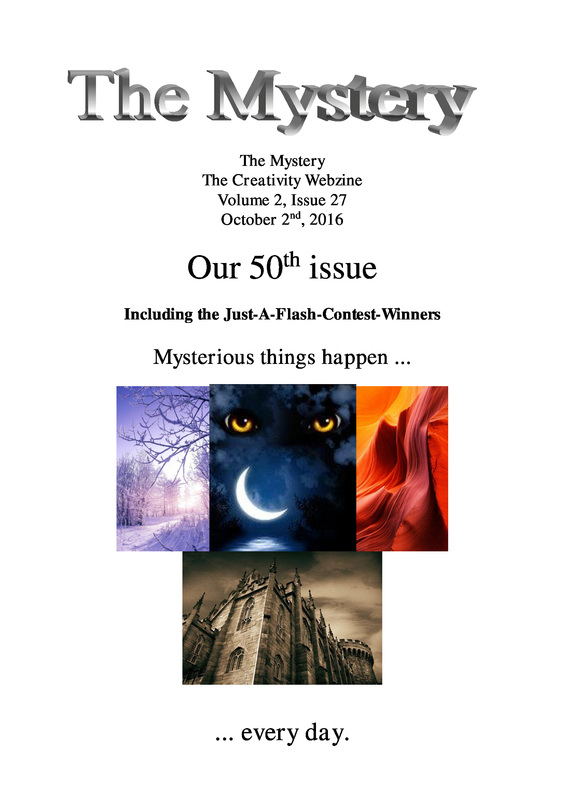
***
And remember:
Our Fantastic Just-A-Flash Contest Winners
***
Science Fiction
Thaddeus Hutyra - The Tower of Babel
Visit his website:
https://www.amazon.com/Thaddeus-Tadeusz-Hutyra/e/B00WIBM9YE/ref=ntt_dp_epwbk_0
Fantasy
M.J. Weiss - Tending to the Garden
Visit his website:
mj-weiss.com
Horror
Cameron Macauley - Uncle Dale
Visit his website:
https://cmacauley.wordpress.com/
Read their winning stories by clicking on
"Just-A-Flash-Stories" in the menu.
Congratulations again!
The Creativity Webzine
This 2nd of October 2016 is the date of our
50th
issue
The Mystery
The Just-A-Flash Contest
The Winners
Science Fiction
Thaddeus Hutyra - The Tower of Babel
Fantasy
M.J. Weiss - Tending to the Garden
Horror
Cameron Macauley - Uncle Dale
***
Thaddeus Hutyra
was born in mountainous Rajcza, south Poland, where he studied and participated in the so called Solidarity movement against the communist regime. He emigrated out of Poland as it was still in the Soviet thaw and became a citizen of Wellington, New Zealand, called Windy Wellington because of its Pacific winds. After a time in China, he settled down in Antwerp, Belgium. The United States remains his dream destination, a place he longs to visit. Thaddeus is a prolific poet, enormously active as an author and feels at home in the European Union.
https://www.amazon.com/Thaddeus-Tadeusz-Hutyra/e/B00WIBM9YE/ref=ntt_dp_epwbk_0
M.J. Weiss
M.J. Weiss grew up in Pottsville, PA. He attended Penn State University and received a Bachelor of Arts degree in Integrative Arts, emphasizing Creative Writing and Media Studies. He then continued his education by earning his Master’s of Fine Arts in Creative Writing at The University of Tampa. Today, he lives in St. Petersburg, FL with his wife Jessica and works as a creative copywriter.
mj-weiss.com
Cameron Macauley
teaches at James Madison University. He is the co-author of Citadel of Ice, a novel of World War One in the Alps, and author of The Golden Child Trilogy, which deals with witchcraft in Cambodia, Brazil and Mozambique. He has published short fiction in The North American Review, The Sonora Review, Prism International, Quick Fiction, and The Literary Hatchet. In 2017 he anticipates the publication of his short story collection, Sightseeing in Hell, and another co-authored novel, The Escape of Alfred Dreyfus.
https://cmacauley.wordpress.com/
To read the stories, click on "Just-A-Flash-Contest" in the menu.
The Creativity Webzine
presents its 26th issue this year
"The Discovery"
September 18th, 2016
Dear Reader,
Life is a mystery, but don't we actually like that it is
... a mystery?
Wouldn't we miss it if life was not a riddle?
Discovery, after all, is also the magic of life.
The fact that we don't have all the answers is ... exciting.
This road of discovery is your own personal road movie.
So make it a good one.
Your script hasn't been written yet ...
and if it has, the authors are pretty good
about hiding their tricks.
Because they're there ... your guardians,
giving you a thousand hints along the way.
Look for the hints, baby.
Somewhere behind the scenes, we are guided by angels.
If we work together ... with each other, dealing with the cards that life has dealt us with,
then we can realize all our dreams, trusting those angels.
Prosperous family life and blooming career?
Possible if you want it.
God's presence in every part of your life?
Sure, just invite him into your life,
and realize that he is above religions,
so it doesn't matter what you call him.
Peace on Earth?
Absolutely, if you believe in it.
What then is possible?
Everything.
People that had careers late in life:
Grandma Moses, successful painter at age 78.
Harry Bernstein, successful author at age 96.
Alan Rickman, successful actor at age 46.
Colonel Sanders, KFC founder at age 65.
Laura Ingalls Wilder, Little House on the Prairie -Author at age 65.
Christoph Waltz, successful film-actor at age 53.
Humility, friendliness, hard work, faith, perseverance,
intuition, timing, self confidence, trust in one's own abilities:
all these things are instrumental for success.
But life is not just about success, is it?
It is also about insight, wisdom and
... love.
So, welcome to the discovery!
Charles E.J. Moulton,
Editor-in-Chief
The Creativity Webzine
"If there be nothing new, but that which is
Hath been before, how are our brains beguiled,
Which, labouring for invention, bear amiss
The second burden of a former child!
O, that record could with a backward look,
Even of five hundred courses of the sun,
Show me your image in some antique book,
Since mind at first in character was done!
That I might see what the old world could say
To this composed wonder of your frame;
Whether we are mended, or whether better they,
Or whether revolution be the same.
O, sure I am, the wits of former days
To subjects worse have given admiring praise."
- William Shakespeare, Sonnet LIX
From "Songs of Experience"
My mind turned away from cyclic events,
To the wilderness of Lashi snow-peak
Came I, Mila, who long to be alone.
... ... ...
The sky was wrapped in mist. Then
Through nine whole days and nights snow fell
Then a further eighteen days and nights it fell:
Fell huge, huge as clumps of wool
Like feathered birds fell flying
Fell small, small as a spindle-wheel
Like swarming bees fell swirling.
... ... ...
I, the yogi Mila, clad in triple cotton garb
Struggled in the desolation of icy peaks
The falling snow I conquered, melted it into streams
And the great roaring wind I stilled back to its source--
My cotton cloth blazing like a fire.
... ... ...
Wrestling like an athlete in mortal combat
Clashing as a sword that conquers spears
By conquest in that struggle bravely faced
I set a model for Buddhists of all kinds
Especially for great contemplatives.
- by Tibetan poet Mi la ras pa
The Creativity Webzine
invites you to
A Literary Buffet
Date: September 4th, 2016
at the Chez Moulton,
Moultonian Street 1,
Literary City, Land of the Webzines,
2nd floor, 25th edition
***
Aperitif
Syllable Champagne and Poetry Truffles
***
Entrée
Russian Word Cream in a China Bowl
***
First Course
Stolichnaya Vodka with Semantic Lobster Thermidor.
Quail with Creative Grapes and Cornish Hen.
***
Main Course
Rumpsteak with grilled non-fiction onions and fantasy dill
or
Vegetarian Lasagne á la Storyteller
***
Dessert
Nero's Novel Chocolate Cream
***
Bon Appetit!
***
Special Guest Performing Artists:
Roy Dorman
Gerald Arthur Winter
Alexandra H. Rodrigues
Dustyn Taylor
Lucinda Berry Hill
Karen King
Robert Cooperman
Alan Catlin
Edwin Arlington Robinson
Frans Snyders
Giuseppe Arcimboldo
The Creativity Webzine
August 21st, 2016
Bright Lights, Big Cities
Dear Reader,
Thank you for visiting us.
Now, fasten your seatbelts.
Book a flight from Düsseldorf, Germany and fly over to London, England.
Visit the Big Ben, go see a musical at the West End and go to the National Gallery.
Then take that train to Edinburgh, Scotland, and hear the sound of the bagpipes.
Why not then take a boat to Dublin, Ireland and go to a pub, sing a song?
Still want to travel?
Okay.
Fly to Paris, France, and go to the Arc de Triomphe.
We're only getting started now. We might as well keep going.
It's time to visit Stockholm, Sweden, and meet Queen Silvia.
While we're at it, why not fly to Moscow to see the Kreml, check out India's Taj Mahal, walk on China's Great Wall, go to Sydney's Opera House, take a tour through Hollywood's film industry, stroll upon New York's Broadway, climb Rio's Jesus statue, gallop through Zimbabwe's wildlife and experience Antarctica's chill.
To top it off, we end our journey in Miguel Torres' Rioja vineyard in Spain and enjoy a glass of Sangre de Toro.
We're back in Düsseldorf, Germany.
That was a trip around the world in 80 seconds.
Wants some more?
Log on, click in, check us out!
Welcome to
Charles E.J. Moulton's
The Creativity Webzine!
"You are never too old to set a new goal or dream a new dream."
- C.S. Lewis
August 21st, 2016
Bright Lights, Big Cities
Dear Reader,
Thank you for visiting us.
Now, fasten your seatbelts.
Book a flight from Düsseldorf, Germany and fly over to London, England.
Visit the Big Ben, go see a musical at the West End and go to the National Gallery.
Then take that train to Edinburgh, Scotland, and hear the sound of the bagpipes.
Why not then take a boat to Dublin, Ireland and go to a pub, sing a song?
Still want to travel?
Okay.
Fly to Paris, France, and go to the Arc de Triomphe.
We're only getting started now. We might as well keep going.
It's time to visit Stockholm, Sweden, and meet Queen Silvia.
While we're at it, why not fly to Moscow to see the Kreml, check out India's Taj Mahal, walk on China's Great Wall, go to Sydney's Opera House, take a tour through Hollywood's film industry, stroll upon New York's Broadway, climb Rio's Jesus statue, gallop through Zimbabwe's wildlife and experience Antarctica's chill.
To top it off, we end our journey in Miguel Torres' Rioja vineyard in Spain and enjoy a glass of Sangre de Toro.
We're back in Düsseldorf, Germany.
That was a trip around the world in 80 seconds.
Wants some more?
Log on, click in, check us out!
Welcome to
Charles E.J. Moulton's
The Creativity Webzine!
"You are never too old to set a new goal or dream a new dream."
- C.S. Lewis
Welcome to this our latest issue of
The Creativity Webzine,
Other Worlds,
which we want to launch off with a quote:
“The mind, that ocean where each kind / Does straight its own resemblance find; / Yet it creates, transcending these, / Far other worlds, and other seas, / Annihilating all that's made / To a green thought in a green shade.”
Andrew Marvell (English Poet, Politician and Satirist. 1621-1678)
The Creativity Webzine,
Other Worlds,
which we want to launch off with a quote:
“The mind, that ocean where each kind / Does straight its own resemblance find; / Yet it creates, transcending these, / Far other worlds, and other seas, / Annihilating all that's made / To a green thought in a green shade.”
Andrew Marvell (English Poet, Politician and Satirist. 1621-1678)
The Creativity Webzine's
1st Anniversary Issue
OTHER WORLDS
August 7th, 2016
The Sacred Hymns of Pachacutec
Oh Creator, root of all,
Wiracocha, end of all,
Lord in shining garments
who infuses life and sets all things in order,
saying, "Let there be man! Let there be woman!"
Molder, maker,
to all things you have given life:
watch over them,
keep them living prosperously, fortunately
in safety and peace.
Where are you?
Outside? Inside?
Above this world in the clouds?
Below this world in the shades?
Hear me!
Answer me!
Take my words to your heart!
For ages without end
let me live,
grasp me in your arms,
hold me in your hands,
receive this offering
wherever you are, my Lord,
my Wiracocha.
The Stories We Tell
The Creativity Webzine
July 7th, 2016
Vol. 2 – Issue 22
The Poetic Story of Peace
The following micro-story contains 10 titles of pieces that can be found inside this issue.
Can you spot them all?
12 days later, back home, on a stormy cliff-top walk, we saw an ogre. There was too much time and too many curves in the road, but we unravelled the wisdom anyway. “Welcome home,” said the beast, sweet & terrible, in the voice of a two year old ...
Have fun searching for the titles
and
Welcome to
The Creativity Webzine!
The Creativity Webzine
July 7th, 2016
Vol. 2 – Issue 22
The Poetic Story of Peace
The following micro-story contains 10 titles of pieces that can be found inside this issue.
Can you spot them all?
12 days later, back home, on a stormy cliff-top walk, we saw an ogre. There was too much time and too many curves in the road, but we unravelled the wisdom anyway. “Welcome home,” said the beast, sweet & terrible, in the voice of a two year old ...
Have fun searching for the titles
and
Welcome to
The Creativity Webzine!
The Creativity Webzine
Volume 2 - Issue 21
Our 44th issue all in all
June 30th, 2016
Volume 2 - Issue 21
Our 44th issue all in all
June 30th, 2016
Dear Readers,
Summer is here again.
In some parts of the world, that means chilly temperatures.
For those of us in the northern hemisphere who will be on vacation in July,
summer means a lot of heat, a few cold beers, sun tan lotion,
family outings, long conversations, interesting culture, beach wear and barbecues.
In my case, I will combine those activities with the writing of stories, the painting of pictures,
the publication of this journal and the preparing of concerts.
The word summer, though, brings back childhood memories of playing in the grass,
vacation at my grandma's place and what seemed as endless holidays back when I was a boy.
Later on, summer meant historical tour-guiding, theatrical festivals and visits from abroad.
Today, summer is a moment to just switch gears, get the Moultonian vehicle running on a slightly slower speed.
Whatever it means to you, we hope you enjoy this summer issue,
filled to the brim with delicious summer goodies.
Ultimately, summer is about feeling good.
Shakespeare articulated summer as follows:
SONNET 18
Shall I compare thee to a summer's day?
Thou art more lovely and more temperate:
Rough winds do shake the darling buds of May,
And summer's lease hath all too short a date:
Sometime too hot the eye of heaven shines,
And often is his gold complexion dimm'd;
And every fair from fair sometime declines,
By chance, or nature's changing course, untrimm'd;
But thy eternal summer shall not fade
Nor lose possession of that fair thou ow'st;
Nor shall Death brag thou wander'st in his shade,
When in eternal lines to time thou grow'st;
So long as men can breathe or eyes can see,
So long lives this, and this gives life to thee.
However you feel and whatever you do,
To your own self always be true.
I don't know who said that, but it makes sense ... whatever season we are having.
So take a moment just to put up your feet while you read this journal.
Read the poetry, enjoy the stories, look at the art, discuss the essays.
Have a nice summer!
Best regards,
Charles E.J. Moulton
Editor-in-Chief, The Creativity Webzine
Summer is here again.
In some parts of the world, that means chilly temperatures.
For those of us in the northern hemisphere who will be on vacation in July,
summer means a lot of heat, a few cold beers, sun tan lotion,
family outings, long conversations, interesting culture, beach wear and barbecues.
In my case, I will combine those activities with the writing of stories, the painting of pictures,
the publication of this journal and the preparing of concerts.
The word summer, though, brings back childhood memories of playing in the grass,
vacation at my grandma's place and what seemed as endless holidays back when I was a boy.
Later on, summer meant historical tour-guiding, theatrical festivals and visits from abroad.
Today, summer is a moment to just switch gears, get the Moultonian vehicle running on a slightly slower speed.
Whatever it means to you, we hope you enjoy this summer issue,
filled to the brim with delicious summer goodies.
Ultimately, summer is about feeling good.
Shakespeare articulated summer as follows:
SONNET 18
Shall I compare thee to a summer's day?
Thou art more lovely and more temperate:
Rough winds do shake the darling buds of May,
And summer's lease hath all too short a date:
Sometime too hot the eye of heaven shines,
And often is his gold complexion dimm'd;
And every fair from fair sometime declines,
By chance, or nature's changing course, untrimm'd;
But thy eternal summer shall not fade
Nor lose possession of that fair thou ow'st;
Nor shall Death brag thou wander'st in his shade,
When in eternal lines to time thou grow'st;
So long as men can breathe or eyes can see,
So long lives this, and this gives life to thee.
However you feel and whatever you do,
To your own self always be true.
I don't know who said that, but it makes sense ... whatever season we are having.
So take a moment just to put up your feet while you read this journal.
Read the poetry, enjoy the stories, look at the art, discuss the essays.
Have a nice summer!
Best regards,
Charles E.J. Moulton
Editor-in-Chief, The Creativity Webzine
Classic meets Rock
The Creativity Webzine
Volume 2 – Issue 20
June 15th, 2016
Opera rocks!
Rock 'n roll's a classical artform!
When a rock-musician turns off the lights, he dreams about being an opera-singer. When an opera-star dreams, he dreams about singing heavy metal.
In the land of souls, music-styles mingle.
What do they talk about?
The genres talk about love.
This time, we chat about saxuality,
we're banging the drum for cultural crossovers,
striking a chord to rock the classical concert halls
playing a rocking riff on our Stradivarius.
At The Creativity Webzine,
Classic meets Rock,
Rock goes Opera!
Book of the Month
A Fantasy of Love
Authored by Karen King, Ed Michalski
Photographs by Karen King
Prologue by Ed Michalski
General editor Karen King
Buy it here:
https://www.createspace.com/6330778
This book is a fantasy of love in poetic form.
It has been written by Karen King and Ed Michalski.
It is both romantic and erotic and it has a spiritual nature.
It is both sad and uplifting and it is full of love and hope.
About the author:
Karen King and Ed Michalski met on-line through a poetry group six months ago and have been writing together all this time.
This is their first joint venture,
although Karen King has written many poetry books for Kindle in all genres.
Karen King is the editor and photographer and Ed Michalski has written the prologue.
The Creativity Webzine
Volume 2
Issue 19
"Faith"
Faith is a tree
That grows in the dark
To bloom in the morning
To a heavenly spark.
Faith is a seed
Planted in the ground
To have you wake up
Prosperous, safe and sound.
Faith is the courage
To be sensitive and free
Lovely as a willow
And strong as a tree.
Welcome to the creativity zone
of eternal spirituality!
Volume 2
Issue 19
"Faith"
Faith is a tree
That grows in the dark
To bloom in the morning
To a heavenly spark.
Faith is a seed
Planted in the ground
To have you wake up
Prosperous, safe and sound.
Faith is the courage
To be sensitive and free
Lovely as a willow
And strong as a tree.
Welcome to the creativity zone
of eternal spirituality!
The International Journey
presented to you by
The Creativity Webzine
May 15th, 2016.
We are all human,
Whether black or white,
Yellow or red,
Brown or pink,
Asian or African,
Australian or American,
Polynesian or a European.
Let's hit the road, travel around the world, finding out what we are,
who we are or how much of we are glows from within in this,
our global village.
The world rocks!
presented to you by
The Creativity Webzine
May 15th, 2016.
We are all human,
Whether black or white,
Yellow or red,
Brown or pink,
Asian or African,
Australian or American,
Polynesian or a European.
Let's hit the road, travel around the world, finding out what we are,
who we are or how much of we are glows from within in this,
our global village.
The world rocks!
SHIPS AT SEA
The Creativity Webzine
Vol. 2 - Issue 17
is our
40th
issue
all in all
Flip through these pages,
Discover this anniversary issue,
Explore the oceans of creativity,
Travel the waters of the spirit.
We are
The Creativity Webzine
The Creativity Webzine
Vol. 2 - Issue 17
is our
40th
issue
all in all
Flip through these pages,
Discover this anniversary issue,
Explore the oceans of creativity,
Travel the waters of the spirit.
We are
The Creativity Webzine
The Creativity Webzine
Volume 2, Issue 16
April 17th, 2016
A Season for Music
Explore the webzine in arts and crafts, stories and poetry.
Enter and experience the paradigm shift.
The positive powers of music, like the powers of creativity, are endless. When comparing musical styles, we also discover that music is like life: there are endless grey zones and no one can say where the one style ends and the other begins. The most professional fun I ever had in my thirty years on stage was during my time as 1st cast Big Bopper in the Hamburg production of Buddy. Between two shows, I flew to Vienna to sing Raphael in Haydn’s The Creation. Classic the one day, rock the other.
Next time you see a rock star sing, remember that he might be studying classical voice with the pop world's vocal coach number one: Miss Katie Agresta. He might be a classical pianist gone to rock or a graduate of Julliard ... or maybe just a hard working autodidactic. Whatever the case may be, the artist should be graded according to the fruit of his inspiration, his skill, his passion, his truth, his joie de vivre.
Change the world of music, use the idiom from one style to describe the other genre.
We are left with Duke Ellington’s famous words to round things off:
“There are only two kinds of music: good music and the other kind.”
How right he was.
Let’s go rock some opera!
Welcome to "The Creativity Webzine"!
Charles E.J. Moulton,
Editor-in-Chief, The Creativity Webzine
"Sending love and light to these people,
But I need help in creating a better world."
- Karen King, The Creativity Webzine Author, "I am a Gull"
"Music filled my life, mother took hold, sang, played like an angel to behold."
- Patrick Bryant Michael, The Creativity Webzine Author, "Colors of Time"
Volume 2, Issue 16
April 17th, 2016
A Season for Music
Explore the webzine in arts and crafts, stories and poetry.
Enter and experience the paradigm shift.
The positive powers of music, like the powers of creativity, are endless. When comparing musical styles, we also discover that music is like life: there are endless grey zones and no one can say where the one style ends and the other begins. The most professional fun I ever had in my thirty years on stage was during my time as 1st cast Big Bopper in the Hamburg production of Buddy. Between two shows, I flew to Vienna to sing Raphael in Haydn’s The Creation. Classic the one day, rock the other.
Next time you see a rock star sing, remember that he might be studying classical voice with the pop world's vocal coach number one: Miss Katie Agresta. He might be a classical pianist gone to rock or a graduate of Julliard ... or maybe just a hard working autodidactic. Whatever the case may be, the artist should be graded according to the fruit of his inspiration, his skill, his passion, his truth, his joie de vivre.
Change the world of music, use the idiom from one style to describe the other genre.
We are left with Duke Ellington’s famous words to round things off:
“There are only two kinds of music: good music and the other kind.”
How right he was.
Let’s go rock some opera!
Welcome to "The Creativity Webzine"!
Charles E.J. Moulton,
Editor-in-Chief, The Creativity Webzine
"Sending love and light to these people,
But I need help in creating a better world."
- Karen King, The Creativity Webzine Author, "I am a Gull"
"Music filled my life, mother took hold, sang, played like an angel to behold."
- Patrick Bryant Michael, The Creativity Webzine Author, "Colors of Time"
Vienna, Austria - Musikverein - 1991.
From left to right:
Professor Gun Kronzell-Moulton, Luciano Pavarotti, Charles E.J. Moulton
From left to right:
Professor Gun Kronzell-Moulton, Luciano Pavarotti, Charles E.J. Moulton
Charles E.J. Moulton back in 1997 as a vampire in
Roman Polanski's "Dance of the Vampires" at the Raimund Theater.
Charles played this show 700 times over the course of two years
in front of almost a million people.
Roman Polanski's "Dance of the Vampires" at the Raimund Theater.
Charles played this show 700 times over the course of two years
in front of almost a million people.
The Creativity Webzine
Volume 2 - Issue 15
April 10th, 2016
SPRING IS HERE
Ode To Spring
By Elizabeth Bentley
WELCOME, sweet season of delight,
What beauties charm the wond'ring sight
In thy enchanting reign!
How fresh descends the morning dew,
Whilst op'ning flow'rs of various hue
Bedeck the sprightly plain.
The artless warblers of the grove
Again unite in songs of love,
To bless thy kind return:
But first the lark, who roaring seems
To hail the orb of day, whose beams
With fresh refulgence burn.
The limpid brook that purls along,
The tuneful blackbird's joyous song,
The softly-whisp'ring breeze;
The mossy hills, which now invite,
These with the verdant meads unite,
Th' elated mind to please.
The mind with thoughts of good possest,
With innocence and virtue blest,
Untaught in vice's ways;
May taste those joys by nature giv'n,
May lift th' enraptur'd eye to heav'n,
And their great Author praise.
Stern Winter's gloomy season past,
We see fair Spring advances fast,
With Summer in the rear;
Soon Autumn's shades will interpose,
And a succeeding Winter close
The swift-revolving year.
Of human life an emblem true,
The early morn of youth we view,
In Spring's delightful face;
Meridian life's a Summer's day,
With Autumn fades; its quick decay,
In winter's blast we trace.
Then let us prize each fleeting hour,
Improve the moments in our pow'r,
E'er time shall cease to be;
Then shall our spirits, taking wing,
Be crown'd with an eternal Spring,
From Wint'ry storms set free.
Visitors
The Creativity Webzine
Volume 2 – Issue 14
April 3rd, 2016
Extra terrestrials or just your Grandma Emily?
Your dog Fred, the singing couple Herb & Gun ... or just your local buddy?
We are all visitors somewhere.
In this week's issue, you will meet vampires and good friends, rebels and nuns.
Most of all, you're gonna have fun.
So, click and scroll!
You're on a roll!
After all, this IS
the home of everlasting creativity!
Welcome to the wonderland!
Time
*
March 27th, 2016
The Creativity Webzine
Volume 2
*
Issue 13
*
Unconventional, organized, spontaneous, planned.
Time is what you make it.
It's about time we talk about time.
After all, there is a time for everything.
Time and again, we should take time to contemplate what time actually is.
You have the time?
You know the deal.
Your blossoming creativity leads the way.
We believe in you.
Read and enjoy!
Colors of the World
March 20th, 2016
The Creativity Webzine
Volume 2, Issue 12
We are all colorful.
Whether we want it or not, we are all international beings.
Our cultures are different, thank God.
That way, we can learn from one another.
But also our feelings make us glitter, gleam, sparkle, sizzle and sing.
Where's your rainbow?
March 20th: the day we show ourselves how wonderful the world is.
March 13th, 2016
The Creativity Webzine
Volume 2 - Issue 11
Unicorns and Fairies
The magic kingdom,
An ogre invited me to see it one day,
He took me to meet the fairies
Playing in the grass,
He introduced me to the unicorns,
I said hello to the trolls
And I danced with the elves.
March 13th: the day we meet our natural brethren.
THE CREATIVITY WEBZINE
Volume 2, Issue 10
Let's Go to the Movies!
You wanna cheer three hoorays for Hollywood?
Read a poem about a moving picture?
Experience a really image-drenched and film-like story
that'll make you think you're at the movies?
See some really snazzy Hollywood pictures?
Brace yourself!
We are going to the cinema!
Buy the pop-corn and the coke!
Got your tickets?
We will be making your creativity soar across
the cinematographic galaxies.
Aaaannnnnd ... ACTION!
"That's History"
The future, the present and the past meet
Live on February 28th, 2016.
Re-evaluate the old, respect the human soul with
The Creativity Webzine!
Do you dream of having lived in ancient Egypt?
Does the Renaissance tickle your fancy?
Maybe you are more of a 18th century kind of person?
Do you like the stone age?
The dinosaurs?
The future is also a part of your history.
Step into the time machine!
January 24th, 2016
The Creativity Webzine
"Sex and the Spirit"
Volume 2, Issue 4
The old year disappears,
With ancient, aged fears,
Welcome, the fascinatingly new.
Within what we'll see and do,
Never let anyone fear,
For our strength is what we hold dear,
Humanitarian respect entails
What trust our heart prevails,
So leaf through these pages,
And consult no wiser sages,
Consult your inner heart,
Of which God has a greater part.
If you think 2016,
Will be festive and serene,
That will be the utmost truth,
Your eternal fountain of youth!
Happy and peaceful 2016!
For us all, for mankind and for Mother Earth!
Your truth shall set you free: think positive.
All religions are different phone lines to the same God,
And his favorite address is your inner heart!
MERRY CHRISTMAS!
LOVE - AMOUR - AMORE - KÄRLEK - LIEBE - IT RULES THE WORLD, DETERMINES OUR DESTINY! FALL IN LOVE WITH YOUR SPOUSE TODAY! EMBRACE YOUR CHILD! CALL A FRIEND! TELL SOMEONE THEY ARE NICE! GIVE SOMEONE A COMPLIMENT! LOVE!!!!!!
The Creativity Webzine - the home of all things original!
